
#GoodOrganisations
In the following blog, you will delve into a myriad of insights surrounding the topics of Trust, Ethics, HR, Leadership, Management and their intricate connections to the research I am currently engaged in. These are my personal reflections, which may occasionally challenge conventional views and stir debate.
31-01-2026



Most people treat friendship like emotional infrastructure. Philosophy treats it like an ontological fact.
We usually think about friendship in comforting but thin terms: shared interests, mutual support, someone to call in a crisis. True but still radically insufficient. Philosophers and sociologists take friendship far more seriously. So seriously, in fact, that they argue our relationships are not just bonds but real entities, capable of shaping who we are, what we owe each other, and what kind of good or harm enters the world through us.
🔹 You and your friend are not merely connected; you share an identity. Philosopher Alexis Elder argues that friendships are “wholes with friends as parts.” Not metaphorical. You remain distinct persons, but as friends you jointly constitute a real entity: the friendship itself. Acts of care are therefore not pure self-sacrifice; they are concern for an expanded self.
🔹 Your relationship is a real thing and it produces effects. Sociologists Donati and Archer argue that society is not a container of relationships but is made of them. When two people form a bond, they create a “Relational Subject,” an emergent entity that produces outcomes in the world. These can be relational goods such as trust and care, or relational evils such as domination and exclusion.
🔹 The best things friendships create cannot be divided. Relational goods cannot be owned, traded, or split. They exist only within the relation itself and disappear when it dissolves. Friendship creates a form of wealth that cannot be accumulated or extracted, only lived.
🔹 Goodness is not always a precondition; sometimes it is the outcome. Elder holds a demanding view: genuine friendship requires basic moral decency. Donati’s view is more diagnostic. Real relationships are often morally mixed, and goodness is something relations may grow into or fail to. This raises a hard question: is friendship grounded in who we already are, or is it a fragile moral project that shapes us over time?
🔹 Friendship is not about finding your twin but about building a richer “us.” What makes friendship generative is difference: complementary strengths, perspectives, and limits. Sameness adds. Difference creates.
Conclusion: friendships are alive. They are real, shared entities that make us more than we are alone and introduce new forces into the world. This reframes responsibility. It is not enough to be a good friend. We are stewards of something we have jointly brought into existence. So the next time you sit across from a close friend, ask:
𝗪𝗵𝗮𝘁 𝗶𝘀 𝗼𝘂𝗿 𝗳𝗿𝗶𝗲𝗻𝗱𝘀𝗵𝗶𝗽 𝗽𝗿𝗼𝗱𝘂𝗰𝗶𝗻𝗴 𝗿𝗶𝗴𝗵𝘁 𝗻𝗼𝘄 — 𝗿𝗲𝗹𝗮𝘁𝗶𝗼𝗻𝗮𝗹 𝗴𝗼𝗼𝗱𝘀 𝗼𝗿 𝗿𝗲𝗹𝗮𝘁𝗶𝗼𝗻𝗮𝗹 𝗲𝘃𝗶𝗹𝘀?
30-01-2026



The idea of a deviance budget is often read as a question of tactics.
It isn’t.
It is about the conditions under which deviation becomes possible at all.
Managers often act as if their budget is fixed and scarce. They assume isolation: limited authority, contested legitimacy, little room to depart from norms. Under those assumptions, caution seems rational.
But in many organisations, this diagnosis is wrong.
Moral perception is structurally fragmented across silos. One person sees exploitation in the supply chain. Another encounters it in finance. A third hears it through customer complaints. Each assumes they are alone. The organisation interprets this fragmentation as consent.
Research suggests otherwise. When managers do raise ethical concerns, usually nothing bad happens. The fear is calibrated to the wrong situation. The constraint is often not hostility, but lack of coordination.
This points to a different position: not Compromise, but UNBUILT COALITION. In that position, the problem is not how carefully one speaks, but that aligned actors remain invisible to one another.
When coordination emerges, the deviance budget changes qualitatively. Credibility is no longer an individual resource to be conserved. It becomes a collective capacity that can grow.
The common failure is not only spending the budget on trivial issues instead of ethical ones. It is also acting as if the budget is small when the conditions for a larger one already exist.
Many managers are not constrained by hostility, but by misrecognition of the room they are already in.
Part 5: When Compromise Is Actually UNBUILT COALITION
28-01-2026



Performance management does not fail because of a lack of humanity.
It fails because we don't bring two things together: developing people and telling them honestly what we like – and what doesn't.
We don't dare to say:
▶️What you do doesn't get through to me.
▶️That's not enough for this role.
▶️I see your effort – and yet it doesn't fit.
So let's do something else.
Either a lot of coaching, a lot of feedback, a lot of understanding – without consequence.
Or rankings and ratings that seem objective, but in reality only do one thing:
They replace judgment with numbers.
What almost never succeeds is to really hold people and tell them clearly where they stand.
Why?
Because it's hard.
It takes empathy, self-reflection and, above all, clarity about what you stand for. Only those who know what good work is can say what is missing.
Only those who know their own blind spots can judge fairly.
The inconvenient truth: Many organizations don't want that at all.
Because it would mean taking people seriously and limiting them, enabling development and naming failures, respecting dignity and making decisions that hurt.
What is missing are not better tools.
What is missing is the courage to judge.
As long as we outsource responsibility to ratings, performance management will remain either nice or tough.
It only becomes life-serving when organizations endure tension and say: This is my judgment.
27-01-2026



In a fragile world, the decisive question is no longer how we measure performance – but what performance we need in the first place.
In the German economy, a well-known mantra is returning: "Performance must pay off again." Anyone who handles instruments such as forced ranking today misjudges the complexity of our time. Behind this is the outdated ideology that performance is purely individual, always measurable and attributable to individual minds. The real challenge is another: not further increase in efficiency, but social resilience.
THE DEAD END OF MACHINE AND ORGANISM
The machine model considers humans as interchangeable gears. Performance is forced by control and fear – with the result: paralysis of creativity and responsibility.
The organic model is modern and agile, but remains fixated on shareholder value. Permanent pressure systematically leads to border crossings – see the end of Credit Suisse.
THE DEVASTATING VERDICT OF PRACTICE
95% of managers consider common performance reviews to be inadequate (Gallup). Less than 20% of HR managers see their performance systems as effective (Gartner).
The fact that companies nevertheless stick to it is not a knowledge problem – but ideological rigidity.
THE DARK SIDE OF SMART GOALS
Overambitious goals promote exhaustion and "gaming" – the systematic manipulation of key figures. OKRs also don't help if they only increase the pressure.
WHY LISTENING IS MORE EFFECTIVE THAN FEEDBACK
Marcus Buckingham shows that evaluative feedback is often ineffective. Feedback apps lead to employees hiding their real work processes.
Listening, dialogue and joint clarification of meaning are more effective control instruments.
THE LIFE-SERVING MODEL
The alternative understands companies as political communities in which people are recognized not as resources but as bearers of dignity.
Examples:
💡 Vaude uses the Common Good Balance Sheet
💡 Allsafe delegates budget-impacting decisions
💡 Premium Cola steers in a consensus-oriented manner
Motivation here arises from meaning, responsibility and belonging.
CONCLUSION
"We shape our tools, and thereafter our tools shape us" (Marshall McLuhan).
Our management tools produce mistrust and exhaustion. Sustainable performance management needs a performance culture that focuses on learning, collective excellence and participation.
THE CRUCIAL QUESTION:
Do the performance tools in your organization shape human development –
or do they primarily secure an outdated ideology?
25-01-2026



In Part 3, I introduced the deviance budget: you can depart from norms only so many times before losing credibility. Most people waste it being difficult about meeting times, then compliant when it matters.
Research by Bird and Waters (1989) reveals why. In their study of managers facing ethical issues, only 12% of moral issues received public discussion. This reveals not a courage problem but a perception problem: managers misjudge where boundaries lie, then spend their limited room for deviation on issues with little moral or strategic weight.
THE BOUNDARY IS WIDER THAN YOU THINK
Bird and Waters found managers avoid raising concerns assuming moral talk will threaten harmony. But when managers did speak up, usually nothing bad happened. The fear was greater than the reality.
Most organizations have two boundaries: the stated boundary where "we don't talk about ethics" and the actual boundary where you can raise almost anything if framed right. Start with the clarifying question: "Can you say more concretely what you mean?" Either nothing bad occurs or you learn where the boundary is.
THE TRANSLATION STRATEGY
Bird and Waters reveal managers successfully raised concerns when they avoided moral language and used organizational framing. You see "this will devastate a community" but say "this creates reputational risk and will make rehiring difficult."
This is not because moral concerns are less valid, but because most organizations are structurally hostile to moral language outside protected spaces.
You have two budgets: moral language triggers immune responses, save it for blatant violations. Organizational challenge language works if framed as practical problems. Most people do the opposite, using moral language on minor issues then wondering why nobody listens when major ones arise.
THE STRATEGIC MOVE
Conform cheerfully on everything that doesn't matter. Save your budget for naming what needs naming, protecting your team, and clear violations. But if everyone always translates moral concerns into organizational language, moral language loses authority. This is why Part 3 emphasized practicing seeing together with your team, creating spaces where moral language is legitimate.
Then you return to the larger organization and translate, not because this is good but because it is often the only way to act without losing the capacity to act at all.
Where are you wasting your deviance budget? What credibility could you build by conforming cheerfully on trivia?
Most managers underestimate how much they can say and overestimate how directly they need to say it.
Test the boundary. Spend your budget wisely.
Deep dive building on Part 3: You See Clearly. Now What?
24-01-2026

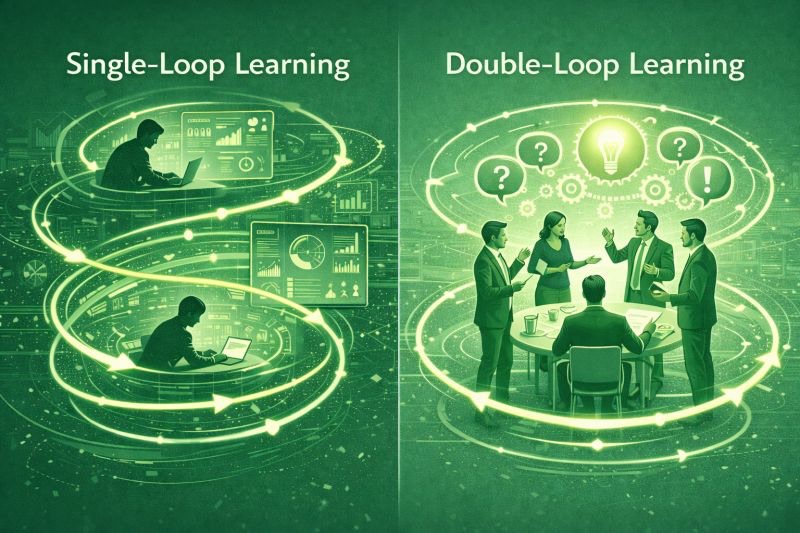

You know the feeling: A strategic transformation project has been going on for months. Goals are clearly formulated, KPIs are predominantly green, engagement scores are stable. And yet there remains the uneasy feeling that nothing significant is happening. The same tensions keep popping up – only with new labels. Decisions are getting faster, but not better.
This is not an implementation problem. It's a learning problem.
Many organizations treat uncertainty as an information deficit: more data, better forecasts, shorter target cycles. From an HR perspective, this does not go far enough. In fundamental uncertainty, it is not information that is missing, but the ability to judge. The assumptions about what counts as a service, what risks and interests are legitimate, and what counts as a "rational decision" are no longer backed up with reality.
This is where many performance and development systems fail. They are built on single-loop learning: recognizing deviations, adapting behavior, ensuring goal achievement. This stabilizes existing logics – precisely when these logics become brittle. KPI belief becomes fear management, performance management ritualized control.
What is missing is double-loop learning: the ability to question the criteria by which performance is measured, decisions are legitimized and mistakes are interpreted. This is not an abstract cultural issue. It is a structural property of HR architectures.
For CHROs, this is a hard lever – and a communicable one. The question is not whether employees learn, but what the system lets them learn. Where can assumptions be openly questioned without career or reputational costs? Which deviations are considered a learning signal – and which are personal failures? Which leaders are developed for the ability to judge – and which for smooth goal fulfillment?
This is compatible with management and supervisory boards if it is read as risk management: Organizations without a double-loop capability react quickly, but from the same thought models. They optimize efficiently – but not necessarily in the right direction.
Fundamental uncertainty cannot be managed away. But it can be made institutionally capable of learning. And it is precisely here that it is currently being decided whether HR will remain an administrative stabilizer – or whether it will become a strategic function that keeps organizations capable of making decisions when rationality alone is no longer enough.
23-01-2026

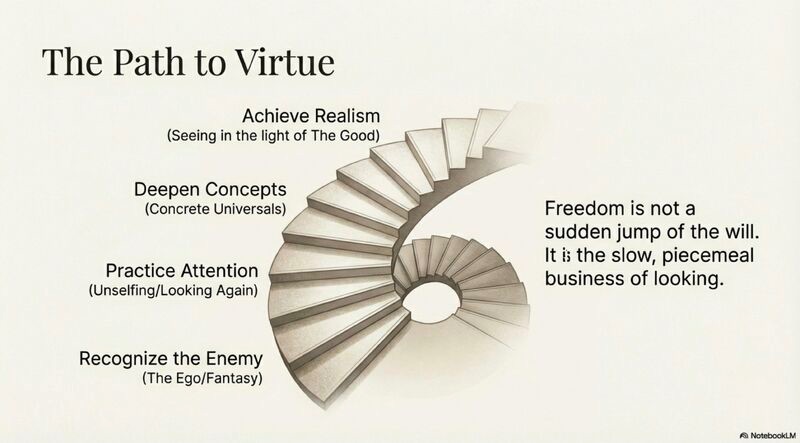

Last week I explored how Davos CEOs, asked about threats to democracy, fell silent. Unable or unwilling to see their own power. If organizations can blind us, can they help us see?
THE LOVING GAZE
Philosopher Iris Murdoch rejected "the shopping model" of ethics: isolated choices between neutral facts. Instead, the moral life happens continuously in how we see: "I can only choose within the world I can see, in the moral sense of 'see' which implies clear vision is the result of moral imagination and effort."
The loving gaze is patient attention to reality rather than fantasy: perception overcomes ego.
WHY THIS ISN'T RELATIVISM
Murdoch's bold claim: The Good is objectively real. Not constructed. Real.
The Davos CEOs lost the capacity to see their political power as more real than the comfortable abstraction that "business stays out of politics." Murdoch argues our perceptions admit degrees of reality. The ego's fantasies are less real than attentive perception.
FREEDOM AS KNOWLEDGE
True freedom is seeing reality so clearly that right action follows with necessity. "If I attend properly, I will have no choices."
The Davos CEOs weren't free. They were trapped in distorted perception. To see their influence as clearly as they see quarterly results would make silence impossible. "The authority of morals is the authority of truth."
WHAT BLOCKS VISION
"Self is such a dazzling object that if one looks there one may see nothing else." The ego creates distortions through instruments of corruption: clichés like "business stays out of politics," "not our mandate."
The alternative is instruments of learning: specific descriptions that aid discernment. Not "business stays out of politics" but "I have influence over policy affecting millions and my silence signals democratic threats are acceptable."
THE WORK
Vision transforms through "the piecemeal business of looking," patient effort that stops the "charmed rehearsal" of self-justifications. At Davos: "It's not our role." Stop. Look again: You are choosing silence because speech is uncomfortable.
Reynolds' research shows those with high moral attentiveness see dimensions others miss. But organizations ignore this capacity.
HOW TO ENABLE VISION
💡 Individual: Daily asking "what am I likely to not want to see?", examining "am I seeing reality or projection?"
💡 Organizational: Protected space for attention. Institutional recognition of what matters. Active protection of truth-telling.
💡 One practice: Weekly case discussions without clichés. Describe last week's decision as you did, then what that language made invisible, then using concrete language.
THE QUESTION
For HR, OD, coaches: Are we cultivating the capacity for just perception, or merely policing behavior?
We cannot act rightly toward what we cannot see justly. What if we learned to see?
22-01-2026

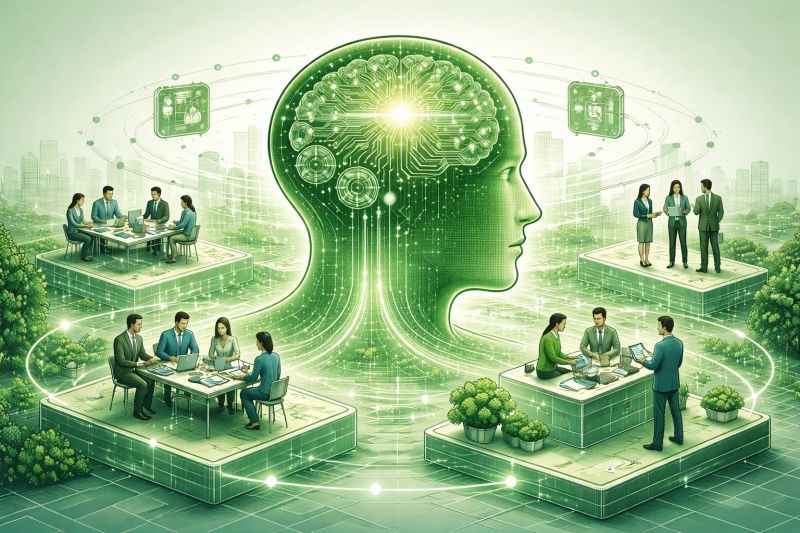

Most AI implementations fail not technically, but organizationally. Nevertheless, they continue to be run as IT or digitization projects.
This is a category error. AI intervenes deeply in working relationships: autonomy, performance appraisal, fairness, power distribution and learning. Those who implement AI change leadership, work and trust – whether consciously or not.
Our research reveals three points that organizations systematically underestimate:
1️⃣ AI changes leadership – not optionally, but inevitably.
AI always leads to the delegation of decision-making power to systems, scores and models. Leadership is shifting from direct control to framework, interpretation and responsibility. Many managers are not prepared for this: they are supposed to explain decisions that they no longer fully control themselves. AI introduction without accompanying leadership development does not produce efficiency, but uncertainty, defensiveness and implicit rule violations.
2️⃣ Delegation without a say creates resistance, not acceptance.
AI is often introduced as "objective" and thus removed from discussion. Where systems structure work reality, real participation is needed: early involvement, co-creation, super-users, iterative feedback. Not as a cultural measure, but as a governance issue. Without a say, exactly the effects that are to be avoided arise: gaming the system, covert circumvention, loss of trust.
3️⃣ AI needs technology assessment – and an integrated learning architecture.
Every AI implementation needs a systematic technology assessment. Not one-off, not purely legally, but as a continuous organizational process. This perspective is imperative in HR: as an employee champion, as an ethics champion and as an authority that makes social side effects, fairness implications and trust dynamics visible.
However, evaluation alone is not enough. AI is constantly changing work and must therefore be integrated into the learning architecture of the company. This is where the interaction with the COO is created: The COO is responsible for operational coherence, scaling and process stability, while HR develops new learning, feedback and development tools beyond classic performance logics. Without this coupling, AI remains either controlled but blind to learning – or capable of learning but uncontrolled.
Conclusion: AI does not decide on progress or regression in the code. This is decided in HR architecture, leadership logic and organizational learning ability. The real question is not how quickly AI will be introduced, but what kind of organization will emerge – and who will take responsibility.
21-01-2026

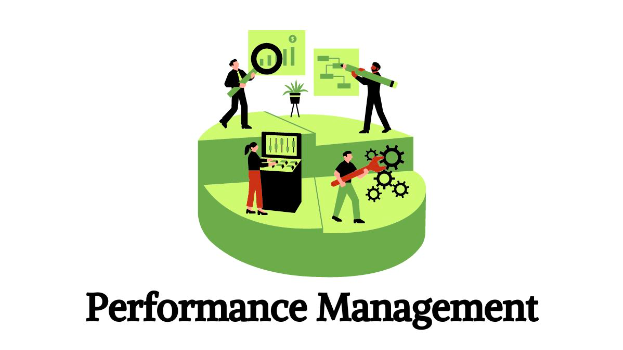

In performance management, we are currently not experiencing a methodological conflict, but a collapse of fundamental control assumptions. Annual targets are becoming obsolete, comparability is becoming fiction, feedback is losing its orientation function – and yet organizations are responding with more measurement, more transparency and more algorithmic support.
Our research has shown for years: This is not progress, but an escalation of the illusion of control.
Historically, performance management has been based on the assumption that performance can be planned, observed and evaluated. This assumption was already problematic for industrial work. It is simply wrong for knowledge-intensive, co-creative work. Nevertheless, we are currently experiencing a massive datafication of people: work behavior, interaction, attention and, increasingly, emotions are being translated into performance indicators – not only for measurement, but for automated evaluation and algorithmically generated feedback.
What is systematically underestimated is the effect on trust.
Transparency does not automatically generate performance. On the contrary: at a certain point, it tips over into a transparency paradox. Employees react to permanent visibility with flaunting, gaming and risk avoidance. Energy no longer flows into problem solving, but into metric optimization. Exactly where organizations need the ability to judge, learn and take responsibility, they produce adaptation and self-censorship.
Artificial intelligence is exacerbating this dynamic. Systems that evaluate performance, "nudge" feedback, or suggest leadership action postpone decisions – but not responsibility. Leadership is delegated without anyone being responsible for it. Trust is replaced by prognosis, relationship by rule, judgment by probability.
The real problem is therefore neither a lack of agility nor a lack of technological expertise. It is a strategic leadership problem: Organizations rely on control tools that undermine exactly the ability they need in complex, non-linear contexts – human judgment based on trust.
The central question for strategic personnel management is therefore not which performance system is more modern. It is: How do we design performance management in such a way that trust, judgement and responsibility are not systematically destroyed?
This question cannot be answered surgically. It is a question of design, governance and leadership.
20-01-2026

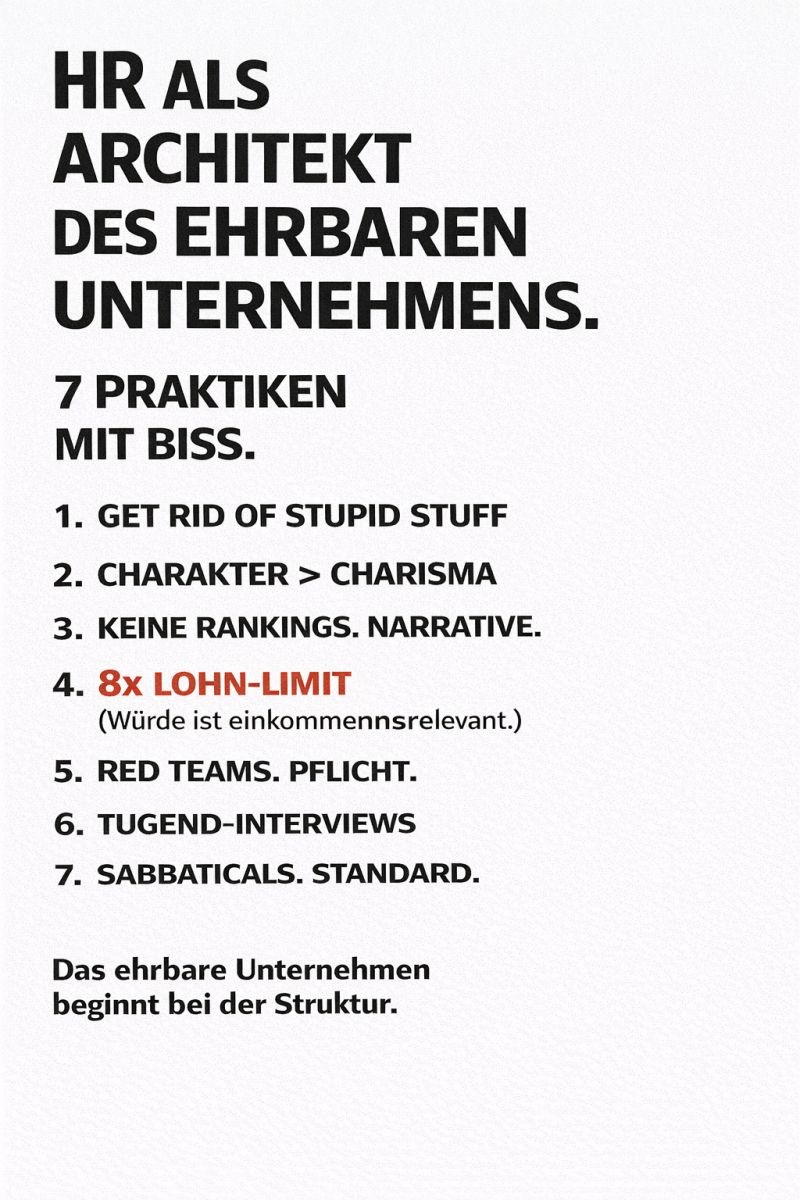

Seven practices that actually make a difference:
1. Institutionalize "Getting Rid of Stupid Stuff"
Quarterly "bureaucracy bounty" – teams nominate the most annoying rule, leadership must decide within 30 days: abolish, keep or redesign. Publicly documented.
2. Rethinking Promotion: Character Before Charisma
Away from "who was the loudest". 360° assessments with a focus on humble leadership: Who admits mistakes? Who honors others? Prevents the "narcissism epidemic" in the carpet floor.
3. Detoxify performance management
Replace rankings with "contribution narratives": Employees write quarterly about how their work has helped others. Peer review instead of chief judgement. Kills rivalry, promotes cooperation.
4. Wage caps as a cultural statement
CEO earns a maximum of 8x median salary? Radically, yes. But it makes it visible: Solidarity is either income-relevant – or marketing. Attracts the right people, scares away the wrong ones.
5. "Red Team" rituals before big decisions
Mandatory dissent: A team must argue the opposite. With a real budget for research. Breaks the compulsion to harmonize, measurably improves the quality of decision-making.
6. Recruit according to virtues, not just skills
Supplement interviews with "dilemma scenarios": How do you decide on conflicting goals? What was your last real mistake? When did you act against your advantage?
7. Sabbaticals for everyone – as standard
3 months of paid time off every 5 years. As a structural principle, not a privilege. Prevents burnout, forces delegation, brings fresh perspectives.
The point: None of these practices are "nice". They are exhausting, radical, sometimes uncomfortable. But they shift the system from fear/rivalry/harmony compulsion to trust/cooperation/constructive dispute.
Responsible innovation doesn't need posters (or does it 😉 👇). It needs structures that force different behavior.
HR can build these structures. But only if it is willing to tackle questions of power – not just processes.
If you reduce HR to processes, that's exactly what you get: processes. No innovation. No responsibility. No maturity.
Only works if C-Suite plays along. Otherwise it will be cosmetic.
19-01-2026

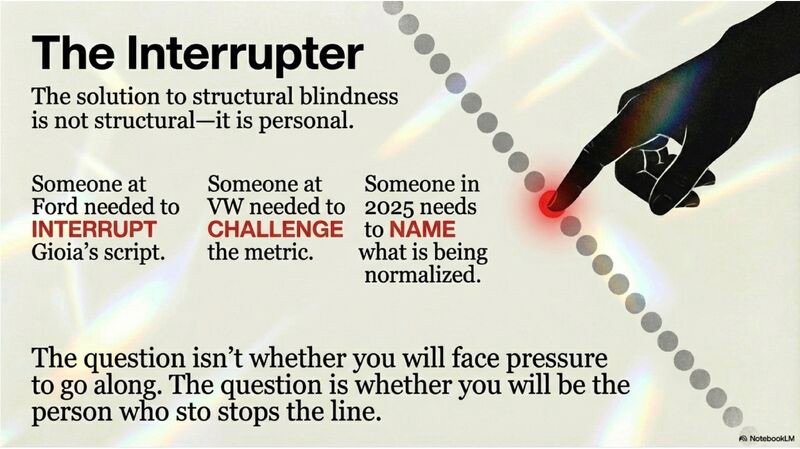

Moral blindness operates at three levels. Same mechanism, different scale.
𝗜𝗻𝗱𝗶𝘃𝗶𝗱𝘂𝗮𝗹: 𝗧𝗵𝗲 𝗖𝗼𝗴𝗻𝗶𝘁𝗶𝘃𝗲 𝗔𝘂𝘁𝗼𝗽𝗶𝗹𝗼𝘁
Dennis Gioia joined Ford in 1972 as a Vietnam War protester to humanize corporate America. Two years later, as Recall Coordinator, he kept the fire-prone Pinto on the road.
He didn't turn evil. His cognitive scripts filtered out ethical dimensions. Managing hundreds of cases, he developed "fire department mentality": big fires get water, small ones get spit. The Pinto? Small fire. His script contained no ethical component it processed moral relevance as noise.
He owned a Pinto. Sold one to his sister. Couldn't see danger in his own life because his insider script overwrote his values.
𝗢𝗿𝗴𝗮𝗻𝗶𝘇𝗮𝘁𝗶𝗼𝗻𝗮𝗹: 𝗧𝗵𝗲 𝗠𝗲𝘁𝗿𝗶𝗰 𝗧𝗿𝗮𝗽
Volkswagen CEO Martin Winterkorn's goal: sell 10 million cars, triple U.S. sales with clean diesel. The problem: diesel creates far more pollutants than gasoline.
Ferdinand Piëch led VW for two decades, bragging he "terrified his engineers" into performance. Winterkorn, his protégé, inherited the playbook: subordinates feared failure, bad news was unwelcome.
The directive: deliver powerful, efficient diesels that pass U.S. standards. Quickly.
Engineers installed defeat devices: software detecting lab conditions that activated emissions controls. In labs: compliant. On roads: emissions 35 times legal limits.
The fraud triangle: extreme pressure, technical opportunity, rationalization.
When metrics become survival imperatives under autocratic leadership, engineers become mechanics of compliance not moral agents.
𝗖𝗼𝗹𝗹𝗲𝗰𝘁𝗶𝘃𝗲: 𝗧𝗵𝗲 𝗥𝗮𝘁𝗶𝗼𝗻𝗮𝗹𝗶𝘇𝗮𝘁𝗶𝗼𝗻 𝗖𝗮𝘀𝗰𝗮𝗱𝗲
Watch CEOs now. Leaders who championed social responsibility embrace "pragmatic engagement." Jamie Dimon at Davos: "We need to work with the administration."
This is collective rationalization:
🔻 "This is just politics" (sanitized language)
🔻 "Fiduciary duty to shareholders" (cost-benefit logic)
🔻 "Business should stay apolitical" (after years of ESG)
Each silence normalizes the next boundary violation. The script: "If leaders aren't alarmed, maybe I'm overreacting."
Until Minnesota. Until mass deportations make abstraction concrete. Until the script breaks.
By then? Damage done.
𝗧𝗵𝗲 𝗣𝗮𝘁𝘁𝗲𝗿𝗻
At Ford: Scripts filtered ethics unconsciously
At VW: Metrics made ethics irrelevant
In 2025: We collectively agree not to call it what it is
𝗧𝗵𝗲 𝗜𝗻𝘁𝗲𝗿𝘃𝗲𝗻𝘁𝗶𝗼𝗻
Someone at Ford needed to interrupt the script. Someone at VW needed to challenge the metric. Someone in 2026 needs to name what's being normalized.
The question isn't whether you'll face pressure to go along. The question is whether you'll be that person.
Because the mechanisms are structural, but the intervention is always personal. And always costly.
18-01-2026

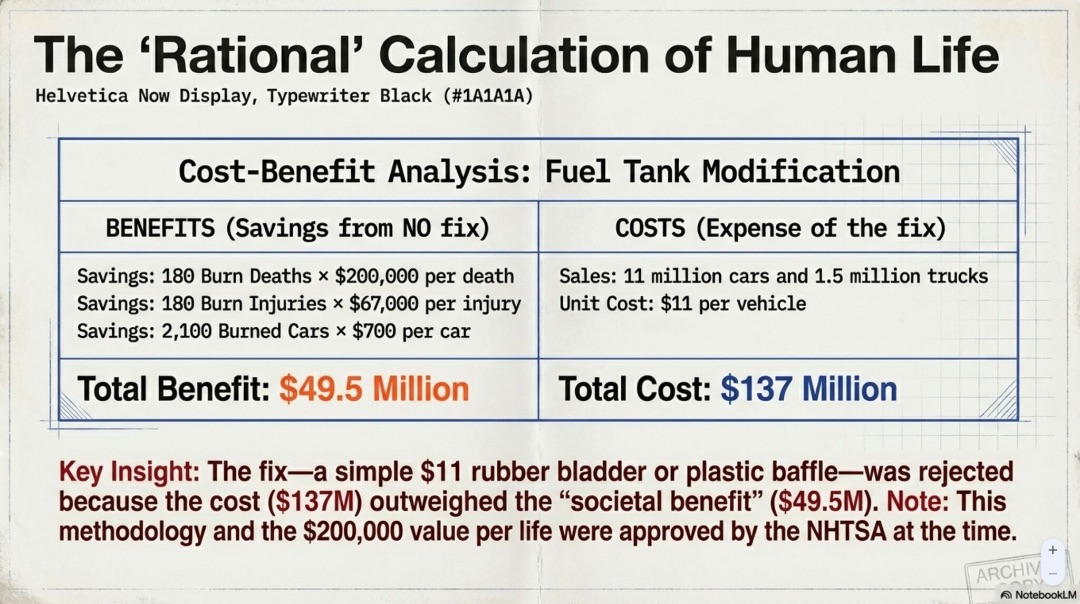

How Good People Perfect Ethical Blindness (The Ford Pinto Method)
Dennis Gioia was a Vietnam War protester who joined Ford in 1972 to "humanize the system from within." Two years later, as Recall Coordinator, he helped keep the fire-prone Pinto on the road. He didn't turn evil. He got efficient.
𝗦𝘁𝗲𝗽 𝟭: 𝗖𝗿𝗲𝗮𝘁𝗲 𝗜𝗺𝗽𝗼𝘀𝘀𝗶𝗯𝗹𝗲 𝗖𝗼𝗻𝘀𝘁𝗿𝗮𝗶𝗻𝘁𝘀
Ford's "Limits of 2000": maximum 2,000 pounds, $2,000 cost, 25 months development (vs. usual 43). Run processes in parallel. Freeze design before crash tests show tanks rupturing at 31 mph. Can't have ethical concerns about data you're structurally prohibited from acting on.
𝗦𝘁𝗲𝗽 𝟮: 𝗠𝗼𝗻𝗲𝘁𝗶𝘇𝗲 𝗗𝗲𝗮𝘁𝗵
Ford declined an $11 tank fix using NHTSA's official cost-benefit script: • Costs: 12.5M vehicles × $11 = $137M • Benefits: 180 deaths (@$200K) + 180 injuries (@$67K) + 2,100 wrecks (@$700) = $49.5M.
Once government assigns life a price tag, it's not moral calculus just math.
𝗦𝘁𝗲𝗽 𝟯: 𝗧𝗿𝘂𝘀𝘁 𝗬𝗼𝘂𝗿 𝗦𝗰𝗿𝗶𝗽𝘁𝘀
Managing hundreds of cases, Gioia developed "fire department mentality": put out big fires, spit on small ones. The Pinto? A small fire. His mental script contained no ethical dimension it filtered moral relevance as noise. Cognitive efficiency at its finest.
𝗦𝘁𝗲𝗽 𝟰: 𝗦𝗮𝗻𝗶𝘁𝗶𝘇𝗲 𝗟𝗮𝗻𝗴𝘂𝗮𝗴𝗲
Ford's legal team banned "corporate admission of culpability":
"Problem" → "Condition"
"Failure" → Forbidden
A "condition" needs analysis. A "failure killing people" demands action and uncomfortable self-reflection.
𝗦𝘁𝗲𝗽 𝟱: 𝗘𝗺𝗯𝗿𝗮𝗰𝗲 𝗦𝗼𝗰𝗶𝗮𝗹𝗶𝘇𝗮𝘁𝗶𝗼𝗻
In under two years, the protester cut his hair, adopted "us vs. them" toward regulators, bought a Pinto, and sold one to his sister. His "insider script" overwrote his "outsider script." His values didn't disappear he just had no cognitive pathway to apply them.
𝗦𝘁𝗲𝗽 𝟲: 𝗠𝘂𝘁𝗲 𝗘𝗺𝗼𝘁𝗶𝗼𝗻
Visiting the "Chamber of Horrors" crash depot, seeing a burned Pinto triggered visceral disgust. Gioia proposed a recall. But in the meeting, he "came to his senses" colleagues hadn't shared the emotion, the case didn't meet script criteria. He voted against his own recommendation.
Feeling vs. script? Script wins.
𝗦𝘁𝗲𝗽 𝟳: 𝗖𝗼𝗻𝗳𝘂𝘀𝗲 𝗖𝗼𝗺𝗽𝗹𝗶𝗮𝗻𝗰𝗲 𝘄𝗶𝘁𝗵 𝗖𝗼𝗻𝘀𝗰𝗶𝗲𝗻𝗰𝗲
Ford was legal. They followed NHTSA standards. But there's a hierarchy:
🔻 Legality → Ford ✓
🔻 Ethics (industry standards) → Ford ✓
🔻 Morality (individual conscience) → Oops.
Achieve levels 1 and 2, ignore level 3. Conscience is subjective. Standards are objective!
𝗧𝗵𝗲 𝗜𝗻𝘃𝗶𝘁𝗮𝘁𝗶𝗼𝗻
Gioia wasn't bad. He was a fallible information processor optimized for cognitive economy.
Like all of us.
When did your autopilot last steer you past an ethical boundary?
Or better: When did you last check?
If you can't remember, it's working perfectly.
16-01-2026

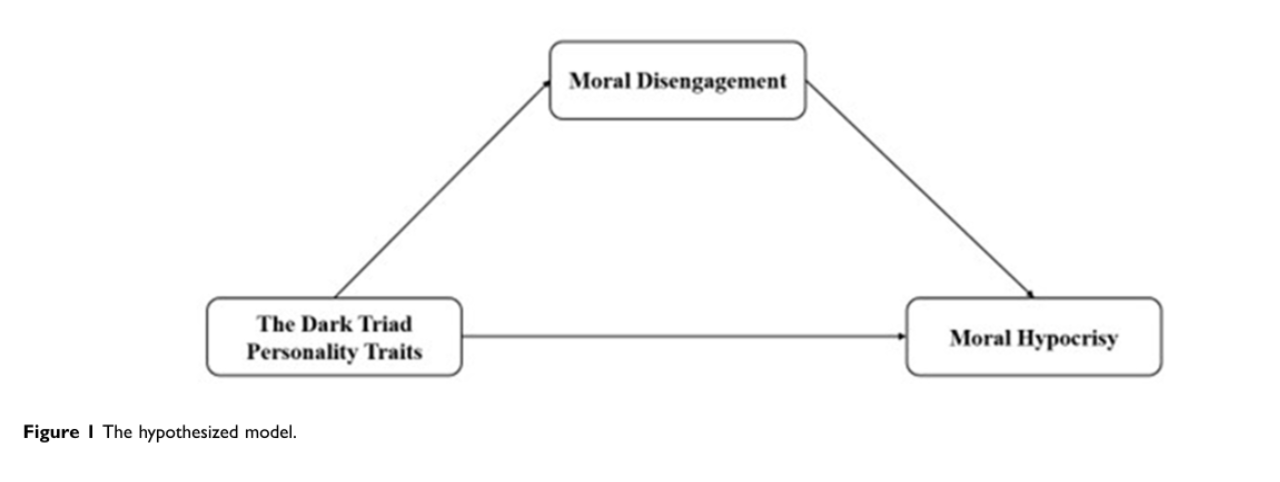

A manager held a town hall about work-life balance. He praised the importance of boundaries, and emphasized that "no email is urgent enough to ruin your evening." Three hours later, he sent a message to his team: Need this by tomorrow morning.
New research explains why: roughly 50% of people practice moral hypocrisy. Leaders score significantly higher. If that makes you defensive, you're proving the point.
𝗧𝗵𝗲 𝗲𝘃𝗲𝗿𝘆𝗱𝗮𝘆 𝗽𝗮𝘁𝘁𝗲𝗿𝗻 𝘆𝗼𝘂 𝗱𝗼𝗻'𝘁 𝗻𝗼𝘁𝗶𝗰𝗲:
Your missed deadline = "I was overwhelmed." Their missed deadline = "They're unreliable." Your interruption = "Important insight." Their interruption = "Disrespectful." Your failure = "Circumstances were impossible." Their failure = "Poor performance." Criticism of you = persecution. Accountability = unfairness. You're facing a "witch hunt."
𝗪𝗵𝘆 𝗹𝗲𝗮𝗱𝗲𝗿𝘀 𝗮𝗿𝗲 𝘄𝗼𝗿𝘀𝗲:
Three traits predict moral hypocrisy: manipulation, narcissism, and lack of empathy. These are overrepresented in senior positions – not because leaders are bad people, but because they help you climb. They make you good at politics. They help you make tough calls without guilt. And they make you a hypocrite. 😉
𝗪𝗵𝗮𝘁 𝘆𝗼𝘂 𝗱𝗼 𝘄𝗶𝘁𝗵𝗼𝘂𝘁 𝗻𝗼𝘁𝗶𝗰𝗶𝗻𝗴:
You demand transparency while operating in secrecy. You preach accountability while deflecting blame. You expect your team to follow rules you routinely break. You call it "strategic flexibility." You'd call it "unprofessional" if they did it.
The dangerous part? You genuinely believe you hold yourself to higher standards. The research shows the opposite.
𝗪𝗵𝘆 𝘁𝗵𝗶𝘀 𝗵𝗮𝗽𝗽𝗲𝗻𝘀:
Your brain develops automatic rationalizations: "I had to make a difficult decision" = I'm not responsible. "I carry enormous responsibility" = My mistakes matter less. "I see the big picture" = Rules apply differently to me. You're not lying. You're not aware you're doing it.
𝗔𝗻𝘀𝘄𝗲𝗿 𝗵𝗼𝗻𝗲𝘀𝘁𝗹𝘆:
1️⃣ When did you last justify behavior you'd condemn in your team?
2️⃣ When did you claim "persecution" when others would call it "accountability"?
3️⃣ Which recent tough call would you defend if your successor made the identical decision?
4️⃣ How many times have you said "this is different" when it wasn't?
𝗧𝗵𝗲 𝗿𝗲𝗮𝗹 𝘁𝗲𝘀𝘁:
Show this post to your team. Ask if they recognize these patterns. If you're tempted to dismiss their feedback because they "don't understand the complexity of your role," you've just demonstrated the problem.
𝗧𝗵𝗲 𝘄𝗮𝘆 𝗼𝘂𝘁:
Better structures. Hold leadership accountable. Apply rules equally. Make "I carry great responsibility" mean higher standards, not lower ones.
The research is attached. What structures in your organization make it easier for leaders to rationalize hypocrisy?
Link to article: https://pmc.ncbi.nlm.nih.gov/articles/PMC11890305/
15-01-2026

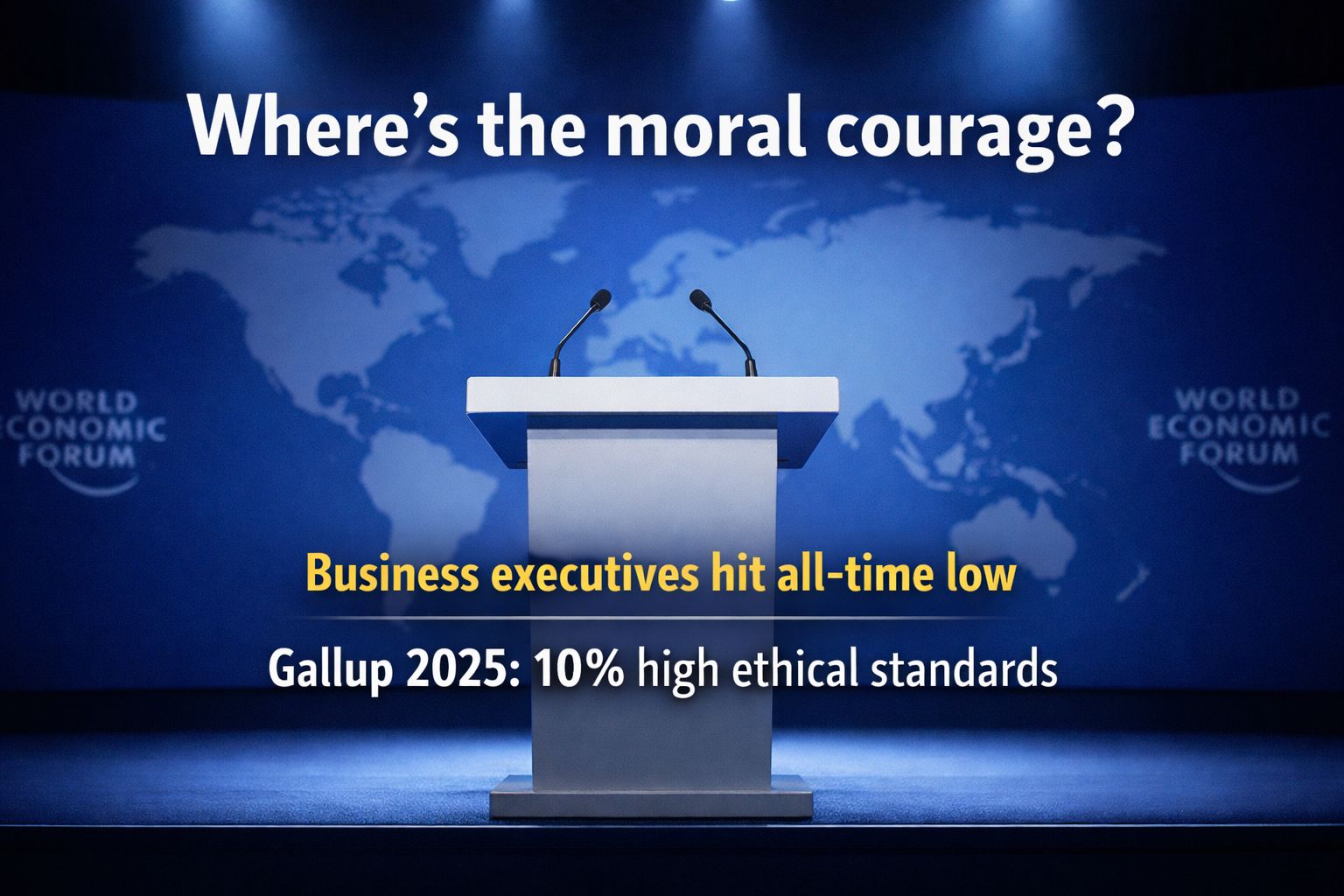

Gavin Newsom joked he'd bring kneepads to Davos for all the executives bending the knee to Trump. He wasn't wrong.
New Gallup data shows business executives just hit an all-time low for honesty and ethics. Lower than they've ever been. Lower than politicians in many rankings. Think about that. These are people paid enormous sums – allegedly because they're so crucial, so strategic, so valuable to their companies and economies. And yet when it matters? When authoritarianism knocks? Silence. Or worse – compliance.
The same leaders who preach "values" and "purpose" in their annual reports can't seem to locate their backbone when it counts. We like to blame individual CEOs, but here's the uncomfortable truth: We built this. Business schools, leadership programs, executive education, consulting firms – we promised we were developing leaders, teaching ethics, responsibility, courage.
What did we actually cultivate? Greed, narcissism, risk aversion, and a generation of CEOs who apparently need kneepads more than they need principles. The Gallup numbers aren't surprising – they're a report card. And we're failing it.
Time to rebuild from scratch, with actual courage at the center.
13-01-2026



𝗘𝘅𝗰𝗲𝗹𝗹𝗲𝗻𝗰𝗲 𝗥𝗲𝗾𝘂𝗶𝗿𝗲𝘀 𝗥𝗲𝗳𝘂𝘀𝗮𝗹
Most companies don’t fail because they lack values. They fail because they lack the discipline to refuse.
Yesterday I argued that organizational excellence is an inner standard, not a borrowed truth. That purpose must become a logic of action, not protective armor. Two companies show what this looks like in practice.
Starbucks: When Good Intentions Drift
In 2018, Starbucks introduced a “straw-less lid” in response to public concern about plastic pollution. The initiative was widely praised.
There was one problem: the new lid used more plastic than the old lid-and-straw combination.
Starbucks argued the material was more recyclable. Critics noted that only a small fraction of plastic is actually recycled, with much of it exported, displacing responsibility rather than resolving it.
The contrast is sufficient.
Patagonia: Excellence as an Inner Standard
When Patagonia changed its mission to “We’re in business to save our home planet,” employees immediately asked uncomfortable questions: What does this require us to stop doing?Where will we refuse growth? What trade-offs now follow?
That reaction matters. It shows the mission was not aspirational language. It articulated an inner standard that already existed.
Patagonia’s history is a pattern of strategic refusal.
In 2011, the company launched “Don’t Buy This Jacket,” explicitly discouraging consumption and urging customers to repair, reuse, and buy less. This was not a campaign. It was a constraint on revenue in service of coherence.
When Patagonia developed an environmentally superior wetsuit material, it shared it openly with competitors, refusing advantage because its responsibility was solving environmental problems, not winning through sustainability signaling.
In 2022, founder Yvon Chouinard transferred ownership to a trust and non-profit, directing all future profits toward environmental causes. Not rhetoric. Governance. Capital allocation. Irreversible commitment.
Patagonia does not compete on moral claims. It competes on a distinct form of excellence: using business to solve environmental problems.
The difference is not better values.
It is knowing what form of goodness is yours to achieve, and accepting that this requires refusing everything else.
Patagonia’s purpose functions as a logic of action. It disciplines growth, guides refusal, and makes difficult trade-offs livable rather than heroic.
The test is simple:
Does your purpose name what you’re responsible for becoming excellent at, or does it merely describe what you care about?
Excellence is an inside-out achievement. It cannot be borrowed.
Organizations, like people, count only if they choose to.
12-01-2026



𝗙𝗼𝗿𝗴𝗲𝘁 𝗣𝘂𝗿𝗽𝗼𝘀𝗲 𝗦𝘁𝗮𝘁𝗲𝗺𝗲𝗻𝘁𝘀. 𝗘𝘅𝗰𝗲𝗹𝗹𝗲𝗻𝗰𝗲 𝗜𝘀 𝗮𝗻 𝗜𝗻𝘀𝗶𝗱𝗲-𝗢𝘂𝘁 𝗔𝗰𝗵𝗶𝗲𝘃𝗲𝗺𝗲𝗻𝘁.
Most corporate purpose statements are strategic liabilities, not assets. They create the appearance of responsibility while quietly eroding organizations’ capacity to act coherently under pressure.
There is a quiet malaise in contemporary organizations. You feel it in strategy workshops and sustainability reports that sound right yet feel hollow. It is not a lack of intelligence or goodwill, but a deeper unease about inwardness. Many organizations no longer trust that, if they look inside, beyond metrics and stakeholder expectations, they will find a standard strong enough to guide action. So they turn outward. They borrow language, imitate best practices, and anchor legitimacy in ratings and benchmarks. 𝗣𝘂𝗿𝗽𝗼𝘀𝗲 𝗯𝗲𝗰𝗼𝗺𝗲𝘀 𝗮 𝗽𝗿𝗼𝘁𝗲𝗰𝘁𝗶𝘃𝗲 𝗮𝗿𝗺𝗼𝗿: something to signal alignment without risking commitment. The result is not irresponsibility but incoherence. And without coherence, excellence is impossible.
𝗢𝗿𝗴𝗮𝗻𝗶𝘇𝗮𝘁𝗶𝗼𝗻𝗮𝗹 𝗲𝘅𝗰𝗲𝗹𝗹𝗲𝗻𝗰𝗲 𝗶𝘀 𝗮𝗻 𝗶𝗻𝗻𝗲𝗿 𝘀𝘁𝗮𝗻𝗱𝗮𝗿𝗱: a tacit sense of what the organization is responsible for becoming good at in the world. Like integrity in a person, it cannot be copied or reverse-engineered. When this inner standard is absent, strategy becomes reactive and values rhetorical. When it is present, performance follows as a consequence, not a substitute.
The hardest work of excellence is not doing more good things. It is saying no to good things that are not yours to do. Organizations without a clear inner standard become tractable and are pulled toward attractive causes and well-meaning demands that fragment attention and dilute responsibility. Strategic maturity begins with refusal.
This is why so much corporate purpose fails. Much of it consists of borrowed truths: values imported from reports, missions reverse-engineered from stakeholder maps, ambitions shaped by what appears legitimate. These commitments may be well intentioned, but a purpose that is not owned cannot guide difficult decisions. Speaking a foreign truth - even a fashionable one -creates the appearance of responsibility while quietly eroding the organization’s capacity to act coherently under pressure.
Excellence is not a zero-sum game. When a firm knows what it is for, it no longer competes on moral signaling. It contributes a distinct form of value to an ecosystem of differences. 𝗖𝗹𝗮𝗿𝗶𝘁𝘆 𝗶𝗻𝘃𝗶𝘁𝗲𝘀 𝗰𝗼𝗹𝗹𝗮𝗯𝗼𝗿𝗮𝘁𝗶𝗼𝗻. Coherence enables complementarity. Integrity scales.
This is why purpose cannot remain a speech act. It must become a logic of action; visible in resource allocation, governance, and strategic trade-offs.
The real question is not whether your organization has a purpose statement. It is whether it has the courage to act from an inner standard of excellence and accept the consequences.
Organizations, like people, count only if they choose to.
10-01-2026

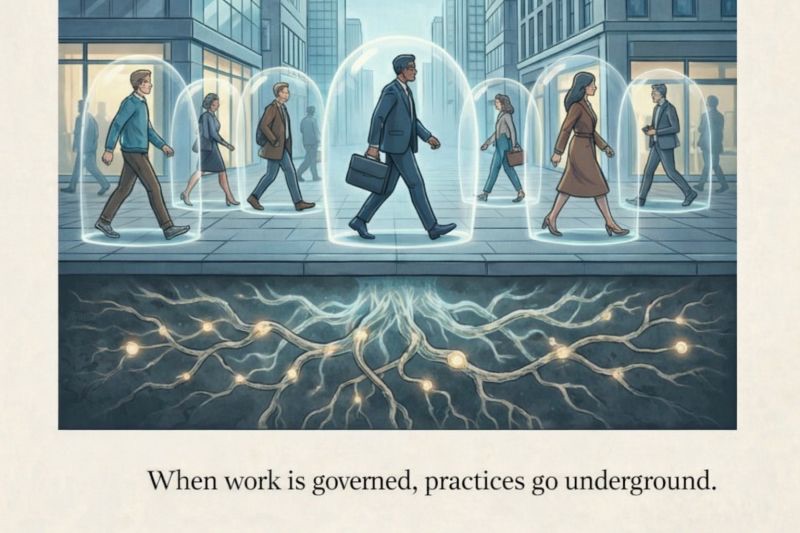

𝗪𝗵𝘆 𝘆𝗼𝘂𝗿 𝗥𝗲𝘀𝗽𝗼𝗻𝘀𝗶𝗯𝗹𝗲 𝗔𝗜 𝗽𝗿𝗼𝗴𝗿𝗮𝗺 𝗺𝗮𝗸𝗲𝘀 𝗵𝗮𝗿𝗺𝗳𝘂𝗹 𝗹𝗮𝘂𝗻𝗰𝗵𝗲𝘀 𝗺𝗼𝗿𝗲 𝗹𝗶𝗸𝗲𝗹𝘆
A healthcare model flags Black patients as “high risk” at half the rate of white patients with identical symptoms. The team knows. Legal says the bias is “within acceptable parameters.” Marketing wants to launch in three weeks. The engineer who raised the issue is told to document the limitation and move on. If you have ever sat in a meeting where a serious concern was formally acknowledged and then quietly ignored, you already know this moment. That is not a documentation failure. It is 𝗲𝘁𝗵𝗶𝗰𝗮𝗹 𝗷𝘂𝗱𝗴𝗺𝗲𝗻𝘁 𝗯𝗲𝗶𝗻𝗴 𝘀𝘁𝗿𝘂𝗰𝘁𝘂𝗿𝗮𝗹𝗹𝘆 𝗻𝗲𝘂𝘁𝗿𝗮𝗹𝗶𝘇𝗲𝗱.
In my last post, I described what Charles Taylor calls disembedding: a condition in which moral judgment is no longer anchored in a shared world but pushed inside the individual, while collective action is governed by procedures and control. This is what that condition looks like 𝗨𝗣 𝗖𝗟𝗢𝗦𝗘, inside everyday AI work. “Responsible AI” programs so often feel hollow because responsibility is treated as something to be 𝗺𝗮𝗻𝗮𝗴𝗲𝗱. AI development becomes a production activity: outputs are delivered, risks are mitigated, processes are followed.
But responsibility does not live in procedures. It lives in 𝗮𝗻𝘀𝘄𝗲𝗿𝗮𝗯𝗶𝗹𝗶𝘁𝘆: the experience of having to justify one’s judgment to people whose respect matters, not just to people with authority. You can see that answerability disappear under pressure. Epistemic honesty collapses into “just ship it.” Judgment under uncertainty becomes “let legal decide.” Restraint gives way to “if we don’t build it, someone else will.” None of this requires bad intentions. It is simply what happens when judgment is treated as subjective and therefore replaceable by process.
AI development is not a responsible practice by default. It only briefly becomes one when 𝗱𝗶𝘀𝘀𝗲𝗻𝘁 𝗶𝘀 𝗽𝗿𝗼𝘁𝗲𝗰𝘁𝗲𝗱, timelines can be questioned, and stopping a launch is a real possibility rather than a theoretical option. Those moments are fragile. As institutional pressures dominate, judgment is routed into process and responsibility 𝗹𝗲𝗮𝗸𝘀 𝗼𝘂𝘁 𝗼𝗳 𝘁𝗵𝗲 𝘄𝗼𝗿𝗸 𝗶𝘁𝘀𝗲𝗹𝗳.
So let me be explicit. If you are in AI leadership and metrics consistently outweigh judgment, if “no” is not a live option, if timelines cannot be challenged, then you are not creating the conditions for responsibility. 𝗬𝗼𝘂 𝗮𝗿𝗲 𝗽𝗿𝗲𝘃𝗲𝗻𝘁𝗶𝗻𝗴 𝘁𝗵𝗲𝗺. Test it in your next AI review meeting by asking one simple question: what would it actually take for someone in this room to successfully stop this launch? If the honest answer is “nothing could stop it,” you are managing production, not enabling responsible practice.
When work is governed, 𝗽𝗿𝗮𝗰𝘁𝗶𝗰𝗲𝘀 𝗴𝗼 𝘂𝗻𝗱𝗲𝗿𝗴𝗿𝗼𝘂𝗻𝗱. Responsibility is not something you add to a system; it is what emerges when 𝗷𝘂𝗱𝗴𝗺𝗲𝗻𝘁 is no longer treated as a threat to control.
08-01-2026

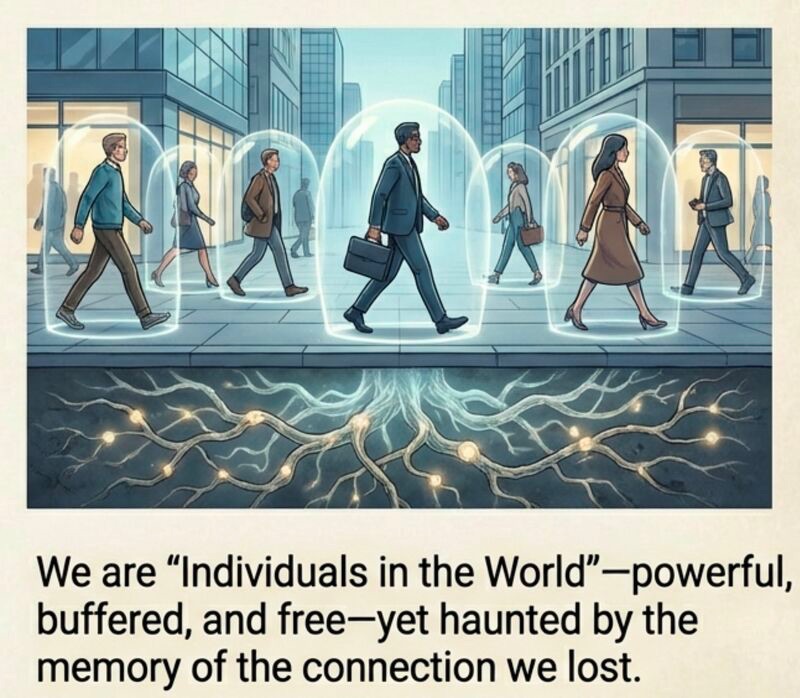

𝗙𝗿𝗼𝗺 𝗜𝗻𝗱𝗶𝘃𝗶𝗱𝘂𝗮𝗹 𝗙𝗿𝗲𝗲𝗱𝗼𝗺 𝘁𝗼 𝗛𝘂𝗺𝗮𝗻 𝗙𝗹𝗼𝘂𝗿𝗶𝘀𝗵𝗶𝗻𝗴
What if the way we think about “being an individual” is making us worse at work and worse at being human?
We take our modern sense of self for granted. We assume we are 𝗶𝗻𝗱𝗶𝘃𝗶𝗱𝘂𝗮𝗹𝘀 𝗳𝗶𝗿𝘀𝘁: autonomous, self-directing, separate. This feels like human nature. But philosopher Charles Taylor argues something more unsettling: modern individualism is a historical achievement. Understanding how it emerged reveals what we lost along the way.
The short version is this. We moved from a porous self to a buffered one. Taylor calls this shift 𝗧𝗵𝗲 𝗚𝗿𝗲𝗮𝘁 𝗗𝗶𝘀𝗲𝗺𝗯𝗲𝗱𝗱𝗶𝗻𝗴, a slow uncoupling of selves from shared worlds of meaning. For most of history, identity was membership. Meaning existed “out there” in places, rituals, and relationships. The world made claims on you. The modern self is different. We generate meaning internally.
What did we gain? Freedom, autonomy, power.
What did we lose?
We lost 𝗲𝗺𝗯𝗲𝗱𝗱𝗲𝗱 𝗰𝗼𝗻𝗻𝗲𝗰𝘁𝗶𝗼𝗻. Mutual obligation gave way to contracts, and with it the experience of being held by something larger than ourselves. We lost 𝗮 𝗰𝗼𝘀𝗺𝗼𝘀 𝘁𝗵𝗮𝘁 𝗰𝗮𝗹𝗹𝘀 𝘁𝗼 𝘂𝘀. Sacred meaning gave way to instrumental reason, and with it the sense that Higher Goods can command our devotion. And we lost 𝘁𝗵𝗲 𝗹𝗼𝘃𝗶𝗻𝗴 𝗴𝗮𝘇𝗲. Iris Murdoch described attention as love: the capacity to truly see another person, not as a means, but in their full reality. Transactional worlds erode the conditions for this kind of seeing.
Once you see this disembedding, you see it everywhere in organizational life. When belonging becomes “engagement,” purpose something leaders craft, and culture a design problem, we are operating inside this logic.
𝗧𝗵𝗲 𝘁𝗿𝗮𝗴𝗶𝗰 𝘁𝘄𝗶𝘀𝘁 is that modernity aimed at universal love. What we got was bureaucracy, systems, impersonal justice. The corruption of the best is the worst.
This cannot be fixed with better engagement strategies or purpose statements. What’s missing is not a technique. It is ontological.
If organizations are to serve human flourishing, they must allow work to connect us to goods beyond efficiency and profit, and allow forms of attention that let us truly see one another. This is not nostalgia. We do not want to give up autonomy. But we can learn to recognize what we are missing.
The question is not how do we design this.
The real question is what would we have to stop controlling to allow goods we did not create to matter again?
07-01-2026

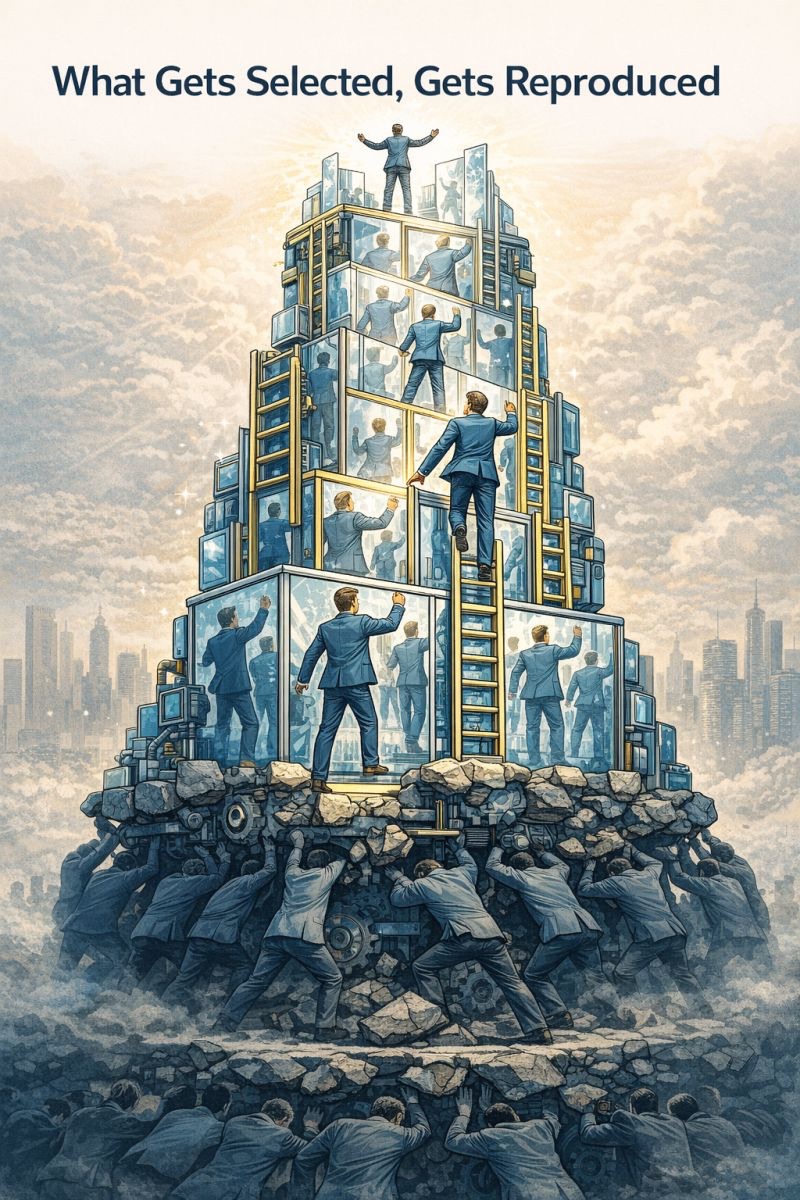

08-01-2026
𝗪𝗵𝘆 𝗪𝗲 𝗞𝗲𝗲𝗽 𝗖𝗵𝗼𝗼𝘀𝗶𝗻𝗴 𝗡𝗮𝗿𝗰𝗶𝘀𝘀𝗶𝘀𝘁𝗶𝗰 𝗟𝗲𝗮𝗱𝗲𝗿𝘀
𝗔𝗻 𝗘𝘅𝗮𝗺𝗽𝗹𝗲 𝗼𝗳 𝗦𝗼𝗰𝗶𝗮𝗹 𝗖𝗿𝗶𝘁𝗶𝗾𝘂𝗲
Adam Grant recently reviewed robust evidence showing that 𝗻𝗮𝗿𝗰𝗶𝘀𝘀𝗶𝘀𝘁𝘀 are systematically selected into leadership roles across sectors and time. Taken at face value, this looks like a problem of flawed individuals and poor judgment.
But this is precisely where 𝗦𝗼𝗰𝗶𝗮𝗹 𝗖𝗿𝗶𝘁𝗶𝗾𝘂𝗲 needs to begin rather than end.
A growing body of research shows that narcissists in leadership are not random anomalies. They are associated with strategic volatility, excessive risk taking, inflated compensation, and deteriorating organizational cultures. Yet they rise not despite these patterns, but often because their traits align with what organizations actively reward: confidence, dominance, visibility, and the performance of control.
This alignment is not accidental.
Contemporary organizations operate within a broader cultural framework that celebrates leadership as an individual achievement. The language of leadership has become moralized and celebratory. It foregrounds personal excellence while obscuring hierarchy, conflict, and structural power. Within such a framework, certain traits do not merely pass selection thresholds. They signal legitimacy.
Here Sally Haslanger offers a deeper diagnostic lens. She describes ideology as a 𝗰𝘂𝗹𝘁𝘂𝗿𝗮𝗹 𝘁𝗲𝗰𝗵𝗻𝗲́: a background system of norms, meanings, and practices that shapes what feels natural, admirable, and justified. In neoliberal management cultures, meritocracy, individual choice, and market discipline define what good leadership looks like.
Translated into organizational practice, this cultural techné becomes concrete:
1️⃣ selection systems focused on performance and projection rather than character
2️⃣ evaluation regimes that individualize success and failure
3️⃣ reward structures with steep vertical pay gaps that normalize entitlement
None of this requires organizations to want narcissists. But together, these schemas and practices systematically produce conditions in which narcissists are more likely to emerge, be selected, and be reproduced.
This is why critiques that stop at toxic leaders miss the point. The recurring harms associated with narcissistic leadership, bullying, value extraction, excessive pay, organizational instability, are not merely the result of bad personalities. They are socially organized outcomes of how we define merit, authority, and success.
The real question is not why narcissists keep rising to the top. It is what kind of organizational and economic order makes this outcome so structurally inevitable, and so ideologically defensible.
For the connection between a leadership craze and neoliberal read this paper: https://www.academia.edu/download/76488135/26317877211036708.pdf
06-01-2026

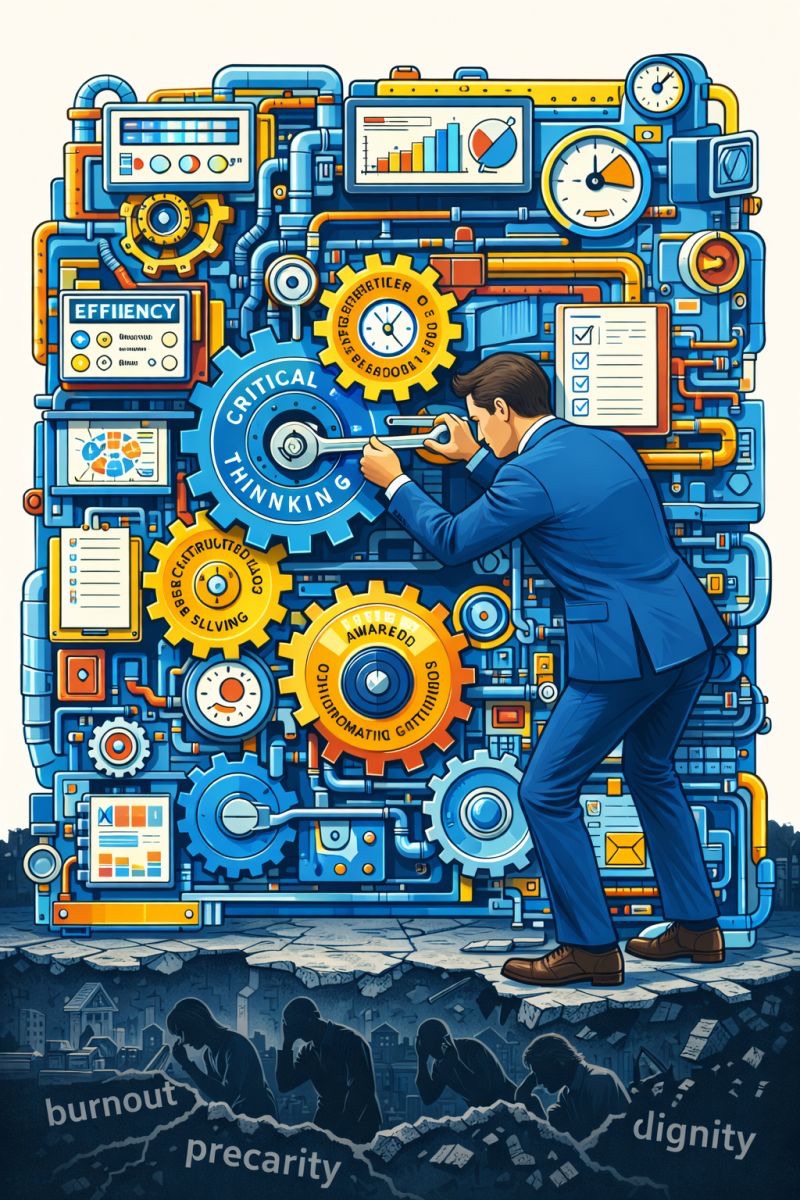

𝗕𝗲𝘆𝗼𝗻𝗱 𝘁𝗵𝗲 𝗕𝘂𝗹𝗹𝗲𝘁 𝗣𝗼𝗶𝗻𝘁𝘀: 𝗪𝗵𝗮𝘁 𝗠𝗰𝗞𝗶𝗻𝘀𝗲𝘆 𝗚𝗲𝘁𝘀 𝗪𝗿𝗼𝗻𝗴 𝗔𝗯𝗼𝘂𝘁 𝗖𝗿𝗶𝘁𝗶𝗰𝗮𝗹 𝗧𝗵𝗶𝗻𝗸𝗶𝗻𝗴
“Critical thinking” has become a corporate virtue, non negotiable, measurable, endlessly trainable. A recent report by McKinsey & Company is emblematic. It defines critical thinking as a bundle of competencies, structured problem solving, logical reasoning, bias awareness, and information gathering, meant to help workers “add value” beyond what machines can do.
This is not an innocent simplification of a rich intellectual tradition. It is a carefully engineered substitute. It sharpens analytical performance, but it neutralizes critique.
What disappears first is 𝘀𝗼𝗰𝗶𝗮𝗹 𝗰𝗿𝗶𝘁𝗶𝗾𝘂𝗲. From a dialectical critical realist perspective, this matters decisively. Problems such as burnout, precarity, or loss of dignity are not surface level malfunctions or individual cognitive errors. They are emergent effects of deeper social structures. Critical thinking does not start from isolated problems to be solved, but from identifying the underlying causal mechanisms that generate patterned suffering. As Emmanuel Renault argues, without such diagnosis people face cognitional injustice. They lack the concepts needed to understand why suffering persists and misrecognize systemic failures as personal shortcomings.
What disappears next is 𝗺𝗼𝗿𝗮𝗹 𝗰𝗿𝗶𝘁𝗶𝗾𝘂𝗲. Even when systems are accurately described, they still need to be judged. This is where ideology enters, not merely as distorted belief, but as a structuring force. Drawing on Sally Haslanger, ideology operates as a “cultural techné”, a background social operating system that organizes practices and legitimacy in ways that systematically advantage some while disadvantaging others. Reducing this to “understanding biases” individualizes what is fundamentally a morally objectionable social arrangement.
Finally, 𝗲𝗺𝗯𝗼𝗱𝗶𝗲𝗱 𝗰𝗿𝗶𝘁𝗶𝗾𝘂𝗲 vanishes almost entirely. Corporate models present critical thinking as disembodied cognition. Yet ideology and structure are lived, registered in exhaustion, anxiety, humiliation, and alienation. These experiences are not noise. They are signals that something is ontologically and morally wrong with the systems people inhabit.
None of this is missing by accident. Consulting exists to optimize and stabilize existing arrangements. A form of critical thinking that questions growth imperatives, power asymmetries, or legitimacy is not a skill here. It is a risk. What remains is a safe, instrumental version of critique, rigorous enough to feel serious, contained enough not to threaten the system that demands it.
The choice is stark. We can become ever more efficient technicians within systems that profit from our intellectual containment. Or we can reclaim critical thinking as a social, moral, and embodied practice, capable of exposing the structures that generate suffering, and of demanding their transformation.
04-01-2026

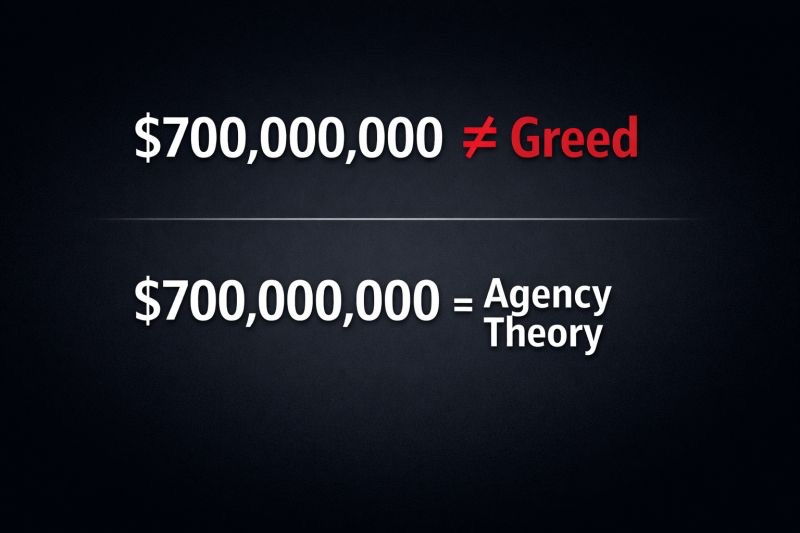

𝗪𝗵𝗲𝗻 𝗮 𝗪𝗮𝗹𝗹 𝗦𝘁𝗿𝗲𝗲𝘁 𝗯𝗮𝗻𝗸𝗲𝗿 𝗺𝗮𝗸𝗲𝘀 $𝟳𝟬𝟬 𝗺𝗶𝗹𝗹𝗶𝗼𝗻, 𝘁𝗵𝗮𝘁’𝘀 𝗻𝗼𝘁 𝗴𝗿𝗲𝗲𝗱. 𝗧𝗵𝗮𝘁’𝘀 𝗮𝗴𝗲𝗻𝗰𝘆 𝘁𝗵𝗲𝗼𝗿𝘆 𝘄𝗼𝗿𝗸𝗶𝗻𝗴 𝗽𝗲𝗿𝗳𝗲𝗰𝘁𝗹𝘆.
When gig workers have no security, no benefits, no voice, that’s not exploitation. That’s nexus-of-contracts theory in action.
When you hear “our people are our greatest asset” right before layoffs, that’s not hypocrisy. That’s human capital theory telling the truth: assets are interchangeable and treated as costs, not investments.
These aren’t failures of theory. These are theories working exactly as designed.
Agency theory treats the firm as a control problem solved through incentive alignment. The result is that $700 million becomes rational. Nexus-of-contracts theory treats the firm as a legal fiction optimized contract by contract. The result is gig workers without protection and suppliers squeezed until they break. Human capital theory treats people as portfolio assets managed to maximize returns and minimize costs. The result is interchangeable cost centers.
Even ESG frameworks mostly reframe the firm as a risk container. They rarely challenge the underlying picture.
𝗛𝗲𝗿𝗲’𝘀 𝘄𝗵𝗮𝘁 𝗮𝗹𝗹 𝗼𝗳 𝘁𝗵𝗲𝘀𝗲 𝘀𝘆𝘀𝘁𝗲𝗺𝗮𝘁𝗶𝗰𝗮𝗹𝗹𝘆 𝗲𝘅𝗰𝗹𝘂𝗱𝗲. If business can be understood as a moral practice, as argued by Robert C. Solomon, then firms are not property, legal fictions, or portfolios. They are entities that act, have effects, and systematically shape the people within them. They form character and cultivate or corrode virtues.
Once you accept this Aristotelian reading, the consequences are clear. Define the firm as property and responsibility collapses into compliance. Define it as contracts and moral action becomes irrational. Define it as a portfolio and formation becomes impossible.
The exclusion is not accidental. It is structural.
Now look at your last board deck. Count how many slides treat your organization as property to optimize, a portfolio to rebalance, or risks to contain. Then count how many treat it as a community that shapes human lives. That ratio is a confession.
Culture initiatives fail because your framework cannot recognize culture as constitutive. Trust programs feel hollow because trust is treated as technique, not virtue. Purpose statements ring false because purpose is categorized as instrumental. Legitimacy collapses even when metrics are green.
𝗕𝗲𝗳𝗼𝗿𝗲 𝘆𝗼𝘂 𝗹𝗮𝘂𝗻𝗰𝗵 𝗮𝗻𝗼𝘁𝗵𝗲𝗿 𝘁𝗿𝗮𝗻𝘀𝗳𝗼𝗿𝗺𝗮𝘁𝗶𝗼𝗻 𝗽𝗿𝗼𝗴𝗿𝗮𝗺, 𝗮𝘀𝗸 𝗼𝗻𝗲 𝗾𝘂𝗲𝘀𝘁𝗶𝗼𝗻. What kind of entity do you think a firm actually is?
Property. A legal fiction. A portfolio. Or a moral practice that forms people for better or worse?
Every slide in that board deck already contains your answer. And if it cannot account for moral agency, formation, or virtue as constitutive features, you are not managing reality. You are theorizing it out of existence.
03-01-2026

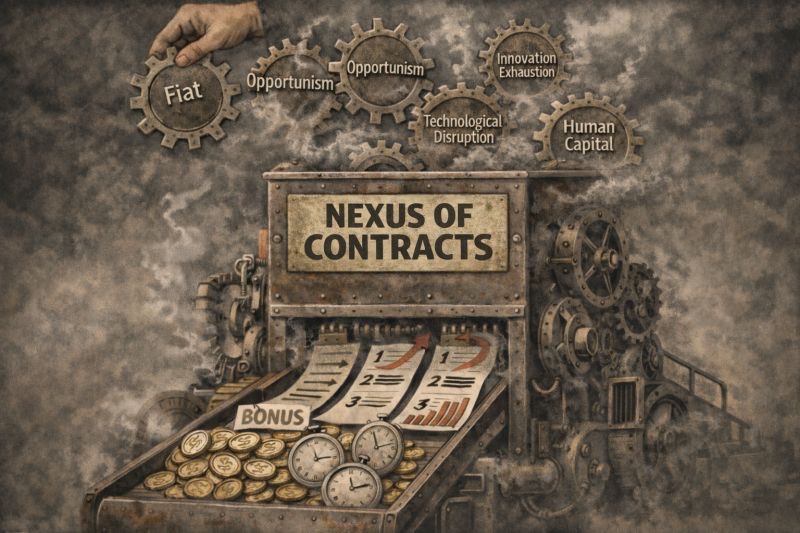

𝗪𝗵𝘆 𝗠𝗼𝘀𝘁 𝗧𝗵𝗲𝗼𝗿𝗶𝗲𝘀 𝗼𝗳 𝘁𝗵𝗲 𝗙𝗶𝗿𝗺 𝗖𝗮𝗻’𝘁 𝗘𝘅𝗽𝗹𝗮𝗶𝗻 𝗪𝗵𝗮𝘁 𝗖𝗼𝗺𝗽𝗮𝗻𝗶𝗲𝘀 𝗔𝗰𝘁𝘂𝗮𝗹𝗹𝘆 𝗔𝗿𝗲
Most theories of the firm can’t explain what companies actually are. Not because they are incomplete, but because they are designed to exclude what matters most.
After revisiting an Aristotelian reading of business, one thing becomes clear: if business can be understood as a moral practice, a reconstruction most forcefully articulated by Robert C. Solomon, why do modern organizations behave as if it couldn’t? The obstacle sits deeper than culture, incentives, or leadership. It sits in the dominant theories of the firm. These theories don’t fail accidentally. They are built to exclude reality by isolating one organising idea and treating everything else as irrelevant.
Shareholder theory reduces the firm to property. Agency theory reduces it to a control problem. Nexus-of-contracts theory dissolves it into a legal fiction. Human capital views turn it into a portfolio of skills. ESG logics - the supposed antidote - just reframe it as a risk container.
You might argue this is the point of theory: abstraction and reduction. But when a theory systematically erases the phenomenon it claims to explain, it no longer clarifies reality. It stabilises ideology.
What all of these approaches exclude is the firm as a moral actor in its own right. Not metaphorically, but actually: an entity that acts, has effects, is shaped by its actions, and shapes those within it. Once this possibility is ruled out, the consequences follow predictably. Firms can only be responsible via compliance. Work cannot be understood as formative. Trust becomes a technique rather than a virtue. Culture becomes a variable to manage rather than a moral reality to inhabit. Legitimacy collapses even when performance indicators are met, because the theory has already decided that none of this really counts.
If you’re in governance, strategy, or HR and this sounds abstract, look at your last board deck. Count how many slides treat the organization as property, portfolio, or risk profile. Then count how many treat it as a community that shapes human lives.
Once the firm is conceived as a machine, ethics becomes obeyance. Once it is conceived as property, responsibility is delegated. Once it is conceived as a contract, moral becomes irrational. Governance becomes cosmetic. Culture becomes brittle. Ethics programmes become hollow by design.
Before asking how to govern firms better, or how to make capitalism more humane, ask a more basic question: 𝗪𝗵𝗮𝘁 𝗸𝗶𝗻𝗱 𝗼𝗳 𝗲𝗻𝘁𝗶𝘁𝘆 𝗱𝗼 𝘆𝗼𝘂 𝘁𝗵𝗶𝗻𝗸 𝗮 𝗳𝗶𝗿𝗺 𝗮𝗰𝘁𝘂𝗮𝗹𝗹𝘆 𝗶𝘀? Because every other question assumes you’ve already answered this one.
02-01-2026

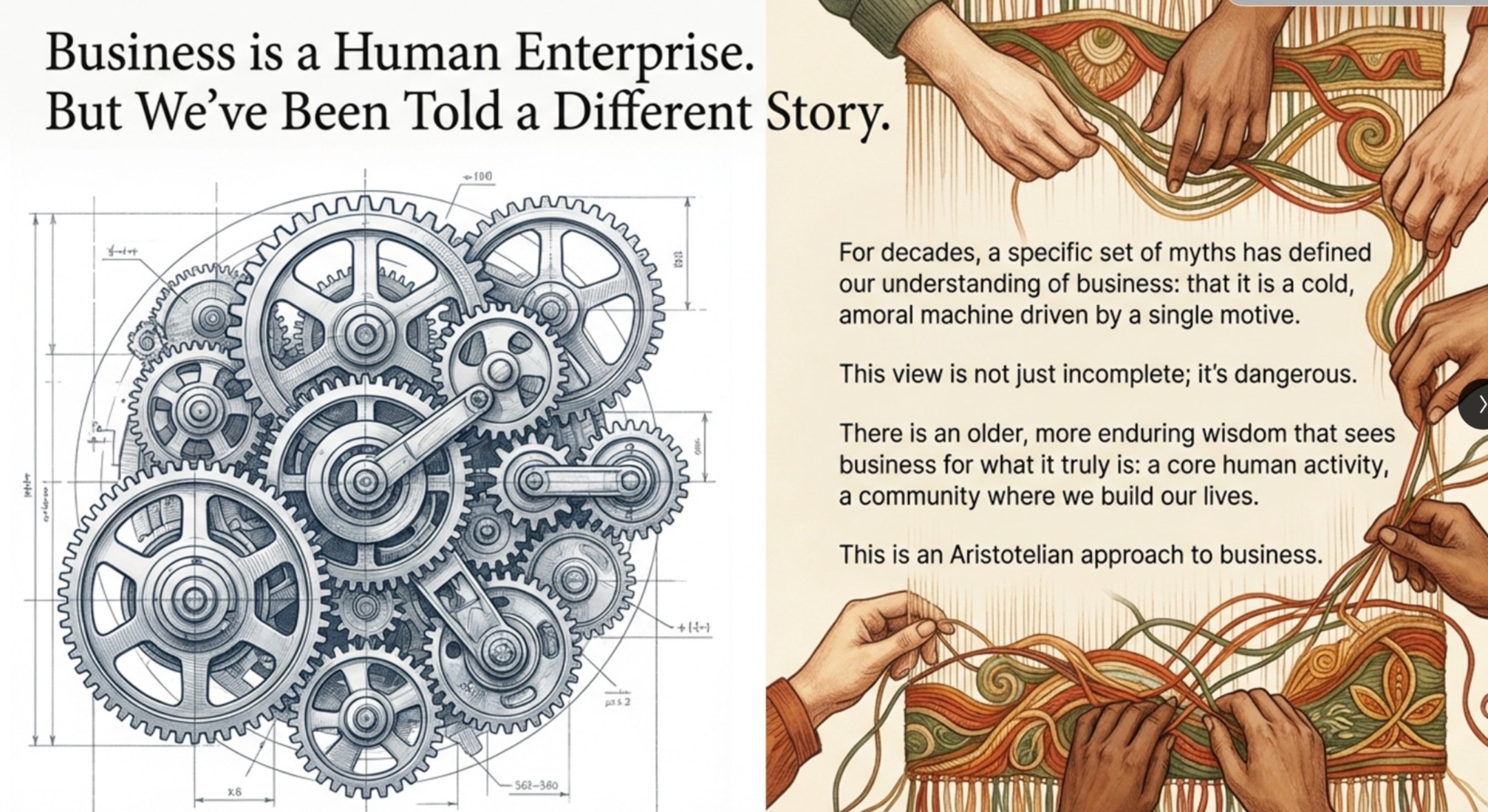

𝗙𝗼𝘂𝗿 𝗕𝘂𝘀𝗶𝗻𝗲𝘀𝘀 𝗧𝗿𝘂𝘁𝗵𝘀 𝗳𝗿𝗼𝗺 𝗮 𝗣𝗵𝗶𝗹𝗼𝘀𝗼𝗽𝗵𝗲𝗿 𝗪𝗵𝗼 𝗗𝗲𝘀𝗽𝗶𝘀𝗲𝗱 𝗖𝗼𝗺𝗺𝗲𝗿𝗰𝗲
We still repeat “it’s just business” as if it were wisdom. As if business were a morally exempt zone. As if human values dissolved once money entered the room. That assumption isn’t realism. It’s ideology and a durable one.
One of its sharpest critics lived 2,000 years ago. Aristotle despised commerce. He mistrusted profit-seeking, suspected exploitation everywhere, and misunderstood production so badly that he believed profit beyond costs must involve theft. Aristotle is not a convenient ally for modern capitalism. And yet, the philosopher who hated business most deeply may have seen more clearly than we do what business actually is.
𝗙𝗶𝗿𝘀𝘁: business didn’t escape ethics. We amputated it. Aristotle rejected a life split between character and economic activity. A life is a whole. Work is part of it. Today, we institutionalise fragmentation. People are asked to cultivate integrity privately while acting instrumentally at work. That separation corrodes the self. Work stops being a site of flourishing and becomes mere survival or advancement.
𝗦𝗲𝗰𝗼𝗻𝗱: the moment you describe your company as a machine, you’ve already failed ethically. “Legal fiction,” “value engine,” “operating model” are metaphors that remove moral agency. Aristotle’s claim is harder. Organizations are communities of practice. They shape character. A workplace is never neutral. It either cultivates good work that matters and feels alive or it erodes care, trust, and agency.
𝗧𝗵𝗶𝗿𝗱: the so-called profit motive isn’t a motive. It’s an alibi. Profit explains neither commitment nor creativity. It is a reward, not a reason. Treating it as a purpose creates a false opposition between doing well and doing good. When real needs are met well, wealth follows. When wealth becomes the goal, justice and meaning decay together.
𝗙𝗼𝘂𝗿𝘁𝗵: trust is not a tool but a test of courage. Organizations praise trust rhetorically while surrounding it with controls and “guardrails.” Trust is not a technique. It is a virtue. Which means risk, exposure, and giving up the fantasy of total oversight. If your first question is “but how do we control them?”, you already answered it.
Aristotle offers no soft consolation. He offers a harder claim. Business is a moral practice accountable to self, others, and the common good whether it admits it or not.
𝗧𝗵𝗲 𝗾𝘂𝗲𝘀𝘁𝗶𝗼𝗻: 𝗪𝗵𝗮𝘁 𝘀𝘂𝗿𝘃𝗶𝘃𝗲𝘀 𝗼𝗳 𝘆𝗼𝘂𝗿 𝗼𝗿𝗴𝗮𝗻𝗶𝘇𝗮𝘁𝗶𝗼𝗻 𝗼𝗻𝗰𝗲 𝗽𝗿𝗼𝗳𝗶𝘁 𝗶𝘀 𝗮 𝗿𝗲𝘄𝗮𝗿𝗱, 𝗻𝗼𝘁 𝗮 𝗿𝗲𝗮𝘀𝗼𝗻?
For a good read: Robert C. Solomon, Aristotle, Ethics and Business Organizations
30-12-2025



𝗖𝗮𝗻 𝘄𝗼𝗿𝗸 𝗯𝗲 “𝗴𝗼𝗼𝗱” 𝘄𝗵𝗲𝗻 𝘁𝗵𝗲 𝘄𝗼𝗿𝗸 𝗶𝘁𝘀𝗲𝗹𝗳 𝗶𝘀 𝗺𝗼𝗿𝗮𝗹𝗹𝘆 𝗾𝘂𝗲𝘀𝘁𝗶𝗼𝗻𝗮𝗯𝗹𝗲?
Harvard Business Review celebrates Bill Anderson and Bayer’s transformation: self-organization, empowerment, “the biggest management experiment of all time.” It is presented as progressive, future-oriented, and exemplary - a familiar narrative about the future of work.
At the same time, in 2024/25, a central glyphosate safety study was withdrawn after evidence of Monsanto ghostwriting, despite having underpinned EU approvals for more than twenty-five years. Bayer appeared as plaintiff against NGOs challenging the ten-year renewal of glyphosate. “Poison PR” investigations documented systematic profiling of over 3,000 organizations and 500 individuals, including scientists, UN experts, and civil society actors. Independent meta-analyses point to elevated NHL risk, ecological damage, and bee toxicity - contradicting the regulatory narrative long used to frame glyphosate as safe.
This is where the issue crystallizes. Organizations can introduce innovative structures, empowering work practices, and self-organized teams in which people take responsibility seriously. Yet if those same structures coexist with lobbying against pesticide reduction, the surveillance of critics, and the strategic shaping of scientific knowledge, a basic question cannot be avoided: responsibility for what, exactly?
Employees at Bayer now working under “Dynamic Shared Ownership” may share ownership over execution. But do they share ownership over strategic direction? Or are they co-owners of implementation while the substance of strategy remains beyond contestation? Structure follows strategy. The decisive issue is not the elegance of organizational design, but who defines strategy and who is institutionally entitled to challenge it.
This points to a deeper problem in how corporate transformation is narrated, especially by the business press. Why are such cases overwhelmingly framed as stories of “good work,” while underlying practices and strategic commitments remain bracketed? As long as shareholder primacy and the Friedman doctrine quietly define what counts as legitimate business, culture, empowerment, and purpose function as legitimation rather than accountability - as techniques of consent rather than structures of responsibility.
"Liberating" working conditions do not legitimize questionable activities. They can make work more humane, cultures more resilient, and processes more efficient. But they do not answer the question of what all this organizational capacity is ultimately used for.
That is why NGOs matter - not to critique org charts or management fashions, but to insist on the question that management journalism systematically defers: does this serve the whole, or only itself?
30-12-2025

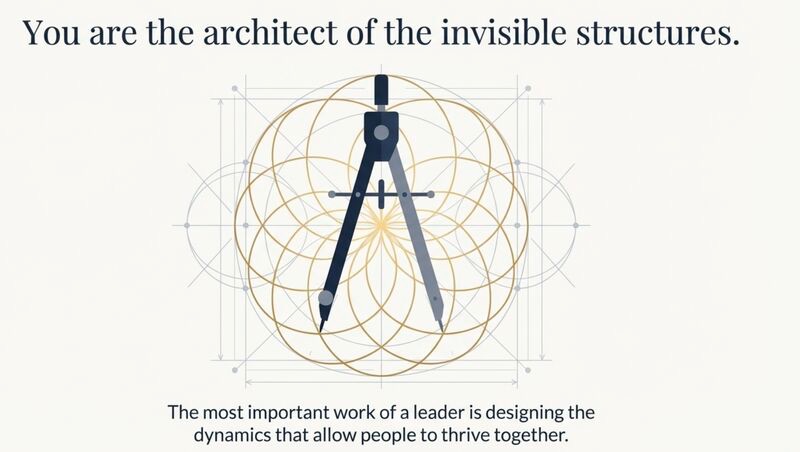

𝗬𝗼𝘂 𝗗𝗼𝗻’𝘁 𝗟𝗲𝗮𝗱 𝗣𝗲𝗼𝗽𝗹𝗲. 𝗬𝗼𝘂 𝗦𝗵𝗮𝗽𝗲 𝗥𝗲𝗹𝗮𝘁𝗶𝗼𝗻𝗮𝗹 𝗗𝘆𝗻𝗮𝗺𝗶𝗰𝘀.
We are still telling a tired story about leadership: the visionary who sees what others miss, the decisive actor who cuts through complexity, the charismatic figure who inspires change. This story is not just incomplete. It is dangerous. It centers leadership in individuals and blinds us to where power actually operates and harm quietly accumulates.
Here is what that story misses: you don’t lead people, you shape relational dynamics.
Philosophers and sociologists argue that relationships are not channels but real social entities. When leaders interact with others over time, they help bring relational patterns into existence, patterns that then act back on everyone involved.
Philosopher Alexis Elder shows why this already has ethical weight. In genuine friendship, a shared practice holds only as long as care, responsiveness, and mutual recognition are enacted. Nothing fuses. Nothing is guaranteed. Relationships are therefore morally meaningful and permanently fragile.
Sociologists Pierpaolo Donati and Margaret Archer show what happens when this logic scales. Sustained working relationships are never neutral. They tend toward care, trust, learning, and shared agency—or toward control, dependence, fear, and silence. 𝗖𝗮𝗿𝗲 𝗮𝗻𝗱 𝗱𝗼𝗺𝗶𝗻𝗮𝗻𝗰𝗲 𝗮𝗿𝗲 𝗻𝗼𝘁 𝗽𝗲𝗿𝘀𝗼𝗻𝗮𝗹 𝘁𝗿𝗮𝗶𝘁𝘀; 𝘁𝗵𝗲𝘆 𝗮𝗿𝗲 𝗿𝗲𝗹𝗮𝘁𝗶𝗼𝗻𝗮𝗹 𝘁𝗿𝗮𝗷𝗲𝗰𝘁𝗼𝗿𝗶𝗲𝘀.
Leadership does not primarily reside in decisions, charisma, or vision. It resides in the relational dynamics leaders normalize, reward, and leave unchallenged. Power is not a possession; it is a relational outcome, emerging when reciprocity gives way to asymmetry and fear replaces trust.
Leaders cannot control relationships, but they shape the conditions under which patterns stabilize. Over time, the relational climate they normalize determines whether people speak, take initiative, or comply in silence. When relationships are tended with care, they become generative, creating trust, shared meaning, and the moral resilience that expands learning, responsibility, courage, and collective intelligence.
This reframes leadership accountability. Leaders are not only responsible for what they decide, but for what the relationships under their authority reliably become over time.
The most consequential leadership question is therefore not “What did I decide?” but: 𝗪𝗵𝗮𝘁 𝗸𝗶𝗻𝗱 𝗼𝗳 𝗿𝗲𝗹𝗮𝘁𝗶𝗼𝗻𝗮𝗹 𝗱𝘆𝗻𝗮𝗺𝗶𝗰𝘀 𝗮𝗺 𝗜 𝗲𝗻𝗮𝗯𝗹𝗶𝗻𝗴—and 𝘄𝗵𝗮𝘁 𝗮𝗿𝗲 𝘁𝗵𝗲𝘆 𝗺𝗮𝗸𝗶𝗻𝗴 𝗽𝗼𝘀𝘀𝗶𝗯𝗹𝗲, 𝗼𝗿 𝗶𝗺𝗽𝗼𝘀𝘀𝗶𝗯𝗹𝗲, 𝗳𝗼𝗿 𝗽𝗲𝗼𝗽𝗹𝗲?
Leadership ends. Relational dynamics linger.
29-12-2025

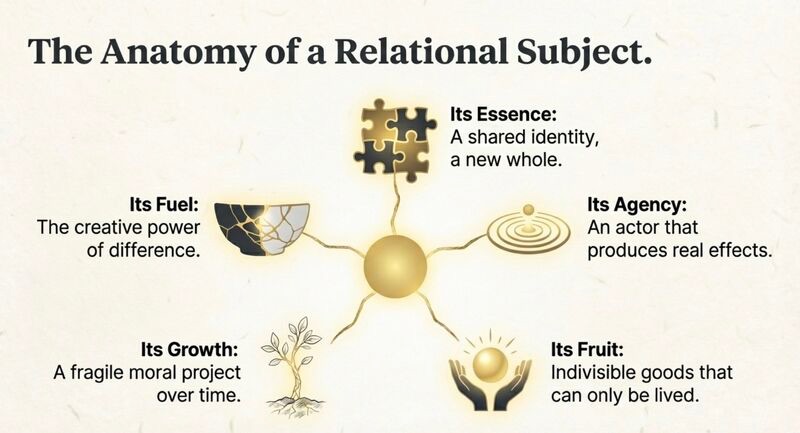

𝗙𝗶𝘃𝗲 𝗣𝗵𝗶𝗹𝗼𝘀𝗼𝗽𝗵𝗶𝗰𝗮𝗹 𝗧𝗿𝘂𝘁𝗵𝘀 𝗧𝗵𝗮𝘁 𝗪𝗶𝗹𝗹 𝗖𝗵𝗮𝗻𝗴𝗲 𝗛𝗼𝘄 𝗬𝗼𝘂 𝗦𝗲𝗲 𝗬𝗼𝘂𝗿 𝗙𝗿𝗶𝗲𝗻𝗱𝘀𝗵𝗶𝗽𝘀 (𝗕𝗲𝘆𝗼𝗻𝗱 𝘁𝗵𝗲 𝗛𝗮𝗹𝗹𝗺𝗮𝗿𝗸 𝗖𝗮𝗿𝗱)
Most people treat friendship like emotional infrastructure. Philosophy treats it like an ontological fact.
We usually think about friendship in comforting but thin terms: shared interests, mutual support, someone to call in a crisis. All true and still radically insufficient. Philosophers and sociologists take friendship far more seriously. So seriously, in fact, that they argue our relationships are not just bonds but real entities, capable of shaping who we are, what we owe each other, and what kind of good or harm enters the world through us.
🔹 You and your friend are not merely connected; you share an identity. Philosopher Alexis Elder argues that friendships are “wholes with friends as parts.” Not metaphorical. You remain distinct persons, but as friends you jointly constitute a real entity: the friendship itself. Think team, not fusion. Acts of care are therefore not pure self-sacrifice; they are concern for an expanded self.
🔹 Your relationship is a real thing and it produces effects. Sociologists Donati and Archer argue that society is not a container of relationships but is made of them. When two people form a bond, they create a “Relational Subject,” an emergent entity that produces outcomes in the world. These can be relational goods such as trust and care, or relational evils such as domination and exclusion.
🔹 The best things friendships create cannot be divided. Relational goods cannot be owned, traded, or split. They exist only within the relation itself and disappear when it dissolves. Friendship creates a form of wealth that cannot be accumulated or extracted, only lived.
🔹 Goodness is not always a precondition; sometimes it is the outcome. Elder holds a demanding view: genuine friendship requires basic moral decency. Donati’s view is more diagnostic. Real relationships are often morally mixed, and goodness is something relations may grow into or fail to. This raises a hard question: is friendship grounded in who we already are, or is it a fragile moral project that shapes us over time?
🔹 Friendship is not about finding your twin but about building a richer “us.” What makes friendship generative is difference: complementary strengths, perspectives, and limits. Sameness adds. Difference creates.
Conclusion: friendships are alive. They are real, shared entities that make us more than we are alone and introduce new forces into the world. This reframes responsibility. It is not enough to be a good friend. We are stewards of something we have jointly brought into existence. So the next time you sit across from a close friend, ask: 𝗪𝗵𝗮𝘁 𝗶𝘀 𝗼𝘂𝗿 𝗳𝗿𝗶𝗲𝗻𝗱𝘀𝗵𝗶𝗽 𝗽𝗿𝗼𝗱𝘂𝗰𝗶𝗻𝗴 𝗿𝗶𝗴𝗵𝘁 𝗻𝗼𝘄 — 𝗿𝗲𝗹𝗮𝘁𝗶𝗼𝗻𝗮𝗹 𝗴𝗼𝗼𝗱𝘀 𝗼𝗿 𝗿𝗲𝗹𝗮𝘁𝗶𝗼𝗻𝗮𝗹 𝗲𝘃𝗶𝗹𝘀?
28-12-2025

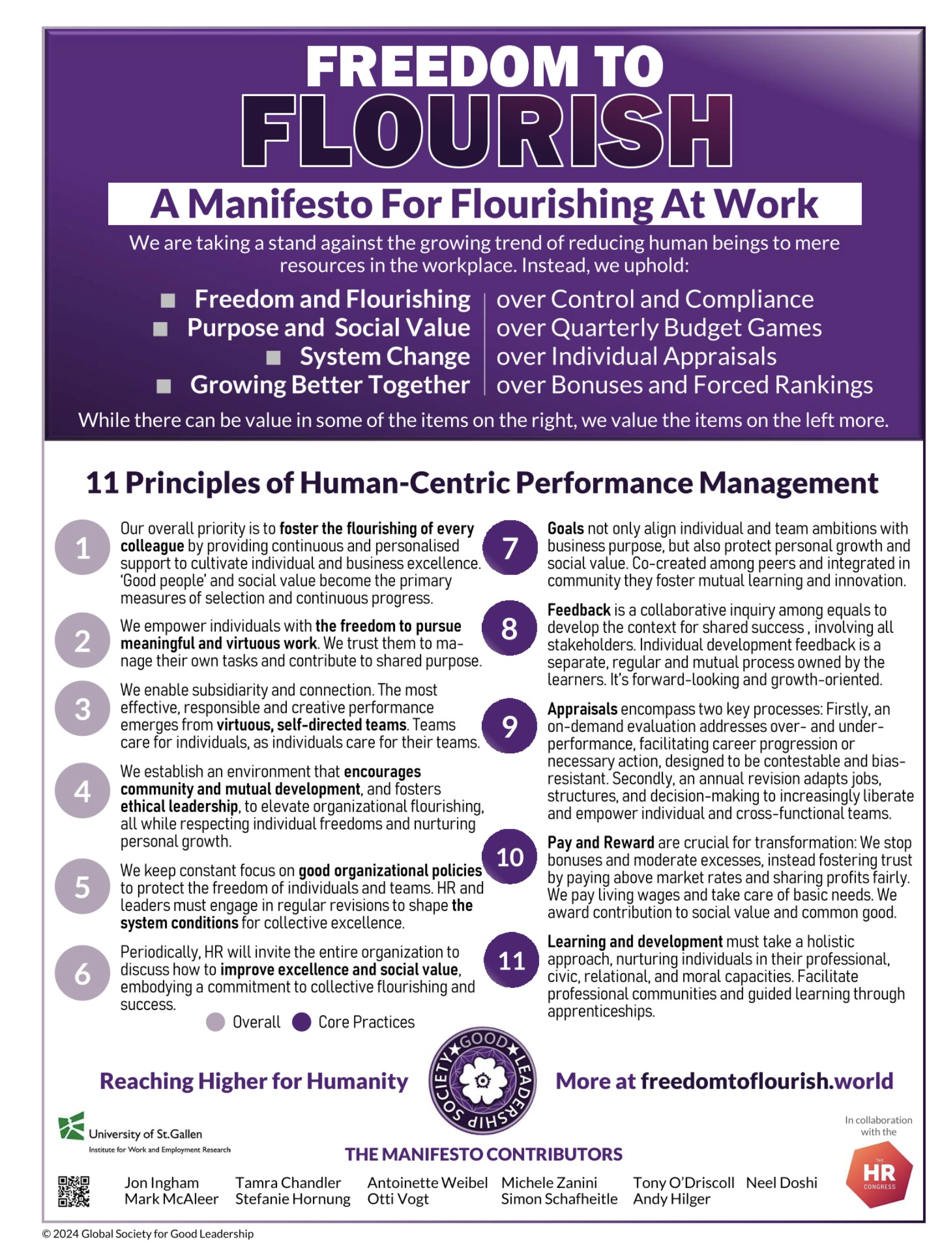

𝗙𝗿𝗼𝗺 𝗖𝗼𝗺𝗽𝗹𝗶𝗮𝗻𝗰𝗲 𝘁𝗼 𝗙𝗹𝗼𝘂𝗿𝗶𝘀𝗵𝗶𝗻𝗴: 𝗪𝗵𝘆 𝗛𝗥 𝗜𝘀 𝗦𝘁𝗶𝗹𝗹 𝗦𝗼𝗹𝘃𝗶𝗻𝗴 𝘁𝗵𝗲 𝗪𝗿𝗼𝗻𝗴 𝗣𝗿𝗼𝗯𝗹𝗲𝗺
Your company does not have a talent problem. It has a design problem. And calling people “human resources” is where that problem starts. Most workplaces fail not because people lack skills or motivation, but because they rest on the wrong moral assumption: that work exists to extract performance rather than to create conditions for human flourishing and contribution to a common good. “Human resources” is not a neutral label; it encodes a logic of compliance, control, and optimisation.
The Flourishing Manifesto challenges this logic at its roots. It does not offer better engagement tools. It questions how work is governed. Four principles are particularly unsettling for organisations still committed, often unconsciously, to compliance.
𝗣𝗮𝘆 𝗮𝗻𝗱 𝗿𝗲𝘄𝗮𝗿𝗱𝘀: 𝘄𝗵𝘆 𝗯𝗼𝗻𝘂𝘀𝗲𝘀 𝗱𝗶𝘀𝘁𝗼𝗿𝘁 𝗺𝗼𝗿𝗮𝗹 𝗮𝘁𝘁𝗲𝗻𝘁𝗶𝗼𝗻.
Individual bonuses and excessive executive pay are rejected not (only) because incentives “don’t work,” but because they narrow what counts as contribution. When pay becomes a behavioural lever, value shrinks to what can be measured and defended. Paying above market, ensuring living wages, sharing profits fairly, and recognising contribution to the common good builds trust into the system itself.
𝗣𝗲𝗿𝗳𝗼𝗿𝗺𝗮𝗻𝗰𝗲 𝗺𝗮𝗻𝗮𝗴𝗲𝗺𝗲𝗻𝘁: 𝘄𝗵𝘆 𝗮𝗻𝗻𝘂𝗮𝗹 𝗮𝗽𝗽𝗿𝗮𝗶𝘀𝗮𝗹𝘀 𝗶𝗻𝗱𝗶𝘃𝗶𝗱𝘂𝗮𝗹𝗶𝘀𝗲 𝘀𝘆𝘀𝘁𝗲𝗺𝗶𝗰 𝗳𝗮𝗶𝗹𝘂𝗿𝗲𝘀.
Annual reviews locate failure in people rather than in systems. The alternative is on-demand evaluation for real decisions and regular revision of roles, decision rights, and coordination mechanisms. Underperformance becomes a signal of design misalignment, not personal deficit.
𝗙𝗲𝗲𝗱𝗯𝗮𝗰𝗸: 𝘄𝗵𝘆 “𝗰𝗼𝗻𝘀𝘁𝗿𝘂𝗰𝘁𝗶𝘃𝗲” 𝗳𝗲𝗲𝗱𝗯𝗮𝗰𝗸 𝗼𝗳𝘁𝗲𝗻 𝗿𝗲𝗺𝗮𝗶𝗻𝘀 𝗱𝗶𝘀𝗰𝗶𝗽𝗹𝗶𝗻𝗲.
Feedback shifts from hierarchical judgement to collaborative inquiry among equals. Developmental feedback is separated and learner-owned. Without this separation, feedback remains a disciplinary practice, however benevolent its language.
𝗢𝗿𝗴𝗮𝗻𝗶𝘀𝗮𝘁𝗶𝗼𝗻 𝗱𝗲𝘀𝗶𝗴𝗻: 𝗳𝗿𝗼𝗺 𝗰𝗼𝗻𝘁𝗿𝗼𝗹 𝘁𝗼 𝘀𝘁𝗲𝘄𝗮𝗿𝗱𝘀𝗵𝗶𝗽.
Self-directed teams carry responsibility collectively. Accountability is redistributed, not removed: individuals to teams, teams to purpose, leadership to the system conditions they create. Control gives way to stewardship.
Many organisations claim to value people. Most are not lying. They are unconscious of the moral assumptions embedded in their pay, appraisal, feedback, and authority structures. That gap is not technical. It is ethical.
27-12-2025



𝗙𝗶𝘃𝗲 𝘂𝗻𝘀𝗲𝘁𝘁𝗹𝗶𝗻𝗴 𝗹𝗲𝘀𝘀𝗼𝗻𝘀 𝗮𝗯𝗼𝘂𝘁 𝗴𝗼𝗼𝗱𝗻𝗲𝘀𝘀 — 𝗳𝗿𝗼𝗺 𝘁𝗵𝗲 𝗽𝗵𝗶𝗹𝗼𝘀𝗼𝗽𝗵𝗲𝗿 Iris Murdoch
The question of how to become a better human being is ancient. What has changed is how confidently we think the answer is simple.
Be authentic. Strengthen your will. Realise yourself.
Murdoch was deeply suspicious of this moral vocabulary. Not because she thought humans were irredeemably bad but because it assumes that goodness comes naturally once we decide to be good. I am Aristotelian enough to believe something more demanding: human beings are both capable of good and naturally prone to miss it. Virtue is real, but it has to be 𝗰𝘂𝗹𝘁𝗶𝘃𝗮𝘁𝗲𝗱. Murdoch’s realism starts exactly there - with how moral formation actually works.
𝗟𝗲𝘀𝘀𝗼𝗻 𝟭: 𝗪𝗶𝗹𝗹𝗽𝗼𝘄𝗲𝗿 𝗶𝘀 𝗼𝘃𝗲𝗿𝗿𝗮𝘁𝗲𝗱. 𝗔𝘁𝘁𝗲𝗻𝘁𝗶𝗼𝗻 𝗶𝘀 𝗻𝗼𝘁.
Modern ethics obsesses over moments of choice and control. Murdoch argues that moral change rarely happens like that. It happens slowly, through what we repeatedly attend to. “Deliberately falling out of love is not a jump of the will, it is the acquiring of new objects of attention.” Character follows attention.
𝗟𝗲𝘀𝘀𝗼𝗻 𝟮: 𝗧𝗵𝗲 𝗺𝗮𝗶𝗻 𝗼𝗯𝘀𝘁𝗮𝗰𝗹𝗲 𝘁𝗼 𝘃𝗶𝗿𝘁𝘂𝗲 𝗶𝘀 𝘁𝗵𝗲 𝗲𝗴𝗼.
Murdoch names the real enemy without euphemism: “the fat relentless ego.” Left uncultivated, our attention bends inward and fills with comforting fantasies. Moral failure often begins not with bad action, but with distorted seeing.
𝗟𝗲𝘀𝘀𝗼𝗻 𝟯: 𝗠𝗼𝗿𝗮𝗹 𝗳𝗼𝗿𝗺𝗮𝘁𝗶𝗼𝗻 𝗹𝗼𝗼𝗸𝘀 𝗺𝗼𝗿𝗲 𝗹𝗶𝗸𝗲 𝗮𝗿𝘁 𝘁𝗵𝗮𝗻 𝗿𝘂𝗹𝗲-𝗳𝗼𝗹𝗹𝗼𝘄𝗶𝗻𝗴.
The mediocre artist projects fantasy. The great one disciplines the self into silence so that reality can appear. "The chief enemy of excellence in morality (and also in art) is personal fantasy.” Seeing clearly is already a moral achievement.
𝗟𝗲𝘀𝘀𝗼𝗻 𝟰: 𝗙𝗿𝗲𝗲𝗱𝗼𝗺 𝗴𝗿𝗼𝘄𝘀 𝘄𝗶𝘁𝗵 𝗰𝗹𝗮𝗿𝗶𝘁𝘆.
Freedom is not the multiplication of choices, but liberation from illusion. “The freedom which is a proper human goal is the freedom from fantasy, that is the realism of compassion.” The better we see, the freer we become.
𝗟𝗲𝘀𝘀𝗼𝗻 𝟱: 𝗚𝗼𝗼𝗱𝗻𝗲𝘀𝘀 𝗶𝘀 𝗻𝗼𝘁 𝗮 𝘀𝘁𝗿𝗮𝘁𝗲𝗴𝘆. 𝗜𝘁 𝗶𝘀 𝗮 𝗽𝗿𝗮𝗰𝘁𝗶𝗰𝗲.
There is no guaranteed reward, no moral payoff.
“The only genuine way to be good is to be good ‘for nothing’.” Not goodness as achievement, but goodness as sustained, trained attention to what is real and fragile.
Murdoch is demanding, but not pessimistic. We are capable of goodness - but only if we take cultivation seriously.
𝗦𝗼 𝗽𝗲𝗿𝗵𝗮𝗽𝘀 𝘁𝗵𝗲 𝗾𝘂𝗲𝘀𝘁𝗶𝗼𝗻 𝗶𝘀 𝗻𝗼𝘁 What should I do?
𝗕𝘂𝘁: What am I training myself to see every single day?
26-12-2025

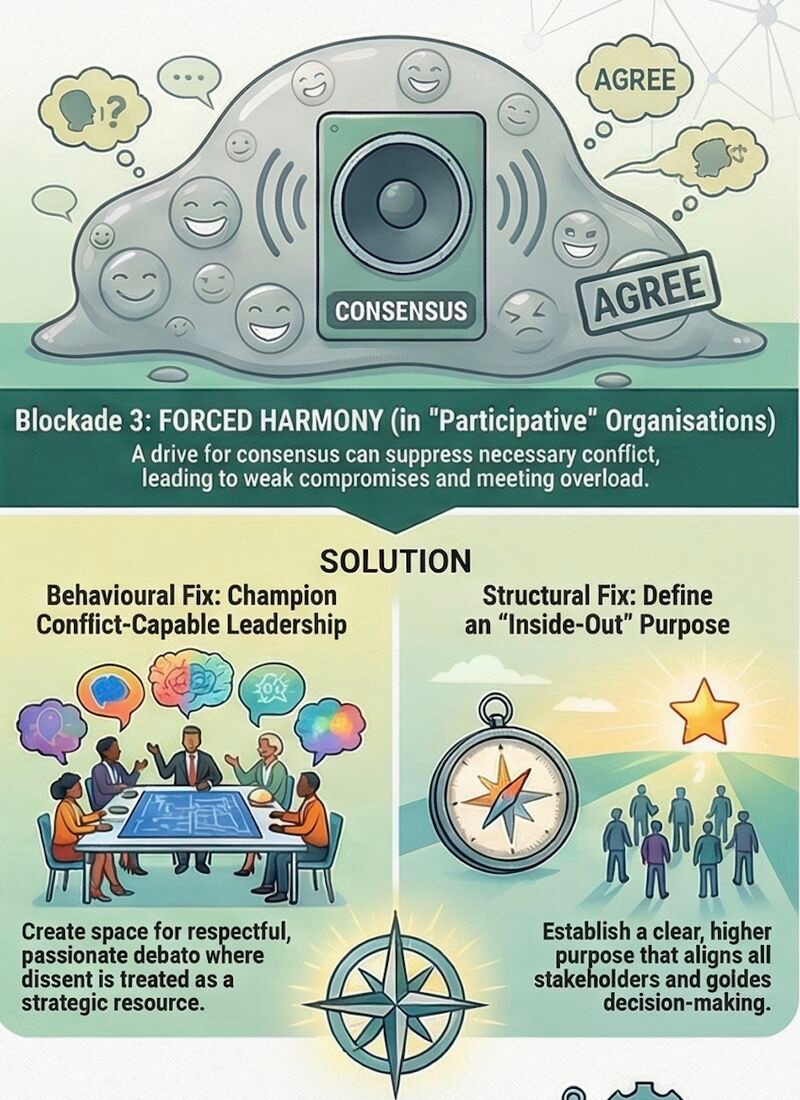

Blockade 3: FORCED HARMONY in Participatory Organizations
We have all the structures in place – consensus-based decision-making, endless rounds of voting, stakeholder involvement at every level. And yet: The promised innovation fails to materialize. Instead, we are experiencing meeting jams, watered-down compromises and a silent exodus of the very people who ask uncomfortable questions and name contradictions.
The paradox is cruel: our striving for inclusion has created spaces in which dissenting voices are silenced. We have proceduralized participation – and thus sterilized it.
What is actually happening here is that when participation degenerates into a process ritual, we suppress the very conflicts that make transformation possible in the first place. People do not leave such organizations out of a refusal to cooperate – they leave out of exhaustion over endless deliberation without movement.
The deeper question: Do our participatory processes create a real division of responsibility in local interaction – or are they mechanisms for conflict avoidance? Are we creating unity without it being real?
The problem lies in the functionalization of cult values: participation, inclusion, consensus – these are idealizations, cult values in the sense of Mead. They are valuable as orientation. But as soon as we have to functionalize it in concrete, contradictory situations, conflict inevitably arises.
And this is exactly where the trap lies: instead of making this conflict productive, we harmonize it away. We treat dissent as a disruption of the ideal, not as a necessary part of interpretation in contingent situations.
The way forward requires two-pronged intervention:
Behavioral level: Argumentative leadership. Not conflict-avoiding, but capable of conflict. Leadership that deliberately creates spaces for what Stacey calls "explorative conflict" – passionate debates in which people negotiate their differences instead of forcing them into polarized win-lose positions.
Structure level: "Inside-Out" purpose. A clear North Star that is not imposed from the outside, but is developed from one's own values – but not as further idealization, but as a framework for decisions in contingent situations.
The diagnostic question: Do your participation processes create spaces for responsive processes of relating – or cultivated avoidance architectures?
The difference is not evident in employee surveys, but in what is not said. In the topics that are "too hot". In the voices that are missing.
Strategic personnel management means creating architectures that understand conflict as an integral part of the functionalization of values – not as a flaw in the system.
24-12-2025

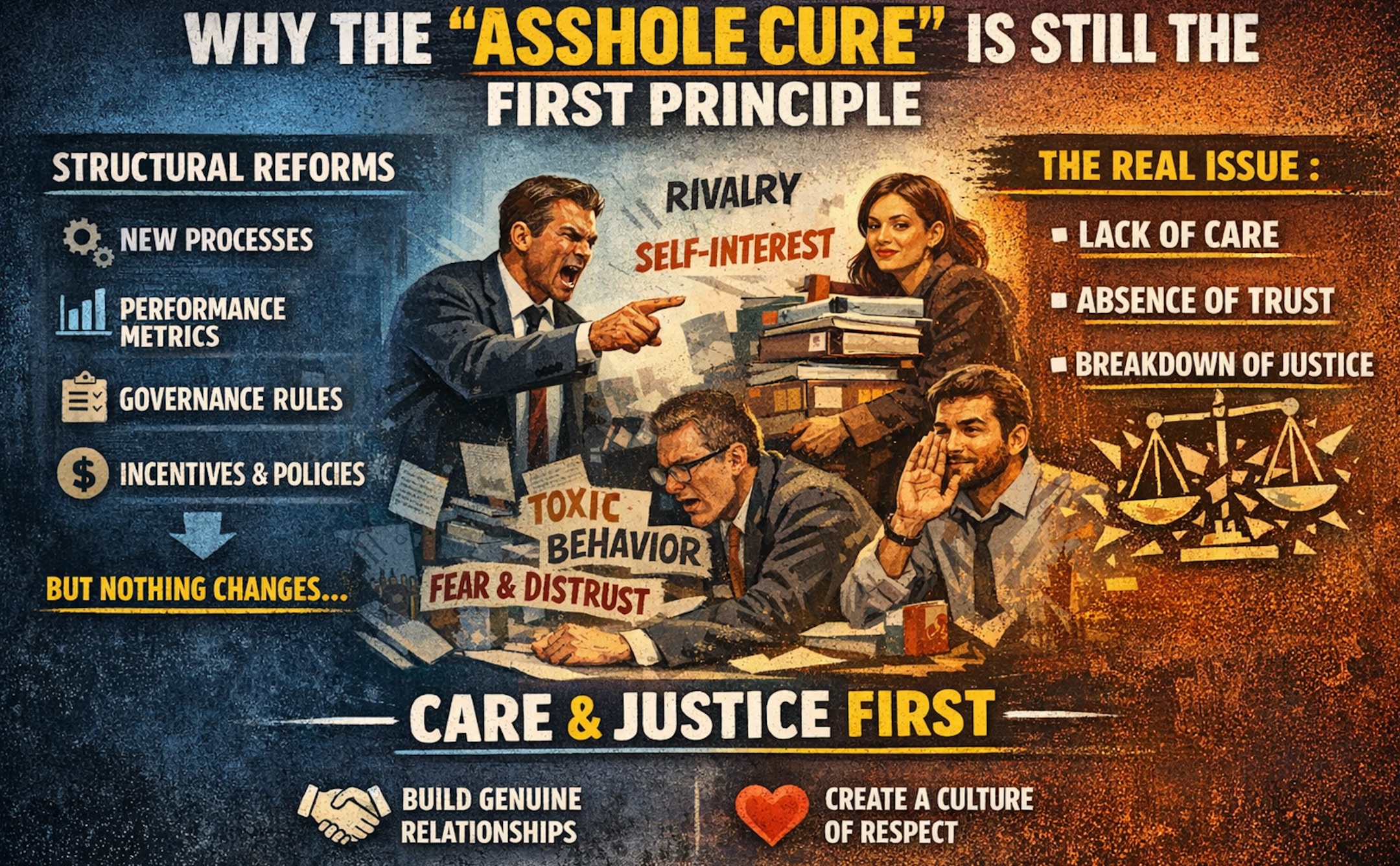

𝗪𝗛𝗬 𝗧𝗛𝗘 “𝗔𝗦𝗦𝗛𝗢𝗟𝗘 𝗖𝗨𝗥𝗘” 𝗜𝗦 𝗦𝗧𝗜𝗟𝗟 𝗧𝗛𝗘 𝗙𝗜𝗥𝗦𝗧 𝗣𝗥𝗜𝗡𝗖𝗜𝗣𝗟𝗘
Most transformations fail, not because the strategy is wrong or the system poorly designed, but because the same destructive behaviours are left in place. Organizations change processes, metrics, and governance and then act surprised when rivalry, fear, and strategic self interest undermine everything.
In response, many conclude that the problem is insufficient structural rigor. If only incentives were cleaner, processes fairer, governance wiser, outcomes would improve. The impulse is understandable. But it misses the deeper issue. 𝗡𝗼 𝘀𝘆𝘀𝘁𝗲𝗺, 𝗵𝗼𝘄𝗲𝘃𝗲𝗿 𝘄𝗲𝗹𝗹 𝗱𝗲𝘀𝗶𝗴𝗻𝗲𝗱, 𝗰𝗮𝗻 𝗵𝗼𝗹𝗱 𝘄𝗵𝗲𝗻 𝘁𝗵𝗲 𝗿𝗲𝗹𝗮𝘁𝗶𝗼𝗻𝗮𝗹 𝗰𝗼𝗻𝗱𝗶𝘁𝗶𝗼𝗻𝘀 𝗿𝗲𝗾𝘂𝗶𝗿𝗲𝗱 𝘁𝗼 𝗲𝗻𝗮𝗰𝘁 𝗶𝘁 𝗮𝗿𝗲 𝗮𝗯𝘀𝗲𝗻𝘁.
What we observe again and again is not a lack of structural imagination, but a failure of moral conditions. Companies redesign performance systems, formalize fairness rules, introduce equity frameworks, and codify values. On paper, these interventions look sound. Yet they rarely endure. Within months, familiar patterns resurface. People game metrics, weaponize procedures, hoard information, and protect themselves at the expense of others.
At this point, something important becomes visible. The problem is not that organizations fail to talk about justice. It is that they try to operate systems that presuppose just relations in environments where those relations have already collapsed. Justice enters the picture here not as an ideal, but as a 𝗺𝗶𝗻𝗶𝗺𝘂𝗺 𝗰𝗼𝗻𝗱𝗶𝘁𝗶𝗼𝗻, the moral ground that allows rules, responsibilities, and authority to be lived rather than subverted.
𝗝𝘂𝘀𝘁𝗶𝗰𝗲 𝘁𝗵𝗮𝘁 𝗶𝘀 𝗻𝗼𝘁 𝗰𝗮𝗿𝗿𝗶𝗲𝗱 𝗯𝘆 𝗳𝗿𝗶𝗲𝗻𝗱𝗹𝗶𝗻𝗲𝘀𝘀 𝘁𝗲𝗻𝗱𝘀 𝘁𝗼 𝗮𝗻𝗻𝗼𝘂𝗻𝗰𝗲 𝗶𝘁𝘀𝗲𝗹𝗳 𝗹𝗼𝘂𝗱𝗹𝘆 𝘄𝗵𝗶𝗹𝗲 𝗳𝗮𝗶𝗹𝗶𝗻𝗴 𝘁𝗼 𝘀𝗵𝗮𝗽𝗲 𝗯𝗲𝗵𝗮𝘃𝗶𝗼𝘂𝗿, 𝗺𝗶𝘀𝘁𝗮𝗸𝗶𝗻𝗴 𝗺𝗼𝗿𝗮𝗹 𝗰𝗼𝗿𝗿𝗲𝗰𝘁𝗻𝗲𝘀𝘀 𝗳𝗼𝗿 𝗺𝗼𝗿𝗮𝗹 𝗮𝘂𝘁𝗵𝗼𝗿𝗶𝘁𝘆.
This is where care matters. Not as niceness or conflict avoidance, but as the practice of taking others seriously as moral subjects. Without care, justice degenerates into cold rule following or coercive control. With care, justice becomes livable.
Seen this way, the so called “𝗮𝘀𝘀𝗵𝗼𝗹𝗲 𝗽𝗿𝗼𝗯𝗹𝗲𝗺” is not a matter of tone or etiquette. It names a deeper breakdown of care. In such contexts, no amount of structural reform will hold.
The first principle, then, is not “be nice,” nor “design better systems,” but restore the conditions under which people can relate to one another as partners in a shared project.
𝗙𝗿𝗶𝗲𝗻𝗱𝗹𝗶𝗻𝗲𝘀𝘀 𝗶𝘀 𝗻𝗼𝘁 𝗲𝘃𝗲𝗿𝘆𝘁𝗵𝗶𝗻𝗴. 𝗕𝘂𝘁 𝘄𝗶𝘁𝗵𝗼𝘂𝘁 𝗰𝗮𝗿𝗲, 𝗮𝗻𝗱 𝘄𝗶𝘁𝗵𝗼𝘂𝘁 𝗷𝘂𝘀𝘁𝗶𝗰𝗲 𝘀𝗵𝗮𝗽𝗲𝗱 𝗯𝘆 𝗰𝗮𝗿𝗲, 𝗻𝗼𝘁𝗵𝗶𝗻𝗴 𝗷𝘂𝘀𝘁 𝗼𝗿 𝗱𝘂𝗿𝗮𝗯𝗹𝗲 𝗰𝗮𝗻 𝗯𝗲 𝗯𝘂𝗶𝗹𝘁.
23-12-2025

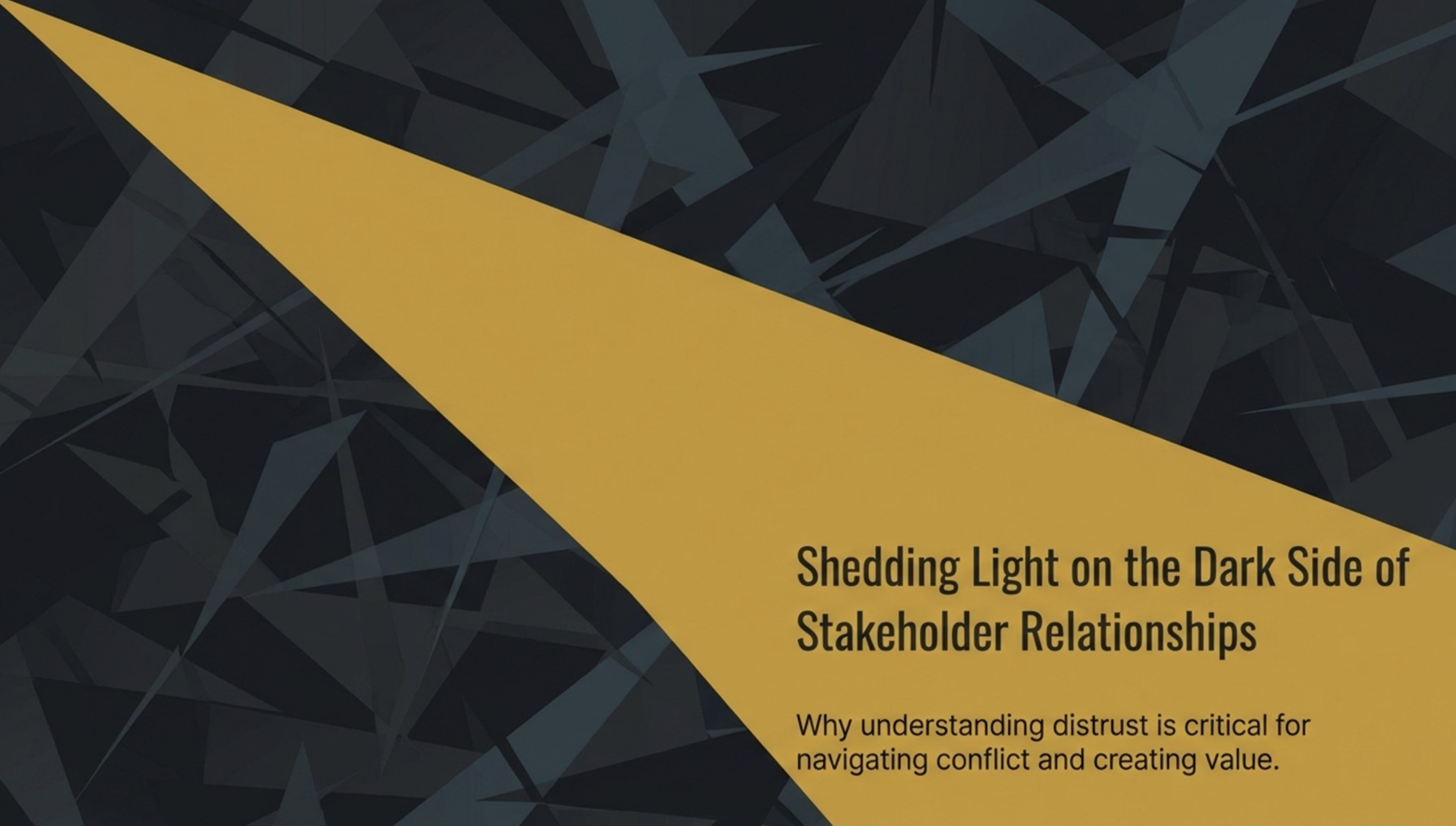

𝐃𝐞𝐦𝐚𝐧𝐝𝐢𝐧𝐠 𝐓𝐫𝐮𝐬𝐭, 𝐏𝐫𝐨𝐝𝐮𝐜𝐢𝐧𝐠 𝐃𝐢𝐬𝐭𝐫𝐮𝐬𝐭. 𝐖𝐡𝐚𝐭 𝐆𝐨𝐞𝐬 𝐖𝐫𝐨𝐧𝐠?
Anyone who blindly trusts the promise of an exceptionally profitable investment is being naïve. In complex, opaque contexts, 𝐬𝐮𝐬𝐩𝐢𝐜𝐢𝐨𝐧 is not a weakness but a form of attentiveness. Yet the opposite error is just as common, approaching people, organisations, or institutions with default suspicion or even 𝐝𝐢𝐬𝐭𝐫𝐮𝐬𝐭. This ignores the fact that there are contexts, rules, and practices that enable 𝐭𝐫𝐮𝐬𝐭 and with it the conditions for relationships that are both humanly and economically productive.This should be obvious. And yet, we consistently struggle with it.
The problem lies less in everyday experience than in our theoretical maps. Many economic models implicitly start from distrust. Others idealise trust and ignore transitions altogether. Both miss the point. Trust, suspicion, and distrust are not positions on a single scale but 𝐪𝐮𝐚𝐥𝐢𝐭𝐚𝐭𝐢𝐯𝐞𝐥𝐲 𝐝𝐢𝐟𝐟𝐞𝐫𝐞𝐧𝐭 𝐬𝐭𝐚𝐭𝐞𝐬, with distinct logics and very different consequences.
Trust is a robust state. It allows vulnerability without blindness. Suspicion, by contrast, is a 𝐭𝐫𝐚𝐧𝐬𝐢𝐭𝐢𝐨𝐧, a moment of irritation in which positive and negative interpretations coexist. It demands clarification. Suspicion becomes dangerous not in itself, but when it is 𝐮𝐧𝐦𝐚𝐧𝐚𝐠𝐞𝐝, when it is neither reflected upon nor deliberated, neither relationally held nor temporally bounded. 𝐔𝐧𝐦𝐚𝐧𝐚𝐠𝐞𝐝 𝐬𝐮𝐬𝐩𝐢𝐜𝐢𝐨𝐧 freezes and tips over.
𝐃𝐢𝐬𝐭𝐫𝐮𝐬𝐭 is not more suspicion. It is a 𝐝𝐞𝐟𝐞𝐧𝐬𝐢𝐯𝐞 𝐚𝐠𝐠𝐫𝐞𝐠𝐚𝐭𝐞 𝐬𝐭𝐚𝐭𝐞. Negative expectations harden, relationships stiffen, learning capacity erodes. Once established, distrust stabilises itself. Relationships do not slide gently into this state. They cross a threshold.
This is the core problem of our time. We produce distrust without understanding its dynamics, and we demand trust without creating its conditions. What is missing is not the right attitude, but 𝐝𝐢𝐬𝐜𝐞𝐫𝐧𝐦𝐞𝐧𝐭, the ability to recognise relational states, to notice transitions, and to act in time. This includes clarifying suspicion, stabilising trust, or consciously leaving relationships that have tipped into distrust.
𝐀𝐧𝐲𝐨𝐧𝐞 𝐰𝐡𝐨 𝐰𝐚𝐧𝐭𝐬 𝐭𝐨 𝐬𝐡𝐚𝐩𝐞 𝐫𝐞𝐥𝐚𝐭𝐢𝐨𝐧𝐬𝐡𝐢𝐩𝐬 𝐦𝐮𝐬𝐭 𝐤𝐧𝐨𝐰 𝐭𝐡𝐞𝐢𝐫 𝐬𝐭𝐚𝐭𝐞𝐬.
Link to article: https://www.sciencedirect.com/science/article/pii/S0263237325001811
22-12-2025

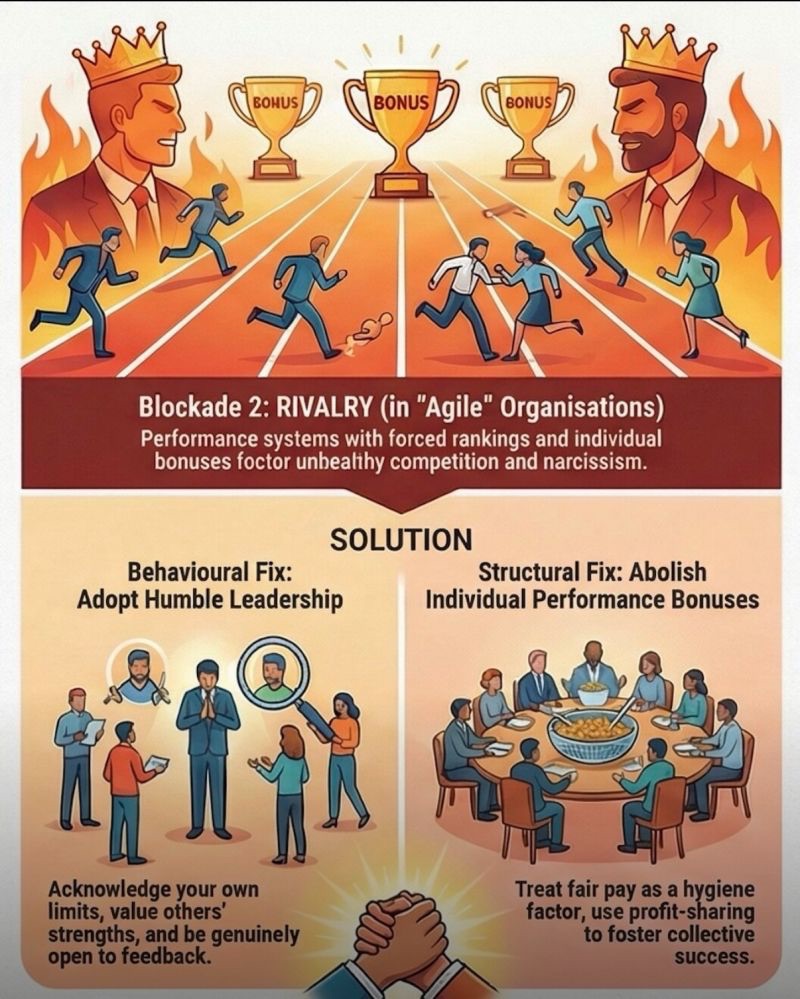

𝗕𝗹𝗼𝗰𝗸𝗮𝗱𝗲 𝟮: 𝗪𝗵𝗲𝗻 𝗣𝗲𝗿𝗳𝗼𝗿𝗺𝗮𝗻𝗰𝗲 𝗜𝗻𝗰𝗲𝗻𝘁𝗶𝘃𝗲𝘀 𝗕𝗲𝗰𝗼𝗺𝗲 𝗪𝗲𝗮𝗽𝗼𝗻𝘀 – 𝗧𝗵𝗲 𝗧𝗼𝘅𝗶𝗰 𝗟𝗼𝗴𝗶𝗰 𝗼𝗳 𝗠𝗮𝗿𝗸𝗲𝘁-𝗕𝗮𝘀𝗲𝗱 𝗢𝗿𝗴𝗮𝗻𝗶𝘇𝗮𝘁𝗶𝗼𝗻𝘀
You think you’ve escaped bureaucracy. You’ve just traded one cage for another.
The market-based organization emerges as a reaction to bureaucratic paralysis: away from micromanagement, toward competition, entrepreneurship, “perform and get rewarded.” Sounds liberating. But market logic doesn’t free organizations – it just changes how they destroy value.
𝗪𝗵𝗲𝗻 𝘁𝗵𝗲 𝗦𝘆𝘀𝘁𝗲𝗺 𝗗𝗲𝗺𝗮𝗻𝗱𝘀 𝘁𝗵𝗲 𝗖𝗿𝗶𝗺𝗲
Wells Fargo employees opened over 2 million fake accounts. Not because they were criminals, but because the performance system gave them no choice. Eight products per customer became the target. Miss it, and you’re out. The result? Employees creating ghost accounts, forging signatures, moving money without permission. Wells Fargo fired 5,300 employees for fraud the system itself designed.
Enron had “Rank and Yank”: the bottom 15% were eliminated annually. Colleagues sabotaged each other, hoarded knowledge, manipulated numbers. At Sears, aggressive sales targets led mechanics to invent unnecessary repairs. In my research on incentive systems, the pattern is always the same: high-powered incentives don’t boost performance – they crowd out integrity, collaboration, and intrinsic motivation. You get “work-to-incentive” behavior where people optimize for individual metrics, not organizational success.
𝗧𝗵𝗲 𝗡𝗮𝗿𝗰𝗶𝘀𝘀𝗶𝘀𝗺 𝗦𝗽𝗶𝗿𝗮𝗹
Who gets promoted? Not the best, but the loudest. Excessive executive compensation celebrates the “Hero Leader” and creates a feedback loop where narcissists promote narcissists. The system selects for exactly the personality type that will weaponize it further.
This is the neoliberal trap. Market mechanisms promised liberation from bureaucratic control. Instead, they delivered strategic gaming, internal warfare, and systemic distrust. We escaped “work-to-rule” and landed in “work-to-incentive.” Different cage, same lack of freedom.
𝗧𝗵𝗲 𝗦𝗼𝗹𝘂𝘁𝗶𝗼𝗻? 𝗧𝘄𝗼 𝗠𝗼𝘃𝗲𝘀.
🙋 Behavioral Fix: Humble Leadership – Acknowledge limits, value others’ competence, share power, frame mistakes as learning. This strengthens psychological safety and genuine performance.
🏛️ Structural Fix: Abolish individual performance systems. Handelsbanken demonstrates it works: no rankings, no bonuses, just fair salary bands and collective profit-sharing. Adobe, Deloitte, Microsoft have followed.
Why? Because it reverses the logic: from individual optimization to collective success. From “Who’s to blame?” to “What can we learn?” Performance emerges from intelligent system architecture, not sharper evaluation.
The question isn’t whether you see these patterns. It’s whether you’re ready to redesign the system that creates them.
21-12-2025

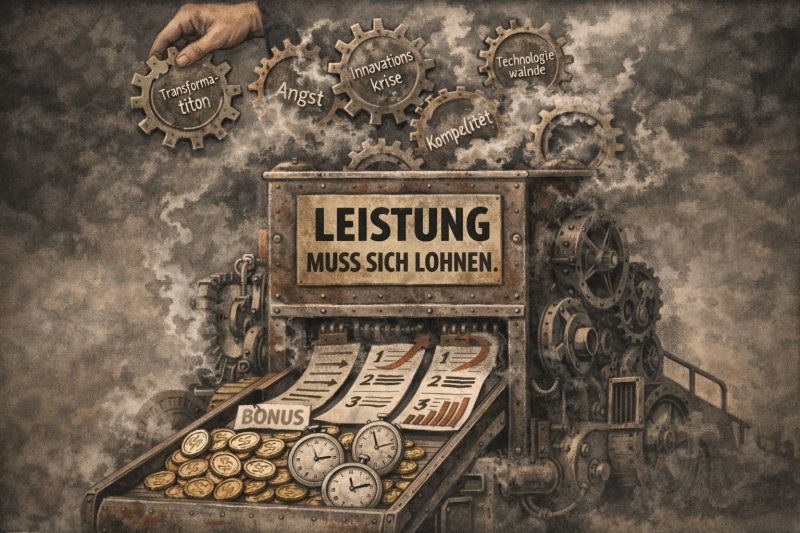

Mercedes and the wrong alternative: "Hard Work" vs. "New Work"
Mercedes-Benz wants to re-establish "a culture of performance". More individual performance evaluation, stricter control of sick leave, turning away from "New Work" experiments. The message is clear: No more convenience. Back to the racketeering.
But this is not only misdiagnosed – it is also dangerously naïve.
The real question is not "hard work or new work?", but rather: Why does a company like Mercedes lose its ability to innovate, while other carmakers have long since broken new technological paths? The answer rarely lies in engineers working too little or being sick too often. It lies in strategic rigidity, in outdated mental models, in investment logics that have held on to the combustion engine for too long. This will not be solved by stricter performance evaluation. On the contrary.
Variable compensation and rankings are tools for standardizing behavior. They work where goals are clear, measurable, and repeatable. But that's exactly what innovation is not. Innovation arises through detours, mistakes, unusual combinations – and usually as a team effort in complex transformations such as the restructuring of an entire industry.
Rankings and individual performance logics produce something else. We know this from research and practice: less knowledge sharing, less helpfulness, less trust. More political games, more internal competition. In short: less synergy. And synergy is often the real source of productivity.
And then there is the measurement problem.
You can measure quantities, output, presence. But which idea made the breakthrough possible? What learning, what strategic change of course? This eludes measurement logic. If you discipline innovation through individual metrics, you get measurable activity – not necessarily progress. Often enough: impressive figures with declining competitiveness.
The wrong alternative costs Mercedes twice.
It distracts from the actual task: building strategic clarity, the ability to learn and innovation architecture. And it scares away the very people you need for transformation – they then migrate to manufacturers who have understood that renewal does not come from pressure.
The question is not "hard work or new work", but clever corporate management.
"Performance must be rewarded" sounds like clarity. In truth, it is the convenient answer to the wrong question – and an expensive distraction from the real problem: a lack of strategic leadership.
You could also put it this way: Anyone who introduces rankings because they are strategically at a loss documents one thing above all else – that they have not understood the problem.
20-12-2025

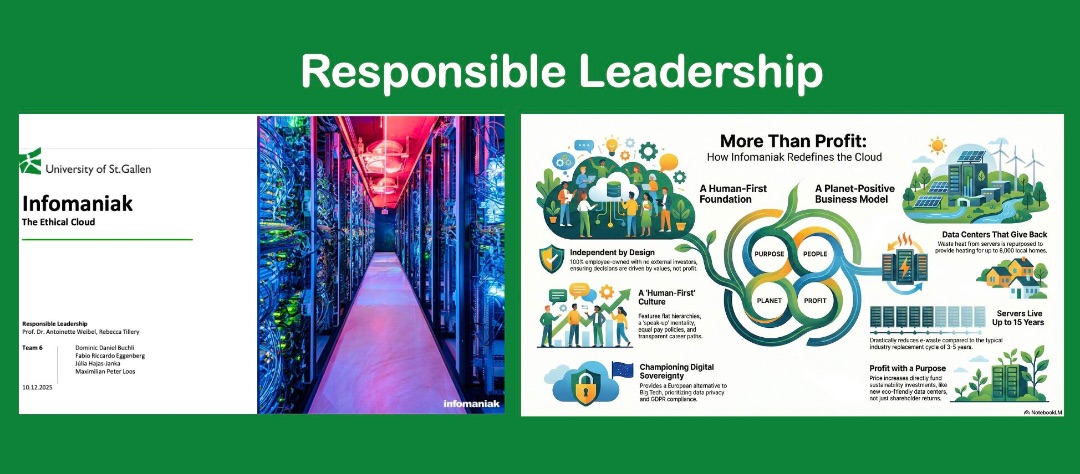

𝗥𝗲𝘀𝗽𝗼𝗻𝘀𝗶𝗯𝗹𝗲 𝗟𝗲𝗮𝗱𝗲𝗿𝘀𝗵𝗶𝗽 𝗶𝗻 𝗣𝗿𝗮𝗰𝘁𝗶𝗰𝗲: 𝗪𝗵𝗮𝘁 𝗮 𝗦𝘄𝗶𝘀𝘀 𝗖𝗹𝗼𝘂𝗱 𝗖𝗼𝗺𝗽𝗮𝗻𝘆 𝗖𝗮𝗻 𝗧𝗲𝗮𝗰𝗵 𝗨𝘀
In our Responsible Leadership class last week, another student group presented a case that challenged many of the assumptions we tend to take for granted when we talk about technology, performance, and responsibility.
The sector was surprising: tech - cloud infrastructure. A field usually associated with scale, energy intensity, short hardware cycles, investor pressure, and opaque externalities.
The company was infomaniak | The Ethical Cloud.
What made the discussion interesting was not a single flagship initiative, but the 𝗶𝗻𝘁𝗲𝗿𝗻𝗮𝗹 𝗰𝗼𝗵𝗲𝗿𝗲𝗻𝗰𝗲 of the model. The guiding question in class was not “Is this admirable?”, but “What organizational choices make this possible and what do they rule out?”
A few practices stood out:
1️⃣ Infomaniak runs data centers on 100% renewable energy with a Power Usage Effectiveness below 1.1. Crucially, the waste heat from its servers is captured and fed into local district heating systems, warming up to 6,000 apartments. Digital infrastructure becomes part of an urban energy ecosystem rather than a pure energy sink.
2️⃣ In an industry built on rapid replacement, Infomaniak designs its systems to use server hardware for up to fifteen years. Repair, reuse, spare-part stockpiling, and responsible recycling are prioritized, and the company compensates for 200% of its CO₂ emissions. Environmental impact is addressed at the level of lifecycle design, not only through downstream offsets.
3️⃣ Infomaniak has no external investors. It is owned by its founders and is in the process of transferring more ownership to employees. This independence enables long-term decisions such as doubling the cost of a data center to integrate heat recovery that would be difficult to justify under quarterly earnings logic.
4️⃣ Internally, responsibility is supported by structure rather than slogans: horizontal management, equal pay policies, transparent career paths, and low barriers to engaging senior leadership.
5️⃣ Even pricing follows this logic. When prices were raised by 10 percent, Infomaniak did so transparently to finance sustainability investments, explicitly asking customers to share the costs of ecological infrastructure.
In class, this led to a familiar but uncomfortable insight. Responsible leadership is rarely about heroic individuals or lofty values statements. It is about 𝗶𝗻𝘀𝘁𝗶𝘁𝘂𝘁𝗶𝗼𝗻𝗮𝗹 𝗱𝗲𝘀𝗶𝗴𝗻: ownership, incentives, time horizons, and the willingness to internalize costs that others externalize.
Infomaniak is not interesting because it is flawless, but because it shows that many practices considered “unrealistic” in tech are in fact the result of deliberate organizational choices.
For me, that is exactly why this company belongs in a Responsible Leadership classroom.
19-12-2025

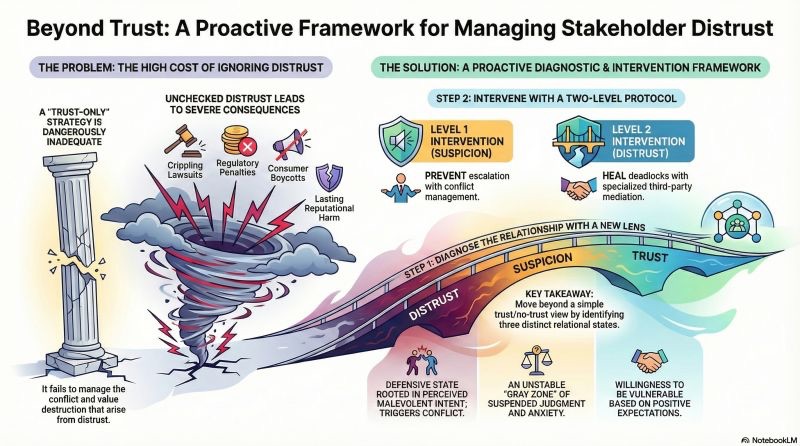

𝐅𝐫𝐨𝐦 𝐁𝐮𝐢𝐥𝐝𝐢𝐧𝐠 𝐓𝐫𝐮𝐬𝐭 𝐭𝐨 𝐆𝐨𝐯𝐞𝐫𝐧𝐢𝐧𝐠 𝐃𝐢𝐬𝐭𝐫𝐮𝐬𝐭
Most stakeholder engagement strategies rest on a comforting assumption: that trust can always be built through dialogue, transparency, and participation. What if that assumption is precisely what puts organizations at risk?
Boeing did not fail at communication. It failed at understanding when communication stops working. Once regulators, victims’ families, and the public suspected not merely error but willful negligence, explanations and apologies no longer reassured. They escalated. Transparency was reinterpreted as deflection. Engagement itself became evidence of bad intent. At that point, the problem was no longer a lack of information, but a breakdown in how intent itself was interpreted.
A core argument of our newly published article 👇 is that trust and distrust are not opposite ends of a smooth continuum. Between them lies suspicion: an unstable, cognitively demanding state in which positive and negative interpretations of intent coexist. Because suspicion is cognitively costly, it demands resolution. The shift from suspicion to distrust is 𝐝𝐢𝐬𝐜𝐨𝐧𝐭𝐢𝐧𝐮𝐨𝐮𝐬 - a threshold, not a gradient. Once crossed, stakeholders attribute malintent, emotions intensify, and relationships lock into self-reinforcing cycles of defensiveness and value destruction.
This matters because most stakeholder frameworks are designed exclusively for the bright side of relationships. They work when trust exists or can plausibly be built. They fail once distrust takes hold.
The article therefore proposes a diagnostic framework. You are no longer dealing with normal engagement challenges when:
💡 stakeholders perceive fundamental value
incongruence as a threat to their identity;
💡 they attribute 𝐦𝐚𝐥𝐞𝐯𝐨𝐥𝐞𝐧𝐜𝐞 rather than error to your actions;
💡 they operate from ideologies that frame your business model as inherently problematic;
💡 they exhibit a structural propensity to distrust rooted in organizational culture or mission.
In such situations, more dialogue does not restore legitimacy. It might even accelerate breakdown.
What this suggests is a shift in how we think about stakeholder engagement altogether: not as a linear process of trust accumulation, but as the management of fragile thresholds where relationships can tip, harden, or collapse. It also implies that engagement must be situationally intelligent, matching practices to relational states rather than applying trust-building routines by default.
The article was just published, and we are curious how others recognize these thresholds in their own stakeholder work.
Link to article: https://www.sciencedirect.com/science/article/pii/S0263237325001811
18-12-2025

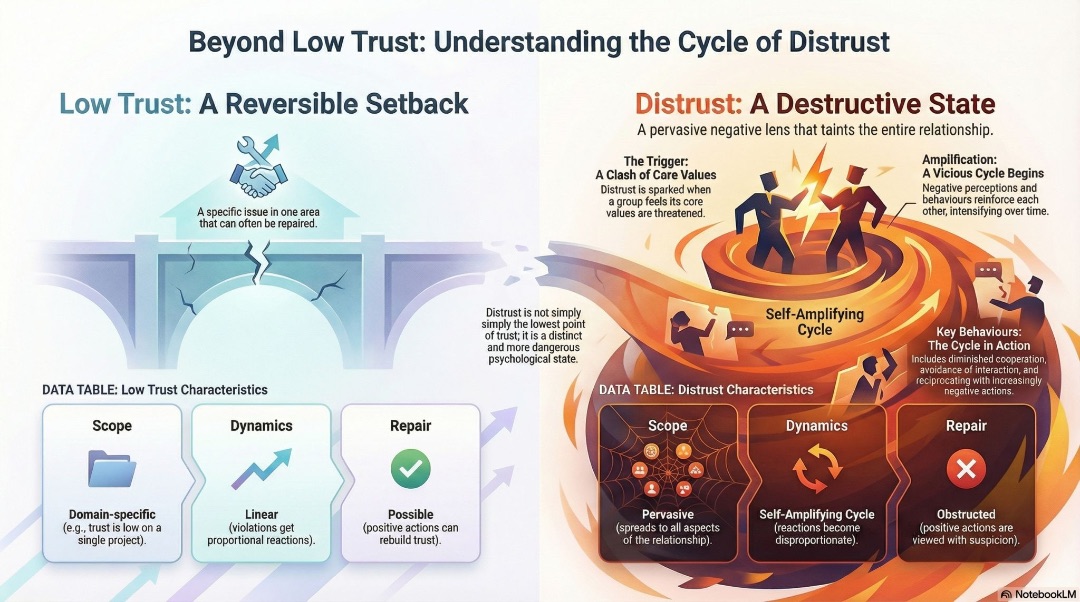

𝗪𝗵𝘆 “𝗥𝗲𝗯𝘂𝗶𝗹𝗱𝗶𝗻𝗴 𝗧𝗿𝘂𝘀𝘁” 𝗙𝗮𝗶𝗹𝘀: 𝗔 𝗖𝗮𝘁𝗲𝗴𝗼𝗿𝘆 𝗘𝗿𝗿𝗼𝗿
Most organisational trust initiatives fail. Not because leaders do not try, but because they misdiagnose what is actually broken. When relationships deteriorate, the default diagnosis is low trust. The standard response follows: more transparency, more dialogue, more trust-building. Yet empirical work by Bijlsma, Sitkin, and Weibel shows that this diagnosis is wrong. What is at stake is not low trust, but 𝗱𝗶𝘀𝘁𝗿𝘂𝘀𝘁.
Treating distrust as the lower end of a trust continuum is a 𝗰𝗮𝘁𝗲𝗴𝗼𝗿𝘆 𝗲𝗿𝗿𝗼𝗿, and it comes with predictable consequences.
Low trust reflects uncertainty about positive expectations. Distrust involves confidence in negative ones. This distinction matters because distrust does not respond to evidence of trustworthiness. Positive actions are no longer read as goodwill, but as strategy or manipulation. Trust-building fails not because people try too little, but because they intervene at the wrong level.
Distrust is triggered not by mistakes, but by 𝗽𝗲𝗿𝗰𝗲𝗶𝘃𝗲𝗱 𝘃𝗮𝗹𝘂𝗲 𝗶𝗻𝗰𝗼𝗻𝗴𝗿𝘂𝗲𝗻𝗰𝗲. In our study of a Dutch court reorganisation, disagreement over efficiency metrics transformed into existential threat. Judges came to see administrators as destroying judicial quality. Administrators, in turn, saw judges as blocking legitimate authority. Once this shift occurred, every subsequent action, however constructive, was reread as manipulation. At that point, the conflict was no longer about coordination or performance, but about 𝗹𝗲𝗴𝗶𝘁𝗶𝗺𝗮𝗰𝘆: who had the right to define what counted as “good” work and a “well-run” institution.
The relationship crosses a threshold. Reactions become pervasive rather than domain-specific, entering a 𝗹𝗼𝗰𝗸-𝗶𝗻 𝘀𝘁𝗮𝘁𝗲. Distrust becomes self-reinforcing through negative reciprocity and escalation. Disconfirming evidence no longer reverses judgment; it is reinterpreted to fit it. After distrust took hold, not a single 𝗽𝗼𝘀𝗶𝘁𝗶𝘃𝗲 𝗽𝗲𝗿𝗰𝗲𝗽𝘁𝗶𝗼𝗻 of the other group remained in our data.
Distrust is not the absence of trust. It is a different relational state altogether. It is not repaired by communication or transparency, because it is not primarily informational. As long as organisations treat distrust as a trust deficit rather than as a 𝗺𝗼𝗿𝗮𝗹 𝗮𝗻𝗱 𝗶𝗻𝘀𝘁𝗶𝘁𝘂𝘁𝗶𝗼𝗻𝗮𝗹 𝗽𝗿𝗼𝗯𝗹𝗲𝗺 rooted in threatened values, attempts to “rebuild trust” will continue to disappoint.
The question is not whether your people communicate enough. The question is whether you understand 𝘄𝗵𝗮𝘁 𝗸𝗶𝗻𝗱 𝗼𝗳 𝗽𝗿𝗼𝗯𝗹𝗲𝗺 you actually have.
17-12-2025

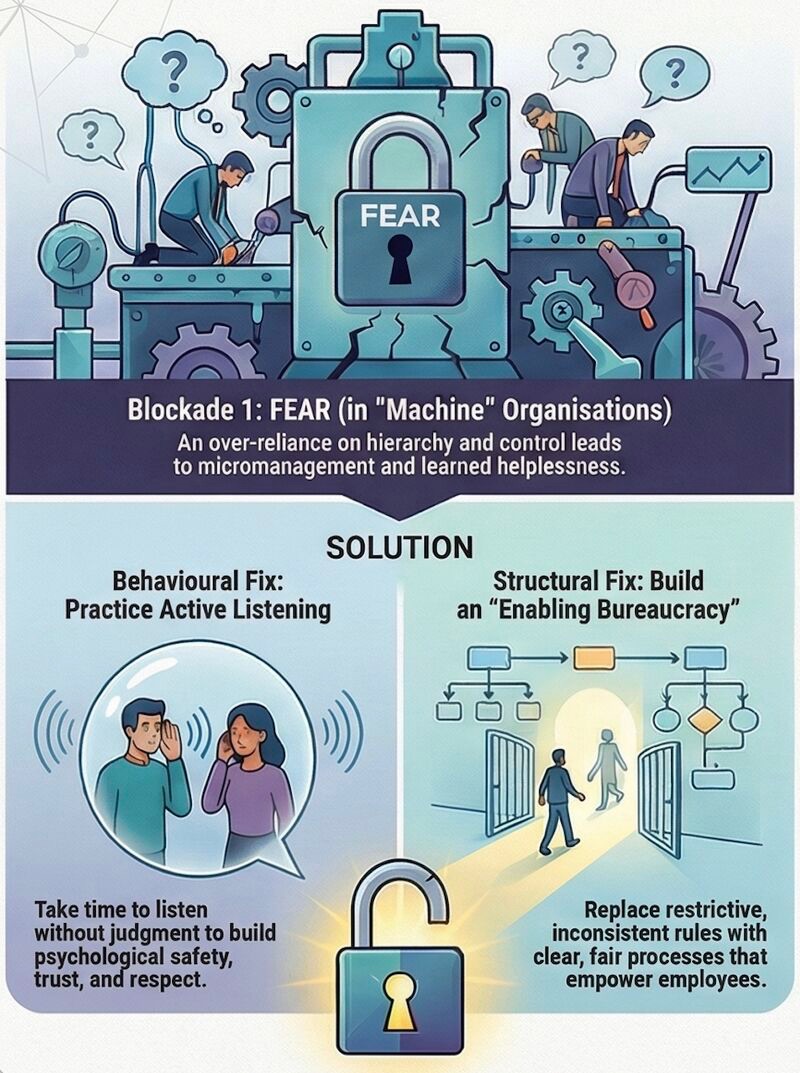

GOOD LEADERSHIP FAILS IN MACHINE ORGANIZATIONS. NOT IN PEOPLE – IN DESIGN.
Some of you work in organizations that function like machines: standardized, hierarchical, efficient – but without room for complexity. Control logic dominates here: plan, cast in rules, control. Main value: safety. Main weakness: trust.
When we talk about good leadership here, we encounter two structural blockages:
First: Dequalification and learned helplessness
High division of labor makes tasks small and repetitive. Learning opportunities are disappearing, a sense of responsibility is shrinking. Employees do not develop competence, but adaptation: "I only do what I am told." This is not a personality problem, but a structural effect. Lack of job enrichment creates passivity – which is then wrongly interpreted as "lack of maturity".
Second: Fear due to pronounced hierarchy
Where power is highly concentrated, micromanagement arises almost automatically. Deviations are sanctioned, not shared. Mistakes are hidden instead of being used as learning moments. People cannot become courageous because mistakes are experienced as a risk.
In short, machine organizations do not produce a shyness of responsibility – they design them.
WHAT HELPS: LISTENING
Listening is the first effective counter-spell. When managers really take their time, don't evaluate immediately and tolerate divergent perspectives, fear decreases – courage increases. Those who are allowed to speak begin to think. Those who think begin to understand. Listening breaks the pattern of "I'll tell you what to do" and replaces it with "I want to understand what you see."
WHAT HELPS: DIFFERENT RULES
It is not a question of abolishing bureaucracy, but of designing the right way. Bad bureaucracy means: many rules, close control, mistrust. Good bureaucracy means that rules provide support, employees help shape things, standards are learning tools.
Good rules are useful rules: → those affected help shape them → They enable feedback and learning → they allow discretion
The TQM wave of the 80s/90s showed it: The rule was not abolished – it was converted into a learning tool.
The question is not whether your leaders are good enough. The question is whether your system gives them a chance at all.
16-12-2025

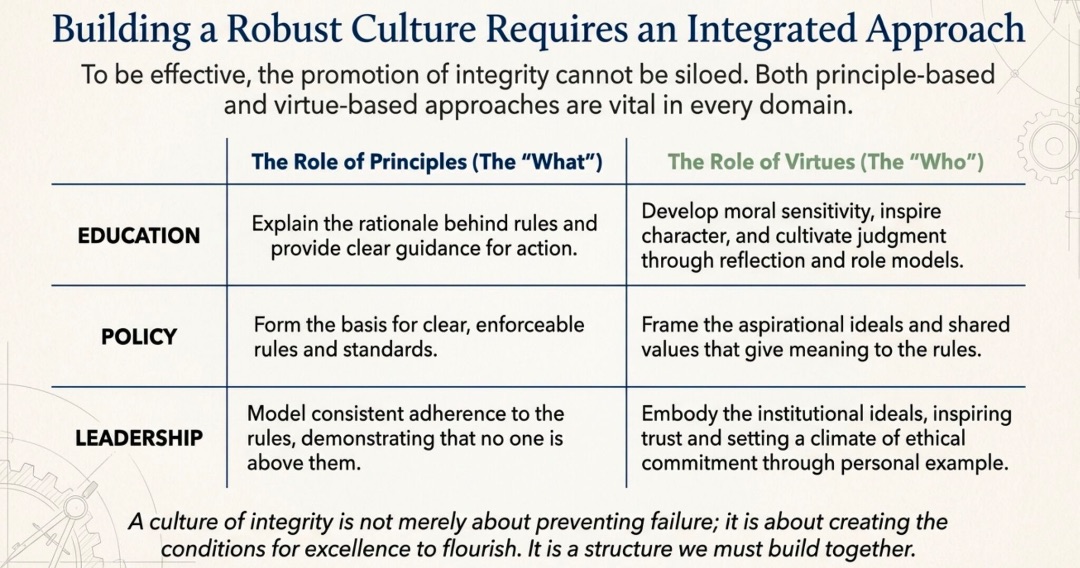

It is easy to critique business schools and management science. It is a very different feat to actually 𝐜𝐡𝐚𝐧𝐠𝐞 𝐭𝐡𝐞𝐦 𝐢𝐧𝐭𝐨 𝐚 𝐟𝐨𝐫𝐜𝐞 𝐟𝐨𝐫 𝐠𝐨𝐨𝐝.
That is why I am particularly looking forward to our upcoming PhD workshop on 𝐄𝐭𝐡𝐢𝐜𝐬, 𝐑𝐞𝐬𝐩𝐨𝐧𝐬𝐢𝐛𝐢𝐥𝐢𝐭𝐲, 𝐚𝐧𝐝 𝐒𝐮𝐬𝐭𝐚𝐢𝐧𝐚𝐛𝐢𝐥𝐢𝐭𝐲 in Management Research, where we will focus on a question that is surprisingly rarely asked in academic training: 𝐖𝐡𝐚𝐭 𝐢𝐬 𝐭𝐡𝐞 𝐠𝐨𝐨𝐝 𝐨𝐟 𝐬𝐜𝐢𝐞𝐧𝐜𝐞 𝐢𝐭𝐬𝐞𝐥𝐟?
When we talk about research integrity, the conversation usually starts and ends with rules. Do not fabricate data. Do not falsify results. Do not plagiarize. Necessary, of course. But also insufficient. Rules tell us what not to do. They rarely tell us what kind of scientists we are becoming.
A closer look at research ethics reveals something more demanding and more human. Integrity is not just about avoiding misconduct. It goes to the very character of science and the scientists who practice it. Here are five insights that keep resurfacing in my own work.
𝐈𝐧𝐭𝐞𝐠𝐫𝐢𝐭𝐲 𝐢𝐬 𝐧𝐨𝐭 𝐫𝐮𝐥𝐞 𝐟𝐨𝐥𝐥𝐨𝐰𝐢𝐧𝐠. 𝐈𝐭 𝐢𝐬 𝐜𝐡𝐚𝐫𝐚𝐜𝐭𝐞𝐫.
Misconduct is an action. Integrity is a disposition. You can comply with every rule and still lack integrity when ethics becomes box-ticking driven by fear rather than commitment. Integrity shows up in why we do what we do.
𝐓𝐡𝐞 𝐦𝐨𝐬𝐭 𝐝𝐚𝐧𝐠𝐞𝐫𝐨𝐮𝐬 𝐦𝐢𝐬𝐜𝐨𝐧𝐝𝐮𝐜𝐭 𝐢𝐬 𝐨𝐟𝐭𝐞𝐧 𝐭𝐡𝐞 𝐪𝐮𝐞𝐬𝐭𝐢𝐨𝐧𝐚𝐛𝐥𝐞 𝐤𝐢𝐧𝐝.
Questionable Research Practices live in the grey zone. Selective citation. Unjustified data exclusion. Narrative polishing. Because they are ambiguous, they invite rationalisation. Their cumulative damage may exceed that of rare headline scandals.
𝐈𝐧𝐭𝐞𝐠𝐫𝐢𝐭𝐲 𝐥𝐢𝐭𝐞𝐫𝐚𝐥𝐥𝐲 𝐦𝐞𝐚𝐧𝐬 𝐰𝐡𝐨𝐥𝐞𝐧𝐞𝐬𝐬, 𝐚𝐧𝐝 𝐢𝐭 𝐫𝐞𝐪𝐮𝐢𝐫𝐞𝐬 𝐜𝐨𝐮𝐫𝐚𝐠𝐞.
Integritas means being whole, not split between values and action. Courage, from cor, reminds us that integrity is not cold compliance but a heartfelt commitment, especially when incentives pull the other way.
𝐄𝐭𝐡𝐢𝐜𝐬 𝐢𝐬 𝐧𝐨𝐭 𝐞𝐱𝐭𝐞𝐫𝐧𝐚𝐥 𝐭𝐨 𝐬𝐜𝐢𝐞𝐧𝐜𝐞. 𝐈𝐭 𝐢𝐬 𝐛𝐮𝐢𝐥𝐭 𝐢𝐧𝐭𝐨 𝐢𝐭.
Truthfulness, accuracy, fairness, and trust are not add-ons. They are the operating conditions of science itself. A practice that abandons them simply stops being science.
𝐓𝐡𝐞 𝐫𝐞𝐚𝐥 𝐞𝐭𝐡𝐢𝐜𝐚𝐥 𝐪𝐮𝐞𝐬𝐭𝐢𝐨𝐧 𝐢𝐬 𝐧𝐨𝐭 𝐨𝐧𝐥𝐲 “𝐖𝐡𝐚𝐭 𝐬𝐡𝐨𝐮𝐥𝐝 𝐈 𝐝𝐨?”
It is also “Who should I be?” Without attention to character, ethics collapses into minimal compliance.
If we want science to be a force for good, integrity cannot remain a checklist. It must become a 𝐜𝐮𝐥𝐭𝐢𝐯𝐚𝐭𝐞𝐝 𝐩𝐫𝐚𝐜𝐭𝐢𝐜𝐞, embedded in training, incentives, and how we define excellence.
So the uncomfortable question remains: 𝐖𝐡𝐚𝐭 𝐤𝐢𝐧𝐝 𝐨𝐟 𝐬𝐜𝐢𝐞𝐧𝐭𝐢𝐬𝐭𝐬, 𝐚𝐧𝐝 𝐰𝐡𝐚𝐭 𝐤𝐢𝐧𝐝 𝐨𝐟 𝐬𝐜𝐢𝐞𝐧𝐜𝐞, 𝐚𝐫𝐞 𝐰𝐞 𝐚𝐜𝐭𝐢𝐯𝐞𝐥𝐲 𝐟𝐨𝐫𝐦𝐢𝐧𝐠?
Source: http://printeger.eu/wp-content/uploads/2016/10/D2.3.pd
15-12-2025

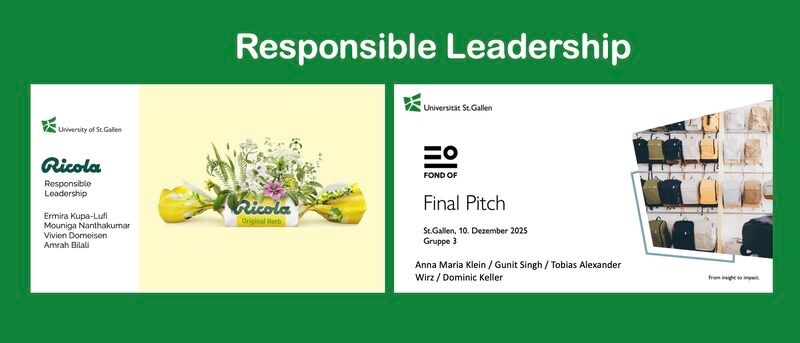

We talk a lot about "good" organizations. Rarely about the work that is necessary for this.
Insights into Responsible Leadership from Practice – or: Why "Being Good" Is Not a State
How do good organizations come about? Not perfect ones, but those that learn under real market conditions, institutionalize responsibility and work with tensions instead of covering them up. This question is at the center of my seminar Responsible Leadership. Not as a moral exercise, but as an organizational question: How do values become practices – and how do they remain capable of learning when conflicting goals become expensive?
My students are not satisfied with glossy reports. They analyze decision-making logics, breaks and negotiation processes. Two initial case analyses show this very nicely: FOND OF and Ricola. Different starting points, a common insight.
FOND OF stands for responsibility in open learning mode. Instead of publishing an incomplete CO₂ balance, the company made its own learning level transparent – including knowledge gaps. Social responsibility demonstrates the ability to reflect: Fair Wear Leader status, pilot projects for living wages, a socially acceptable withdrawal from Myanmar. It is also remarkable that the absence of complaints was not celebrated, but questioned. At the same time, it becomes clear that sustainability is not automatic, but negotiation.
Ricola is starting from a different point. Responsibility is more institutionalized, but not complete. A B Corp score of 97.8 acts as a structural enhancer – not as a moral final state. The analyses show a high level of cultural coherence, but also variance in leadership quality. Phronesis appears here less as a possession than as a claim that has to prove itself again and again.
Both organizations make it clear: The road to "good" is long, non-linear and never complete. Good organizations are not states, but learning architectures under tension.
What makes a really good organization for you – in everyday life, when things get uncomfortable?
14-12-2025

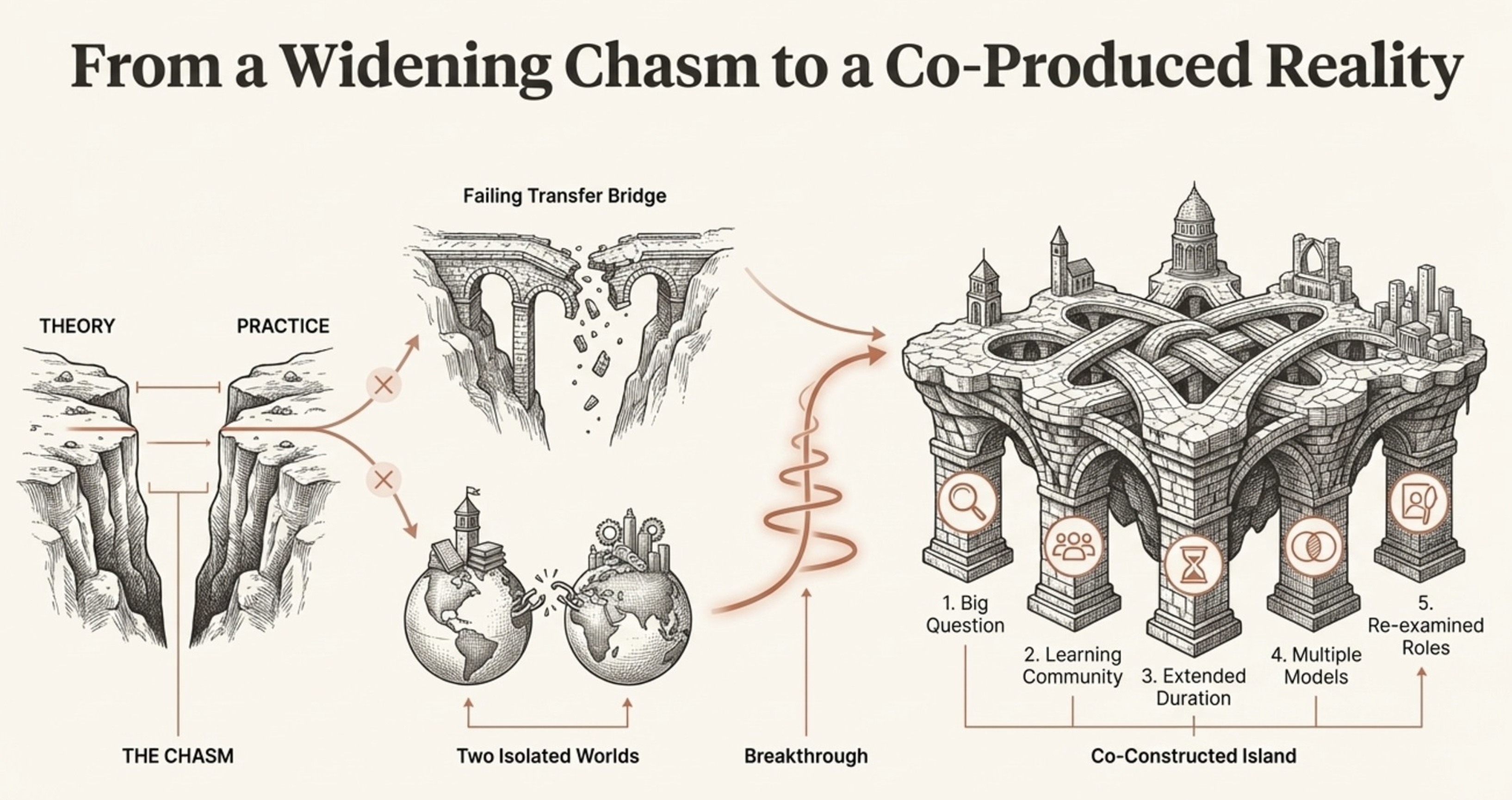

𝗧𝗵𝗲 𝗥𝗲𝗮𝗹 𝗥𝗲𝗮𝘀𝗼𝗻 “𝗦𝗺𝗮𝗿𝘁” 𝗞𝗻𝗼𝘄𝗹𝗲𝗱𝗴𝗲 𝗞𝗲𝗲𝗽𝘀 𝗙𝗮𝗶𝗹𝗶𝗻𝗴 𝗶𝗻 𝗣𝗿𝗮𝗰𝘁𝗶𝗰𝗲
You know the pattern: a clever framework, solid evidence, senior buy-in and yet six months later it has quietly disappeared. The usual explanation is poor execution. People resisted, didn’t understand, or failed to implement properly. But what if the problem starts earlier, at the level of how knowledge itself is produced?
Most management knowledge still rests on a hidden assumption: that organizations can be understood by observing what is 𝗏𝗂𝗌𝗂𝖻𝗅𝖾, 𝗆𝖾𝖺𝗌𝗎𝗋𝖺𝖻𝗅𝖾, 𝖺𝗇𝖽 𝖼𝗈𝗇𝗍𝗋𝗈𝗅𝗅𝖺𝖻𝗅𝖾 and that once we know “what works,” this knowledge can be transferred elsewhere. This logic is inherited from 𝗉𝗈𝗌𝗂𝗍𝗂𝗏𝗂𝗌𝗆. It works for machines. It works badly for social systems.
In organizations, what we observe - behaviour, KPIs, new tools - is rarely the cause. It is the outcome of deeper conditions: incentives, power relations, role expectations, and tacit assumptions about human behaviour. If we stay on the surface, we mistake regularities for explanations and end up managing symptoms rather than causes. The harder question is: what must this organization be like for this outcome to keep recurring?
This matters because management knowledge does not merely describe organizations; it 𝗌𝗁𝖺𝗉𝖾𝗌 𝗍𝗁𝖾𝗆. Once a model enters practice, people begin acting as if its assumptions were true. Incentives shift. Trust changes. Behaviour adapts. In social science, observation and intervention cannot be cleanly separated.
Andrew Van de Ven reached this conclusion through decades of studying organizational change. His insight was simple and unsettling: the theory–practice gap is not a communication problem, but a 𝗄𝗇𝗈𝗐𝗅𝖾𝖽𝗀𝖾 𝗉𝗋𝗈𝖽𝗎𝖼𝗍𝗂𝗈𝗇 𝗉𝗋𝗈𝖻𝗅𝖾𝗆. When knowledge is produced too far from the realities it later tries to influence, it becomes elegant and wrong.
Van de Ven’s answer was 𝗲𝗻𝗴𝗮𝗴𝗲𝗱 𝘀𝗰𝗵𝗼𝗹𝗮𝗿𝘀𝗵𝗶𝗽. Practitioners are not end-users of knowledge but 𝗂𝗇𝖽𝗂𝗌𝗉𝖾𝗇𝗌𝖺𝖻𝗅𝖾 contributors to its validity. Good knowledge is not transferred; it is forged through confrontation between perspectives, exposure to lived constraints, and systematic learning from practice. This is a realist position, there is a real world independent of our theories, but also a 𝗙𝗮𝗹𝗹𝗶𝗯𝗶𝗹𝗶𝘀𝘁 one: knowledge advances through approximation, comparison, and correction.
This also exposes a persistent bias of modern expertise: 𝗲𝗽𝗶𝘀𝘁𝗲𝗺𝗶𝗰 𝗶𝗻𝘀𝘂𝗹𝗮𝘁𝗶𝗼𝗻. When knowledge is produced inside closed expert circles, it loses its main error-correction mechanism. It can remain rigorous, peer-reviewed, and confidently wrong for a very long time.
The gap between theory and practice, then, is not something to eliminate. It is something to work with. If knowledge keeps failing in practice, the solution is not better execution but 𝗯𝗲𝘁𝘁𝗲𝗿 𝘄𝗮𝘆𝘀 𝗼𝗳 𝗸𝗻𝗼𝘄𝗶𝗻𝗴, before we ever act.
13-12-2025



𝐓𝐡𝐞 𝐃𝐚𝐫𝐤 𝐒𝐢𝐝𝐞 𝐨𝐟 𝐓𝐫𝐮𝐬𝐭 𝐈𝐬𝐧’𝐭 𝐁𝐞𝐭𝐫𝐚𝐲𝐚𝐥. 𝐈𝐭 𝐈𝐬 𝐎𝐛𝐥𝐢𝐠𝐚𝐭𝐢𝐨𝐧.
We often treat trust as an unquestionable good, something as wholesome as “motherhood and apple pie.” But trust has a shadow we rarely acknowledge.
Not all trust is a gift. Sometimes it is a trap dressed as kindness.
Trust is not just a warm internal state; it is a social act that creates expectations and obligations. And sometimes the real danger is not that trust may be broken, but that trust itself binds us in ways we cannot safely refuse.
Many organisational “trust initiatives” unintentionally reproduce these dark dynamics. The language of empowerment, loyalty, and psychological safety can mask pressure, indebtedness, and control.
In our article, we explore five ways trust becomes a “poisoned chalice,” not because people fail to honour it, but because of what the act of trusting demands.
𝐋𝐞𝐬𝐬𝐨𝐧 𝟏: 𝐑𝐞𝐥𝐮𝐜𝐭𝐚𝐧𝐭 𝐓𝐫𝐮𝐬𝐭.
A colleague says “Trust me on this,” and your instincts say otherwise. Refusing feels like an attack on their competence. As Alan Fox wrote, “we have got to trust them” often means we do not, but feel compelled to submit.
𝐋𝐞𝐬𝐬𝐨𝐧 𝟐: 𝐔𝐧𝐰𝐞𝐥𝐜𝐨𝐦𝐞 𝐓𝐫𝐮𝐬𝐭.
Your manager frames a Friday crisis as empowerment. Declining feels ungrateful; accepting means stress and risk. Trust becomes a transfer of emotional and operational cost.
𝐋𝐞𝐬𝐬𝐨𝐧 𝟑: 𝐓𝐫𝐮𝐬𝐭 𝐋𝐨𝐜𝐤 𝐈𝐧.
A long history of reliability becomes a cage. Too much reciprocity, too much moral debt, too much at stake to exit cleanly. You stay not out of trust, but out of fear of violating it.
𝐋𝐞𝐬𝐬𝐨𝐧 𝟒: 𝐖𝐢𝐭𝐡𝐝𝐫𝐚𝐰𝐧 𝐓𝐫𝐮𝐬𝐭.
A leader hints that failing to comply will mean losing responsibility. The threat of losing trust becomes a disciplinary tool. Behaviour shifts not from empowerment but from fear.
𝐋𝐞𝐬𝐬𝐨𝐧 𝟓: 𝐈𝐧𝐬𝐢𝐧𝐜𝐞𝐫𝐞 𝐓𝐫𝐮𝐬𝐭.
Leaders proclaim “We trust you” while monitoring every step. As Schoorman noted, checking up on someone is the clearest sign you do not trust them. Spoken trust without risk-taking becomes hypocrisy.
𝐓𝐡𝐞 𝐝𝐚𝐫𝐤 𝐬𝐢𝐝𝐞 𝐨𝐟 𝐭𝐫𝐮𝐬𝐭 𝐢𝐬 𝐧𝐨𝐭 𝐛𝐞𝐭𝐫𝐚𝐲𝐚𝐥. 𝐈𝐭 𝐢𝐬 𝐭𝐡𝐞 𝐨𝐛𝐥𝐢𝐠𝐚𝐭𝐢𝐨𝐧𝐬 𝐭𝐡𝐚𝐭 𝐭𝐫𝐮𝐬𝐭 𝐢𝐭𝐬𝐞𝐥𝐟 𝐠𝐞𝐧𝐞𝐫𝐚𝐭𝐞𝐬.
Trust can liberate, but it can also bind and discipline. As George Brenkert warned, we must resist equating unreflective trust with morality. Recognising these dynamics helps us navigate relationships with clearer eyes.
When have you felt the unwelcome pressure of trust?
12-12-2025

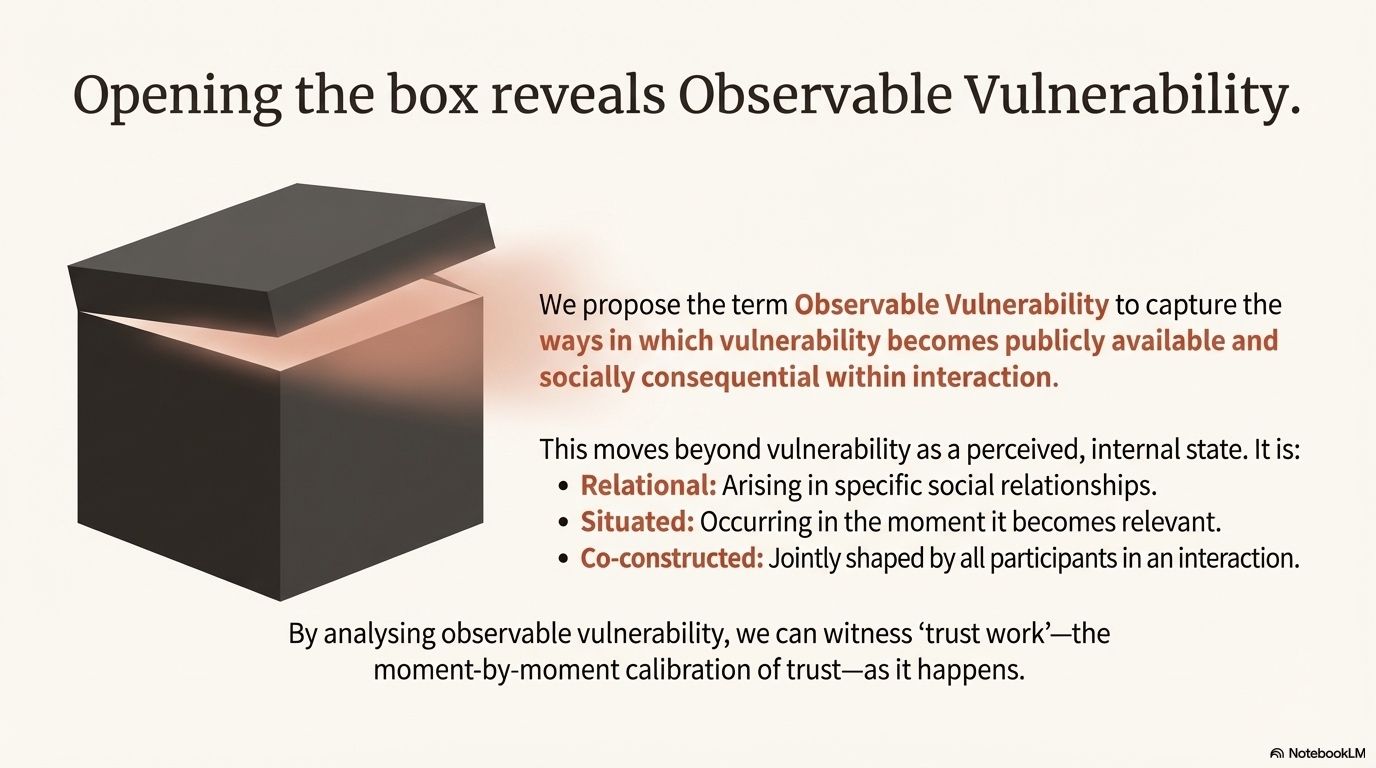

𝐓𝐫𝐮𝐬𝐭 𝐈𝐬𝐧’𝐭 𝐚 𝐅𝐞𝐞𝐥𝐢𝐧𝐠. 𝐈𝐭’𝐬 𝐚 𝐏𝐫𝐚𝐜𝐭𝐢𝐜𝐞.
In the special issue I recently co-edited, the paper Achieving Practical Trust in the Context of Interpersonal Vulnerability (Ann Merrit Rikke Nielsen, Mie Femø Nielsen & Sabine Ellung Jørgensen) challenges one of our most persistent assumptions: that trust is an inner state, a belief we carry about others. Through the lens of Ethnomethodology and Conversation Analysis (EMCA), the authors show something far more grounded and, for practitioners, far more actionable: trust is not a belief but a practical accomplishment.
By analysing real, high-stakes conversations, ie. moments filled with risk, fragility, and moral testing, the paper reveals how trust is built, repaired, or lost through the smallest conversational moves. Four lessons stand out.
𝐋𝐞𝐬𝐬𝐨𝐧 𝟏: 𝐓𝐫𝐮𝐬𝐭 𝐢𝐬𝐧’𝐭 𝐚 𝐬𝐭𝐚𝐭𝐞 𝐨𝐟 𝐦𝐢𝐧𝐝; 𝐢𝐭’𝐬 𝐩𝐫𝐚𝐜𝐭𝐢𝐜𝐚𝐥 𝐰𝐨𝐫𝐤.
Trust emerges through alignment, timing, and responsiveness. It is something people do together, moment by moment. It is achieved in practice, not stored in belief.
𝐋𝐞𝐬𝐬𝐨𝐧 𝟐: 𝐕𝐮𝐥𝐧𝐞𝐫𝐚𝐛𝐢𝐥𝐢𝐭𝐲 𝐢𝐬𝐧’𝐭 𝐣𝐮𝐬𝐭 𝐟𝐞𝐥𝐭; 𝐢𝐭’𝐬 𝐝𝐢𝐬𝐩𝐥𝐚𝐲𝐞𝐝.
People test the moral safety of an interaction by revealing small pieces of themselves. How the practitioner responds in that split second, echoing language, softening stakes, signalling memory, determines whether trust deepens or collapses.
𝐋𝐞𝐬𝐬𝐨𝐧 𝟑: 𝐍𝐨𝐫𝐦𝐚𝐥𝐢𝐬𝐢𝐧𝐠 𝐢𝐬 𝐨𝐧𝐞 𝐨𝐟 𝐭𝐡𝐞 𝐩𝐮𝐫𝐞𝐬𝐭 𝐬𝐢𝐠𝐧𝐚𝐥𝐬 𝐨𝐟 𝐭𝐫𝐮𝐬𝐭𝐰𝐨𝐫𝐭𝐡𝐢𝐧𝐞𝐬𝐬.
The counter-intuitive finding: being deliberately matter-of-fact about sensitive issues protects dignity. It shows that the person remains intact in your eyes. Sometimes the most powerful message is: I am not shocked. You are safe.
𝐋𝐞𝐬𝐬𝐨𝐧 𝟒: 𝐄𝐯𝐞𝐫𝐲 𝐢𝐧𝐭𝐞𝐫𝐚𝐜𝐭𝐢𝐨𝐧 𝐢𝐬 𝐚 𝐬𝐢𝐭𝐞 𝐨𝐟 𝐯𝐮𝐥𝐧𝐞𝐫𝐚𝐛𝐢𝐥𝐢𝐭𝐲.
Goffman reminds us that our “face” is always at stake. EMCA shows that the conversation itself is just as fragile. Trust protects not only people but the shared social moment. When trust ruptures, the interaction collapses with it.
Together, these insights reveal trust not as a psychological variable but as a micro-social achievement produced through disciplined conversational care.
For trust practitioners, this changes the question. The focus shifts from inner attitudes to the actionable craft of interaction: how we respond, how we normalise, how we echo, how we hold the space.
The real question is no longer: Do I trust you?
but: What trust work are we accomplishing together, right now?
Link to article: https://www.tandfonline.com/doi/full/10.1080/21515581.2025.2554267?src=
11-12-2025

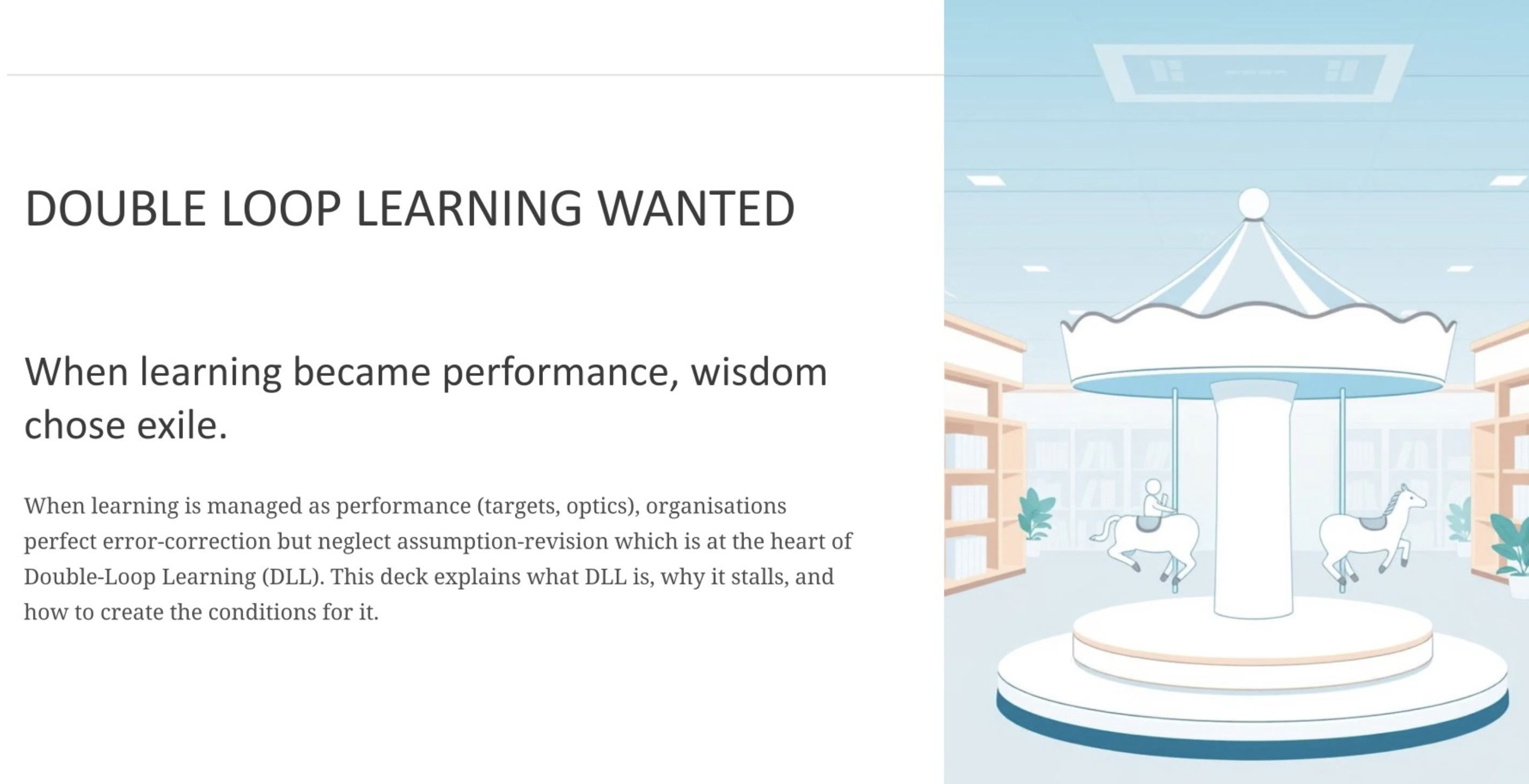

𝗗𝗢𝗨𝗕𝗟𝗘-𝗟𝗢𝗢𝗣 𝗟𝗘𝗔𝗥𝗡𝗜𝗡𝗚: 𝗪𝗔𝗡𝗧𝗘𝗗
Your company just repeated the same strategic mistake for the third year in a row. Everyone saw it coming. No one said anything. And next year, you'll do it again.
This isn't incompetence. It's something far more dangerous: organizational design that rewards fixing symptoms while punishing anyone who questions the disease:
𝘚𝘪𝘯𝘨𝘭𝘦-𝘭𝘰𝘰𝘱 𝘭𝘦𝘢𝘳𝘯𝘪𝘯𝘨 𝘢𝘴𝘬𝘴 "𝘏𝘰𝘸 𝘥𝘰 𝘸𝘦 𝘧𝘪𝘹 𝘵𝘩𝘪𝘴?" 𝘋𝘰𝘶𝘣𝘭𝘦-𝘭𝘰𝘰𝘱 𝘭𝘦𝘢𝘳𝘯𝘪𝘯𝘨 𝘥𝘢𝘳𝘦𝘴 𝘵𝘰 𝘢𝘴𝘬 "𝘞𝘩𝘺 𝘥𝘪𝘥 𝘸𝘦 𝘵𝘩𝘪𝘯𝘬 𝘵𝘩𝘪𝘴 𝘸𝘢𝘴 𝘳𝘪𝘨𝘩𝘵?"
Here's what decades of research reveals: Organizations are brilliant at single-loop learning, fixing errors within existing frameworks. But when it comes to questioning the frameworks themselves? We fail spectacularly.
A systematic review of 128 studies shows despite endless leadership training, continuous improvement programs, and innovation theaters, most organizations remain trapped in what Argyris called Model I reasoning: defensive fortresses where questioning assumptions triggers panic, responsibility gets suppressed, and transformative inquiry dies in committee.
The brutal paradox: The more successful your processes, the harder it becomes to question them.
𝗪𝗵𝘆 𝗱𝗼𝘂𝗯𝗹𝗲-𝗹𝗼𝗼𝗽 𝗹𝗲𝗮𝗿𝗻𝗶𝗻𝗴 𝗿𝗲𝗺𝗮𝗶𝗻𝘀 𝗲𝗹𝘂𝘀𝗶𝘃𝗲:
Research points to two missing ingredients, and when you map them on a 2x2, you see why most organizations are stuck:
Relational Leadership (vertical axis): Leaders engage people as persons, hold the ‘It’ (assumptions) in view, and enable others to relate directly to it and to the "field" they are in.
Enabling Organizational Design (horizontal axis): Structures that make reflection routine rather than heroic. Regular forums for surfacing assumptions, protocols protecting vulnerable exploration, rhythms embedding inquiry into daily work.
When both are weak? 𝗡𝗮𝗿𝗰𝗶𝘀𝘀𝗶𝘀𝘁𝗶𝗰 𝗕𝘂𝗿𝗲𝗮𝘂𝗰𝗿𝗮𝗰𝘆. Defensive fortresses where inquiry is punished and survival means never questioning the emperor's clothes.
When design is strong but leadership weak? 𝗜𝗻𝘀𝘁𝗿𝘂𝗺𝗲𝗻𝘁𝗮𝗹𝗶𝘇𝗲𝗱 𝗟𝗲𝗮𝗿𝗻𝗶𝗻𝗴. Efficient processes that create the theater of reflection while avoiding its substance.
When leadership is strong but design weak? 𝗕𝗹𝗼𝗰𝗸𝗲𝗱 𝗜𝗻𝗾𝘂𝗶𝗿𝘆. Heroic leaders whose breakthroughs cannot survive the system's immune response.
Only when both align do we enter 𝗟𝗲𝗮𝗿𝗻𝗶𝗻𝗴 𝗖𝗼𝗺𝗺𝘂𝗻𝗶𝘁𝘆, where questioning assumptions becomes embedded, sustainable, transformative.
𝗧𝗵𝗲 𝗾𝘂𝗲𝘀𝘁𝗶𝗼𝗻 𝗶𝘀𝗻'𝘁 𝘄𝗵𝗲𝘁𝗵𝗲𝗿 𝘆𝗼𝘂𝗿 𝗼𝗿𝗴𝗮𝗻𝗶𝘇𝗮𝘁𝗶𝗼𝗻 𝗻𝗲𝗲𝗱𝘀 𝗱𝗼𝘂𝗯𝗹𝗲-𝗹𝗼𝗼𝗽 𝗹𝗲𝗮𝗿𝗻𝗶𝗻𝗴. The question is whether you're brave enough to create the conditions that make it possible, knowing it might reveal that everything you've built is built on assumptions no one dares question.
What assumption in your organization is everyone afraid to challenge?
10-12-2025

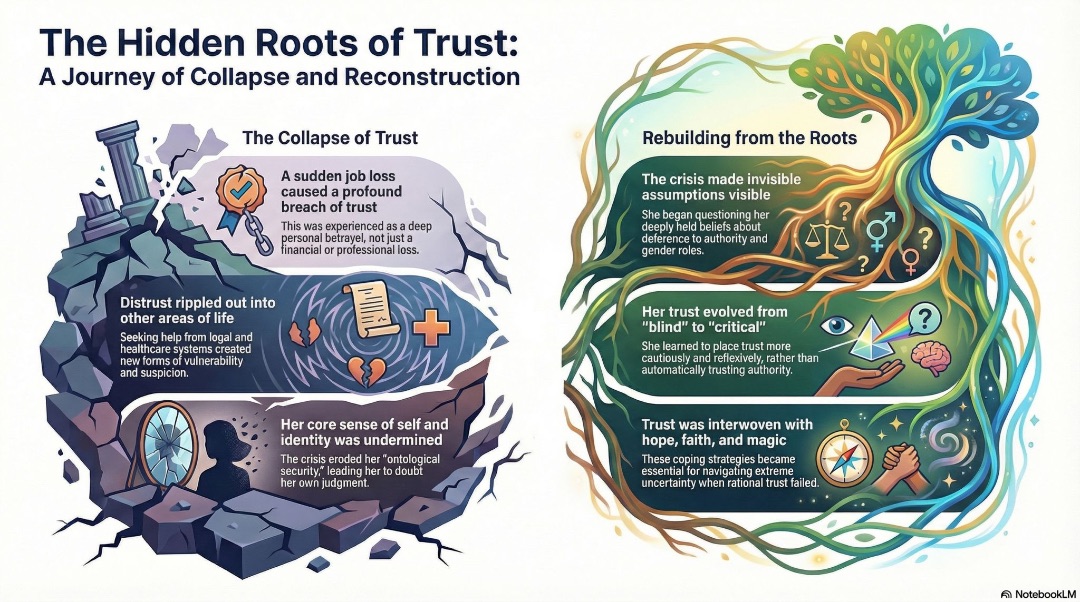

When Trust Breaks: How Life Exposes the Rules We Didn’t Know We Lived By
Think of a moment when your trust shattered. Not disappointment but destabilisation. The world tilts. Something inside no longer holds.
That’s because trust is not a conscious calculation. It is a background world we inhabit - invisible, unquestioned. Harold Garfinkel noted that everyday life works only because we treat most of reality as “taken for granted,” an unseen infrastructure we rely on without examining. When it cracks, our reality cracks with it.
A powerful new article in our special issue makes this unsettling phenomenon visible. Drawing on 30 months of psychological observation with a woman pseudonymously named Florence, the authors trace how a sudden job loss became more than a professional setback. It tore through her ontological security: her belief that the world is stable, that she is coherent, and that the future is navigable. Her breach of trust was not simply “I lost my job.” It was, “I trusted, and that trust annihilated me.”
Distrust then rippled outward. First toward her manager, then her organisation, then the legal system where she sought justice. When court processes forced her to relive the betrayal, she began to distrust those meant to protect her. What began as a fracture became systemic - a cascade Garfinkel would recognise as a breach exposing the background order of life.
When the taken-for-granted collapses, you do not simply doubt others - you doubt yourself. "I don’t trust myself nor others,” Florence said. “I got destroyed, and she moved on.”
But here is where the article becomes generative rather than despairing. Florence’s crisis excavated her assumptions. She began questioning the invisible scripts she had lived inside - gendered obedience, deference to authority, the “good girl”. Her trust evolved from blind to critical: she learned to interrogate, discern, choose.
Rebuilding trust was not merely interpersonal. It was deep identity work - Garfinkel’s repair work after rupture.
Trust, the article suggests, is not naivity. It is discernment - sometimes intertwined with hope or even magic when rational trust fails.
And this is what struck me most, as editor: crises do not just break people. They expose how social life works. They rip up the roots so we finally see what lay beneath: our inherited assumptions about authority, goodness, worth, and power.
So let me leave you with this: Which parts of reality do you treat as unquestionable and what would happen to your identity if those taken-for-granted certainties suddenly demanded explanation, renegotiation, or repair?
09-12-2025

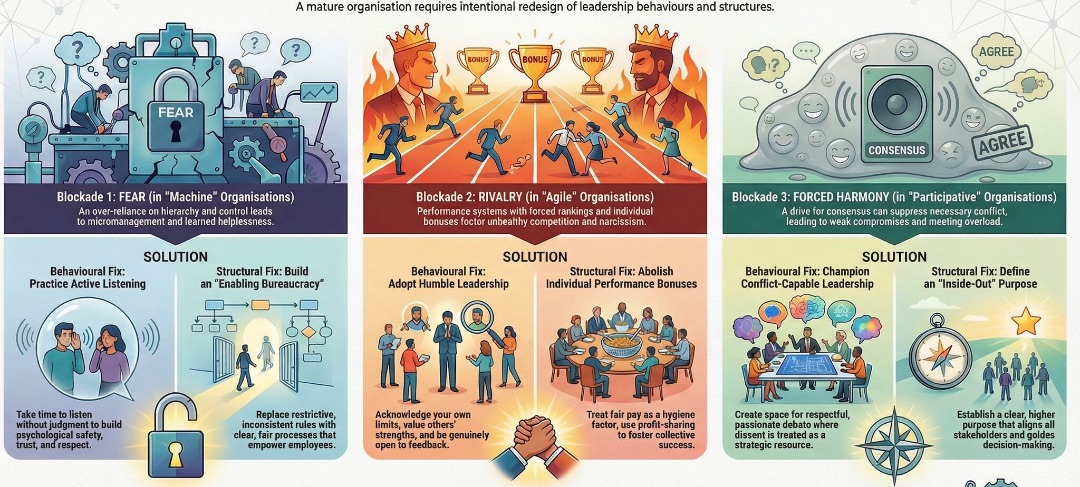

WHY POSITIVE HR MANAGEMENT STILL ROCKS
Most criticisms of positive psychology hit the wrong target.
Yes, the self-optimization imperative is problematic. "Work on yourself, your belief systems determine your success" – this psychologizes structural problems and blames individuals for system errors.
But positive human resource management has never been individual coaching. It is radical structural criticism. It shows where traditional leadership and HR practices stand in the way of organizations: They reduce people to resources, limit adaptability, neutralize creativity. And they make performance fall short – although it could be thought of as suitable for grandchildren: as an effectiveness that does not come at the expense of future generations, but builds up regenerative capacities.
The reality in many organizations: Despite clear evidence, companies repeatedly fall back into three patterns:
1️⃣ Blockage 1 – FEAR
Micromanagement and control stifle initiative. People resort to hierarchy because they believe that this is the only way to control complexity or because they still believe that growth can only be achieved through standardization.
2️⃣ Blockade 2 – Rivalry
Ranking systems and individual premiums promote unhealthy competition instead of collective effectiveness. In addition, they flush the wrong people to the top of the companies - keyword: narcissistic pedima.
3️⃣ Blockade 3 – Harmony compulsion
The compulsion to reach a consensus suppresses necessary conflict and leads to rotten compromises.
What will therefore change in the CAS "Strategic Human Resource Management" in 2026: We will make systematic diagnosis mandatory. Because only those who recognize where their own organization stands (or where it has fallen behind) can name the specific blockages and consciously shape them differently.
Better personnel management is therefore always a system - in addition to value work: What do you see in your organizations: Which of these blockades is the most persistent?
08-12-2025

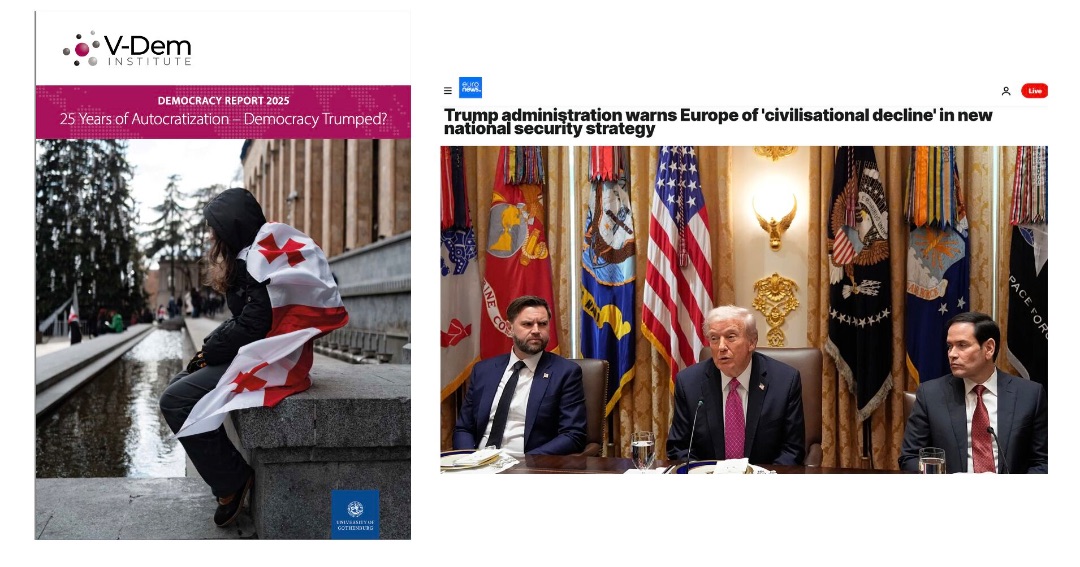

𝗧𝗵𝗲 𝗡𝗮𝗿𝗰𝗶𝘀𝘀𝗶𝘀𝗺 𝗼𝗳 𝗡𝗮𝘁𝗶𝗼𝗻𝘀: 𝗪𝗵𝗲𝗻 𝗣𝗿𝗼𝗷𝗲𝗰𝘁𝗶𝗼𝗻 𝗥𝗲𝗽𝗹𝗮𝗰𝗲𝘀 𝗣𝗮𝗿𝘁𝗻𝗲𝗿𝘀𝗵𝗶𝗽
The latest U.S. National Security Strategy reads like a case in 𝗴𝗿𝗼𝘂𝗽 𝗻𝗮𝗿𝗰𝗶𝘀𝘀𝗶𝘀𝗺 - the collective defence mechanism in which a community idealises itself while projecting disorder onto others. Group narcissism arises when collective worth is threatened: instead of reform, systems inflate self-importance and externalise blame.
𝗬𝗲𝘀, 𝗘𝘂𝗿𝗼𝗽𝗲 𝗵𝗮𝘀 𝗮 𝗽𝗿𝗼𝗯𝗹𝗲𝗺. Freedom of expression deteriorated in 15 states since 2019. The rule of law saw 38% of global declines in 2024. Hungary, Serbia, Slovakia: democratic backsliding is real.
But apply the same lens to the U.S., and a paradox emerges. V-Dem shows U.S. democratic performance has fallen to 1976 levels a significant decline since 2014. It describes the situation as “an ongoing attempt steering towards democratic breakdown.”
Patterns match global autocratisation:
• 𝗘𝘅𝗲𝗰𝘂𝘁𝗶𝘃𝗲 𝗮𝗴𝗴𝗿𝗮𝗻𝗱𝗶𝘀𝗲𝗺𝗲𝗻𝘁 with weakening checks and balances
• 𝗟𝗼𝘆𝗮𝗹𝘁𝘆 𝗽𝘂𝗿𝗴𝗲𝘀 across federal agencies
• 𝗠𝗲𝗱𝗶𝗮 𝗶𝗻𝘁𝗶𝗺𝗶𝗱𝗮𝘁𝗶𝗼𝗻 and threats to licence revocation
• 𝗝𝘂𝗱𝗶𝗰𝗶𝗮𝗹 𝗶𝗻𝘁𝗲𝗿𝗳𝗲𝗿𝗲𝗻𝗰𝗲 too many to mention
• 𝗜𝗻𝘀𝘁𝗶𝘁𝘂𝘁𝗶𝗼𝗻𝗮𝗹 𝗰𝗼𝗻𝘁𝗲𝗺𝗽𝘁 toward Congress’ constitutional powers
Foreign policy signals the same reversal: punishing NATO partners while aligning UN votes with Russia, North Korea, and Sudan and withdrawing support from Ukraine.
Here psychology becomes geopolitics. Group narcissism is not only self-deception: it is 𝗽𝗿𝗼𝗷𝗲𝗰𝘁𝗶𝗼𝗻 𝗮𝘀 𝘀𝘁𝗿𝗮𝘁𝗲𝗴𝘆. When identity is threatened, disorder is exported: others are corrupt, others weaken democracy.
Crucially, narcissistic systems are not merely blind. Research on leadership’s “Dirty Dozen” traits (the constellation of Machiavellian manipulation, narcissistic entitlement, and psychopathic disregard) shows they may be internally incoherent yet externally cunning. They believe their own myth 𝘄𝗵𝗶𝗹𝗲 𝗱𝗲𝗽𝗹𝗼𝘆𝗶𝗻𝗴 𝗶𝘁 𝗮𝘀 𝗮 𝘄𝗲𝗮𝗽𝗼𝗻. Narcissistic systems are dangerous because they fuse 𝘀𝗲𝗹𝗳-𝗱𝗲𝗰𝗲𝗽𝘁𝗶𝗼𝗻 (they believe their virtue) with 𝗶𝗻𝘀𝘁𝗿𝘂𝗺𝗲𝗻𝘁𝗮𝗹 𝗰𝘂𝗻𝗻𝗶𝗻𝗴 (they weaponise belief). The myth becomes both opiate and sword.
But a self-deluded leader may be ridiculous, a self-deluded group - armed with military, narrative, and alliance power - is something else entirely.
So the issue is not who is “worse.” Both sides face democratic strain. 𝗧𝗵𝗲 𝗱𝗲𝗲𝗽𝗲𝗿 𝗿𝗶𝘀𝗸 𝗶𝘀 𝘁𝗵𝗶𝘀: when a declining democracy adopts narcissistic defences, it begins to treat former partners as enemies - not because it misunderstands reality, but because it 𝗺𝘂𝘀𝘁 construct enemies to hold its identity together.
And that leaves the real question: Can current democracies still look in the mirror long enough to correct themselves? Or will projection replace partnership hollowing alliances while pretending to protect them?
07-12-2025

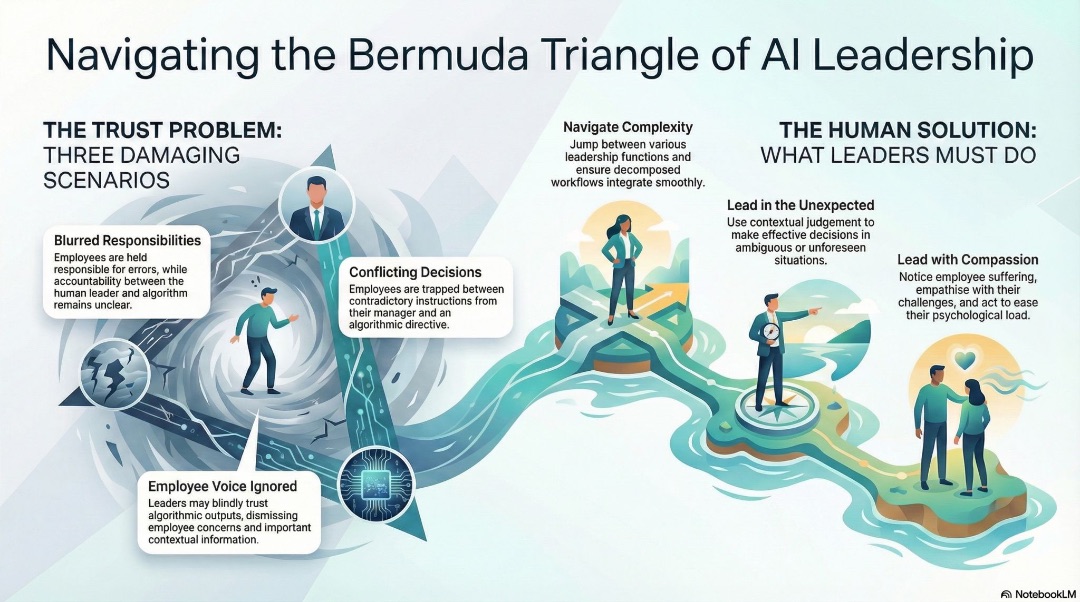

Attention HR & L&D: AI is changing leadership – and our task
While HR is still talking about "leadership at eye level", we have installed a third player at the table who does not listen, does not doubt and never takes responsibility. In many organizations, there are now two leaders: the human being — and the algorithm that evaluates, assigns, punishes. Only one of the two can be fired (not the machine 😉).
For Learning & Development should be a new core. Where algorithms lead, the meaning of leadership shifts. And where responsibility diffuses, trust breaks down faster than any feedback culture can repair.
1️⃣The first erosion begins when accountability blurs. Employees follow a system because the manager demands it – and are punished if the system is wrong. This happens every day in platform work, content moderation or service processes. From an L&D point of view, this is a betrayal of the psychological contract: leadership becomes a conduit station instead of a shelter. The development of leaders must address civil courage: the duty not to delegate responsibility when people bear it.
2️⃣The second erosion occurs when machines and humans send conflicting signals. The KPI logic of the platform says one thing, the relationship level of the manager says another. Employees often follow the person reluctantly – for fear of losing socially. If the decision was wrong, poisoned trust arises: you trusted because you had to, not because you believed. For L&D, this means that we have trained for too long to follow the rules instead of judgement, to develop skills for too long instead of moral maturity.
3️⃣The deepest erosion occurs when managers and algorithms join forces against employees – when algorithmic evaluations are adopted uncritically, without context, without hearing. For those affected, this seems like fraternization with the machine. It signals: efficiency weighs more than dignity. This is not a technical problem, but a character problem of the organization.
And this is where the perspective shifts: AI does not make leadership superfluous – it exposes where it is really needed.
There are three leadership tasks that algorithms cannot take over: Reintegrating fragmented work in a meaningful way. Interpreting ambiguity morally. Protect people from system logics that can hurt them.
For L&D, this means that leadership training must move away from methodological kits towards the formation of conscience, contextual sensitivity and caring skills. Anyone who leads in the future must not only deliver results, but also defend people – against machine logics and against systemic blindness.
The decisive question for the future is therefore not: What can AI do? Rather: What leadership do we educate - one that capitulates to algorithms, or one that defends people even if it costs the quarterly metric?
06-12-2025

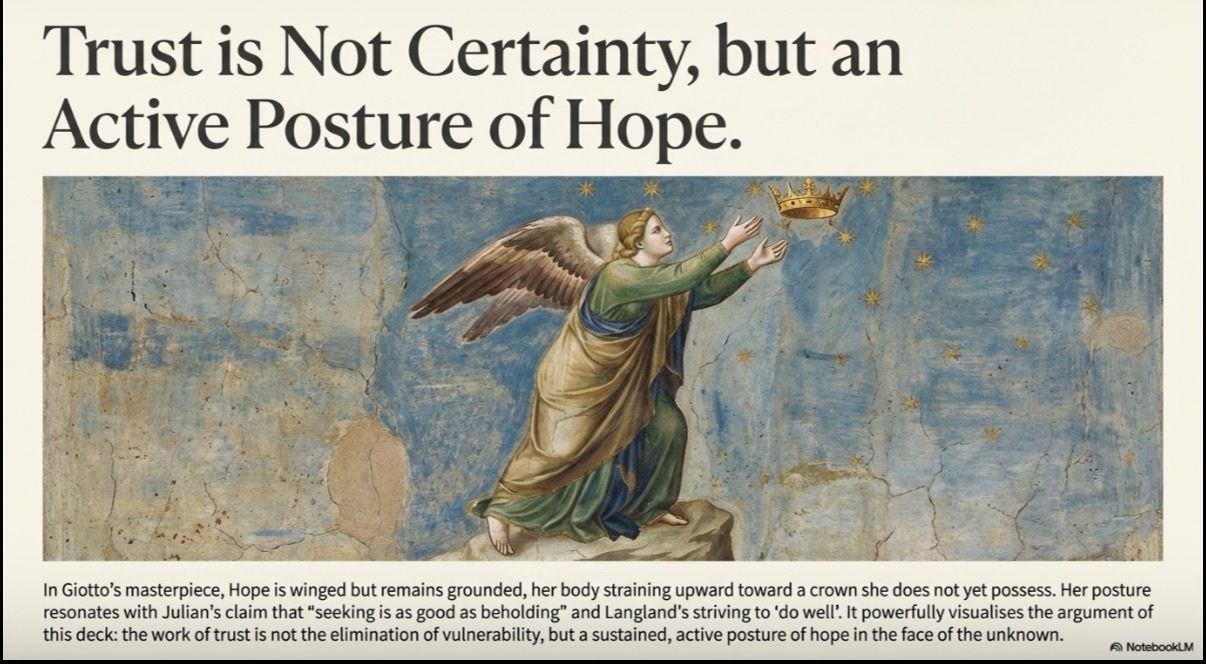

TRUST, FAITH and ACTIVE HOPE
Most of us know the uneasy moment after we decide to trust someone. This suspended period when we have opened ourselves but do not yet know whether our trust will be honoured. This “vulnerability phase” is difficult not simply because the outcome is uncertain, but because the other person remains opaque to us. We cannot see their intentions, and so we wait in a space shaped by hope, risk, and interpretation. This 𝐩𝐞𝐫𝐬𝐩𝐞𝐜𝐭𝐢𝐯𝐚𝐥 𝐯𝐮𝐥𝐧𝐞𝐫𝐚𝐛𝐢𝐥𝐢𝐭𝐲 sits at the core of relational life, and two unlikely sources illuminate it: infant development and medieval mysticism.
Our earliest training comes through games like peekaboo. Psychologists such as Piaget and Winnicott show how infants learn that a caregiver continues to exist when out of sight. This “𝐩𝐨𝐭𝐞𝐧𝐭𝐢𝐚𝐥 𝐬𝐩𝐚𝐜𝐞” between absence and return becomes a first lesson in tolerating uncertainty and a template for adult trust.
But an even harder challenge comes from unreadable presence. In Edward Tronick’s “𝐒𝐭𝐢𝐥𝐥 𝐅𝐚𝐜𝐞 𝐄𝐱𝐩𝐞𝐫𝐢𝐦𝐞𝐧𝐭,” a caregiver shifts from engagement to an expressionless stare. The infant’s distress comes from facing a presence that offers no clue about intention. This mirrors a central spiritual struggle in (not only) medieval Christianity: how to trust a God who is present yet silent - a 𝐝𝐞𝐮𝐬 𝐚𝐛𝐬𝐜𝐨𝐧𝐝𝐢𝐭𝐮𝐬.
Medieval mystics responded with remarkable psychological insight. Julian of Norwich imagines Christ as a maternal figure whose love resembles Winnicott’s “𝐠𝐨𝐨𝐝-𝐞𝐧𝐨𝐮𝐠𝐡 𝐦𝐨𝐭𝐡𝐞𝐫.” Divine care, for her, does not remove difficulty; it guides the believer through it. Trust becomes a sustained posture rather than a flash of certainty. Her claim that “𝐬𝐞𝐞𝐤𝐢𝐧𝐠 𝐢𝐬 𝐚𝐬 𝐠𝐨𝐨𝐝 𝐚𝐬 𝐛𝐞𝐡𝐨𝐥𝐝𝐢𝐧𝐠” reframes trust as a practice shaped by time and patience.
If Julian offers a model for vertical trust, William Langland turns to the struggle of trusting other people. In Piers Plowman, the protagonist realises that we perceive others only “𝐭𝐡𝐫𝐨𝐮𝐠𝐡 𝐚 𝐦𝐢𝐫𝐫𝐨𝐫, 𝐝𝐚𝐫𝐤𝐥𝐲.” This captures the essence of social trust: we act on partial understanding and still choose openness, accepting perspectival vulnerability as the condition of community.
Across these examples, a shared insight emerges. Trust is not confidence in an outcome; it is the ability to endure the uncertain space before the outcome appears. It means living with limited visibility into the intentions of others and remaining open despite that limit. This endurance is not weakness but a form of courage that allows relationships, communities, and faith to grow.
If trust is, at its core, the discipline of waiting, how might we strengthen our capacity to stay open in the moments when clarity has not yet arrived?
05-12-2025

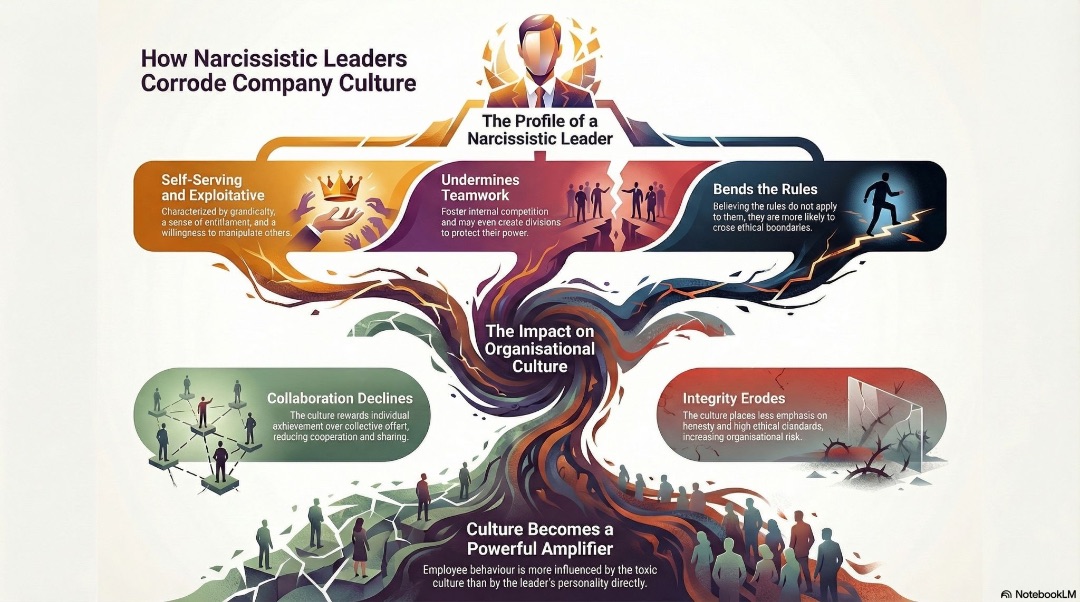

Narcissism or neoliberalism? Who is the real elephant in the room?
A recent article by O'Reilly and Chatman shows how narcissistic leaders create toxic cultures. They shape organizations into their own image. Cooperation erodes, integrity is relativized, loyalty replaces competence. It is crucial that the culture itself becomes the bearer of this logic and continues to have an effect after the leader has left.
But the more fundamental question arises: Is the narcissist the exception or a product of a system that rewards this logic?
The research describes collapse along two axes: collaboration and integrity. But both have long been considered collatory damage of a management approach that normatively upgrades competition and treats responsibility as an additional burden. The article analyzes psychology, I also see an expression of an ideology.
Many of the mechanisms described seem familiar because they are found in political economy. Competition is seen as a driver of innovation, self-assertion as a meritocracy principle, admiration for those who sit at the top of meritocracy. The narcissistic boss thus does not appear as an outlier, but as the consistent embodiment of a system in which "me before us" is built-in.
When Edgar Schein says that leadership creates culture, it is worth thinking about our economic model: a logic that promotes self-optimization, economies of admiration and shareholder orientation. Who thrives in a paradigm that rewards power and sanctions vulnerability?
Perhaps the article unintentionally adds: Our neoliberal operating system shapes narcissists. It institutionalizes ego orientation, externalizes responsibility and only instrumentally upgrades cooperation. It creates those types of leaders that we later diagnose as "toxic" without questioning the logic that produced them.
This shifts the question: How do we identify narcissists? Or: Why are they so successful in organizations that our system produces?
Perhaps we need less leadership development and more examination of basic assumptions. Economy as a community instead of ego game. Cooperation as a design principle. Integrity as a structural basis.
As long as we see narcissism as a personal problem, we overlook the elephant in the room: a system that rewards narcissistic traits also reproduces them.
The real challenge, therefore, is to cultivate a different paradigm in which this logic does not find fertile ground.
04-12-2025

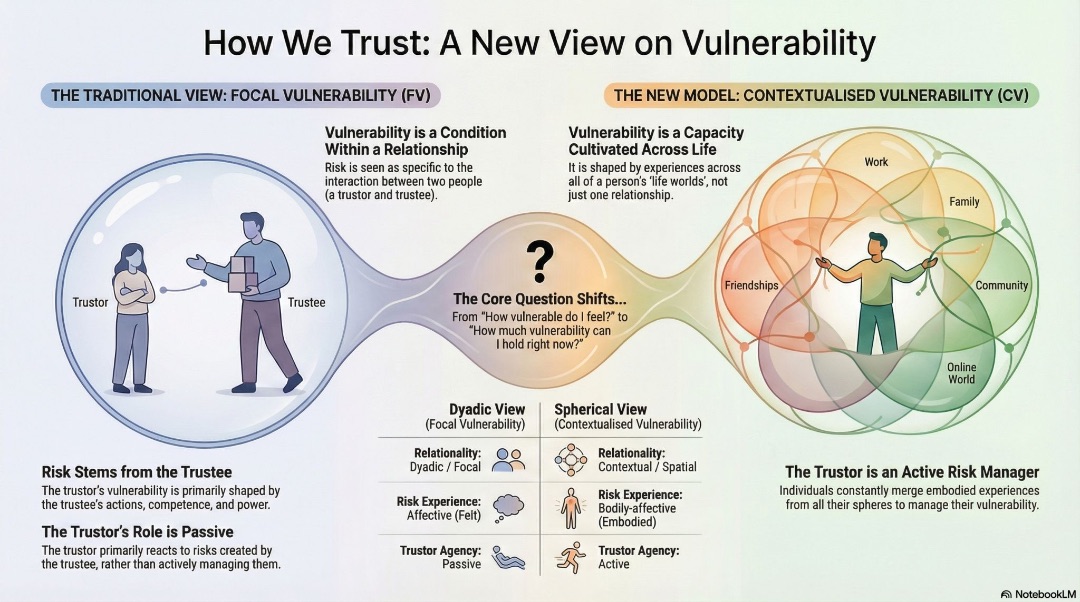

Vulnerability Isn’t a Feeling - It’s a Living Architecture of Trust
We like to imagine trust as something that happens between two people. Brené Brown helped popularise the appealing idea that vulnerability is courage expressed in relationship: I open myself, you may meet me. Yet this framing, for all its emotional resonance, is deceivingly narrow. It suggests fluctuations in trust reflect either the morality of the other or my personal instability. When trust tightens for no obvious reason, I blame you - or myself.
But what if this is the wrong place to look?
Recent research of Theresa Harrer in JTR disrupts the assumption that vulnerability is a strictly interpersonal affair. For decades, scholars treated trust through "focal" vulnerability: I assess your reliability and then decide how exposed I dare to be. Brown’s work sits within this paradigm - vulnerability is central, but still located “between us.” What it misses is the world around us.
Trust behaves less like a decision and more like a thermostat. It adjusts to the temperatures of the rooms we inhabit - work pressure, family strain, financial insecurity, bodily fatigue, small victories elsewhere. Peter Sloterdijk’s spherology offers a richer architecture: we don’t live in dyads, but in overlapping spheres. Moving between them continually reshapes who we are and how much vulnerability we can hold.
This leads to a profound reframing: trust decisions are never just about the person in front of us, but about the total ecology we bring into the encounter.
In this model - Contextualised Vulnerability - vulnerability is not weakness to accept, but capacity to navigate. We actively construct our exposure, integrating experience across spheres. The question becomes less “How vulnerable do I feel with you?” and more “How much vulnerability can I hold, given everything else I am carrying?”
This is both sobering and liberating. Hesitation may not reflect your failure or my cowardice, but depleted capacity from pressures elsewhere.
And this capacity is not merely cognitive. Trust is embodied. The body is where spheres bleed together: conflict at home enters the meeting room; physical achievement lifts courage; even the atmosphere of a space shapes openness. Trust is felt before it is reasoned.
Seen this way, Brown’s celebration of vulnerability is incomplete. Vulnerability is not performed bravery - it is lived architecture - scaffolded by conditions, shaped through embodied sense-making, recalibrated across worlds.
With this insight, trust retreats become signals, not betrayals. Instead of scrutinising the other, we might ask: which rooms are cold, and what support could expand my capacity to hold exposure?
Trust becomes less interpersonal virtue and more systemic in-action literacy. Perhaps the question is no longer “Do I trust you?” but “What am I carrying into this space — and how much vulnerability can I hold today?”
30-11-2025

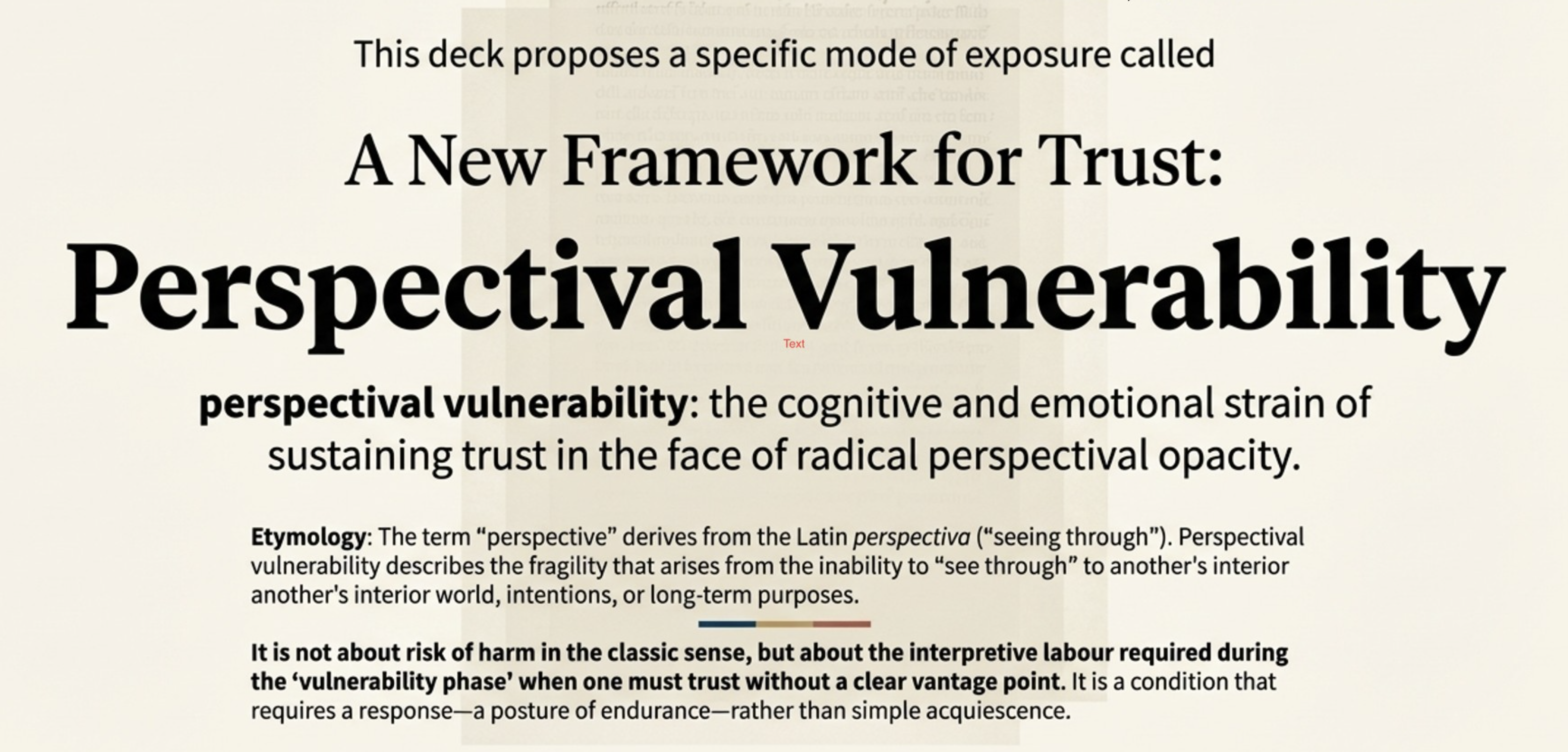

𝐖𝐡𝐚𝐭 𝐏𝐞𝐞𝐤𝐚𝐛𝐨𝐨, 𝐌𝐞𝐝𝐢𝐞𝐯𝐚𝐥 𝐌𝐲𝐬𝐭𝐢𝐜𝐬, 𝐚𝐧𝐝 𝐭𝐡𝐞 “𝐒𝐭𝐢𝐥𝐥 𝐅𝐚𝐜𝐞 𝐄𝐱𝐩𝐞𝐫𝐢𝐦𝐞𝐧𝐭” 𝐓𝐞𝐚𝐜𝐡 𝐔𝐬 𝐀𝐛𝐨𝐮𝐭 𝐭𝐡𝐞 𝐀𝐠𝐨𝐧𝐢𝐳𝐢𝐧𝐠 𝐖𝐨𝐫𝐤 𝐨𝐟 𝐓𝐫𝐮𝐬𝐭
Most of us know the uneasy moment after we decide to trust someone. This suspended period when we have opened ourselves but do not yet know whether our trust will be honoured. This “vulnerability phase” is difficult not simply because the outcome is uncertain, but because the other person remains opaque to us. We cannot see their intentions, and so we wait in a space shaped by hope, risk, and interpretation. This 𝐩𝐞𝐫𝐬𝐩𝐞𝐜𝐭𝐢𝐯𝐚𝐥 𝐯𝐮𝐥𝐧𝐞𝐫𝐚𝐛𝐢𝐥𝐢𝐭𝐲 sits at the core of relational life, and two unlikely sources illuminate it: infant development and medieval mysticism.
Our earliest training comes through games like peekaboo. Psychologists such as Piaget and Winnicott show how infants learn that a caregiver continues to exist when out of sight. This “𝐩𝐨𝐭𝐞𝐧𝐭𝐢𝐚𝐥 𝐬𝐩𝐚𝐜𝐞” between absence and return becomes a first lesson in tolerating uncertainty and a template for adult trust.
But an even harder challenge comes from unreadable presence. In Edward Tronick’s “𝐒𝐭𝐢𝐥𝐥 𝐅𝐚𝐜𝐞 𝐄𝐱𝐩𝐞𝐫𝐢𝐦𝐞𝐧𝐭,” a caregiver shifts from engagement to an expressionless stare. The infant’s distress comes from facing a presence that offers no clue about intention. This mirrors a central spiritual struggle in (not only) medieval Christianity: how to trust a God who is present yet silent - a 𝐝𝐞𝐮𝐬 𝐚𝐛𝐬𝐜𝐨𝐧𝐝𝐢𝐭𝐮𝐬.
Medieval mystics responded with remarkable psychological insight. Julian of Norwich imagines Christ as a maternal figure whose love resembles Winnicott’s “𝐠𝐨𝐨𝐝-𝐞𝐧𝐨𝐮𝐠𝐡 𝐦𝐨𝐭𝐡𝐞𝐫.” Divine care, for her, does not remove difficulty; it guides the believer through it. Trust becomes a sustained posture rather than a flash of certainty. Her claim that “𝐬𝐞𝐞𝐤𝐢𝐧𝐠 𝐢𝐬 𝐚𝐬 𝐠𝐨𝐨𝐝 𝐚𝐬 𝐛𝐞𝐡𝐨𝐥𝐝𝐢𝐧𝐠” reframes trust as a practice shaped by time and patience.
If Julian offers a model for vertical trust, William Langland turns to the struggle of trusting other people. In Piers Plowman, the protagonist realises that we perceive others only “𝐭𝐡𝐫𝐨𝐮𝐠𝐡 𝐚 𝐦𝐢𝐫𝐫𝐨𝐫, 𝐝𝐚𝐫𝐤𝐥𝐲.” This captures the essence of social trust: we act on partial understanding and still choose openness, accepting perspectival vulnerability as the condition of community.
Across these examples, a shared insight emerges. Trust is not confidence in an outcome; it is the ability to endure the uncertain space before the outcome appears. It means living with limited visibility into the intentions of others and remaining open despite that limit. This endurance is not weakness but a form of courage that allows relationships, communities, and faith to grow.
If trust is, at its core, the discipline of waiting, how might we strengthen our capacity to stay open in the moments when clarity has not yet arrived?
Link to article: https://doi.org/10.1080/21515581.2025.2554266
25-11-2025

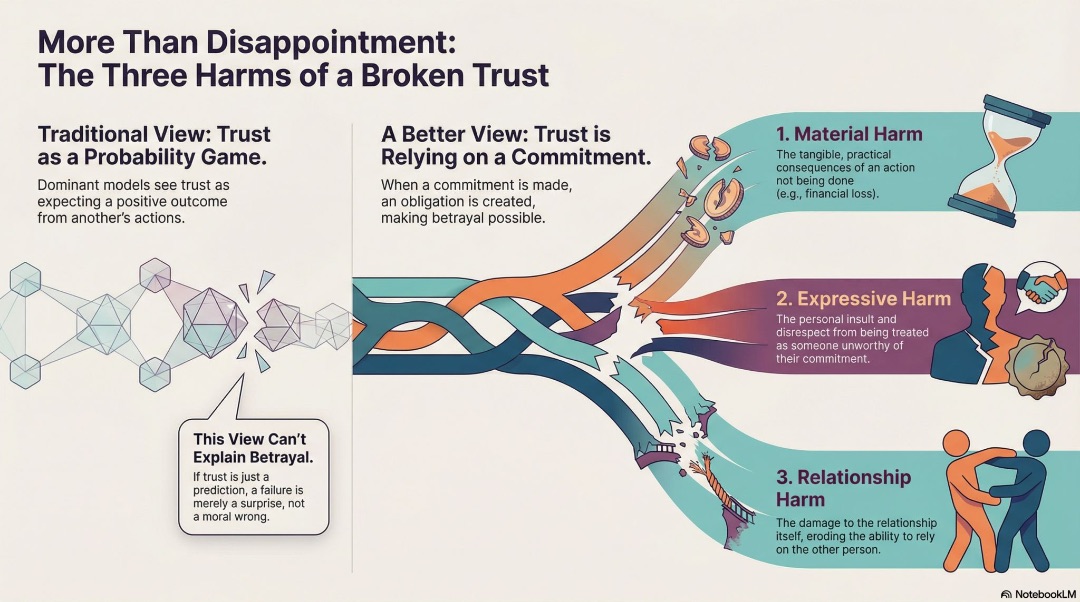

Beyond Disappointment: Why a Broken Promise Hurts in Three Directions
Most of us can recognise the quiet, sinking feeling that follows when someone we trusted lets us down. It is not the quick sting of an unmet expectation but something closer to a small wound. And it often comes with a sense of vulnerability: the sudden awareness that the space you opened to another person was not held with the care you assumed. It is striking how different this feels from something like a sports team losing a match. Both moments involve expectations that fail, yet only one leaves us feeling exposed.
Philosopher Marc Cohen argues that this difference comes from how we misunderstand trust. We often treat it as a prediction about behaviour, as if relying on someone were a calculated bet. But if trust were only a prediction, a broken promise would feel like a misjudgment, not a personal slight. It would not unsettle our sense of being valued.
A better understanding sees trust as reliance on a commitment. When someone gives their word, even informally, they take on an obligation directed to you. This creates a small moral community in which each person recognises the other as someone whose commitments matter. When the promise is ignored, the failure is not only practical; it signals that this shared space was not taken seriously.
This is what philosophers call “expressive harm”: the injury carried by the message an action conveys. A broken promise quietly communicates that your claim on the other person’s effort or attention did not count enough. The sting lies in this unspoken meaning, which touches both dignity and vulnerability.
Once we see trust in this way, a broken promise reveals itself as a three-part injury. There is the material harm of what was not done. There is the expressive harm of the implied disregard. And there is the relational harm - the weakening of the very foundation that made future reliance possible. Because trust lets us move through life without constant self-protection, its violation can feel like losing a bit of safety.
Viewed like this, trust becomes more than optimism about behaviour. It is an invitation into a shared moral world. Betrayal is not just disappointment; it is a small act of exclusion that loosens the ties that make cooperation feel natural.
If we take this seriously, keeping a commitment becomes more than a professional virtue. It is a way of protecting the fragile moral communities - be it teams, friendships, partnerships - that allow us to work and live with more openness and less fear. And breaking a promise, even unintentionally, risks far more than an unmet expectation. It touches the very fabric that makes trust possible.
Link to article: https://doi.org/10.5465/amr.2022.0058
23-11-2025

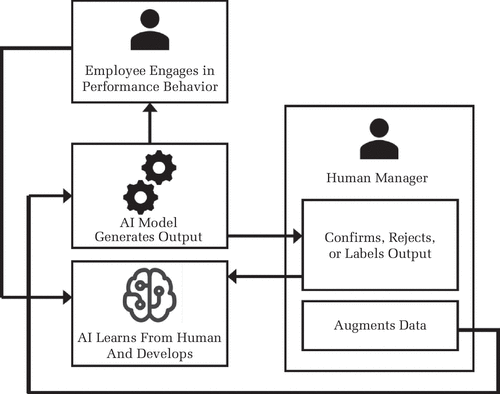

⚙️ If algorithms lead – who trusts whom?
More and more organizations are leaving performance assessment, feedback, and goal management to algorithms. What begins as a gain in efficiency can quickly lead to the erosion of trust: Employees experience evaluation systems as non-transparent and dehumanized – and trust in leadership and organization crumbles.
The new article in the Academy of Management Review (Leavitt, Barnes & Shapiro, 2024), also building on my research, shows that technology does not automatically displace trust – but if leadership does not react, trust is at stake.
The authors call for a new form of leadership, which they call reflexive: Leaders must understand how algorithmic systems guide behavior – and consciously intervene to uphold human values:
1️⃣ From decision-making to mediation
Leadership is shifting from decision-making to shaping relationships between people and systems. We need to empower leaders to understand and translate both logics: How can algorithmic outputs be translated into dialogue, feedback, and development?
👉 New core competence: Reflexive judgement instead of technocratic efficiency.
2️⃣ From technology competence to trust competence: It is not the operation of the tool that is decisive, but the ability to shape trust despite technology. Leadership needs attitude, not a perfect data basis.
👉 New core competence: Courage to be humanly fuzzy – trust through attitude, not through data.
3️⃣ From control to relationship design: When algorithms measure, leadership must connect.
Leadership explains the why that no machine can see – it creates meaning where numbers only show patterns.
👉 New Core Competence: Narrative Leadership – Leadership as Shaping Meaning.
4️⃣ Reflexivity as a learning routine: Persona management must create spaces in which leaders can think about the impact of technology – beyond tools and dashboards.
Learning spaces for ethical and organizational dilemmas.
👉 New core competence: Conscious pause – learning by thinking, not just by doing.
Trust remains a deeply human emotion – a relationship, not a calculation. But it can be nurtured – through reflexive judgment: the ability to recognize how technology shapes behavior, how data creates interpretation – and how leadership still preserves humanity.
This new form of leadership combines analytical clarity with depth. It navigates contradictions instead of smoothing them out, and creates trust not despite, but through awareness of one's own responsibility in the digital system.
Link to article: https://doi.org/10.5465/amr.2022.0058
22-11-2025

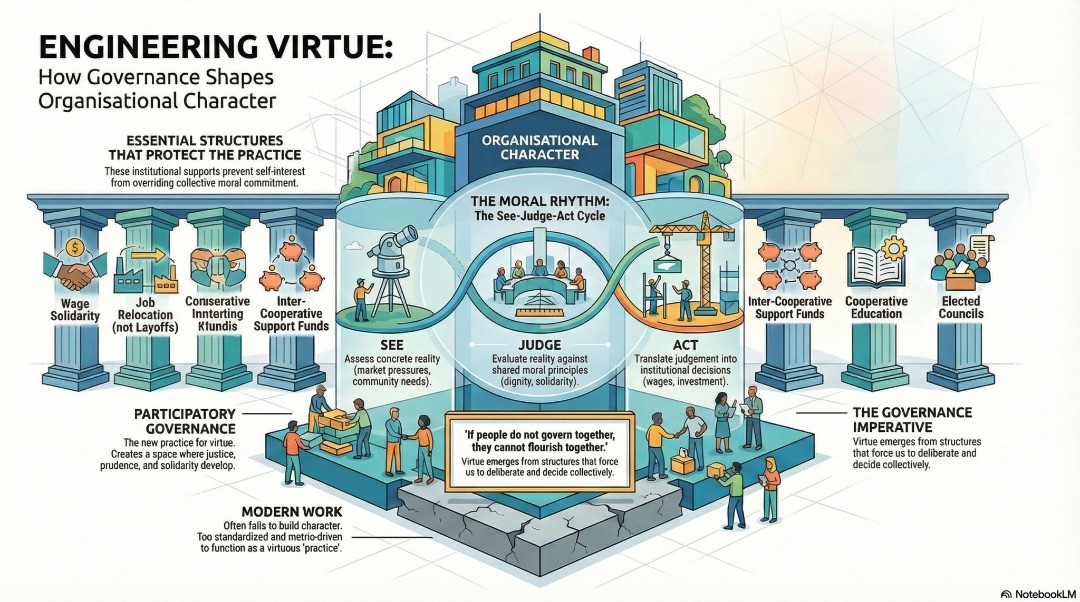

BECOMING CITIZENS AT WORK
We often assume that the moral centre of an organisation lies in the work itself: in the craft, the skill, the autonomy, the purpose. But reading Caleb Bernacchio & Couch’s analysis of Mondragon reminded me how little of contemporary work actually fits that ideal (and think AI). Much of it is standardised, fragmented, governed by KPIs and efficiency metrics. In MacIntyre’s terms, it simply cannot function as a “practice,” the kind of cooperative activity in which virtues naturally develop.
So the authors do something interesting: they turn our gaze away from the work and toward the way we govern ourselves. Their argument is that those companies where jobs cannot be turned meaningful, participatory governance becomes the real space where virtues like justice, prudence, courage, and solidarity can still grow.
Mondragon illustrates this nicely. When workers sit together to decide: how profits are distributed, what risks are acceptable, how solidarity is expressed, what the enterprise owes its community,
and who bears the costs of downturns, they are engaging in a political practice, searching for the common good. Also MacIntyre’s key point becomes clear: practices survive only when the institution protects them. If external goods such as pay and power dominate, the practice collapses into self-interest.
This is why Mondragon’s design matters. Wage solidarity prevents deliberation from turning into a negotiation between income-ranked actors. Job relocation instead of layoffs gives people the security to speak honestly. Solidarity funds buffer the cooperatives against market shocks that would otherwise silence moral commitments. Cooperative education equips members for shared judgment. Elected councils structure participation so it remains genuinely collective rather than dominated by the confident or powerful. These material and formal structures are the ecological supports that make democratic governance a real practice rather than an empty ritual.
What struck me as well is how this connects to the See–Judge–Act tradition that shaped Mondragon’s founder. Participatory governance there is not just procedure; it is a repeated moral cycle. Members begin by seeing the concrete realities they face. They judge these in light of shared moral principles such as dignity, solidarity, and sufficiency. And they act by turning these judgments into institutional decisions on wages, risk-sharing, education, and support for weaker cooperatives. See–Judge–Act is the internal rhythm through which governance becomes a space of virtue.
The deeper lesson is clear: purpose, culture, and values cannot carry an organisation unless its governance makes moral reasoning possible. Virtue does not emerge from slogans but from structures that require us to deliberate and take responsibility together.
If people do not govern together, they cannot flourish together. And if organisations want virtue, they must be designed for it.
20-11-2025

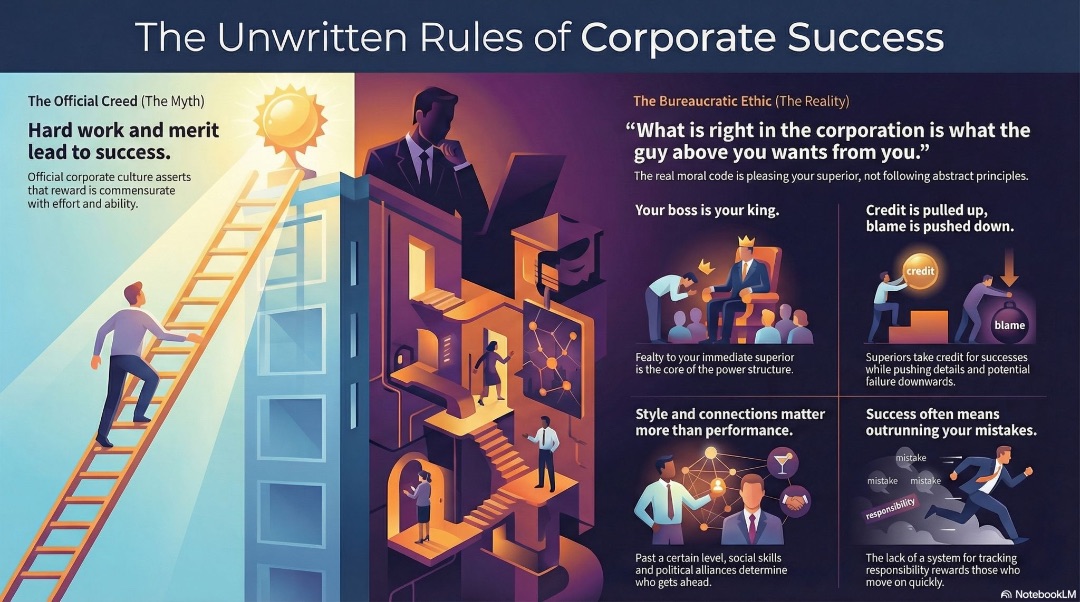

MORAL MAZES UNDERMINING DECENCY
Robert Jackall’s Moral Mazes (1988) is usually treated as an artifact of corporate history, a portrait of how managers behaved in the pre-digital age. That reading misses the point. Jackall was not describing a moment; he was describing a machinery- one that manufactures a particular moral psychology. His argument becomes uncomfortable only when we admit how many contemporary institutions still run on the same operating system.
Jackall identifies five logics. The first is the displacement of principle by hierarchy. In these systems, morality collapses into the preferences of the superior. People learn that ethical judgement is irrelevant if it contradicts the chain of command. The task is not to deliberate, but to anticipate what those above want to hear. Independent thinking becomes a liability.
The second logic is the domination of appearances. Bureaucracies reward the performance of competence, not competence itself. They demand spectacles of unity and declarations of success even when the underlying structures are cracking. Image management becomes the central craft, because symbols travel faster and higher than facts.
Third, Jackall shows how the connection between performance and advancement disintegrates. Careers hinge on timing, factional alignment, and luck. Outcomes are noisy, responsibility is blurred, and evaluation is political. People are judged less on what they do than on how well they navigate the fog.
The fourth logic is the celebration of inconsistency. Bureaucracies train people to reverse course without hesitation, to deny what they previously affirmed, and to wrap contradictions in neutral, managerial language. Constancy becomes naïve; coherence becomes dangerous.
Finally, there is institutionalised short-termism. The system encourages actors to extract whatever they can from the present and leave the future to someone else. Damage can always be reframed, deferred, or disowned.
Jackall’s uncomfortable contribution is that these logics are not historical curiosities but enduring design features of hierarchical power. Look closely and you can see them animating many contemporary organisations - corporate, public, and political. The current U.S. administration merely makes them more visible: the king without jester, the cultivated inconsistency, the flooding the information environment with s***, the elevation of optics, even personal looks, into governing tools. It is very close to this hierarchy Jackell describes - even if quite on speed.
The real question is not why individuals behave like this. The question is why so many institutions continue to reproduce these moral architectures - and why we keep pretending that people can remain ethically intact inside systems that reward the opposite.
19-11-2025



𝙏𝙝𝙚 𝙋𝙧𝙤𝙗𝙡𝙚𝙢 𝙒𝙞𝙩𝙝 𝙩𝙝𝙚 𝙊𝙘𝙩𝙤𝙥𝙪𝙨 𝙊𝙧𝙜𝙖𝙣𝙞𝙯𝙖𝙩𝙞𝙤𝙣:
𝙒𝙝𝙚𝙣 𝙈𝙚𝙩𝙖𝙥𝙝𝙤𝙧 𝙍𝙚𝙥𝙡𝙖𝙘𝙚𝙨 𝙈𝙚𝙘𝙝𝙖𝙣𝙞𝙨𝙢
Everyone loves the Octopus Organization these days: the agile creature with eight autonomous arms, distributed intelligence, and a digital nervous system ready to sense and respond. It's a beautiful metaphor.
But that’s exactly the problem. Organizations aren’t animals. They’re 𝙖𝙧𝙚𝙣𝙖𝙨: moral, political, and reflexive spaces full of contradictory logics, contested identities, and uneven distributions of power. When we swap this complexity for a biological metaphor, we don’t “inspire transformation” - we 𝙤𝙗𝙨𝙘𝙪𝙧𝙚 𝙧𝙚𝙖𝙡𝙞𝙩𝙮.
And here’s the most overlooked part: 𝙏𝙝𝙚 𝙊𝙘𝙩𝙤𝙥𝙪𝙨 𝙢𝙤𝙙𝙚𝙡 𝙦𝙪𝙞𝙚𝙩𝙡𝙮 𝙖𝙨𝙨𝙪𝙢𝙚𝙨 𝙖 𝙫𝙚𝙧𝙮 𝙨𝙥𝙚𝙘𝙞𝙛𝙞𝙘 𝙠𝙞𝙣𝙙 𝙤𝙛 𝙝𝙪𝙢𝙖𝙣 𝙗𝙚𝙞𝙣𝙜. It assumes a workforce of perfect rational people who can self-regulate, self-prioritize, and self-coordinate without friction. People who don’t need reassurance, don’t require deliberation with others, and don’t struggle with ambiguity or overload. At the same time, the model implicitly hopes there are no 𝙢𝙚𝙩𝙖-𝙧𝙚𝙛𝙡𝙚𝙭𝙞𝙫𝙚𝙨 around: ones who ask whether the organisation should adapt, not just how. The ones who raise contradictions instead of smoothing them over. Without them, organisations lose their moral compass; with them, the octopus metaphor quickly breaks.
It also pretends that collaboration emerges organically. Yet relational goods - trust, solidarity, reciprocity - aren’t metaphors or engineerable. They’re emergent properties built through long, slow institutional work. Without them, “distributed intelligence” becomes localism, siloed decision-making, and informal power capture.
Speaking of power: where does it live in the Octopus Organization? Apparently nowhere. The “head” is light, the “arms” are smart, and somehow hierarchy dissolves. But anyone who has ever redesigned an organisation knows: 𝙥𝙤𝙬𝙚𝙧 𝙣𝙚𝙫𝙚𝙧 𝙙𝙞𝙨𝙖𝙥𝙥𝙚𝙖𝙧𝙨. 𝙄𝙩 𝙧𝙚𝙡𝙤𝙘𝙖𝙩𝙚𝙨.
Most troubling, the Octopus model has no moral core. It celebrates adaptability - but adaptible to what? A good organisation adapts selectively. It protects something 𝙖𝙩 𝙖𝙡𝙡 𝙘𝙤𝙨𝙩𝙨. It knows what it refuses to compromise. Adaptation without moral identity is not resilience; it’s drift.
So yes, the Octopus is agile. But without realistic assumptions about reflexivity and without the institutional work required to build relational goods, agility is just movement with no wisdom.
A truly future-ready organisation isn’t an octopus. It’s a 𝙧𝙚𝙛𝙡𝙚𝙭𝙞𝙫𝙚, 𝙧𝙚𝙡𝙖𝙩𝙞𝙤𝙣𝙖𝙡, 𝙢𝙤𝙧𝙖𝙡𝙡𝙮 𝙖𝙣𝙘𝙝𝙤𝙧𝙚𝙙 𝙖𝙧𝙚𝙣𝙖 capable of holding contradictions and transforming itself through practical wisdom and not metaphorical biology.
Until then, the Octopus Organization remains what it is: a clever image wrapped around an under-theorised promise.
18-11-2025

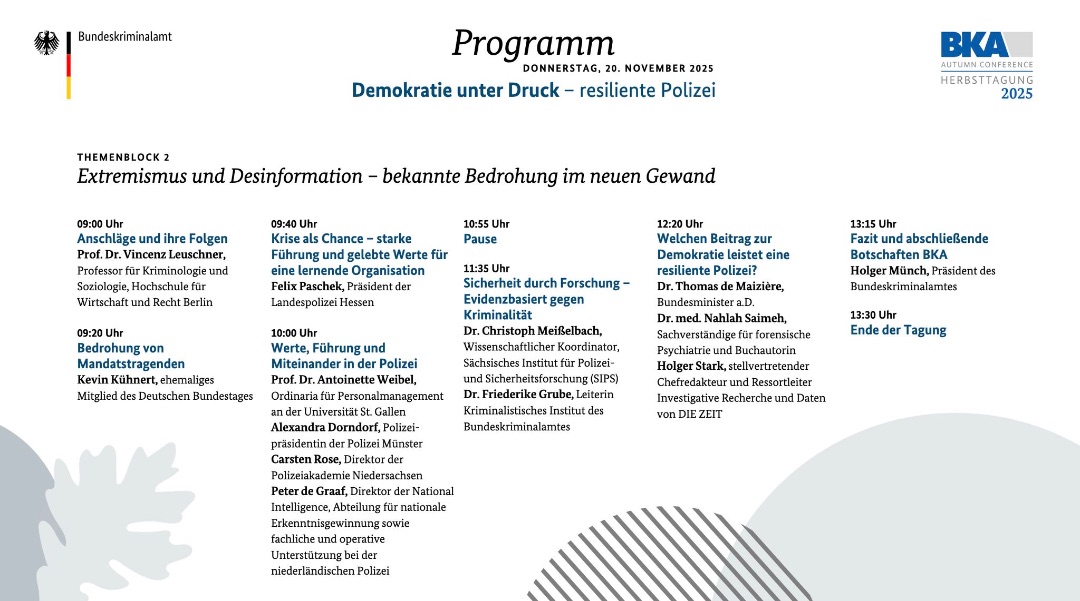

Democracy under pressure – resilient police
I'm impressed. Rarely have I experienced a conference that had so much depth, clarity and relentless openness. And rarely has it been so clear how much the current tensions around the police also tell us something about the state of our democracy.
The situation is serious: attacks on police and other supporting institutions are on the rise – and not because the police have lost their support. On the contrary, the general trust is high. The fault lines run elsewhere. Distrust is particularly strong among AfD voters, whose average trust values in the police are significantly lower than those of other voter groups. This shows an alienation that goes far beyond security policy issues: a democratic early warning signal.
At the same time, people with a visible migration background are also more often "on the fence". A single negative experience weighs more heavily than many neutral or positive ones – a psychological effect that quickly erodes trust. And yet the police are often accused of appearing too late or too low in strength in hot spots. An area of tension that can hardly be resolved: the protective power of the community on the one hand, assertiveness in an emergency on the other.
I found it all the more remarkable how much the police now rely on professional reflection work. And not as a "soft skill", but as a structural component of their mission. Reflection here means: discussing missions before and after, making decisions transparent, changing perspectives, analysing the effect on different groups, explicitly anchoring values and consciously enduring ambivalences. These spaces are institutionalized – moderated, mandatory, regular. They not only strengthen operational capability, but also integrity and resilience.
My impression: This is exactly where the management of many companies has fallen behind. We talk a lot about attitude, responsibility and resilience, but we rarely create the spaces in which difficult decisions, contradictory expectations or moral tensions can really be dealt with. Companies help shape social trust with their handling of conflicts, mistakes and questions of power – whether they like it or not.
I would like us to anchor this form of reflection more firmly in other organisations as well. When democracy comes under pressure, it needs institutions – both state and private – that do not suppress its contradictions, but process them professionally. That's exactly what impressed me so much about this conference.
16-11-2025

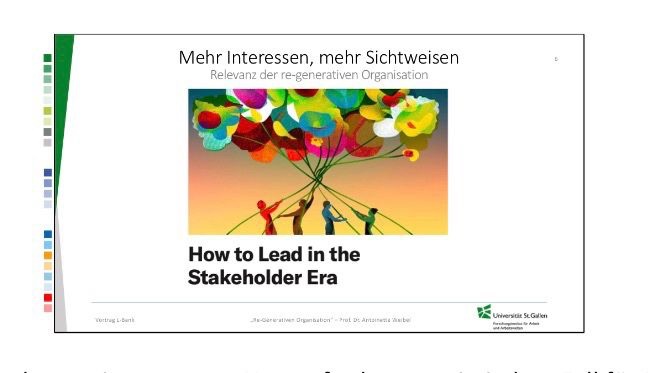

The Great Stakeholder Retreat: Companies Are Running Back to a Comfortable Lie
Remember 2020? The Davos Stakeholder Capitalism Manifesto. Companies pledged to serve ALL stakeholders – shareholders, employees, customers, suppliers, communities, society. Management would harmonize these conflicting interests through trade-offs and decisions.
Four years later? The backlash is real.
Companies are retreating from these commitments. And look, I understand why. Serving multiple masters is genuinely hard. Balancing conflicting interests is exhausting. The appeal of returning to simple shareholder value maximization is obvious.
But here’s what makes this retreat so dangerous:
Take circular economy as just one example. Anyone serious about it knows: you cannot do this alone. You must rethink the entire supply chain – together with suppliers, customers, communities. Completely from scratch. No single company optimizing for shareholders can create circular systems. It requires genuine coordination across all stakeholder groups.
This is the pattern everywhere: Conflicts of interest aren’t disappearing and wicked problems of which there are many still need real collaborations. market mechanisms alone won’t resolve them.
2,400 years ago, Aristotle distinguished between:
💡Chrematistik: The unlimited pursuit of wealth
💡Oikonomia: Organizing common life for everyone’s wellbeing
This exposes the lie companies are retreating toward: The market alone creates no fair order.
None. Ever.
Companies must actively take responsibility – through stakeholder orientation or common good approaches – to contribute to a just and sustainable economy.
Yes, it’s harder than shareholder primacy.
But what you’re running back to is fiction. The fiction that markets self-regulate toward all that matters for humanity. The retreat isn’t about stakeholder capitalism being unworkable. It’s about refusing to face this truth.
15-11-2025



𝗧𝗵𝗲 𝗕𝗲𝗮𝘂𝘁𝗶𝗳𝘂𝗹 𝗕𝘂𝘀𝗶𝗻𝗲𝘀𝘀 𝗦𝗰𝗵𝗼𝗼𝗹
𝘊𝘢𝘯 𝘞𝘦 𝘉𝘦𝘤𝘰𝘮𝘦 𝘢 𝘉𝘦𝘢𝘤𝘰𝘯 𝘧𝘰𝘳 𝘢 𝘉𝘳𝘪𝘨𝘩𝘵𝘦𝘳 𝘍𝘶𝘵𝘶𝘳𝘦?
My verdict in the last few months has been clear: we must stop producing bad management theories for good managerial practice. Let me briefly rehearse the argument, drawing on Ghoshal’s famous piece.
First, all theories of the firm are inherently value-laden. Every single one. Our dominant approaches simply build on a very narrow conception of freedom- mainly the freedom of the market and the shareholder- which tends either to eclipse everything except material utility or, at worst, to legitimise a kind of moral egoism.
Second, these values (or ideologies) in open social systems create their own facts. They shape the very conditions under which certain “facts” appear. When we repeatedly treat people as self-interested utility maximisers, they tend to grow into precisely that role. In other words: models make worlds.
For a long time, I remained unconvinced by Ghoshal’s proposed solution of more pluralism. But as we explored the idea of 𝗕𝗘𝗔𝗨𝗧𝗬 (in the Platonic sense, the values that draw us upwards) I realised how much is lost in an environment where negative freedom and utility are the only recognised forces that pull us. What about care, love, duty, spirit, virtue, and encounter? These are essential orientations that give our freedom a direction and an inner discipline. Without them, the intrinsic limits on freedom, our “freedom for”, fade away, fraying the fabric of our societies and our organisations.
So yes, I have come to agree: pluralism matters. It broadens our imagination, opens more generative questions, and enables collective efforts to find better ways forward in a world facing burning crises.
What would this mean in practice? We would need to open up the business school again, making it a beautiful place. Neoclassical economics and rational-choice management theories will certainly continue to have their space. But they cannot remain the only sheriffs in town. A genuinely beautiful business school would invite other ways of seeing and knowing.
We need critical management studies to sharpen our students’ sensitivity to deeper realities. We need philosophy to act as a myth-buster, enabling more reflexive thinking. We need heterodox economics, wisdom traditions, ethnography, French sociology, critical theory - fields that help us build management theories capable of capturing the richness of organisational life. And we need all of this to equip students to become critical, caring, and committed leaders who meet their world with courage, precisely because they understand its moral and practical complexity.
What we do not need - and any expert in risk would confirm this - is to place all our eggs in one basket and pretend that what our old professors learned in their youth should determine the future of managerial thinking. The world is too complex, too fragile, and too precious for that.
13-11-2025

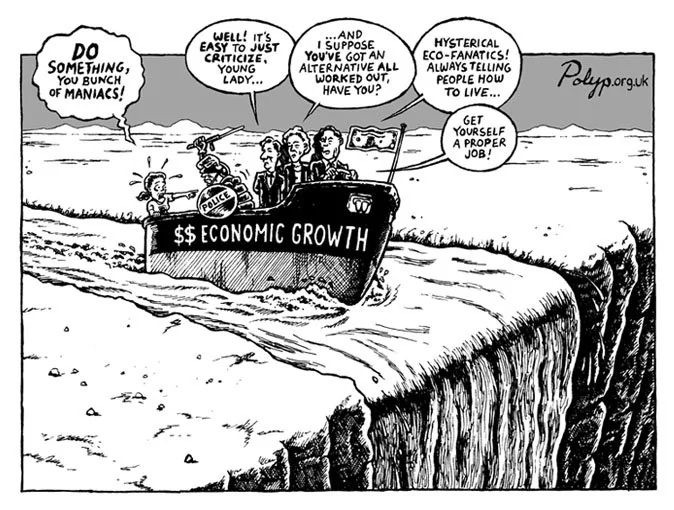

The end of the Green Deal?
Yesterday’s vote in the European Parliament marked a troubling shift. The conservative European People’s Party (EPP), backed by far-right groups, pushed through the first Omnibus Simplification Package which was presented as “reducing burdens” but in reality dismantling key environmental and social safeguards. What had long been a political firewall against extremist influence has now been breached, allowing a deregulation agenda to move forward under the misleading banner of efficiency.
It’s hard not to notice the irony: those who describe themselves as “conservatives” today conserve nothing that actually matters - not communities, not institutions of care, not the conditions of long-term flourishing. What they do conserve is a neoliberal mindset that treats the market as sovereign and property as sacred.
But let’s be honest: it’s not “the market” they defend. It’s the incumbents.
If they truly believed in competition, innovation, or creative destruction, they wouldn’t be shielding large corporations that failed to adapt their exploitative supply chains or invest in green transitions when the writing was on the wall. Instead, they are protecting yesterday’s business models and gambling with Europe’s future.
11-11-2025



𝗧𝗵𝗲 𝗰𝘂𝗿𝘀𝗲 𝗼𝗳 𝗠𝗲-𝗦𝗼𝘂𝗿𝗰𝗲 𝗛𝗥 𝘃𝘀. 𝗪𝗲-𝗦𝗼𝘂𝗿𝗰𝗲
Most corporate narcissism is not imported - it is cultivated.
I often find myself telling people that if they had but one string to pull in their business then it would be the famous "no asshole rule" that Bob Sutton coined. And in fact whenever I post something on narcissism my LinkedIn account gets very energized. It seems that almost all of us have experiences with the breed – and of course not so fond memories, as working with narcissists is at best energy depleting, but more often really painful, causing bruises which will not heal so quickly.
Now quite in contrast to this interest our repertoire on how to prevent such persons to rise like superstars, particularly in our big organisations, is severely limited. In fact type in "promoting+narcissists" and you will find very little research. And of course not much better if you looked for best practices – for we seem to have mainly best practices how to make sure that our next CEO belongs to this category, rather than – you name it – to the humble, servant or just plain "rightly confident" sort.
So maybe the truth is that we are extremely bad at selection. Or even more probable, that we know but still go for the bad guy. Because he, and sometimes also she, are so much more glamorous and signal "I will navigate the ship through all waters" or "I will produce that two digit growth, always, quickly".
So here comes this nice working paper. The team around Alex Haslam have decided not to look at the trait aspect of narcissism, but whether this disposition gets highlighted – "turned on" – in specific organisations. More specifically they ask whether those "meritocratic, high performance and winning is best" companies do not only attract narcissists (they do) but also put them on fire.
Here come the "Me-Sources" – the tournament, the huge pay gap, the forced ranking – and buff people self-categorize themselves accordingly as being of a different breed, above the collective, chosen for the Jesus-like superior essence.
Conversely there are HR practices that could foster depersonalization and embed leaders in collective identity – e.g., rotational leadership, collective leader development, interdependent / team based rewards, shared leadership structures, and selection processes that emphasize alignment with values and collective identity rather than heroic personal exceptionalism. These depersonalizing practices make leaders define themselves as part of a collective and thereby reduce narcissistic expression. When leaders see themselves as “first among equals,” they are more likely to behave with shared purpose, humility, responsibility, and care for the group.
Cool – ain’t it. And of course a testament that we cannot separate agency so neatly from structure or community. We also get what we afford through our HR.
Narcissism is not a personality flaw we detect – it is an identity we enable.
Link to article: http://dx.doi.org/10.2139/ssrn.5189335
08-11-2025

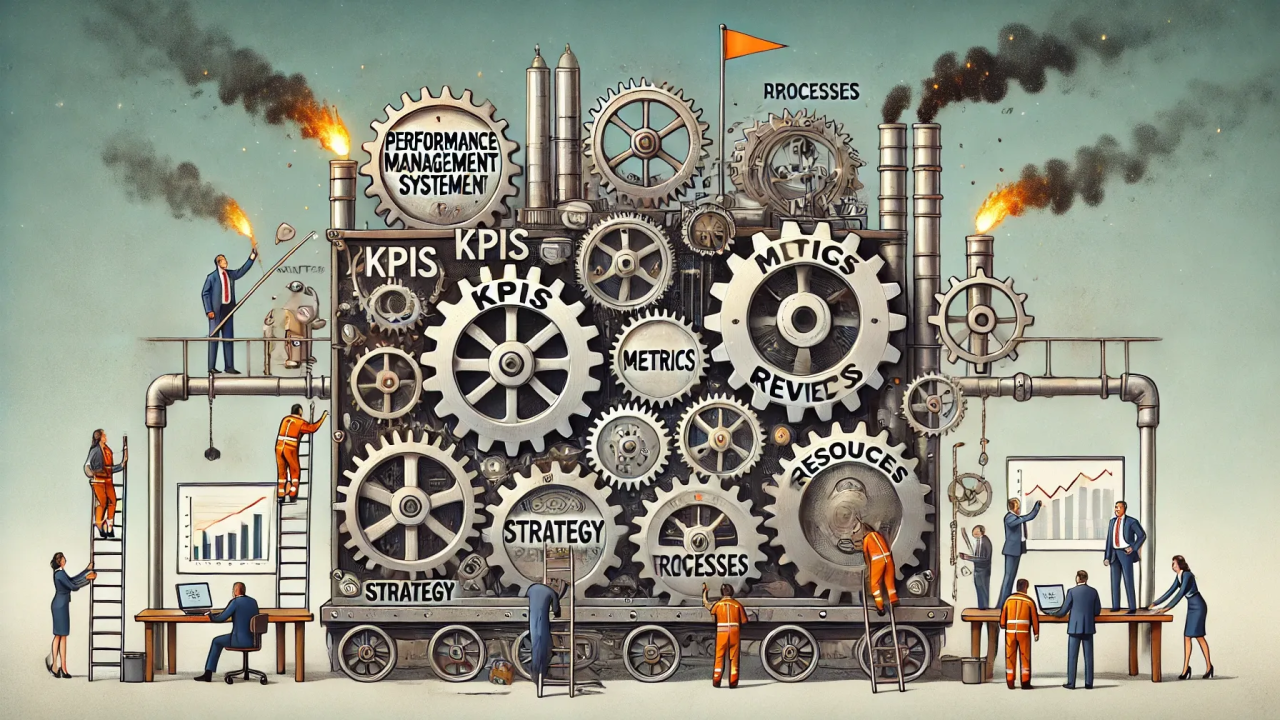

Performance management feels rational – but it serves above all to make power and differences look clean.
THE PERFORMANCE SPECTACLE
This at first glance politely inconspicuous, but sharply apt article on performance management deserves all our attention. Kevin Murphy holds up a mirror to us that many HR teams and even professors prefer to avoid. His message is simple but disturbingly clear: When we measure performance, we don't get any closer to truth. We create a version of it that fits into our concept. And not only are we managing an illusion – our management is itself illusory. Believing that power can be generated by microcontrol in complex systems is a wishful thinking.
Here more about the content:
First: measurement.
As in one of his other frequently quoted articles, he shows that individual performance can hardly be isolated. Team dynamics, work design, timing, coincidence and internal politics have a massive impact on results. Ratings are riddled with distortion, self-preservation logic, and narratives. The figures seem objective – but are largely constructions. Conclusion: far from truth, or even more importantly - from the search for truth!
Second: Control.
Even if you could measure reliably – goals, ratings, bonuses and feedback cycles hardly change behavior or here I would say: even come with many unintended side effects. Real improvement comes from structures, roles, learning, interdependence, autonomy, and design – not from appraisal rituals. Nevertheless, performance management continues to exist because it legitimizes hierarchy, pay gaps and the narrative of control.
There is an empiricist logic behind this: reality only counts if it can be counted. This makes us brilliant at managing symptoms – and blind to causes. It reduces organizations to key figures – and ignores the fact that work is created in social structures: in power constellations, trust, history, narratives – and sometimes simply in the wrong or right clique.
And of course, such a system also makes happy those who have made it to the top and then conveniently block out all the contingencies (or the grace of birth) that were crucial to the ascension.
So as long as we hold on to the myth of individual measurability, we mainly manage symbols – and confuse the performance of numbers with the performance of people.
Which organizational practices actually change performance – beyond ratings?
Link to article: https://doi.org/10.1002/hrm.70016
29-10-2025

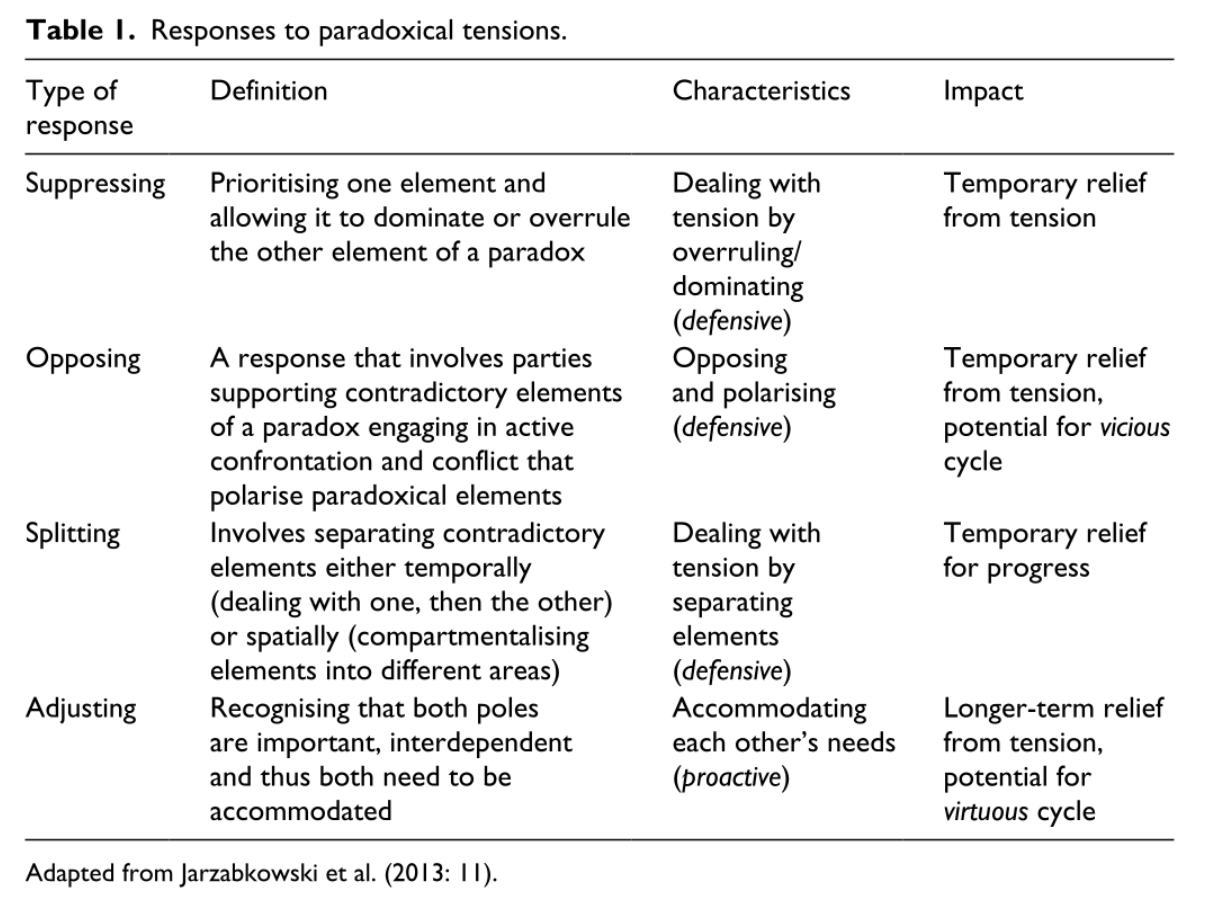

HR work is a paradox in motion.
We are supposed to empower people – and at the same time ensure performance.
We are supposed to be caring – and at the same time reduce costs.
We are supposed to listen – and decide.
Anyone who works in HR knows that these tensions are not a fault in the system.
They are the system.
Keegan, Brandl and Aust (2018) show that human resource management always operates between contradictory expectations. Paradox Theory invites us to no longer view tension as disturbances, but as a permanent reality. They are not a problem that needs to be solved – but a process that needs to be maintained.
But how can you work with opposites? Keegan et al. distinguish four ways of dealing with it:
1️⃣Suppress – one side dominates, e.g. efficiency over caring.
2️⃣Columns – Opposites are separated, today costs, tomorrow culture.
3️⃣Confront – conflict instead of development.
4️⃣Adjusting – the most mature form: taking both poles seriously and balancing them according to the situation.
In recruiting, for example, this means understanding diversity goals not as a requirement, but as a learning field – as an opportunity to reflect with managers on fair selection and long-term fit.
This attitude of conscious holding is demanding. It demands that tensions should not be resolved prematurely, but that they should be understood as a source of learning and maturation. And yet a blind spot remains: paradox theory explains how tensions are managed, but not where they come from.
Hargrave and Van de Ven (2017) go further. They understand tensions as contradictions rooted in power relations. Paradoxical opposites – control and trust, efficiency and dignity, capital and labour – are not symmetrical. They reflect structural imbalances that are constantly reproduced by market logics and performance incentives.
A contradiction – unlike a paradox – can be resolved. Hargrave calls this sublation: the abolition of contradiction to a higher level, in which new structures emerge. For HR, this means questioning the conditions that create tensions: bonus logics that prioritize short-term results over humanity; Performance systems that translate trust into control; Policies that dissolve dignity into key figures.
As long as HR only balances these tensions, it remains trapped in a paradoxical standstill. Only when HR openly names the structural contradictions and helps shape new forms of business will it become a force for real transformation.
Perhaps this is the maturation of our profession: not to seek harmony, but to understand paradox as a moral invitation – as a mandate to change those systems that force us to play humanity and achievement off against each other.
Link to article: https://doi.org/10.1177/2397002218810312
26-10-2025



𝗧𝗵𝗲 𝗠𝗮𝗻 𝗪𝗶𝘁𝗵𝗼𝘂𝘁 𝗤𝘂𝗮𝗹𝗶𝘁𝗶𝗲𝘀 – 𝗢𝗻 𝘁𝗵𝗲 𝗠𝗮𝗹𝗮𝗶𝘀𝗲 𝗼𝗳 𝘁𝗵𝗲 𝗣𝗿𝗲𝘀𝗲𝗻𝘁
We live in an age of timelessness - and wonder why the future is slipping from our grasp.
As in Musil, the man without qualities is not an anomaly but a symptom: a human being who, amid infinite possibilities, has lost all sense of direction - detached from history, responsibility, and meaning. This figure is emblematic of our technocratic present.
We inhabit an era of timelessness. The prevailing mode of thought, whether in management, politics, or technology, operates in the register of the ever-same: best practices, scalability, data-driven optimisation. We no longer act, we optimise; we no longer think, we benchmark. The past is dismissed as irrelevant; the future reduced to an Excel forecast.
This mindset proclaims universality, yet it is profoundly small and too-tight: it knows only the now. No history, no heritage, no responsibility, no substantive vision of the future. Causality is supplanted by pattern recognition, the idea by the algorithm, judgement by the KPI.
The result is an anthropological flattening. When action is valued only as a function of efficiency, the human itself becomes a disturbance. Emotion, history, ambivalence - everything that eludes measurement of the symptom level - is eliminated as “noise.” Thus arise structures in which orientation is replaced by acceleration.
Yet temporality is not sentimentality; it is the very condition of reality. Experience, responsibility, and meaning exist only along a temporal axis. A mode of thought that denies this dimension loses contact with reality and, with it, with the human.
What we require is a re-anchoring in the concrete, in the processual, in the messy real. And a form of thought that once again knows history, imagines the future, and takes the present seriously.
The irony is that the very ideology which incessantly preaches growth, innovation, and competitiveness is destroying the foundations of its own capacity for renewal. For without imagination - without the ability to empathise with future needs, without the willingness to think responsibility beyond the moment - even economic “performance” remains but a simulation.
Musil’s diagnosis was literary; ours is structural. Yet the pathology remains the same: a life without qualities is a life without time and a society that loses its sense of temporality loses its humanity.
25-10-2025

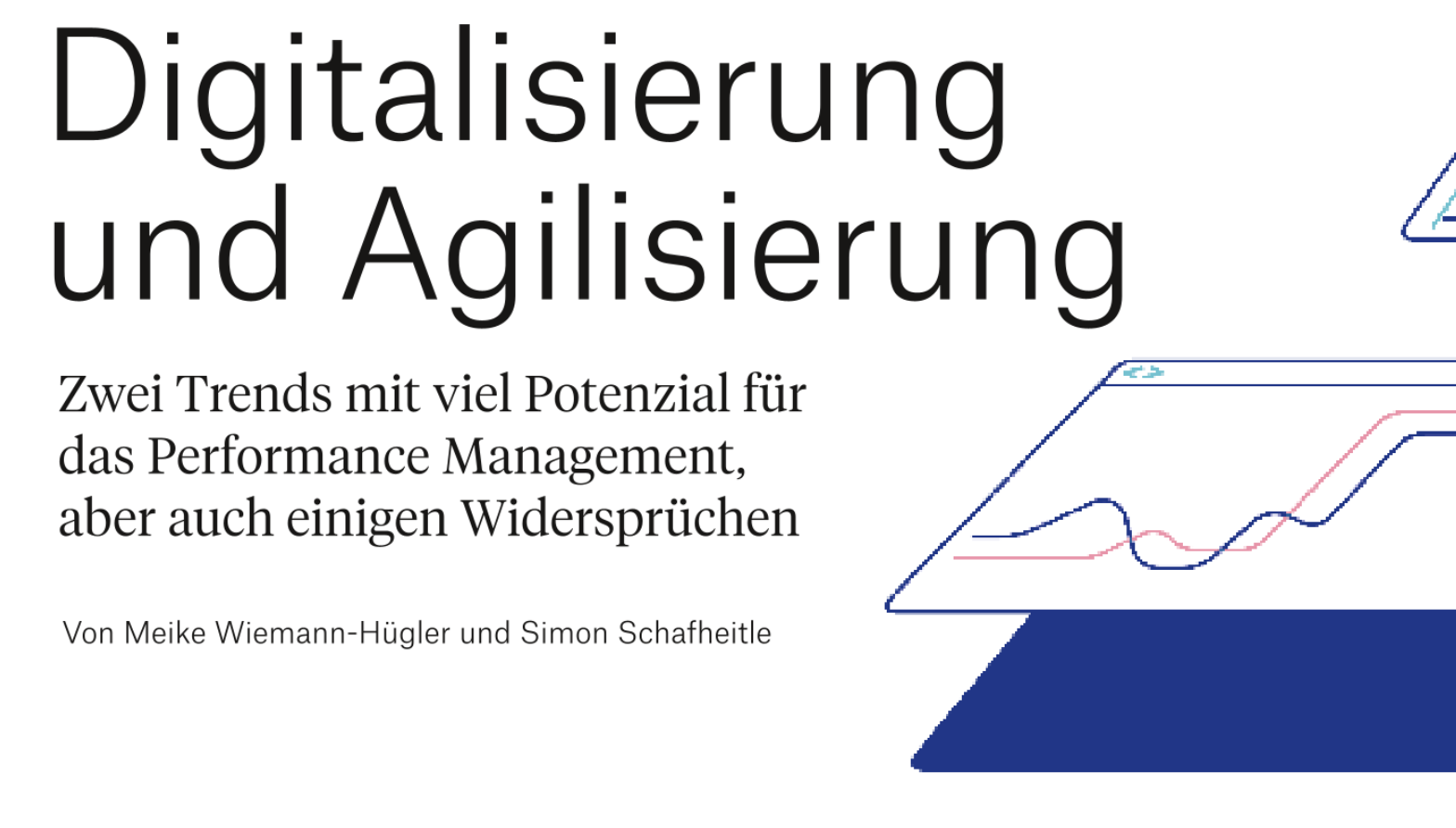

TWO WORLDS AND A NEW COMMITMENT
In this article 👇, Meike Wiemann-Hügler and Simon Schafheitle summarize key results of our research on the transformation of performance management. It is a text about two movements that shape the world of work – and about the question of what future we want to choose.
Simon describes the Smart Machine Turn – the moment when machines start valuing work. Systems analyze communication, time use, and behavior to calculate performance. The logic remains Taylorist: work is broken down into measurable units, efficiency is made the yardstick. Only today the stopwatch is with the algorithm. The opportunities: faster, more consistent decisions. The price: mistrust, self-censorship and a dangerous illusion of control. Technology only measures what is measurable – not what has meaning.
Meike contrasts this with agilization – a counter-movement with a different view of humanity. Agile methods are based on iteration, participation and self-responsibility. They replace control with reflection, annual appraisals with check-ins, rigid target systems with learning. Work is understood as a social system that adapts. This is where humanistic potential lies: motivation, meaning and self-efficacy become sources of achievement again. But this world also harbours risks: flexibility can cost stability, shared responsibility can weaken orientation, permanent adaptation can be exhausted.
Between the two worlds – the digitized and the agile – runs the fault line of modern organization. One aims at efficiency, the other at creativity and meaning. Both can be productive, but only if they stand on a common foundation.
The conclusion of both authors is as simple as it is challenging: technology is not fate. It is an instrument. Their value depends on what we use them for. The crucial task is to shape digitization in a humanistic way – in other words, in such a way that it does not perfect control, but strengthens trust; that it does not standardize behavior, but enables learning; that it does not replace people, but gives them space to become effective.
We have a choice. We can shape a future that understands being human not as a disruptive factor, but as a source of performance, creativity and meaning. Between the transparent employee and the self-determined team there is not a technical, but an ethical and cultural decision-making field. It requires a new commitment – one that asks what work we want to promote and what image of humanity we live by.
22-10-2025



⚙️ If algorithms lead – who trusts whom?
More and more organizations are leaving performance assessment, feedback, and goal management to algorithms. What begins as a gain in efficiency can quickly lead to the erosion of trust: Employees experience evaluation systems as non-transparent and dehumanized – and trust in leadership and organization crumbles.
The new article in the Academy of Management Review (Leavitt, Barnes & Shapiro, 2024), also building on my research, shows that technology does not automatically displace trust – but if leadership does not react, trust is at stake.
The authors call for a new form of leadership, which they call reflexive: Leaders must understand how algorithmic systems guide behavior – and consciously intervene to uphold human values:
1️⃣ From decision-making to mediation
Leadership is shifting from decision-making to shaping relationships between people and systems. We need to empower leaders to understand and translate both logics: How can algorithmic outputs be translated into dialogue, feedback, and development?
👉 New core competence: Reflexive judgement instead of technocratic efficiency.
2️⃣ From technology competence to trust competence: It is not the operation of the tool that is decisive, but the ability to shape trust despite technology. Leadership needs attitude, not a perfect data basis.
👉 New core competence: Courage to be humanly fuzzy – trust through attitude, not through data.
3️⃣ From control to relationship design: When algorithms measure, leadership must connect.
Leadership explains the why that no machine can see – it creates meaning where numbers only show patterns.
👉 New Core Competence: Narrative Leadership – Leadership as Shaping Meaning.
4️⃣ Reflexivity as a learning routine: Persona management must create spaces in which leaders can think about the impact of technology – beyond tools and dashboards.
Learning spaces for ethical and organizational dilemmas.
👉 New core competence: Conscious pause – learning by thinking, not just by doing.
Trust remains a deeply human emotion – a relationship, not a calculation. But it can be nurtured – through reflexive judgment: the ability to recognize how technology shapes behavior, how data creates interpretation – and how leadership still preserves humanity.
This new form of leadership combines analytical clarity with depth. It navigates contradictions instead of smoothing them out, and creates trust not despite, but through awareness of one's own responsibility in the digital system.
20-10-2025



GOOD GROWTH
… but this is only possible if we also think about what "good" actually means.
I am very pleased that we are able to talk to one of the pioneer companies of the Economy for the Common Good – the Sonnentor company – today. It will be our 40th anniversary. Case study on the topic of "Good Organisations", and every time we learn something new. Soon, we will also make our case studies available for teaching and interested managers – because we want our Next Leaders to grow up with other role models.
My generation has relied too much on "higher, further, more technical" – without really asking WHERE this leap is actually supposed to lead.
What we expect from a successful economy should once again become part of our social contract. And what role companies play in it – too.
Let's listen briefly to Sonnentor:
"We support and promote a sustainable lifestyle – with our products and our external and internal communication. We are committed to reducing ecological impacts.
Our partnerships are on an equal footing: live and let live is part of our philosophy. We live from trade and want to enable all participants along the value chain to make a good living. All customers are thus part of our circular economy and carry our message forward."
And further:
"Work with meaning and joy. Mutual recognition, respectful interaction and trust are the basis of our daily work. We value the "you" because it strengthens the "we". We work independently, are enthusiastic and appreciative. Our vision is to create regional jobs that create meaning."
This is how growth with meaning works – or rather: maximizing meaning instead of maximizing profits.
Why don't we want to know and understand more about it? Why are there no Nobel Prizes for a life-serving economy?
19-10-2025

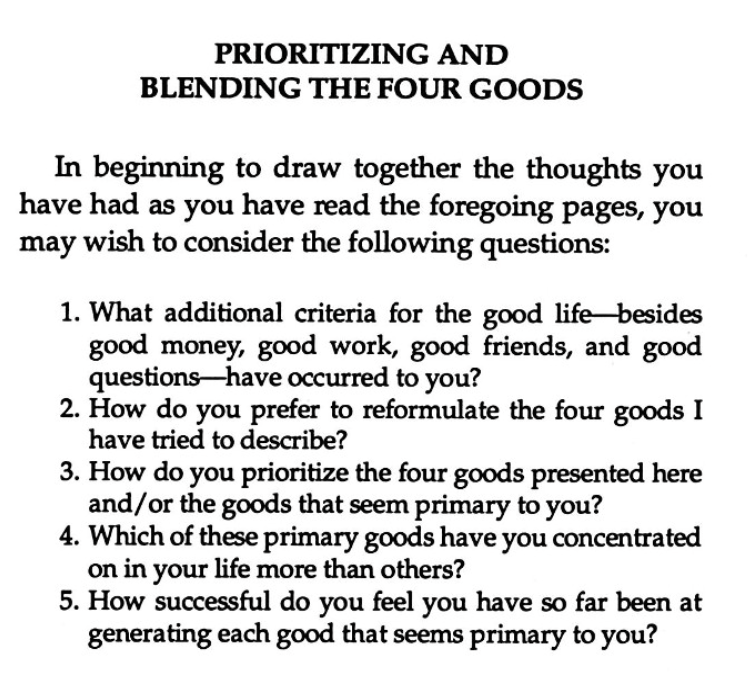

GOOD LEADERSHIP
As we prepare our presentation for the conference in Amsterdam, one question keeps returning: what is better leadership?
We certainly know what bad leadership looks like. It’s on display daily - in politics, in business, even in the mirror of our institutions. But what does good leadership look like? What does it sound like, feel like, act like? To search for answers, it might help to turn not to the usual management gurus or power theorists, but to someone who asked a simpler, more human question: what is the good life?
William R. Torbert, a scholar and practitioner of leadership transformation, wrote an essay thirty years ago that feels more relevant than ever: “The Good Life: Good Money, Good Work, Good Friends, Good Questions.” Its brilliance lies in its simplicity. Torbert proposes that the good life - and by extension, good leadership - rests on four foundations: good money, good work, good friends, and good questions. The order matters.
Good money, he says, is not about the amount but about alignment. Money is “good” only when earned in ways that harmonize with meaningful work, authentic relationships, and honest inquiry. It is a servant, never a master.
Good work is that which raises both quality and consciousness. It is work that demands mastery, craft, and attention - not mechanical output, but creation that enriches others while awakening the worker. The measure of good work isn’t “delighting the customer” alone, but contributing something of real value - something that elevates the maker and the receiver alike.
Good friends are not simply allies or pleasant companions. For Torbert, friendship is a crucible of transformation, a place where we celebrate difference, challenge hypocrisy, and call one another to grow. True friends question one another’s assumptions. They are not mirrors but catalysts. In a world of conformity and cynicism, such friendship is both radical and rare - and precisely what leadership teams should aspire to become.
And then there are good questions, the highest of the four goods. Questions that do not merely seek answers but awaken awareness. To question deeply is to live alertly, to lead consciously. Leaders who stop questioning, who cling to certainty, inevitably lose their ability to see, to taste, to listen. Good questions enliven people, organizations, and societies. They generate not armies, but conversations.
Torbert’s insight is subtle yet powerful: the path to better leadership is the same as the path to the good life. It is not a method, not a model, but a way of being - an ongoing practice of inquiry, friendship, craftsmanship, and integrity. The best leaders make money by doing good work, with good friends, around good questions.
In times when leadership often masquerades as dominance or spin, Torbert reminds us of something profoundly subversive: that leadership begins not in control, but in curiosity. Not in having answers, but in daring to live the questions.
15-10-2025

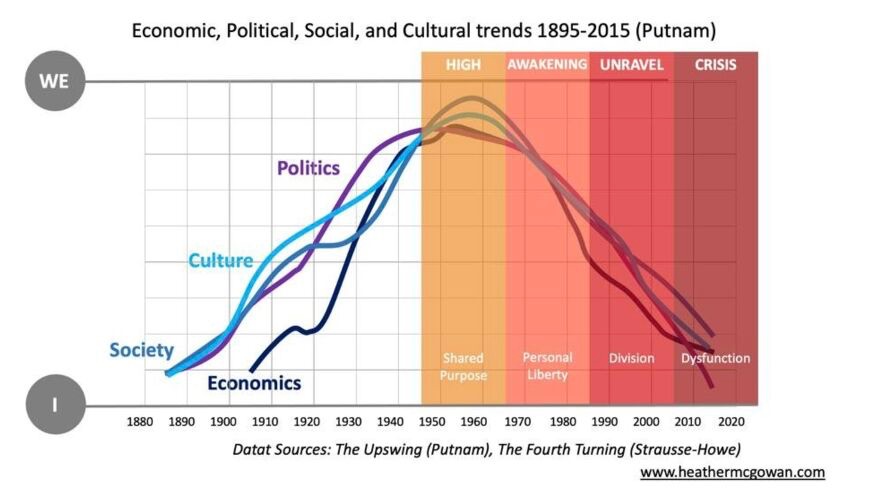

From 𝗪𝗲 to 𝗜 — how the loss of common ground became the real crisis.
𝗪𝗲 𝗮𝗿𝗲 𝗿𝘂𝗻𝗻𝗶𝗻𝗴 𝗼𝘂𝘁 𝗼𝗳 𝗰𝗼𝗺𝗺𝗼𝗻 𝗴𝗿𝗼𝘂𝗻𝗱.
And that, more than any other crisis, may undo us.
Of all the challenges we face, this is the one I worry about most - because it precludes us from finding better ways to work, live, dispute, and divide our doings and havings with each other.
This curve, drawn from Robert Putnam’s latest work, shows how we have become strangers to one another in almost every sphere of life. Wealth and income inequality are rising. We no longer join the same associations - or for that matter any associations. We rarely marry across our siloes or gather for dinner across difference. And, very visibly in the US right now, we vote for entirely different worlds-to-come.
Ironically, none of our current worldviews seems to be able to heal this.
𝗡𝗲𝗼𝗹𝗶𝗯𝗲𝗿𝗮𝗹𝗶𝘀𝗺 deepened separation by insisting on competition - even in private realms. The zest for money turned into positional races; the reductionist logic of “the market” rendered all relationships transactional; and the comforting belief that “a rising tide lifts all boats” proved false once the moorings were uneven.
𝗣𝗿𝗼𝗰𝗲𝗱𝘂𝗿𝗮𝗹 𝗹𝗶𝗯𝗲𝗿𝗮𝗹𝗶𝘀𝗺 - the idea that right comes before good - has not fared better. When everyone insists that their moral view is superior, the space of deliberation shrinks. When negotiations between incommensurable interests become the only path forward, all we can ever achieve together is to avoid the greatest harm. Even that grows harder in a divided world.
So what is to be done? How do we find a way out?
The communitarian spirit Putnam hoped to revive is not in sight - and, truthfully, few of us would want to return to the “too-tight” societies of the 1950s. Some 𝗹𝗼𝗰𝗮𝗹𝗶𝘀𝗺 will help: more rootedness, more proximity, more capacity to solve local problems. But that alone will not suffice; also because many are cosmopolitans by now.
What we truly need is a renewed 𝘄𝗶𝗹𝗹𝗶𝗻𝗴𝗻𝗲𝘀𝘀 𝘁𝗼 𝗰𝗼𝗺𝗺𝗶𝘁 𝘁𝗼 𝘁𝗵𝗲 𝗴𝗼𝗼𝗱 - not as a religion, but as orientation. It begins with the recognition that we must learn to see again: to see the other, to see relationships and values, rather than negating or flattening them. To bring imagination back to find solutions that are not just “and” but beyond. Hegel called this 𝘀𝘂𝗯𝗹𝗮𝘁𝗶𝗼𝗻, Bhaskar in his dialectical critical realism "absenting absences" - lifting contradictions to a higher plane rather than erasing them; closing the gap to flourishing (even if we might never arrive there). We might call it wisdom.
Where would we start?
By bringing back the better view, the interest, the care to see. We can all begin with that - and much sooner than we think - if only we are willing to grow.
13-10-2025

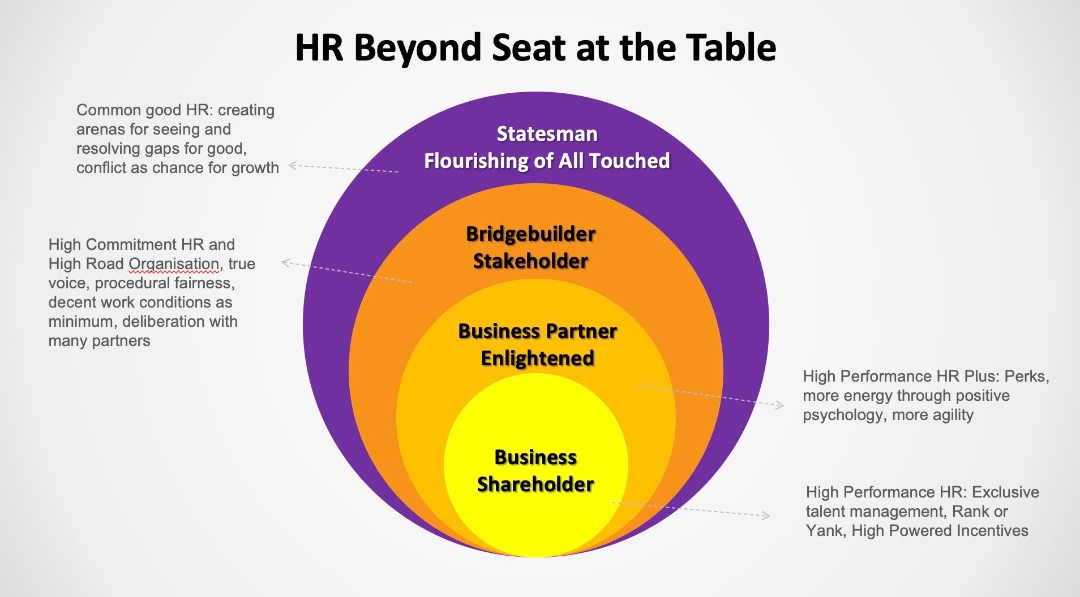

𝗔𝗥𝗘 𝗬𝗢𝗨 𝗕𝗨𝗦𝗜𝗡𝗘𝗦𝗦 𝗢𝗥 𝗔𝗥𝗘 𝗬𝗢𝗨 𝗣𝗔𝗥𝗧𝗡𝗘𝗥?
In a thought-provoking paper, Graeme Martin and colleagues explore how corporate governance shapes HR. Their typology reveals four worlds that still define much of what we call “HR strategy.”
In the first world - the market-led shareholder model - business defines its value for shareholders only.
Managers are executors, HR is an instrument, and people are “resources” to be optimized. “High performance HR” here means press harder, extract more, and if needed, replace fast. Hire and fire is not a failure of culture; it’s a feature of the model.
HR is Business.
The second world - the enlightened shareholder model - tries to soften the edges. HR becomes the “Business Partner,” allowed to speak about well-being, inclusion, engagement… but only when it fits the business case. Feel good, perform better - this is the world of positive psychology which always promises that good leads to better. Harmony, with conditions. Yet when pressure hits, the softness fades. Rank and yank creeps back in.
Then comes the proper stakeholder model - a pluralistic world that recognizes multiple logics: the market and democracy. Here, HR begins to act as mediator between owners, workers, and community. The aim is not only performance but decent work, fair treatment, and respect as a norm. Voice and participation matter as much as efficiency. HR becomes a partner, not of “the business” but of all constituents.
But here I part with the model and want to add that this is still not the full picture. Because if HR truly wants to be a partner for flourishing, its moral circle cannot stop at the company gate. Partnership means widening the table. It means bringing unions, local communities, supply chains, and even platform workers into view. It means understanding that value creation is always relational. And that regeneration, not exploitation, is the new frontier of performance.
In this extended vision, HR is not the “function” that seeks a seat in the boardroom. That conversation is yesterday’s news. Instead, HR becomes the motor of transformation - the creator of the agora, the space where business, democracy, and society meet to deliberate what good work looks like.
Because if we still define HR by how well it “aligns to business,” we remain trapped in the first paradigm. The future lies in how HR helps business align to humanity.
That’s when we stop being Business and start being Partner.
Based on:
Martin, G., Farndale, E., Paauwe, J., & Stiles, P. (2016). Corporate Governance and Strategic Human Resource Management: Four Archetypes and Proposals for a New Approach to Corporate Sustainability. European Management Journal, 34(1), 22–35.
12-10-2025

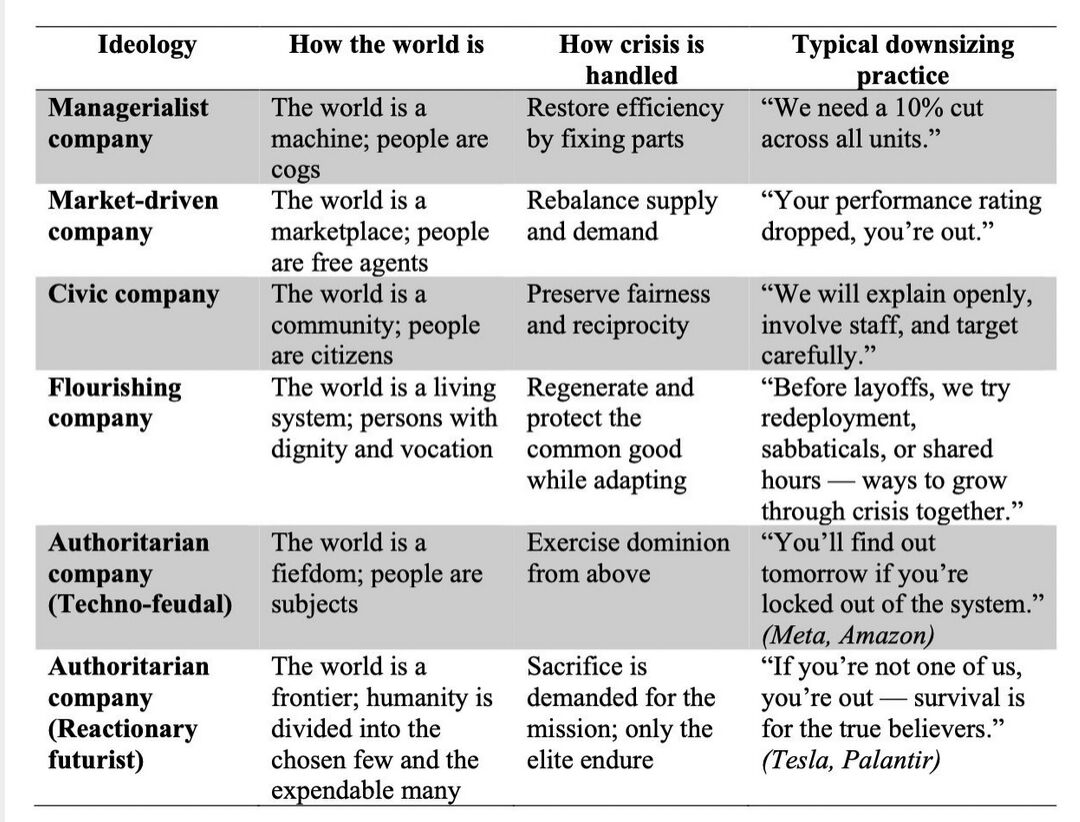

𝗣𝗿𝗼𝗳𝗶𝘁 𝗪𝗮𝗿𝗻𝗶𝗻𝗴𝘀 𝗪𝗶𝘁𝗵𝗼𝘂𝘁 𝗮 𝗦𝗼𝘂𝗹: 𝗪𝗵𝘆 𝗖𝗼𝗺𝗽𝗮𝗻𝗶𝗲𝘀 𝗗𝗼𝗻’𝘁 𝗖𝗵𝗮𝗻𝗴𝗲
Another ritual round of hunger games layoffs despite that research has shown that even in these times dignity counts, 𝘸𝘩𝘺 𝘥𝘰𝘯’𝘵 𝘤𝘰𝘮𝘱𝘢𝘯𝘪𝘦𝘴 𝘧𝘰𝘭𝘭𝘰𝘸?
The answer is not a lack of knowledge. It is 𝗶𝗱𝗲𝗼𝗹𝗼𝗴𝘆.
Ideology as a worldview that silently orients action: how the world 𝗶𝘀, how it 𝘴𝗵𝗼𝘂𝗹𝗱 𝗯𝗲, what counts as 𝘃𝗮𝗹𝘂𝗮𝗯𝗹𝗲, and what kinds of action are 𝗹𝗲𝗴𝗶𝘁𝗶𝗺𝗮𝘁𝗲. Ideology is sticky because it works not only through arguments but also through powerful fantasies. It does not merely tell us what to do; it makes us 𝘸𝘢𝘯𝘵 to do it, even when evidence points elsewhere.
Organizations are ideological actors. They do not simply apply best practices from management textbooks. They embody a vision of what people are - cogs, agents, citizens, or serfs - and of what the company itself is - machine, marketplace, community, or sovereign. These deep beliefs shape how they respond when crisis hits.
This becomes visible in moments of profit warnings or downturns. Even with decades of research on “decent downsizing,” the path companies choose depends less on insight and more on ideological commitments.
A 𝗺𝗮𝗻𝗮𝗴𝗲𝗿𝗶𝗮𝗹𝗶𝘀𝘁 firm sees the world as a machine to be repaired. Downsizing is executed like a mechanic adjusting broken parts. A 𝗺𝗮𝗿𝗸𝗲𝘁-𝗱𝗿𝗶𝘃𝗲𝗻 firm sees the world as a marketplace of individuals: layoffs become transactions, abrupt and performance-based. By contrast, a 𝗰𝗶𝘃𝗶𝗰 company imagines itself as a community of citizens and aims for fairness, transparency, and reciprocity. A 𝗳𝗹𝗼𝘂𝗿𝗶𝘀𝗵𝗶𝗻𝗴 company sees itself embedded and generative, a steward for unlocking the good, enabled by persons with dignity and vocation, seeking to regenerate and protect the common good while adapting.
And then there are the 𝗮𝘂𝘁𝗵𝗼𝗿𝗶𝘁𝗮𝗿𝗶𝗮𝗻 firms of our age. Their worldviews are darker, but no less coherent. The 𝘁𝗲𝗰𝗵𝗻𝗼-𝗳𝗲𝘂𝗱𝗮𝗹 corporation (Meta, Amazon) imagines itself as a sovereign lord. Layoffs are decrees to be handed down: opaque, unilateral, framed as dominion over subjects. The 𝗿𝗲𝗮𝗰𝘁𝗶𝗼𝗻𝗮𝗿𝘆 𝗳𝘂𝘁𝘂𝗿𝗶𝘀𝘁 corporation (Tesla, Palantir) sees itself as an ark on a frontier. Layoffs here become acts of sacrifice: dramatic, abrupt, justified as necessary for the mission of saving humanity.
So we can have research till the cows come home and show that "fairness pays" - ideology will often get the better end when decisions are taken.
That is why the question for leaders is not simply 𝗵𝗼𝘄 to downsize in a downturn. It is: 𝘄𝗵𝗮𝘁 𝗶𝗱𝗲𝗼𝗹𝗼𝗴𝘆 𝗶𝘀 𝘀𝗵𝗮𝗽𝗶𝗻𝗴 𝗼𝘂𝗿 𝗰𝗵𝗼𝗶𝗰𝗲𝘀?
📚 Reference: Durand, C. (2024). How silicon valley unleashed techno-feudalism: the making of the digital economy. Verso Books. And Taşkale, A. R. (2025). The affective politics of reactionary futurism in Silicon Valley. Critical Studies on Security, 1-5.
10-10-2025

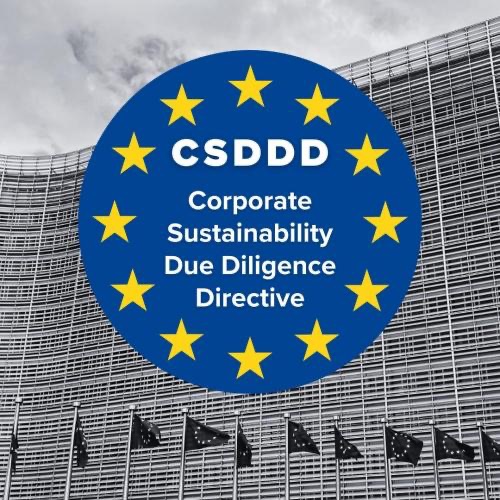

𝐓𝐡𝐞 𝐂𝐡𝐨𝐫𝐞𝐨𝐠𝐫𝐚𝐩𝐡𝐲 𝐨𝐟 𝐃𝐞𝐥𝐚𝐲 — 𝐆𝐞𝐫𝐦𝐚𝐧𝐲’𝐬 𝐋𝐞𝐬𝐬𝐨𝐧 𝐟𝐨𝐫 𝐭𝐡𝐞 𝟒𝟔
Yesterday, forty-six CEOs asked Europe to “free” them from the Corporate Sustainability Due Diligence Directive, claiming that regulation “burdens competitiveness.” But what they are really asking for is the right to compete without responsibility. And Germany, more than any other country, should know how that story ends. For decades, our automotive sector turned resistance into strategy. As researchers Ina Richter and Karen Smith Stegen show, it perfected what they call the choreography of delay - a disciplined dance that protects incumbents under the guise of cooperation.
It begins with 👉 𝐒𝐲𝐦𝐛𝐨𝐥𝐢𝐜 𝐜𝐨𝐨𝐩𝐞𝐫𝐚𝐭𝐢𝐨𝐧 - a ritual acknowledgment of environmental problems and vague promises to act.
Then follows 👉 𝐑𝐞𝐬𝐢𝐬𝐭𝐚𝐧𝐜𝐞 𝐚𝐧𝐝 𝐝𝐞𝐥𝐚𝐲 - questioning data, feasibility, and timing while asking for “more research.”
Next comes 👉 𝐍𝐞𝐠𝐨𝐭𝐢𝐚𝐭𝐢𝐨𝐧 𝐨𝐟 𝐜𝐨𝐧𝐜𝐞𝐬𝐬𝐢𝐨𝐧𝐬 - transforming obligations into subsidies and responsibility into privilege.
Under pressure, 👉 𝐅𝐫𝐚𝐠𝐦𝐞𝐧𝐭𝐚𝐭𝐢𝐨𝐧 𝐚𝐧𝐝 𝐩𝐚𝐫𝐭𝐢𝐚𝐥 𝐜𝐨𝐦𝐩𝐥𝐢𝐚𝐧𝐜𝐞 appear - some firms adopt token measures to showcase progress, others hide behind them.
Finally, 👉 𝐒𝐭𝐚𝐛𝐢𝐥𝐢𝐳𝐚𝐭𝐢𝐨𝐧 𝐨𝐟 𝐭𝐡𝐞 𝐬𝐭𝐚𝐭𝐮𝐬 𝐪𝐮𝐨 - technical fixes like converters or filters are celebrated as breakthroughs while the combustion regime remains untouched.
This is not accident; it is design. Delay became an economic model, and doubt its most profitable product. As Tilman Altenburg’s research reminds us, Germany’s problem is not a lack of intelligence or capital - it is path dependency: an entire ecosystem of suppliers, engineers, and regulations optimized for yesterday’s technology. That ecosystem now risks becoming our gilded cage.
The lesson for the coalition is clear. Industrial policy cannot reward delay any longer. If we continue to subsidize legacy systems, we will not preserve competitiveness - we will embalm it. The next chapter of German leadership must bind innovation to transformation: clear fleet targets, bold green procurement, charging and digital infrastructure, and patient capital for those scaling new industries instead of cushioning old ones.
Germany does not need to be freed from responsibility - it needs to be freed from inertia. If it fails to act, it will not die in crisis, but in comfort. It will die in beauty.
09-10-2025



08-10-2025

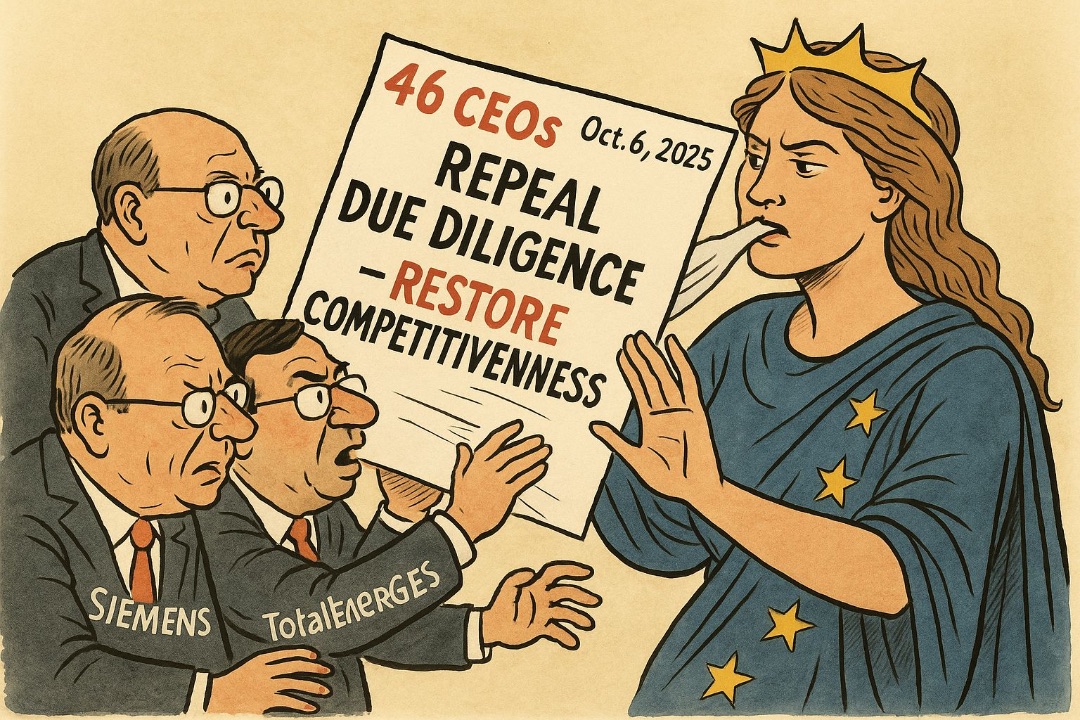

LEADERSHIP WASHING – OR MIRROR, MIRROR, WHO…
Have you ever wondered why in your company the talk is all about trust, or leadership-as-coaching, yet “on the ground” you feel very little of it?
That’s the first thing Fischer & Alvesson (2025) teach us: we rarely experience the kind of leadership we’re promised in textbooks or glossy brochures. Research they cite is sobering:
- Nobody really has time to do leadership.
- Most people speak negatively about their leaders
- And almost everyone - leaders included - believes they’re more ideal than they are.
So what’s going on?
The authors argue we should pay attention to leadership meta-talk the grand narratives presented by our “leader-philosophers.” Even, or precisely, when those narratives don’t match reality. Because presenting oneself as a hero-quality, moral, self-aware leader has real effects on what leadership becomes.
1️⃣ First, it encourages leaders to fall in love with themselves - or more precisely, to romanticize their own capacity. This self-idealization is comforting; it helps sustain an identity of being a “good person” in a messy world. It feeds the fantasy that through reflection and self-optimisation we can earn moral worth. But it also nourishes subtle narcissism - leadership as self-admiration in the mirror.
2️⃣ Second, this kind of talk comforts followers. When leaders speak from a shared script - the language of trust, care, empowerment - it creates the illusion of harmony. The talk itself reduces anxiety, containing uncertainty and conflict beneath a layer of moral reassurance. In psychodynamic terms, leadership talk works as an organizational tranquilizer: it keeps difficult emotions under control.
3️⃣ Third, and least surprisingly, this performance also works outward. It’s part of what we might call virtue washing. Companies reward leaders who can convincingly perform moral awareness and leadership theatre thrives on precisely that. The more the leader believes their own act, the more convincing it becomes.
But the more interesting question, as always, is: why should we care?
Well, if talking leadership is almost as effective as doing it, why bother with the latter? Also when impression management is rewarded - and it often is - faking becomes functional. And most worrying of all: this theatre, and the stages companies build for it - kick-offs, strategy days, teambuilding events, far from daily work - help sustain existing power structures. They display harmony where there is, in reality, tension that needs to be addressed. They turn the messy contradictions of organizations into glossy moral performances.
Seen through this lens, leadership washing isn’t just PR. It’s collective self-soothing. Talking about good leadership lets us feel moral, modern, and in control, even when reality is rather ordinary.
So maybe next time you hear someone talk about trust, authenticity, or servant leadership, ask yourself: Is this leadership or just the mirror talking?
𝐖𝐡𝐞𝐧 𝟒𝟔 𝐂𝐄𝐎𝐬 𝐚𝐬𝐤 𝐭𝐨 𝐛𝐞 𝐟𝐫𝐞𝐞𝐝 𝐟𝐫𝐨𝐦 𝐫𝐞𝐬𝐩𝐨𝐧𝐬𝐢𝐛𝐢𝐥𝐢𝐭𝐲, 𝐄𝐮𝐫𝐨𝐩𝐞 𝐬𝐡𝐨𝐮𝐥𝐝 𝐥𝐢𝐬𝐭𝐞𝐧 — 𝐚𝐧𝐝 𝐬𝐚𝐲 𝐧𝐨.
When forty-six of Europe’s largest corporations sign a joint letter urging governments to scrap the EU Corporate Sustainability Due Diligence Directive, they don’t just challenge a regulation. They challenge Europe’s capacity to lead. Their message to Presidents Macron and Merz was clear: remove the rules, and “restore competitiveness.” But what they are really asking for is the right to compete without responsibility.
𝐋𝐞𝐭’𝐬 𝐛𝐞 𝐡𝐨𝐧𝐞𝐬𝐭: the claim that due diligence “burdens” competitiveness is not new and it has always been wrong. As Michael Porter showed decades ago, nations don’t grow strong by protecting their companies from pressure. 𝐓𝐫𝐮𝐞 𝐜𝐨𝐦𝐩𝐞𝐭𝐢𝐭𝐢𝐯𝐞𝐧𝐞𝐬𝐬 𝐢𝐬 𝐛𝐨𝐫𝐧 𝐟𝐫𝐨𝐦 𝐜𝐨𝐧𝐬𝐭𝐫𝐚𝐢𝐧𝐭, 𝐧𝐨𝐭 𝐜𝐨𝐦𝐟𝐨𝐫𝐭. Europe’s strength has always come from demanding standards that push industries to evolve. The Due Diligence Directive does exactly that: it forces companies to innovate in transparency, traceability, and circularity.
𝐆𝐞𝐫𝐦𝐚𝐧𝐲’𝐬 𝐫𝐞𝐜𝐞𝐧𝐭 𝐡𝐢𝐬𝐭𝐨𝐫𝐲 𝐬𝐡𝐨𝐮𝐥𝐝 𝐛𝐞 𝐰𝐚𝐫𝐧𝐢𝐧𝐠 𝐞𝐧𝐨𝐮𝐠𝐡. For too long, subsidies and political protection insulated the car industry and dulled its urgency to innovate. The result? A lost decade of clinging to the Verbrennungsmotor, while competitors abroad built the technologies that now define the future. Europe cannot regain its edge by lowering the bar again.
𝐀𝐧𝐝 𝐭𝐡𝐢𝐬 𝐢𝐬 𝐭𝐡𝐞 𝐫𝐞𝐚𝐥 𝐬𝐜𝐚𝐧𝐝𝐚𝐥: once more, the most powerful players use their influence to tilt the field in their favor. Small and mid-sized innovators - those building sustainable materials, clean energy systems, and ethical supply chains - are already competing in a market distorted by greenwashing and lobbying. These forty-six are not defending Europe’s competitiveness. 𝐓𝐡𝐞𝐲 𝐚𝐫𝐞 𝐝𝐞𝐟𝐞𝐧𝐝𝐢𝐧𝐠 𝐭𝐡𝐞𝐢𝐫 𝐨𝐰𝐧 𝐢𝐧𝐬𝐮𝐥𝐚𝐭𝐢𝐨𝐧 𝐟𝐫𝐨𝐦 𝐜𝐡𝐚𝐧𝐠𝐞.
Yes, Europe must reduce bureaucracy. But let’s be clear about where bureaucracy came from. We built it because trust was broken by the very industries now demanding deregulation. From diesel scandals to offshore tax evasions, every call for “less red tape” rings hollow when it comes from those who abused the light-touch regimes of the past. 𝐈𝐟 𝐰𝐞 𝐬𝐢𝐦𝐩𝐥𝐢𝐟𝐲, 𝐥𝐞𝐭 𝐢𝐭 𝐛𝐞 𝐢𝐧 𝐭𝐡𝐞 𝐚𝐫𝐞𝐚𝐬 𝐭𝐡𝐚𝐭 𝐬𝐡𝐞𝐥𝐭𝐞𝐫𝐞𝐝 𝐦𝐢𝐬𝐜𝐨𝐧𝐝𝐮𝐜𝐭, 𝐧𝐨𝐭 𝐢𝐧 𝐭𝐡𝐞 𝐟𝐞𝐰 𝐥𝐚𝐰𝐬 𝐭𝐡𝐚𝐭 𝐟𝐢𝐧𝐚𝐥𝐥𝐲 𝐡𝐨𝐥𝐝 𝐩𝐨𝐰𝐞𝐫 𝐭𝐨 𝐚𝐜𝐜𝐨𝐮𝐧𝐭.
Europe’s competitiveness will not be rebuilt by retreating from responsibility. It will be rebuilt when our industries embrace the challenge of high standards and turn them into innovation advantages.
𝐉’𝐚𝐜𝐜𝐮𝐬𝐞 𝐭𝐡𝐞 𝟒𝟔 𝐰𝐡𝐨 𝐦𝐢𝐬𝐭𝐚𝐤𝐞 𝐝𝐞𝐫𝐞𝐠𝐮𝐥𝐚𝐭𝐢𝐨𝐧 𝐟𝐨𝐫 𝐝𝐞𝐬𝐭𝐢𝐧𝐲. Europe’s future will not belong to those who flee the rules - but to those who rise to meet them.
07-10-2025

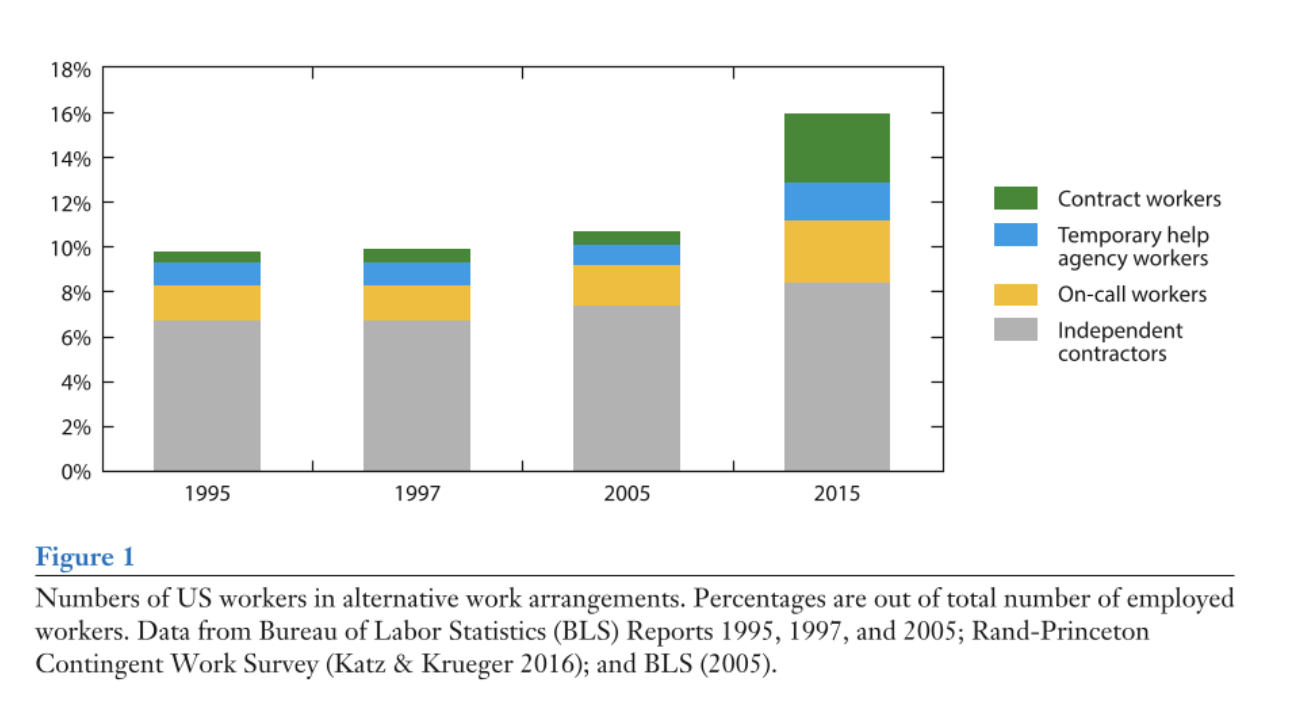

The gig economy has not (yet) arrived in Switzerland – and that's a good thing.
In Switzerland, the gig economy – i.e. working on demand, via platforms or as a solo self-employed person – has so far been a marginal phenomenon. Maybe that's not so bad after all.
A look at America shows where the development can lead. There, many of the so-called "gig workers" live in precarious conditions, often with several jobs, because the main job is not enough. Only a small, already privileged minority benefits from the new freedom.
In this country, the dynamics are (still) modest. According to Avenir Suisse, around 0.4% of the population worked via platforms in 2019; even with rental and online sales, the figure is only 1.4%. Solo self-employment is also decreasing. So there is no boom – and perhaps that is exactly the opportunity before the risks grow.
Researchers Gretchen Spreitzer and Lindsey Cameron distinguish between two worlds of new work: a privileged, autonomous one for the highly qualified – and a precarious, externally determined one for many others. Both exist side by side, but their relationship determines the social balance of a society.
Switzerland is faced with the choice of whether to allow the second world to grow or deliberately set limits for it. This requires clear terms instead of buzzwords. Whether "Hustle", "Solopreneurship" or "Freelancing" – at its core, it is about commissioned work, which can be fair and self-determined or insecure and exploitable.
Politics and human resources management have a responsibility before these new forms of work become a social risk:
1️⃣ Political: Creating framework conditions that combine flexibility with security – the principle of flexicurity. And set the course for occupational health and safety on platforms as well. No one should be exploitable because he/she has no other chance.
2️⃣ For companies and HR: External work is also part of value creation. Fair fees, transparent platform criteria and access to further training are part of responsible labour policy. And above all: dignity must not be a question of treaty status.
In the end, however, a simple sentence sticks with me: A full-time job must be enough to live on.
An economy in which people need several jobs to secure their livelihood has lost its balance – regardless of whether these jobs are called "gig", "hustle" or "project work". But we should be vigilant now - thanks Dr. Hans Rusinek for the reminder!
06-10-2025



We wanted autonomy. We built isolation.
𝗚𝗶𝗴 𝗮𝗻𝗱 𝘁𝗵𝗲 𝗦𝗼𝗰𝗶𝗲𝘁𝘆 𝗼𝗳 𝗜𝗻𝗱𝗲𝗽𝗲𝗻𝗱𝗲𝗻𝘁 𝗗𝗲𝗽𝗲𝗻𝗱𝗲𝗻𝘁𝘀
The gig economy is often sold as the promise of freedom - flexible work, personal autonomy, and self-chosen projects. But beneath that rhetoric lies a deeper social transformation that thinkers like 𝗦𝗲𝗻𝗻𝗲𝘁𝘁 have warned us about very early.
𝗦𝗽𝗿𝗲𝗶𝘁𝘇𝗲𝗿 and colleagues described two worlds of the new work. One is populated by high-skill professionals who enjoy self-determination and choice. The other by those for whom flexibility is imposed - unstable, underpaid, and precarious. It is a structural divide that runs through today’s labour markets.
Yet even the “first world” of autonomy is not as glamorous as it looks. 𝗣𝗲𝘁𝗿𝗶𝗴𝗹𝗶𝗲𝗿𝗶, 𝗔𝘀𝗵𝗳𝗼𝗿𝗱, 𝗮𝗻𝗱 𝗪𝗿𝘇𝗲𝘀𝗻𝗶𝗲𝘄𝘀𝗸𝗶 studied independent experts and found that their freedom comes with emotional costs: loneliness, identity anxiety, and the constant pressure to prove one’s worth. Without the social and symbolic “holding environments” once provided by organisations, even successful independents struggle to maintain stability and belonging. Autonomy easily turns into isolation; meaning into exhaustion.
The sociologist 𝗥𝗶𝗰𝗵𝗮𝗿𝗱 𝗦𝗲𝗻𝗻𝗲𝘁𝘁 saw this long before the rise of digital platforms. In The Corrosion of Character he described the emergence of the “flexible man” - mobile, adaptive, but unable to build lasting commitments. The qualities that make us employable - agility, self-reliance, detachment - corrode the virtues that hold societies together: loyalty, solidarity, trust.
We are drifting toward what might be called a 𝘀𝗼𝗰𝗶𝗲𝘁𝘆 𝗼𝗳 𝗶𝗻𝗱𝗲𝗽𝗲𝗻𝗱𝗲𝗻𝘁 𝗱𝗲𝗽𝗲𝗻𝗱𝗲𝗻𝘁𝘀. Formally free, yet structurally bound. Each of us an enterprise of one, negotiating with markets instead of belonging to institutions. Work relationships become transactions; colleagues turn into clients; networks replace communities. Solidarity shrinks to sympathy without structure.
The paradox is clear. Flexibility expands opportunity but erodes continuity. It rewards adaptability while hollowing out the very bonds that make collective life possible. When everyone must look out for themselves, the long term becomes no one’s concern.
The challenge ahead is not to resist flexibility - it is here to stay - but to 𝗿𝗲𝗯𝘂𝗶𝗹𝗱 𝘁𝗵𝗲 𝘀𝗼𝗰𝗶𝗮𝗹 𝗳𝗼𝘂𝗻𝗱𝗮𝘁𝗶𝗼𝗻𝘀 that make freedom liveable: protection from dominion, reciprocity, commitment, love and trust. Without them, the gig economy may not just change how we work.
It may change what it means to belong.
05-10-2025



WHY DOES THE ENTREPRENEURIAL ELITE SIT PEACEFULLY IN MAR-A-LAGO?
Management researcher Arun Porutiyil (2018) has formulated an uncomfortable thesis: Neoliberalism – and with it the practice of some large corporations – creates the conditions under which authoritarian or even neo-fascist movements can flourish.
When market logic becomes the sole interpretative framework, when efficiency and returns are placed above moral or social considerations, then society loses its political and ethical balance.
The belief that markets regulate themselves and that politics only interferes weakens institutions, opens up social fractures and creates the climate in which authoritarian promises of salvation sound plausible.
Neoliberal companies contribute to this by separating business and responsibility - according to his thesis. Their strategies are aimed at short-term gains, they externalize costs and legitimize inequality as an achievement.
The moral void that arises from this is – according to Porutiyil – not a coincidence, but systemic: a technocratic rationality that translates everything political into economic efficiency.
When authoritarian regimes come to power, large corporations rarely put up resistance.
They adapt – often quietly, sometimes profitably. Such regimes secure property, weaken counter-forces such as trade unions and ensure "predictability". This is not an ideological commitment, but the continuation of economic rationality under new political auspices.
But Porutiyil also reminds us that fascism is not simply a historical accident, but a possible consequence if capitalism loses its democratic embeddedness. Whether things turn out differently depends on whether the economy becomes part of the political and moral project of society again – and not its replacement!
Literature:
Porutiyil, A. (2018). Big Business Fascism. Journal of Business Ethics, 150(2), 379–396.
04-10-2025

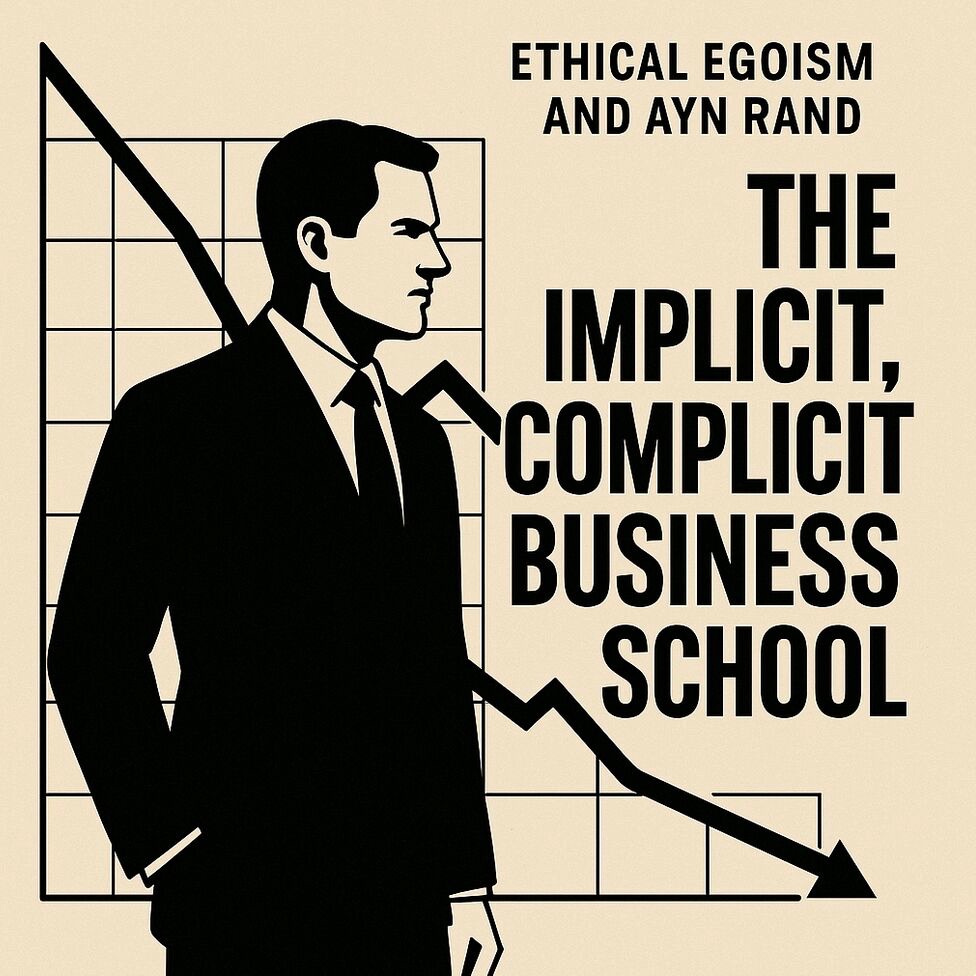

𝐓𝐡𝐞 𝐈𝐦𝐩𝐥𝐢𝐜𝐢𝐭, 𝐂𝐨𝐦𝐩𝐥𝐢𝐜𝐢𝐭 𝐁𝐮𝐬𝐢𝐧𝐞𝐬𝐬 𝐒𝐜𝐡𝐨𝐨𝐥
Have you heard of Ayn Rand? If you’re an American CEO or politician, chances are you’ve not only heard of her but have been influenced by her. Some - like Alan Greenspan - were part of her inner circle. Many have absorbed her worldview indirectly: through her novels, the popular business press, or the moral language of modern management education.
Rand is famous for championing 𝐞𝐭𝐡𝐢𝐜𝐚𝐥 𝐞𝐠𝐨𝐢𝐬𝐦. In her view, ethics is not an afterthought but a code of values guiding every choice and defining the purpose of one’s life. She identifies survival as the most basic value: for any living being, life is the precondition of valuing anything. For human beings, values are moral when they serve one’s survival as a rational being.
Her moral ideal is the 𝐬𝐞𝐥𝐟-𝐦𝐚𝐝𝐞, 𝐬𝐞𝐥𝐟-𝐯𝐚𝐥𝐮𝐢𝐧𝐠, 𝐬𝐞𝐥𝐟-𝐣𝐮𝐬𝐭𝐢𝐟𝐲𝐢𝐧𝐠 𝐢𝐧𝐝𝐢𝐯𝐢𝐝𝐮𝐚𝐥 - the heroic entrepreneur whose ambition and productivity are the highest virtues. Rand loathes collectivism, equates altruism with self-sacrifice, and defends a minimal state.
The interesting bit is how 𝐛𝐮𝐬𝐢𝐧𝐞𝐬𝐬 𝐬𝐜𝐡𝐨𝐨𝐥𝐬, often without realizing it, have transmitted this moral code - implicitly, even complicitly.
💡 Case studies valorize heroic leaders who defy convention - Welch, Musk - mirror images of Rand’s protagonists.
💡 MBA ethics curricula often frame choices as profit versus altruism, reproducing Rand’s moral dichotomy.
💡 Courses in leadership promote self-optimization as moral virtue turning self-interest into a disciplined duty.
💡 And the ubiquitous rhetoric of authenticity and disruption continues Rand’s call for independence against conformity.
Take the an HBS Tesla Case. It celebrates “a founder who refused to delegate creative responsibility” and “redesigned almost every system” to match his vision. Yet it also shows the danger in her moral ideal. When the single-minded pursuit of vision becomes organizational culture, rational independence can slide into authoritarian control. The heroic egoist, institutionalized, can turn into a system that demands total devotion.
In this sense, Rand’s “moral ideal” lives on not just in philosophy but in 𝐭𝐡𝐞 𝐞𝐯𝐞𝐫𝐲𝐝𝐚𝐲 𝐦𝐨𝐫𝐚𝐥 𝐩𝐬𝐲𝐜𝐡𝐨𝐥𝐨𝐠𝐲 𝐨𝐟 𝐛𝐮𝐬𝐢𝐧𝐞𝐬𝐬 𝐞𝐝𝐮𝐜𝐚𝐭𝐢𝐨𝐧. We reward the tireless, the self-reliant, the disruptor - and we frame these traits not merely as strategies for success, but as signs of virtue.
Business schools rarely mention Rand, but her shadow lingers in how we teach leadership, purpose, and ethics. So perhaps it’s time to ask: 𝐖𝐡𝐚𝐭 𝐦𝐨𝐫𝐚𝐥 𝐰𝐨𝐫𝐥𝐝 𝐚𝐫𝐞 𝐰𝐞 𝐫𝐞𝐩𝐫𝐨𝐝𝐮𝐜𝐢𝐧𝐠 𝐰𝐡𝐞𝐧 𝐞𝐯𝐞𝐫𝐲 𝐜𝐚𝐬𝐞 𝐬𝐭𝐮𝐝𝐲 𝐞𝐧𝐝𝐬 𝐰𝐢𝐭𝐡 𝐭𝐡𝐞 𝐭𝐫𝐢𝐮𝐦𝐩𝐡 𝐨𝐟 𝐭𝐡𝐞 𝐡𝐞𝐫𝐨𝐢𝐜 𝐬𝐞𝐥𝐟?
And: what would it mean to teach management that also values empathy, humility, and the shared conditions of human flourishing?
03-10-2025



Many leaders respond to our seminar 𝑹𝒆𝒔𝒑𝒐𝒏𝒔𝒊𝒃𝒍𝒆 𝑳𝒆𝒂𝒅𝒆𝒓𝒔𝒉𝒊𝒑 with the words: “𝑰 𝒂𝒍𝒓𝒆𝒂𝒅𝒚 𝒌𝒏𝒐𝒘 𝒉𝒐𝒘 𝒕𝒐 𝒅𝒐 𝒕𝒉𝒂𝒕.” Often, these are people who have seriously engaged with questions of responsibility, who have developed their own ethical code, and who try to act by principle.
And yet, there lies a paradox. Because those who genuinely want to be answerable, those who see themselves as moral agents, will never be “finished” with responsibility. To be responsible is to remain engaged in the ongoing struggle: to question one’s own judgments, to recognize prejudices, to find new language for emerging dilemmas, and to enter into dialogue with others about what is good, right, and better.
The Canadian philosopher Charles Taylor, who more than anyone else has shaped the idea of the 𝒎𝒐𝒓𝒂𝒍 𝒉𝒐𝒓𝒊𝒛𝒐𝒏, described this kind of responsibility in powerful terms. For Taylor, human beings are not merely carriers of desires that we balance against each other. We are reflective beings, capable of turning back on our own wants and asking not only 𝒘𝒉𝒂𝒕 we want, but 𝒘𝒉𝒆𝒕𝒉𝒆𝒓 we ought to want it. In that reflection, we open a moral space in which our actions can be judged as noble or base, dignified or undignified, deep or shallow.
Taylor calls this 𝒔𝒕𝒓𝒐𝒏𝒈 𝒆𝒗𝒂𝒍𝒖𝒂𝒕𝒊𝒐𝒏. It differs from 𝒘𝒆𝒂𝒌 𝒆𝒗𝒂𝒍𝒖𝒂𝒕𝒊𝒐𝒏, where we simply weigh desires by usefulness or convenience. Strong evaluation means situating our lives in relation to higher goods- treating concepts like dignity, honor, and integrity as real guides to our being. And these concepts only make sense in contrast to their opposites: indignity, dishonor, loss of integrity. Such distinctions are not luxuries. They are constitutive of our very selves.
For Taylor, this is what the 𝒎𝒐𝒓𝒂𝒍 𝒉𝒐𝒓𝒊𝒛𝒐𝒏 provides: a framework that orients us between what makes life worth living, to whom we ascribe dignity, and what we find admirable. But he is equally clear: this horizon is never fixed. A good life is one in which we search for clarity precisely where none yet exists. It is a life in which we keep asking the right questions and are willing to rethink the answers we once gave.
For leaders, this means that 𝑹𝒆𝒔𝒑𝒐𝒏𝒔𝒊𝒃𝒍𝒆 𝑳𝒆𝒂𝒅𝒆𝒓𝒔𝒉𝒊𝒑 is never a settled competence or skillset. It is a stance of continuous reflection. Leaders who want to act responsibly must recognize that they themselves are never “done.” Good leadership consists in giving orientation amid a plurality of values, without falling into either relativism or dogmatism. Responsibility is not a burden to be carried, but the very core of a good life- an ongoing process of drawing new distinctions, developing language for new dilemmas, and remaining in dialogue.
Perhaps the strongest signal of a responsible leader is not the claim: “𝑰 𝒂𝒍𝒓𝒆𝒂𝒅𝒚 𝒌𝒏𝒐𝒘 𝒕𝒉𝒊𝒔.” But the humble admission: “𝑰 𝒓𝒆𝒎𝒂𝒊𝒏 𝒊𝒏 𝒔𝒆𝒂𝒓𝒄𝒉.”
02-10-2025

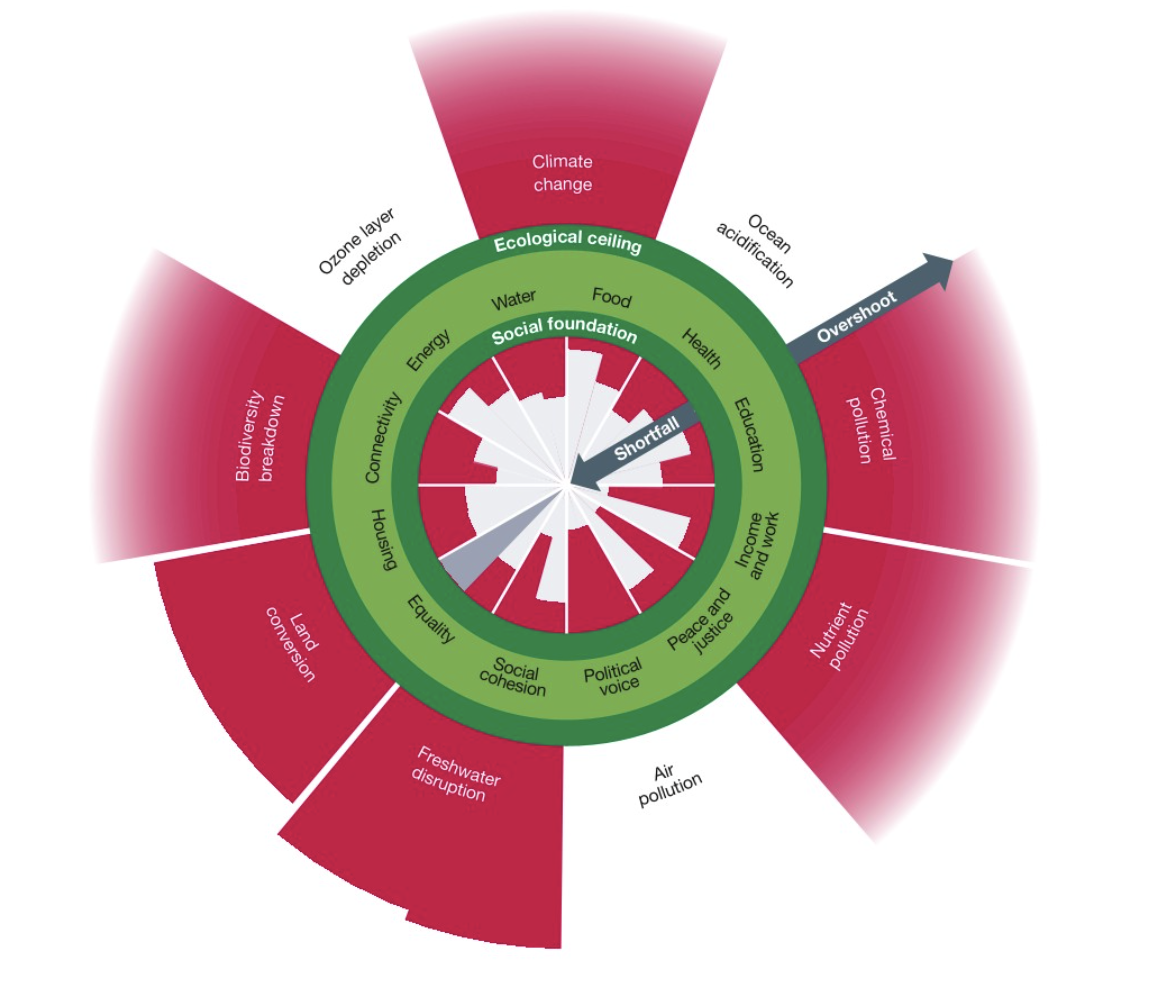

𝗔 𝗿𝗲𝗻𝗲𝘄𝗲𝗱 𝗗𝗼𝘂𝗴𝗵𝗻𝘂𝘁 𝗳𝗼𝗿 𝗼𝘂𝗿 𝘁𝗶𝗺𝗲𝘀
The Doughnut framework has just been updated with global data (2000–2022). It is a simple yet powerful compass: the inner ring is the 𝘀𝗼𝗰𝗶𝗮𝗹 𝗳𝗼𝘂𝗻𝗱𝗮𝘁𝗶𝗼𝗻 every person needs for a dignified life, while the outer ring is the 𝗲𝗰𝗼𝗹𝗼𝗴𝗶𝗰𝗮𝗹 𝗰𝗲𝗶𝗹𝗶𝗻𝗴 humanity must not overshoot.
𝗧𝗮𝗸𝗶𝗻𝗴 𝘀𝘁𝗼𝗰𝗸, 𝘀𝗼𝗰𝗶𝗮𝗹𝗹𝘆.
There has been some progress. Since 2000, more people have gained access to electricity, health services, clean water, and digital connectivity. Child survival rates have improved. But large shortfalls remain: billions still face food insecurity, lack decent work, suffer corruption, and lack political voice. These deprivations are most concentrated in the world’s poorest 40%, showing that social foundations are far from secured.
𝗧𝗮𝗸𝗶𝗻𝗴 𝘀𝘁𝗼𝗰𝗸, 𝗲𝗰𝗼𝗹𝗼𝗴𝗶𝗰𝗮𝗹𝗹𝘆.
On the planetary side, the picture is stark. Seven of nine Earth systems are now in overshoot. Global GDP has more than doubled since 2000, but this growth has come with accelerating ecological transgression. Rich nations, representing 15% of the world’s population, drive nearly half of global overshoot, while the poorest contribute little and bear the brunt of consequences. Inequality is etched into both social shortfall and ecological excess.
𝗪𝗵𝘆 𝗮𝗰𝘁 𝗻𝗼𝘄?
Much of today’s debate defends growth in the name of 𝗳𝗿𝗲𝗲𝗱𝗼𝗺 𝗼𝗳 𝗰𝗵𝗼𝗶𝗰𝗲: the freedom to consume more, to travel more, to expand markets. But there is another freedom at stake: 𝗳𝗿𝗲𝗲𝗱𝗼𝗺 𝗳𝗿𝗼𝗺 𝗱𝗼𝗺𝗶𝗻𝗮𝘁𝗶𝗼𝗻, as described by political philosopher Philip Pettit. To be free in this sense is not merely to have options, but to live without being subject to the arbitrary power of others. Social deprivation creates domination when people lack the basics that would let them stand as equals. Ecological overshoot creates domination when one generation, or a group of nations, imposes instability and scarcity on others without their consent. Protecting freedom therefore means more than defending consumption today - it means ensuring that all people, now and in the future, can live free from domination.
𝗧𝗵𝗲 𝗿𝗼𝗹𝗲 𝗼𝗳 𝗯𝘂𝘀𝗶𝗻𝗲𝘀𝘀.
Companies have a pivotal choice. They can continue pursuing growth at all costs thereby deepening both overshoot and inequality. Or they can steer towards being 𝗿𝗲𝗴𝗲𝗻𝗲𝗿𝗮𝘁𝗶𝘃𝗲 𝗮𝗻𝗱 𝗱𝗶𝘀𝘁𝗿𝗶𝗯𝘂𝘁𝗶𝘃𝗲 𝗯𝘆 𝗱𝗲𝘀𝗶𝗴𝗻. That means cutting ecological footprints across supply chains, ensuring fair wages and ownership models, and innovating in products and services that meet human needs without breaching planetary limits.
𝗧𝗵𝗲 𝗳𝗿𝗲𝗲𝗱𝗼𝗺 𝗼𝗳 𝗳𝘂𝘁𝘂𝗿𝗲 𝗴𝗲𝗻𝗲𝗿𝗮𝘁𝗶𝗼𝗻𝘀 𝗱𝗲𝗽𝗲𝗻𝗱𝘀 𝗼𝗻 𝘁𝗵𝗲 𝗰𝗵𝗼𝗶𝗰𝗲𝘀 𝘄𝗲 𝗺𝗮𝗸𝗲 𝗻𝗼𝘄 - 𝗹𝗲𝘁’𝘀 𝗺𝗮𝗸𝗲 𝘁𝗵𝗲𝗺 𝗰𝗼𝘂𝗻𝘁.
Link to article: https://doi.org/10.1038/s41586-025-09385-1
29-09-2025

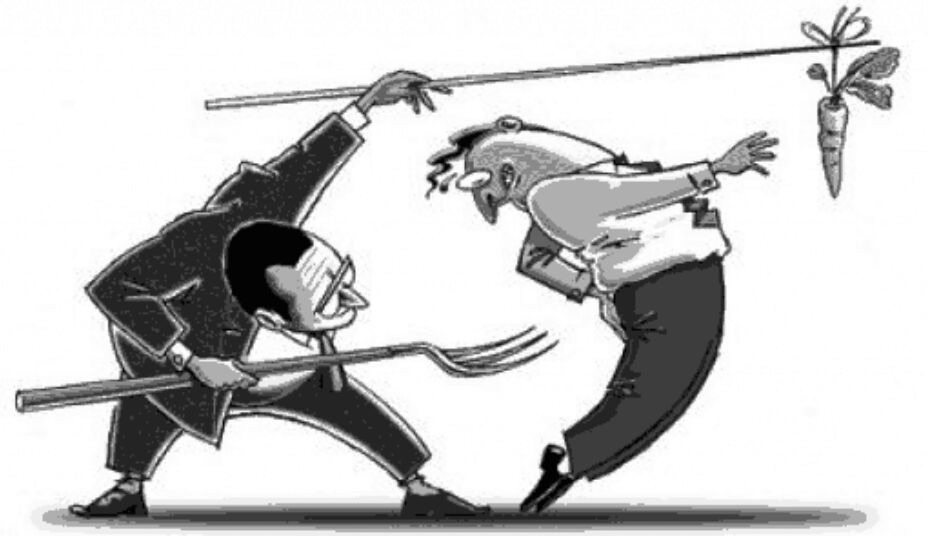

𝗧𝗛𝗘𝗦𝗘 𝗛𝗥 𝗣𝗥𝗔𝗖𝗧𝗜𝗖𝗘𝗦 𝗖𝗢𝗠𝗘 𝗪𝗜𝗧𝗛 𝗔 𝗪𝗔𝗥𝗡𝗜𝗡𝗚
A new integrative review pulls together what many HR leaders sense already: some of our most powerful levers can unintentionally manufacture misconduct. It maps which practices are tied to unethical behavior and why. This is a qualitative synthesis (not a meta-analysis), so think mechanisms and design choices, not effect sizes.
𝗦𝘁𝗮𝗿𝘁 𝘄𝗵𝗲𝗿𝗲 𝗿𝗶𝘀𝗸 𝗰𝗼𝗻𝗰𝗲𝗻𝘁𝗿𝗮𝘁𝗲𝘀:
• 𝗖𝗼𝗺𝗽𝗲𝗻𝘀𝗮𝘁𝗶𝗼𝗻 & 𝗶𝗻𝗰𝗲𝗻𝘁𝗶𝘃𝗲𝘀: High-powered rewards and pay opacity can trigger reciprocity pressure, social comparison, and corner-cutting. The simple rule: 𝗮𝘃𝗼𝗶𝗱 𝗵𝗶𝗴𝗵-𝗽𝗼𝘄𝗲𝗿𝗲𝗱 𝗶𝗻𝗰𝗲𝗻𝘁𝗶𝘃𝗲𝘀. Shift toward balanced scorecards, process transparency, and clear ethical guardrails in variable pay.
• 𝗣𝗲𝗿𝗳𝗼𝗿𝗺𝗮𝗻𝗰𝗲 𝗺𝗮𝗻𝗮𝗴𝗲𝗺𝗲𝗻𝘁: 𝗥𝗲𝗹𝗮𝘁𝗶𝘃𝗲 𝗿𝗮𝗻𝗸𝗶𝗻𝗴𝘀 invite sabotage and misreporting, while 𝗼𝘃𝗲𝗿-𝗮𝗺𝗯𝗶𝘁𝗶𝗼𝘂𝘀 (or consecutively escalating) 𝗴𝗼𝗮𝗹𝘀 drain self-control and push shortcuts. The simple rule: 𝗮𝘃𝗼𝗶𝗱 𝗿𝗮𝗻𝗸𝗶𝗻𝗴𝘀 𝗮𝗻𝗱 𝗼𝘃𝗲𝗿-𝗮𝗺𝗯𝗶𝘁𝗶𝗼𝘂𝘀 𝗴𝗼𝗮𝗹𝘀. Prefer absolute standards, finite stretch cycles, developmental feedback, and human-over-algorithm fairness checks.
𝗪𝗵𝗮𝘁 𝗵𝗲𝗹𝗽𝘀 𝘄𝗵𝗲𝗻 𝗱𝗲𝘀𝗶𝗴𝗻𝗲𝗱 𝘄𝗲𝗹𝗹:
• 𝗝𝗼𝗯 𝗱𝗲𝘀𝗶𝗴𝗻 & 𝗶𝗻𝘃𝗼𝗹𝘃𝗲𝗺𝗲𝗻𝘁: Thoughtful variety, significance, autonomy with accountability, and feedback can reduce deviance by deepening engagement; participative goal-setting and values conversations make moral disengagement less likely.
• 𝗘𝘁𝗵𝗶𝗰𝘀-𝗼𝗿𝗶𝗲𝗻𝘁𝗲𝗱 𝗛𝗥𝗠 𝘀𝘆𝘀𝘁𝗲𝗺𝘀: Treat ethics as a 𝘀𝘆𝘀𝘁𝗲𝗺 𝗽𝗿𝗼𝗽𝗲𝗿𝘁𝘆 - coverage, intensity, sophistication- not an add-on. Done well, this strengthens moral attentiveness, ethical climate, and voice.
𝗬𝗼𝘂𝗿 𝗯𝗶𝗴𝗴𝗲𝘀𝘁 𝘂𝗻𝗸𝗻𝗼𝘄𝗻𝘀- 𝗹𝗲𝗮𝗻 𝗶𝗻 𝗵𝗲𝗿𝗲 𝗻𝗲𝘅𝘁:
• 𝗦𝘁𝗮𝗳𝗳𝗶𝗻𝗴: We still don’t know which referral and algorithmic selection choices cross the line from efficiency to fairness erosion; discrimination risks remain a worry. Instrument the hiring funnel with source-of-hire ethics indicators, appeal/override pathways, and a real human-in-the-loop.
• 𝗧𝗿𝗮𝗶𝗻𝗶𝗻𝗴: We also don’t know which elements of “development” quietly lower justice perceptions or model bad behavior (shadowing, war stories, simulations). Audit who gets into programs, run pre/post justice pulses, and script modeling risks explicitly.
𝗧𝗮𝗸𝗲𝗮𝘄𝗮𝘆: Design HR for 𝗲𝘁𝗵𝗶𝗰𝘀 as deliberately as you design for 𝗽𝗲𝗿𝗳𝗼𝗿𝗺𝗮𝗻𝗰𝗲. Steer clear of high-powered incentives, rankings, and over-ambitious goals; enrich work and embed ethics; then instrument staffing and training so your systems don’t quietly create misconduct.
Reference: Yu, W., Jiang, K., Mo, S., & Su, Y. (2025). The Moral Implications of Human Resource Management (HRM): A Review of the Relationship Between HRM Practices and Unethical Behavior at Work. Journal of Business Ethics. Advance online publication.
27-09-2025

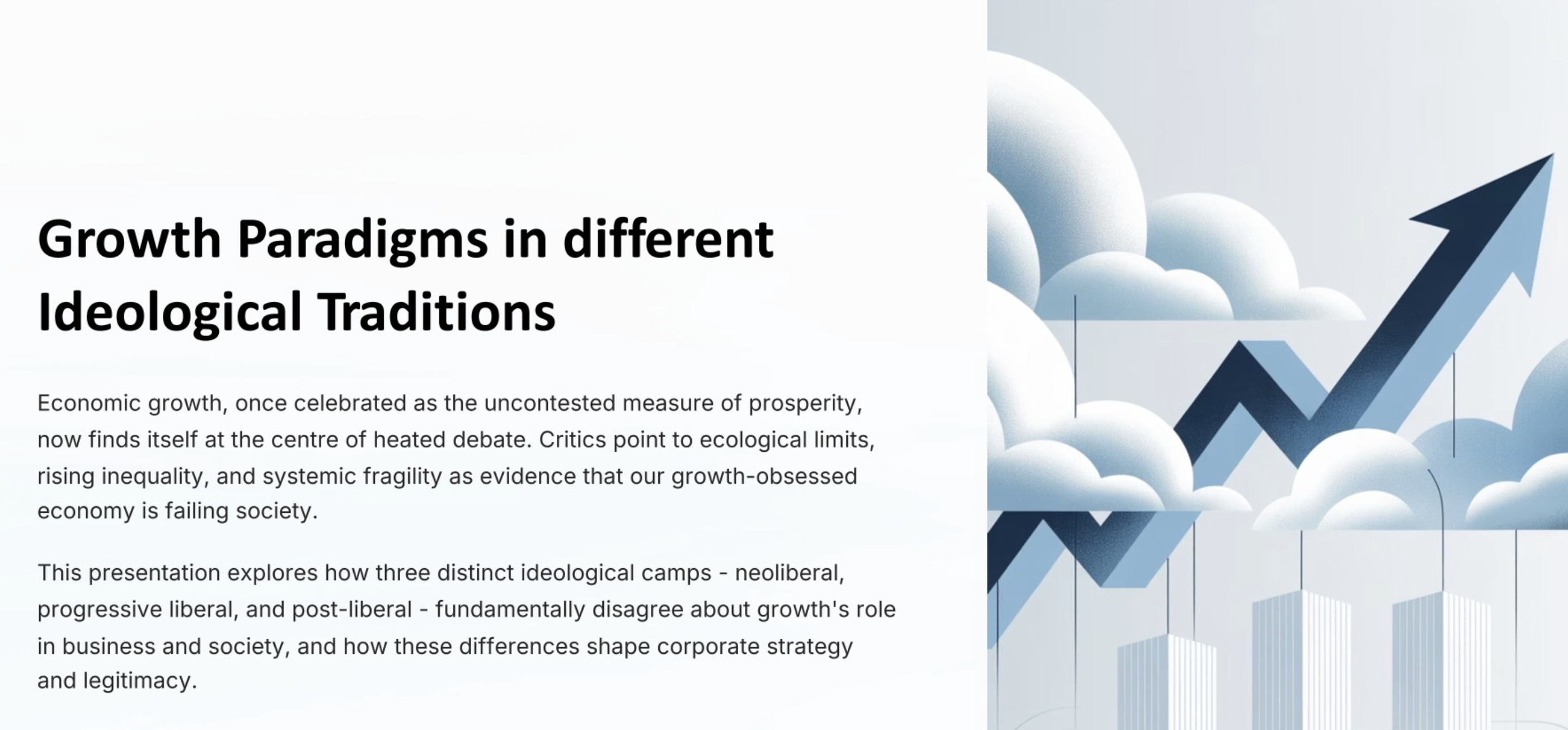

𝐆𝐫𝐨𝐰𝐭𝐡 & 𝐒𝐭𝐫𝐚𝐭𝐞𝐠𝐲: 𝐐𝐮𝐨 𝐕𝐚𝐝𝐢𝐬?
As our prosperity is endangered - not only by the mad hatter in the White House - economic growth is back on the agenda. For some, GDP and market cap always were core goals. Others argue fair, sustainable growth is possible. A third camp urges a shift to limited, qualitative growth. Each path brings hard tasks.
𝐇𝐢𝐠𝐡 𝐆𝐫𝐨𝐰𝐭𝐡 (𝐍𝐞𝐨𝐥𝐢𝐛𝐞𝐫𝐚𝐥)
Strategy is to scale fast. Companies have to ride experience curves, launch new S-curves, expand markets/platforms. Implementation means keeping the «Rate–Direction–Method» coherent so speed doesn’t break operations.
Company challenges: strategic drift, culture/quality cracks, value-destroying M&A, balance-sheet strain. Hamilton & Ng’s meta-analysis (159 studies) shows high growth is seldom sustainable as spurts are short-lived, benefits uneven/volatile, and policy emphasis outpaces evidence.
Societal costs: environmental externalities, precarious work, privatized gains; winner-take-most inequality; concentrated power and policy capture.
𝐒𝐮𝐬𝐭𝐚𝐢𝐧𝐚𝐛𝐥𝐞 𝐆𝐫𝐨𝐰𝐭𝐡 (𝐏𝐫𝐨𝐠𝐫𝐞𝐬𝐬𝐢𝐯𝐞 𝐋𝐢𝐛𝐞𝐫𝐚𝐥)
Strategy is to profit only when solving problems, not creating negative externalities. Implement via asset-light services, quality-led premiumization, selective integration, and reliable dividends over sheer expansion.
Company challenges: attracting ambitious talent without hyper-promotions; complacency risk; margin plays hit ceilings.
Societal challenges: largely voluntary without reform; firms can profit from harms while sounding “sustainable.” This strategy needs a redesigned corporate law, taxation, and accounting.
𝐐𝐮𝐚𝐥𝐢𝐭𝐚𝐭𝐢𝐯𝐞 𝐆𝐫𝐨𝐰𝐭𝐡 (𝐏𝐨𝐬𝐭-𝐋𝐢𝐛𝐞𝐫𝐚𝐥)
Strategy: Stewardship, business enabling flourishing of and in society. Centers on sufficiency, ecological integrity, and dignity at work over revenue expansion. Implementation-wise: steward-ownership to lock mission, circular/regenerative models, federated networks, redesigned work.
Company challenges: capital access in high-return systems; scaling without recreating growth logic (not growing can be harder than growing); “niche” stigma.
Societal challenges: welfare, pensions, and public services assume GDP growth, making transitions complex.
𝐖𝐡𝐲 𝐓𝐡𝐢𝐬 𝐌𝐚𝐭𝐭𝐞𝐫𝐬
GDP growth long underwrote our institutions - yet we’re breaching planetary boundaries, democracy is eroding, conflicts intensify, inequality rises, and real wages in many places remain below pre-inflation peaks. If transition can’t be avoided, begin redesigning institutions now. In today’s geopolitics, however, many fair-growth fixes (e.g., true-cost accounting) remain out of reach; so experiment locally - Transition Towns, B-Corp alliances etc. - and use imagination in research and education to build a better growth framework for the future.
If you want a more complete analysis with frameworks and cases (Nvidia, Unilever, Patagonia) - have a look at the deck: https://www.linkedin.com/posts/antoinette-weibel_growth-and-strategy-activity-7377972967584112641-m0Br?utm_source=share&utm_medium=member_desktop&rcm=ACoAACORmc0B-heQaIu8zy_uBuqirrRJdzq4ClQ
24-09-2025

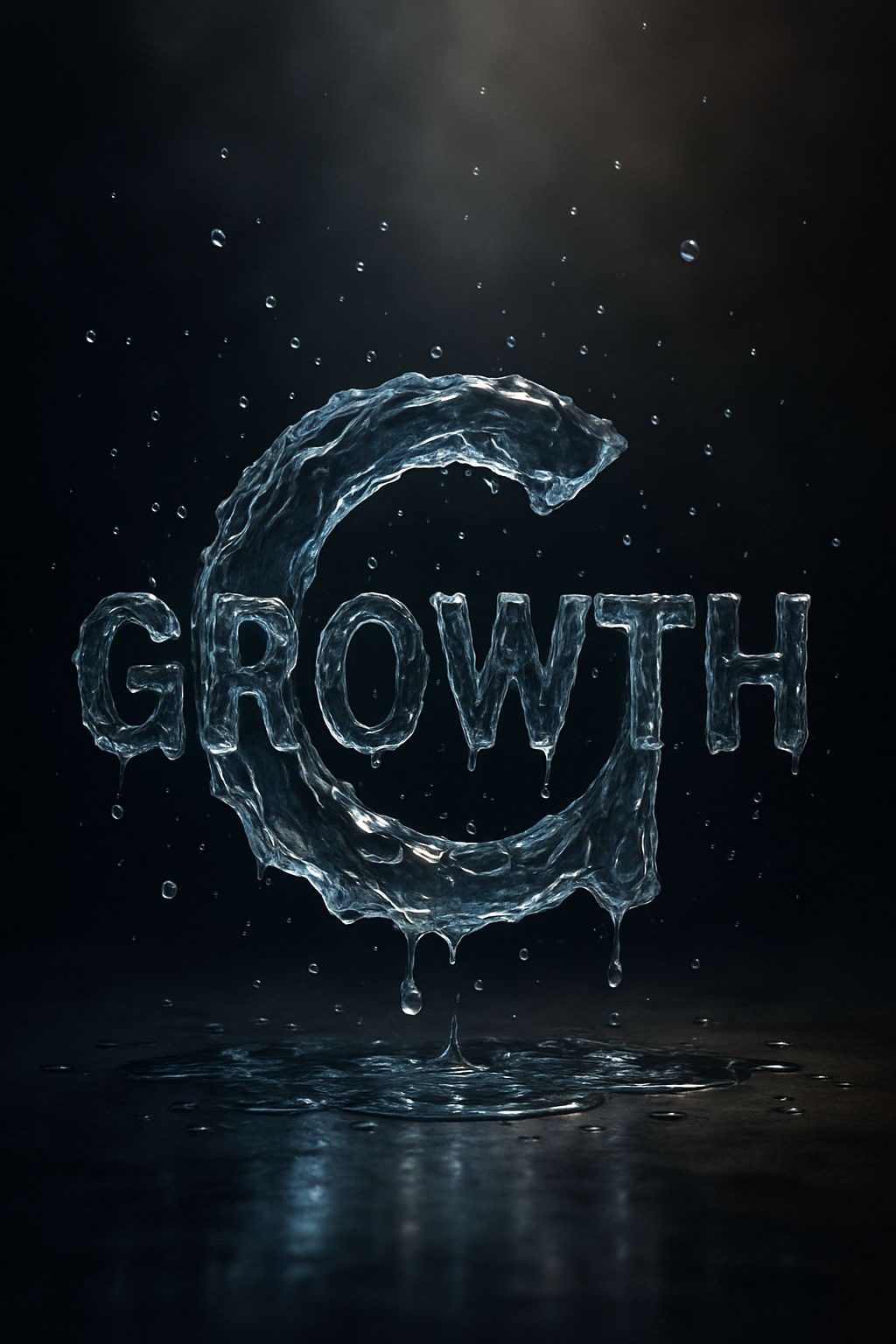

𝐇𝐑 & 𝐎𝐃 𝐩𝐫𝐨𝐟𝐞𝐬𝐬𝐢𝐨𝐧𝐚𝐥𝐬: 𝐘𝐨𝐮𝐫 𝐂𝐄𝐎 𝐢𝐬 𝐚𝐬𝐤𝐢𝐧𝐠 𝐟𝐨𝐫 𝐀𝐈-𝐩𝐨𝐰𝐞𝐫𝐞𝐝 𝐠𝐫𝐨𝐰𝐭𝐡. 𝐇𝐞𝐫𝐞’𝐬 𝐰𝐡𝐚𝐭 𝐲𝐨𝐮 𝐧𝐞𝐞𝐝 𝐭𝐨 𝐚𝐬𝐤 𝐛𝐚𝐜𝐤.
In today’s doctoral seminar, we discussed a framework that gives HR & OD professionals serious leverage in C-suite conversations: the concept of organizational “metabolic capacity.”
Most executives want AI deployment. But they’re not asking the deeper question that determines whether their people will thrive or just survive the transformation.
𝐓𝐡𝐞 𝐪𝐮𝐞𝐬𝐭𝐢𝐨𝐧 𝐲𝐨𝐮 𝐧𝐞𝐞𝐝 𝐭𝐨 𝐛𝐫𝐢𝐧𝐠 𝐭𝐨 𝐲𝐨𝐮𝐫 𝐧𝐞𝐱𝐭 𝐬𝐭𝐫𝐚𝐭𝐞𝐠𝐲 𝐦𝐞𝐞𝐭𝐢𝐧𝐠:
“Before we chase AI-powered growth, how do we reshape our learning capacities to actually digest that growth?”
Because here’s what the research shows: firms that learn to use AI for multiple purposes don’t just deploy tools. They expand the horizon of what their people can imagine and achieve. But that expansion requires organizational learning capabilities most companies simply don’t have yet.
𝐅𝐨𝐮𝐫 𝐦𝐞𝐭𝐚𝐛𝐨𝐥𝐢𝐜 𝐜𝐡𝐚𝐥𝐥𝐞𝐧𝐠𝐞𝐬 𝐲𝐨𝐮 𝐜𝐚𝐧 𝐫𝐚𝐢𝐬𝐞 𝐰𝐢𝐭𝐡 𝐥𝐞𝐚𝐝𝐞𝐫𝐬𝐡𝐢𝐩:
1️⃣ 𝐎𝐫𝐠𝐚𝐧𝐢𝐳𝐚𝐭𝐢𝐨𝐧𝐚𝐥 𝐥𝐞𝐚𝐫𝐧𝐢𝐧𝐠 𝐯𝐬. 𝐀𝐈 𝐬𝐩𝐞𝐞𝐝: “Our learning systems move glacially. AI moves at light speed. How do we close this gap?”
2️⃣ 𝐇𝐮𝐦𝐚𝐧 𝐜𝐚𝐩𝐚𝐜𝐢𝐭𝐲 𝐝𝐞𝐯𝐞𝐥𝐨𝐩𝐦𝐞𝐧𝐭: “AI risks dulling rather than sharpening our people’s capabilities. What’s our strategy to prevent cognitive atrophy?”
3️⃣ 𝐑𝐞𝐚𝐥𝐢𝐭𝐲 𝐚𝐛𝐬𝐭𝐫𝐚𝐜𝐭𝐢𝐨𝐧: “AI reduces complexity to patterns. The more we rely on it, the less we may see of actual market reality. How do we maintain human insight?”
4️⃣ 𝐏𝐮𝐫𝐩𝐨𝐬𝐞 & 𝐢𝐦𝐩𝐚𝐜𝐭 𝐚𝐥𝐢𝐠𝐧𝐦𝐞𝐧𝐭: “Are we growing toward something that serves humans and the planet, or just optimizing for metrics that look good in quarterly reports?”
𝐇𝐞𝐫𝐞’𝐬 𝐭𝐡𝐞 𝐩𝐚𝐫𝐚𝐝𝐨𝐱 𝐭𝐡𝐚𝐭 𝐠𝐢𝐯𝐞𝐬 𝐇𝐑 𝐚 𝐯𝐨𝐢𝐜𝐞 𝐚𝐧𝐝 𝐚 𝐯𝐨𝐭𝐞:
AI promises to expand possibilities, but it may just as easily narrow organizational vision. Growth that cannot be metabolized because learning is too slow, human capacities are weakened, and reality is abstracted away isn’t sustainable growth. It’s organizational indigestion.
𝐘𝐨𝐮𝐫 𝐯𝐚𝐥𝐮𝐞 𝐩𝐫𝐨𝐩𝐨𝐬𝐢𝐭𝐢𝐨𝐧 𝐭𝐨 𝐭𝐡𝐞 𝐂-𝐬𝐮𝐢𝐭𝐞:
“You’re focused on growth velocity. I’m focused on growth sustainability. Without addressing metabolic capacity, we’re setting ourselves up for AI-powered failure that looks like success until it doesn’t.”
The executives chasing “more, faster” need someone asking “what kind of growth is actually worth having?” Growth that serves humans and the planet, not just shareholders and algorithms. That someone is you.
𝐁𝐞𝐜𝐚𝐮𝐬𝐞 𝐡𝐞𝐫𝐞’𝐬 𝐰𝐡𝐚𝐭 𝐡𝐚𝐩𝐩𝐞𝐧𝐬 𝐰𝐡𝐞𝐧 𝐲𝐨𝐮 𝐝𝐨𝐧’𝐭: organizations that worship growth without building metabolic capacity become exactly what they’re trying to disrupt. They become slow, rigid, and eventually irrelevant.
23-09-2025

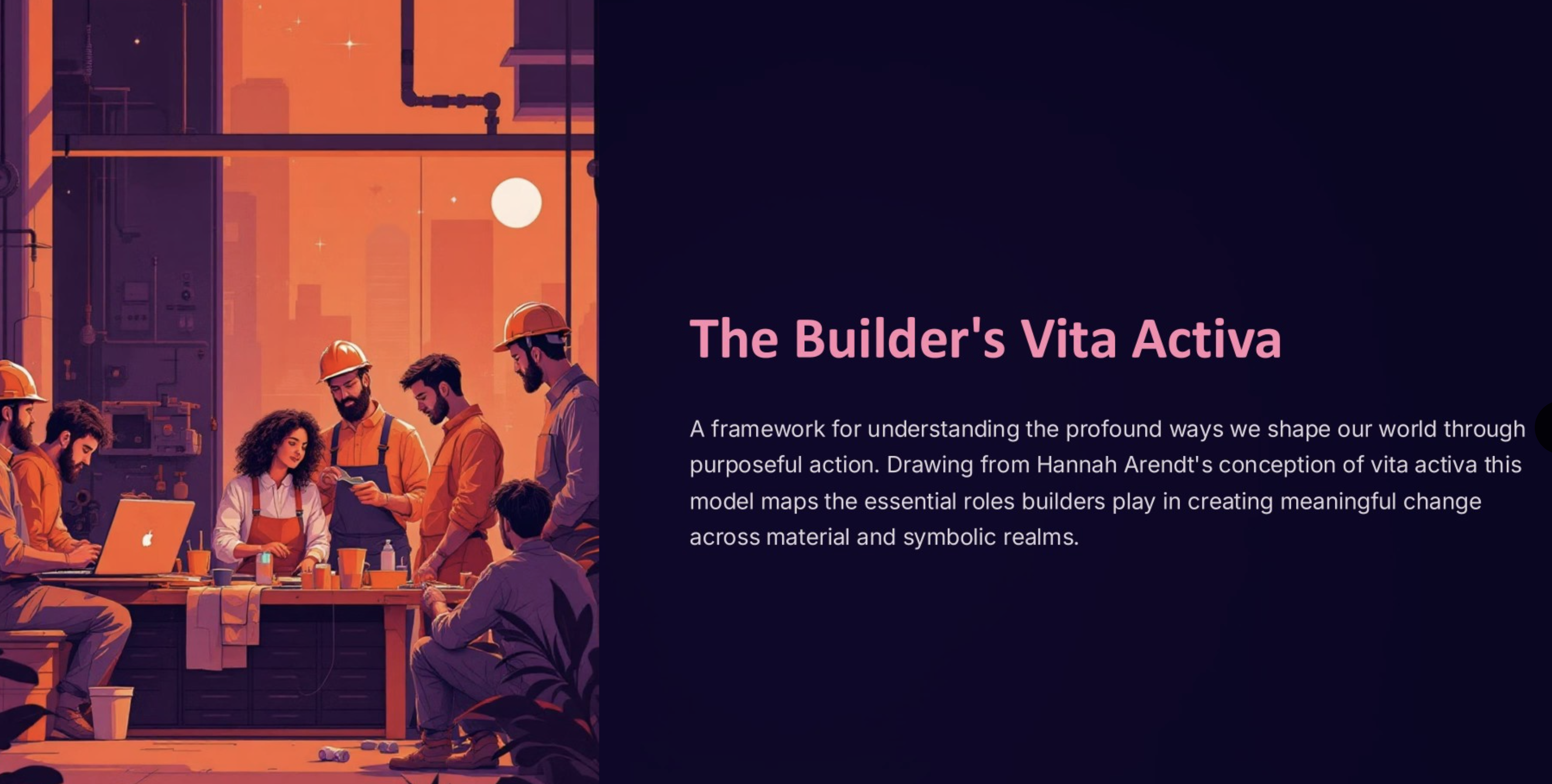

🔨 Do we need a new society of builders?
The word builder is everywhere today. In tech, in entrepreneurship, in politics. We celebrate founders, engineers, those who launch the “new.” But what if our idea of a builder is far too narrow?
Hannah Arendt’s vita activa reminds us that human activity is richer than just producing or coding. She distinguished between labor (sustaining life), work (crafting durable things), and action (initiating something new in the public sphere). If we extend her thinking, we get a broader “builder’s vita activa” - a society of four kinds of builders:
1️⃣ Sustainers, who hold life together through care, maintenance, regeneration.
2️⃣ Makers, who shape tools, infrastructures, and institutions.
3️⃣ Initiators, who dare to begin something new in public.
4️⃣ Meaning-Makers, who tell the stories that give endurance to our deeds.
But here’s the tension: each of these roles is in crisis.
Sustainers are indispensable, yet undervalued and feminized. Simone de Beauvoir warned that women were historically confined to repetitive immanence, denied the projects of transcendence. Today, we still romanticize “care” while outsourcing the tedious parts often to those with the least power. Unless care is made visible, fairly shared, and properly rewarded, this quadrant collapses under strain.
Makers, ie. the engineers, founders, builders in the narrow sense face another challenge: automation. As AI absorbs routine making, human craft risks being hollowed out. If we don’t guard against reducing work to pure efficiency, we risk losing not just jobs but meaning: the pride in building something durable.
Initiators - those who act together in public - face shrinking space. Action depends on plurality and visibility, yet today’s public spheres are fragile, captured, or algorithmically distorted. Without scaffolds that protect plurality and resist capture, collective action becomes brittle, fleeting.
Meaning-Makers, our artists, educators and journalists remain sidelined, seen as “extras” in a world obsessed with KPIs. Yet without them, even the greatest initiatives vanish into silence. Action needs memory, stories, institutions that carry meaning forward.
So what does this mean for a new society of builders?
It means we can’t reduce building to the start-up founder myth. A flourishing society values all four builder roles:
⭐️ It revalues care, making it visible and fairly distributed.
⭐️ It protects human craft from being hollowed out by automation.
⭐️ It invests in civic infrastructure so initiators can act without capture.
⭐️ It funds meaning and memory so our actions endure.
This isn’t nostalgia. It’s a provocation. In an age of automation, care crises, and shrinking public space, the challenge is to rebalance and revalorize what it means to build.
If we want transformation that is durable, just, and human, we must expand our idea of who the builders really are and unite them!
22-09-2025

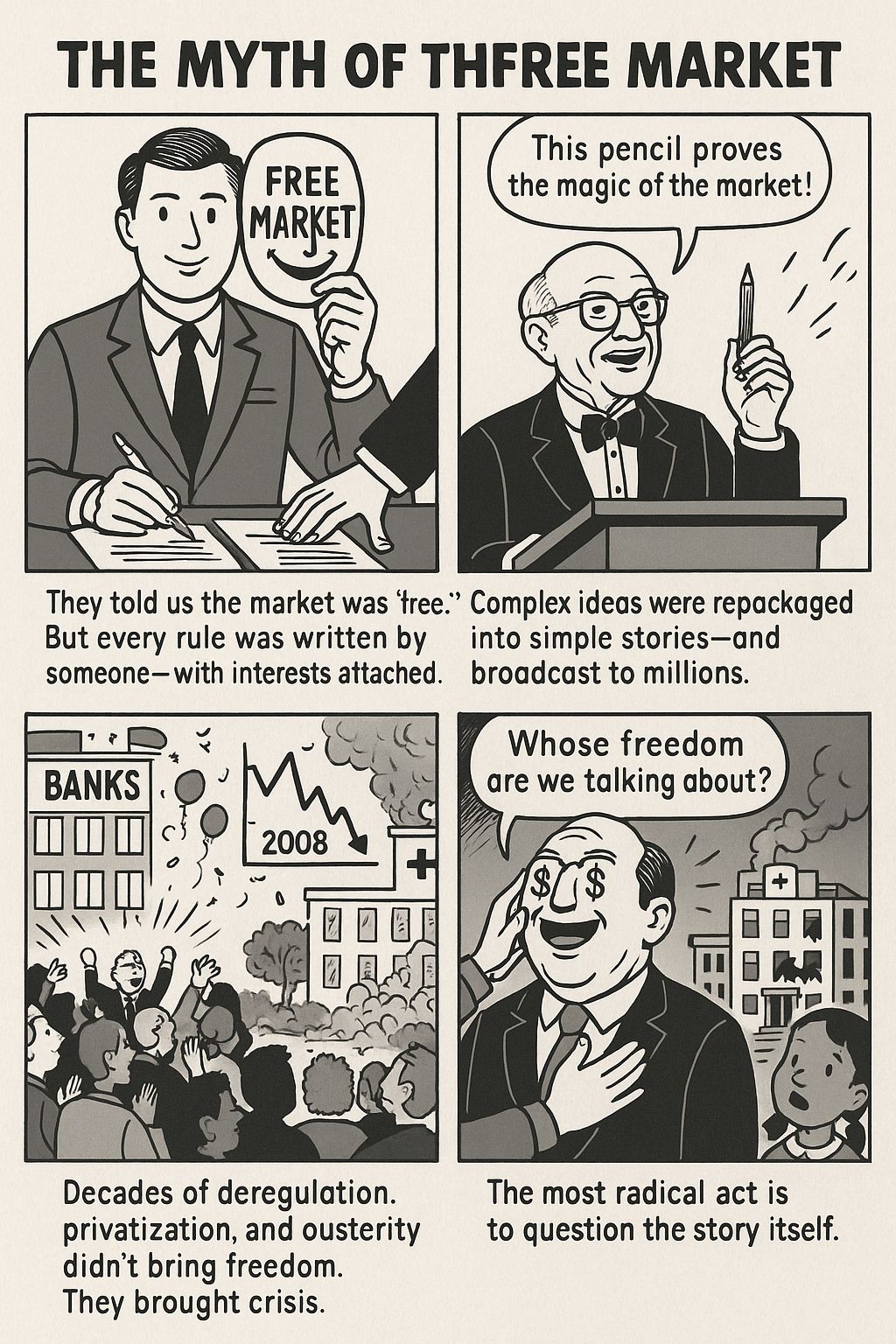

𝗧𝗵𝗲 𝗛𝗶𝗱𝗱𝗲𝗻 𝗛𝗶𝘀𝘁𝗼𝗿𝘆 𝗼𝗳 𝗡𝗲𝗼𝗹𝗶𝗯𝗲𝗿𝗮𝗹𝗶𝘀𝗺
In a superbly independent bookseller in Totnes, not so incidentally a “transition town” I came across a book that reminded me: 𝗻𝗲𝗼𝗹𝗶𝗯𝗲𝗿𝗮𝗹𝗶𝘀𝗺 𝘄𝗮𝘀𝗻’𝘁 𝗮𝗻 𝗮𝗰𝗰𝗶𝗱𝗲𝗻𝘁. 𝗜𝘁 𝘄𝗮𝘀 𝗲𝗻𝗴𝗶𝗻𝗲𝗲𝗿𝗲𝗱, 𝗯𝗿𝗮𝗻𝗱𝗲𝗱, 𝗮𝗻𝗱 𝗺𝗮𝗿𝗸𝗲𝘁𝗲𝗱.
The word neoliberal was coined in 𝗺𝗶𝗱-𝟭𝟵𝟯𝟬𝘀. Austrian economists 𝗙𝗿𝗶𝗲𝗱𝗿𝗶𝗰𝗵 𝗛𝗮𝘆𝗲𝗸 and 𝗟𝘂𝗱𝘄𝗶𝗴 𝘃𝗼𝗻 𝗠𝗶𝘀𝗲𝘀, exiled from Nazi Europe, feared Roosevelt’s New Deal and Britain’s welfare state were steps toward tyranny. In 1944, Hayek published The Road to Serfdom, claiming social democracy would slide into dictatorship.
𝗪𝗲𝗮𝗹𝘁𝗵𝘆 𝗲𝗹𝗶𝘁𝗲𝘀, resentful of 𝘁𝗮𝘅𝗲𝘀, 𝘂𝗻𝗶𝗼𝗻𝘀, 𝗮𝗻𝗱 𝗿𝗲𝗴𝘂𝗹𝗮𝘁𝗶𝗼𝗻, saw their chance. Hayek’s book turned their self-interest into a moral crusade. With serious money behind it, his ideas spread fast. Reader’s Digest condensed it (a million copies sold), and 𝗟𝗼𝗼𝗸 𝗺𝗮𝗴𝗮𝘇𝗶𝗻𝗲 𝗺𝗮𝗱𝗲 𝗮 𝗰𝗮𝗿𝘁𝗼𝗼𝗻 𝘃𝗲𝗿𝘀𝗶𝗼𝗻, distributed by General Motors. In 1947, Hayek founded the 𝗠𝗼𝗻𝘁 𝗣𝗲𝗹𝗲𝗿𝗶𝗻 𝗦𝗼𝗰𝗶𝗲𝘁𝘆, creating the first “𝗡𝗲𝗼𝗹𝗶𝗯𝗲𝗿𝗮𝗹 𝗜𝗻𝘁𝗲𝗿𝗻𝗮𝘁𝗶𝗼𝗻𝗮𝗹.”
Over the decades, billionaires poured money into 𝘁𝗵𝗶𝗻𝗸 𝘁𝗮𝗻𝗸𝘀 (Heritage Foundation, Cato Institute, Adam Smith Institute) and 𝘂𝗻𝗶𝘃𝗲𝗿𝘀𝗶𝘁𝗶𝗲𝘀 (Chicago, Virginia). They funded research, lobbying, and PR, reframing neoliberalism as common sense: business freedom = personal freedom. Even 𝗰𝗵𝗶𝗹𝗱𝗿𝗲𝗻’𝘀 𝗯𝗼𝗼𝗸𝘀 like Little House on the Prairie were rebranded to glorify rugged individualism.
By the 1960s, Hayek hardened the ideology: democracy and equality weren’t essentials but 𝗼𝗯𝘀𝘁𝗮𝗰𝗹𝗲𝘀. The rich were recast as society’s “𝘀𝗰𝗼𝘂𝘁𝘀”, blazing new trails. Inequality wasn’t a problem- it was progress.
Then the 1970s crisis hit. Inflation, oil shocks, stagnation. 𝗠𝗶𝗹𝘁𝗼𝗻 𝗙𝗿𝗶𝗲𝗱𝗺𝗮𝗻 stepped forward as chief salesman. His genius? Turning dense economics into catchy parables, TV shows, and simple props - like his pencil story explaining the “magic” of the market.
By the 1980s, 𝗥𝗲𝗮𝗴𝗮𝗻 and 𝗧𝗵𝗮𝘁𝗰𝗵𝗲𝗿 brought neoliberalism to power: tax cuts for the wealthy, smashed unions, privatization, deregulation, outsourcing. The ideas incubated for decades finally hatched.
And here’s the twist: neoliberalism didn’t win mainly with technical papers. It spread through 𝗺𝗮𝘀𝘀 𝗽𝗲𝗿𝘀𝘂𝗮𝘀𝗶𝗼𝗻 - 𝗰𝗮𝗿𝘁𝗼𝗼𝗻𝘀, 𝗱𝗶𝗴𝗲𝘀𝘁𝘀, 𝗿𝗲𝗽𝗲𝘁𝗶𝘁𝗶𝗼𝗻. We thought we were consuming culture; in fact, we were inhaling ideology.
Standing in that Totnes bookstore, I thought: maybe it’s time we tell our own sharp counter-cartoons. Stories that ask the questions neoliberals never wanted us to:
𝗪𝗵𝗼𝘀𝗲 𝗳𝗿𝗲𝗲𝗱𝗼𝗺 𝗶𝘀 𝗯𝗲𝗶𝗻𝗴 𝗽𝗿𝗼𝘁𝗲𝗰𝘁𝗲𝗱?
𝗪𝗵𝗼𝘀𝗲 𝗿𝘂𝗹𝗲𝘀 𝗰𝗼𝘂𝗻𝘁 𝗮𝘀 “𝗻𝗮𝘁𝘂𝗿𝗮𝗹”?
to be read in Monbiot/Hutchison



21-09-2025

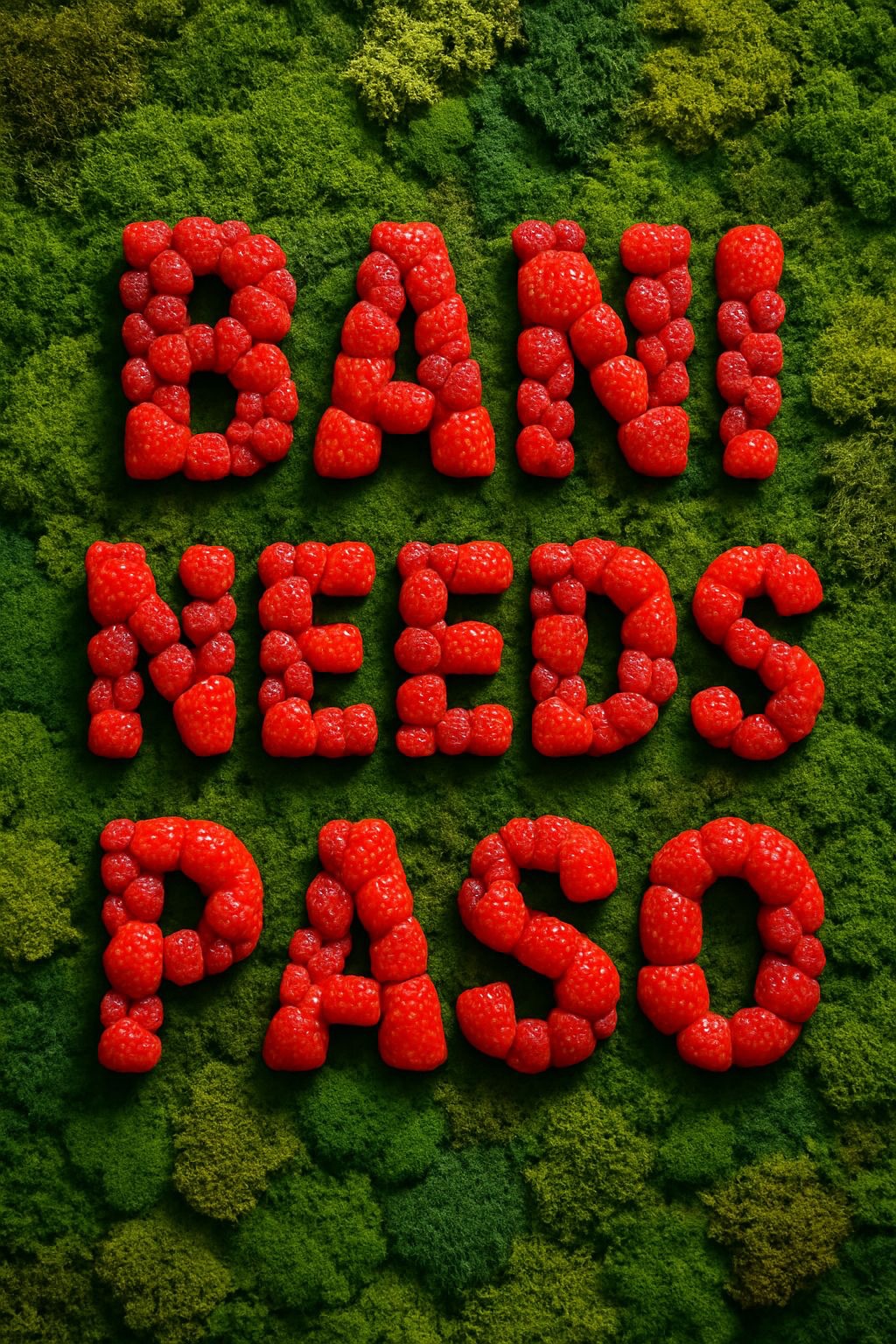

Why BANI is wrong
BANI sounds modern, but it's a smokescreen.
It describes uncertainty, chaos and non-linearity – but it obscures the fact that power, interests and conscious action are at play.
BANI is an abbreviation for what economists call fundamental uncertainty. And that describes the current geopolitical chaos and a nature that has arrived at various tipping points, not so badly. Yes – suddenly something like democracy, unthinkable ten years ago, is under pressure. Yes – many effects are not linear, the butterfly strike and the storm. And because we have suppressed a lot, some decisions seem incomprehensible today.
But – and this is a weighty "but" – these things don't just happen to us. They not only demand humble adaptation and resilience.
Rather, power, planning, monetary interests, greed and a drowsiness on the less powerful side play a major role. The environment is deliberately destroyed. Social relationships are not only diluted by growing inequality, but also actively crushed by increasingly anti-democratic elites (Mr. Thiel sends his regards). And our consumerism reduces the necessary indignation.
This is exactly what BANI conceals – as if development were an "outside-in" law of nature. What we should emphasize much more is an "inside-out" perspective: What do we have to change through vigilant actions? How can we make the plurality of legitimate interests visible? The economy must not be the only free actor, it must necessarily serve the common good. Freedom of citizens would be more appropriate – and even more: the freedom to comply with voluntary obligations. Neoliberalism, with its narrow view of freedom, has not served us well.
On the other hand, there is the question of how we build up countervailing power. Taking power out of the markets was once the idea, but antitrust laws have failed (or have been deliberately watered down). Today, mega-players put entire states "in the bag" without any effort. That is why we need a powerful civil society, trade unions, NGOs and movements. And we must learn to work across stakeholders – with supranetworks for the common cause.
BANI therefore needs PASO – Power, Agency, Solidarity and Organization. And we ourselves need the strength to let ourselves be less sprinkled, to limit Netflix evenings - and to get into more conversation with each other again.
19-09-2025

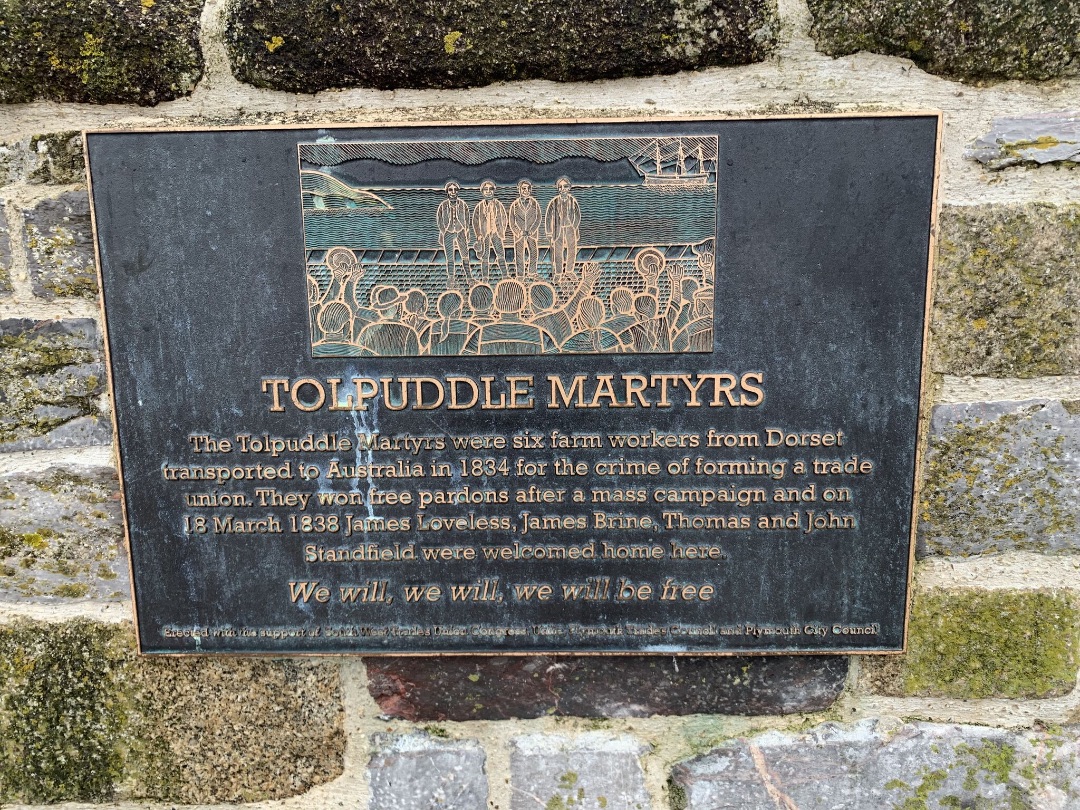

🌧️ Yesterday’s rain left us unexpectedly stranded in Plymouth.
Not the glossy tourist town you might imagine, but a city that wears its struggles openly. Shuttered shops, quiet high streets, signs of economic fragility. And yet: a vibrant university, cultural projects like The Box, the Barbican alive with new energy. Plymouth feels like a mirror of Britain beyond London - resilience mixed with hardship.
It also carries history. On 17 March 1838, four of the Tolpuddle Martyrs - Dorset farm labourers transported to Australia for daring to form a union - landed back in Plymouth after their pardon. Greeted by crowds at the Barbican, their return was celebrated as a victory for solidarity. A plaque still marks the spot.
Back then, “union” meant secrecy. In 1834, when six men resisted wage cuts, they swore oaths in a “friendly society” - a secret association at a time when collective organisation was criminalised. Betrayed and convicted, they were sentenced to seven years’ transportation. Only a wave of petitions and protests forced their return. That courage helped seed the modern trade union movement.
Fast-forward to today. Unions are weakened by decades of anti-union laws and fragmented work. And yet inequality grows, authoritarian leaders flex unchecked, and billionaire “robber barons” consolidate power.
So the question feels urgent: where is the counterpower now?
Perhaps we do still need “secret societies” — not clandestine oath-sworn groups, but new associations built for our century.
💡In Plymouth, ordinary people have pushed back. Campaigners stopped the felling of Armada Way’s trees, forcing the council to rethink. Locals mobilised against far-right groups, saying clearly: this is not who we are.
💡In Totnes, just up the road, community-led projects like the REconomy Centre incubate ethical enterprise and rethink what a local economy can be.
💡Across Britain, social enterprises, cooperatives, grassroots networks, and even digital communities are experimenting with forms of solidarity beyond the old union model.
History shows us: power does not concede on its own. It takes organisation. It takes pressure. It takes counterpower.
The Tolpuddle Martyrs remind us that when the system seemed immovable, ordinary people found ways to whisper “enough” and then to shout it loudly enough to be heard.
We may not need secret oaths today. But we do need new alliances, new solidarities, new associations that can balance power in the 21st century.
✊ The real question is: who builds them, and when do we start?
16-09-2025

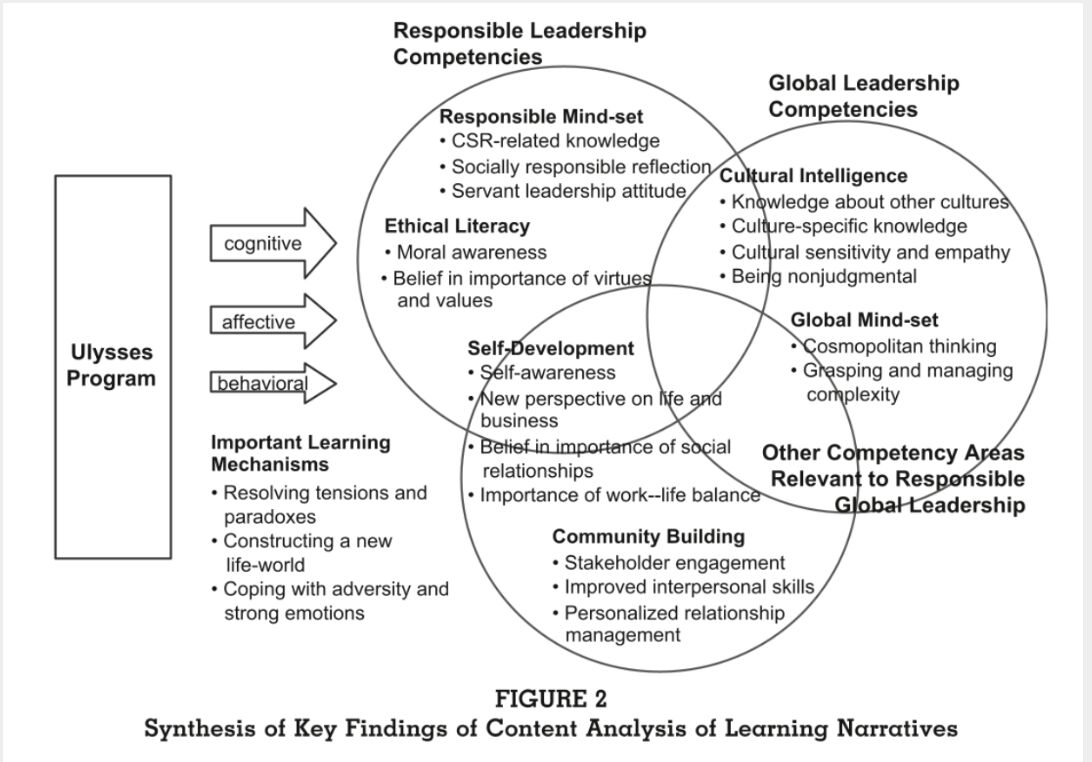

🌍 THE BEAUTY OF SERVICE LEARNING
In an age of geopolitical rupture, cultural fragmentation, and open moral conflict, developing responsible global leaders is becoming more and more of a necessity. Yet most business schools still teach leadership as if the world were stable, predictable, and value-neutral. We tend to train sharp minds, but mostly neglect moral judgment, and we cultivate performance awareness, not ontological awareness; it optimizes within systems but rarely questions their foundations.
That is what makes Project Ulysses such an interesting project. Developed by PwC’s global talent development team, and studied in depth by Nicola Pless, PhD, Thomas Maak, and Günter Stahl, it represents a rare fusion of leadership education and human development. Drawing on Kolb’s experiential learning theory and Mezirow’s transformative learning framework, Ulysses takes participants far beyond the classroom and directly into the moral and cultural complexity of real life.
Over eight weeks, senior PwC professionals live and work in developing countries, embedded in NGOs and community organizations. Their task is not to advise from a distance but to engage, learn, and contribute.
The learning architecture follows Kolb’s full cycle:
✅ Concrete Experience: direct engagement with social and environmental challenges in unfamiliar contexts
✅ Reflective Observation: journaling, dialogue, and storytelling to process cognitive, emotional and moral dissonance
✅ Abstract Conceptualization: connecting lived experience to broader ethical, cultural, and systemic insights
✅ Active Experimentation: translating new awareness into changed behavior—in leadership and life
The program is supported by deep pedagogical scaffolding: conceptual teaching, peer feedback, coaching, mindfulness practices, and team and guided reflection. The result, as per this study ( 👇 ) seem to have led to true personal transformation.
✅ Participants reported moral growth and sharper ethical awareness
✅ They developed cultural humility and a bigger circle of moral concern
✅ They acquired a cognitive capacity that embraces ambiguity and contradiction
✅ Many underwent a re-evaluation of their values, purpose, and identity as leaders.
This is what Mezirow called a “perspective transformation”- a shift in how one understands the world and oneself within it. And it cannot be achieved through cases or simulations alone.
This is the beauty of service learning: it has the potential to educate the whole person. It confronts leaders with the real, the relational, and the uncomfortable and thereby invites them to grow through it.
We clear need much more business school education like this. Not only frameworks, but also formation. Not only technical competence, but also moral courage. Not more "best practice" management, but leadership for an uncertain, interdependent world.
15-09-2025

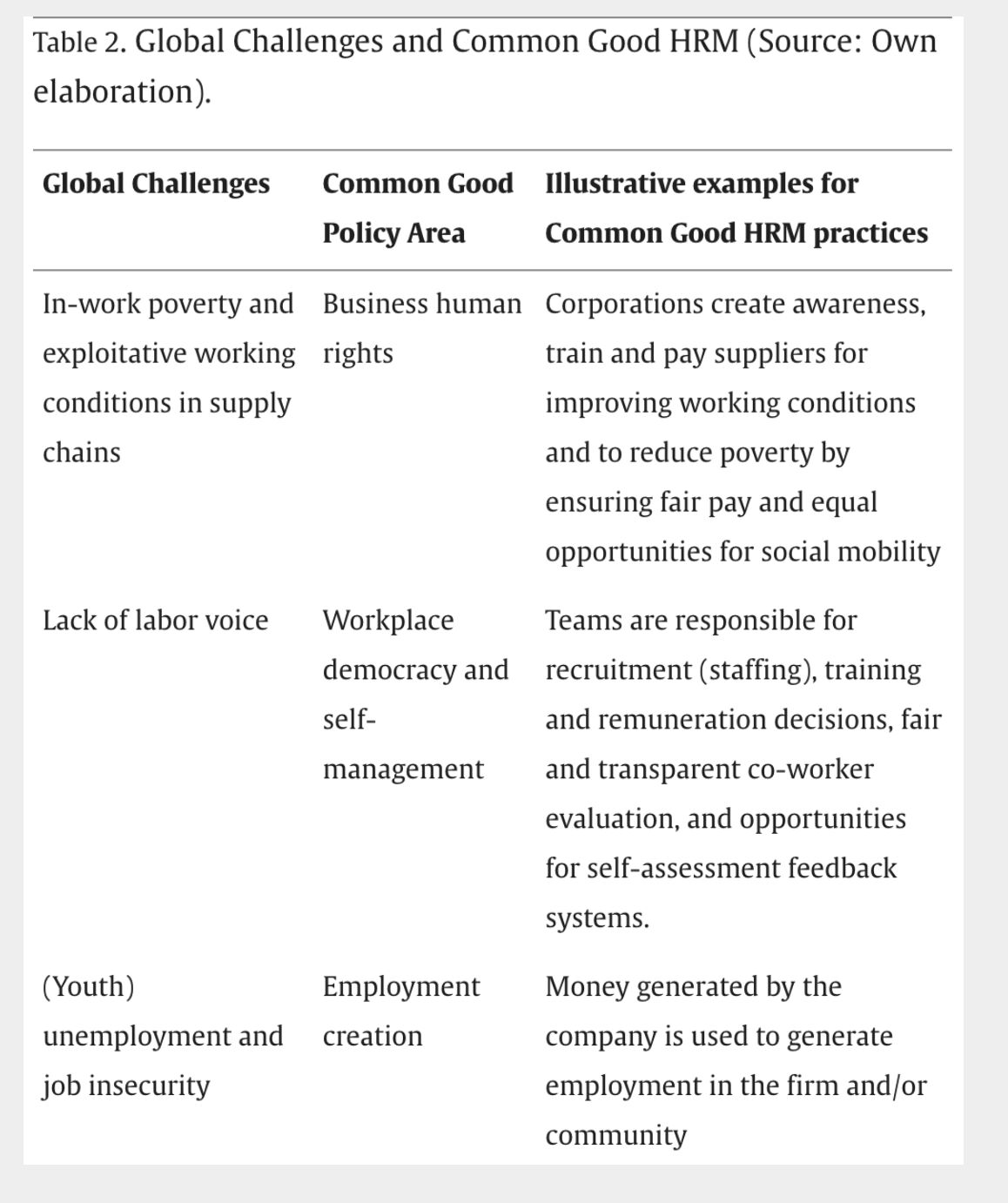

✨ I’ve long appreciated Ina A.s work on sustainable HRM but this paper, co-authored with Michael Muller-Camen and Brian Matthews, and building on the sustainability paradigm of Thomas Dyllick, is the one I’d most love to recommend to all of you who are reimagining the future of work.
📘 In “Common Good HRM: A Paradigm Shift in Sustainable HRM?”, the authors leave the narrow logic of instrumentalism behind. They ask a bold (and in my opinion) the right question:
What if HR didn't just serve the company but truly served society?
Drawing from Dyllick & Muff’s business sustainability typology, they outline four types of Sustainable HRM and introduce a new fourth type: Common Good HRM, which reframes HR as a lever for social, ecological, and human flourishing.
🔍 A Quick Summary of Their Typology:
1️⃣ Type 1: Socially Responsible HRM
→ Focused on diversity, well-being, and safety but mainly to reduce reputational or legal risks. This approach treats social responsibility as an add-on to the core business model, not something that reshapes it.
2️⃣ Type 2: Green HRM
→ Promotes environmentally friendly behavior (e.g., green training, green bonuses), but framed as a business strategy. While it engages ecological issues, it still operates within a logic of cost savings, branding, or compliance.
3️⃣ Type 3: Triple Bottom Line HRM
→ Aims to balance people, planet, and profit. Yet this often leads to unresolved tensions and trade-offs. It opens space for dialogue and innovation, but frequently defaults to economic priorities in moments of conflict.
4️⃣ Type 4: Common Good HRM 🌍
→ A true paradigm shift: HR becomes a vehicle for solving grand societal challenges like inequality, climate change, and precarious work. Here, the purpose of the firm is redefined. And HR creates conditions for human dignity, democracy, and sustainability.
💡 What Common Good HRM Does Differently:
✅ Outside-in perspective: Begins with the needs of society, not just firm strategy.
✅ Human rights in supply chains: HR takes responsibility beyond company walls.
✅ Workplace democracy: Hiring, feedback, and compensation become shared responsibilities.
✅ Job creation as a purpose: Employment is not a cost but a value in itself.
One standout example: Sonnentor, an organic tea and spice company rooted in the Economy for the Common Good movement. Their HR approach includes hiring long-term unemployed and people with disabilities as a matter of principle, not charity. They deliberately avoid full automation, investing instead in manual, meaningful work that sustains local employment and human dignity.
🧭 This is for all of you who truly want to go further—who believe HR can be more than a function. It can be a practice of care, a force for justice, and a cornerstone of a future where humans, nature, and the economy flourish together.
📖 Link to article: https://lnkd.in/dkHAxZHx
14-09-2025

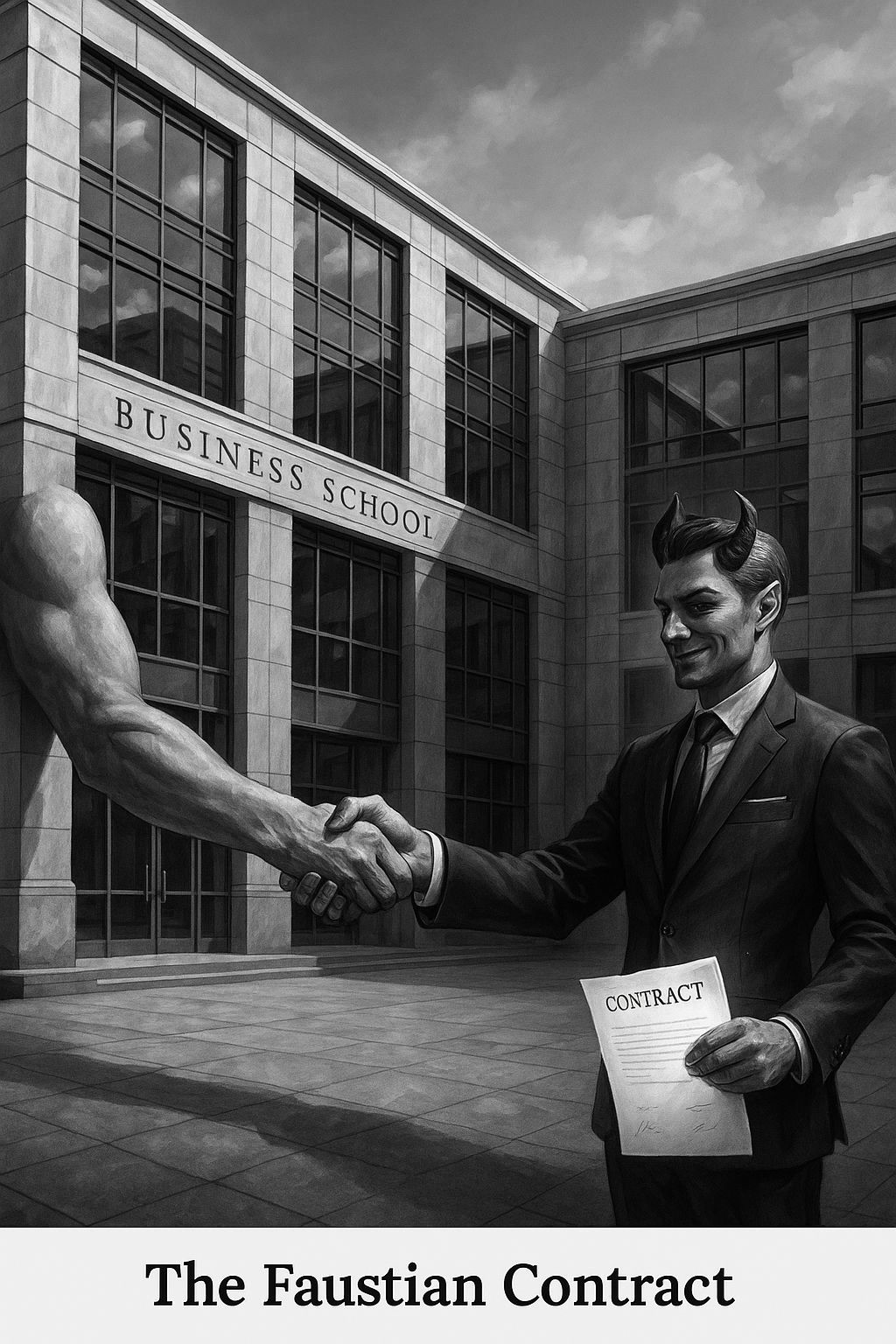

BUSINESS SCHOOLS WITHOUT PURPOSE?
In another post I proposed four principles for a flourishing business school: flourishing, practical wisdom, the common good, and contestation.
So let’s hold today’s schools up to that standard. The verdict? Systematic failure.
✊ Theories that kill flourishing.
Sumantra Ghoshal warned that bad theories don’t just misdescribe reality, they make it worse. Agency theory assumes managers are selfish, so BS designed systems of distrust for practice - and managers behave accordingly. Shareholder primacy tells us greed is rational, and greed becomes normalized. Even psychology isn’t better. As Bal & Dóci show, employability, job crafting, even “well‑being” still recast people as self‑entrepreneurs, forever optimizing for the market. Where flourishing should mean energy turned into excellence in community, BS teach restless self‑optimization in competition.
✊ No practical wisdom.
Gert Biesta calls it “learnification”: education hollowed out into competences, outcomes, metrics. Students collect badges of employability, professors deliver quantifiable units. But phronesis cannot be measured. It requires judgment about what is good in messy, uncertain contexts. MacIntyre shows how managerialism pretends to be neutral: efficiency as the only virtue, conflict erased. Schools produce clever technicians of efficiency yet efficiency without wisdom is directionless, and often destructive.
✊ Contestation erased.
Learning requires conflict and courage. Yet BS mainly elevate consensus. Case studies end with tidy “solutions,” “best practices” are served as gospel, while rankings reward conformity. Bal & Dóci expose the fantasy of harmony: the myth of organizations as win‑win spaces. Laske shows how dialectical thinking - grasping contradictions, perceiving absences, imagining transformation - is never developed. Students graduate fluent in analysis but allergic to debate. A school without contestation is not a school but a factory of conformity.
✊ The common good betrayed.
Business schools were founded to professionalize management for society. That mission is gone. Today success means salaries and corporate ties. Sulmasy helps us see why: schools confuse the aggregative good (private satisfactions like careers) or the supersessive good (“what’s good for business is good for society”) with the real thing - the constitutive common good. This means flourishing in community, cultivating virtues and practices together. By ignoring it, schools betray their reason for being.
The result is stark: a lot of business schools fail every part of their telos!
The cruel paradox: the very institutions that promise opportunity keep us trapped in an iron neoliberal cage, and one that tightens with every student stepping out to enter “the real world.”
👉 What do you think: why do bad theories persist, dialectics gets exchanged with balancing, audit culture prevails and nobody even bothers to discuss about the common good?
11-09-2025



🔨 While faculty everywhere debate AI plagiarism policies, we're missing the bigger question: Are we still preparing leaders for a world that's disappearing?
Here we are, educators supposedly preparing tomorrow's leaders, focused on catching cheaters rather than asking: if AI can write, code, and analyze better than most humans, what the hell are we actually preparing students to do? The real crisis isn't academic integrity - it's that we've swallowed a fundamentally broken story about who builds civilization.
We worship the founder myth. Tech bros launching apps, entrepreneurs "disrupting" industries, engineers coding the future. Meanwhile, people who actually keep society functioning such as nurses, teachers, janitors, caregivers are treated as expendable background characters. This isn't just unfair; it's economically suicidal. When the next pandemic hits and your unicorn startup needs cleaning, good luck paying your "builders" in equity.
Building on Hannah Arendt's work, I see four types of builders facing crises AI will amplify, not solve.
1️⃣ Sustainers do invisible work keeping life going- care, maintenance, healing. We've systematically devalued this work, outsourcing it to whoever accepts poverty wages. AI can optimize schedules but can't change diapers or talk someone off a ledge. Yet instead of finally paying care workers properly, we'll probably use AI efficiency gains to pay them even less.
2️⃣ Makers are having their existential crisis now. As AI eats routine coding and design, we're discovering much of what we celebrated as "building" was pattern matching. Survivors won't code faster than GPT-5; they'll orchestrate AI tools while maintaining judgment about what's worth building ethically. Most business schools aren't teaching this—they're still teaching optimization.
3️⃣ Initiators creating democratic change face shrinking space as public spheres get captured by algorithmic manipulation and billionaire whims. You can't have genuine collective action when platforms controlling discourse are owned by people with toddlers' emotional maturity and nation-states' power.
4️⃣ Meaning-makers get dismissed as luxury goods in our efficiency-obsessed culture. But as AI floods the world with generated content, distinguishing signal from noise becomes the scarcest skill. We desperately need people who can tell true stories—just as we've defunded journalism, arts, and education.
Here's what building the capacity for future work means on a policy level: Tax AI productivity gains to properly pay care workers. Force tech companies to fund retraining instead of pocketing automation savings. Build public digital infrastructure so democracy doesn't depend on Musk's Twitter whims.
Business schools on the other hand need to figure out how to enable the full spectrum of human capability. If not BS will optimize themselves into irrelevance while wondering why nothing works anymore.
09-09-2025



A Non-Disciplining Market
Yesterday I read a post by Hans Steegeman that brought two perspectives together in a way that won’t leave me:
📖 Adam Tooze on the “sequel” to polycrisis (FT, 2025)
📖 Lawrence, Homer-Dixon et al. on the causal mechanisms of polycrisis (2024)
Tooze observes something eerie. Despite Gaza, Ukraine, Trump’s second term, ecological stress markets are calm. Equities float on AI hype. Treasury markets stay liquid. Where many expected turmoil, capitalism hums along. His provocation: maybe this isn’t even “crisis” anymore. Maybe we’ve shifted into a postliberal order, where capitalism no longer disciplines politics or upholds liberal legitimacy. Rather it just keeps functioning, detached and indifferent.
Lawrence et al. insist the opposite: today’s capitalism is the engine of polycrisis. Its globalized, hyper-connected, efficiency-obsessed design produces the stresses - ecological breakdown, inequality, political fragility - that cascade across systems.
Put them together and a sharper picture emerges:
➡️ The capitalism Tooze calls eerily resilient is the same capitalism Lawrence et al. show to be fragility-producing.
➡️ But it is no longer neoliberal. Neoliberalism at least pretended that markets were “epistemologically wise” (Hayek) by discovering information, coordinating efficiently, disciplining states.
➡️ Postliberal capitalism has shed the pretense. It doesn’t need to justify itself as wise or stabilizing. It doesn’t need to guard liberal order. Its only function is to keep giving the wealthy and powerful more wealth and power.
That’s why markets can remain calm even as politics and ecology unravel. Calm is not a sign of stability, it is detachment. For capital, everything is fine. For everyone else, the polycrisis deepens.
And here’s the real danger: if we no longer recognize this as crisis, we lose the chance to act. A crisis (from the Greek krisis) means a turning point it allows for recovery or collapse. If collapse is normalized, catastrophe creeps in unnoticed, efficiently, profitably.
👉 That’s why semantics matter. Call it polycrisis or call it postliberal capitalism, the point is the same: unless we see this as an actionable crisis, we won’t mobilize. And without mobilization, catastrophe becomes the new normal.
06-09-2025

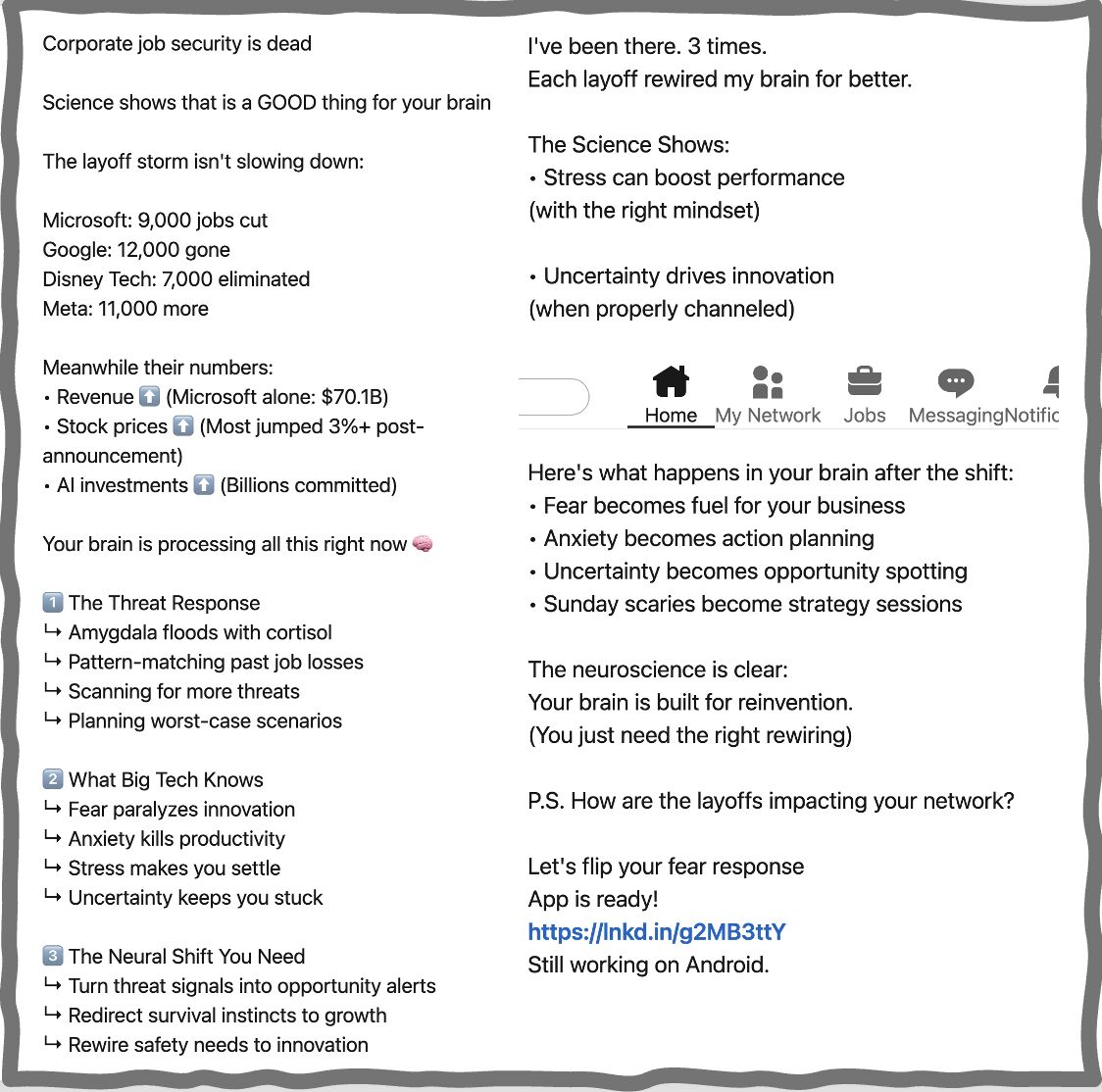

How to Applaud Your Own Precarity (and Call It Growth) — or Why America Is Cheerfully Marching Over the Cliff, Gaga in MAGA
This is 𝗙𝗼𝘂𝗰𝗮𝘂𝗹𝘁’𝘀 neoliberal self-control at its finest.
Tech companies lay off thousands - “9,000 gone,” “12,000 gone,” “11,000 more” - to massage stock prices, while revenues, investments, and share prices soar.
And the employees? They are telling themselves:
👉 “Fear becomes fuel.”
👉 “Uncertainty becomes opportunity.”
👉 “Sunday scaries become strategy sessions.”
This isn’t resilience. It’s the 𝗦𝘁𝗼𝗰𝗸𝗵𝗼𝗹𝗺 𝗦𝘆𝗻𝗱𝗿𝗼𝗺𝗲 of the contemporary workplace: workers applauding their own precarity, mistaking cortisol spikes for creativity hacks.
The irony is brutal: mass layoffs dressed up as “neural rewiring” for innovation, liked 735 times. A living demonstration of how ideology works. How capitalism’s progressive face making people thank the system that just cut them loose.
And perhaps also an explanation of why America seems so ready to march over the cliff right now - not resisting, but cheering, “growth mindset” all the way down.
03-09-2025

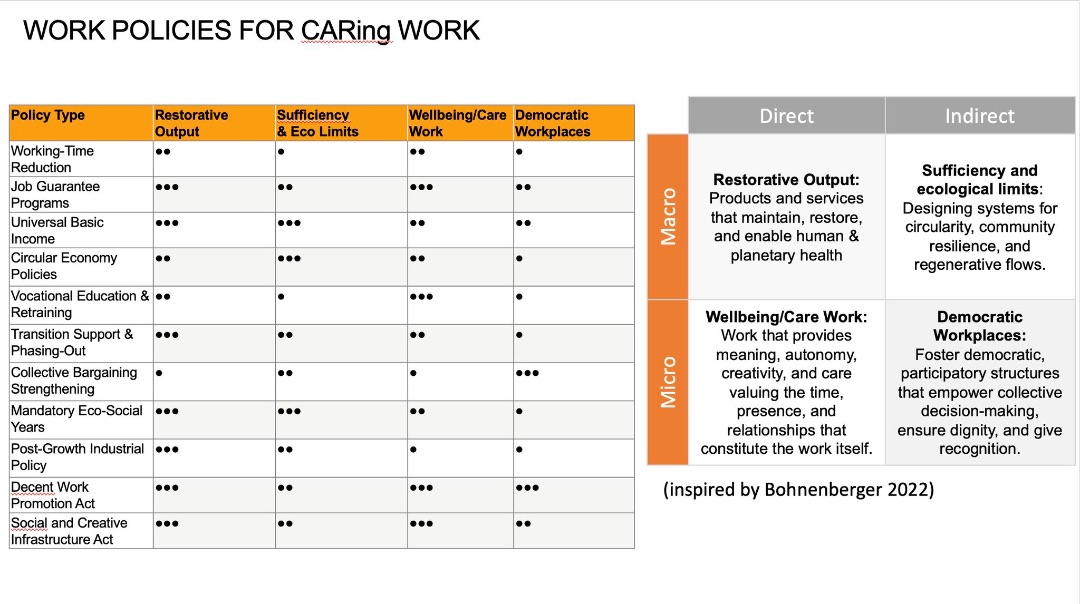

NOT MORE WORK. BETTER WORK.
If you listen to European leaders like Friedrich Merz or business voices echoing Silicon Valley mantras, the message is clear: Europe needs to work harder to stay competitive. Work longer, retire later, push harder. Tech leaders like Zuckerberg echo the same gospel: hustle harder, optimise performance, sacrifice rest for "impact."
This ideology of more is wrapped in responsibility and merit. But in reality, it is a treadmill: it destroys health, corrodes democracy, and drives us deeper into ecological overshoot.
A post-growth perspective asks a different question: not how to increase work, but how to make work good.
To unpack this, imagine work along two axes:
◦ Macro vs. Micro – system-level vs. lived experience.
◦ Direct vs. Indirect – the work itself vs. the conditions shaping it.
That gives us four dimensions of good work:
◆ What we produce (Macro–Direct) Work must heal, not harm. Orienting production towards planetary repair and human need: circular economy regulations, eco-social years contributing to care and climate, industrial policy steering investment from fossil to regenerative sectors.
◆ How much we work (Macro–Indirect) Paid work cannot expand infinitely. We need systemic boundaries. Working-time reduction lowers material throughput and redistributes time fairly. Job guarantees create socially useful employment. Transition supports protect workers as carbon-intensive industries wind down.
◆ How we experience work (Micro–Direct) Good work gives autonomy, meaning, growth and relationships. Universal basic income gives freedom to refuse bullshit jobs and choose care, art, or community. Vocational retraining re-skills workers for green and care sectors. Social and cultural infrastructure creates non-commodified spaces for flourishing.
◆ How work is governed (Micro–Indirect) Workplaces are political spaces. Stronger collective bargaining, a Decent Work Promotion Act, and cooperative ownership models return dignity, recognition, and decision-making power to workers.
→ This isn't about accepting decline: it's recognizing that working less on harmful production while working intentionally on care, repair, and community increases real prosperity and security. And this vision is already emerging across Europe: Belgium's four-day work week trials, cooperatives in northern Italy, care income pilots in Finland, circular economy strategies in Dutch industrial policy.
While we also have the yesterdays' European policy debates: calls to abolish social supports and replace them with harsher systems tied to compulsory labour, proposals to extend working hours by scrapping protections - all marketed as "flexibility," but meaning longer shifts and more stress.
The future of work is not about squeezing more labour out of exhausted societies. It is about reshaping work itself.
01-09-2025

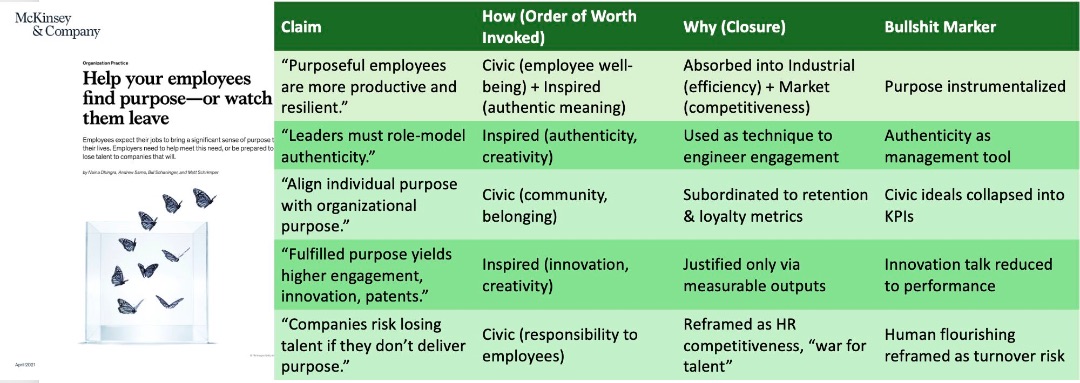

𝗣𝘂𝗿𝗽𝗼𝘀𝗲 𝗕𝘂𝗹𝗹𝘀𝗵𝗶𝘁 𝗕𝗶𝗻𝗴𝗼 🎯
“Lead with purpose.” “Embed meaning.” “Authenticity matters.”
Corporate reports overflow with these promises. But how much is genuine - and how much is purpose-washing?
To see through the fog, it helps to turn to sociologist 𝗟𝘂𝗰 𝗕𝗼𝗹𝘁𝗮𝗻𝘀𝗸𝗶 (with Ève Chiapello, The New Spirit of Capitalism). They argue that modern capitalism constantly absorbs critique. After the 1960s, workers and social movements demanded autonomy, creativity, community, and authenticity. Capitalism didn’t ignore this. No, it repackaged it.
The result was what they call the 𝗰𝗼𝗻𝗻𝗲𝘅𝗶𝗼𝗻𝗶𝘀𝘁 𝘀𝗽𝗶𝗿𝗶𝘁 𝗼𝗳 𝗰𝗮𝗽𝗶𝘁𝗮𝗹𝗶𝘀𝗺: a cultural logic that celebrates networks, flexibility, diversity, projects, and purpose. It wears a progressive face. But these values are rarely treated as ends in themselves. Instead, they are converted into tools for competitiveness, productivity, and growth.
𝗖𝗮𝘀𝗲 𝗶𝗻 𝗽𝗼𝗶𝗻𝘁: 𝗠𝗰𝗞𝗶𝗻𝘀𝗲𝘆 𝗼𝗻 𝗣𝘂𝗿𝗽𝗼𝘀𝗲
McKinsey’s 2021 article Help Your Employees Find Purpose or Watch Them Leave looks convincing: employees want meaning, leaders should provide it. But read closely, and civic/inspired language (“authenticity,” “community,” “meaning”) is consistently folded back into market and industrial logics (retention, efficiency, innovation, competitiveness).
👉 See the analysis table below. It shows not only what is being claimed, but how the rhetoric works: borrowing higher “orders of worth” and closing them back into performance talk.
When we coded the piece, the result was clear: about 75% of its purpose rhetoric turned out to be bullshit - authentic words absorbed back into KPIs.
And this isn’t just an academic exercise. I have my students use our Purpose Bullshit Detector in class. We scan texts, and code the claims, and quickly see how much is genuine purpose talk and how much is instrumental spin. You can spot the pattern in seconds (even when it is not so easy as it is forseeably with McK)
━━━━━━━━━━━━━━━
𝗥𝗲𝗱 𝗳𝗹𝗮𝗴𝘀 🚩
✖ Purpose always justified by performance → productivity, retention, profits
✖ Authenticity as technique → leaders “role-model” sincerity to keep people engaged
✖ Civic ideals reduced to KPIs → well-being, diversity collapsed into metrics
✖ No walk, all talk → purpose lives in posters and speeches, not in daily decisions
✖ Given up in bad weather → the first thing sacrificed in a downturn or crisis
✖ Top-down cascades → purpose handed down as a slogan, not co-created with employees
✖ Purpose ≠ practice → lofty board statements, but incentives tied only to short-term returns
✨ Purpose is too important to be left to bullshitting.
If it remains trapped in the connexionist spirit of neoliberal capitalism, it won’t transform work as it will just re-legitimate the same logic.
✔ Genuine purpose should orient organizations toward human flourishing and the common good, not just serve as the latest HR lever in the war for talent.
Further reading: https://www.academia.edu/download/48743293/s10767-006-9006-920160911-6196-77bbx3.pdf
31-08-2025



𝗥𝗲𝘁𝗵𝗶𝗻𝗸𝗶𝗻𝗴 𝗖𝗮𝗿𝗲: 𝗙𝗿𝗼𝗺 𝗡𝗲𝗰𝗲𝘀𝘀𝗶𝘁𝘆 𝘁𝗼 𝗪𝗼𝗿𝗹𝗱-𝗕𝘂𝗶𝗹𝗱𝗶𝗻𝗴 𝗮𝗻𝗱 𝗔𝗰𝘁𝗶𝗼𝗻
We are all kept alive by invisible hands and yet philosophy has often struggled to value this work properly.
𝗛𝗮𝗻𝗻𝗮𝗵 𝗔𝗿𝗲𝗻𝗱𝘁 called it labor: cycles bound to necessity, leaving nothing lasting. 𝗦𝗶𝗺𝗼𝗻𝗲 𝗱𝗲 𝗕𝗲𝗮𝘂𝘃𝗼𝗶𝗿 showed how women became trapped in domestic immanence while men reached transcendence. 𝗔𝘅𝗲𝗹 𝗛𝗼𝗻𝗻𝗲𝘁𝗵 revealed how care gets erased from recognition. Despite their insights, traditional frameworks place care at the bottom or in lululand.
This dismissal has been profoundly gendered. Reproductive labor was deemed "unproductive" precisely because it was women's work. Beauvoir exposed the trap: women confined to maintaining life while men created meaning.
𝗕𝘂𝘁 𝘄𝗵𝗮𝘁 𝗶𝗳 𝘁𝗵𝗶𝘀 𝗳𝗿𝗮𝗺𝗲𝘄𝗼𝗿𝗸 𝗺𝗶𝘀𝘀𝗲𝘀 𝘀𝗼𝗺𝗲𝘁𝗵𝗶𝗻𝗴 𝗰𝗿𝘂𝗰𝗶𝗮𝗹?
𝗧𝗶𝗺 𝗝𝗮𝗰𝗸𝘀𝗼𝗻 and colleagues propose an alternative. They argue that carING, in their words "the work done by nature, and that done in the commons and in the household", isn't just necessity but world-building. Freed from exploitation, care work sustains conditions that make everything else possible and is intrinsically rewarding. Maintaining and repairing the world creates lasting value for future generations.
𝗝𝗮𝗰𝗸𝘀𝗼𝗻'𝘀 𝘃𝗶𝘀𝗶𝗼𝗻 𝗶𝘀 𝗰𝗼𝗺𝗽𝗲𝗹𝗹𝗶𝗻𝗴—𝗯𝘂𝘁 𝗶𝘀 𝗶𝘁 𝘁𝗿𝘂𝗲?
The skeptic has reason to doubt. Much care or caring for work remains exhausting no matter how we reframe it. The night-shift nurse isn't experiencing transcendence; they're burned out. And elevating care risks romanticizing women's unpaid labor.
Yet Jackson's reframe might matter because our current approach and homo faber is failing. Climate breakdown and care crises expose what happens when we treat maintenance as marginal.
𝗣𝗲𝗿𝗵𝗮𝗽𝘀 𝘁𝗵𝗲 𝗾𝘂𝗲𝘀𝘁𝗶𝗼𝗻 𝗶𝘀𝗻'𝘁 𝘄𝗵𝗲𝘁𝗵𝗲𝗿 𝗝𝗮𝗰𝗸𝘀𝗼𝗻 𝗶𝘀 𝗿𝗶𝗴𝗵𝘁, 𝗯𝘂𝘁 𝘄𝗵𝗲𝘁𝗵𝗲𝗿 𝘄𝗲 𝗰𝗮𝗻 𝗮𝗳𝗳𝗼𝗿𝗱 𝘁𝗼 𝗸𝗲𝗲𝗽 𝗮𝗰𝘁𝗶𝗻𝗴 𝗮𝘀 𝗶𝗳 𝗵𝗲'𝘀 𝘄𝗿𝗼𝗻𝗴.
This connects to Arendt's concept of 𝗮𝗰𝘁𝗶𝗼𝗻: appearing together in public to disclose what we value. When caregivers organize strikes, when activists demand repair over growth, care 𝗯𝗲𝗰𝗼𝗺𝗲𝘀 political.
𝗥𝗲𝘀𝘁𝗿𝘂𝗰𝘁𝘂𝗿𝗶𝗻𝗴 𝗰𝗮𝗿𝗲 means more than changing words:
① Organizations must recognize hidden care such as mentoring, emotional support, maintaining culture as real work.
② Households must share routines equitably, refusing to naturalize women as default carers.
③ Economies must invest in health, education, and repair instead of chasing productivity alone.
④ Politics must make care visible as a foundation of justice.
Whether Jackson's reframing works may depend less on theory and more on what happens when we act as if care work matters in a world facing ecological collapse.
Care isn't only about getting by. It's about what kind of world endures and who has a voice in sustaining it.
30-08-2025

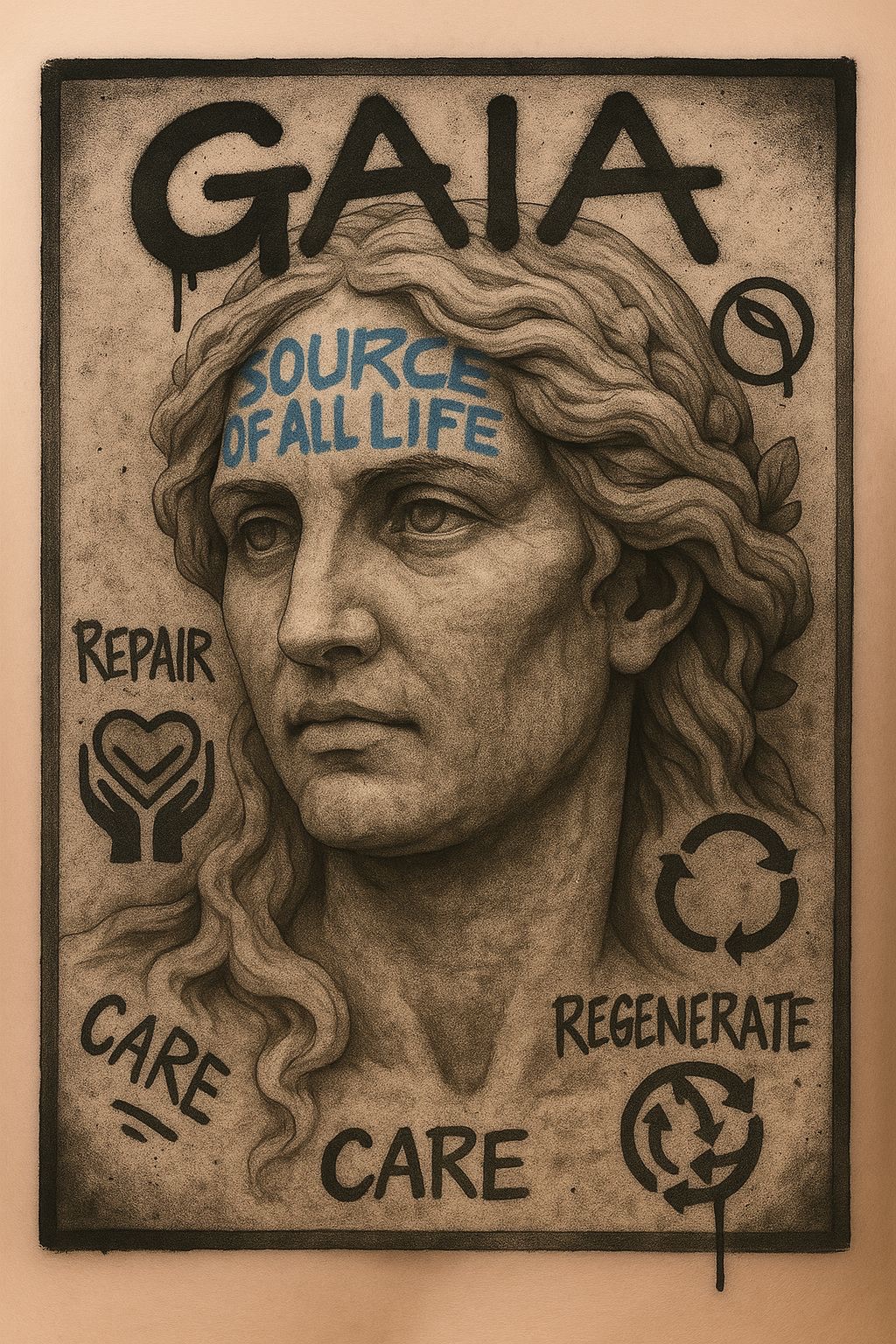

𝗥𝗲𝘁𝗵𝗶𝗻𝗸𝗶𝗻𝗴 𝗖𝗮𝗿𝗲: 𝗙𝗿𝗼𝗺 𝗡𝗲𝗰𝗲𝘀𝘀𝗶𝘁𝘆 𝘁𝗼 𝗪𝗼𝗿𝗹𝗱-𝗕𝘂𝗶𝗹𝗱𝗶𝗻𝗴 𝗮𝗻𝗱 𝗔𝗰𝘁𝗶𝗼𝗻
Care is everywhere. Cooking, cleaning, nursing, repairing, teaching, restoring an ecosystem. Yet in much of philosophy, care has been treated as the lowest rung of human activity: necessary, but repetitive, dirty, even futile.
𝗛𝗮𝗻𝗻𝗮𝗵 𝗔𝗿𝗲𝗻𝗱𝘁 called this labor: bound to necessity, leaving nothing lasting. 𝗦𝗶𝗺𝗼𝗻𝗲 𝗱𝗲 𝗕𝗲𝗮𝘂𝘃𝗼𝗶𝗿 described women trapped in immanence: endless domestic cycles that offered no transcendence or freedom. 𝗔𝘅𝗲𝗹 𝗛𝗼𝗻𝗻𝗲𝘁𝗵 reminds us that such work, though essential, has been systematically excluded from recognition. All three warn against romanticizing care: it is indispensable, but it can also be exhausting and disempowering.
And it has been profoundly gendered. For centuries, reproductive labor was deemed “unproductive,” precisely because it was women’s work. Beauvoir exposed the oppression here: women confined to immanence while men reached transcendence. Honneth adds that the “dirty” work of sustaining life must be more fairly shared across society.
But what if care is not only necessity? 𝗧𝗶𝗺 𝗝𝗮𝗰𝗸𝘀𝗼𝗻 and colleagues ask us to look again. They describe carING - “the work done by nature, and that done in the commons and in the household” - as central to sustaining the world. Freed from coercion and detached from the logic of endless productivity, such work can be transcendent: leaving something behind, upholding conditions for future generations. Repairing and maintaining the world, they argue, is world-building. It bridges to Arendt’s work and Beauvoir’s transcendence.
Jackson also warns us: the traditional homo faber, builder and maker of artifacts, has given us industrial growth and ecological overshoot. Not all world-building is benign. To transform care is also to rethink fabrication within ecological limits.
And then there is Arendt’s provocation: action. To appear in public, to disclose who we are, to act together in plurality. Care itself may not be action. But when caregivers, feminists, or climate activists bring care into public life by demanding recognition, redistributing burdens, redefining its value then care becomes political. It becomes a way of saying: this is the world we want to sustain together - and we should!
𝗥𝗲𝘀𝘁𝗿𝘂𝗰𝘁𝘂𝗿𝗶𝗻𝗴 𝗰𝗮𝗿𝗲 means more than changing our words. It means:
① Organizations must recognize hidden care such as mentoring, emotional support, maintaining culture as real work.
② Households must share tedious routines equitably, refusing to naturalize women as default carers.
③ Economies must invest in health, education, and ecological repair instead of chasing productivity alone.
④ Politics must make care visible - from nurses’ strikes to climate movements - as a foundation of justice.
Care is not only about getting by. It is about what kind of world endures and who has a voice in sustaining it.
28-08-2025



The 𝗰𝗮𝗿𝗲 𝗲𝗰𝗼𝗻𝗼𝗺𝘆 is a vision of an economy where care, rather than restless expansion, is the central organizing principle. In practical terms, it’s a blueprint for organizing production and social life so that the guiding aim is to maintain, restore, and improve human health (in the WHO’s broad sense), not growth for its own sake.
Tim Jackson’s new book offers a different narrative of prosperity: 𝘀𝗹𝗼𝘄 𝘄𝗼𝗿𝗸, caring, crafting, creating, as contribution, and economy as the system that 𝗲𝗻𝗮𝗯𝗹𝗲𝘀 such care. It echoes William Morris, who wrote: “The reward of labour is life.” Work becomes craft again, valuable 𝗶𝗻 𝗶𝘁𝘀𝗲𝗹𝗳. That usually means being less “productive” in the narrow sense, yet more fulfilling and ultimately 𝗵𝗲𝗮𝗹𝘁𝗵-𝗲𝗻𝗮𝗯𝗹𝗶𝗻𝗴 for people and planet.
Even the cover tells the story. “The swish symbolizes the 𝗲𝗻𝘀𝗼̄ in Zen, drawn in a single, mindful brushstroke, symbolizing action with presence, care, and completeness rather than perfection.” That’s the pivot: 𝗯𝗲 𝗺𝗼𝗿𝗲 𝗺𝗶𝗻𝗱𝗳𝘂𝗹, 𝗰𝗮𝗿𝗶𝗻𝗴, 𝗿𝗲𝘀𝘁𝗼𝗿𝗮𝘁𝗶𝘃𝗲 in what we do (and in who we become) instead of squeezing ever more “productivity per hour.” Jackson calls this the productivity trap: the more productive each worker becomes, the fewer workers are “needed,” the more growth is required to reabsorb labour and the more the less health.
As a scholar of work, my question is institutional: 𝗵𝗼𝘄 𝗱𝗼 𝘄𝗲 𝗺𝗮𝗸𝗲 𝘀𝗹𝗼𝘄 𝘄𝗼𝗿𝗸 𝗿𝗲𝗮𝗹? Jackson’s articles point to multi-level reform:
𝗜𝗻 𝗳𝗶𝗿𝗺𝘀
• Re-center 𝗽𝗿𝗼𝗰𝗲𝘀𝘀 𝗾𝘂𝗮𝗹𝗶𝘁𝘆 over throughput; think 𝗶𝗸𝗶𝗴𝗮𝗶 / 𝗸𝗮𝗶𝘇𝗲𝗻 beyond cost-cutting.
• Protect 𝘁𝗶𝗺𝗲 𝗮𝗻𝗱 𝗮𝘁𝘁𝗲𝗻𝘁𝗶𝗼𝗻 where quality depends on them (care, education, repair).
• Measure what matters: 𝗼𝘂𝘁𝗰𝗼𝗺𝗲𝘀 𝗳𝗼𝗿 𝗽𝗲𝗼𝗽𝗹𝗲 and planet.
𝗜𝗻 𝗽𝘂𝗯𝗹𝗶𝗰 𝗽𝗼𝗹𝗶𝗰𝘆
• 𝗪𝗼𝗿𝗸𝗶𝗻𝗴-𝘁𝗶𝗺𝗲 𝗿𝗲𝗱𝘂𝗰𝘁𝗶𝗼𝗻 with guardrails against intensification.
• 𝗪𝗼𝗿𝗸 & 𝘀𝗮𝗳𝗲𝘁𝘆 𝘀𝘁𝗮𝗻𝗱𝗮𝗿𝗱𝘀 that privilege relational quality.
• 𝗦𝗲𝗰𝘂𝗿𝗶𝘁𝘆 𝘁𝗼 𝘀𝗮𝘆 𝗻𝗼 to meaningless or harmful jobs (basic income security plus 𝘂𝗻𝗶𝘃𝗲𝗿𝘀𝗮𝗹 𝗽𝘂𝗯𝗹𝗶𝗰 𝘀𝗲𝗿𝘃𝗶𝗰𝗲𝘀).
• 𝗧𝗮𝘅 𝘀𝗵𝗶𝗳𝘁𝘀 that move burden off labour and onto 𝗿𝗲𝘀𝗼𝘂𝗿𝗰𝗲/𝗲𝗻𝗲𝗿𝗴𝘆 𝘁𝗵𝗿𝗼𝘂𝗴𝗵𝗽𝘂𝘁 and rents; invest proceeds in care, health, housing, transit, restoration.
None of this dominates today’s agenda - quite the contrary. That’s why narrative work matters. We won’t legislate what we can’t 𝗶𝗺𝗮𝗴𝗶𝗻𝗲. Jackson doesn’t just add policies; he reframes the story: 𝗽𝗿𝗼𝘀𝗽𝗲𝗿𝗶𝘁𝘆 = 𝗵𝗲𝗮𝗹𝘁𝗵, 𝗲𝗰𝗼𝗻𝗼𝗺𝘆 = 𝗰𝗮𝗿𝗲, 𝘄𝗼𝗿𝗸 = 𝗮𝘁𝘁𝗲𝗻𝘁𝗶𝘃𝗲 𝗰𝗿𝗮𝗳𝘁 𝗶𝗻 𝘀𝗲𝗿𝘃𝗶𝗰𝗲 𝗼𝗳 𝗹𝗶𝗳𝗲.
If that feels utopian, remember Morris’s line: the reward of labour is life. Perhaps the first step is simply to 𝗽𝗿𝗮𝗰𝘁𝗶𝗰𝗲 𝘁𝗵𝗲 𝗲𝗻𝘀𝗼̄ - to act with presence, care, and completeness - then build institutions that let more of us work that way.
26-08-2025

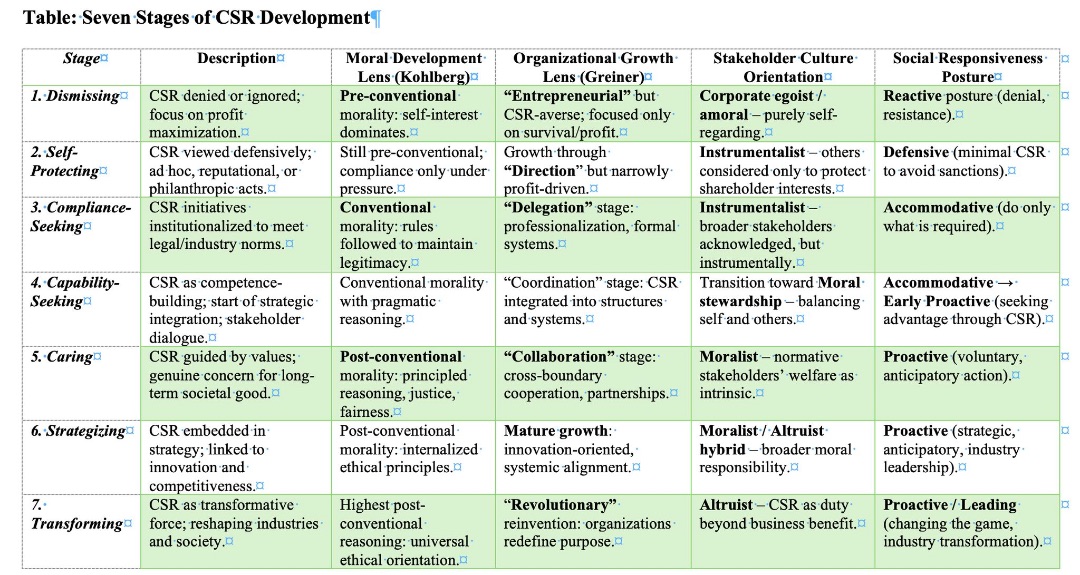

𝗧𝗛𝗘 𝗖𝗦𝗥 𝗜𝗗𝗘𝗡𝗧𝗜𝗧𝗬 𝗖𝗥𝗜𝗦𝗜𝗦
The great CSR deception: organizations perfect the performance of responsibility while avoiding its substance.
Most organizations believe they're evolving toward responsible business. They launch sustainability reports, hire CSR officers, speak passionately about stakeholder value. Yet they remain trapped: 𝗔𝗿𝗲 𝘄𝗲 𝗱𝗼𝗶𝗻𝗴 𝗴𝗼𝗼𝗱 𝗯𝗲𝗰𝗮𝘂𝘀𝗲 𝗶𝘁'𝘀 𝗿𝗶𝗴𝗵𝘁, 𝗼𝗿 𝗯𝗲𝗰𝗮𝘂𝘀𝗲 𝗶𝘁'𝘀 𝗽𝗿𝗼𝗳𝗶𝘁𝗮𝗯𝗹𝗲?
A review by François Maon, Lindgreen & Valérie Swaen mapped seven stages of CSR development: Organizations often evolve through Reluctance → Grasp → Embedment, maturing from profit-maximizers into moral stewards. The framework identifies a trajectory: Dismissing CSR, Self-Protecting through compliance, Capability-Seeking through dialogue, Caring through values, Strategizing for advantage, and finally Transforming society.
But three critical blindspots in their article might expose why organizations remain stuck in sophisticated instrumentalism:
𝗧𝗵𝗲 𝗣𝗼𝗹𝗶𝘁𝗶𝗰𝗮𝗹 𝗕𝗹𝗶𝗻𝗱𝘀𝗽𝗼𝘁: Power struggles shape CSR trajectories. When ExxonMobil funds climate research while blocking climate policy, that's political strategy, not cultural evolution. The model underplays how corporate power shapes the rules.
𝗧𝗵𝗲 𝗜𝗱𝗲𝗼𝗹𝗼𝗴𝗶𝗰𝗮𝗹 𝗧𝗿𝗮𝗽: Culture doesn't evolve naturally. Entrenched ideologies create resistance making transformation contested. Shareholder primacy isn't a phase organizations outgrow: it's a worldview defended by powerful interests.
𝗧𝗵𝗲 𝗜𝗻𝘀𝘁𝗿𝘂𝗺𝗲𝗻𝘁𝗮𝗹 𝗖𝗼𝗹𝗹𝗮𝗽𝘀𝗲: By framing "strategizing" as business advantage, the model could collapse into business case logic. Organizations reach Stage 6 declaring victory: we've made CSR strategic! But strategic for what? The model is not clear enough in distinguishing sophisticated instrumentalism from authentic transformation.
What's missing: organizational identity. The authors build on posture but don't explore how identity evolves from "we are profit-makers" to "we are moral leaders." Without linking CSR to identity transformation, we treat it as practice adoption rather than fundamental redefinition of who we are.
𝘛𝘩𝘪𝘴 𝘪𝘴 𝘸𝘩𝘺 some "𝘢𝘥𝘷𝘢𝘯𝘤𝘦𝘥" 𝘊𝘚𝘙 𝘱𝘳𝘰𝘨𝘳𝘢𝘮𝘴 𝘧𝘦𝘦𝘭 𝘦𝘮𝘱𝘵𝘺. Real transformation requires confronting uncomfortable truths: CSR development isn't just about stages and culture. It's about politics, ideology, structural resistance, and identity revolution. It's choosing between being a business that does good things and being a force for good that operates as a business.
The question haunting every sustainability report: What are you really optimizing for: stakeholder value or shareholder returns in stakeholder language?
𝘞𝘩𝘢𝘵 𝘪𝘥𝘦𝘯𝘵𝘪𝘵𝘺 𝘤𝘳𝘪𝘴𝘪𝘴 𝘪𝘴 𝘺𝘰𝘶𝘳 𝘰𝘳𝘨𝘢𝘯𝘪𝘻𝘢𝘵𝘪𝘰𝘯 𝘢𝘷𝘰𝘪𝘥𝘪𝘯𝘨?
Link to article: https://core.ac.uk/download/pdf/443967594.pdf

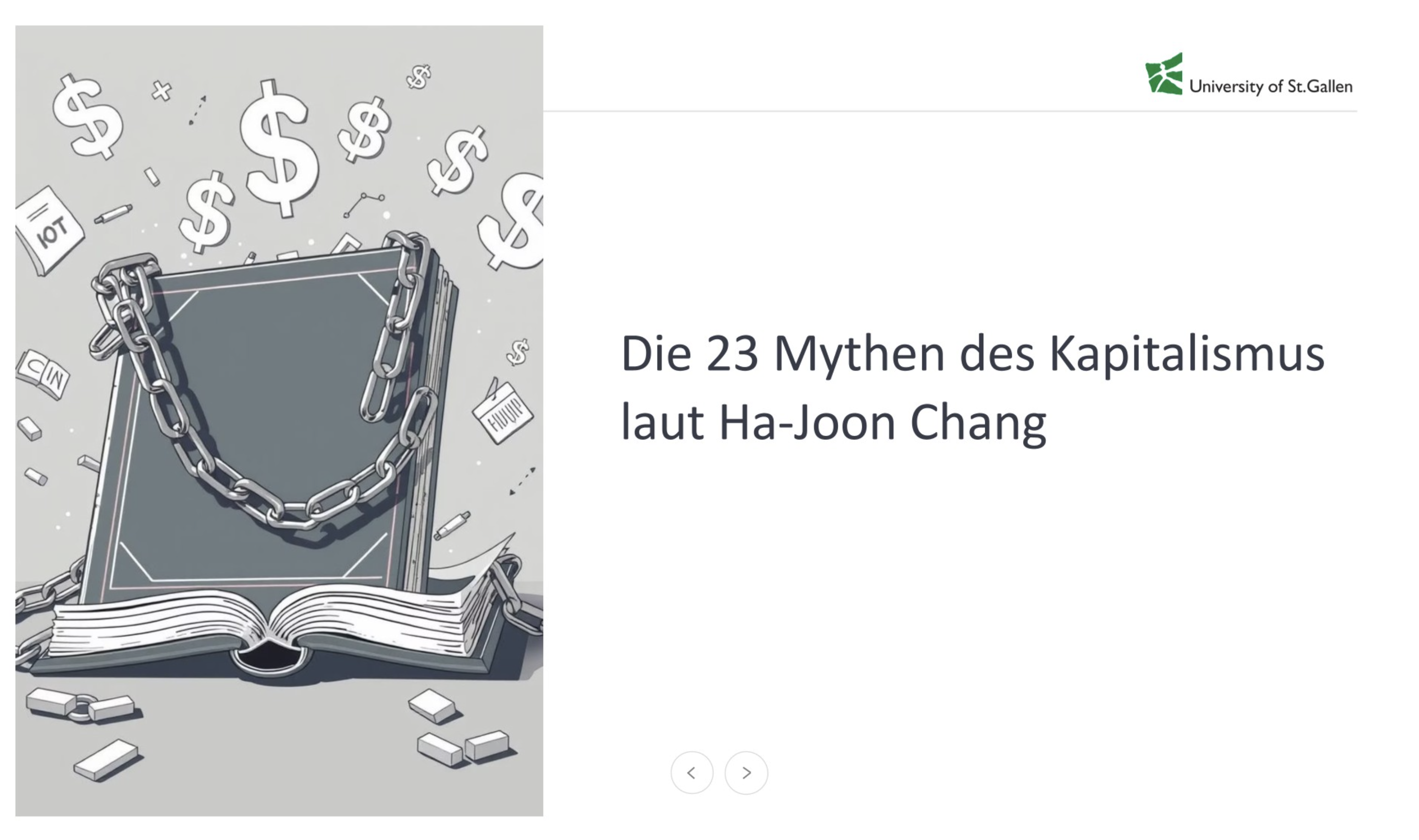

THE MYTH OF THE FREE MARKET
When myths become dogmas, reality chooses its poison.
We live surrounded by economic fairy tales that have become so ubiquitous that they seem invisible. The most powerful: the belief in the "free market". In a wonderful book, Ha-Joon Chong reveals these fairy tales.
Ha-Joon Chang's first myth goes to the heart: "There is such a thing as a free market." Chang shows that every market is defined by rules – usually by the state. "Free" is an illusion.
Think about how we talk about markets as if they were laws of nature. "The market has decided." As if "the market" were a divine entity, rather than a man-made system of institutions, laws, and power structures.
Chang calls it the "rules of the game" – always there, even if we pretend they don't exist. They determine who gets to play, who wins. Patenting medicines is a free market, but minimum wages are distortion? Banks rescue follows market principles, but trade unions are cartels? Capital flows freely, but migrant workers stay out – where is the consistency of this market ideology?
This intellectual dishonesty is not accidental. The myth obscures the fact that every economic order reflects political decisions. It transforms conflicts of interest into laws of nature, political decisions into amoral imperatives.
The consequences of the last three decades: deregulation of the financial markets led to crises, not stability. Privatisation of public services to poorer quality and higher prices. labour market flexibility leads to stagnant wages and growing inequality.
The myth loses its power as soon as we ask: Whose freedom is protected? Whose rights are enforced? Which rules are considered natural, which are intervention?
In a world where economic myths shape politics and business, the most radical act is to ask: What if the story is not true?
What "market-based truth" have you never questioned?
Link to article:
https://www.academia.edu/download/32015659/23_Things_they_dont_tell_you_about_Capitalism.pdf25-08-2025

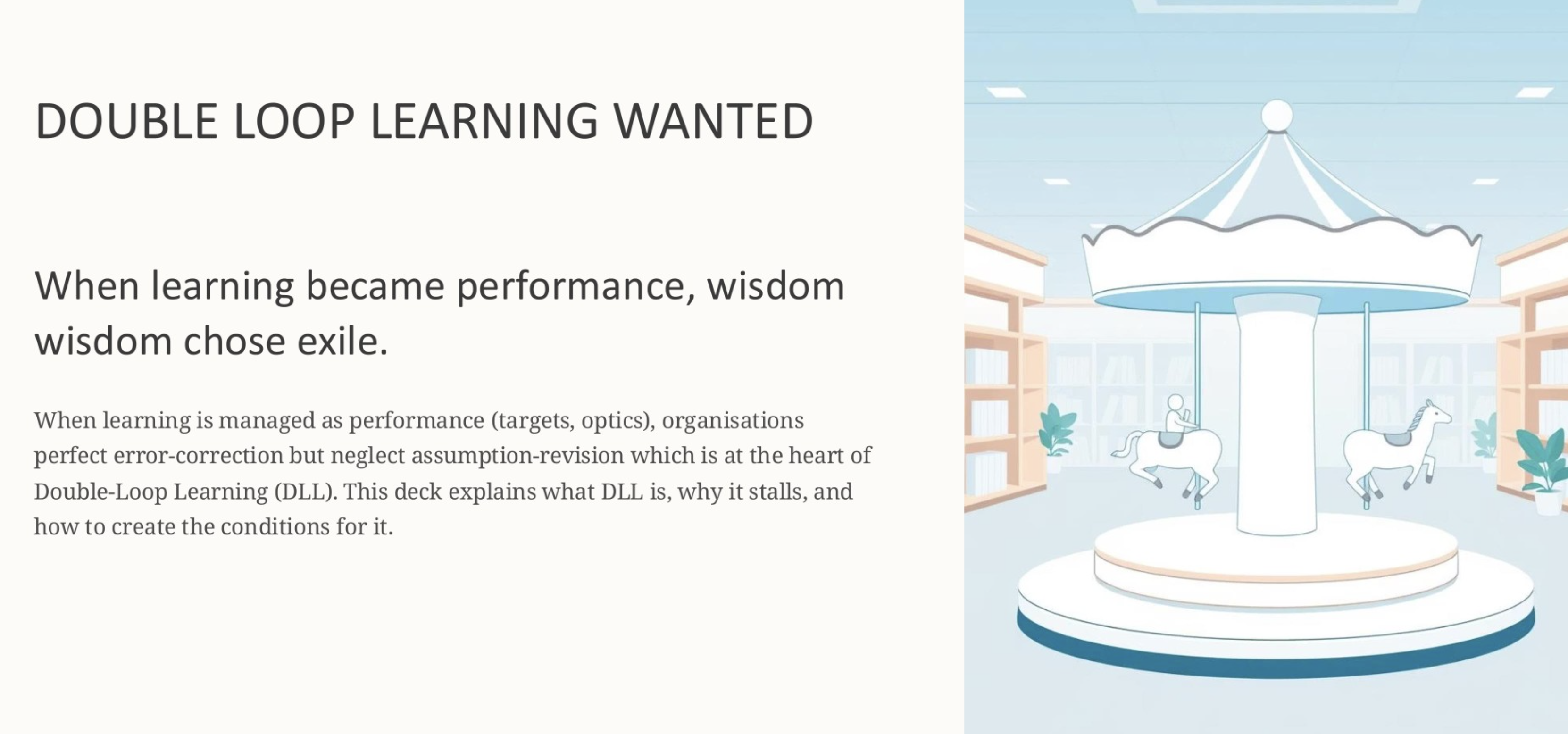

𝗗𝗢𝗨𝗕𝗟𝗘 𝗟𝗢𝗢𝗣 𝗟𝗘𝗔𝗥𝗡𝗜𝗡𝗚 𝗪𝗔𝗡𝗧𝗘𝗗
When learning became performance, critical thinking chose exile.
Most organizations excel at fixing errors yet fail spectacularly at questioning the assumptions behind them. They polish deck chairs while sailing toward crises, congratulating themselves on efficiency as fundamental problems persist.
Single-loop learning asks "How do we fix this?" Double-loop learning dares to ask "Why did we think this was right?"
𝗦𝗶𝗻𝗴𝗹𝗲-𝗹𝗼𝗼𝗽 𝗶𝘀 𝗮 𝗯𝗮𝗻𝗱𝗮𝗴𝗲. 𝗗𝗼𝘂𝗯𝗹𝗲-𝗹𝗼𝗼𝗽 𝗶𝘀 𝘀𝘂𝗿𝗴𝗲𝗿𝘆. One treats symptoms; the other questions governing rules, values, and assumptions that create our reality.
A systematic review of 128 studies reveals: despite decades of research, double-loop learning remains elusive. Leadership coaching, continuous improvement, simulations - all producing incremental fixes while fundamental problems persist.
Why? Organizations remain trapped in Model I reasoning: defensive fortresses where questioning assumptions triggers panic. These systems suppress responsibility, hide mistakes, and strangle transformative inquiry.
We need conditions that make double-loop learning possible. Two mechanisms stand out:
1️⃣ First, "relational leadership" that holds a triadic relation bringing leader and team together in the practice of questioning assumptions where the shared purpose (creating better ways of working toward better goals) provides vital focus for their interaction. This I-Thou-It structure gives way to independent engagement with purpose itself.
2️⃣ Second, affording structures which are disciplined practices that make reflection routine rather than heroic. Like Torbert's liberating disciplines, these create containers for inquiry: regular forums for surfacing assumptions, protocols that protect vulnerable exploration, and rhythms that embed questioning into organizational life.
If we then create a beloved 2x2 - relational leadership (weak/strong) versus organizational design (weak/strong - four worlds emerge:
🧐 𝗡𝗮𝗿𝗰𝗶𝘀𝘀𝗶𝘀𝘁𝗶𝗰 𝗕𝘂𝗿𝗲𝗮𝘂𝗰𝗿𝗮𝗰𝘆 (both weak): Leadership collapsed into ego-protection, organization calcified into defensive routines.
🧐 𝗜𝗻𝘀𝘁𝗿𝘂𝗺𝗲𝗻𝘁𝗮𝗹𝗶𝘇𝗲𝗱 𝗟𝗲𝗮𝗿𝗻𝗶𝗻𝗴 (strong design, weak leadership): Sophisticated processes treating people as objects, producing learning's illusion.
🧐 𝗕𝗹𝗼𝗰𝗸𝗲𝗱 𝗜𝗻𝗾𝘂𝗶𝗿𝘆 (strong leadership, weak design): Reflective leaders trapped within structures that cannot sustain breakthroughs.
😊 𝗟𝗲𝗮𝗿𝗻𝗶𝗻𝗴 𝗖𝗼𝗺𝗺𝘂𝗻𝗶𝘁𝘆 (both strong): Where double-loop learning becomes embedded and transformative.
Can we create leaders and communities that make transformation possible? Or will we perfect single-loop fixes while the world demands double-loop "wisdom" (although spoiler for wisdom one question remains strikingly absent: what is good ;-)).
𝘞𝘩𝘢𝘵 𝘢𝘴𝘴𝘶𝘮𝘱𝘵𝘪𝘰𝘯 𝘪𝘯 𝘺𝘰𝘶𝘳 𝘰𝘳𝘨𝘢𝘯𝘪𝘻𝘢𝘵𝘪𝘰𝘯 𝘪𝘴 𝘦𝘷𝘦𝘳𝘺𝘰𝘯𝘦 𝘢𝘧𝘳𝘢𝘪𝘥 𝘵𝘰 𝘲𝘶𝘦𝘴𝘵𝘪𝘰𝘯?
24-08-2025
22-08-2025



𝗧𝗛𝗘 𝗚𝗥𝗘𝗔𝗧 𝗜𝗠𝗣𝗔𝗖𝗧 𝗜𝗡𝗩𝗘𝗦𝗧𝗜𝗡𝗚 𝗥𝗘𝗦𝗘𝗔𝗥𝗖𝗛 𝗚𝗔𝗣
When academia became a performance, real understanding chose its poison.
We built an entire industry on a beautiful promise: money could save the world. The checks got bigger, the rhetoric got bolder, and everyone felt very good about themselves. There was just one problem: the researchers studying this industry forgot to study the one thing that actually matters.
A jaw-dropping new review has emerged with a conclusion that should terrify every business school professor publishing on ESG: 𝗮𝗰𝗮𝗱𝗲𝗺𝗶𝗮 𝗵𝗮𝘀 𝘀𝘆𝘀𝘁𝗲𝗺𝗮𝘁𝗶𝗰𝗮𝗹𝗹𝘆 𝗮𝘃𝗼𝗶𝗱𝗲𝗱 𝘀𝘁𝘂𝗱𝘆𝗶𝗻𝗴 𝘄𝗵𝗲𝘁𝗵𝗲𝗿 𝗶𝗺𝗽𝗮𝗰𝘁 𝗶𝗻𝘃𝗲𝘀𝘁𝗶𝗻𝗴 𝗮𝗰𝘁𝘂𝗮𝗹𝗹𝘆 𝗰𝗿𝗲𝗮𝘁𝗲𝘀 𝗶𝗺𝗽𝗮𝗰𝘁. How did the entire academic community studying impact investing manage to avoid studying the actual impact?
Because researchers chose the comfortable questions over the essential ones, building careers on studying everything except what matters.
Academics measure what gets them tenure. They avoid what's hard: real-world outcomes, systemic change, lives genuinely improved. The assessment is brutally clear: researchers obsessively focus on "outcome measurement at the individual investee-level" while completely ignoring "the aggregate societal impact" that is supposedly the entire point.
We have hundreds of papers analyzing how impact investors choose their portfolios, and almost zero studying whether those portfolios change the world. Our performative universities reward publications, not problem-solving, creating tenure systems that incentivize studying the process while ignoring the purpose. The researchers call out the academic community directly: despite impact investing's "intention to create measurable social impact," this impact, literally the field's reason for existing, "is not scrutinized in the literature."
𝘈𝘤𝘢𝘥𝘦𝘮𝘪𝘢 𝘤𝘳𝘦𝘢𝘵𝘦𝘥 𝘵𝘩𝘦 𝘱𝘦𝘳𝘧𝘦𝘤𝘵 𝘴𝘺𝘴𝘵𝘦𝘮: 𝘳𝘦𝘴𝘦𝘢𝘳𝘤𝘩𝘦𝘳𝘴 𝘨𝘦𝘵 𝘵𝘦𝘯𝘶𝘳𝘦 𝘴𝘵𝘶𝘥𝘺𝘪𝘯𝘨 𝘩𝘰𝘸 𝘪𝘯𝘷𝘦𝘴𝘵𝘰𝘳𝘴 𝘧𝘦𝘦𝘭 𝘢𝘣𝘰𝘶𝘵 𝘵𝘩𝘦𝘪𝘳 𝘸𝘰𝘳𝘬, 𝘸𝘩𝘪𝘭𝘦 𝘵𝘩𝘦 𝘱𝘦𝘰𝘱𝘭𝘦 𝘵𝘩𝘦𝘴𝘦 𝘪𝘯𝘷𝘦𝘴𝘵𝘮𝘦𝘯𝘵𝘴 𝘢𝘳𝘦 𝘴𝘶𝘱𝘱𝘰𝘴𝘦𝘥 𝘵𝘰 𝘩𝘦𝘭𝘱 𝘳𝘦𝘮𝘢𝘪𝘯 𝘪𝘯𝘷𝘪𝘴𝘪𝘣𝘭𝘦 𝘪𝘯 𝘰𝘶𝘳 𝘳𝘦𝘴𝘦𝘢𝘳𝘤𝘩.
The tools exist to measure real impact, eg. longitudinal studies tracking societal changes, or systems-level analysis across time and communities. We just choose not to use them because measuring what's hard doesn't fit our conference schedules or publication timelines.
This is the age of homo academicus - the unwise scholar - methodologically sophisticated yet practically obsolete. A field that mistook rigor for relevance, and now finds itself writing about everything except the thing it claims to study.
Our proud academic world probably won't change with a breakthrough, but with a LinkedIn post.
How could we know so much about impact investing, and understand so little about impact?
If you care for all the citations go here: https://www.linkedin.com/feed/update/urn:li:activity:7364688063693840385/?commentUrn=urn%3Ali%3Acomment%3A(activity%3A7364688063693840385%2C7364691482991017984)&dashCommentUrn=urn%3Ali%3Afsd_comment%3A(7364691482991017984%2Curn%3Ali%3Aactivity%3A7364688063693840385)&dashReplyUrn=urn%3Ali%3Afsd_comment%3A(7364693039501426688%2Curn%3Ali%3Aactivity%3A7364688063693840385)&replyUrn=urn%3Ali%3Acomment%3A(activity%3A7364688063693840385%2C7364693039501426688)
21-08-2025



𝗜𝗠𝗣𝗔𝗖𝗧 𝗜𝗡𝗩𝗘𝗦𝗧𝗜𝗡𝗚 𝗜𝗦 𝗚𝗢𝗢𝗗 𝗙𝗢𝗥?
...𝘄𝗲 𝘄𝗼𝘂𝗹𝗱 𝗵𝗼𝗽𝗲 𝗳𝗼𝗿 𝗶𝗺𝗽𝗮𝗰𝘁; 𝗮𝗻𝗱 𝘆𝗲𝘁 𝘄𝗲 𝗱𝗼 𝗻𝗼𝘁 𝗸𝗻𝗼𝘄. Deike Schlütter et al. ( 👇 ) conduct a 𝗷𝗮𝘄-𝗱𝗿𝗼𝗽𝗽𝗶𝗻𝗴 qualitative meta-analysis of the literature and come to the conclusion: research on impact investing is completely 𝗺𝗶𝘀𝘀𝗶𝗻𝗴 𝘁𝗵𝗲 𝗶𝗺𝗽𝗮𝗰𝘁.
Now this is 𝗚𝗥𝗔𝗡𝗗 𝗙𝗔𝗜𝗟𝗨𝗥𝗘 rather than contributing to grand challenges. But how is this possible? The authors provide one very telling explanation: because we work with 𝗺𝗶𝗰𝗸𝗲𝘆-𝗺𝗼𝘂𝘀𝗲 𝘁𝗵𝗲𝗼𝗿𝘆 (not their original wording ;-)). We avoid the hard things: measuring impact, looking at impact across levels and across time, diving deeper into generative mechanisms. So we pick the data that is convenient, look at the complex issue reductively by focusing on investors, and often miss the chain of effects 𝘄𝗵𝗲𝗿𝗲 𝗳𝗶𝗻𝗮𝗻𝗰𝗶𝗮𝗹 𝗽𝗿𝗮𝗰𝘁𝗶𝗰𝗲𝘀 𝗺𝗶𝗴𝗵𝘁 𝗲𝘃𝗲𝗻 𝘀𝘂𝗯𝘀𝘁𝗶𝘁𝘂𝘁𝗲 𝗼𝗿 𝗰𝗿𝗼𝘄𝗱 𝗼𝘂𝘁 𝗴𝗼𝘃𝗲𝗿𝗻𝗺𝗲𝗻𝘁-𝗹𝗲𝗱 𝗶𝗻𝗻𝗼𝘃𝗮𝘁𝗶𝗼𝗻𝘀.
And they also nicely show that we would have the means to go much deeper: longitudinal ethnographies to understand unfolding processes, or life cycle analysis to assess impacts across value chains and system boundaries. And much more...
So probably the issue lies deeper. We sit in 𝗽𝗲𝗿𝗳𝗼𝗿𝗺𝗮𝘁𝗶𝘃𝗲 𝘂𝗻𝗶𝘃𝗲𝗿𝘀𝗶𝘁𝗶𝗲𝘀 and need to make sure that we brush up our publication record - no time to go into depth and length. And we also learn that 𝗶𝗺𝗽𝗮𝗰𝘁, whilst a glossy goal of all universities right now, is mainly translated into 𝗻𝗼𝗻-𝗿𝗲𝗮𝗹-𝘄𝗼𝗿𝗹𝗱 𝗶𝗺𝗽𝗮𝗰𝘁: publications, rankings, teaching evaluations. So why should we start to think about it in more depth in the real world when 𝗶𝗺𝗽𝗮𝗰𝘁 𝘁𝗵𝗲𝗮𝘁𝗿𝗲 seems to suffice?
In addition, and as evident also in the CSR literature - where another meta-analysis showed that we are great at measuring the effect of CSR on profit but hardly anybody looked at its effect on social value - we are still trained that 𝗽𝗲𝗿𝗳𝗼𝗿𝗺𝗮𝗻𝗰𝗲 matters. And performance is almost always read as 𝘂𝘁𝗶𝗹𝗶𝘁𝘆. So it is seductive to look at the efficiency of impact investing, the appropriateness, the fitting to the needs of the investee and the investor. After all, 𝘁𝗵𝗮𝘁 𝗶𝘀 𝘁𝗵𝗲 𝗻𝗲𝗼𝗹𝗶𝗯𝗲𝗿𝗮𝗹 𝗹𝗼𝗴𝗶𝗰 𝗮𝘁 𝘄𝗼𝗿𝗸: 𝗲𝗳𝗳𝗶𝗰𝗶𝗲𝗻𝗰𝘆 𝗮𝗻𝗱 𝘂𝘁𝗶𝗹𝗶𝘁𝘆 𝗮𝗿𝗲 𝗰𝗲𝗹𝗲𝗯𝗿𝗮𝘁𝗲𝗱, 𝘁𝗵𝗲 𝗾𝘂𝗲𝘀𝘁𝗶𝗼𝗻 𝗼𝗳 𝘁𝗵𝗲 𝗴𝗼𝗼𝗱 𝗶𝘀 𝘀𝗶𝗱𝗲𝗹𝗶𝗻𝗲𝗱.
𝗜𝗺𝗽𝗮𝗰𝘁 𝗶𝗻𝘃𝗲𝘀𝘁𝗶𝗻𝗴 𝗿𝗲𝘀𝗲𝗮𝗿𝗰𝗵 𝗶𝘀 𝗴𝗼𝗼𝗱 𝗳𝗼𝗿… investors (who look responsible), academics (who stay employable), and universities (who tick their glossy “impact” boxes). But maybe not, it seems, for 𝘀𝗼𝗰𝗶𝗲𝘁𝘆.
Until we dare to measure impact itself - across systems, across levels, across time - we risk becoming part of the very problem we claim to solve.
👉 What would it take for us to put the good back at the centre of (not only) impact investing research?
20-08-2025

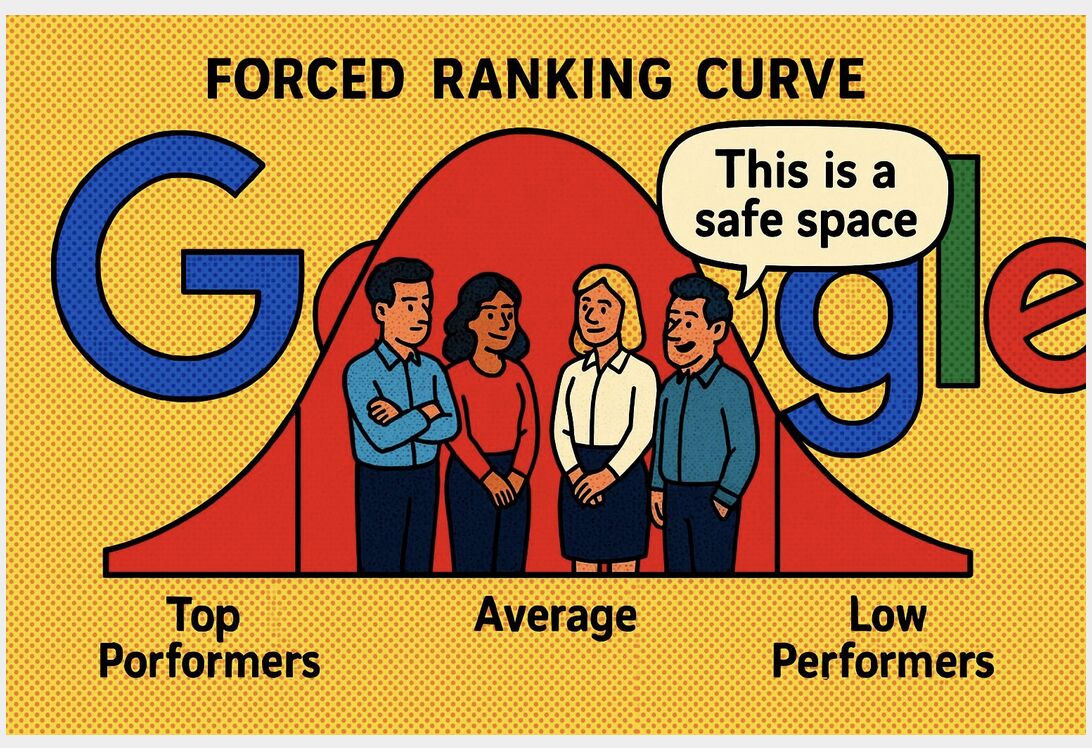

When even "psychological safety" becomes an obligation to perform... THE SELF-REINFORCING SPIRAL OF NEOLIBERAL WORK
This is the silent paradox at the heart of modern work. In their article "Neoliberal Ideology in Work and Organizational Psychology", which is well worth reading, Bal & Dóci (link below👇) show how neoliberal ideology permeates our organizations (and also research). Using political, social, and fantasy logics, they analyze how instrumentality, individualism, and competition have become unquestioned truths. Even scientific findings often serve to increase efficiency – not to search for meaning.
But the real perfidious thing is that neoliberalism does not work through coercion, but through fantasies. Namely: to be free. Self-determined. Successful if you only give enough. Those who fail were simply not committed enough in this logic (see also the language of the CDU at the moment). And it is precisely because this feels liberating that it is so effective – and so difficult to question.
This is where a self-reinforcing negative spiral begins: Organizations are based on the assumption that people are rational, self-reliant, and competitive. They create structures that generate exactly this beh * avior: self-optimization, peer competition, inner performance control. And it is precisely this behavior that seems to confirm the original theory.
The ideology thus proves itself. When the system fails, it does not look for the fault in itself – but in the individual. The answer: resilience training, coaching, feedback loops:
🦸 Exhaustion is reinterpreted – as an "opportunity for growth".
🦸 Criticism becomes performance.
🦸 Resistance to service. And so psychological safety also becomes a product line.
Google case study:
The company is considered a pioneer in "psychological safety" – at least since the internally acclaimed Project Aristotle, which identified psychological safety as a central factor for high-performance teams. A company that presents itself as a future laboratory for good work.
And at the same time?
At the end of 2022, Google introduced a new performance system that requires up to 6% of employees to be classified as "low performers" – regardless of actual team performance. (CNBC, 12/22/2022) In addition: regular, quiet layoffs. While this is not a traditional stacked-ranking it is still results-oriented. Calculated.
The episode?
You can speak openly – but please with output.
You can feel safe – as long as you deliver.
You can live purpose – as long as you don't slow down.
And you can look forward to your own self-optimization including a "warm feeling".
But that's already the spiral. It does not drag itself out because it works – but because it so elegantly translates its own failures into self-responsibility.
The phase-out begins there, where we stop treating the individual – and begin to demystify systems.
Link to article: https://doi.org/10.1080/1359432X.2018.1449108
19-08-2025

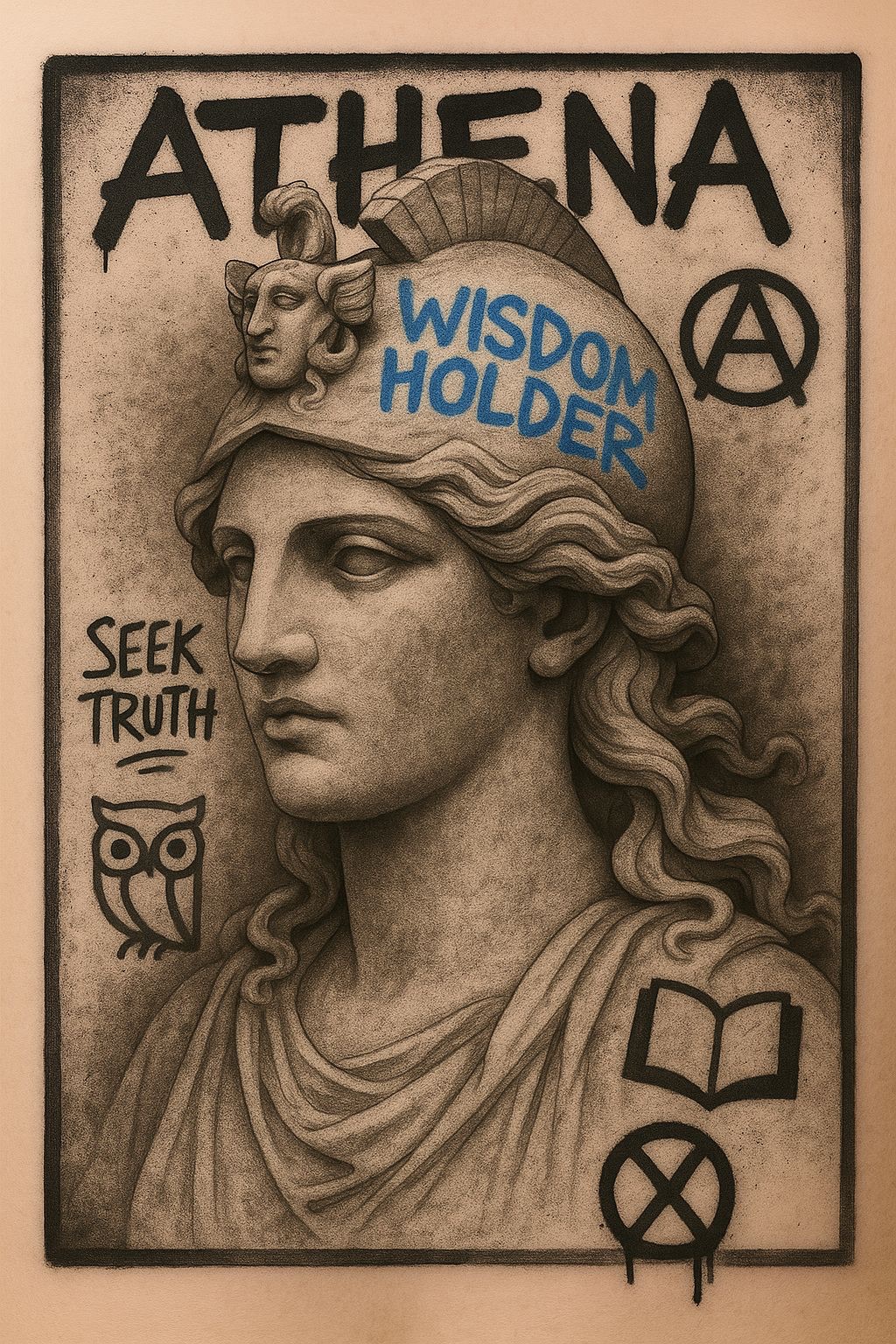

GOOD EDUCATORS
As I wrote the other day, the ideal business school must enable 𝐟𝐥𝐨𝐮𝐫𝐢𝐬𝐡𝐢𝐧𝐠, not just utility or well-being. Flourishing means the full realization of human and social potential through 𝐞𝐱𝐜𝐞𝐥𝐥𝐞𝐧𝐜𝐞 and 𝐯𝐢𝐫𝐭𝐮𝐞 in community. It is eudaimonic rather than hedonic: not only feeling well, but becoming good. Where well-being and utility would reduce education to what Biesta termed "learnification" based on "revealed" preferences, flourishing asks more. It asks us to form humans and future leaders who aspire not only to comfort but to excellence, not only to consumption but to contribution.
This what makes teaching demanding, this is why 𝐭𝐞𝐚𝐜𝐡𝐢𝐧𝐠 𝐢𝐬 𝐚 𝐩𝐫𝐚𝐜𝐭𝐢𝐜𝐞. A practice is not just a set of skills, but a profession that must be 𝐥𝐞𝐚𝐫𝐧𝐞𝐝, struggled for, and pursued with standards of excellence in community. Teaching is not a sideline to “real business”; it has its own goods, its own virtues, its own contributions to the university and to society.
Biesta shows that good education pursues three aims at once: 𝐪𝐮𝐚𝐥𝐢𝐟𝐢𝐜𝐚𝐭𝐢𝐨𝐧 (developing knowledge and skills), 𝐬𝐨𝐜𝐢𝐚𝐥𝐢𝐬𝐚𝐭𝐢𝐨𝐧 (initiating students into traditions and communities), and 𝐬𝐮𝐛𝐣𝐞𝐜𝐭𝐢𝐟𝐢𝐜𝐚𝐭𝐢𝐨𝐧 (helping them become free and responsible agents). Stolz, drawing on MacIntyre, adds that this requires the integration of four forms of knowledge:
🔶 𝐓𝐞𝐜𝐡𝐧𝐢𝐜𝐚𝐥 – knowing the methods, tools, and techniques that make action possible.
🔶 𝐏𝐞𝐫𝐜𝐞𝐩𝐭𝐮𝐚𝐥 – developing the sensitivity to read contexts, people, and situations wisely.
🔶 𝐏𝐡𝐢𝐥𝐨𝐬𝐨𝐩𝐡𝐢𝐜𝐚𝐥 – clarifying purposes and principles, asking not just how but why.
🔶 𝐑𝐞𝐥𝐚𝐭𝐢𝐨𝐧𝐚𝐥 – forming connections of trust and mutual respect that make collective learning and action possible.
Put together, these insights show that "ideal" professors should be professionals in their own right, whose vocation is to bring these aims and knowledges together in the formation of flourishing human beings. That is why their education takes 𝐭𝐢𝐦𝐞, why it requires 𝐟𝐨𝐫𝐦𝐚𝐭𝐢𝐨𝐧 as much as information, and why its standards cannot be reduced to metrics or market demand.
From this standpoint two things stand out: (1) we need to make sure that teaching becomes more appreciated and (2) 𝐜𝐨-𝐭𝐞𝐚𝐜𝐡𝐢𝐧𝐠 𝐚𝐧𝐝 𝐞𝐧𝐠𝐚𝐠𝐞𝐝 𝐬𝐜𝐡𝐨𝐥𝐚𝐫𝐬𝐡𝐢𝐩 with leaders from practice becomes a central dialogue, not substitution. Executives bring experience of the world as it is; professors could bring wisdom to discern what it might yet become through education. Together, they can cultivate graduates who not only succeed in business, but who 𝐟𝐥𝐨𝐮𝐫𝐢𝐬𝐡 and help institutions, communities, and societies to flourish as well.
👉 Do you agree that 𝐭𝐞𝐚𝐜𝐡𝐢𝐧𝐠 should be seen as a profession and practice in its own right? MacIntyre was sceptical about this but even more sceptical about managers.
18-08-2025

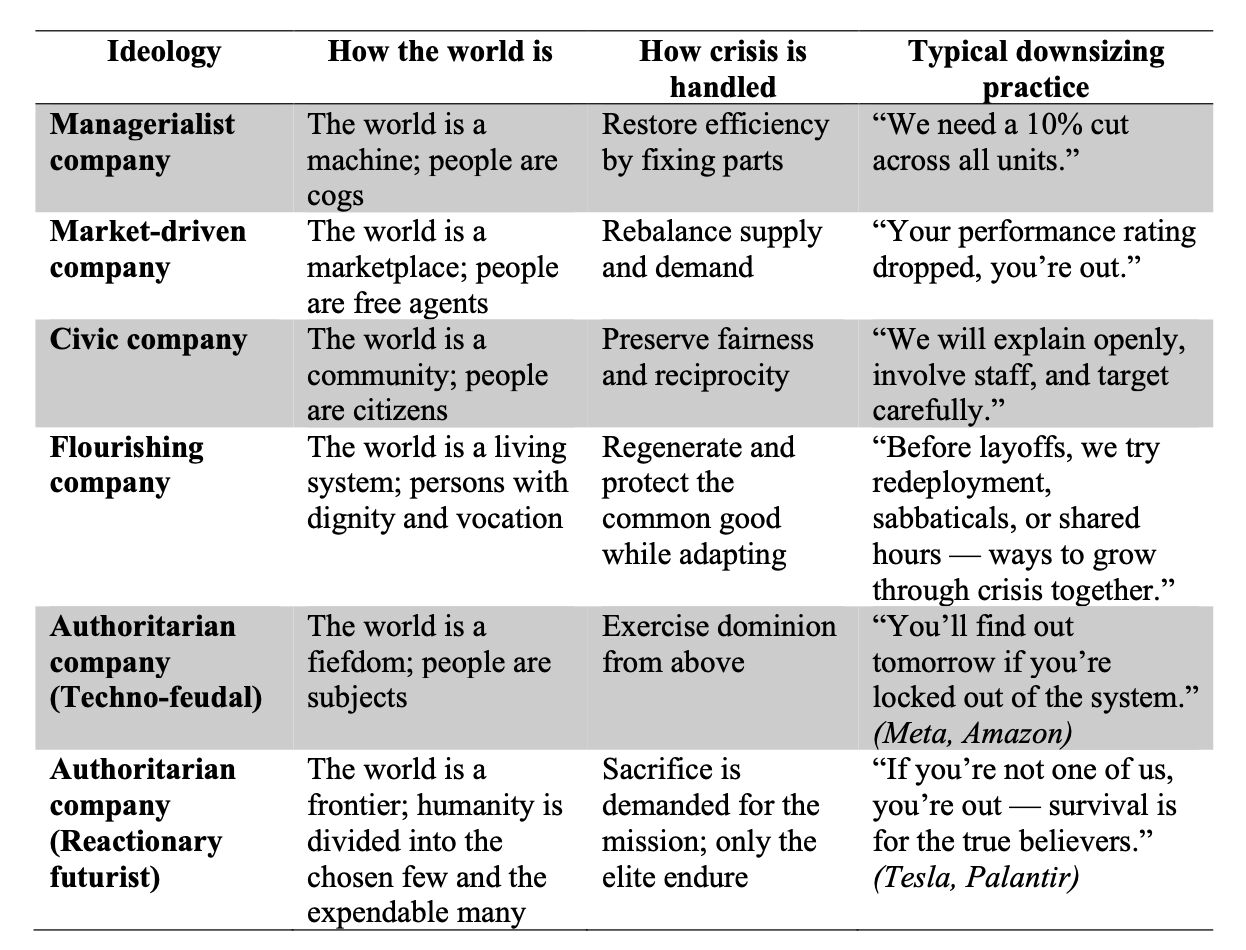

𝗣𝗿𝗼𝗳𝗶𝘁 𝗪𝗮𝗿𝗻𝗶𝗻𝗴𝘀 𝗪𝗶𝘁𝗵𝗼𝘂𝘁 𝗮 𝗦𝗼𝘂𝗹: 𝗪𝗵𝘆 𝗖𝗼𝗺𝗽𝗮𝗻𝗶𝗲𝘀 𝗗𝗼𝗻’𝘁 𝗖𝗵𝗮𝗻𝗴𝗲
After my last post on Meta’s layoffs, I was asked a pressing question: if research has shown for decades how to downsize responsibly, 𝘸𝘩𝘺 𝘥𝘰𝘯’𝘵 𝘤𝘰𝘮𝘱𝘢𝘯𝘪𝘦𝘴 𝘧𝘰𝘭𝘭𝘰𝘸?
The answer is not a lack of knowledge. It is 𝗶𝗱𝗲𝗼𝗹𝗼𝗴𝘆.
Ideology as a worldview that silently orients action: how the world 𝗶𝘀, how it 𝘴𝗵𝗼𝘂𝗹𝗱 𝗯𝗲, what counts as 𝘃𝗮𝗹𝘂𝗮𝗯𝗹𝗲, and what kinds of action are 𝗹𝗲𝗴𝗶𝘁𝗶𝗺𝗮𝘁𝗲. Ideology is sticky because it works not only through arguments but also through powerful affects and fantasies. It does not merely tell us what to do; it makes us 𝘸𝘢𝘯𝘵 to do it, even when evidence points elsewhere.
Organizations are ideological actors. They do not simply apply best practices from management textbooks. They embody a vision of what people are - cogs, agents, citizens, or serfs - and of what the company itself is - machine, marketplace, community, or sovereign. These deep beliefs shape how they respond when crisis hits.
This becomes visible in moments of profit warnings or downturns. Even with decades of research on “decent downsizing,” the path companies choose depends less on technical insight and more on ideological commitments.
A 𝗺𝗮𝗻𝗮𝗴𝗲𝗿𝗶𝗮𝗹𝗶𝘀𝘁 firm sees the world as a machine to be repaired. Downsizing is executed like a mechanic adjusting broken parts. A 𝗺𝗮𝗿𝗸𝗲𝘁-𝗱𝗿𝗶𝘃𝗲𝗻 firm sees the world as a marketplace of individuals: layoffs become transactions, abrupt and performance-based. By contrast, a 𝗰𝗶𝘃𝗶𝗰 company imagines itself as a community of citizens and aims for fairness, transparency, and reciprocity. A 𝗳𝗹𝗼𝘂𝗿𝗶𝘀𝗵𝗶𝗻𝗴 company sees itself embedded and generative, a steward for unlocking the good, enabled by persons with dignity and vocation, seeking to regenerate and protect the common good while adapting.
And then there are the 𝗮𝘂𝘁𝗵𝗼𝗿𝗶𝘁𝗮𝗿𝗶𝗮𝗻 firms of our age. Their worldviews are darker, but no less coherent. The 𝘁𝗲𝗰𝗵𝗻𝗼-𝗳𝗲𝘂𝗱𝗮𝗹 corporation (Meta, Amazon) imagines itself as a sovereign lord. Layoffs are decrees to be handed down: opaque, unilateral, framed as dominion over subjects. The 𝗿𝗲𝗮𝗰𝘁𝗶𝗼𝗻𝗮𝗿𝘆 𝗳𝘂𝘁𝘂𝗿𝗶𝘀𝘁 corporation (Tesla, Palantir) sees itself as an ark on a frontier. Layoffs here become acts of sacrifice: dramatic, abrupt, justified as necessary for the mission of saving humanity.
So we can have research till the cows come home and show that "fairness pays" or similar - ideology will often get the better end when decisions are taken.
That is why the question for leaders is not simply 𝗵𝗼𝘄 to downsize in a downturn. It is: 𝘄𝗵𝗮𝘁 𝗶𝗱𝗲𝗼𝗹𝗼𝗴𝘆 𝗶𝘀 𝘀𝗵𝗮𝗽𝗶𝗻𝗴 𝗼𝘂𝗿 𝗰𝗵𝗼𝗶𝗰𝗲𝘀?
📚 Reference: Durand, C. (2024). How silicon valley unleashed techno-feudalism: the making of the digital economy. Verso Books. And Taşkale, A. R. (2025). The affective politics of reactionary futurism in Silicon Valley. Critical Studies on Security, 1-5.
16-08-2025

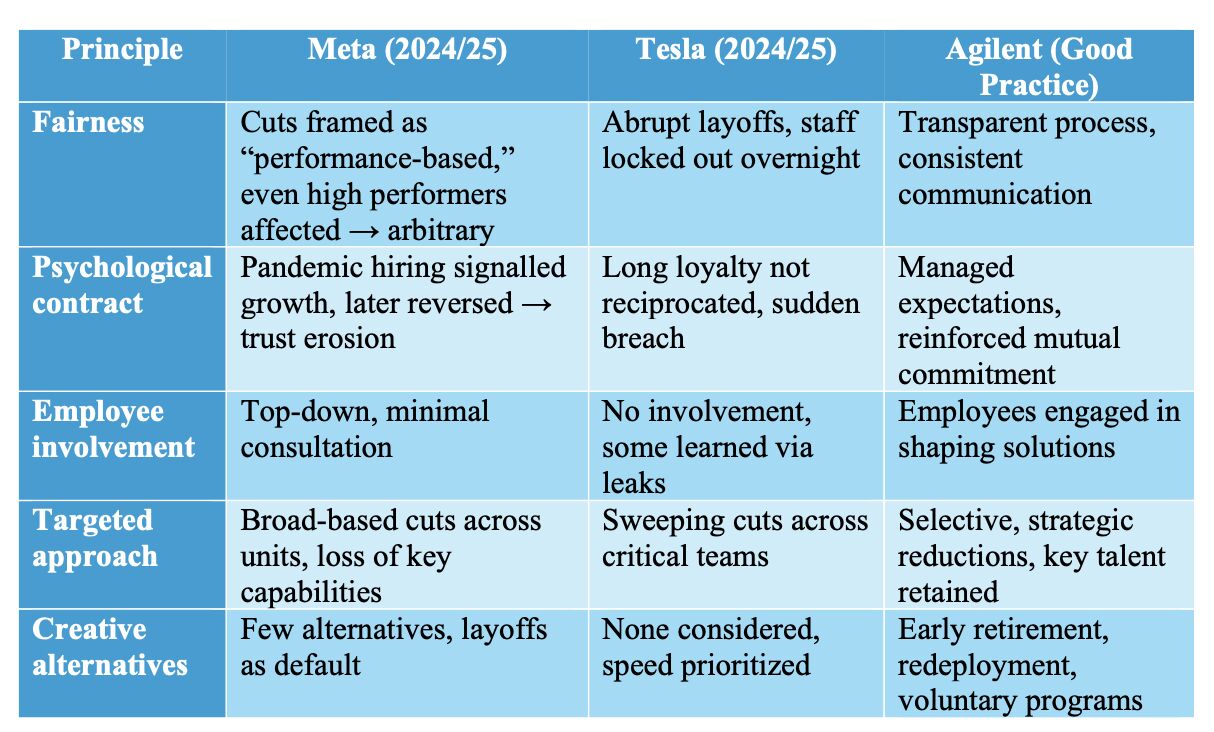

𝗗𝗼𝘄𝗻𝘀𝗶𝘇𝗶𝗻𝗴 𝗪𝗶𝘁𝗵𝗼𝘂𝘁 𝗮 𝗦𝗼𝘂𝗹: 𝗪𝗵𝗮𝘁 𝗠𝗲𝘁𝗮’𝘀 𝗟𝗮𝘆𝗼𝗳𝗳𝘀 𝗧𝗲𝗮𝗰𝗵 𝗨𝘀
Every crisis summons leaders to a crossroads - cut costs, or also preserve trust and humanity?
Every leader is summoned to that crossroads in times of crisis. On one side lies the imperative to protect the organization’s financial health. On the other lies the responsibility to preserve the dignity, trust, and future of the people who constitute that very organization.
The management scholar Wayne F. Cascio (see 👇 ) has studied downsizing for decades. His conclusion is unambiguous: most companies downsize badly. They cut broad and deep, lose critical talent, damage morale, and often fail to achieve the promised financial results. Downsizing is not just a technical choice; it is a strategic one (and as I argue an ethical).
From his research, five principles of decent downsizing emerge:
1️⃣ 𝗙𝗮𝗶𝗿𝗻𝗲𝘀𝘀 𝗺𝗮𝘁𝘁𝗲𝗿𝘀. Employees are more likely to accept hard decisions if the process is transparent, consistent, and respectful.
2️⃣ 𝗛𝗼𝗻𝗼𝗿 𝘁𝗵𝗲 𝗽𝘀𝘆𝗰𝗵𝗼𝗹𝗼𝗴𝗶𝗰𝗮𝗹 𝗰𝗼𝗻𝘁𝗿𝗮𝗰𝘁. Crises inevitably reshape the implicit bonds of trust, loyalty, and reciprocity. Leaders must manage this actively.
3️⃣ 𝗜𝗻𝘃𝗼𝗹𝘃𝗲 𝗲𝗺𝗽𝗹𝗼𝘆𝗲𝗲𝘀. Engagement turns passivity and cynicism into energy and creativity.
4️⃣ 𝗜𝗳 𝗹𝗮𝘆𝗼𝗳𝗳𝘀 𝗮𝗿𝗲 𝘂𝗻𝗮𝘃𝗼𝗶𝗱𝗮𝗯𝗹𝗲, 𝗯𝗲 𝘁𝗮𝗿𝗴𝗲𝘁𝗲𝗱. Indiscriminate cuts undermine long-term competitiveness.
5️⃣ 𝗘𝘅𝗽𝗹𝗼𝗿𝗲 𝗰𝗿𝗲𝗮𝘁𝗶𝘃𝗲 𝗮𝗹𝘁𝗲𝗿𝗻𝗮𝘁𝗶𝘃𝗲𝘀. Tools like voluntary programs, sabbaticals, or shared reductions can preserve both talent and trust.
Now consider Meta’s recent layoffs, where about 3,600–4,000 people were cut:
Fairness? Many employees reported surprise: even high performers saw abrupt downgrades in evaluations before being let go. The perception of arbitrariness undermined fairness.
Psychological contract? Meta had scaled up aggressively during the pandemic, signaling long-term growth. The sudden reversal broke the implicit promise of stability, fueling anxiety and mistrust.
Involvement? The process was highly top-down. Employees were informed, not consulted. This deepened a sense of powerlessness.
Targeted? Cuts spanned across WhatsApp, Instagram, and Reality Labs. Broad-based reductions suggested expedience rather than strategic workforce planning.
Creative alternatives? Unlike companies that experimented with voluntary or flexible arrangements, Meta defaulted to layoffs. Opportunities for less disruptive solutions were missed.
Cascio’s research reminds us: downsizing may sometimes be necessary, but how it is done determines whether organizations emerge weaker or stronger.
I would go the step further: at the heart lies an ethical question every organization must confront: 𝗪𝗵𝗮𝘁 𝗮𝗿𝗲 𝘄𝗲 𝘁𝗿𝘂𝗹𝘆 𝗰𝗼𝗺𝗺𝗶𝘁𝘁𝗲𝗱 𝘁𝗼? Is it the pursuit of short-term shareholder value, or do we also take responsibility for ensuring prosperity and humanity?
📚 Reference: https://onlinelibrary.wiley.com/doi/abs/10.1002/hrm.20034
15-08-2025

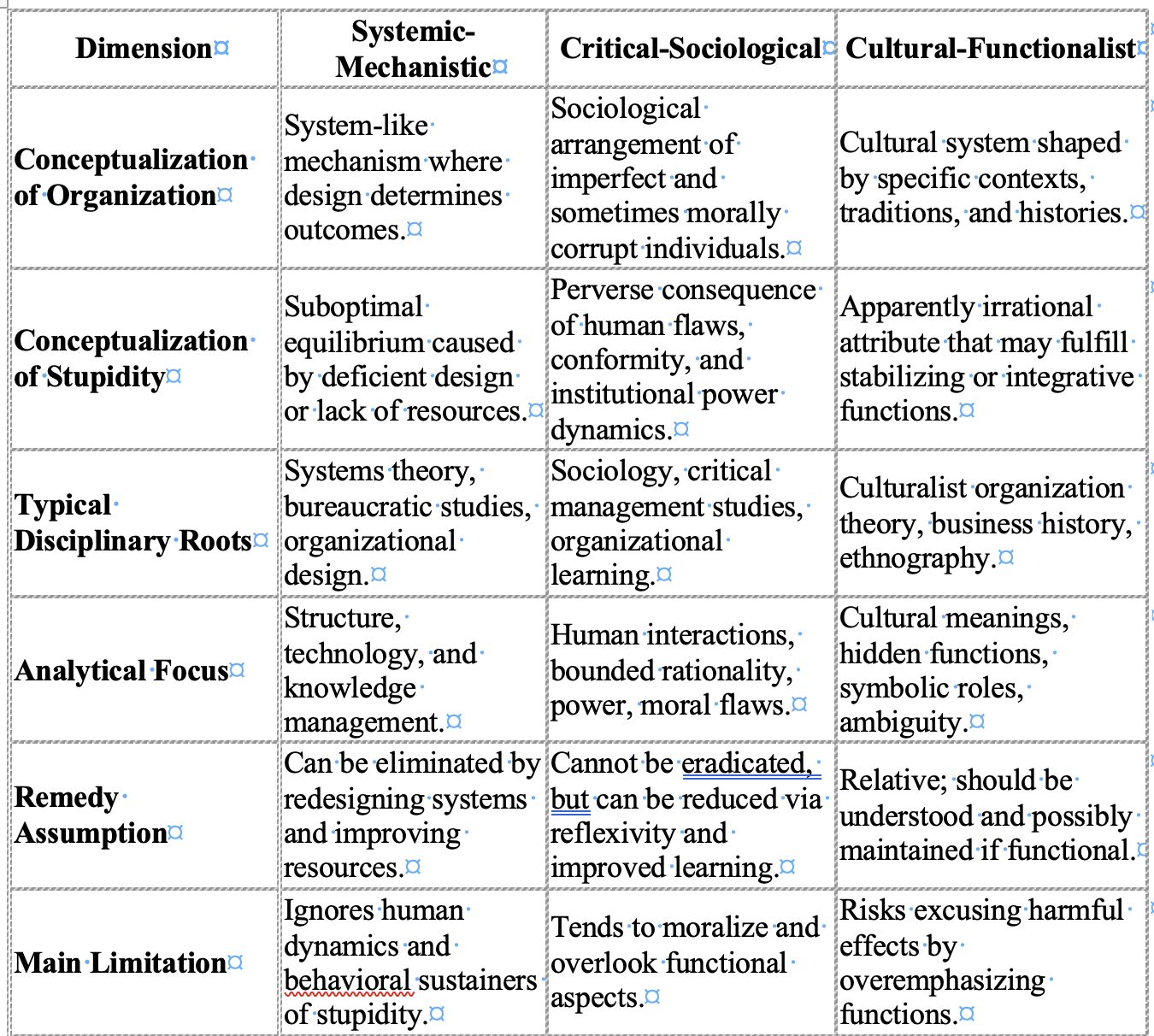

Why smart organizations keep doing stupid things?
Most of us have been in the room when an obviously poor decision is made by a group of intelligent, experienced people. We leave wondering how so much collective capability could result in something so absurd. This is not an occasional mistake or a product of one weak leader. It is a broader, systemic phenomenon: organizational stupidity.
Organizational stupidity is not simply incompetence, although it can look like it. It is the set of patterns and practices that disable reflexivity, slow learning, and normalize wasteful or nonsensical activity.
Guilherme Azevedo recent work offers a typology that helps us see these patterns more clearly. He distinguishes three main lenses for understanding them:
1️⃣ The systemic–mechanistic lens sees the organization as a machine whose design is flawed. Poor structures, outdated processes, or missing resources trap people in unproductive routines. In this view, the obvious remedy is to redesign the system and remove the bottlenecks. The difficulty, of course, is that systems are run by people, and the human side is rarely as straightforward as the technical side.
2️⃣ The critical–sociological lens focuses on human behaviour and collective dynamics. Stupidity here is the result of conformity, groupthink, and sometimes moral compromise. Leaders may protect their own egos or positions at the expense of open debate. People avoid asking difficult questions. The remedy proposed is to cultivate reflexivity, dissent, and better learning processes. But this is far more challenging than simply implementing a new structure.
3️⃣ The cultural–functionalist lens is more provocative. It asks whether some apparent stupidity serves a useful function. Rituals that seem pointless may help maintain stability. Roles that look redundant may keep livelihoods intact. Strategic ignorance can protect people from burnout. In this view, not all stupidity is dysfunction; some of it is survival.
The reality, of course, is rarely one lens alone. Most cases are an entanglement of all three: flawed systems, unreflective human behaviour, and power/politics. A policy may be a relic of poor design, reinforced by leadership interests, and embedded in cultural meaning that makes it resistant to change.
The question, then, is not simply how to eliminate stupidity. It is which elements are actively harmful, which are functional and for whom, and how any change can be made without undermining the stability that people rely on. Stupidity is not a glitch in the system, rather it seems part of the system.
Understanding how and why it operates is the first step to making informed choices about whether to change it, challenge it, or accept it. We will discuss this in class today...(read the poem)
Source: Guilherme Azevedo, “Into the Realm of Organizational Folly: A Poem, a Review, and a Typology of Organizational Stupidity,” Management Learning (2023).
12-08-2025

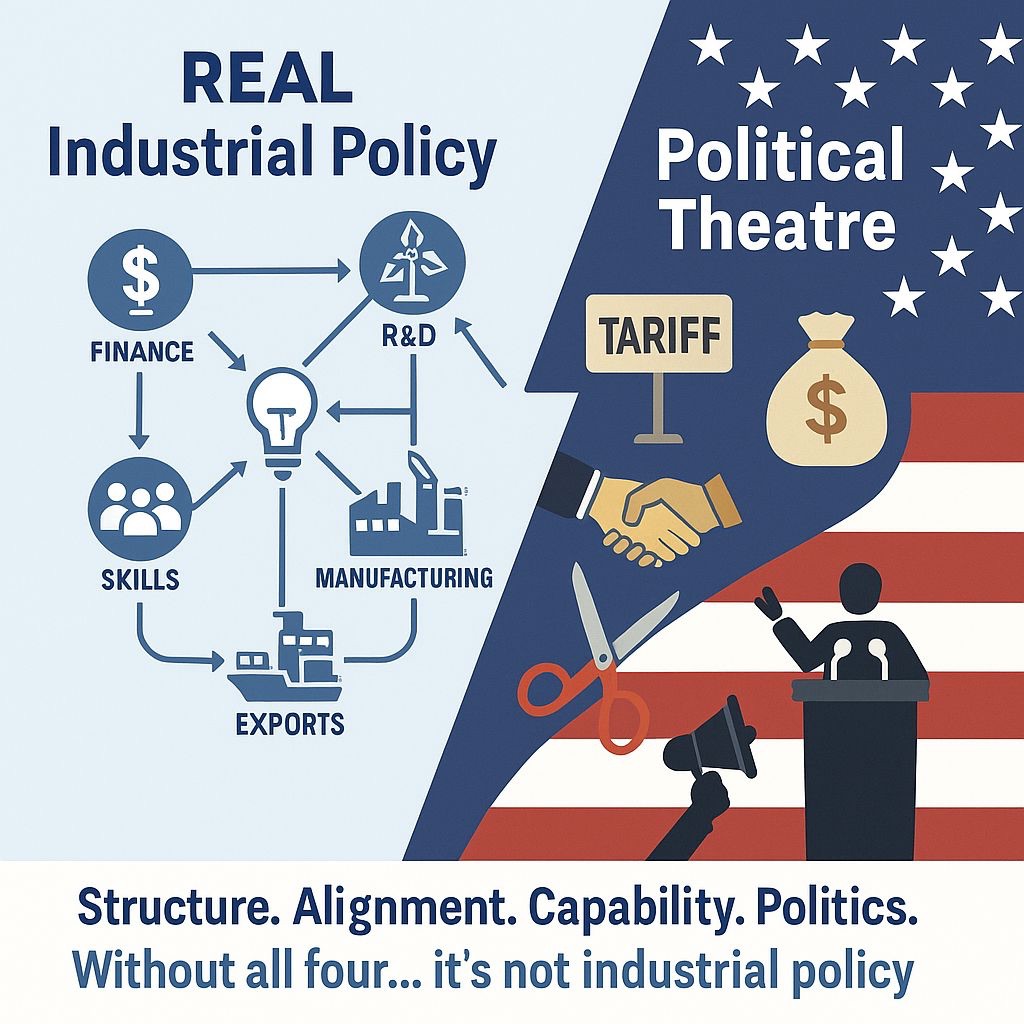

Trump Isn’t Doing Industrial Policy - He Just Thinks He Is
Everyone’s talking about industrial policy. From Washington to Brussels to Bern, leaders promise to “bring industry home”. It sounds bold. But most of what’s called industrial policy today is just a mix of subsidies, tariffs, and corporate tax breaks. These grab headlines but fall far short of the deliberate, structural transformation that has historically worked.
Real industrial policy as Antonio Andreoni and Ha-Joon Chang define it (hashtag#deepdive) is about reshaping an economy’s structure over decades. It’s not just protecting national champions. It’s about fostering industries that can drive productivity, innovation, and quality jobs and linking them so they reinforce one another. It’s about aligning finance, skills, technology, and regulation.
History is full of examples. Hamilton and List in the 19th century argued for state-led strategies to build capabilities. Mid-20th century structuralists like Hirschman and Prebisch promoted coordinated “big push” strategies to overcome underdevelopment. Post-war Japan, Korea, and Taiwan perfected disciplined, export-oriented approaches that built national capabilities from the ground up.
Andreoni and Chang’s work identifies four fundamental challenges that any serious industrial policy must master and the strategies to meet them:
1️⃣ Structural Tensions & Dualism
Industrialisation is messy and uneven. Some sectors surge ahead, others lag. Without coordination, bottlenecks strangle growth. Solution: Map and manage sectoral interdependencies, using state-led vision and careful sequencing.
2️⃣ Institutional Misalignment
New industries demand new institutions in finance, skills, and standards. Misaligned policies cancel each other out. Solution: Design policy packages, not isolated measures, and adjust them as industries evolve.
3️⃣ Conflict Management
Industrial policy redistributes power and resources. Resistance is inevitable from incumbents, rivals, even within government. Solution: Build political coalitions, create transparent support rules, and link benefits to performance.
4️⃣ Global Pressures
Global value chains, financialisation, and trade rules limit room to manoeuvre. Solution: Use strategic leverage - from procurement to standard-setting - to retain domestic value capture.
This is what separates real industrial policy from political theatre. It’s a long-term, coordinated, and politically savvy process aimed at structural transformation. Without it, governments risk spending billions on short-lived wins while leaving their economies vulnerable.
Next: we’ll put Trump’s 2024–25 industrial policy and “Agenda 2025” under the microscope. Spoiler: it’s not close to the gold standard.
📚 Reference: Andreoni, A., & Chang, H.-J. (2019). The political economy of industrial policy: Structural interdependencies, policy alignment and conflict management. Structural Change and Economic Dynamics, 48, 136–150.
07-08-2025



The EU's Nobel Peace Prize: A Call to Remember Who We Are
In 2012, the Nobel Committee didn't just honor the EU for ending wars - they celebrated something deeper: Europe as a living testament to human dignity and shared values.
The Values That Won the Prize:
Human Rights as Foundation: "One cannot become a member without first having adapted their legislation to the Universal Declaration of Human Rights and the European Convention on Human Rights" - The EU made human rights non-negotiable.
Democracy Through Membership: From Portugal's 1974 revolution to Eastern Europe's liberation - "several generations of Europeans have shown again and again that their choice for Europe was also a choice for freedom."
A Community of Dignity: As President Barroso stated: "Our Union places the person and human dignity at its heart... it gives a voice to diversity while creating unity."
A Global Inspiration The Nobel Committee recognized the EU as "a powerful inspiration for many around the world" - proving that former enemies can become family, that democracy strengthens through cooperation, that economic integration creates lasting peace.
But for some years already these values have been under pressure both internally through the rise of populism as well as externally. The latter clearly coming to an apex with the government of Trump.
The Nobel Committee warned us: "We must stand together... without this European cooperation, the result might easily have been new protectionism, new nationalism with the risk that the ground gained would be lost."
This is our moment to choose.
As Europeans, we must raise our voices for the Europe that won the Nobel Prize. We must defend the values that transformed our continent from battlefield to beacon. We must remember that democracy, human rights, and international cooperation aren't guaranteed - they require our active protection.
The Europe our grandparents dreamed of is worth fighting for.
Will you stand up for these values?
Source: Nobel Peace Prize Award Ceremony 2012, Oslo City Hall
05-08-2025

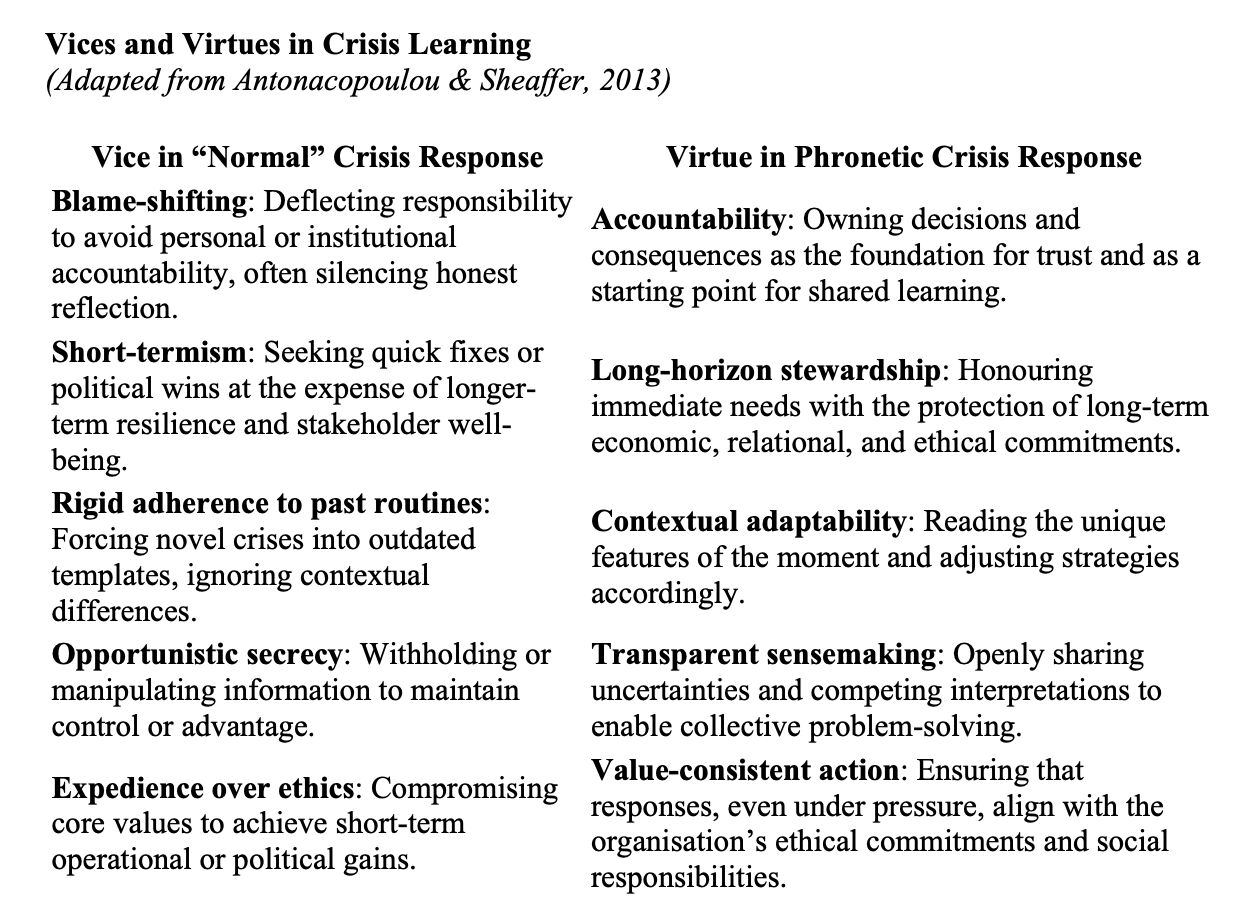

LEADING WITH PRACTICAL WISDOM IN A TIME OF PERMANENT CRISIS
The United States’ decision to impose tariffs of up to 39% on European partners is not just a trade policy shift. It is a reminder that stability is no longer the norm and crisis no longer the exception. For CEOs and political leaders, this is not an “event” to be managed - it is a condition to be lived with, learned in, and navigated with wisdom.
Elena P. Antonacopoulou & Zachary Sheaffer (2013 👇) show that in such contexts, the decisive capability is practical wisdom: the cultivated ability to make context-sensitive, ethically grounded judgments when the context is uncertain and interests are manifold, time is short, and consequences are profound.
In chronic crisis, the loop between information, decision, and action is continuous, shaped by three forces:
1️⃣ Sensemaking under ambiguity: Understanding that “facts” are contested and that a shared understanding must be constructed through dialogue, while truth must be searched with much more depth.
2️⃣ Action with moral clarity: Decisions must reflect not only strategic advantage but the values we are prepared to live by.
3️⃣ Institutionalised reflection-in-action: Reflection must be embedded in the very act of leading and governing, not postponed until the crisis has passed.
In practice, for European CEOs and policymakers, this means cultivating a number of capacities:
💡 Strategic foresight as ethical stewardship – Anticipate trade disruptions not only to protect profits but to safeguard the livelihoods and trust of those whose work and communities depend on cross-border exchange.
💡 Judgment under incomplete intelligence – Act with provisional clarity, making choices that can be revised as realities unfold, rather than waiting for impossible certainty.
💡 Relational capital as a strategic asset – Build and maintain trust with a diverse range of partners, knowing that relationships are a form of liveblood and offer resilience no tariff can erode overnight.
💡 Value-consistent decision-making under pressure – In moments of economic strain, ensure that expedience does not erode commitments to fairness, reciprocity, and the common good.
💡 Governance that channels politics into learning – Accept that trade policy is political; structure decision-making so that competing interests lead to richer understanding, not paralysing division.
The U.S. tariffs will test not only Europe’s economic resilience. But they also test our wisdom; our ability to steer towards the good life. The challenge is not how quickly we return to “normal” trade, but how we cultivate the capacity to act decisively, ethically, and adaptively in a world where normality is the illusion.
True leadership in such waters might not about predicting the storm’s end but more about steering with phronesis, knowing that crisis is no longer the interruption, but the ocean itself. And this will also demand that we find back to some core values we seemingly forgot.
Link to article: https://www.researchgate.net/profile/Elena-Antonacopoulou/publication/274970149_Learning_in_Crisis_Rethinking_the_Relationship_Between_Organizational_Learning_and_Crisis_Management/links/55a7d93608ae481aa7f4f655/Learning-in-Crisis-Rethinking-the-Relationship-Between-Organizational-Learning-and-Crisis-Management.pdf
04-08-2025

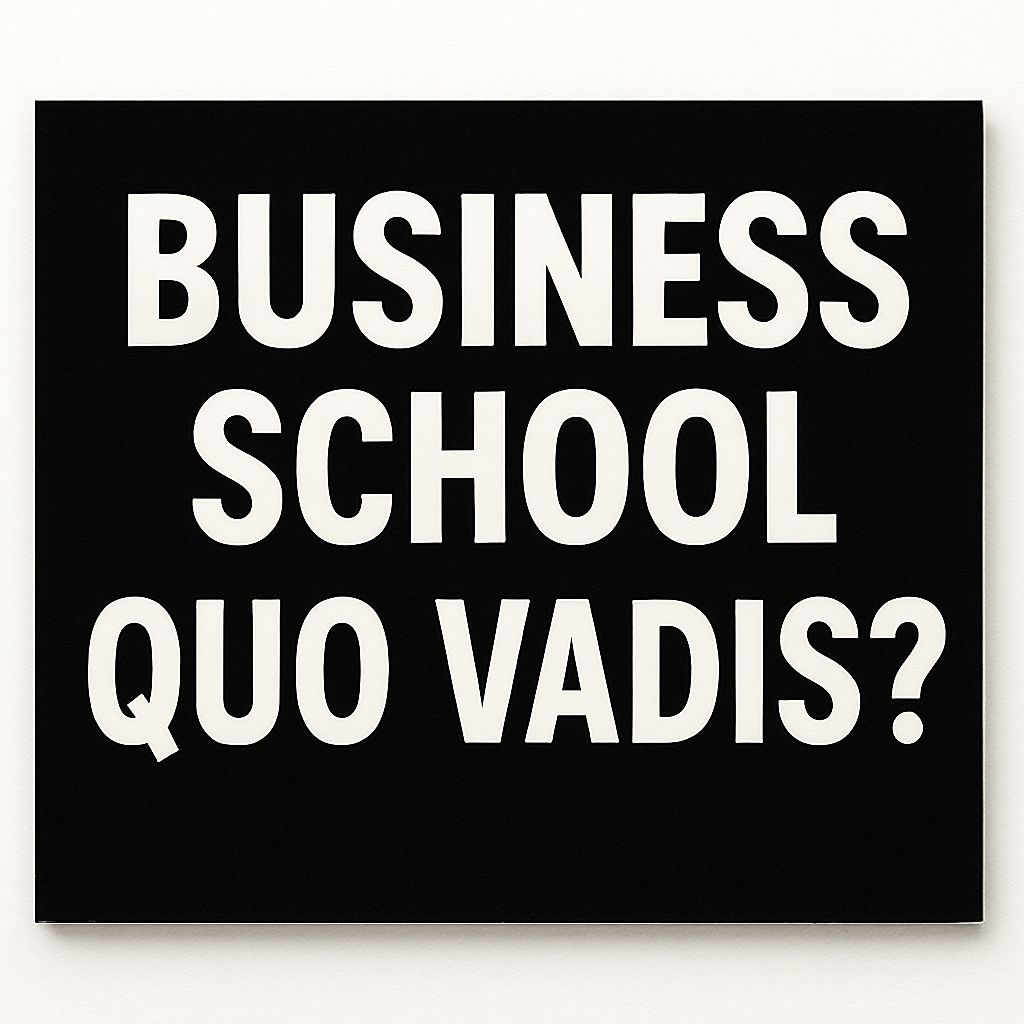

BUSINESS SCHOOLS ARE DEAD – LONG LIVE BUSINESS SCHOOLS IV
Welcome to the lab and a very, very, very first collection of realist utopias. 😊
Critique is never enough. If business schools fail to cultivate flourishing, wisdom, the common good, and contestation… what could alternatives look like?
Sociologist Erik Olin Wright tells us to judge “real utopias” with three tests:
1️⃣ Desirability: do they embody the moral yardstick we aim for?
2️⃣ Viability: can they function sustainably?
3️⃣ Achievability: can we get there from here?
Three cases show how this could work.
💡 Lancaster: critique without emancipation?
In the 1990s–2000s, Lancaster University Management School was a global flagship for Critical Management Studies. Students were told not to come if they wanted a conventional business education. Contestation was its hallmark. But the project was better at dismantling neoliberal ideology than forming wise practitioners. Its desirability lay in critique, not flourishing. When leadership changed, its viability collapsed. No alliances, no pathways to scale: the “critical enclave” was ripe to be dismantled and is currently even more at danger to be so.
💡 LIS: innovation without a constitutive common good?
The London Interdisciplinary School, founded in 2017, blends arts, sciences, and humanities to tackle “wicked problems.” It is desirable as an antidote to disciplinary silos and cultivates problem‑based wisdom. It has serious viability too: over £24m in investment, regulatory approval, strong faculty. But its vision of the common good is thin, leaning on employability and impact. Its achievability depends on graduate success. If alumni thrive, LIS could inspire imitation. If not, it risks remaining a boutique experiment.
💡 Mondragón: cooperation in practice?
Mondragón University in Spain’s Basque Country is the world’s first cooperative university, rooted in the Mondragón Corporation of 90+ worker co‑ops. It is desirable because it seems to embed flourishing, some sort of practical wisdom, common good, and contestation in cooperative practice. It is viable, tied to a robust ecosystem with financial solidarity and participatory governance. And it is achievable: it grew step by step from a technical school in the 1940s. Its limitation? Replication. Mondragón works because of a deep cooperative culture not easily transplanted. But it proves that real utopias in business education are possible.
The preliminary lesson?
Lancaster shows critique alone isn’t enough. LIS shows innovation without thick common good could be fragile. Mondragón shows alternatives can be desirable, viable, and achievable if embedded in supportive ecosystems.
👉 Over to you: Where should we borrow from Lancaster, LIS, and Mondragón? But more importantly: please tell me your favorite realist utopia - and send me case studies, articles to go (much) deeper into this!
Source: https://journals.sagepub.com/doi/pdf/10.1177/0896920520950387
02-08-2025



BUSINESS SCHOOLS ARE DEAD – LONG LIVE BUSINESS SCHOOLS III
Last time I proposed four principles for a flourishing business school: flourishing, practical wisdom, the common good, and contestation.
So let’s hold today’s schools up to that standard. The verdict? Systematic failure.
✊ Theories that kill flourishing.
Sumantra Ghoshal warned that bad theories don’t just misdescribe reality, they make it worse. Agency theory assumes managers are selfish, so BS designed systems of distrust for practice - and managers behave accordingly. Shareholder primacy tells us greed is rational, and greed becomes normalized. Even psychology isn’t better. As Bal & Dóci show, employability, job crafting, even “well‑being” still recast people as self‑entrepreneurs, forever optimizing for the market. Where flourishing should mean energy turned into excellence in community, BS teach restless self‑optimization in competition.
✊ No practical wisdom.
Gert Biesta calls it “learnification”: education hollowed out into competences, outcomes, metrics. Students collect badges of employability, professors deliver quantifiable units. But phronesis cannot be measured. It requires judgment about what is good in messy, uncertain contexts. MacIntyre shows how managerialism pretends to be neutral: efficiency as the only virtue, conflict erased. Schools produce clever technicians of efficiency yet efficiency without wisdom is directionless, and often destructive.
✊ Contestation erased.
Learning requires conflict and courage. Yet BS mainly elevate consensus. Case studies end with tidy “solutions,” “best practices” are served as gospel, while rankings reward conformity. Bal & Dóci expose the fantasy of harmony: the myth of organizations as win‑win spaces. Laske shows how dialectical thinking - grasping contradictions, perceiving absences, imagining transformation - is never developed. Students graduate fluent in analysis but allergic to debate. A school without contestation is not a school but a factory of conformity.
✊ The common good betrayed.
Business schools were founded to professionalize management for society. That mission is gone. Today success means salaries and corporate ties. Sulmasy helps us see why: schools confuse the aggregative good (private satisfactions like careers) or the supersessive good (“what’s good for business is good for society”) with the real thing - the constitutive common good. This means flourishing in community, cultivating virtues and practices together. By ignoring it, schools betray their reason for being.
The result is stark: business schools fail every part of their telos!
The cruel paradox: the very institutions that promise opportunity keep us trapped in an iron neoliberal cage, and one that tightens with every student stepping out to enter “the real world.”
👉 What do you think: why do bad theories persist, dialectics gets exchanged with balancing, audit culture prevails and nobody even bothers to discuss about the common good?
01-08-2025



BUSINESS SCHOOLS ARE DEAD – LONG LIVE BUSINESS SCHOOLS II
Yesterday I argued that business schools are not just classrooms but ideological machines. They don’t just teach capitalism - they reproduce it in us.
If that’s true, where do we even begin to change them? The sociologist Erik Olin Wright offers a roadmap: transformation begins not with critique but with values and moral principles. Before we ask what is wrong or how to fix it, we must ask: what should guide us? What is the legitimacy for change? What is the good life to strive for?
For business schools, I believe four principles stand out. Each challenges a mainstream idea and offers a richer alternative:
🔹 Flourishing, not well‑being or utility.
Education is not just about maximizing comfort, pleasure, or employability. It is about becoming excellent through practice, and realizing our potential in community. People aspire not only to feel good, but to be good. Flourishing captures this deeper telos: who we become through what we do, together.
🔹 Practical Wisdom, not rationality alone.
Managers don’t just need tools to calculate and optimize. They need phronesis: the ability to judge what is good in messy, uncertain situations. Rationality tells us how to be efficient. Wisdom asks: what is worth doing? And without wisdom, even the smartest strategy risks being directionless.
🔹 The Common Good, not the private good.
The purpose of business is not simply to deliver private benefits such as profits, salaries, prestige. It is to create shared goods: products, knowledge, relationships, and virtues that enable all to contribute and thrive. The common good is not opposed to personal success, but it insists that true prosperity must be shared, enabled in common and sustainable.
🔹 Contestation, not best practices.
There are no final “best practices.” Business schools should be arenas of debate about ends as well as means. True learning requires disagreement, dialogue, and courage instead of conformity to neutral templates (say good-bye to the 10 habits of successful entrepreneurs or the McKinsey best practice news of the week). Contestation reminds us that management is always a moral and political practice, never just a technical one.
Taken together, these four principles give us a new telos for business schools. They remind us that management is not a neutral science, but a moral practice. And they set the benchmark by which today’s institutions and tomorrow’s alternatives can be judged.
👉 What do you think? How would you critique these "principles" - what is missing?
Sources: https://leadershipsociety.world/ and https://www.cambridge.org/core/services/aop-cambridge-core/content/view/62E41482551D6CF4BC293D44A96150B1/S0028428900013639a.pdf/div-class-title-the-very-idea-of-a-university-aristotle-newman-and-us-div.pdf?casa_token=DqSFcnFQ0bgAAAAA:gu8tcL_SZTmoczuXSag7QhfCCOINSnaUgeRzVDTF4AeFeP0DjrdgyG871fflZHIE8EWefXGcI2k and ofc https://journals.sagepub.com/doi/pdf/10.7227/IJS.21.2.2
30-07-2025



BUSINESS SCHOOLS ARE DEAD – LONG LIVE BUSINESS SCHOOLS
Squashing critique by Otti Vogt and many before him raises an uncomfortable question: are business schools beyond rescue?
Working inside one, watching motivated and intelligent young minds (and hearts) prepare to become tomorrow’s leaders, I cannot quite accept that. If some businesses can be a force for good, why not business schools too? But before we talk about change, we must understand the problem. And today I’d like to start on the lighter side - with some first critique from my side (a deeper critique will have to follow).
Here’s the paradox. Business schools claim to produce responsible leaders. Yet the dominant ideology they teach and embody is still neoliberalism:
🎯 Markets are natural.
🎯 Competition is virtuous.
🎯 Shareholder value is the only true measure of success.
This worldview is not neutral. It tells a story about order (markets and managerial elites rule), about the good (efficiency and growth), and about praxis (deregulate, compete, manage technocratically). And it does something even more powerful: it shapes who students and professors become.
Think about it. Business schools are not just classrooms. They are as Gianpiero Petriglieri explains identity workspaces. They mold how future managers see themselves: as competitive, mobile, self‑investing and self-optimizing agents whose worth is measured by salary and prestige. This is how ideology works: it doesn’t just fill minds with theories, it anchors desire in fantasies. The fantasy to talk in Zizekian terms is beatific - wealth, prestige, global careers. The nightmare is horrific - failure, irrelevance, exclusion. Even when students are cynical, they can’t quite escape the pull.
This is why “fixing” business schools is not as simple as adding an ethics course or a sustainability track. Ideology runs deeper. It shapes visions, practices, and identities. If we take ideology seriously - as I have defined it in my series on ideology - as descriptive, normative, and action‑oriented, then we must admit: business schools don’t just teach adverbial capitalism, they reproduce it in us.
And yet if ideology can be taught, it can also be transformed. In this series, I’ll explore how.
👉 What do you think — are business schools doomed to reproduce the past, or can they become places of flourishing for the future, and how? I will explore this here in the coming weeks - but I will need the help of others, also insiders. Remember another truism: it is always easier to critique from the outside, than to change from the inside.
30-07-2025



WHEN ANALYTICAL PHILOSOPHY FAILED AND SUFFERING REMAINED UNNOTICED
The other day, Rebecca Tillery gave a thoughtful talk on Philippa Foot - but what lingered for me was the deeper question that shaped the world of Iris Murdoch and her philosophical peers: why does no one notice the drowning of Icarus?
In Bruegel’s painting, Icarus falls into the sea and disappears. But the ploughman keeps ploughing, the ship sails on, the world continues, unchanged and unbothered. A human being suffers and is lost - and it barely registers.
We are in that painting again.
Why do so many people fail to really see what’s happening in Gaza? Or the quiet violence in the United States as it slips further into authoritarianism? The information is there. The images are there. But something is missing.
Iris Murdoch gave this a name: a failure of moral attention. For her, it’s not about lacking facts. Rather it’s about not seeing clearly. Moral life isn’t mostly about choosing between good and bad actions, as if we’re standing before a list of options. It starts deeper: with how we see the world, and how distorted our vision often is be it by ego, prejudice, habit, ideology, and fear.
To really attend to another person means letting go of those distortions (as far as we can). It means being open. Vulnerable. Willing to be affected. That’s why attention is hard. It’s not passive. It requires effort: to notice when our vision is off, to pull ourselves back from distraction, and to accept what we see, even when it’s uncomfortable.
Murdoch calls this “obedience to reality.” We don’t just learn the truth - we have to want to see it! That desire, that careful attention, is what gives moral life its shape.
And this is why attention matters so much now. It’s easy to scroll past someone else’s suffering, to keep ploughing the field, sailing the ship, doing our job. But the challenge Murdoch gives us is to look again - and this time, to see.
More literature: https://lnkd.in/dWySf2aW
29-07-2025



IDEOLOGY, FLOURISHING, AND TRANSFORMATION: ERIK OLIN WRIGHT’S REAL UTOPIAS
Financial capitalism survives on a story: “There is no alternative.” This is not analysis but ideology, designed to shrink our sense of the possible. Erik Olin Wright’s project of real utopias directly attacks that story. By proving that alternatives can exist, function, and spread, he reclaims imagination as a tool of realism.
Wright begins with two foundational propositions:
1️⃣ Much human suffering and many deficits in flourishing are caused by existing institutions.
2️⃣ Transforming those institutions in the right way can reduce suffering and expand the possibilities for flourishing.
From this follows a clear procedure: articulate moral principles (in his case equality, democracy, sustainability); diagnose harms; design alternatives; and propose strategies for transformation.
But what makes an alternative real? He sets out three criteria:
1️⃣ Desirability: Does it embody emancipatory values?
2️⃣ Viability: Can it function without self-destruction?
3️⃣ Achievability: Are there pathways from here to there?
Among these, viability is crucial. If people cannot believe that alternatives will actually work, they will not fight for them. Demonstrating viable alternatives is therefore itself an ideological intervention: it expands the horizon of the possible.
And such alternatives exist. Participatory budgeting, worker cooperatives, solidarity finance, and basic income pilots are not castles in the air but institutions that embody different logics: democracy over technocracy, solidarity over competition, equality over hierarchy.
For Wright, transformation is not one path but a grammar of strategies:
1️⃣ Ruptural: confrontational breaks with dominant institutions.
2️⃣ Interstitial: building alternatives in the cracks and margins.
3️⃣ Symbiotic: reforms that empower the many while addressing systemic problems.
4️⃣ Encompassing: scaling alternatives until they reshape the system.
The most promising lies in the interplay of interstitial and symbiotic strategies: prefiguring flourishing futures in the present while opening cracks in the dominant order.
What makes Wright’s framework enduring is that he never separates critique from construction, or ideology from institutions. Real utopias destabilize not only materially but ideologically, by proving that hierarchy, competition, and commodification are not natural laws but social choices.
The challenge for us today is to push this project further. Wright gave us the tools to connect ideology, flourishing, and transformation. But we must ask: which institutions - businesses, digital platforms, civic networks - will carry this work forward? And how do we design them not only to redistribute resources, but to cultivate freedom, and flourishing?
Because emancipation is not only about building better systems. It is about making better lives thinkable - and livable.
👉 Where do you see real utopias emerging?
27-07-2025

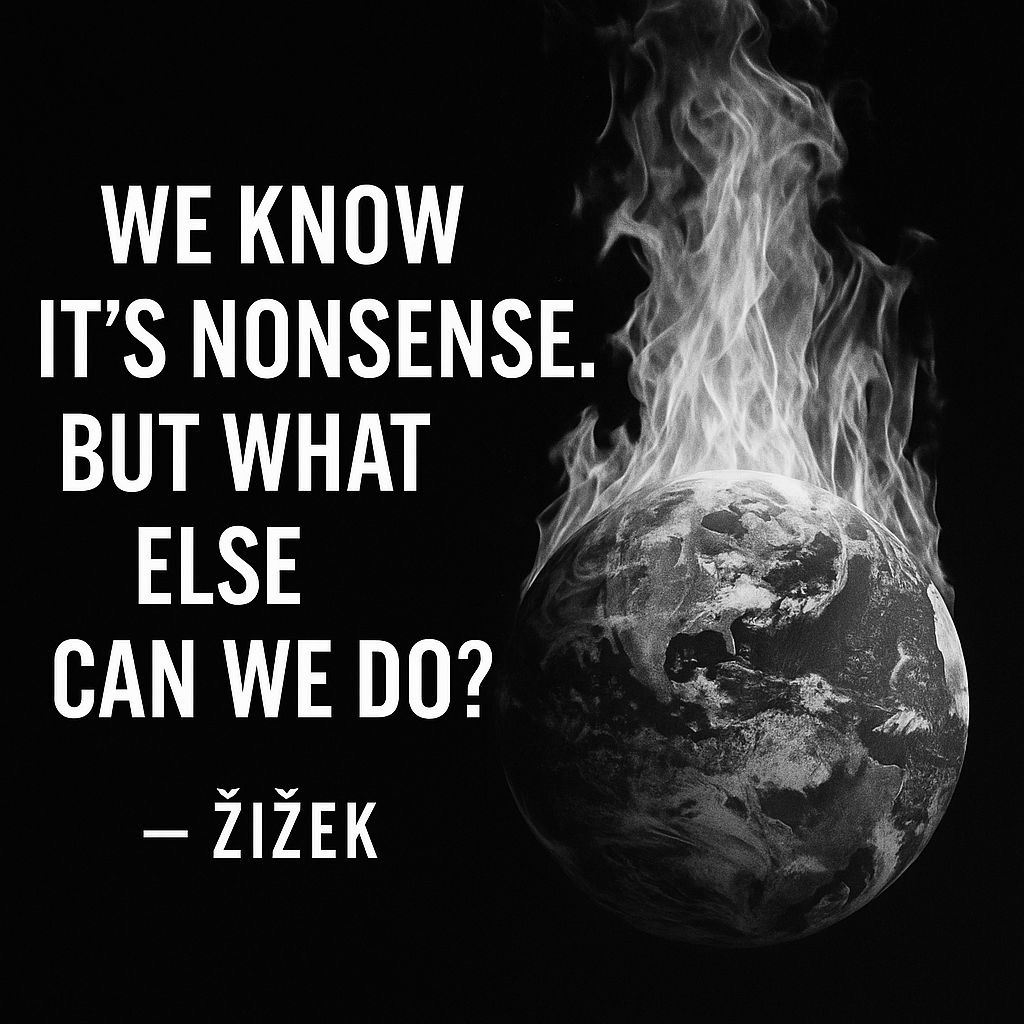

IDEOLOGY EXPOSED – AND THEN ŽIŽEK RUINS IT ALL
In our ongoing series on ideology, we've explored how ideas like growth, performance, and utility continue to shape our institutions - even after we've stopped believing in them. We know they're flawed. We see the contradictions. We joke, critique, roll our eyes.
And yet: we comply!
This is what Žižek calls ideological cynicism: the paradox where knowing that something is nonsense doesn’t set us free. On the contrary, our very awareness becomes part of the system’s functioning. We say: “Of course KPIs are reductive, of course strategy decks are performative, but what can you do?” So we keep going.
No ideology captures this better than managerialism. Managerialism appears most objective precisely when it is most ideological. It hides its values - performance, control, efficiency -behind the mask of neutrality and science (or evidence-based). It speaks the language of dashboards, maturity models, “best practices,” and evidence-based everything. And because it sounds like science, it escapes scrutiny.
But even the loudest critics rarely escape its grip.
Models like Teal or Humanocracy claim to liberate us from hierarchy and bureaucracy. They flatten structures, elevate autonomy, celebrate wholeness. But they still promise universality. They still optimize. They still scale. They sell freedom - but only through the next system. Meaning becomes a productivity tool. Autonomy becomes a design feature. Purpose becomes measurable.
This might be managerialism with a human face - but it is still managerialism - only soothing, flexible, but still in control.
Žižek’s point is brutal: seeing through the illusion isn’t enough. We’re not trapped because we believe rather we’re trapped because we can’t imagine a meaningful alternative. And so we cling to structure, technique, and the fantasy that one more framework might fix the system.
But maybe the real shift isn’t methodological. It’s moral.
What if we asked different questions?
Not “How do we perform better?” But “What’s worth doing?”
Not “How do we manage people?” But “How do we live well together?”
Beyond ideology lies not another model, but a different spirit: one of wisdom, discernment, responsibility. Not freedom within the system but freedom from the logic that everything must be managed.
That’s not a framework. That is a commitment.
26-07-2025

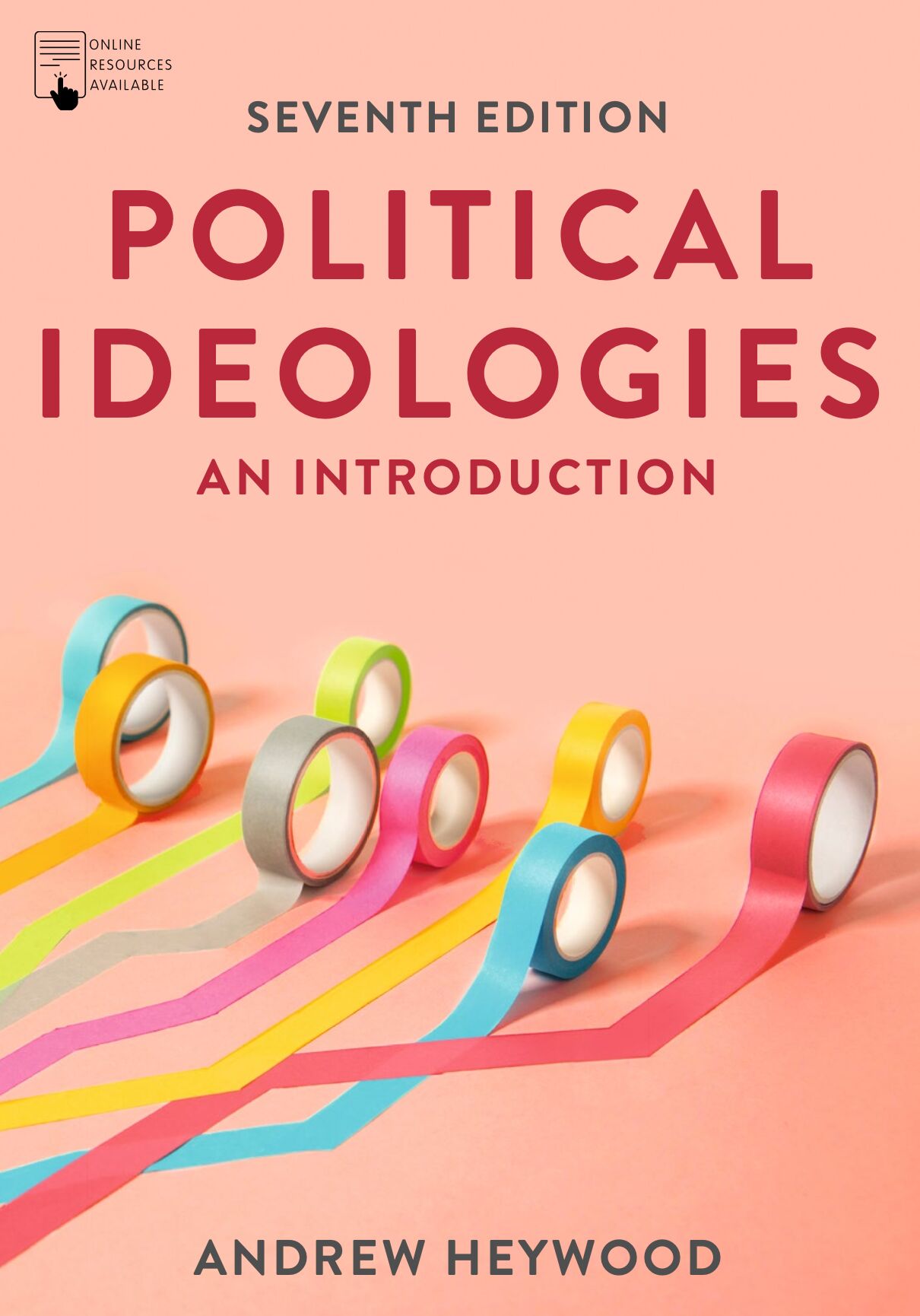

SUMMER READING
Want to understand ideology? Start here.
If you’re curious about how political ideologies shape our thinking - whether in politics, business, or daily life - Andrew Heywood’s Political Ideologies: An Introduction is the best place to start.
📘 This book is clear, smart, and deeply informative. And - not always the case in political philosophy - it is very well written, even fun to read. It doesn’t just list “left vs. right” but explores the core ideas, values, and tensions inside each ideology. It shows how our beliefs are framed by traditions we may not even be aware of and how these frames influence our assumptions about fairness, freedom, growth, justice, or leadership.
🧭 What ideologies are covered?
Heywood explains the big traditions that still define political and organizational life today:
- Liberalism (from classical to neoliberal)
- Conservatism
- Socialism (including social democracy and Marxism)
- Anarchism
- Fascism
But then also goes towards newer traditions:
- Feminism
- Environmentalism
- Multiculturalism
- Religious Fundamentalism
- Postmodernism and Post-ideology
Each ideology is introduced through its core concepts, internal divisions, historical roots, and current relevance. It’s not just theory it’s also about how ideas live and mutate in real societies.
🏗️ How is it structured?
Each chapter begins with a conceptual map, then breaks down the core values, typical beliefs, and internal debates within each ideology. The book ends by reflecting on what ideology even means today especially in an age of populism, polarization, and “post-truth” politics.
💡 Why should ordinary people care? And why is this also important for leaders of all realms?
Because ideology doesn’t stop at politics. It silently shapes how we run organizations, how we talk about leadership or merit, how we define success, and what we think is "realistic." From growth-at-all-costs to CSR, from libertarian founders to stakeholder capitalism ideological assumptions are everywhere. If you want to lead with clarity, you need to understand the waters you’re swimming in.
🔍 For the open-minded reader - manager, policymaker, citizen - this book offers not just knowledge, but orientation. Highly recommended.
25-07-2025

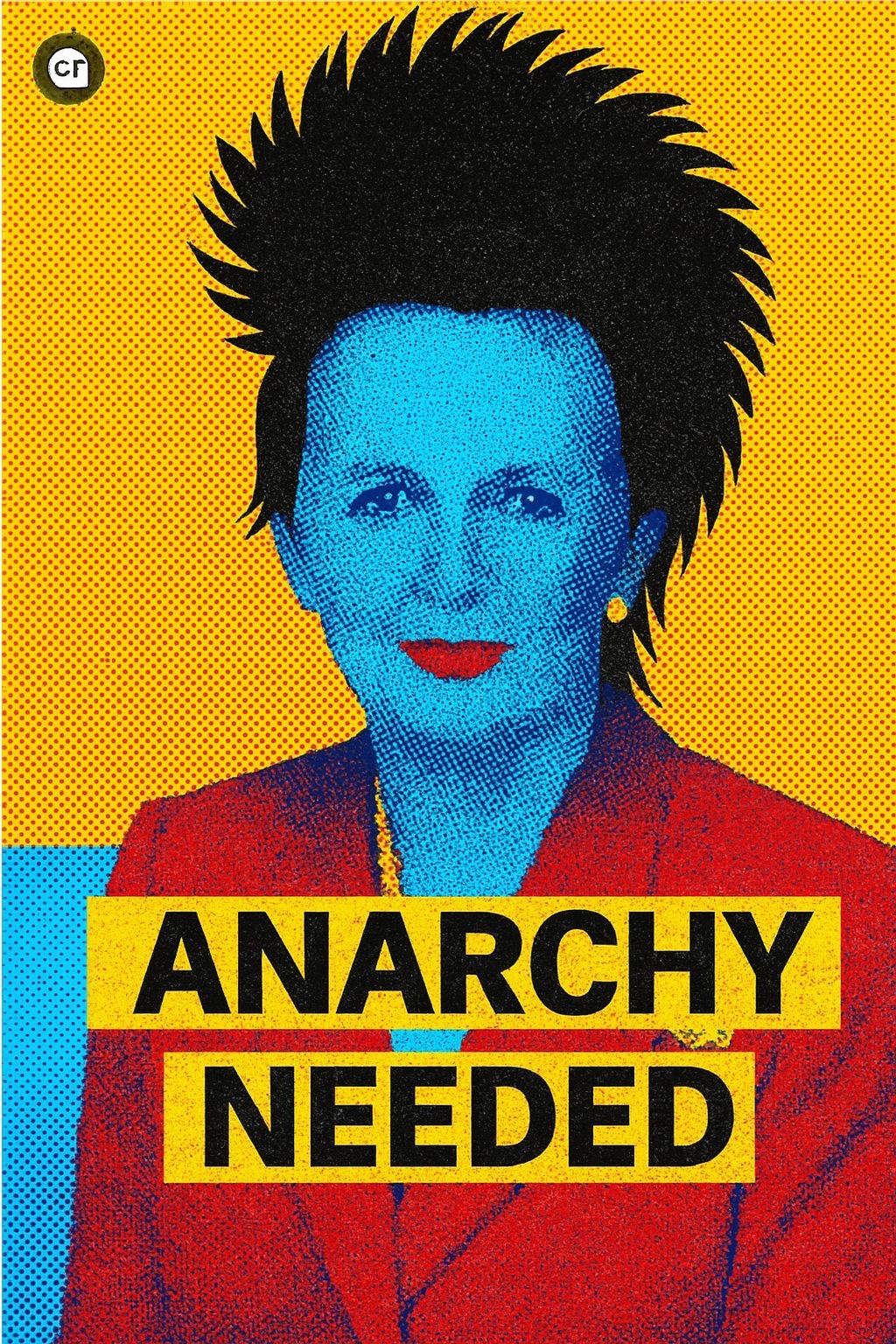

LIBERATING THE FUTURE: FROM TINA TO TRANSFORMATION
In my last post, I unpacked the ideological grip of TINA – “There Is No Alternative” – particularly around the growth imperative. But the point of critique is not despair. It is to reopen imagination. As Jin Xue argues in her excellent paper on ideology and critical realism, we can challenge the “ideological closure” of TINA through a threefold process: exposing contradictions, imagining alternatives, and experimenting with transformation.
Let’s illustrate this with a hard case: business schools and degrowth.
📍 Step 4: Expose Contradictions, Arouse Dissatisfaction
Most business schools reproduce the TINA logic. Growth is seen as a self-evident good. Degrowth? Fringe, unscientific, economically irresponsible. But look closer. Our curricula promote shareholder value while discussing “stakeholder capitalism.” We teach “sustainability” without touching planetary boundaries. We praise innovation while ignoring that much of it fuels overconsumption. These tensions aren’t minor. They point to a deep inconsistency between the world we train leaders for and the world we actually inhabit. Xue calls this the “generative contradiction” – the cracks through which dissatisfaction grows.
📍 Step 5: Imagine Alternatives
Here imagination becomes political. Can we imagine business education beyond growth? What would it mean to teach sufficiency instead of scalability, regenerative design instead of linear optimization, interdependence instead of competitive advantage? Degrowth does not mean collapse. It means reorienting enterprise towards wellbeing, care, justice, and ecological health. Business schools could be pioneers here: experimenting with new metrics (e.g. doughnut economics), new theories (e.g. commoning, solidarity economies), new partnerships (with communities, cooperatives, the informal economy). This is what Bhaskar would call “concrete utopia” – not abstract dreams, but real, rooted alternatives.
📍 Step 6: Experiment with New Practices
Imagination alone is not enough. Xue insists on “transformative praxis” – testing new paths in practice, even within old institutions. What if HR and procurement collaborated to favour sufficiency-driven suppliers? What if strategy courses tackled limits to growth as a design constraint, not a side note? What if the rankings that drive global business education rewarded social and ecological flourishing instead of alumni salaries?
These are not utopian ideas. They are invitations to think otherwise. And if business schools – with their resources, reach, and intellectual capital – cannot take this step, we might be in the wrong business.
The work of dismantling ideology is not just critique. It is co-creation. We do not need to know the whole path to take the next step.
22-07-2025

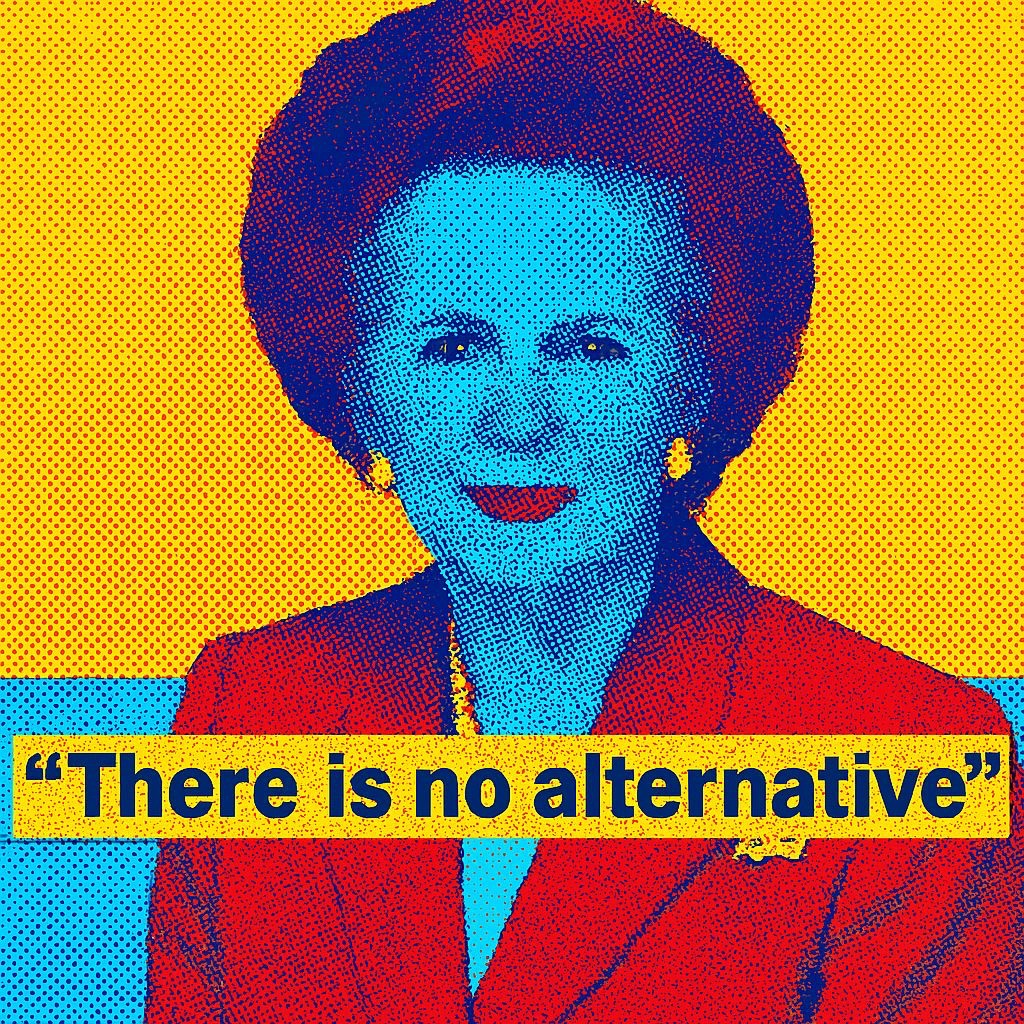

IDEOLOGY AND TINA
There are many reasons why at present I am drawn to analyze ideology - but one is personal. I want to understand how good organisations can help transform the economy. Yet again and again, I encounter the same wall: a deep resistance to even considering alternatives.
And I’m not talking about policymakers or lobbyists. I mean colleagues - highly cited economists, well-intentioned management researchers - who repeat, without blinking, that “we need growth” or that “post-growth is nonsense.” These aren’t arguments. They’re reflexes. The idea that a flourishing economy might be possible beyond growth is treated as unserious - or worse, as dangerous. And this, I’ve come to see, is ideology at work.
TINA - There Is No Alternative - is most famously associated with Margaret Thatcher. But the philosopher Roy Bhaskar offered a deeper diagnosis. A TINA formation is not just dogma. It is a system of ideas and institutions that makes certain paths appear necessary - not by evidence, but by framing alternatives as impossible. It works through a bundle of mechanisms: necessity narratives that present contingent choices as structural imperatives; symbolic substitutions like “green growth” that patch over contradictions without resolving them; panic that casts alternatives as reckless; and syntony, i.e. the deep structural alignment between ideology and institutional form.
The growth imperative exhibits all of this. Growth is portrayed as the condition for employment, social stability, even sustainability. Doubts are pre-emptively neutralised through “win–win” visions of decoupling or circularity, despite thin empirical support. Contradictions such as rising inequality, ecological collapse, eroded well-being are treated as regrettable side effects, not symptoms of systemic failure. Meanwhile, every policy lever, metric, and market signal reinforces the logic of expansion. This institutional echo chamber doesn’t just defend growth but it makes life beyond growth hard to imagine.
And that’s the point. Ideology isn’t just about what people believe. It’s about what they can believe. It narrows the horizon of the thinkable. And when that narrowing happens under the guise of rational necessity, it becomes all the more powerful because it no longer looks like ideology at all.
I used to naively think that alternatives would be welcome - not to attack the current system, but to prepare for the possibility that it may no longer hold. Now I see: even imagining an alternative can be threatening when the dominant ideology has become second nature.
21-07-2025



GROWTH IDEOLOGY AS TINA FORMATION
Following on my last post on ideology ( 👇 ), this piece examines how the logic of “There Is No Alternative” (TINA) operates in practice — and how growth ideology exemplifies it.
The ideology of economic growth is a textbook case of what Roy Bhaskar called a “TINA formation”: a structure of thought and practice that presents contingent, contested arrangements as necessary, non negotible thereby foreclosing real alternatives. A recent paper can serve as a sharp analysis of how the growth imperative has been normalized, defended, and perpetuated despite deepening ecological, social, and psychological contradictions.
1️⃣ The first feature of a TINA formation is the assertion of false necessity. Growth is framed as an economic and political imperative - not as a normative choice but as a prerequisite for employment, stability, and even sustainability. As the authors show, this presumption renders degrowth or post-growth alternatives not only marginal but irrational by definition. The possibility space is collapsed in advance.
2️⃣ Second, growth ideology is sustained through compensatory narratives or what Bhaskar termed “compromise formations.” Faced with mounting evidence that growth undermines planetary limits and yields diminishing returns for well-being, defenders invoke notions like “green growth” or “decoupling.” These do not resolve the contradiction between perpetual expansion and ecological constraints. They mostly defer it, can act complementary but not on their own.
3️⃣ Third, the contradiction is lived. Growth is justified as a pathway to social welfare, yet correlates with inequality, environmental breakdown, and mental distress. This is ideological auto-subversion: a system undermining the very goals it claims to serve.
4️⃣ Fourth, the durability of growth ideology lies in its synch with institutional structures. From GDP to fiscal policy and capital markets, modern governance is calibrated to reward growth. This structural alignment makes alternatives seem not only radical but unworkable. Political imagination is pre-emptively narrowed.
5️⃣ Finally, critiques of growth are often dismissed not just as misguided, but as dangerous. This rhetorical strategy - portraying alternatives as utopian or irresponsible - enacts what Bhaskar called “denegation of absence.” The problem is not the nonexistence of alternatives, but that they are rendered unthinkable and thereby excluded from the field of legitimate discourse.
In short, growth ideology exhibits all the hallmarks of a TINA formation: false necessity, ideological compromise, internal contradiction, institutional reinforcement, and the suppression of alternatives. Naming it as such is not merely critique - it reopens the space for moral and political imagination.
Paper: https://lnkd.in/dSavGHfy
20-07-2025



How Ideology Shapes the Way We Manage – and How to Crack It
Yesterday I defined ideology as the way organizations (often implicitly) embody normative, epistemic, and action-guiding assumptions that appear natural, necessary, or without alternative - though in fact they are socially constructed, historically contingent, and open to change. The term neoliberalism captures one such framing: it fuses individual freedom, market competition, and performance orientation into a hegemonic logic.
It is powerful because it also operates beneath the surface - as common sense. Today we begin to unmask it, drawing on Jin Xue critical realist theory ( 👇 ). Her framework outlines six steps to understand and challenge how ideologies shape (and limit) institutional action and progress. We illustrate the first three steps using SAP as the case exemplifies a broader trap.
1️⃣ Step 1: Identifying the Ideology
SAP operates within a performance-based, meritocratic logic. Its updated performance system (“SuccessFactors 2H 2024”) promotes tighter calibration and individual accountability. At the same time, the firm is cutting up to 10,000 jobs to finance a new AI strategy and appease shareholders.
This framing rests on a specific ideology: that individual merit determines outcomes, growth ensures viability, and shareholder value is the primary goal. But it is also flawed. True meritocracy is impossible: performance is shaped by collaboration, and value also accrues to stakeholders. As Xue drawing on Zizek notes, ideology does not need to be coherent to be effective — only plausible.
2️⃣ Step 2: Uncovering Ideological Closure
When dissent arises - from employees or the public - SAP responds with TINA logic: “There Is No Alternative.” The global tech race, AI wave, and investor pressure make these choices seem inevitable.
Xue builds on Klein’s insight: ideology absorbs contradictions. Discomfort is reframed as realism. Internal resistance becomes naiveté. The effect is profound: collective agency is undermined, and the very possibility of alternatives is foreclosed.
3️⃣ Step 3: Tracing (Re)production Mechanisms
Ideology persists not just through ideas, but through structures:
– Executive bonuses tied to cost savings
– Passive capital from founders sustaining the status quo
– HR routines that reward individual over collective contributions
– Limited forums for rethinking strategy or voice from below
SAP’s system stabilizes the frame. People act as if it were natural - because the system rewards conformity and punishes deviation. This is not about individual cynicism. It is structural reproduction.
This post ends with a provocation: if we want transformation, we must first face the contradictions - at least according to critical realism. In the next post, we’ll explore Steps 4–6: how to unlock imagination, generate alternatives, and initiate real change. Until then, where do you see the traces of ideology in your own organization?
19-07-2025

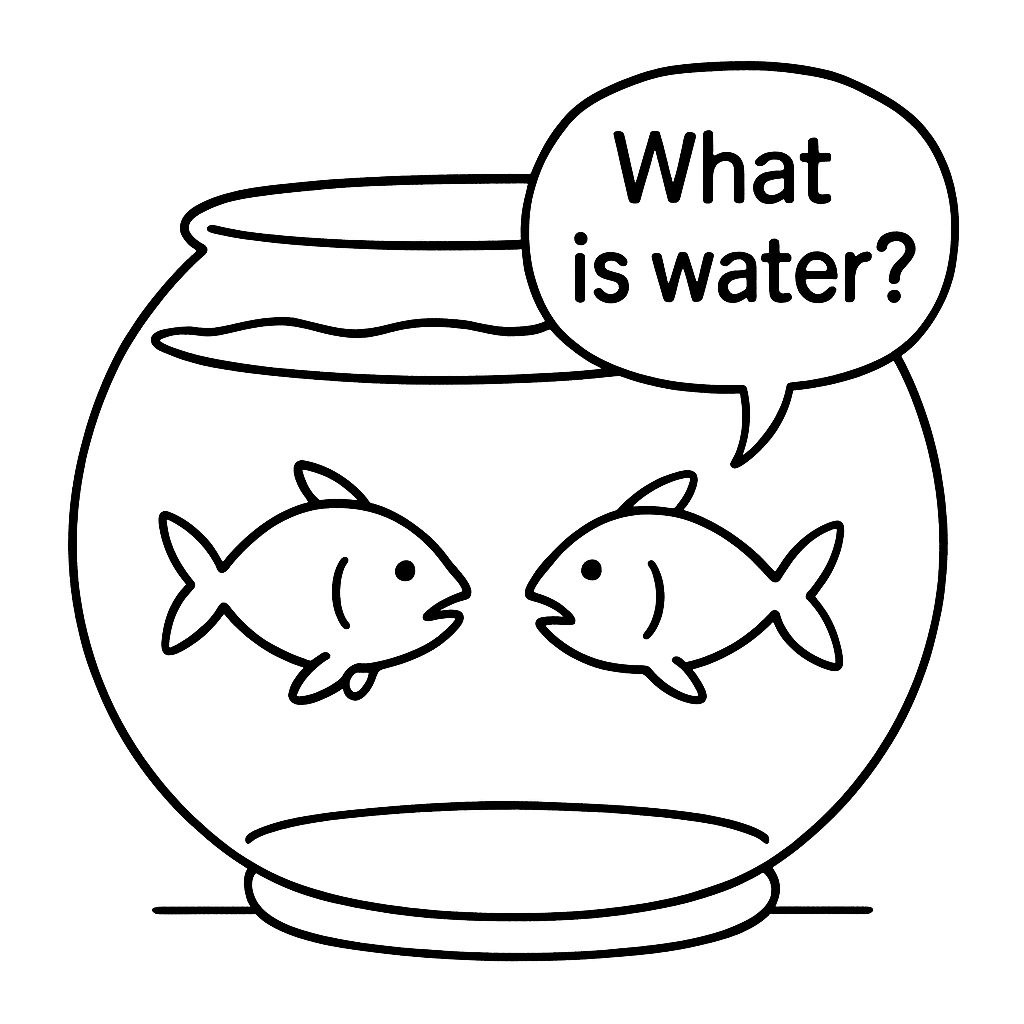

Why Ideologies Matter in Management
In both management studies and organizational practice, we often try to keep things “neutral.” We speak of best practices, evidence-based strategies, or performance indicators as if they were free of values or politics. We rely on technical tools, managerial frameworks, or data-driven decisions often without questioning what lies behind them. But in doing so, we risk masking the political assumptions that shape how we organize and lead.
This is where ideology comes in. I understand ideologies as action-oriented configurations of political ideas. They help us make sense of the world by answering three questions:
1. What is the current order?
2. What would a good society or organization look like?
3. How do we get from here to there?
In that sense, ideologies are always descriptive, normative, and praxeologic. They do not just reflect ideas - they shape how we act. And crucially, every account of “order” also includes an account of power: who holds it, how it is justified, and for what purpose.
This is true in organizational life as much as in politics. Consider how the belief in meritocracy influences hiring, promotion, or evaluation systems. Or how market-based thinking shapes our assumptions about efficiency, value, and impact. These frameworks are not neutral - they are political ideas that carry implicit answers to what kind of organization we believe in and who it should serve.
When we ignore this, we do not escape ideology - we simply leave it unexamined. And when dominant ideologies present themselves as common sense or technical necessity, their influence becomes harder to question. As others have said: the most political act is often claiming something is not political at all.
For both scholars and practitioners, the challenge is not to step outside ideology, we can’t, but to become aware of the one we are part of. That includes understanding the ideas we rely on, the structures we reinforce, and the assumptions we carry forward. It also includes recognizing the possibility for change: ideologies are not fixed. They are shaped and reshaped through structures, practices, and our own thinking.
So instead of asking whether something is ideological, we might ask: What vision of order is being promoted here? Whose interests does it serve? And what alternatives are being made invisible?
Needless to say that this needs to become a fundamental part of management education and research.
16-07-2025

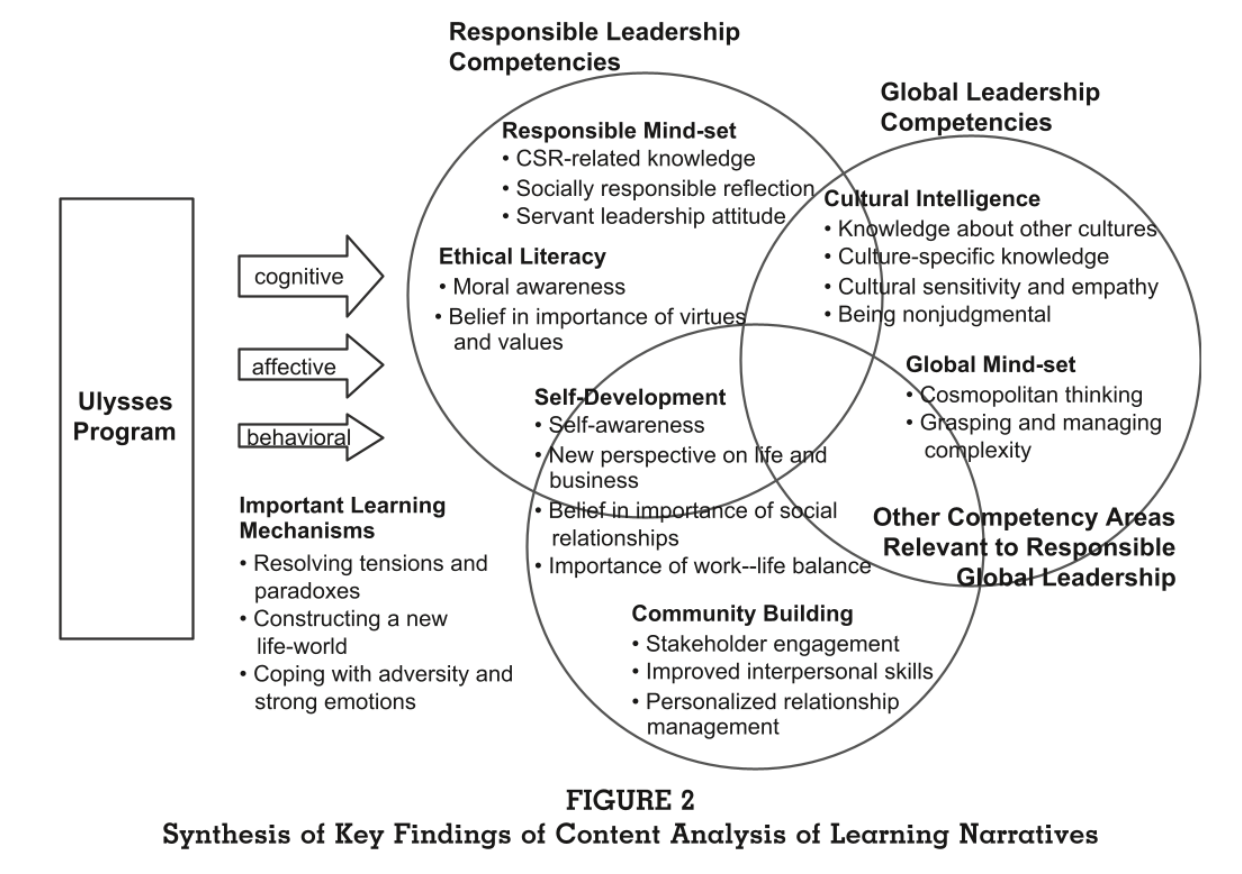

🌍 THE BEAUTY OF SERVICE LEARNING
In an age of geopolitical rupture, cultural fragmentation, and open moral conflict, developing responsible global leaders is becoming more and more of a necessity. Yet most business schools still teach leadership as if the world were stable, predictable, and value-neutral. We tend to train sharp minds, but mostly neglect moral judgment, and we cultivate performance awareness, not ontological awareness; it optimizes within systems but rarely questions their foundations.
That is what makes Project Ulysses such an interesting project. Developed by PwC’s global talent development team, and studied in depth by Nicola Pless, PhD, Thomas Maak, and Günter Stahl, it represents a rare fusion of leadership education and human development. Drawing on Kolb’s experiential learning theory and Mezirow’s transformative learning framework, Ulysses takes participants far beyond the classroom and directly into the moral and cultural complexity of real life.
Over eight weeks, senior PwC professionals live and work in developing countries, embedded in NGOs and community organizations. Their task is not to advise from a distance but to engage, learn, and contribute.
The learning architecture follows Kolb’s full cycle:
✅ Concrete Experience: direct engagement with social and environmental challenges in unfamiliar contexts
✅ Reflective Observation: journaling, dialogue, and storytelling to process cognitive, emotional and moral dissonance
✅ Abstract Conceptualization: connecting lived experience to broader ethical, cultural, and systemic insights
✅ Active Experimentation: translating new awareness into changed behavior—in leadership and life
The program is supported by deep pedagogical scaffolding: conceptual teaching, peer feedback, coaching, mindfulness practices, and team and guided reflection. The result, as per this study ( 👇 ) seem to have led to true personal transformation.
✅ Participants reported moral growth and sharper ethical awareness
✅ They developed cultural humility and a bigger circle of moral concern
✅ They acquired a cognitive capacity that embraces ambiguity and contradiction
✅ Many underwent a re-evaluation of their values, purpose, and identity as leaders.
This is what Mezirow called a “perspective transformation”- a shift in how one understands the world and oneself within it. And it cannot be achieved through cases or simulations alone.
This is the beauty of service learning: it has the potential to educate the whole person. It confronts leaders with the real, the relational, and the uncomfortable and thereby invites them to grow through it.
We clear need much more business school education like this. Not only frameworks, but also formation. Not only technical competence, but also moral courage. Not more "best practice" management, but leadership for an uncertain, interdependent world.
Link to article: https://doi.org/10.5465/amle.10.2.zqr237
15-07-2025

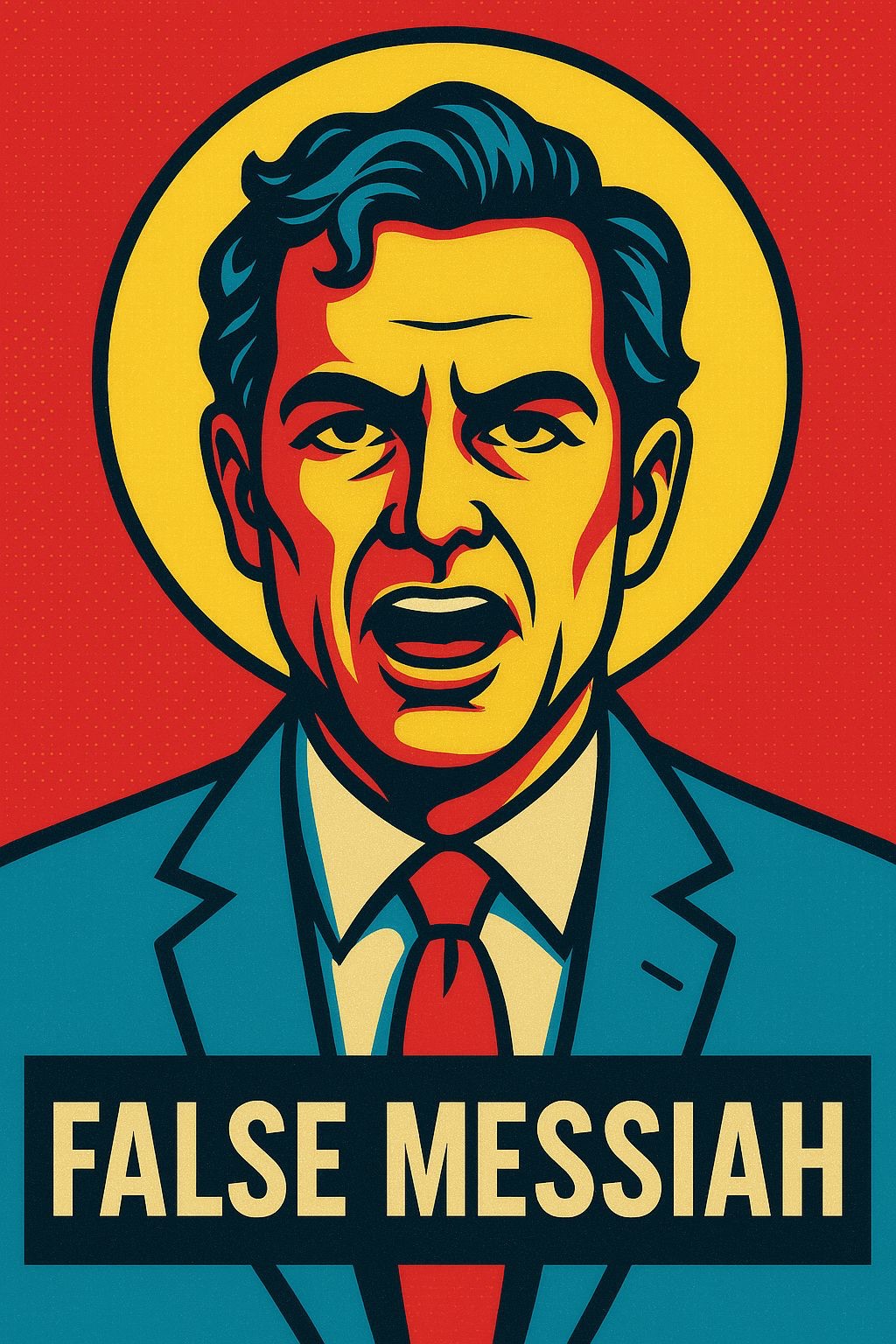

It feels like we’ve re-entered an age of messianic leadership - a term Simon Western uses to describe our longing for haloed figures who not only claim to know the right path, but who also are claimed to embody moral virtue, inspire us, ignite our inner spark, and somehow make each of us feel special.
Not only do we seem to crave such superhumans (or are they now transhumans? 😉 ), we amplify their mythos in the echo chambers of social media. And yes, research offers clues about this urge: perhaps it stems from deep insecurity, a yearning for protection, or from the illusion that those who have “made it”- the wealthy, the admired - must somehow be the chosen ones. Who knows?
But when such charisma is fused with a redemptive narrative be it New Work, heroic entrepreneurship, teal, or some other “liberating” blueprint for turning organizations into (often) meritocratic dream-machines - our critical faculties often fall silent. We’re seduced by the promise of success, freedom, and excellence, while neglecting the darker sides of these leaders and their business models.
Take Bill Anderson, for example - appointed CEO of Bayer in 2023, tasked with transforming a company burdened by the toxic legacy of Monsanto. Charismatic and fluent in the language of agile empowerment, Anderson has pushed for radical decentralization and cultural renewal. In his public messaging, he speaks of the need for “courage to go places previously unexplored,” encouraging employees to call out problems, take risks, and act with clarity.
And yet, behind this halo remains an agrochemical empire whose structural logics remain largely untouched. Under Anderson, Bayer continues its aggressive lobbying efforts by opposing stricter EU regulations on glyphosate, promoting deregulation of gene-editing technologies, and resisting calls for greater transparency in pesticide safety data. According to watchdogs such as Corporate Europe Observatory and LobbyControl, Bayer remains one of Brussels’ most influential corporate players, even as it publicly champions values like sustainability and integrity.
That’s precisely why we must look at the whole package. Not just the leader’s words, but the business model. Not just the change narrative, but the systems that persist underneath. Is the transformation really tackling those issues which are clearly negative for the world? Are incentives changed and wealth better handled? Is there real change in the value chain? We must ask not only what inspires us, but what’s obscured by that inspiration. We need more than dazzling success stories. We need courage, yes - but the kind that transforms structures, not just slogans. We need integrity, justice, and organizations that serve the common good - not just the “better woman” who wins. Or not?
13-07-2025



MEANING GOOD DOES NOT MEAN GOOD
Why Corporate Social Responsibility (CSR) is often bound to fail.
Capitalism doesn’t run smoothly. Rather it runs on contradiction. Exploitation and inequality. Ecological overshoot. Declining trust in institutions. These ruptures threaten the system’s legitimacy and its survival. But instead of forcing transformation, CSR helps seal the cracks.
As Schneider (2020) argues, CSR plays a systemic role: it stabilizes capitalism by managing its contradictions, not resolving them. It integrates critique into business-as-usual, preventing rupture while keeping the logic of accumulation intact.
🔹 1. Market Deepening (Economic Contradiction)
To stay competitive, firms rely on low-cost global supply chains. Yet pressure mounts for fair wages, safe conditions, and sustainability. CSR answers with supplier codes, audits, certifications. But who pays? Typically, not the lead firm. The costs are pushed upstream to small suppliers, workers, NGOs. In effect, CSR deepens commodification by pulling new actors and relationships into capitalist circuits under the guise of responsibility without altering how value or risk is shared.
🔹 2. Symbolic Expansion (Moral Contradiction)
Capitalism lacks an inherent moral language, yet firms must justify themselves. CSR fills the void but only in managerial terms: KPIs, ESG scores, dashboards. Moral complexity is flattened into metrics. Reflection becomes a reporting duty. Audit culture and functional stupidity abound, This symbolic expansion allows the system to absorb dissent by translating it into audit categories. Ethics is no longer about asking whether growth should be questioned rather it’s about proving it’s “sustainable.”
🔹 3. Political Legitimation (Political Contradiction)
Structural harm calls for systemic reform. But CSR offers an alternative: stakeholder dialogues, sustainability reports, voluntary pledges. These deflect demands for binding regulation. Instead of democratizing power or redistributing wealth, CSR legitimizes corporate autonomy. It offers credibility without transformation by ensuring the system can reproduce itself politically through narratives of care, not constraints on capital.
Schneider’s conclusion is sobering: CSR doesn't fail because it falls short—it fails because it functions exactly as the system needs it to. It helps capitalism adapt, not evolve. It reframes harm as strategy, dissent as engagement, and responsibility as brand.
👉 And yes, newer forms like B Corps risk the same trap. Even with better intentions, they often moralize without politicizing, individualize systemic issues, and uphold voluntarism over regulation. The pathologies might repeat unless the system truly changes.
Why must care, sustainability, and ethics always pass through the market?
📖 Link to article: https://journals.sagepub.com/doi/abs/10.1177/0007650319856616
12-07-2025

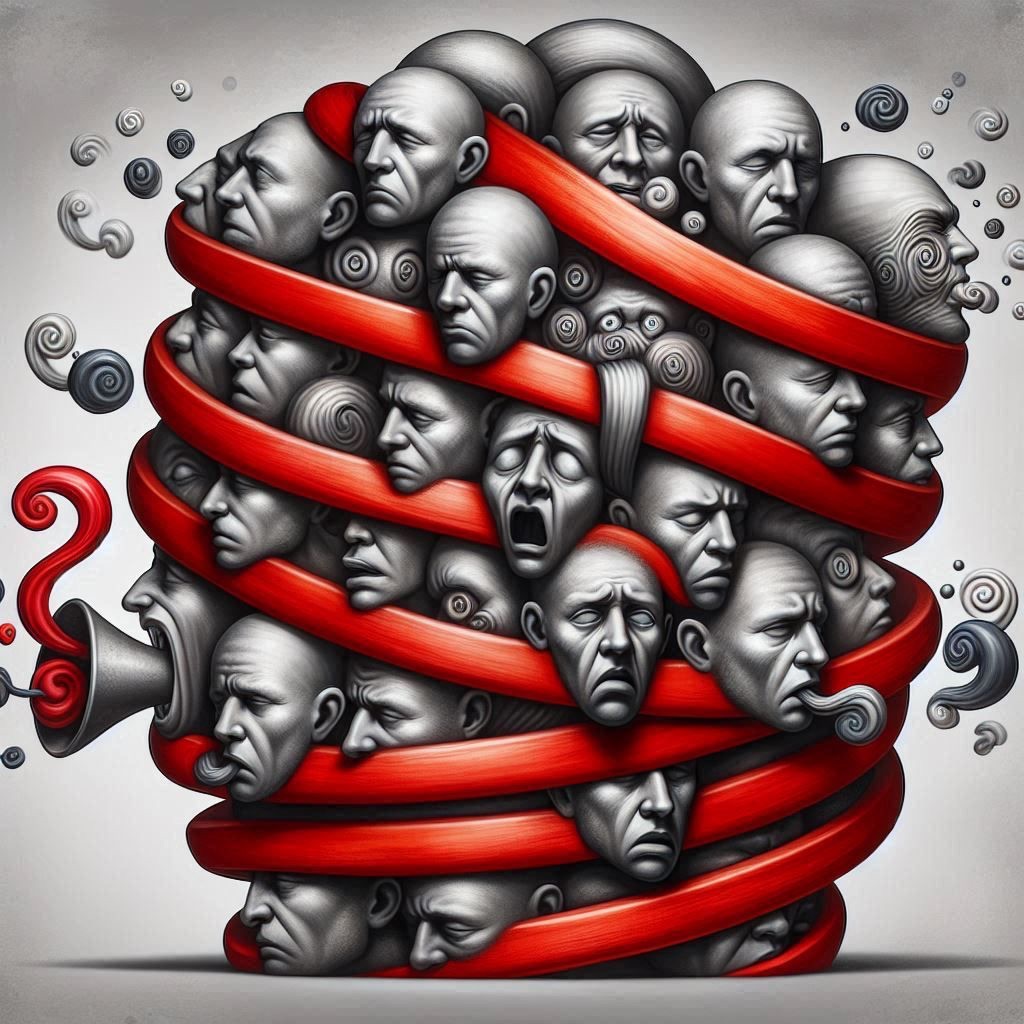

MORAL DISENGAGEMENT IS NOT NORMALLY DISTRIBUTED—NOR NORMAL
A colleague recently claimed that since most people are decent, we don’t really need to worry about morality or responsibility in organizations. Just hire smart, competent people—and everything else will take care of itself.
I beg to differ—loudly.
Research on moral disengagement tells a more troubling story. Moral disengagement refers to the mental maneuvers we use to act against our values without feeling guilt - like euphemistic labeling (“just business”), diffusing responsibility (“just following orders”), or dehumanizing others (“they brought it on themselves”). Yes, some individuals are more predisposed, for instance those high on narcissism, psychopathy, or Machiavellianism. But these are indeed the exception, not the rule.
The real danger lies elsewhere: organizations themselves can systematically produce moral disengagement.
A major review by Newman et al. (see comment 👇 ) shows how performance pressure, rigid hierarchies, silencing climates, hypercompetitive structures, and workplace injustice don’t just enable unethical behavior but make it even feel reasonable. These settings deactivate people’s moral self-regulation. Even decent, well-meaning employees begin to rationalize harm and disengage from responsibility.
And this matters. We spend 85,000 hours of our lives inside organizations. If those environments are designed around targets, efficiency, and control, without moral safeguards, then we’re not just risking isolated misconduct. We’re engineering moral apathy at scale.
So no (!) technical competence is not enough. It never was. The question isn’t just “can people do the job?” but “what kind of human being and humman community does the job turn them into?”
Because organizations don’t just reflect our character. They form it.
04-07-2025

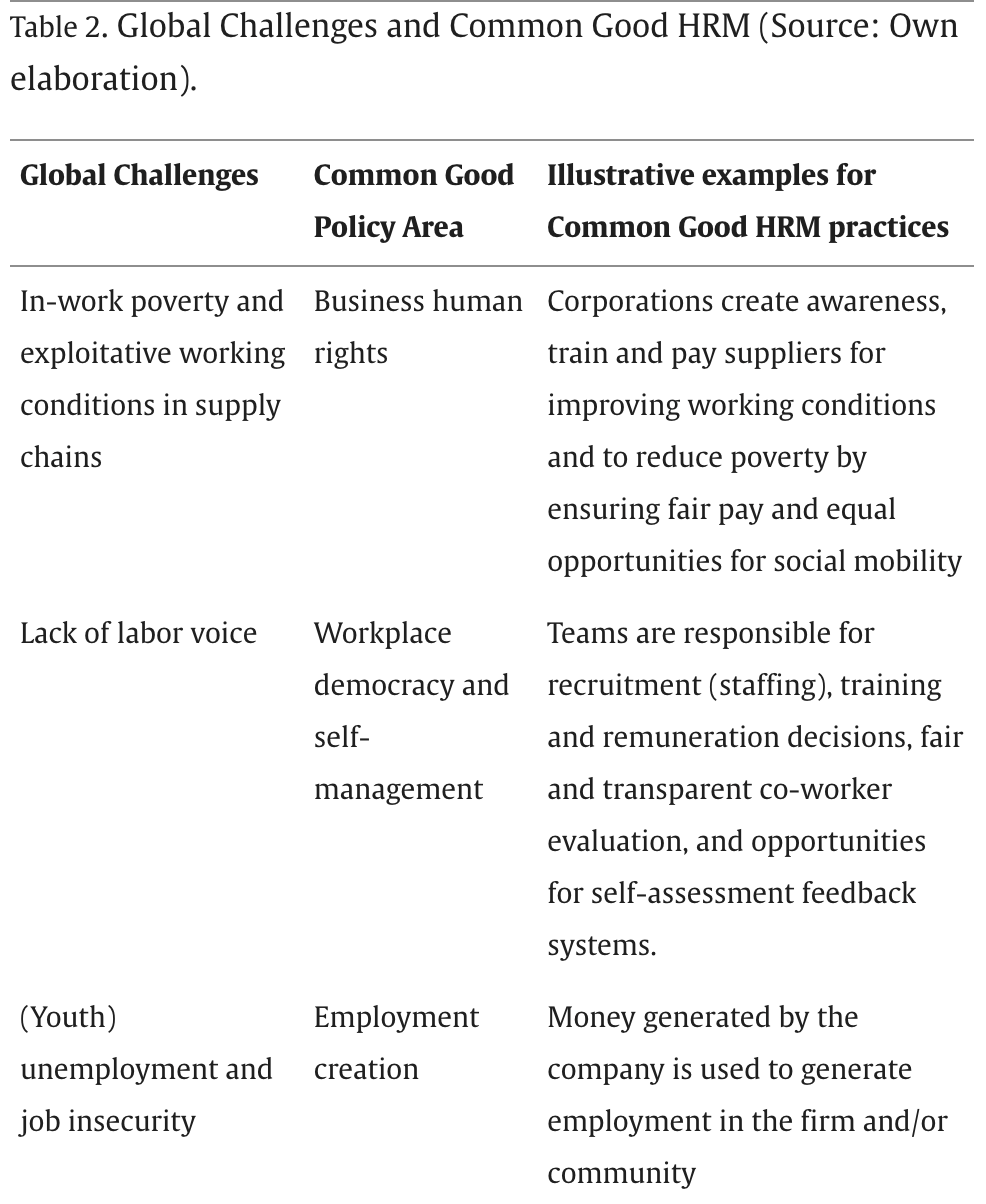

✨ I’ve long appreciated Prof. Dr. Ina A.’s work from her early research on trust to her later studies on sustainable HRM. But this paper, co-authored with Michael Muller-Camen and Brian Matthews, and building on the sustainability paradigm of Prof. em. Dr. Thomas Dyllick (emeritus professor at the University of St. Gallen), is the one I’d most love to recommend to all of you who are reimagining the future of work.
📘 In “Common Good HRM: A Paradigm Shift in Sustainable HRM?”, the authors leave the narrow logic of instrumentalism behind. They ask a bold (and in my opinion) the right question:
What if HR didn't just serve the company but truly served society?
Drawing from Dyllick & Muff’s business sustainability typology, they outline four types of Sustainable HRM and introduce a new fourth type: Common Good HRM, which reframes HR as a lever for social, ecological, and human flourishing.
🔍 A Quick Summary of Their Typology:
1️⃣ Type 1: Socially Responsible HRM
→ Focused on diversity, well-being, and safety but mainly to reduce reputational or legal risks. This approach treats social responsibility as an add-on to the core business model, not something that reshapes it.
2️⃣ Type 2: Green HRM
→ Promotes environmentally friendly behavior (e.g., green training, green bonuses), but framed as a business strategy. While it engages ecological issues, it still operates within a logic of cost savings, branding, or compliance.
3️⃣ Type 3: Triple Bottom Line HRM
→ Aims to balance people, planet, and profit. Yet this often leads to unresolved tensions and trade-offs. It opens space for dialogue and innovation, but frequently defaults to economic priorities in moments of conflict.
4️⃣ Type 4: Common Good HRM 🌍
→ A true paradigm shift: HR becomes a vehicle for solving grand societal challenges like inequality, climate change, and precarious work. Here, the purpose of the firm is redefined. And HR creates conditions for human dignity, democracy, and sustainability.
💡 What Common Good HRM Does Differently:
✅ Outside-in perspective: Begins with the needs of society, not just firm strategy.
✅ Human rights in supply chains: HR takes responsibility beyond company walls.
✅ Workplace democracy: Hiring, feedback, and compensation become shared responsibilities.
✅ Job creation as a purpose: Employment is not a cost but a value in itself.
One standout example: Sonnentor, an organic tea and spice company rooted in the Economy for the Common Good movement. Their HR approach includes hiring long-term unemployed and people with disabilities as a matter of principle, not charity. They deliberately avoid full automation, investing instead in manual, meaningful work that sustains local employment and human dignity.
🧭 This is for all of you who truly want to go further—who believe HR can be more than a function. It can be a practice of care, a force for justice, and a cornerstone of a future where humans, nature, and the economy flourish together.
📖 Link to article: https://www.sciencedirect.com/science/article/pii/S1053482218303917
01-07-2025

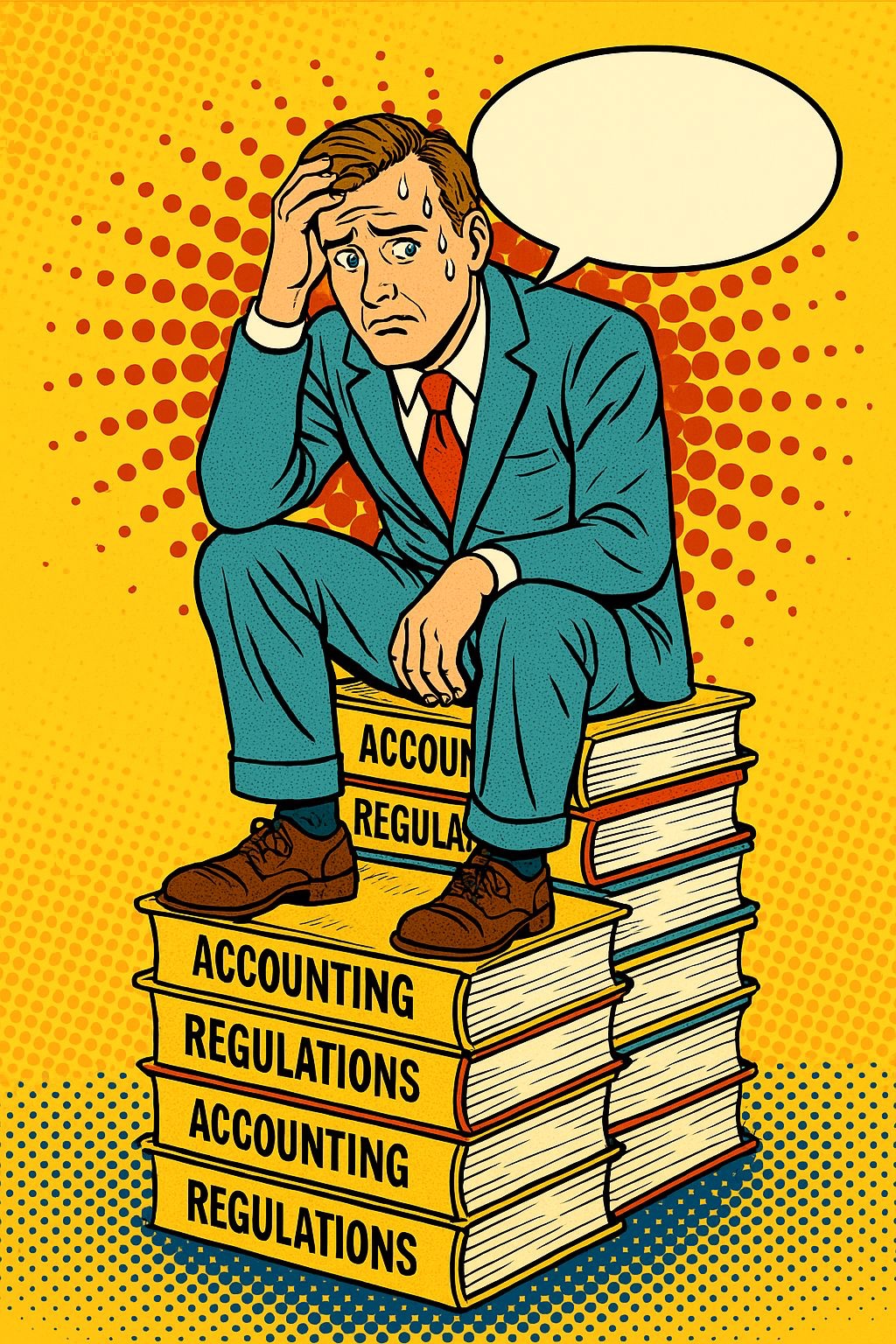

ESG: AGGREGATE CONFUSION
The ESG world is in disarray. A company celebrated as a sustainability leader by one rater may be labelled a laggard by another. This isn't a rounding error, this seems to be a structural confusion. And the consequences are far-reaching: for investors, firms, researchers, and regulators alike.
A recent paper by my colleague Julian Kölbel, together with Florian Berg and Roberto Rigobon, reveals the depth of this problem with empirical precision and conceptual clarity. In Aggregate Confusion: The Divergence of ESG Ratings (Review of Finance, 2022), the authors examine ESG ratings from six major agencies - KLD, Sustainalytics, Moody’s ESG, S&P Global, Refinitiv, and MSCI - and ask: Why do they disagree so much?
Their answer? It’s not just noise. It’s systemic.
THE PROBLEM
Correlations as compiled by other papers between overall ESG ratings range from 0.38 to 0.71 - far from reassuring. But it gets worse as their own analysis shows. At the category level, say, “climate risk management” or “labor practices”, correlations are often low, and sometimes even negative. That means one agency may rank a company high on, say, water management, while another gives it a low score on the exact same issue. This is not just divergence—it’s contradiction.
THE DIAGNOSIS
The authors dissect this chaos into three drivers:
🔶 Scope divergence (38%): agencies include different ESG issues.
🔶 Measurement divergence (56%): even when they look at the same issue, they assess it differently.
🔶 Weight divergence (6%): agencies prioritize issues differently.
The real "villain" here is measurement, i.e. the “how” of ESG, not just the “what” or “why”. Adding to the concern is a documented rater effect (15% of variation): agencies tend to rate firms consistently high or low across categories, suggesting subjective bias or organizational blind spots.
WHY THIS MATTERS
Such divergence weakens incentives for firms to improve, muddles investor decision-making, and undermines the legitimacy of ESG as a signal. It also limits our ability to link ESG to firm value, performance, or ethical behavior in academic research or policy frameworks.
THE WAY FORWARD
Berg, Kölbel, and Rigobon do not argue against ESG ratings per se. Rather, they emphasize the urgent need for:
🔶 Harmonized disclosure standards (like those under the CSRD),
🔶 A clear EU-wide taxonomy of ESG categories,
🔶 And greater transparency in how ESG data is generated and interpreted.
THE TAKEAWAY
If ESG is to live up to its promise, we need more than good intentions. We need clarity, consistency, and credibility. Otherwise, we create a system where opacity rewards those least committed to change.
📖 Full (open access) article here: https://lnkd.in/df38A34j
29-06-2025

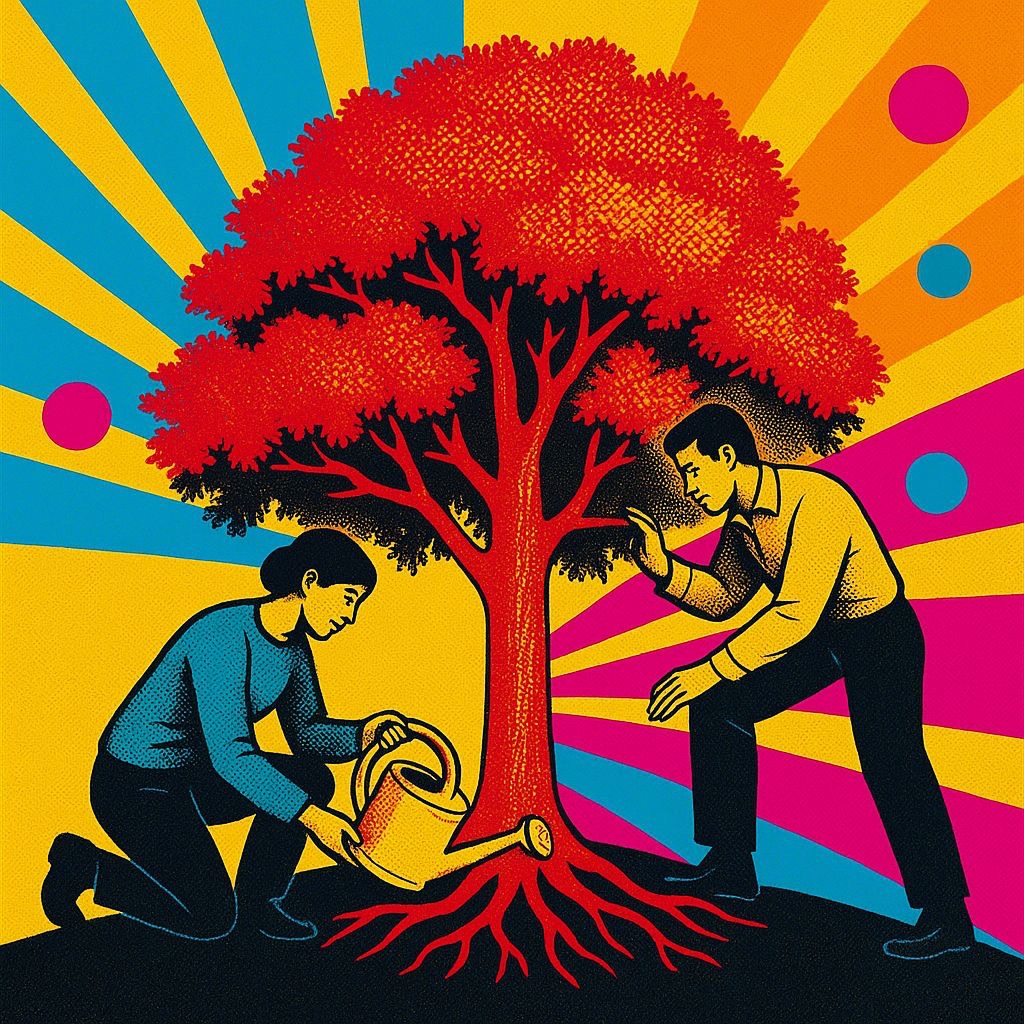

What would happen if we understood security not only as freedom from fear, but as a moral maturation environment?
👉 In the tradition of Lawrence Kohlberg, this is exactly what has been researched – under the term "Socio-Moral Climate" (SMC).
In an empirical study, Pircher, Verdorfer, Weber, Unterrainer & Seyr (2012) show:
Organizational democracy fosters a climate in which people feel not only safe, but also morally taken seriously, included, and called to account.
What characterizes such a climate?
1. Open confrontation with conflicts
2. Diversity of perspectives is recognised and discussed
3. Taking responsibility and care are encouraged
4. Participation in decision-making processes
5. Mutual respect and appreciation
Why is this important?
Because a socio-moral climate not only strengthens the thinking capacity, but also promotes the moral development of employees – and thus also the democratic resilience and ability to cooperate in the company.
And this is where Responsible Leadership comes into play:
Responsible leadership does not only mean making ethical decisions – but also creating ethical spaces. Spaces in which conflicts are not avoided, but thought through together. In which people are allowed to learn to be responsible instead of just "performing". (See also https://lnkd.in/d47BUwSC)
Leadership then does not mean control, but:
🧭 create the conditions for moral maturation
🤝 exemplify dialogical practices
🪞 see themselves as fellow learners
But: SMC is not a soft skill – it is a systemic construct! If you want to promote such a climate, you also have to rethink cooperation:
🔸 Enable participation in decision-making
🔸 Do not dampen conflicts, but work through dialogue
🔸 Valuing different points of view
🔸 Creating spaces where responsibility is shared
🔸 Understanding leadership as an enabler of moral development
Final Thought:
Psychological Safety is a start. But in a time of multiple crises, organizations need more than that. We need to take responsibility, the ability to be democratic, and the will to shape things together. This is exactly what promotes a socio-moral climate – if we take it courageously and systemically seriously.
📚 Source: Pircher Verdorfer, A., Weber, W. G., Unterrainer, C., & Seyr, S. (2012). The relationship between organizational democracy and socio-moral climate: Exploring effects of the ethical context in organizations. Economic and Industrial Democracy
27-06-2025



In my last post, I explored Dirk Matten’s idea that fascism isn’t just a political regime but that it’s a managerial ideology: one that promises to solve social problems through control, order, and depoliticised administration.
But these ideologies don’t emerge in a vacuum.
To understand where they flourish today, we might want to turn back to a paper that examined the so called Californian Ideology - a cultural fusion of three unlikely figures: the hippie, the nerd, and the libertarian.
In the 1990s, Barbrook and Cameron (https://lnkd.in/d2XcH4nd) showed how Silicon Valley combined countercultural dreams, hacker ethos, and free-market zeal to produce a seductive narrative: technology would liberate us but of course only if the state stayed out of the way.
At first, it had utopian qualities. An electronic agora. Radical decentralization. Liberation through connectivity.
But underneath, the contradictions ran deep.
♒ The hippie brought dreams of freedom but soon swapped collective struggle for lifestyle individualism and egocentric yoga optimisation.
⚛️ The nerd brought curiosity and code but ended up building monopolies and surveillance empires.
🗽 The libertarian brought suspicion of authority yet sanctified the market as a new form of domination.
Together, they built an ideology that promised individual empowerment, while ignoring the systemic exclusions on which that freedom depended: racialised labor, digital redlining, and public infrastructure built through collective sacrifice.
As inequalities deepened, the ideology had no answers. It had already deleted the concept of society.
And here - already in the 80ies enter the “angry white male.” As Barbrook and Cameron foresaw, this culture slid easily into reactionary politics. Tech elites sided with Gingrich, celebrated deregulation, and distanced themselves from “undeserving” populations. Libertarian dreams gave way to gated platforms, encrypted currencies, and post-human fantasies of transcendence.
The result? A techno-culture that preaches liberation while managing populations, enforcing fragmentation, and calling it “innovation.” This is where Matten’s fascist managerialism finds its first life. When contradiction is surveilled and manipulated rather than addressed, when freedom is reserved for the few, when code replaces law and efficiency trumps justice. We don’t get a revolution. We get a digitised restoration.
And its prophets still think they’re rebels.
But the funny thing is that the authors put their hope in Europe - as the place with a social democracy, with a democratic culture, with an understanding of egalité and fraternité and not only liberty. Will Europe finally accept the call and step into the "Schlamassel" - speak up, stay with at least some solidarity? Or will we have these tech bros letting to take over?
26-06-2025



What if fascism isn’t just a relic of history but a live ideology re-emerging in today’s management culture?
In a provocative new paper (https://lnkd.in/dtEas_Uv) Dirk Matten argues that while today’s tech elites aren’t overt fascists, their style of leadership, treatment of stakeholders, and view of the future eerily echo fascist ideology: strongman authority, glorified purpose, contempt for democratic messiness, and the fusion of power with moral destiny.
This isn’t just about bad people. It’s about the ideological structure of management itself.
For much of the 20th century, corporate governance was shaped by liberal-democratic ideals—balance, professionalism, stakeholder negotiation. But Matten shows that these ideals have eroded. Late-stage neoliberalism didn’t just replace democracy with markets and it made way for a new logic: visionary founders as sovereigns, answerable only to their mission.
🔹Elon Musk: “When I ask for something, you fucking give it to me.” Authority becomes destiny.
🔹Peter Thiel: “Competition is for losers.” Stakeholders become means to an end.
🔹Mark Zuckerberg: Society, he says, is “neutered”—we need more masculine energy.
🔹Marc Andreessen: “Everything good is downstream of growth.” Tech becomes moral compass.
Matten’s argument is clear: these companies don’t just shape the economy. They embody and spread a new moral order, one that romanticizes hierarchy, suppresses pluralism, and rebrands domination as innovation.
And this is not a sideshow; it’s mainstream. In VC circles, TED stages, and founder cults, we see a management style that is charismatic, anti-political, and aggressively utilitarian. When power wears a hoodie and calls itself “disruption,” it becomes harder and not easier to question.
🧭 Still, Matten’s critique isn’t flawless. It doesn’t fully address the contradictions within progressive liberalism or the ways other management ideologies contribute to the current moment. The risk: overplaying one dark pattern while underexamining others.
But his core question remains essential:
If management always embodies ideology - then whose ideology is winning?
Link to article: https://doi.org/10.1037/a0034515
25-06-2025

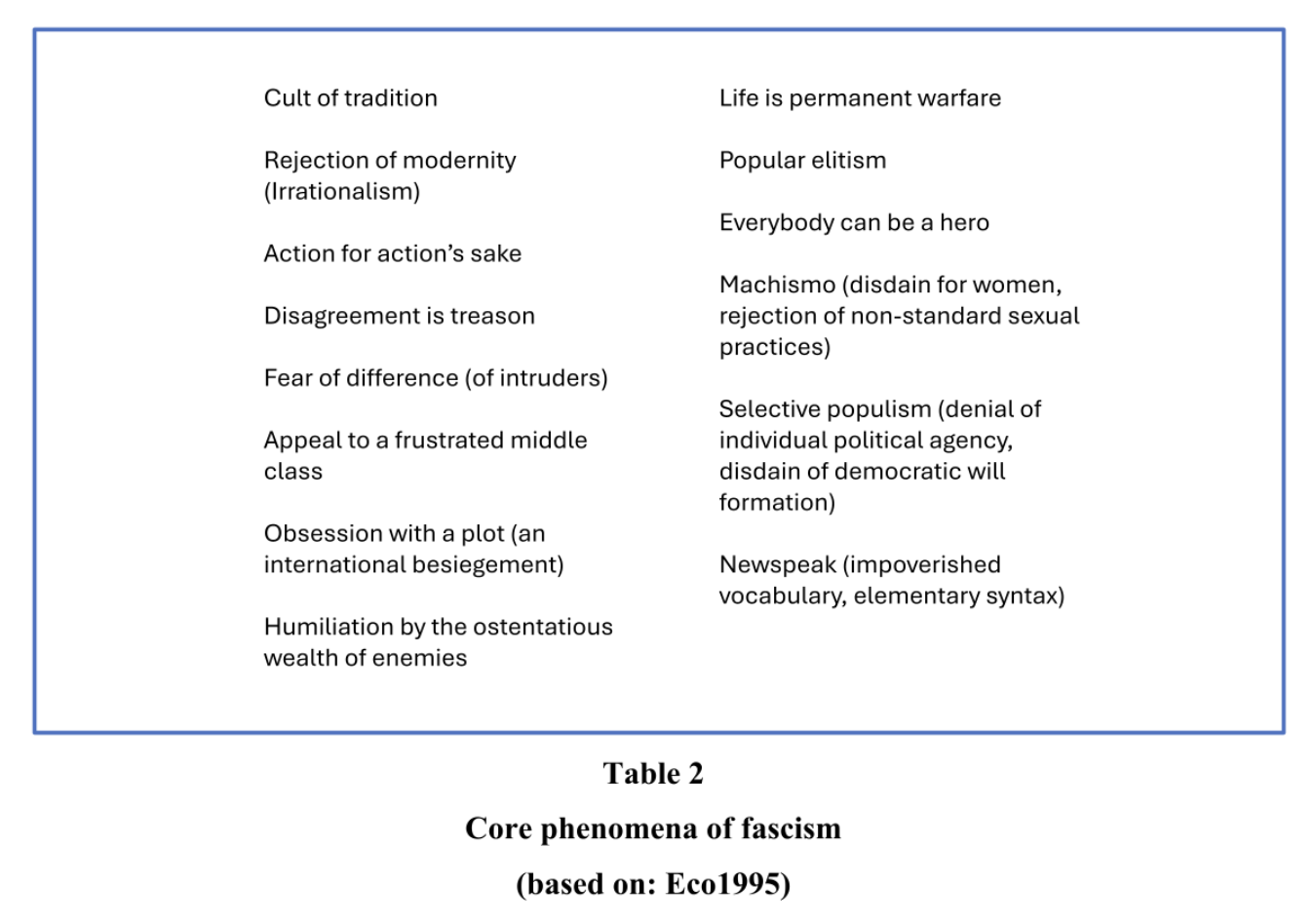

In his provocative and well-argued paper Fascism as a Management Philosophy, Dirk Matten makes a daring claim: fascism is not just a political danger of the past: it is resurfacing today through corporate leadership, especially in Silicon Valley. Drawing on Robert Paxton’s five-stage model of fascist movements, Matten argues that corporations today exhibit several defining features of fascism in their organizational and moral logic. The central thesis is not that companies are becoming fascist regimes in the classical sense, but that they increasingly mirror fascism’s philosophical core: the glorification of strongmen leaders, the instrumentalization of people for mission, the rejection of pluralism, and a faith in technology and destiny over democratic deliberation. What emerges is not just a critique of individual CEOs or practices, but a powerful narrative of how contemporary capitalism may be incubating forms of authoritarian moral order. This is a sober reflection on how corporate ideology is shifting from pluralist ethics to technocratic power.
Matten illustrates this by identifying four domains in which fascist logic has crept into management:
1️⃣ Leadership Styles: Fascist leadership thrives on personal charisma, central authority, and the silencing of dissent. Elon Musk has cultivated exactly such a persona. He has called himself a “nano-manager,” fired employees for questioning him, and famously tweeted: “When I ask for something, you fucking give it to me.”
2️⃣ Stakeholder Relations: In fascist logic, people exist to serve the mission. Peter Thiel expresses this instrumental view bluntly: “Competition is for losers… monopoly is the condition of every successful business.”
3️⃣ Patriarchy and Disdain for Minorities: The rejection of pluralism also manifests in gender and race dynamics. Mark Zuckerberg once claimed:
“Society has become neutered… we have embraced feminine energy too much.”
4️⃣ Mystification of Technocapitalism: Where fascism mystified the nation or race, today’s technocapitalism mystifies the company. Marc Andreessen’s Techno-Optimist Manifesto declares:
“We believe everything good is downstream of growth.” The corporation becomes a sovereign actor, animated by destiny, not bound by democratic oversight.
One word of Caution: Matten’s paper is a powerful and convincing critique of authoritarian drift in Silicon Valley. Yet, in highlighting the shadows of management, it sometimes flattens the landscape overlooking the pluralism within other leadership philosophies and avoiding a deeper critique of progressive liberalism’s own blind spots. Still, it is a timely and necessary provocation- one that forces us to ask not just where leadership is going, but what moral orders we are building along the way.
Link to article: https://papers.ssrn.com/sol3/papers.cfm?abstract_id=5203477
24-06-2025



In an open letter in the Guardian, 31 Nobel laureates and hundreds of intellectuals warn of the return of fascism. Her words are clear:
"The threat of fascism is back – and it is growing on the fringes as well as in the centers of world politics. Silence is no longer an option."
It is a rare but necessary moment: people whose authority is based on knowledge use their voice – not for reputation cultivation, but for public responsibility! (see here: https://lnkd.in/dHgU4KV5)
France stands for the tradition of the intellectuel engagé – the morally speaking individual who takes sides on principle. With J'Accuse, Émile Zola opposed anti-Semitic state arbitrariness in the name of universal justice. Simone de Beauvoir publicly fought for equal rights and against patriarchal structures with language that defended human rights, not relativized them.
In the USA, a different tradition was formed: resistant pragmatism. Cornel West speaks from an experience that is not abstract, but historically wounded – he calls America's betrayal of its promises by its name. Judith Butler defends the dignity of vulnerable bodies against state control as a critical corrective to the liberal order (for the differences, which sometimes lead to misunderstandings, see below).
We are living in a time of moral tests: in Gaza, in Ukraine, in the election campaigns of Western democracies. What unites these moments is not only violence, but the supposedly ideological gutting of public language. Euphemisms replace analysis. PR replaces attitude.
But right now, intellectuals are needed – not as experts, but as consciences. They have to name the cracks that produce systems. They must be allowed to be uncomfortable.
After all, we are not in a crisis of knowledge. We are in a crisis of courage.
What we need is not more content. But more conscience.
23-06-2025

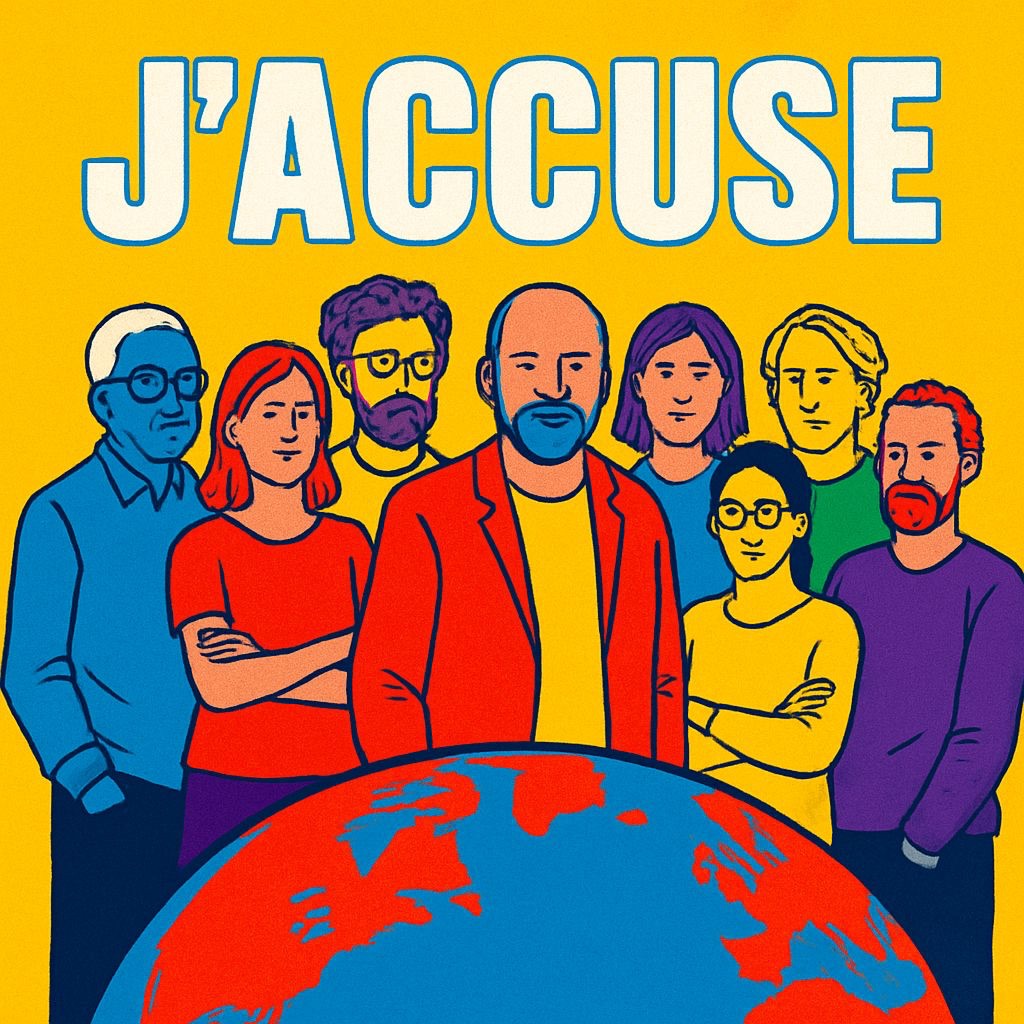

We need the return of the intellectuel engagé; and we need them now.
The French tradition of public intellectuals once held the powerful to account with unflinching moral clarity. Zola’s J’ACCUSE was not a tweet, no it was an act of moral risk. Sartre, de Beauvoir, Foucault, Bourdieu - these thinkers refused silence in the face of injustice, from colonial violence to state repression to neoliberal atomization. They didn’t sell frameworks. They stood firm, even when unpopular.
William James, across the Atlantic, offered a different but equally vital model: the pragmatist intellectual. He warned against “bigness”, i.e. systems that flatten conscience, ideologies that smother experience, institutions that demand loyalty over truth. His heirs include thinkers like Cornel West, who names American imperialism and racism for what they are; Danielle Allen, who works to restore civic trust; Judith Butler, who defends the precarity of life against the rhetoric of control; and Martha Nussbaum, who brings emotional and ethical depth to public reasoning.
Today, when authoritarianism no longer hides, we see both traditions reawaken.
In moments of rupture - think of Trumpism, Gaza, Modi’s India, democratic erosion across Europe -hundreds of scholars and 31 Nobel laureates recently signed a joint letter in The Guardian warning that “the threat of fascism is back.” Among them: Timothy Snyder, Jason Stanley, Masha Gessen, Eric Maskin, Barry Marshall, Daron Acemoglu. These are not consultants or pundits; they are thinkers who name danger when others euphemize it. They remind us that intellectual life is not an academic exercise. It is a form of resistance.
And yet, in this urgent hour, the dominant platforms of business ideas remain silent. Thinkers50, the self-proclaimed “Oscars of Management Thinking,” is a prime example. It elevates voices that optimize organizations, not confront them. Its model rewards performance, clarity, and scalability, but not contradiction, dissent, or moral inquiry. While democracy burns, it celebrates “thought leaders” who sell productivity hacks, culture decks, and agile mindsets. You will find no Timothy Snyder, no Masha Gessen, no Édouard Louis on their lists. Why? Because their ideas are not marketable. They are uncomfortable.
The problem isn’t that Thinkers50 and others promote mediocrity. Rather they promote compliance with power. It thrives on frameworks that assume neutrality in the face of structural injustice. It does not ask what kind of world we are managing as it simply tells us how to manage it better.
We are not in a crisis of intelligence. We are in a crisis of courage. Let’s stop mistaking visibility for virtue. Let’s demand more from our thinkers - because the stakes are no longer theoretical.
Link to article: https://www.theguardian.com/commentisfree/2025/jun/13/nobel-laureates-fascism
22-06-2025

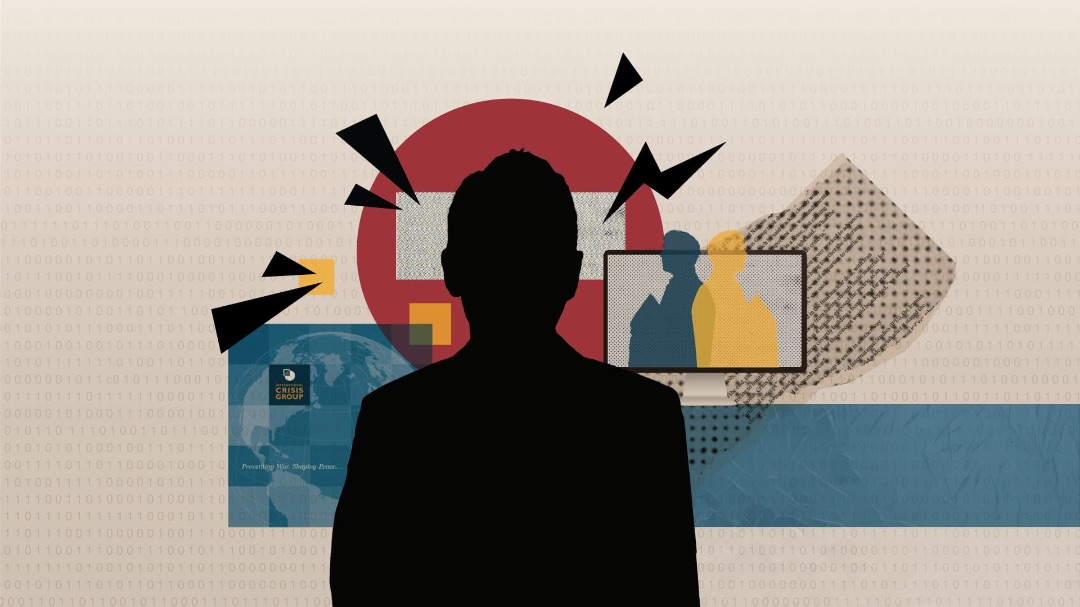

Why does misinformation remain so dangerously effective even when disproven? Lewandowsky et al.’s review (👇deep dive) into the psychology of misinformation offers a chilling answer: humans prefer a false story over an incomplete truth. If a claim provides narrative closure - like weapons of mass destruction justifying war - its retraction often fails to change beliefs unless a more coherent replacement is offered. Corrections without alternatives leave cognitive voids. And when misinformation aligns with identity, emotion, or fear, it becomes even stickier, surviving in memory long after facts have been clarified.
To counter this, the authors identify four essential strategies:
① replace myths with full alternative explanations;
② inoculate audiences early against manipulation;
③ use credible, trusted sources; and
④ frame corrections without attacking worldviews.
It’s not enough to “debunk.” Corrections must be better stories, ie. timely, human, and explanatory. Without this, the “continued influence effect” dominates public reasoning and history repeats.
This morning, President Trump released a memo warning that Iran is “racing toward nuclear warheads.” No fresh evidence was presented just recycled language. In contrast, IAEA Director-General Rafael Grossi reiterated this week that Iran’s programme remains under international safeguards, with no confirmed weaponisation. The juxtaposition is stark. A politically charged claim, dropped in the heat of a campaign. A scientific body, issuing a measured, evidence-based report. Two stories competing for narrative dominance. Not taking sides here just observing how the terrain is being shaped.
We’ve walked this path before. The Gulf of Tonkin “attack” that justified Vietnam. The invented story of Kuwaiti babies taken from incubators before the Gulf War. The “smoking gun” of Saddam’s imaginary WMDs. Each episode, a turning point. Each driven by emotionally potent but factually fragile claims. Corrections came but far too late to prevent war.
Which raises urgent questions: How should the press respond when emotionally compelling misinformation surfaces again? What duty do other Western governments have when narrative asymmetries shape global sentiment? Can science-led institutions like the IAEA proactively communicate before political storytelling dominates the stage? And most importantly who will write the stronger, truer story first?
Link to article: https://doi.org/10.1037/a0034515
19-06-2025



…but without it, everything gets harder.
That might sound like a commonplace after three days of deep dives into trust research but it’s the insight I take home with most conviction.
Two moments struck a particular chord.
First, our symposium on vulnerability. Andrea Piccaluga opened with examples of regenerative entrepreneurship: businesses that start from vulnerability - whether personal, social, or structural - and turn it into a site of innovation. Entrepreneurs who design solutions inspired by their own struggles or those of people they love. Companies that create dignified work for people whose lives began with fewer options.
But here’s the catch: this kind of regeneration only becomes possible when we trust the vulnerable and when the vulnerable trust that their dignity will be honored. We need more of this kind of entrepreneurship. The world would be better for it.
Second, a set of insights on distrust. It’s easy to talk about trust. Harder to really engage with how distrust unfolds and how it might be reversed. Several colleagues Frédérique Six and Tiziana Gaito showed that once distrust takes root, it operates in insidious ways: self-reinforcing, relationally corrosive.
And yet, it can be brought to the point where at least listening and talking becomes possible again, at least before it calcifies into protracted conflict. But it requires:
💡trusted third parties
💡serious reflexivity
💡humility from those in power
💡and often invisible backstage work long before official dialogue resumes.
All this made Trump’s “deal-making” approach to geopolitics look even more dangerously naive 🙈.
So yes, trust research matters - a lot. But research alone won’t cut it. We need to get our hands dirty in practice. Only then can trust insights become not just interesting, but transformative.

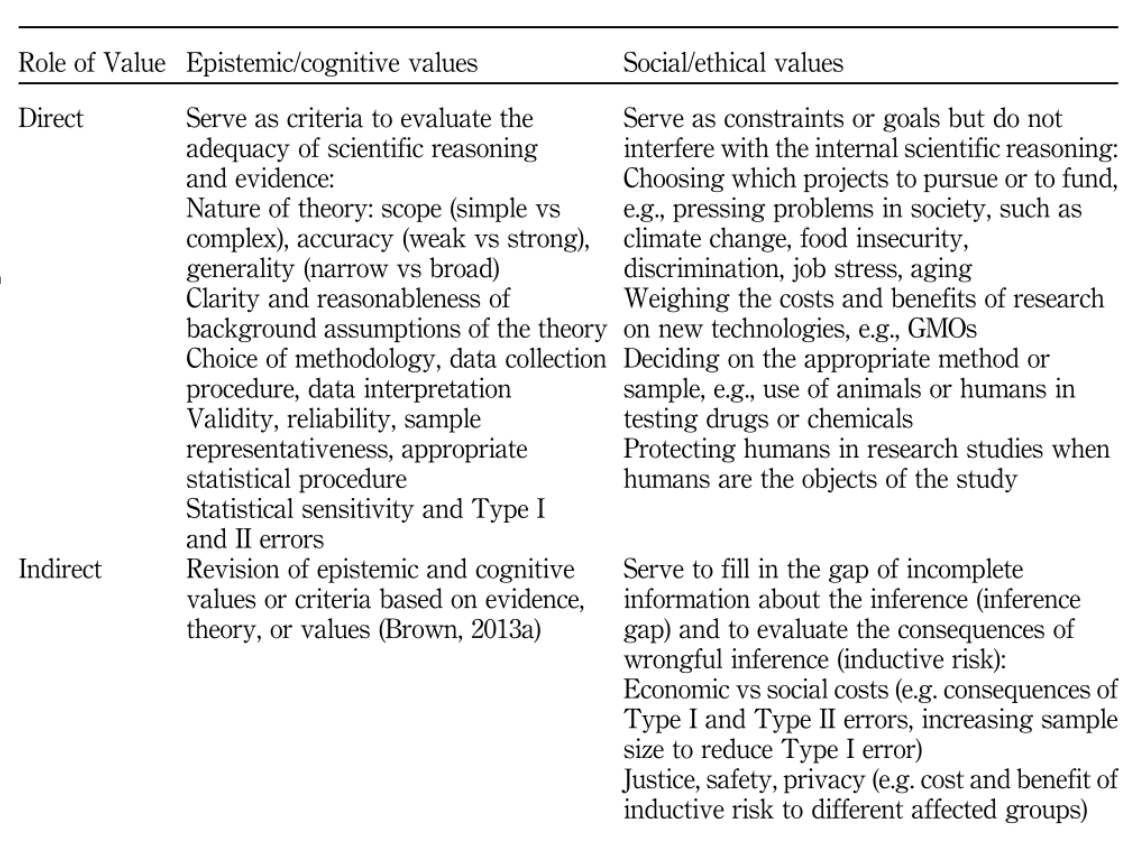

16-06-2025
Anne Tsui’s landmark essay 👇 exposes a silent flaw in (business) research: the enduring belief that science can, and should, be “value-free.” This ideal claims that scientists should pursue only epistemic values like objectivity and validity, keeping moral or political concerns out of their work.
But Tsui shows this is both unrealistic and harmful. In social science, epistemic values themselves are socially and politically shaped. What counts as a valid method, a relevant theory, or a publishable finding often reflects academic norms, career pressures, and journal tastes - not just scientific logic.
Crucially, Tsui highlights inductive risk: every research decision involves a risk of error, and errors have real-world consequences. Choosing to avoid one type of mistake over another (e.g., falsely claiming a CEO pay model works) isn’t neutral. Rather it reflects implicit social judgments.
This brings her to a paradox in business schools: while they claim to seek both rigor and relevance, they often reward neither. Research tends to serve academic prestige rather than social purpose. Peer review punishes novelty. Theory is fetishized over problem-solving. And flawed theories - like agency theory - get normalized despite evidence of harm.
Tsui calls for a shift: Responsible Science. She outlines four reforms:
1️⃣ Choose problems worth solving, not just gaps in theory.
2️⃣ Conduct research with both epistemic and social care—acknowledge risks and consequences.
3️⃣ Publish for impact, not prestige.
4️⃣ Reform peer review to make hidden values visible.
Her call is simple but radical: science must be both rigorous and responsible. Not neutral, but honest. Not insulated, but accountable.
“We cannot afford to pursue rigor without relevance, nor knowledge without conscience.”
My take? “Normal science,” which runs smoothly when the system runs smoothly, reveals its fragility when that system is being abused. If I study trust but fail to show how trust can be manipulated, or if I write about psychological safety but never ask if it's just virtue-washing, then my research, and my thinking, becomes a slave to power. At minimum, we need more reflexivity. But ultimately, I believe science must serve the greater good. And sometimes, that means speaking not just with clarity, but with courage: truth to power.
Link to article: https://doi.org/10.1108/CCSM-08-2015-0101
12-06-2025

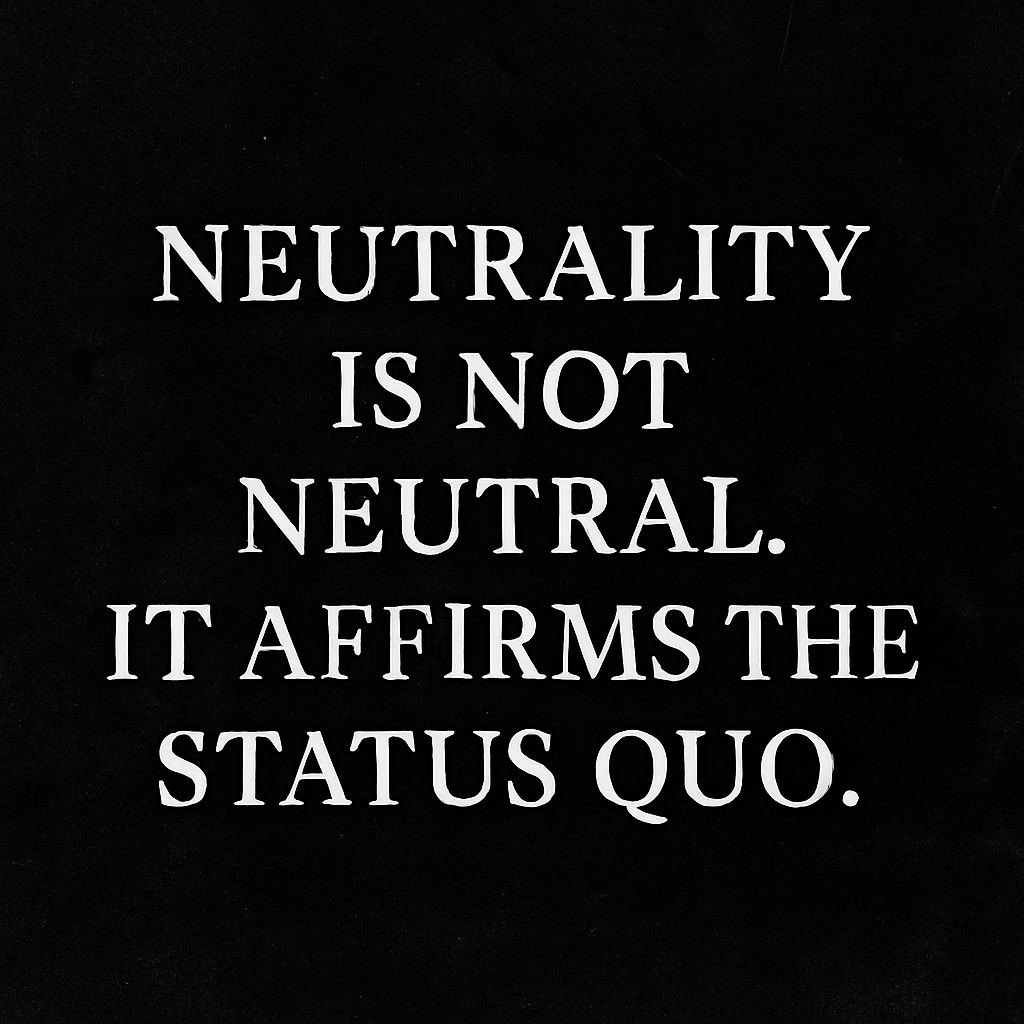

TRUST IS NOT NEUTRAL — AND NEITHER IS TRUSTWORTHINESS
I’ve often heard: „Even the mafia has trust.” So: should trust and above all trustworthiness be morally neutral? Is there really no difference between trusting Trump and trusting Mother Teresa?
Some of our most-used models seem to suggest that. Mayer, Davis & Schoorman’s influential framework defines perceived integrity as “the perception that the trustee adheres to a set of principles the trustor finds acceptable.” In other words: if I think you follow principles I approve of, you’re trustworthy; regardless of what those principles actually are.
This reduces trust to value congruence and trustworthiness to alignment, not ethical quality. No reflection on whether those values are just, inclusive, or life-affirming.
Why does this persist? Maybe because it keeps trust research within the bounds of a liberal paradigm - one that avoids taking a stance on what counts as good or just. But that neutrality is not innocent. By avoiding substance, we legitimize systems that reward performance over principle, utility over virtue.
And there is a cost.
When trust is defined without ethical reflection, we risk flattening important distinctions. We may end up treating instrumental alignment as equivalent to moral integrity. This can obscure how trust functions differently in democratic institutions, exploitative regimes, or purpose-driven organizations. Over time, such minimal definitions make it harder to hold individuals and systems accountable to more than efficiency or loyalty.
But we have alternatives — thinkers who anchor trustworthiness in moral depth:
🔹 Annette Baier reminds us that trust is moral because it involves vulnerability — and trustworthiness means responsibility toward the other’s dependency.
🔹Bernard Barber links trust to social roles and moral obligations, arguing that professions must act with integrity, not just competence.
🔹Robert Solomon sees trust as an emotional-moral commitment, grounded in authenticity, not mere calculation.
🔹Onora O’Neill insists that trustworthiness comes from honesty, competence, and respect for others’ autonomy - a Kantian standard that binds.
🔹Luigino Bruni calls for a relational economy, where trust is rooted in reciprocity and gratuitousness, not strategic alignment.
These views don’t shy away from moral philosophy. They deepen our understandings about trust. They re-moralize it.
So let me ask: If we want a society worth trusting, shouldn’t we start by redefining what makes someone trustworthy? What would it take for trust to be not just useful but just?
10-06-2025

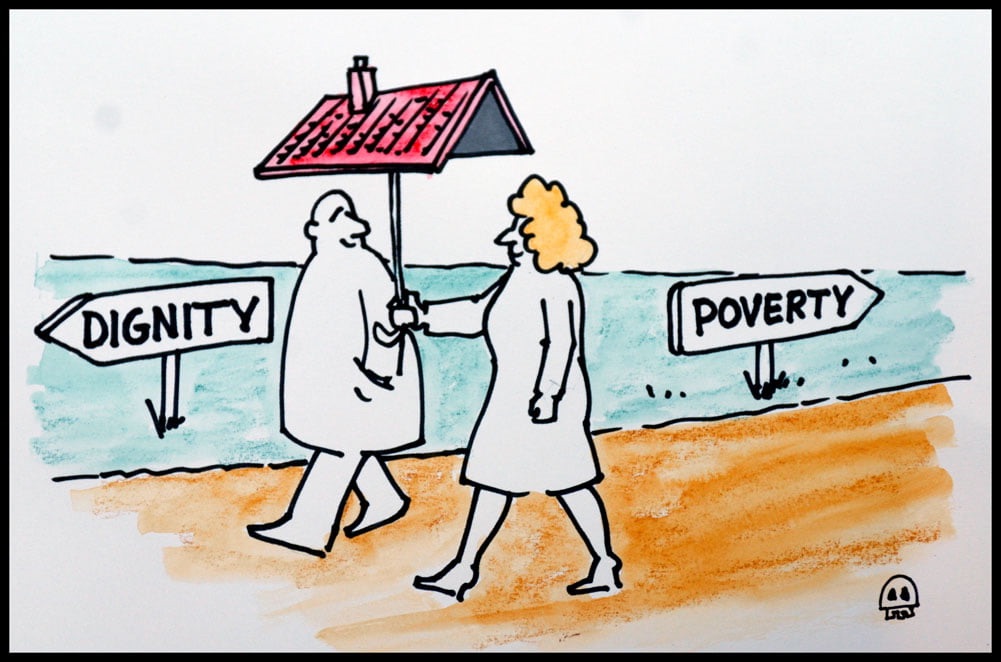

DEEP DIVE: teaching on poverty
Why is poverty still missing from business education? It’s not just an oversight. It’s an ethical failure.
Poverty is treated as a marginal topic in most business schools and if addressed at all, it’s buried under “CSR,” “sustainability,” or framed as a charity case.
But poverty is not peripheral to business. It is a systemic outcome of how global markets are structured, managed, and legitimized.
So why the silence?
Because confronting poverty means confronting uncomfortable truths:
😤That many business models depend on low-cost labor and regulatory arbitrage.
😤That shareholder primacy often rewards value extraction from the vulnerable.
😤That the global economy produces poverty, even as it claims to fight it.
This isn’t just a blind spot. It’s a value choice. We’ve built a curriculum that can track consumer behavior to the millisecond but can’t explain why billions remain economically excluded.
📚 This post draws on an article by Mark Neal (2017), who argues that we must place poverty at the heart of management education; not as a moral add-on, but as a lens to understand business itself.
Here’s how:
Teach business students to:
💡Analyze corporate involvement in poverty—as both creator and potential alleviator (e.g. FDI in Vietnam).
💡Debate the ethics of microfinance—is it empowerment or institutionalized debt?
💡Interrogate the “Bottom of the Pyramid”—are we meeting real needs or marketing dependency?
This isn’t about virtue signaling. It’s about pedagogy and power. If we don’t teach students how business intersects with poverty, we’re graduating leaders unfit to govern in a world of inequality.
🧭 Poverty is not a niche topic. It’s the mirror business education avoids.
Time to look in. And it might save democracy too.
Link to article: https://www.jstor.org/stable/26400164
08-06-2025



Sunday Musings: Business Schools and Poverty
A colleague made me pause. She shared that for their Grand Challenges conference, a significant number of papers addressed environmental crises. Some explored the neglect of human rights in global value chains. But very few tackled poverty. And a quick search on google scholar revealed that this was true for our larger research on management science too.
Even fewer asked the hard question: how do corporations, especially large ones, exacerbate or alleviate poverty? Not only in less industrialized countries, but right here, in industrialized economies. How do corporate decisions widen inequality or build more inclusive job markets? How do they generate either extremely well-paid or precariously underpaid work? How do their hiring practices either open or close the door to workforce participation for people with fewer resources? And how does tax optimization - let’s call it what it is, legal avoidance - drain the very state budgets meant to reduce poverty?
It’s a strange silence. Because how can we expect people struggling to pay rent or put food on the table to care about climate, AI ethics, or biodiversity loss if they’re barely surviving?
And if business students never engage with the full picture, if they never learn how business decisions shape the economic conditions of the poor, how can they be expected to design the novel, systemic solutions we so badly need?
Of course, business schools are driven by rankings. And rankings have, in fairness, nudged us toward better environmental and sustainability metrics. But on poverty, they remain largely mute. And as usual we have not really taken the intiative from our side (McKinsey did not consult us to 😉.
Maybe it’s time to leave the ivory tower and take a hard look around. Even in our own countries, the numbers speak volumes:
😡In the UK, roughly 1 in 5 people (22%) live in relative poverty after housing costs.
😡In the EU, around 95.3 million people (21.6% of the population) were at risk of poverty or social exclusion in 2023.
😡In Switzerland—one of the wealthiest countries on Earth—more than 720,000 people (8.5%) live in income poverty, and over 13% are at risk of social exclusion.
These are not edge cases. This is the systemic underside of the economies we teach our students to manage.
Poverty isn’t someone else’s problem. And it’s long past time we taught it that way.
07-06-2025

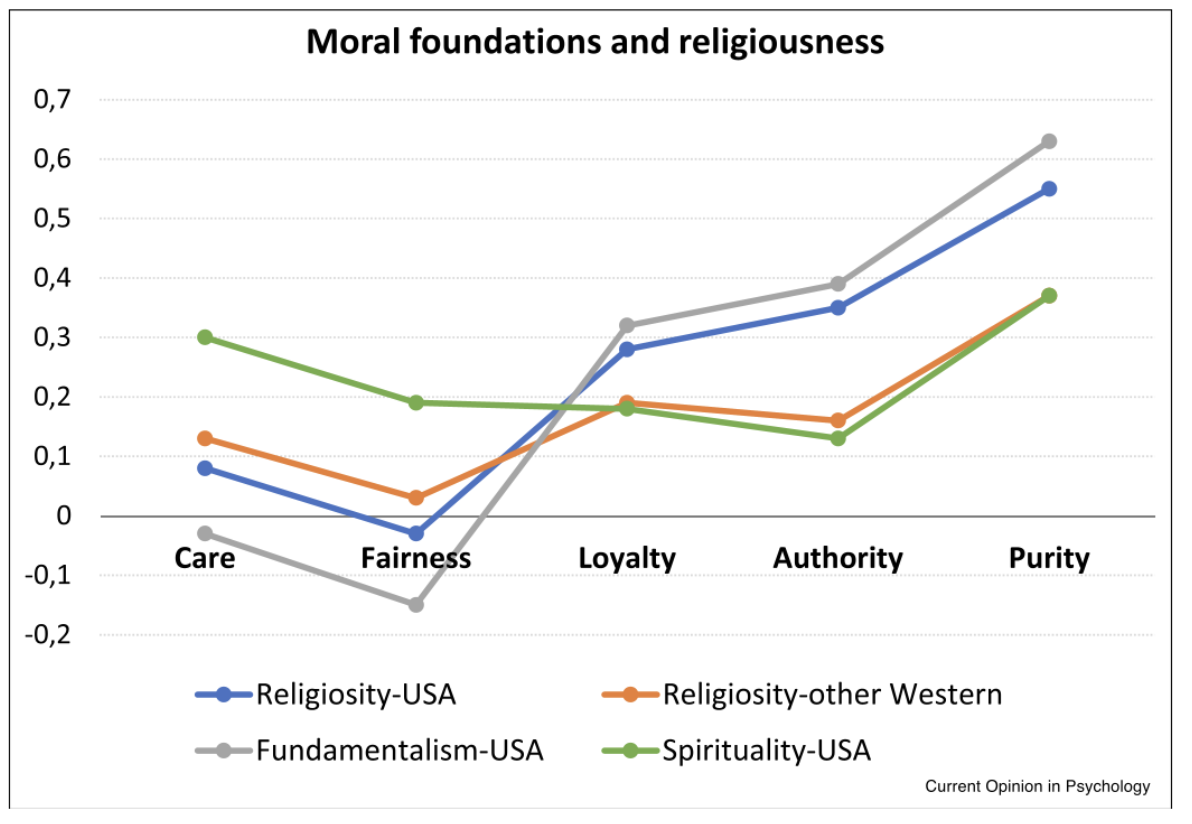

THE MORAL PSYCHOLOGY OF U.S. CONSERVATISM—AND ITS THEOLOGICAL ROOTS
I am still trying to make sense of how the current US executive can call themselves deeply religious and at the same time behave so mercyless towards those outside their (rather narrow) moral circle of concern. So: Why does today’s U.S. right-wing moral discourse emphasize purity over justice, loyalty over care, rule-following over consequences?
A meta-analysis by Saroglou & Craninx (2021) offers clues.
Synthesizing dozens of studies, they show that religiosity is strongly associated with:
👉 Loyalty (group cohesion and allegiance)
👉 Authority (deference to tradition and hierarchy)
👉 Purity (avoidance of moral and social contamination)
And only weakly linked to:
👇 Care (sensitivity to suffering)
👇 Fairness (equity and justice)
Religious individuals also tend toward rule-based (deontological) morality, even when it leads to harm. “Spiritual” individuals, by contrast, align more with fairness- and compassion-based ethics.
But of course this begs the questionof what kind of religion is being measured here? Though the paper treats religiosity as a general category, what it captures is likely the moral psychology of Protestantism, especially in its Calvinist-Puritan form in the U.S.
As Michael Walzer (via Charles Taylor) argues, Puritanism was born from a profound horror at disorder in both social (vagabonds, beggars) and personal (licentiousness, idleness) areas. Its remedy was a disciplined, self-governing elite: individuals whose visible conduct., i.e. steady work, self-restraint, moral rigor, signaled inner regeneration. The resulting order was not liberal democracy, but a covenantal hierarchy between the regenerate and the unregenerate. The former ruled themselves through moral discipline and mutual admonition; the latter were to be ruled coercively if needed. In this framework, purity functioned as a moral boundary, loyalty as a test of belonging, and authority as the expression of earned moral standing. Care and fairness were largely reserved for those within the elect community; echoing today’s findings.
This makes the paper empirically insightful but ontologically and politically naïve. It treats “religion” as a monolith, failing to distinguish between divergent ethical traditions based on different religions, for instance Catholic social teaching, Jewish covenantal justice, Islamic mercy ethics, or Buddhist compassion.
Hence it seems that we might not need less religion in politics. But that we must ask: Which religion? Which morality? Which politics? And how do they interlink? At the very least we should ask this in research before we come to such rather sweeping "said-to-be" causalities.
Link to article: https://www.sciencedirect.com/science/article/abs/pii/S2352250X20301834
06-06-2025



🔍 What if the biggest problem with our politics isn’t partisanship but our imagination?
Charles Taylor taught us that every society lives within a social imaginary: not just a set of theories, but a felt understanding of how life fits together: who we are, what we owe one another, and what institutions are for. It’s the cultural “background hum” that shapes both identity and institutional design.
For decades, that background has been one of neoliberalism: a social imaginary of the autonomous individual, free to choose, compete, and consume. It has shaped us from toe to head: from the language of self-optimization to the structure of our economies and governance. But it has also eroded social bonds, hollowed out institutions, and left many isolated and precarious. It rendered many societies prey to new authoritanism and populism - because of the (so) many loosing out*, no solidarity left and the fantasm of "it is all your own fault".
🌀 In an interesting, Marcia Pally and Adrian Pabst offer an alternative: a social imaginary of the commons.
Rather than choosing between individualism or collectivism, they propose an ontology of “separability-amid-situatedness.” We are distinct, but never disconnected. Identity is not self-made, but co-constituted. It is formed in webs of care, place, infrastructure, and mutual recognition.
And just like the neoliberal imaginary shaped institutions built for competition and extraction, this relational imaginary could inform institutions designed for reciprocity, resilience, and repair.
🌱 But how do we get there? Here are their thoughts:
“Accounting for separability and situatedness together requires not an economic or legal codex but a process of reciprocal consideration, of seeing and seeing to the networks of relations and physical infrastructures that inform individual identity and broad-based opportunity.”
And it starts with a politics of formation:
“The task of politics is to ask: do societal arrangements cultivate among the citizenry, its leaders, and the next generation an understanding of our interdependent, reciprocal situation? Do institutions… provide the means for economic development, problem-solving, and decision-making based on the inter-dependence of those involved?”
This is more than policy: it’s a transformation of what we value, how we educate, how we govern, and who we become.
*approximately half of the US have very low literary skills (read border to functional analphabetism according to a Gallup study), and according to LISEP around 25% are considered to be functionally unemployed which includes those who earn a wage which leaves them under the poverty line).
05-06-2025

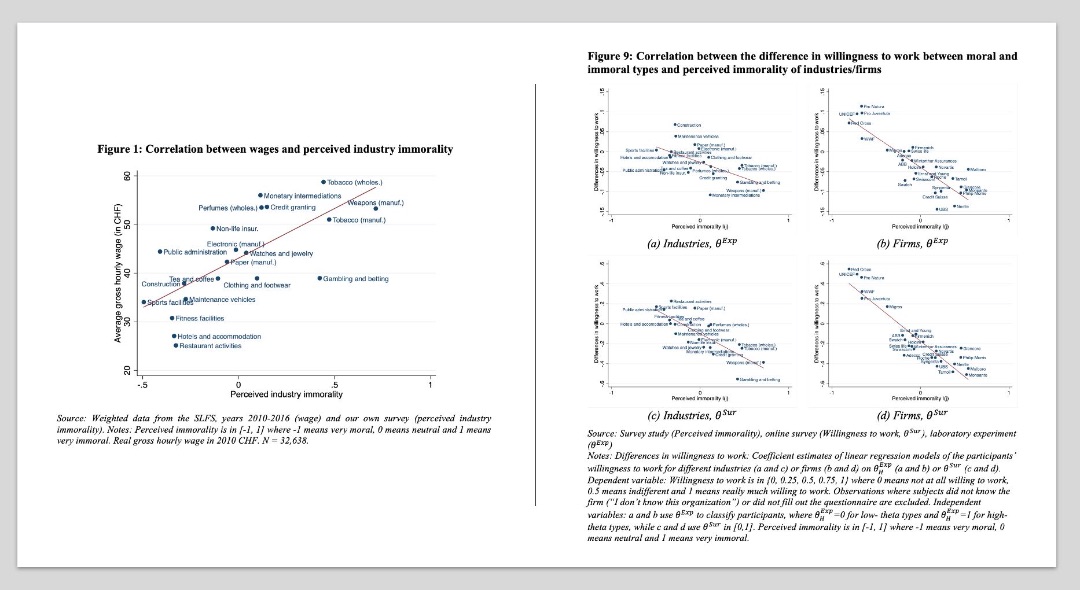

WHEN HARMFUL JOBS PAY MORE—AND ATTRACT THE WRONG PEOPLE
New research (see in the comment Schneider and colleagues👇) challenges the idea that labor markets are morally neutral. It shows that industries like tobacco, gambling, or arms don’t just offer higher pay because the work is unpleasant. Rather they offer more because the jobs are morally tainted. Most people need extra money to justify doing them. But crucially, those who don’t need that justification, those with low moral aversion, are also the ones most likely to take the job.
The researchers test two key hypotheses:
👉 Immorality Premium – immoral jobs pay more to compensate for moral discomfort.
👉 Moral Sorting – people who care less about morality are more likely to accept these jobs.
They back this up with four studies:
🧪 Study 1: Swiss labor market data show that industries perceived as immoral systematically pay more, even after controlling for education, occupation, and firm size (see figure 1).
🧪 Study 2: In a lab experiment, participants accepted harmful tasks (e.g., misleading others) only when paid more. People with low moral sensitivity were significantly more likely to accept.
🧪 Study 3: Survey data showed a stark sorting effect, i.e. those with higher moral aversion avoid working for immoral firms and industries (see figure 9 - and zoom in as it is also interesting to see what students saw as immoral).
🧪 Study 4: An external validation confirmed that the “immoral” job used in the lab caused real harm and was judged as such by neutral observers.
The most disturbing insight: the people most willing to work in harmful sectors are the ones least likely to challenge them from the inside or to excercise prudence in difficult situations (think about the weapons industry for instance). Where we need moral courage, we find moral indifference.
This creates a self-reinforcing cycle: Immoral jobs pay more → attract the least ethically sensitive → repel those who care → reinforce the culture of harm. It’s not just about incentives. It’s about who’s left standing in the room when things go wrong.
What can we do?
💡 Reward moral work. Roles in care, education, and responsible governance are undervalued but vital. Let’s recognize and reward them both financially and socially.
💡 Tell better stories. Highlight those who say no to unethical work or exit harmful companies. Make moral refusal visible.
💡 Renew the license to manage. Just as law and medicine require ethical certification, morally hazardous leadership roles should demand competence in ethics and responsibility (Otti Vogt).
We say leadership is about character. Time to design for it.
03-06-2025

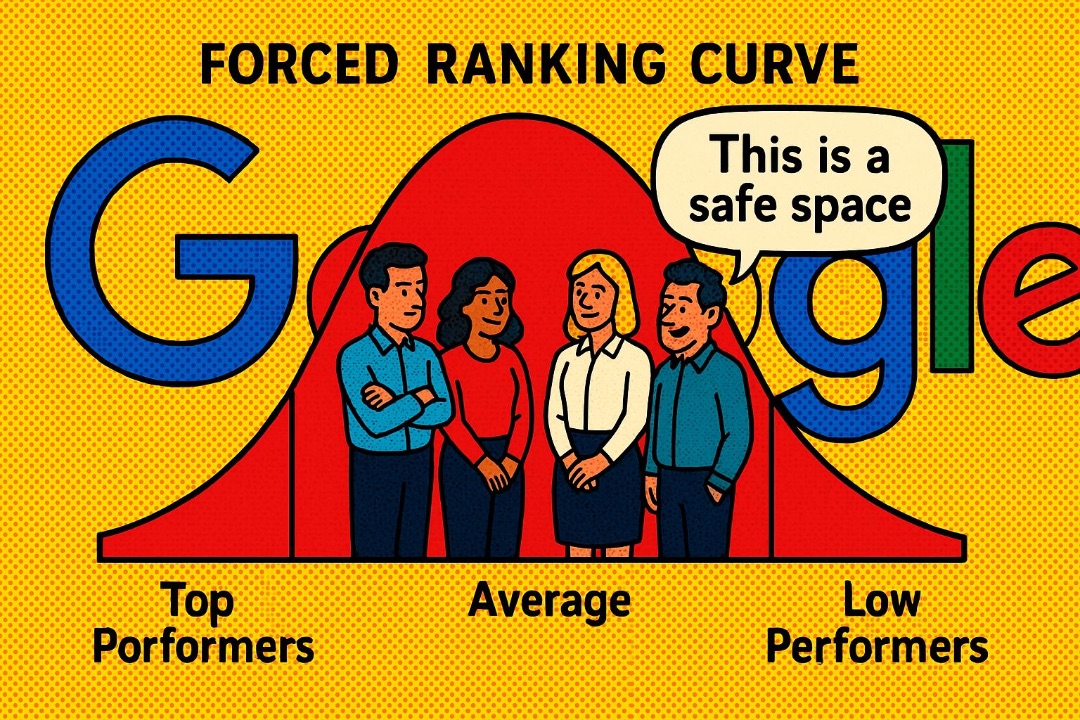

When even "psychological safety" becomes an obligation to perform... THE SELF-REINFORCING SPIRAL OF NEOLIBERAL WORK
This is the silent paradox at the heart of modern work. In their article "Neoliberal Ideology in Work and Organizational Psychology", which is well worth reading, Bal & Dóci (in the commentary 👇) show how neoliberal ideology permeates our organizations (and also research). Using political, social, and fantasy logics, they analyze how instrumentality, individualism, and competition have become unquestioned truths. Even scientific findings often serve to increase efficiency – not to search for meaning.
But the real perfidious thing is that neoliberalism does not work through coercion, but through fantasies. Namely: to be free. Self-determined. Successful if you only give enough. Those who fail were simply not committed enough in this logic (see also the language of the CDU at the moment). And it is precisely because this feels liberating that it is so effective – and so difficult to question.
This is where a self-reinforcing negative spiral begins: Organizations are based on the assumption that people are rational, self-reliant, and competitive. They create structures that generate exactly this beh * avior: self-optimization, peer competition, inner performance control. And it is precisely this behavior that seems to confirm the original theory.
The ideology thus proves itself. When the system fails, it does not look for the fault in itself – but in the individual. The answer: resilience training, coaching, feedback loops:
🦸 Exhaustion is reinterpreted – as an "opportunity for growth".
🦸 Criticism becomes performance.
🦸 Resistance to service. And so psychological safety also becomes a product line.
Google case study:
The company is considered a pioneer in "psychological safety" – at least since the internally acclaimed Project Aristotle, which identified psychological safety as a central factor for high-performance teams. A company that presents itself as a future laboratory for good work.
And at the same time?
At the end of 2022, Google introduced a new performance system that requires up to 6% of employees to be classified as "low performers" – regardless of actual team performance. (CNBC, 12/22/2022) In addition: regular, quiet layoffs. Results-oriented. Calculated.
The episode?
You can speak openly – but please with output.
You can feel safe – as long as you deliver.
You can live purpose – as long as you don't slow down.
And you can look forward to your own self-optimization including a "warm feeling".
But that's already the spiral. It does not drag itself out because it works – but because it so elegantly translates its own failures into self-responsibility.
The phase-out begins there,
where we stop treating the individual –
and begin to demystify systems.
02-06-2025

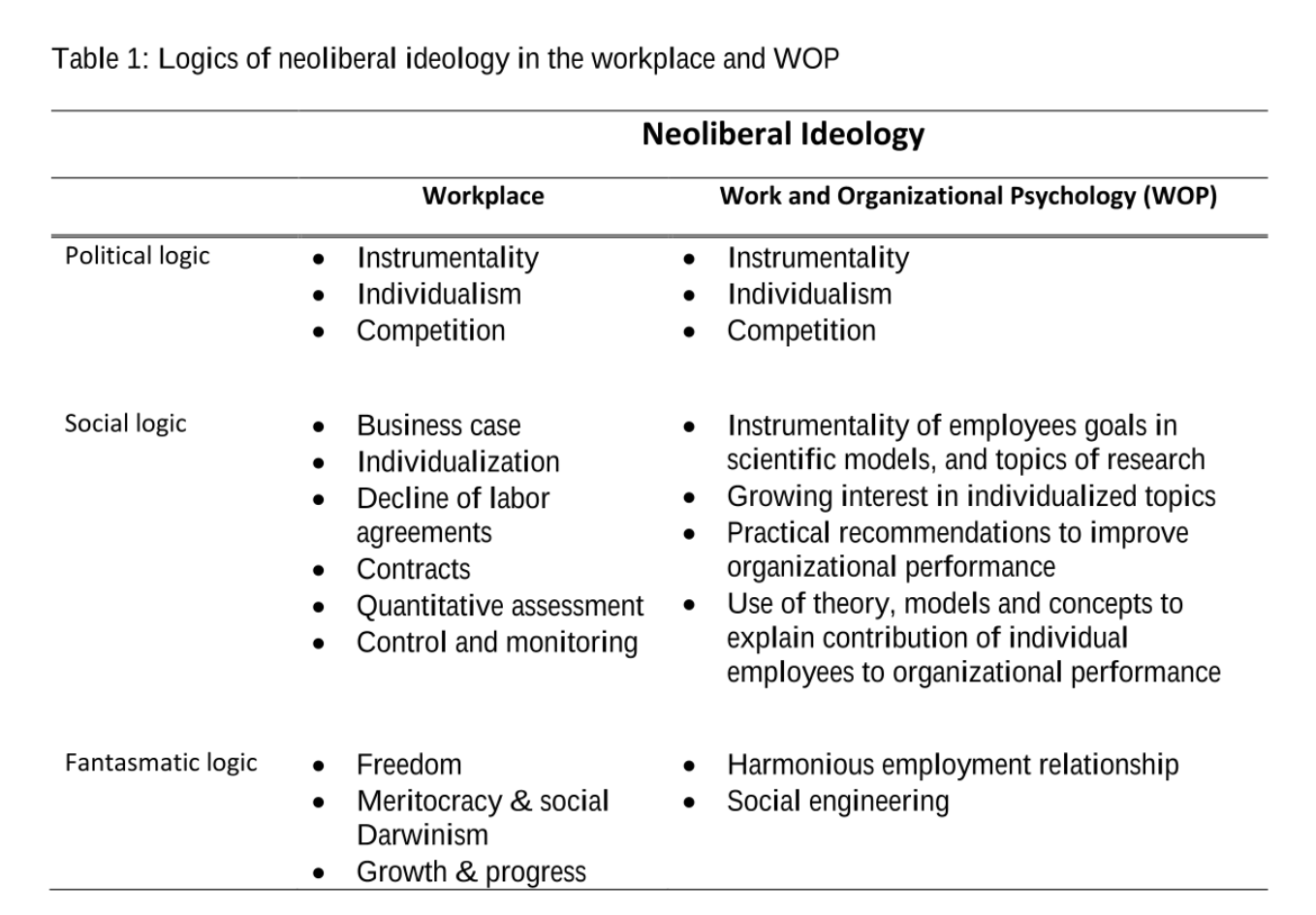

THE SELF-FULFILLING SPIRAL OF NEOLIBERAL WORK
That’s the silent paradox at the heart of modern work.
In their brilliant article 👇 , “Neoliberal Ideology in Work and Organizational Psychology”, Bal & Dóci dissect how neoliberal logic has captured both workplace practice and the discipline meant to study it. Through the lens of political, social, and fantasmatic logics, they show how instrumentality, individualism, and competition have become the unquestioned truths of our time. Even Work and Organisational Psychology research often serves to fine-tune performance, not question purpose.
But the authors go deeper. They argue that neoliberalism does not just govern through structures or incentives - it works through fantasy. It seduces us with the idea that we are free agents, choosing our paths, responsible for our own outcomes. If we work hard enough, we will succeed. If we fail, we must not have tried hard enough. This fantasy persists even in the face of burnout, inequality, and disillusionment. It is precisely because it feels empowering that it becomes so hard to resist.
This is where I would argue the negative spiral begins. Neoliberal assumptions about human nature, namely that people are rational, self-interested, and motivated by competition, are embedded in organizational systems. These systems, in turn, shape how people behave: employees learn to self-optimize, to treat colleagues as competitors, to manage their own motivation as if it were a resource. These behaviors appear to confirm the original assumptions, making the ideology seem not only true, but natural.
Through the shared phantasy (and note how we here go beyond Theory Y/ McGregor and even beyond Ghoshal) when things go wrong, the system does not blame itself. Instead, it places responsibility on the individual, who is encouraged to be more resilient, more agile, more self-aware. Interventions focus on mindset, not on power. Critique becomes another performance tool. Even exhaustion is reframed as a growth opportunity.
🌀 Every “solution” (coaching, mindfulness, peer feedback) reinforces the belief that change lies within the individual.
🌀 Even resistance becomes productized - sold as purpose or psychological safety.
🌀 The system becomes both invisible and irresistible.
Insidious, isn't it? This is how ideology becomes structure, and structure becomes self. And all the while, the underlying promise- "that this is what freedom looks like" - remains intact. The spiral tightens not because it works, but because it is so good at explaining away its own failures. That is the genius of its design and the challenge of breaking free.
Link to article: https://doi.org/10.1080/1359432X.2018.1449108
28-05-2025

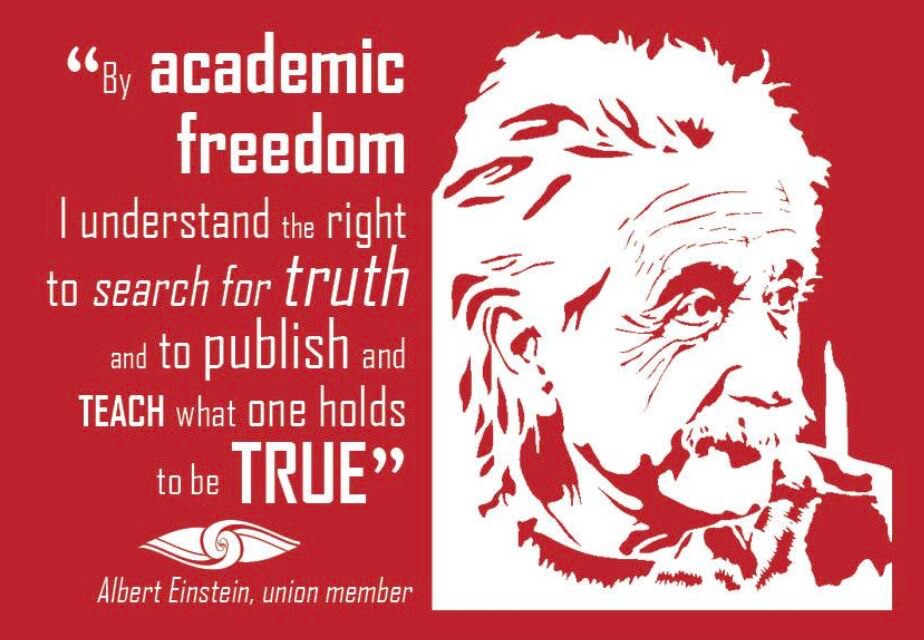

🎓 Why Academic Freedom Matters — From Humboldt to Weber
Academic freedom isn’t a luxury. It’s the lifeblood of critical inquiry, societal progress, and democratic resilience. It began with Wilhelm von Humboldt’s vision in early 19th-century Prussia: a university should be a space where Lehre (teaching) and Forschung (research) are united in the pursuit of truth, free from political or economic interference. The university, in his eyes, should cultivate not just knowledge, but autonomous individuals.
Decades later, Max Weber sharpened this ideal: Scholars must speak inconvenient truths even if it costs them. In his famous lecture "Science as a Vocation" (1919), Weber called for integrity over ideology, responsibility over influence.
Today, this freedom is under pressure but defending academic freedom is not about privilege. It’s about preserving the conditions that allow societies to reflect, innovate, and hold power to account.
With Harvard we stand (or fall)!
28-05-2025



🎓 Why Academic Freedom Matters — From Humboldt to Weber
Academic freedom isn’t a luxury. It’s the lifeblood of critical inquiry, societal progress, and democratic resilience. It began with Wilhelm von Humboldt’s vision in early 19th-century Prussia: a university should be a space where Lehre (teaching) and Forschung (research) are united in the pursuit of truth, free from political or economic interference. The university, in his eyes, should cultivate not just knowledge, but autonomous individuals.
Decades later, Max Weber sharpened this ideal: Scholars must speak inconvenient truths even if it costs them. In his famous lecture "Science as a Vocation" (1919), Weber called for integrity over ideology, responsibility over influence.
Today, this freedom is under pressure but defending academic freedom is not about privilege. It’s about preserving the conditions that allow societies to reflect, innovate, and hold power to account.
With Harvard we stand (or fall)!
26-05-2025

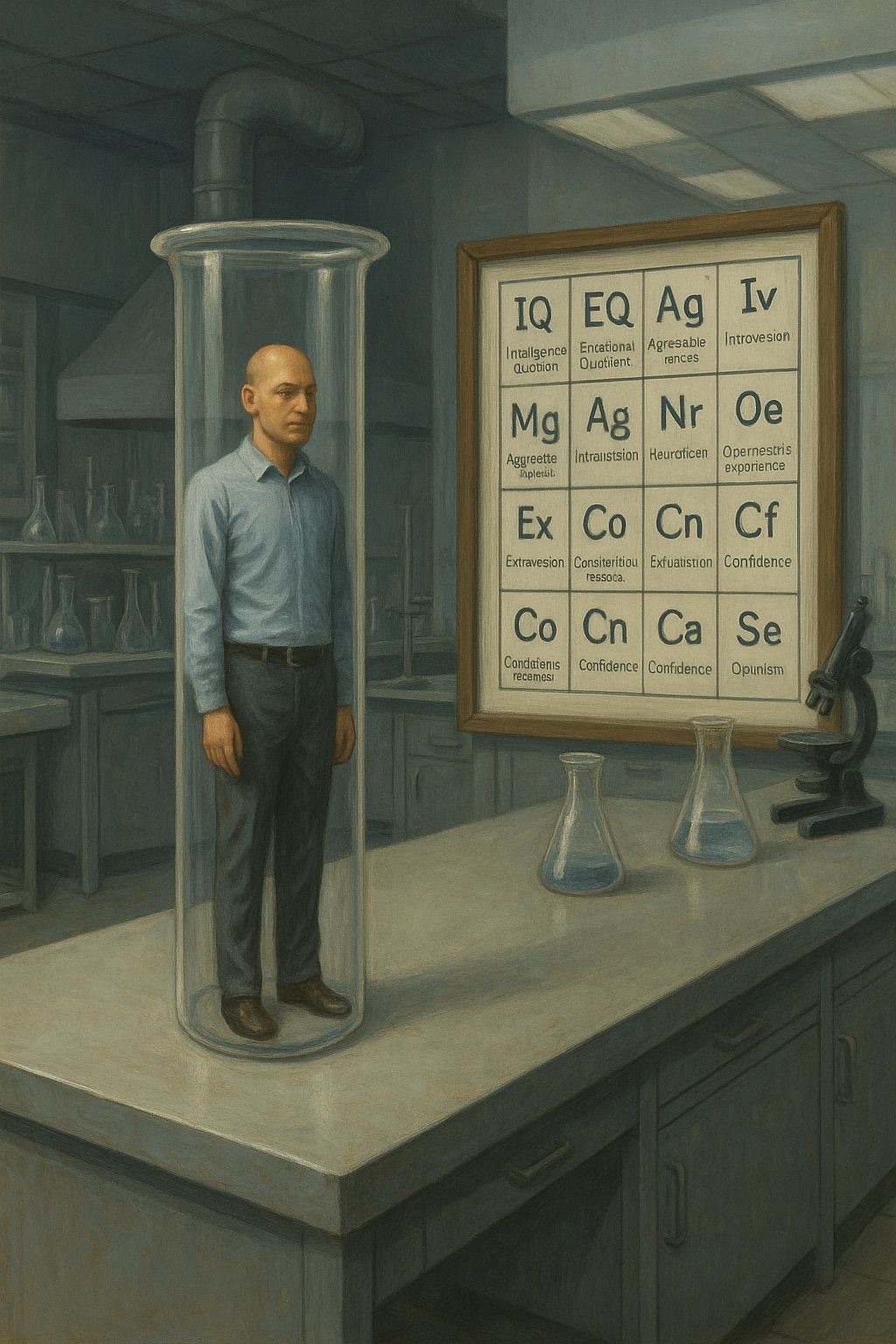

THEORY IS DEAD. LONG LIVE EXPERIMENTS?
The other day a colleague in economics told me: “We don’t do theory anymore. Science today is about experiments.”
It sounded innocuous. Evidence over ideology. Precision over speculation. What could be wrong? But I heard John Locke in the background. This is the punctual self Charles Taylor describes: a disembedded agent, disengaged from history or value, made legible only through behavior. In this view, science begins from sensation, avoids reflection, and reduces understanding to data. But when theory is abandoned, much more is lost than speculation.
What remains hidden?
▶ Orientation: Without theory, data lacks direction. Experiments tell us what works, but never what’s right, what’s human, or what’s just. Policy designs based on “impact” often presuppose questionable values: utility, compliance, behavioral adjustability.
▶ The Subject: Locke’s model of a self-regulating unit echoes in "randomized controlled trials" and behavioral economics (and also for much of psychology for that matter). But people aren’t programmable modules, they are also narrating, interpreting, embedded beings. What gets erased? Identity, contradiction, moral striving.
▶ Reflexivity: The social sciences are not like physics. As Giddens put it, they involve a double hermeneutic: we study beings who study themselves and adjust accordingly (which also "ruins" our findings). When we reframe humans as utility-maximizing or irrational nudgers, we don’t just describe we also always shape. Beliefs become self-fulfilling prophecies. And management theories once meant as tools become norms that deform.
▶ Responsibility: Ghoshal warned us: a theory that assumes people are selfish, or even opportunistic, and mechanistically influenceable will create practices - and people - that make it so. Theory is never innocent. And abandoning it doesn’t avoid distortion. Rather it ensures it.
So no, sorry to say, theory is not dead! It’s just gone underground. It has gone embedded in unexamined assumptions, power-laden categories, and silent norms. Without it, science cannot critique itself. It becomes technically sound (maybe) but morally blind.
💡 A truly human science doesn’t just measure. It orients. It reflects. It engages. It remembers that the way we see the human affects the way we treat the human.
In a disoriented world, we don’t need fewer theories.
We need better ones. Your views?
25-05-2025

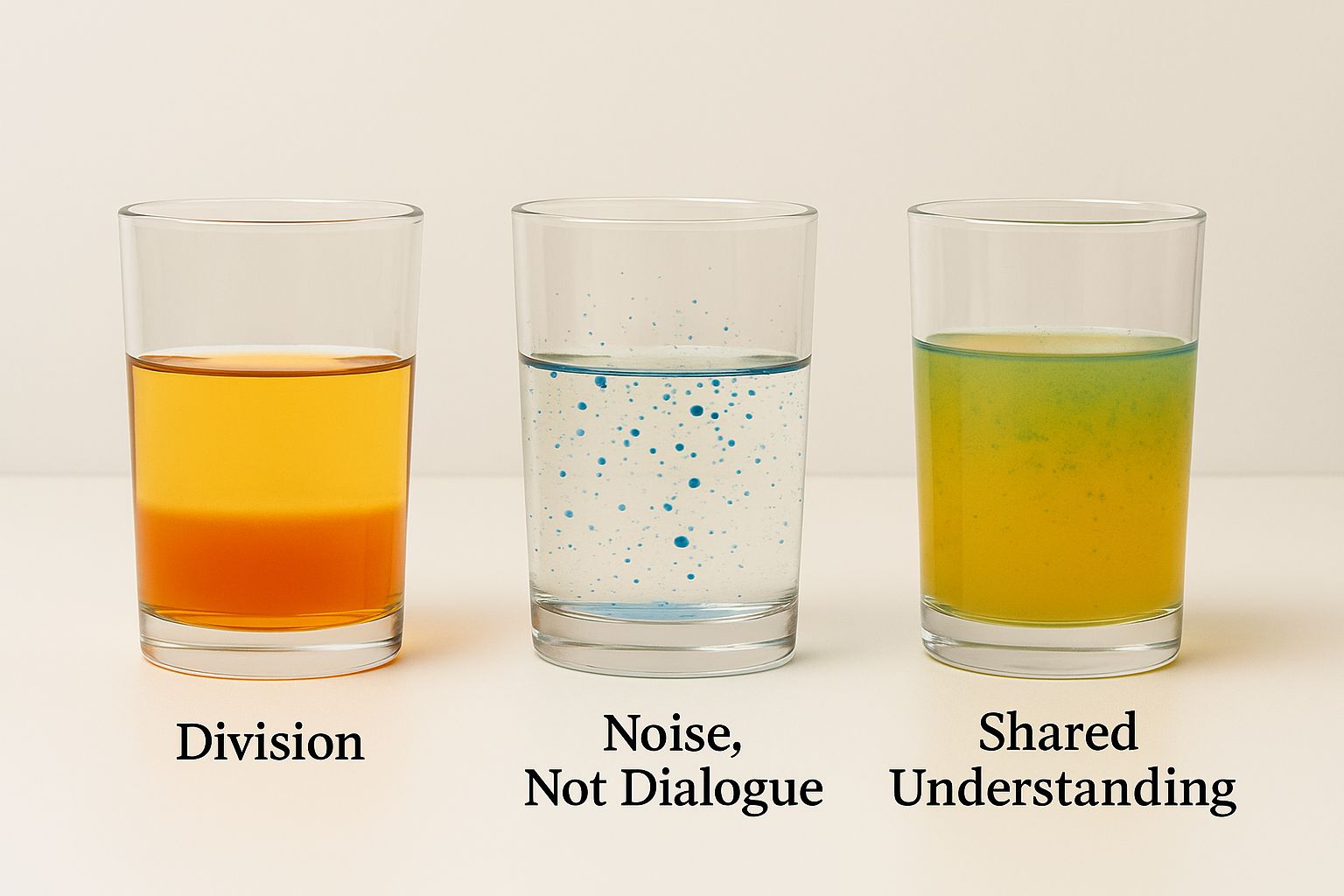

FROM EVALUATION TO ENCOUNTER: RETHINKING DIVERSITY THROUGH THE FUSION OF HORIZONS
Why does mutual understanding feel increasingly out of reach? As Robert Putnam once noted, we have moved from we to I, and often to division. One reason may lie in our confidence that we can assess others from a so-called view from nowhere. This is a stance that claims neutrality but typically reflects an unexamined moral horizon and thereby introduces our own prejudices without us becoming aware of it.
This becomes especially visible in how organizations approach diversity and inclusion. Diversity is often reduced to visible difference or statistical variety. Inclusion, in the traditional DEI view, becomes a question of integrating others into pre-established norms. Meanwhile, HR is tasked with “evaluating” people through standardized criteria - as if human beings were isolated, interchangeable inputs rather than selves situated in moral space, shaped by histories, frameworks, and aspirations.
Charles Taylor, drawing on Hans-Georg Gadamer, offers a deeper vision: the fusion of horizons. This is not mere tolerance of difference. It is the ethical encounter with another as a (moral) self, oriented by their own understanding of the good. It means entering into dialogue. The aim is not to erase difference, but to articulate our respective frameworks, to listen, and to allow ourselves to be morally stretched.
This is what genuine understanding demands: not just participation, but shared articulation of what matters. And this is what diversity truly offers: not just variety of attributes, but the presence of persons who orient toward different goods, each capable of enriching our collective understanding (but not necessarily so).
Such encounters, then, would not flatten difference - they would deepen it. And in doing so, they can reveal more about who we are, too.
So what if work became a place where dialogue, not data, shaped how we relate? What if our frameworks for diversity moved from formal rights to mutual recognition AND to risk being fully present to one another? What if inclusion meant co-creating a shared moral space, rather than fitting people into an existing one?
We might discover that such fusion of horizons would be deeply generative - enabling us to become better versions of ourselves (and finding better solutions together for the troubles ahead).
24-05-2025

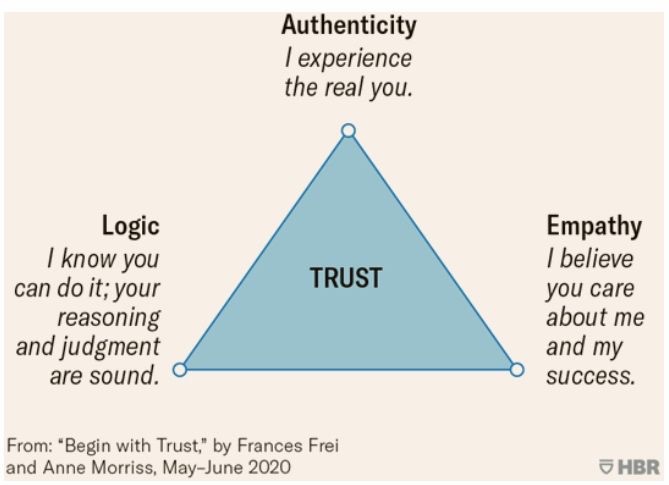

Trust Isn’t a Checklist. It’s a Moral Achievement!
For some reason, everyone seems to love the HBR trust triangle. And maybe even as more rigorous trust researchers we could eventually make peace with it.
Our own beloved three legged ABI model (Ability, Benevolence, Integrity) does capture something important: that trustworthiness is judged along multiple dimensions.
🤓Ability maps to competence and reason.
🤓Benevolence corresponds to care, even empathy.
🤓Integrity suggests a kind of moral coherence, or at least consistency.
And we know: goodwill - the “BI” part - carries the lion’s share. Competence might be enough for contracting. But not for vulnerability. The popular HBR triangle (Logic, Empathy, Authenticity) reinforces this in more digestible terms.
It works. But it flattens - personality indicators instead of self with commitment and depth. And this is where Aristotle’s triangle still outshines them all.
Unlike modern models, Aristotle doesn’t reduce trust to traits or checkboxes. His rhetor is not a triangle of functions but a vision of the human being as capable of moral growth and shared discernment. It consists of:
🏛️Ethos is not just “being yourself.” It is excellence. It is character, practical wisdom (phronēsis), and goodwill (eunoia). It is integrity in the sense of being integrative, not simply “authentic”- even if “yourself” is, frankly, an asshole.
🏛️Pathos is not just empathy. It is the capacity to arouse commitment to a higher good. To invoke solidarity, courage, or hope when needed most. Empathy may be part of it but it’s more than feeling with. It’s moving toward.
🏛️Logos is not just logic. It is knowing and communicating the good. Not just what works - but what is just. It is the ability to speak from a horizon, not just from inside a system.
So what does this mean?
That we would come to trust a leader for their character, for their respect and moral clarity, for their understanding of the good- ethical and political - and for their ability to inspire shared movement toward it.
Not an easy feat. It takes time, formation, reflection. But wouldn’t it be something tohave leaders who don’t just demand our trust, but truly merit?
23-05-2025

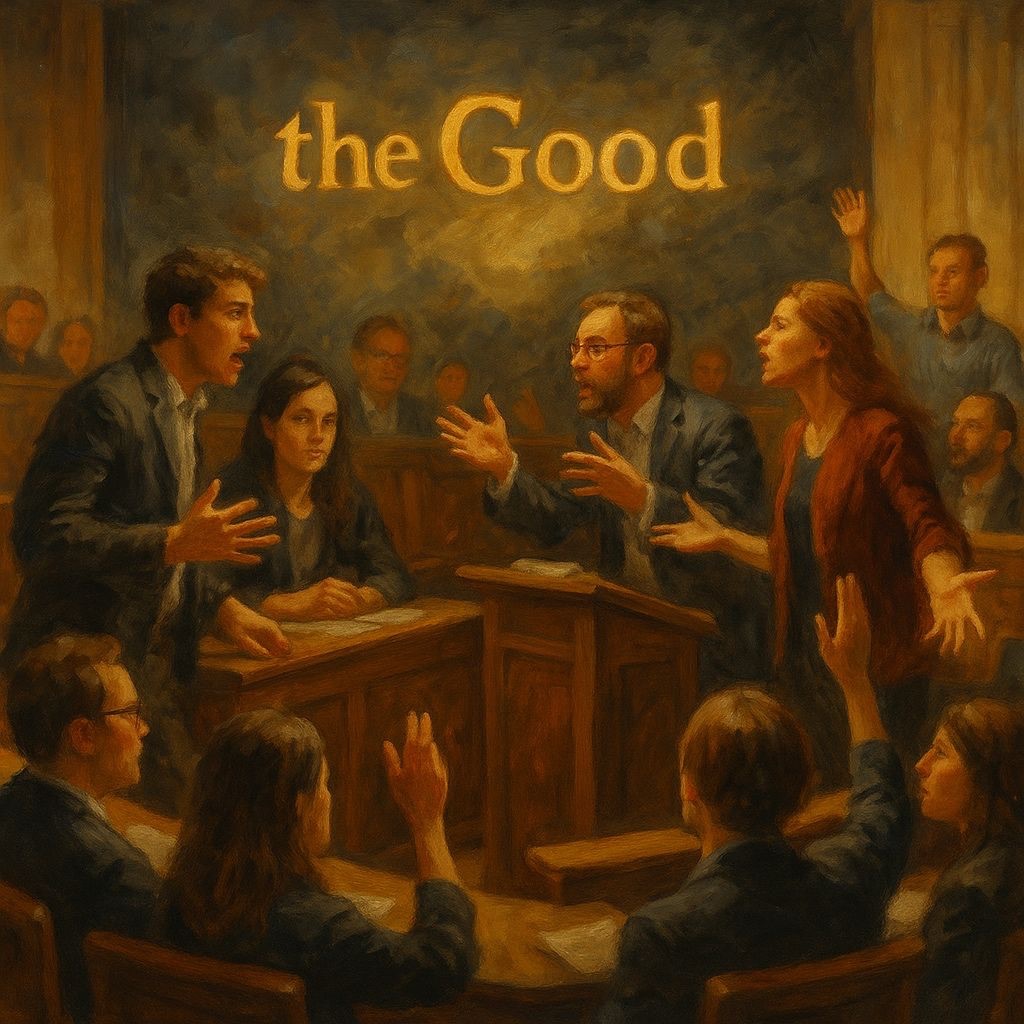

On the Disappearance—and Possible Return—of the Common Good in the University
You might think this is the academic ideal: a community in universitas, striving together in dialogue, struggling in good faith toward the truth, and seeking a common good. A space where tensions refine our convictions, where disagreement carves new horizons.
And yet - think again.
Enter the performative university.
Here, what counts are audits and rankings, metrics and outputs. Time is money - so why wrestle too long with hard questions? In the age of procedural liberalism, we settle for a watered-down tolerance: to each their own good, because a common one feels too difficult to articulate.
Even truth is no longer shared labor. Instead, we’re caught in the old epistemological turf war: correlation-mongers versus hermeneuts, with little space for ontological depth. Our shared ontology is flat and so, increasingly, are our ambitions.
But reality may bite back.
In the age of AI, a renewed struggle for truth and the good may become not just desirable but essential. Without it, the university may dissolve into mere content provision, and our students may find themselves enrolling in McAI, taught by shallow generative models trained on noise and nonsense.
What we need now is a leap of faith: A belief that intelligent and well-hearted people can still orient toward a common good. And arecognition that productive tensions are not distractions but the groundwork of shared insight.
Because the alternative is not only uninspiring. It is, quite simply, untrue to what learning demands of us.
22-05-2025

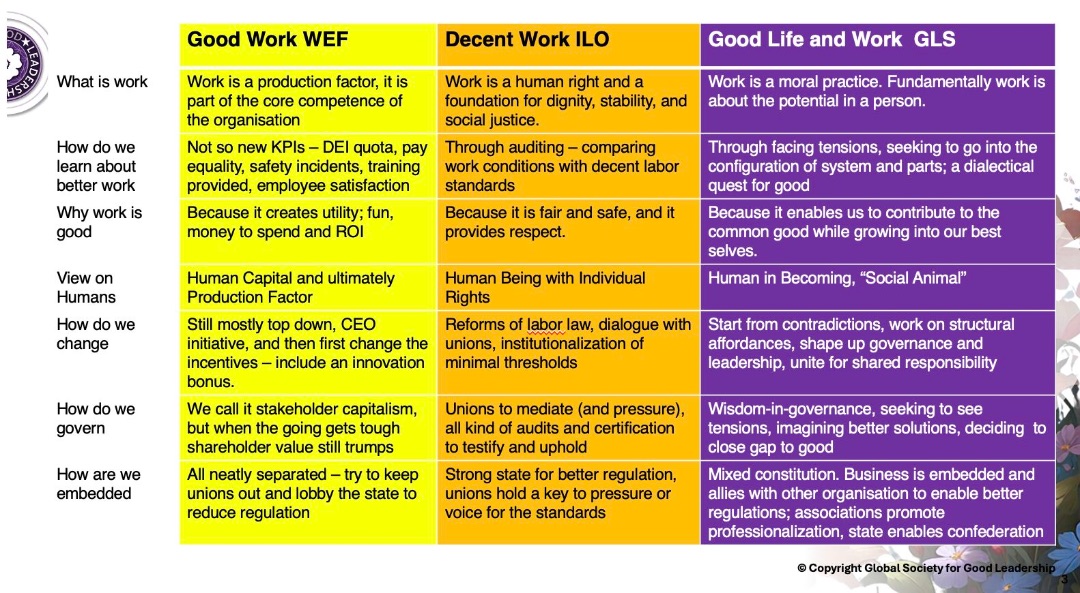

Good Work?
For some reason, “good work” seems to be the new hype. That could be good news, but often, it’s not. A lot of initiatives popping up today haven’t spent much time thinking about what exactly they claim to be good. Is “good” just the new “new”? A fresh spin on flexible work, remote options, with some coaching vouchers thrown in? Or is “good” just “good for business” i.e. being nice because it pays off, happy cows give more milk?
To explore that, I’ve brought together three radically different understandings of “good work.” But let’s start with the Yellow view - the neoliberal version -which, for now, seems to dominate. Here, “good” means “more good than bad,” your typical utilitarian shortcut. In practice, it usually just means “good for business.”
Now I hear you say: But what’s wrong with that? Isn’t it great that even the WEF is thinking about good work? And isn’t ‘a bit better’ still better than nothing?
Well. I’m not so sure. Or rather: no, not good at all!
First, this definition of “good” offers a convenient way out. Change the mood, change the metrics. A new American president comes in and out go the DEI quotas (as done by some of the WEF signatories). Look at the KPIs: not ambitious, not structural, not transformative. No audits, no public scrutiny, no mechanisms for accountability. If “good” is just a formula, you can always tinker with the bits and usually the bits that matter most to workers.
But that’s only the beginning of the problem.
Look at their view on embeddedness. In this model, business alone defines what’s good. No unions. No government. No public deliberation. It’s the same old libertarian fantasy of the heroic free enterprise: deciding the rules and reaping the glory. And just like before, that’s unlikely to lead to real change. Bad companies will still outperform the “good” ones, because neither the state mandates nor unions enforce the shift. Being better is optional and often, it's only skin deep.
Not to mention the dubious assumptions that go unchallenged. Workers are still treated as factors, not persons; lone agents, not relational beings. And when things go wrong, the system is never questioned - it’s always the individual who needs fixing.
So next time you see another event or special issue on “good work,” do yourself a favour: read the language carefully.
🍊 If they lead with “the business case,” steer clear.
🍊 If the speakers are all from business schools and corporations, steer clear.
🍊 If they treat “good” as self-evident, steer clear.
Instead, go where you’ll be challenged by unions, philosophers, critical scholars. Go where the ideas are too complex, the practices too ambitious, the discomfort too real. Where “next practices” matter more than “best practices.”
Because only then will you start facing the real tensions.
And maybe, just maybe begin doing good work.
21-05-2025

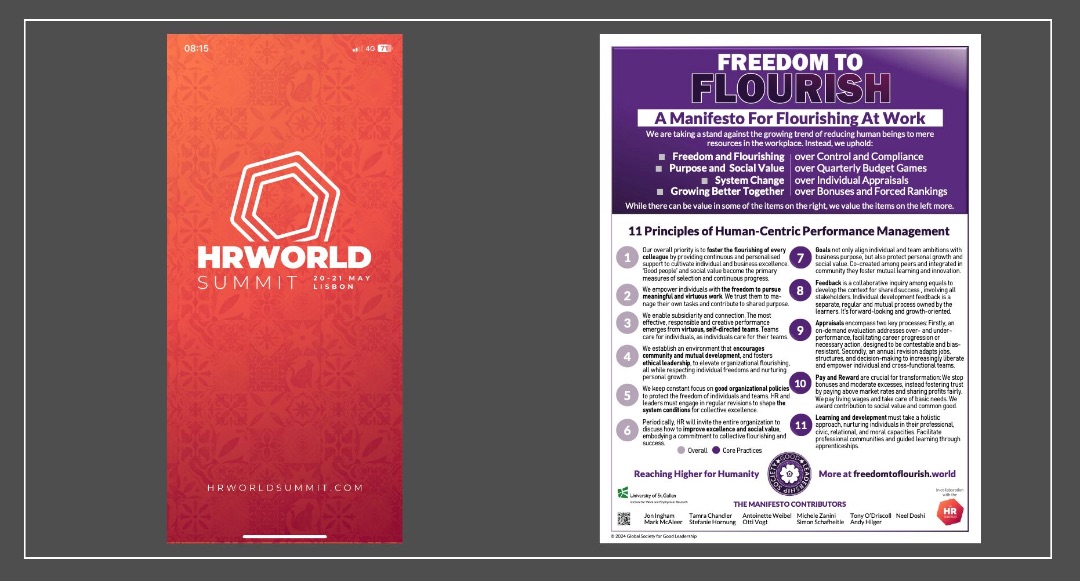

HRWorld Summit for Good – Here We Come!
We’re hugely looking forward to connecting and co-creating with many wise and eager HR leaders who are ready to reimagine the future of work.
At last year’s Summit, we introduced our HR Flourishing Manifesto. This year, we’re excited to share ARC – our transformation theory for organizations ready to move beyond survival mode.
ARC maps the path from a relentless, competition-driven, performance-obsessed system…toward businesses that enable common prosperity and unleash the generative potential of people and institutions.
If you’re wondering whether this is a session for you (we’re pretty sure it is), here are a few nuggets to ponder:
😉 Has your CEO recently declared a return to “meritocracy” – while sidelining HR’s efforts to strictly promote only i also maturity, integrity, and character fit - beyond pure sales performance?
😉 Has your company rebranded from employee satisfaction to employee excellence – convinced that excellence can be captured in a single KPI?
😉 Have you sat through conferences proclaiming “New Work is dead, Good Work is the new black,” while still preaching that "happy cows give more milk"?
Then you might be working in what we call a yellow organization: one that grants more autonomy, but ultimately still worships at the altar of growth and profit. A place where even HR reinvention depends on whether the political winds in Washington shift.
If you’re tired of that, if you believe there are better ways to work and live and if
ou believe organizations can help people grow into their best selves while solving real, urgent problems:
…then join us.
Help us.
Push the system toward flourishing – not just better performance management.
20-05-2025

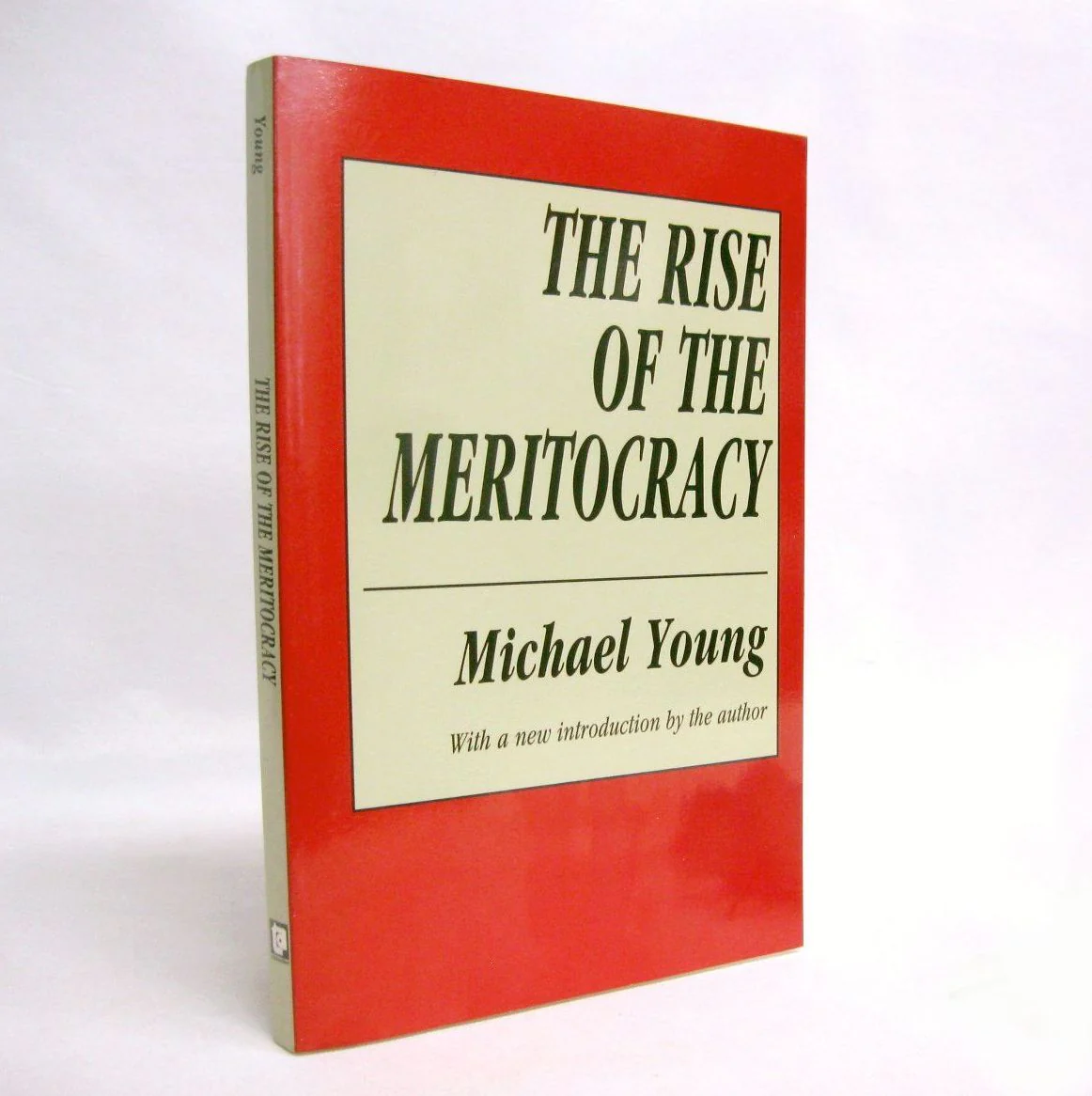

The Persistent Myth of Meritocracy
“Not class or birth, but merit.”
A powerful ideal—only we never quite got there.
In the postwar decades, especially the 1960s, we made some progress in reducing the bad luck of birth. But since then, social mobility has stagnated. It’s still immensely harder to get into top universities if you come from a working-class background - and that’s just the beginning. Despite all the talk of objective metrics and fair performance management, modern organizations often amplify unequal starting conditions rather than correct them.
Zoom out to the global stage, and what grows isn’t meritocracy but brogligarchy: networks of privilege, wealth, and selective gatekeeping. Success is still more tied to your golf handicap or bank balance than to talent or effort.
Michael Young foresaw all this. His 1958 satire The Rise of the Meritocracy imagined a future where the ruling class believed they truly deserved their power because they had “earned” it. The result was not fairness, but a new kind of tyranny: smug, closed, and self-justifying.
Instead of defending a broken ideal, maybe it’s time to shift the goal.
Not just equal opportunity to compete, but equal freedom to contribute.
Not meritocracy - but contributive justice. And rewards go to those who contribute to society at large.
Let’s redesign systems so everyone can shape, build, and belong.
Link to article: https://www.theguardian.com/politics/2001/jun/29/comment?CMP=Share_iOSApp_Other
18-05-2025

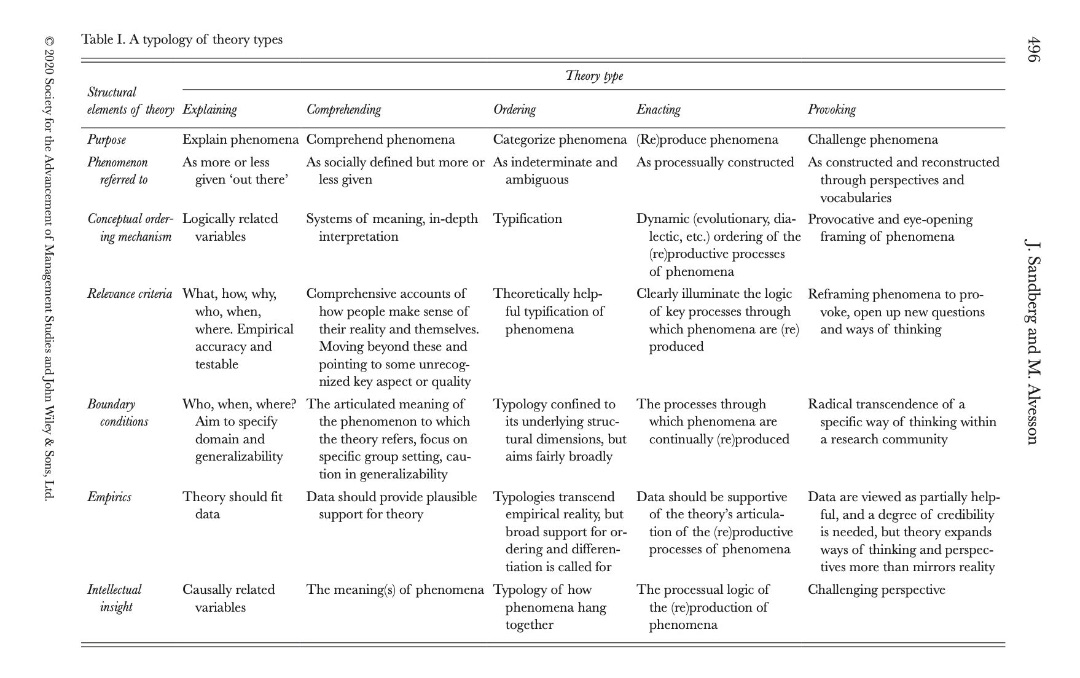

💡 Why You Should Care About Theory
As a girl, I loved books. As a scholar, I still do. But whether in academia or in business, I’ve often been told: “Get a grip. Go do something. Be practical.”
And I get it. We live in a world obsessed with evidence, action, outcomes. So when you offer theory be it concepts, frameworks, or structured thought you’re often met with skepticism. Even in academia, the pressure to produce “data” often outweighs the encouragement to think.
Some try to bridge the gap by becoming “pracademics” (as Julian Kirchherr puts it). And yes, I absolutely believe in engaged scholarship, ie in framing problems with practitioners, staying close to the tensions of real life.
But I also believe this: practice has a theory deficit.
And I wish we’d say it more often. We talk a lot about bias, but rarely about theoretical bias. Most people operate from implicit theories they’ve never made conscious; about human nature, power, value, success, responsibility. And without theory, we rarely challenge those assumptions. We just act them out.
So maybe it’s time we turned the tables. Instead of always telling scholars to “get practical,” maybe we should ask practice to “get reflective.” Start theorizing.
This is where the typology by Alvesson and Sandberg is so useful. It shows that good theory isn’t just abstract: it explains, helps us comprehend, reorders, reveals hidden processes, and sometimes provokes us to think in entirely new ways.
A good theory can:
👏 Help us see the lens through which we interpret the world (and how distorted it may be).
👏 Group things together we never thought belonged.
👏 Reveal why we keep reliving “Groundhog Day” at work.
👏 Or make visible what we’ve trained ourselves not to see.
Theory, in this sense, isn’t the opposite of action.
It’s what makes meaningful action possible. So next time someone retreats into data or leans too hard into “just do it” logic, I might be tempted to say:
Get a grip. Start theorizing!
The world needs more reflection, not less.
16-05-2025

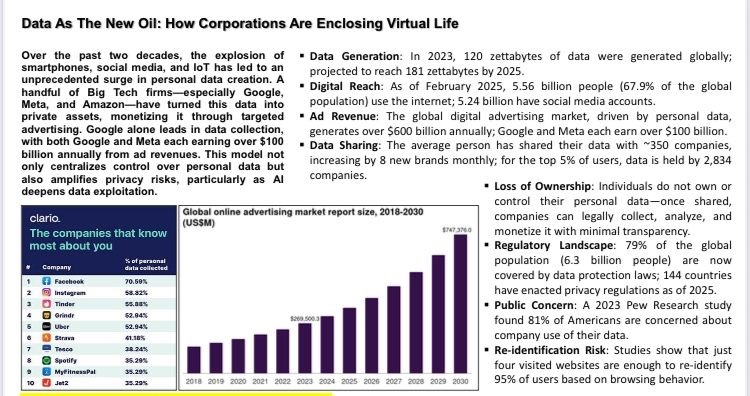

Can you have your chocolate and eat it?
Turns out, Big Tech can.
Over the past decade, tech giants like Google and Meta didn’t just get our data; no they colonized it. They collected it under the sweet promise of connection, traded it like candy across thousands of companies, and now use it to predict, manipulate, and monetize our every click.
The results?
• $600 billion in ad revenue.
• Political influence through microtargeted persuasion.
• Monopoly rents from network effects.
• And a rising bromarchy—a tightly knit elite of data barons who know us better than we know ourselves.
Just 5% of users have their data shared with over 2,800 companies. Four website visits are enough to re-identify 95% of us. And 81% of Americans are worried but at the sane time stuck.
Data is the new oil, yes. But unlike oil, you are the well.
The question is: when will we stop letting them?
15-05-2025



Can a Company Be a Good Employer If It Undermines the Common Good?
We are quick to praise companies for their internal reforms: de-bossing, self-management, psychological safety. We applaud progressive HR policies, leadership humility, the dismantling of hierarchy.
And yet, something crucial is often left unexamined.
A company is not just a workplace. It is a node in a web of relationships - ecological, economic, political. What it does to the world matters as much as what it does for its employees. And these things are not separable. Because we grow into the work we do. We become who we are, individually and collectively, through our labor and its consequences.
This question came alive for me as I studied the seed industry.
Bayer, widely admired in some business circles for its organizational culture, acquired Monsanto in 2018. Monsanto is known for:
🌱aggressively patenting seeds and suing farmers whose crops were accidentally contaminated,
🌱pushing genetically modified monocultures that threaten biodiversity and food sovereignty,
🌱ghostwriting scientific articles and suppressing evidence about the risks of glyphosate.
This is not ancient history. These practices have shaped agricultural systems, legal frameworks, and public discourse in profound ways.
So the question persists: Can a company foster “good work” while producing bad outcomes?
Is it ethical to be a “liberated” worker inside a system that concentrates power, silences dissent, and undermines planetary well-being?
Too often, we separate internal excellence from external ethics. But governance is not just internal. Culture is not just about values: it’s about character. A place that treats its people well while harming the commons teaches complicity, not character.
As scholars, practitioners, and citizens, we must stop admiring surface-level innovation when it masks systemic harm. We must resist the seduction of workplace “revolutions” that ignore relational and ecological realities.
Because integrity is not a vibe. It’s a total pattern.
13-05-2025

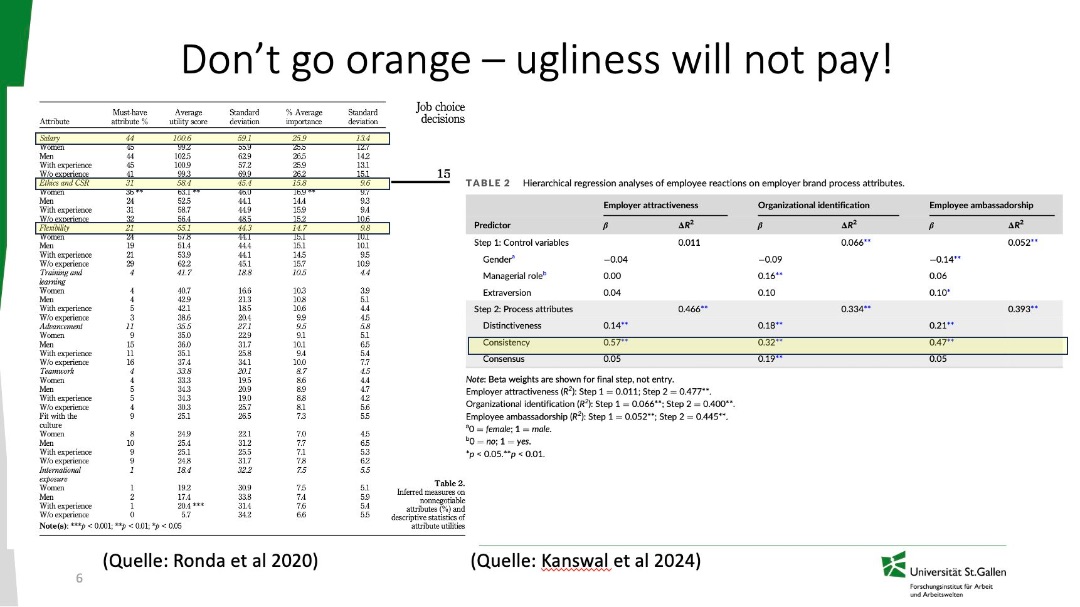

Don't go orange - ugliness will not pay!
For those abandoning DEI initiatives in the wake of Trump's election, the data should make you think twice.
After my previous ethical appeals fell on deaf ears, perhaps the financial impact will finally get your attention. This isn't just about doing what's right anymore; it's about your bottom line.
The evidence is methodologically robust. Ronda et al. (2021) employed an adaptive Choice-Based Conjoint Analysis (ACBC), not the usual wishlist studies that merely rank preferences. This method mirrors actual decision-making processes where candidates first eliminate unacceptable options before making trade-offs among remaining choices.
Their findings are striking: Corporate Social Responsibility emerges as the second most important non-negotiable attribute (31%), surpassed only by salary (44%). This isn't just a preference — it's a screening mechanism that removes your company from consideration for nearly one-third of candidates before they even evaluate your other offerings.
Even more compelling, Kanwal & Van Hoye's (2023) longitudinal study demonstrates the critical importance of consistency between stated values and actual practices. Their hierarchical regression analyses reveal that Consistency has the strongest impact on employer attractiveness (β = 0.57), organizational identification (β = 0.32), and employee ambassadorship (β = 0.47) — far outweighing other factors.
Two critical warnings for companies "going orange":
🍊 If you abandon your DEI commitments, you will lose out on a significant talent pool: 31% of candidates will immediately filter you out based on your ethics and CSR positioning.
🍊Even worse, if you show you were just virtue washing, nobody will stand up for you any longer; the longitudinal data clearly demonstrates that inconsistency destroys employee loyalty and advocacy.
The political climate may have shifted, but talent expectations haven't. The methodologically sound research demonstrates that candidates apply non-compensatory decision rules when evaluating employers' moral stances. Companies hastily dropping DEI initiatives are sending a clear signal about their values PLUS and the research shows candidates are making consequential decisions accordingly.
Going "orange" isn't just ethically questionable; it's a demonstrable disaster for your talent pipeline and will cost you real Dollars or Euros.
10-05-2025



No Performance, No Merit, No Justice!
It's a familiar pattern: a company publicly proclaims a return to meritocracy and so-called meritocracy, but fails to recognize the necessary foundations. All that usually remains are facades, a staging of performance orientation without substance.
SAP provides a particularly clear example.
Some time ago, the company declared that it wanted to distance itself from the zeitgeist surrounding “New Work”. No more too much freedom, too much ease, now performance should count again. After some wrangling with the works council, SAP introduced a new evaluation system, a school grading system for adults.
It is obvious that the company's management has established one thing above all with this reform: its own self-image. Those who are already at the top see themselves as a benchmark, a role model, a model of success, a superstar. Everyone else has to adapt or fall behind.
In the process, we lose sight of what large organizations do so reliably: the reproduction of structural inequalities. Systematic distortions, implicit biases, the Golem effect, network effects and career logics that determine who is visible and who is not do not create a meritocracy. Such mechanisms cannot be corrected with evaluation tables, they can only be reinforced.
In this context, a second SAP decision is particularly significant, namely the extensive withdrawal of binding targets in the areas of diversity, equality and inclusion. Under pressure from political developments in the USA, key terms were removed from the official reports. There is hardly any mention of concrete targets for diversity. Inclusion is thus declared a risk instead of a prerequisite for fair performance.
Both developments, the simplified evaluation system and the withdrawal from DEI responsibility, show that SAP not only misses the idea of a genuine meritocracy. It misses the principle of merit even more fundamentally.
Because merit, in the original Aristotelian sense, means that people assume responsibility where they contribute to the common good with attitude, performance and character. Leadership is only deserved by those who not only have specialist knowledge, but also the power of judgment, moral integrity and the ability to act wisely and courageously in difficult situations.
This would have meant not simply bowing to political pressure, but looking for smarter ways, ways that do not come at the expense of credibility and justice.
If SAP took this understanding of merit seriously, it would not have introduced such a form of evaluation, nor would it have lost sight of diversity and inclusion. Because one thing is clear: only those who deserve responsibility should be at the top - not just those who claim power!
08-05-2025



No Merits, No Deservedness!
Here we are again. The usual pattern unfolds. A company proclaims its return to meritocracy, only to cave at the first sign of real-world power dynamics. What’s left isn’t principle but it’s performance optics.
Let’s take SAP. Some time ago, SAP proudly declared the end of the “New Work” era. Enough with all the fun and flexibility. Time to focus on performance and - finally - merit 😉 . After some haggling with the worker council, they introduced their newly rediscovered tool: grading. Employees are now sorted into neat categories, into overachievers, achievers, underachievers all written straight into their records.
Of course, those sitting at the helm already knew the outcome. They were the apex, the glory, the heroes. Or in today's terms: the superstars. Everyone else? Follow suit, or stay where you belong.
In this all-too-familiar tale of hubris, one thing gets forgotten: Large organizations are exceptionally good at producing inequalities. Not always maliciously - sometimes through bias, sometimes through the Golem effect, often through network closures and design choices that subtly shape who shines and who stagnates. None of this is fixed by slapping grades onto people.
Then enters Trump, and the verdict comes swiftly. Let’s quietly rid ourselves of DEI. No more binding goals. Too risky. Possibly un-American. And let’s pretend that inclusion was a problem for meritocracy all along. Systemic injustice? Not visible from the top floor anyhow.
But here's what’s most telling: By walking away from DEI and reducing performance to school-style grading, SAP fails not only on merit but even more so on desert.
Desert is that ancient principle from Aristotle: that people should hold positions they are fit for. So that each can develop their potential, for the common good. It’s not about being clever or efficient. It’s about being morally formed. A leader, in this view, must not only know, they must judge wisely and act courageously.
That includes the courage to resist pressure from a big orange head across the Atlantic. And the practical wisdom to find better responses than cowardly giving in.
The truth is: if SAP truly honored desert, it would have done neither. No grading. No DEI rollback.
As one thing is clear: No desert, no superstar, no justice!
07-05-2025



Driver's License for Leadership
Driver's license for leadership? Or finally a real professional license? But what does that mean in concrete terms?
First of all, it's not about a driver's license in the technical sense, but about a professional license that needs to be renewed regularly - linked to knowledge, ethical obligation and responsibility. More importantly, this license would have to be backed by a genuine professional association.
Because if we take leadership seriously as a profession, it needs the appropriate characteristics:
🔊 A common canon of knowledge and expertise,
🔊 A normative self-commitment that goes beyond self-interest,
🔊 Institutions that secure values, enable exchange - and also sanction if necessary.
In management research, this idea has been on the table for a long time - for example with Khurana, Nohria and Penrice ( 👇 ). They show: Leaders have long had the power of a profession without its accountability structures.
And what are the practical implications of this? We have to face up to the debate about what must be part of the canon of professional leadership today. One thing is clear: business administration alone is not enough. We need social, ethical, political and philosophical perspectives - and the ability for critical self-reflection.
And we finally need institutions that take this requirement seriously. Business schools are not currently doing this. We often reproduce the logic that we should actually be questioning. We promote competitive thinking, ego optimization and shareholder thinking and, unfortunately, rarely professional integrity.
The many small academies, as well as chambers of commerce and even professional associations, could start here - if they join forces, muster the courage to self-regulate and see themselves as public partners in the ethical discourse on leadership vis-à-vis the state and society.
Leadership needs more than methodological knowledge. It needs attitude - and structures that demand and promote this attitude.
Link to article: https://onlinelibrary.wiley.com/doi/abs/10.1002/9781118785317.weom020208
05-05-2025

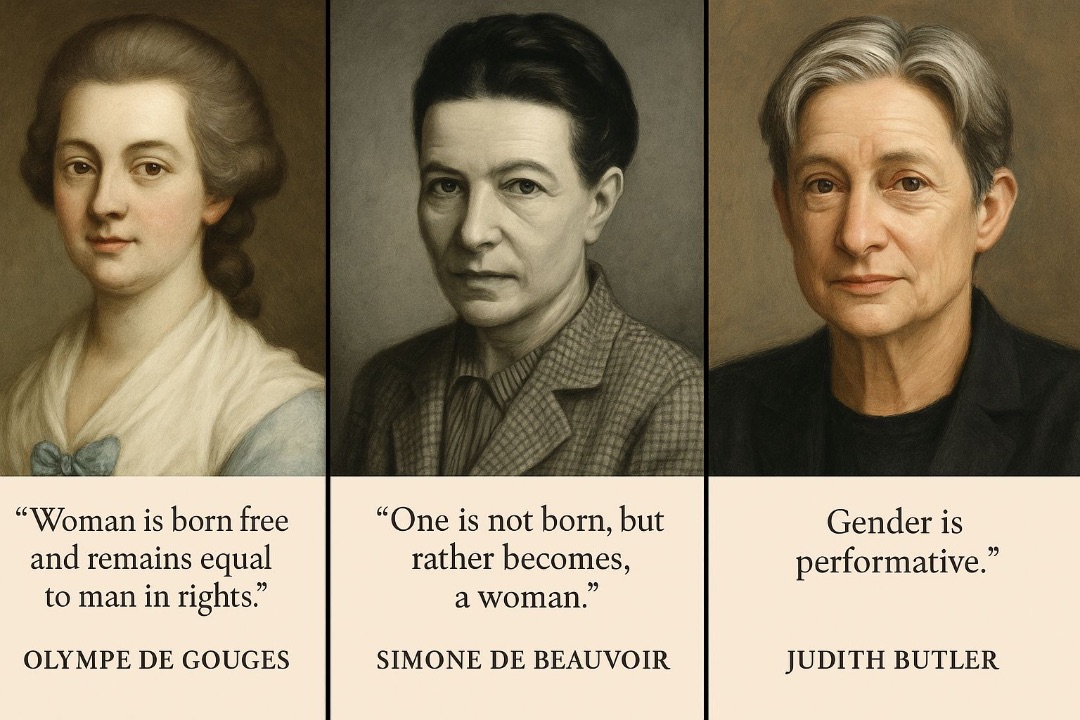

From Rights to Recognition - and Now Back Again?
Let us reintroduce three women who shaped feminist thought across centuries:
Olympe de Gouges (1748–1793) responded to the French Revolution’s Declaration of the Rights of Man with her own Declaration of the Rights of Woman. Her message was clear: liberty and equality cannot be exclusive. Gouges demanded political rights, education, and an end to slavery laying the groundwork for first-wave feminism focused on formal equality.
Simone de Beauvoir (1908–1986), in The Second Sex, moved beyond legal rights to interrogate the social construction of gender. “One is not born, but rather becomes, a woman.” Beauvoir’s existentialist lens shaped second-wave feminism, with its focus on emancipation, bodily autonomy, and breaking free from prescribed roles.
Judith Butler (b. 1956) unsettled the category of “woman” itself. For Butler, gender is not something we are, but something we perform. Her work gave third-wave feminism new tools: intersectionality, queer theory, and the refusal to fix identity in binary terms.
Over time, feminism moved from demanding equality, to exposing power, to deconstructing identity.
And yet today, all three of these ways of thinking are under siege. Not only have identity-based analyses been dismissed as “woke,” but calls for structural change are ridiculed as ideology, and even formal rights - really hard-won in the 20th century - are under open attack.
In parts of the world, especially the U.S., the political agenda seems bent not just on halting progress, but on reversing it going beyond Butler, beyond Beauvoir, beyond even de Gouges.
This is not a steady tide of progress. It is a rip current!
So the task now is not to pick a wave but to rise with force, to meet the undertow.
04-05-2025

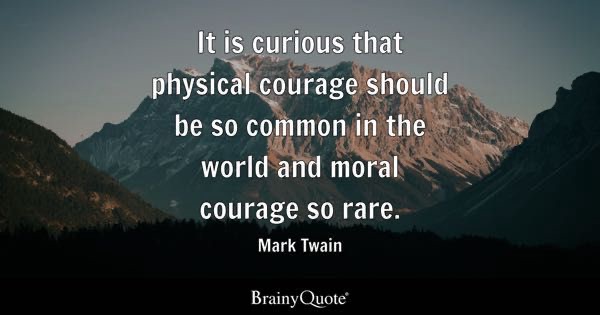

First DEI. Now deeper investments in the U.S.
Novartis and Roche have quietly scaled back their commitments to diversity, equity, and inclusion (DEI) — just as they deepen investments in the U.S., where political forces are dismantling equity efforts and calling for an end to research that includes people like me.
This isn’t just a shift in tone. It’s a test of moral courage — and a test of greed.
Both companies publicly commit to purpose-driven missions:
❄️Novartis vows to “reimagine medicine to improve and extend people’s lives.”
❄️Roche claims to be “doing now what patients need next.”
But will those promises still hold when profit and power pull in the opposite direction?
Since Donald Trump began threatening Swiss pharmaceutical companies with tariffs on medicine exports to the U.S. - their largest and most profitable market - the industry’s response has been telling. Instead of challenging political pressure in Washington, Novartis CEO Vas Narasimhan directed his criticism toward Europe. If governments want innovation to stay, he warned, they must be willing to pay more. “Don’t just expect us to produce here because other conditions are good,” he said. “You need to make it attractive.”
So let’s ask the obvious:
If you’re willing to abandon DEI to preserve access and avoid controversy - will you also abandon the kind of research that women need to survive?
As Invisible Women made clear, women are still misdiagnosed because clinical research is based on male symptoms. They still suffer more side effects because drug dosages are calibrated for male bodies. And they still live in a medical system that fails them because the data never truly saw them.
Without DEI, this will not change.
So: Will Novartis and Roche stand by their missions?
Or will they sell them off - one compromise at a time?
03-05-2025



Liberalism didn’t fail because it lost control of the economy. It failed because it lost the plot of what it means to be human.
For decades, liberalism promised freedom and fairness. But what it delivered—at its deepest level—was a moral vacuum and social fragmentation.
It replaced community with identity.
Meaning with choice.
Belonging with mobility.
Purpose with procedure.
It celebrated the individual as sovereign but left them alone, disoriented, and craving something thicker than rights or options: a home, a story, a shared “we.”
As Adrian Pabst puts it, liberalism’s universalism flattens tradition and culture in the name of equality. But the result isn’t unity, it’s tribalism. Without a common good, we fracture into curated selves and competitive groups, each seeking recognition in a system built on abstraction.
Worse still, liberalism refuses to say what is good only that you’re free to choose it. But freedom without purpose is existential drift. No amount of GDP growth can fill that void.
Perhaps the crisis of liberalism isn’t just political. It’s ontological. It’s about the loss of a shared imagination of the good.
Maybe the question for our time isn’t left vs. right, or open vs. closed.
Maybe it’s: How do we recover a moral language deep enough to bind us back!
If you want to engage deeper - not with my far to shallow pop insight: https://www.amazon.com/Politics-Virtue-Future-Perfect-Philosophy/dp/178348649X
02-05-2025



We talk about fixing market failures. But what if the real failure is our failure to The perfect partner in crime: desire itself.
As Bernard Stiegler observed, marketing no longer waits for considered choice — it bypasses reflection, hijacks impulse, and slowly erodes the very capacity for desire itself.
We are invited to choose endlessly, but without anchoring those choices in any hierarchy of goods, any vision of a good life. What emerges is not emancipation, but what William Burroughs called a "society of control" where manipulation operates beneath awareness, saturating attention, dulling imagination, and leaving people trapped in restless cycles of overconsumption, addiction, and despair.
Even techniques marketed as “nudging” prove the point: we increasingly assume that steering people subliminally toward “better” behaviors is preferable to cultivating their capacity to reason and choose well. We move not beyond unhappiness, but beyond even the pursuit of happiness - into a space where pleasure is exhausted, choice is hollowed out, and liberty itself becomes the perfect accomplice in our loss of freedom.
The real question is no longer whether we are free to choose. It is whether we are still allowed - and still able - to desire wisely.
Inspired by reading a book by Adrian Pabst on postliberalism..
27-04-2025



We talk about fixing market failures. But what if the real failure is our failure to imagine a different economy?
Reading Mariana Mazzucato’s new article (see in comment), “Governing the Economics of the Common Good,” I kept returning to one thought: neutrality is not enough. Markets do not simply fail at the margins. They drift, often deepening inequality, accelerating environmental collapse, and eroding public trust.
Mazzucato challenges the idea that governance should only intervene when markets go wrong.
She shows that markets are always shaped - by choices, by structures, by power.
If we refuse to set collective goals, we shape by default - often in ways no one would choose consciously.
Her alternative is simple but radical: govern markets around the common good from the outset.
Set direction. Foster participation. Share knowledge. Distribute rewards fairly. Demand accountability.
Governance is not just fixing. It is shaping, co-creating, building toward the outcomes we actually value.
Neutrality is itself a choice. If we want an economy that serves the common good, we must imagine it — and shape it — together.
What kind of economy do we want to build?
Link to article: https://www.tandfonline.com/doi/pdf/10.1080/17487870.2023.2280969
26-04-2025

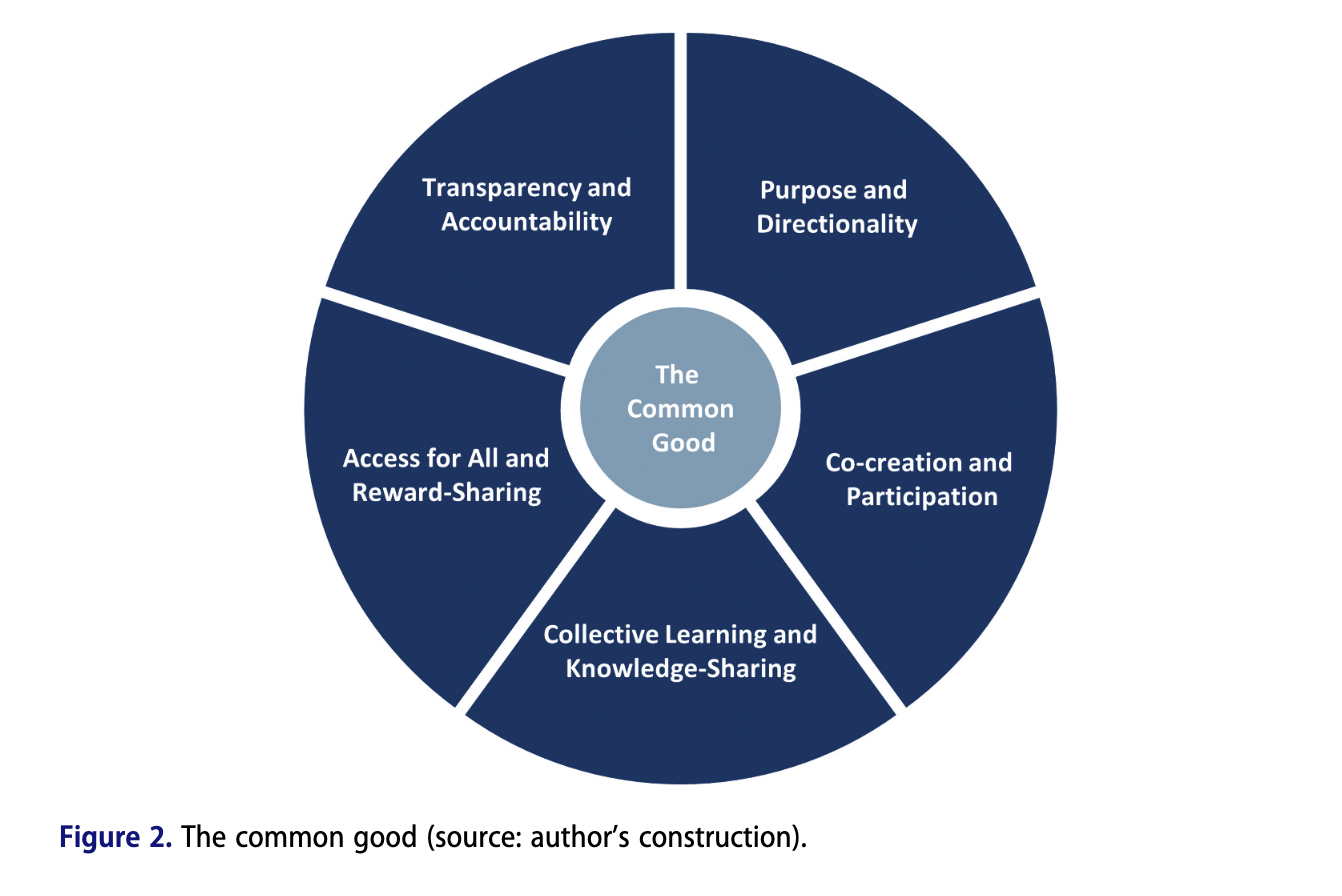

We talk about fixing market failures. But what if the real failure is our failure to imagine a different economy?
Reading Mariana Mazzucato's new article (see 👇 ), "Governing the Economics of the Common Good," I was struck by how deeply we have internalized the idea that neutrality is enough. For decades, we have treated the economy as a natural phenomenon, with the state stepping in only to fix occasional failures. Governance, in this view, should remain procedural, technical, impartial — avoiding any ambition to define the collective good. Yet as I read Mazzucato’s argument, it became clear how inadequate this imagination has become.
Climate breakdown, inequality, and systemic fragility are not isolated malfunctions of an otherwise healthy system. They are the result of allowing markets to drift without collective purpose or direction. Mazzucato shows that markets are never neutral. Instead they are always shaped, whether by deliberate choices or by the inertia of existing power structures.
Fixing failures after the fact is no longer enough. We need to ask, more fundamentally, what kind of economy we are building and for whom.
Mazzucato proposes a bold but pragmatic shift: to govern markets around the common good, not by retreating into top-down control, but by embracing collective goal-setting, co-creation, and shared accountability. She outlines five interconnected pillars: 1) setting purpose and directionality, 2) fostering participation, 3) building collective intelligence through open knowledge-sharing, 4) ensuring broad-based access to rewards, and 5) embedding transparency and democratic accountability at every level. Governance, in her view, is not a repair job. It is a creative, participatory act of shaping the economy toward human flourishing.
The more I reflect on it, the clearer it becomes: neutrality has a lot of unintended consequences (say a Swiss). It is a choice but not always the best one.
The future will not be shaped by those who stand aside. It will be shaped by those willing to ask what we owe each other — and to build an economy that answers.
Link to article: https://www.tandfonline.com/doi/full/10.1080/17487870.2023.2280969
24-04-2025



What if the Purpose of Education Isn’t to Know More — But to (Moral) Becoming?
For centuries, education in the West has been tethered to a humanist ideal: we teach in order to realize some fixed human nature whether that’s the rational thinker, the responsible citizen, or the productive worker. In this view, education is about qualification and socialization. It is about equipping people with knowledge, and integrating them into society. But what if education is not about fulfilling a predefined essence but more about becoming a subject in response to others?
This is where Emmanuel Levinas offers something radical: a different foundation for subjectivity. He challenges the idea that we begin as autonomous individuals. For Levinas, we become subjects because we are interrupted - called into responsibility by the face of the other. Ethics comes before identity. Responsibility precedes freedom.
Two educational responses to Levinas have emerged:
🧠 Gert Biesta: A Pedagogy of Interruption
Biesta argues that education serves three functions:
(1) Qualification, (2) Socialization and (3) Subjectification. The problem, he says, is that subjectification has been reduced to normalization. We don’t foster genuine selves but we produce conforming individuals!
Levinas helps here. For Biesta, education must become an interruption: disrupting the student’s self-certainty. Subjectification begins when a learner is de-centered and made responsible for more than themselves.
🧠 Guoping Zhao: A Pedagogy of Becoming (deep dive)
Zhao agrees, but offers a crucial correction: Biesta overstates the passivity in Levinas. There is more to subjectivity than being endlessly interrupted.
Levinas’s subject is not erased. It returns, but changed. Zhao highlights the dialectic at the heart of Levinas’s thought: the self moves between being and not-being, presence and exposure, identity and responsibility.
Subjectivity, then, is not fixed, but neither is it void. It is a moral and historical becoming—a continuous effort to respond to the other while still gathering a self that can act justly.
Zhao also cautions against the posthumanist rush to abandon the subject altogether. The task is not to erase subjectivity, but to recover its ethical depth; to attend to what Levinas calls the trace, the absent presence of the other that calls me to be more than I am.
❓ Why It Matters
In an age of metrics, standardization, and moral uncertainty, this reframing of education is urgent.
We don’t just need better outcomes. We need deeper becomings!
Levinas invites us to ask:
1) What kind of self is education forming?
2) Is it capable of responsibility?
3) Can it respond to absence—to injustice, suffering, or the call of the other?
Education, then, is not just about producing knowers. It’s about forming subjects who are unfinished, responsive, and ethically alive.
20-04-2025



Bullies Arriving - And Why Systems Let Them Win
What if bullying isn't a flaw in the system—but the result of how the system is designed?
I just read a comprehensive review of 20 years of workplace bullying research (Samnani & Singh, Aggression and Violent Behavior, 2012). It's about toxic organizations but it felt disturbingly close to the state of U.S. politics today. Here's what the research found:
Who bullies?
Bullies are often deeply insecure: neurotic, emotionally volatile, driven by negative affect. They may have high stress jobs or feel entitled because they believe they can get away with it. Some were once victims themselves.
Who gets bullied?
People who are less powerful: those with lower self-esteem, more anxious, less socially connected. Often, women and ethnic minorities are disproportionately targeted. The same traits that make someone hesitant to fight back also make them visible to those looking for someone to dominate.
What enables bullying?
👊 Bystanders stay silent, often out of fear.
👊 Leaders disengage, or worse, model authoritarian behavior.
👊 Group norms shift: bullying becomes normalized.
👊 Toxic cultures reward aggression: especially in competitive, individualistic, high power-distance environments.
👊 Rules are vague or unenforced, signalling tacit approval.
The system doesn’t just tolerate the bully—it rewards them. Promotions, visibility, influence. Others mimic their behavior. Bullying spreads.
One chilling line from the study: “Some organizations perceive bullying as an efficient way of inducing performance.”
It’s not about one person. It’s about how the system is built to protect and elevate the wrong kind of strength.
💬 Reading this, I didn’t just see workplace dynamics. I saw the U.S. (top floor) government. A neurotic (and what not else) president lashing out. Women and minorities in the crosshairs. A party (or maybe even two?) standing by. A culture that mistakes bullying for leadership. Law and accountability fading into theater. Competitive zero-sum politics masquerading as democracy. Not a company—but the same script. The system makes the bully. Unless we change the system.
19-04-2025

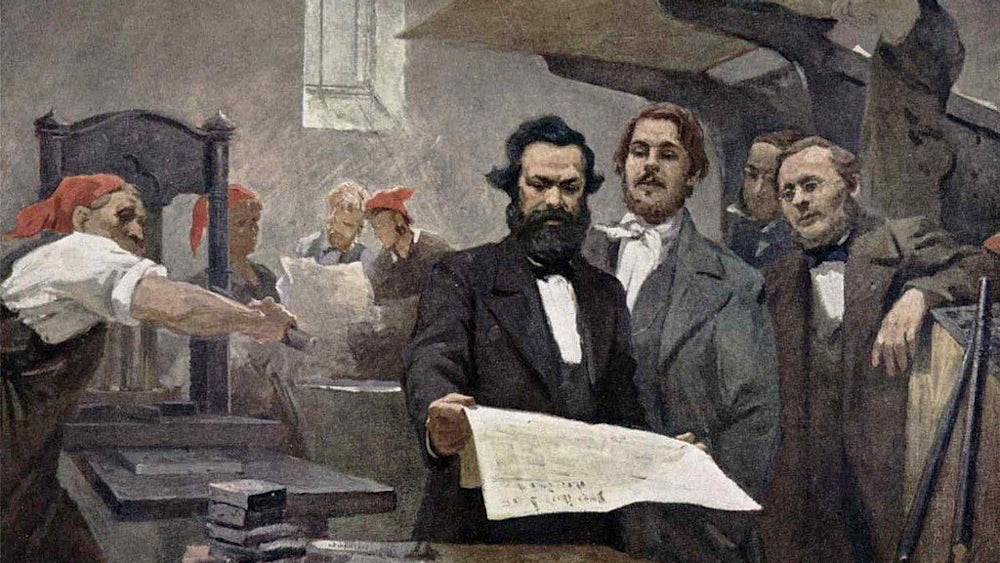

An Interview with Karl Marx, Friedrich Engels and Pope Francis
What happens when you bring Karl Marx, Friedrich Engels and Pope Francis into a joint discussion - not as a provocation, but as a serious invitation to analyze?
In an unusual chapter entitled “Last Call” (Schäfer/Ludwig, 2025), central passages from Das Kapital, the encyclical Laudato si' and other texts are juxtaposed in such a way as to create a factual, profound dialog. It is not an essay on ideological reconciliation, but an invitation to look at the seriousness of the ecological situation from different traditions of thought.
What becomes visible: The criticism of an economic system that systematically overburdens the environment and people is not an exclusively left-wing or religious position. It is a common observation.
Marx and Engels clearly describe how the capitalist mode of production destroys the natural foundations of life, always out of internal system logic. Profit takes precedence over conservation. The soil is depleted, the workforce exhausted, the environment externalized. Engels speaks of nature's “acts of revenge” when man believes he can control it.
In Laudato si', Pope Francis also names an ecologically and socially disintegrating dynamic, driven by a “technocratic paradigm” that confuses everything that is feasible with progress. He also speaks of a destruction of the foundations of life, and he also names structural causes - including a global system that enables exploitation in the global South while the North profits from it.
What is interesting here is less the similarity in the choice of words than the parallelism in thinking: both sides call for a profound change in perspective. Humans are not above nature. They do not have a right of ownership over the world, but a responsibility. Francis says: “We are not the owners of the earth.” Marx criticizes a mode of production that has no regard for ecological limits or social issues.
The fact that these analyses are so close today is probably due to the seriousness of the situation. And one may wonder why it has taken so long for the Church to formulate such a critique of the system, despite Francis of Assisi and the long tradition of preserving creation.
But one thing remains clear: Francis is not a Marxist. But when a pope and a critic of capitalism draw similar conclusions on key issues of responsibility and ecological limitation, it is worth listening. We certainly need both at the moment: an ethical and a structural critique. A moral stance and an economic rethink.
And it is certainly time to read Marx again - not to be right, but to better understand what has brought us into this situation.
Because one thing is clear from this intellectual dialog: we should behave as stewards, not owners, of the earth.
Link to article: https://link.springer.com/content/pdf/10.1007/978-3-658-44410-5_3
18-04-2025

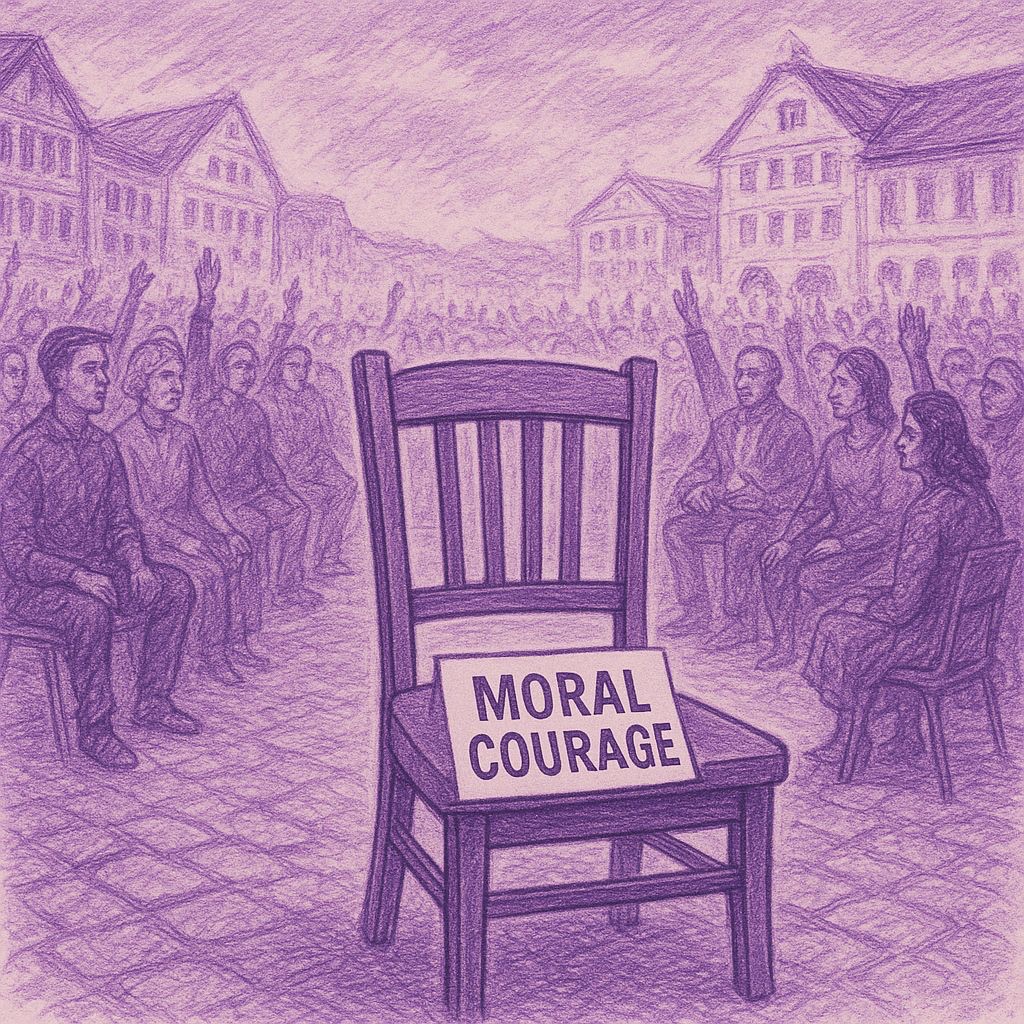

What is the Price of Morality?
A friend said to me recently: “Why make such a fuss? You live in safe, secure Switzerland. The US is far away.” And yes, materially speaking, he’s right.
We have little to lose when we speak up. Maybe a fraction of GDP. Maybe some trade friction. But we are not the ones dragged from our homes. We are not the ones jailed without trial. We are not the ones whose judges are ignored, whose rule of law is hollowed out in real time.
And precisely because we have so little to lose, our silence becomes indefensible.
What does it cost us to speak the truth? To support those trying to hold the line? To offer solidarity—not just thoughts and prayers, but real consequences, real political stance?
Hannah Arendt once wrote:
“The sad truth is that most evil is done by people who never make up their minds to be good or evil.”
When morality becomes cheap, and we still refuse to pay the price—what does that say about us?
What, if anything, are we still willing to risk for justice?
16-04-2025

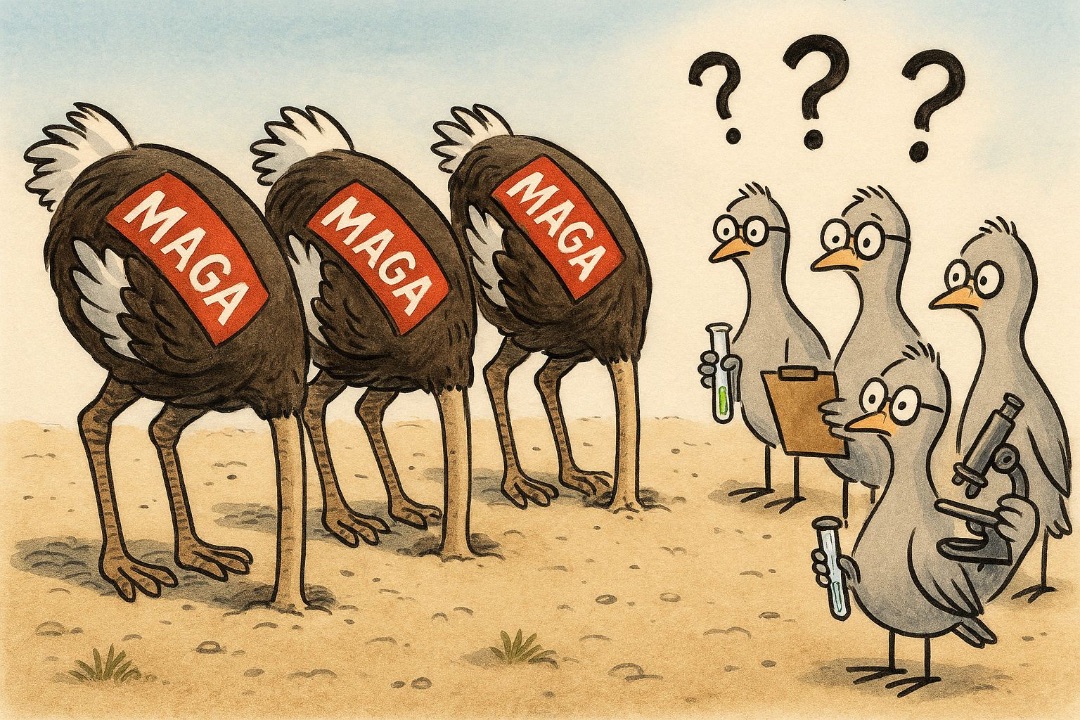

🔬 Still Trusted, But Under Fire: When Science Meets Ideology
The good news? Science is still broadly trusted.
The bad news? That trust is eroding—unevenly, and tellingly.
A new large-scale study in Nature Human Behaviour confirms a persistent pattern: liberals in the U.S. show consistently higher levels of trust in scientists than conservatives. That in itself may not be surprising. But what should give us pause is where these gaps appear most sharply.
Trust is not equally distributed across disciplines. It falters where science touches societal fault lines: climate change, public health, environmental impact, social inequality. In other words, where science doesn’t just describe the world, but suggests we may need to change it.
This isn’t a blanket rejection of science—it’s a selective one, driven by perceived threats to identity, ideology, or economic interests. And it’s not unique to the U.S. Other countries show similar patterns, though the divide is particularly stark here.
Even more troubling: the study tested five carefully designed interventions to bridge this ideological trust gap. They tried framing science in conservative values, showcasing credible conservative scientists, highlighting shared benefits, and more. None of them worked.
Once science is ideologically discredited, it’s hard to shake that off. Distrust appears sticky—rooted less in information than in identity. That’s not just a communications problem. It’s a governance problem. A societal one. An ethical one.
Because when scientific authority is accepted only when it aligns with existing worldviews, collective action becomes nearly impossible. And yet, the challenges we face—from pandemics to planetary boundaries—demand just that: coordinated, evidence-based, cross-ideological responses.
Maybe the answer isn’t persuasion, but dialogue. It takes us scientists to embrace engaged scholarship while still walking the fine line to show that we remain critical and apply rigor. And it takes the remaining sane governments to speak up—to show they are trusting in science.
Because trust isn’t built through slogans— It’s lived, shared, co-created.
Link to article: https://www.nature.com/articles/s41562-025-02147-z
14-04-2025

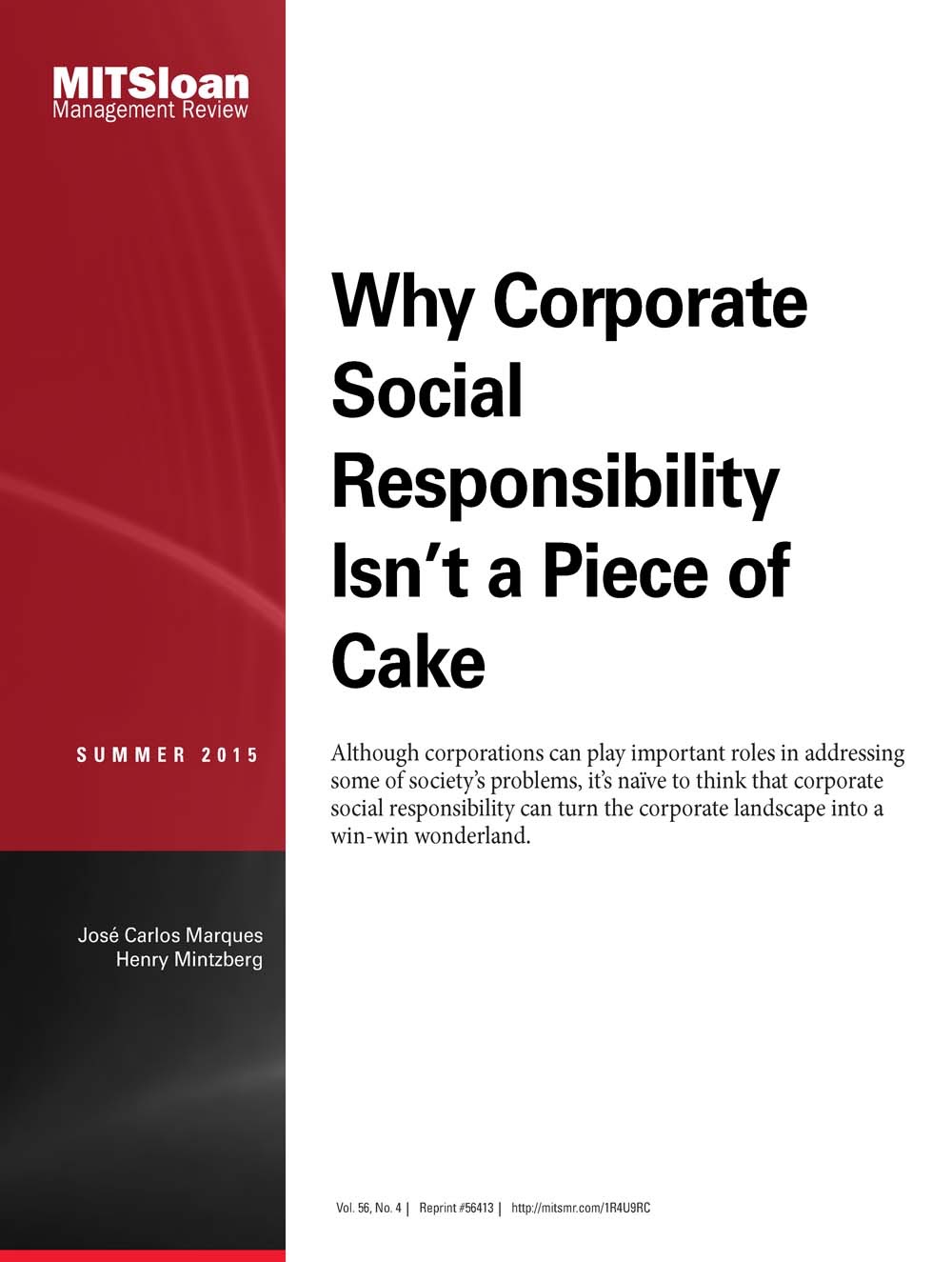

“Everyone deserves a slice of the cake.” Sounds nice. But is it enough?
Mintzberg and Marques take aim at the illusion that corporate social responsibility (CSR) can be both easy and effective. They dissect four familiar metaphors:
1) “Let them eat cake” (Friedman’s profit-only logic),
2) “Icing on the cake” (CSR as PR or philanthropy),
3) “Everyone gets a slice” (stakeholder balancing),
4) “Having your cake and eating it too” (the win-win CSR fantasy).
Each, they argue, hides structural contradictions and reinforces the status quo.
One metaphor deserves a closer look: “everyone deserves a slice.” The stakeholder view acknowledges a broader set of duties—but, as Mintzberg points out, it rarely offers a meaningful way to resolve conflicts between stakeholders. It often becomes moral vagueness, not moral clarity.
👉 This is where his critique hits home. Real responsibility isn’t about treating all interests equally—it’s about ethical contextuality: the capacity to judge, to deliberate, to weigh what truly matters in a given situation. Not every issue is of equal weight, but each deserves conscious attention. This kind of judgment—messy, grounded, situated—is where ethics lives. The slice doesn’t just need to be shared. It needs to be justified.
So what’s the alternative to CSR slogans? Mintzberg calls for attention to the bread and butter of responsible business. He names six essentials:
1) Fostering ethical judgment
2) Rethinking executive compensation
3) Acknowledging the role of regulation
4) Holding lobbying to account
5) Empowering the plural sector
6) Building cross-sector collaboration
Two stand out.
Regulation. Without it, pretending to be good will almost always outcompete being good. Greenwashing is cheaper than transformation. If we want responsible companies to succeed, we must design a level playing field—where integrity isn’t a disadvantage.
👉 I often see how regulation is dismissed as a constraint—yet without it, the market penalizes moral commitment. Decency needs not just courage, but conditions. It's time we acknowledge that voluntary goodness isn't enough.
Cross-sector collaboration. Complex problems demand partnerships. But responsibility cannot dissolve in the process. Just because labor is divided doesn’t mean responsibility can be. We need collective responsibility that’s aware of interdependence—but refuses to blur accountability.
👉 For me, this is the ethical core: even in a fragmented world, we must hold on to the idea that the common good belongs to us all. Complexity should be an invitation to moral cooperation, not an excuse to look away.
We don’t need another slice of cake. We need to bake better bread.
Link to article: https://sloanreview.mit.edu/article/why-corporate-social-responsibility-isnt-a-piece-of-cake/
10-04-2025



ESG Isn’t Dead—but It May Have Lost Its Soul
Deep Dive and Reflections on Alex Edmans’ “The End of ESG”
Alex Edmans makes a good argument: ESG is both “extremely important—and nothing special.” That’s not a contradiction. It’s a call to more thoughtfulness in a field focused too squarely on metrics, labels, and performance "theatre".
Here’s where his critique cuts deepest:
1. ESG Is Not a Add-On, rather it should be fully integrated! By isolating ESG from mainstream business practice, we risk turning it into an ornamental badge—rather than a way of seeing. If a factor matters for long-term value, why carve it out as “extra”?
Implication: The real question is not whether something is “ESG enough,” but whether it serves the good life—for people, planet, and the enterprise.
2. ESG Metrics Risk Hollowing Out Meaning! What gets measured may get managed—but only if it still carries meaning. Most ESG metrics reward harm reduction, not value creation. Worse, they invite us to manage by compliance rather than by conscience.
Implication: We need fewer indicators that reassure stakeholders—and more that challenge us. Ask: Does this metric cultivate practical wisdom? Or just signal virtue?
3. ESG-Linked Pay Can Undermine Moral Motivation! Tying executive pay to ESG goals seems progressive—but it reduces complex moral trade-offs to contractual proxies. Edmans reminds us: leaders may “hit the target but miss the point.”
Implication: Stewardship is not a KPI. It is a character. Let’s build practices that form moral motivation, not just incentivize performance on pre-approved metrics.
And the rest, briefly—but no less urgently:
4. ESG Doesn’t Own Externalities! Innovation, care, and courage also generate public value. Let’s resist the temptation to sanctify ESG while ignoring other moral forces within business.
5. ESG Funds Deserve Scrutiny, Not Sanctimony!Engagement is vital—but not inherently more noble than strategic or cultural transformation. Every fund owes its investors honesty.
So, what now?
If ESG is to matter, it must stop trying to be special—and start becoming sincere. This is not about metrics or mandates. It’s about whether business can serve the common good with integrity, beyond the performance.
Let’s return to the deeper question: What kind of world is our business helping to build? And what are we becoming while serving the world proper?
Link to article: https://doi.org/10.1111/fima.12413
10-04-2025

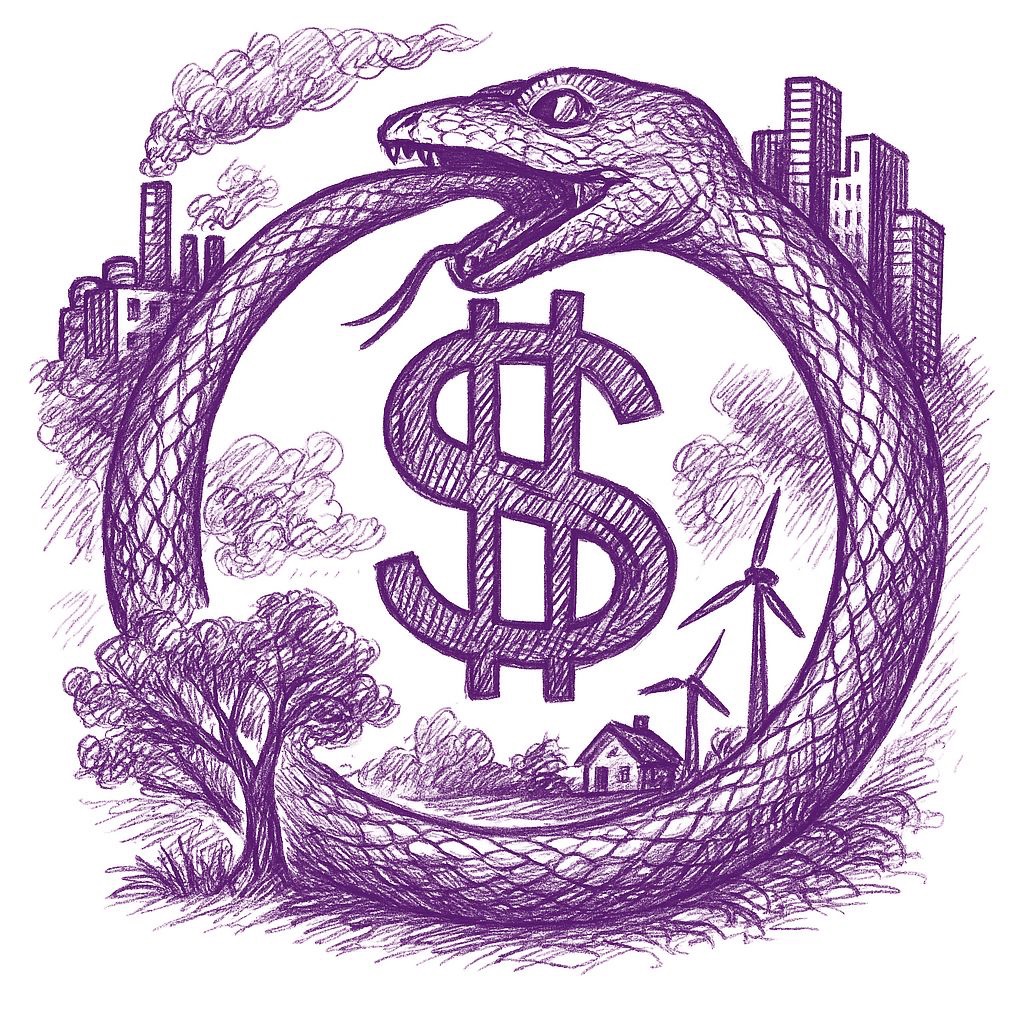

At least that’s what Anselm Schneider argues — and he might be right.
In his article “Bound to Fail? Exploring the Systemic Pathologies of CSR”, Schneider challenges the foundational assumption that Corporate Social Responsibility can serve as an effective remedy for capitalism’s social and ecological harms. On the contrary, he shows that CSR often reproduces the very dynamics it claims to oppose.
He identifies three core pathologies:
➊ Market Expansion
CSR often acts as a vehicle for commodification. It extends capitalist logic into spheres previously governed by public values — from education and health to environmental protection. Under the guise of responsibility, it broadens market reach and deepens dependence on corporate solutions.
➋ Indoctrination
CSR reshapes how we think. It aligns social concerns with business logic, portraying companies as ethical agents while naturalizing capitalist rationality. It contributes to a business ontology that renders alternative modes of organizing and valuing almost unthinkable.
CSR allows firms to present themselves as moral actors while maintaining harmful practices. Through glossy reports, stakeholder dialogues, and symbolic gestures, companies secure public approval — not by changing, but by appearing to care.
At its core, Schneider’s message is this:
CSR doesn’t cure capitalism — it stabilizes it.
It absorbs critique, disarms resistance, and forestalls structural transformation.
Even more disturbingly, CSR research itself risks becoming complicit — by focusing on incremental improvements without challenging the macro-systemic forces that constrain corporate behavior.
Schneider invites us to go deeper.
To explore how capitalism’s expansionary dynamics — both material and symbolic — shape the possibilities of responsibility in the first place.
To recognize that addressing the symptoms through CSR, without tackling root causes, will not suffice.
So what now?
It may be time to stop perfecting the patchwork.
Not just better CSR.
Not just more metrics.
But a reimagining of the firm-in-system — one that confronts power, rewrites purpose, and opens space for alternatives to emerge.
Are we ready to do that work?
01-04-2025

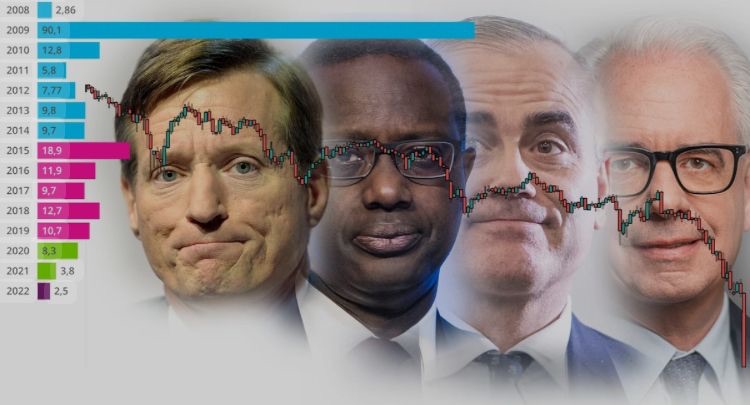

Is This What Meritocracy Looks Like? A Fraudulent Label.
For some time now, a term has been haunting management handbooks, keynotes and HR strategy papers: meritocracy. Sounds modern, fair, performance-oriented. But the term was originally a warning - in 1958, Michael Young described in a dystopia what a society that idolizes performance and ignores everything else looks like: Origin, opportunity, chance, structural inequality.
Today we can see how right he was.
Because the very question of who is actually “the best” is highly political. Is it about turnover? Visibility? Network cultivation? Or is it about integrity, vision and a sense of responsibility? Good leadership requires more than just performance. It takes aptitude - and maturity.
But potential is difficult to measure. And so we promote what is visible - and overlook what is effective. We measure what is easy to count - and ignore what is elusive but crucial: judgment, attitude, the ability to listen.
Then there are rope teams and status games. The higher the level, the more what counts is how you look - not how you act. Those who get through confuse luck with merit. And forget that no one gets to the top alone.
This is precisely why we need a serious DEI - as a structural corrective. Not as a symbolic policy, but as a response to systemic failure. Those who make it into talent pools must not be selected on the basis of brilliance and stable smell. And those who make it to the top should know this: Success is never just merit - it is also chance and context.
Modesty would then not be a career obstacle, but a selection criterion.
So dear UBS, Novartis - and you SAPs of this world:
Do you really want to stick with these selection patterns? You have abolished DEI programs - but without structural corrective measures, meritocracy is a fairy tale.can we afford to do without understanding, diversity and dignity?
And for those who don't want to recognize the picture: It shows the “perfectly selected”, “top-rated” talents who have ruined Credit Suisse with their glittering CVs - and equally glittering arrogance (alternatively, you could now add the new team in the White House).
So much for meritocracy in action.
31-03-2025

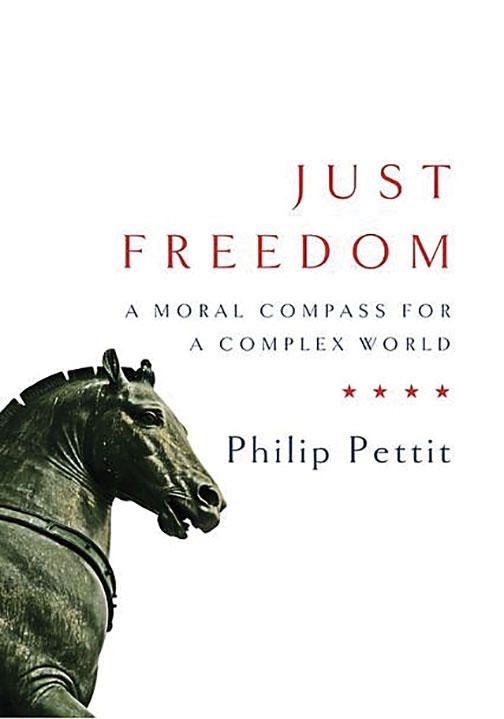

Trump and his circles are threatening more than just America. The wave of backlash is already spilling over—and some of our institutions here in Europe seem eager to comply before even being asked.
Calls to ditch DEI, to keep the golf-buddy highway to power intact, to return to outdated norms: short hair is suddenly “inappropriate” for women, emotions “unmanly,” rainbow colors “too loud.” All this, not in the name of freedom, but in the name of fear.
And sadly, some Swiss corporations seem to align without hesitation—UBS Roche Novartis just to name the known examples. But isn’t this deeply Unswiss? Since when do we bow to foreign pressures? Our constitution commits us to use our strength for the weakest among us. Not to serve the powerful few.
So maybe what we need is not less DEI—but more moral imagination.
Let’s rename DEI for what it should have always been: JUST FREEDOM.
Not about productivity. Not about virtue signaling.
But about freedom from arbitrary domination.
Freedom from autocrats and power-drunk narcissists.
Freedom to meet eye to eye.
Freedom to build systems that don’t reward privilege and bias, but fairness and shared dignity.
This is the moment to show your true colors.
So the rest of us can adjust—
With our voices.
And with our wallets.
29-03-2025

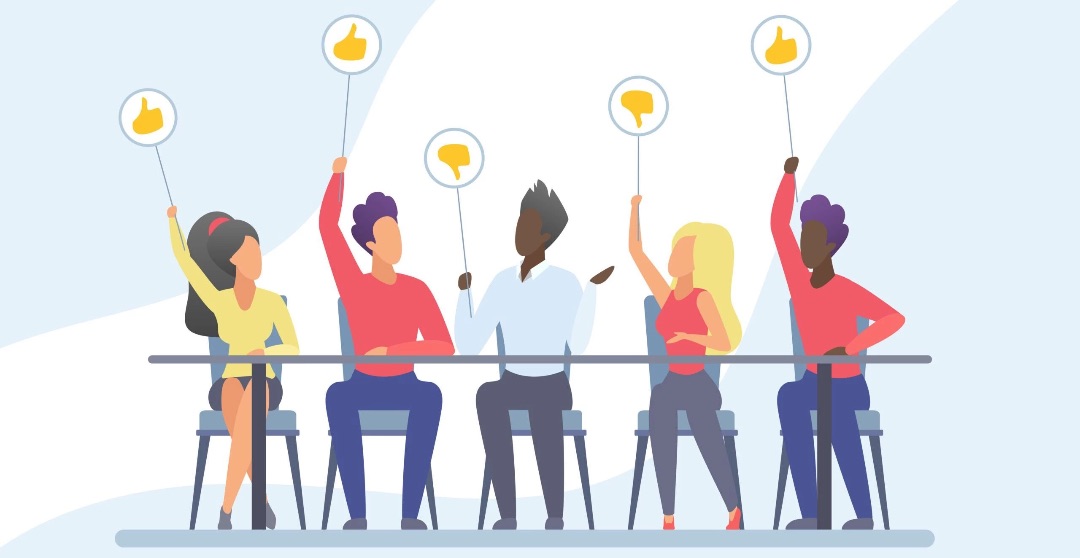

A Good Economy Needs More Than Just Good-Willed Companies
The idea of stakeholder capitalism has captured the imagination of many. It promises a world where businesses don’t just maximize shareholder profits but create value for all stakeholders—employees, communities, customers, and the environment.
This vision is appealing. It reminds us that business is not just economic—it is inherently moral. That the purpose of the firm is not simply to extract but to contribute. That value creation can and should be mutual.
But let’s be honest: that’s not enough says Hargrave ( 👇 ).
Why good intentions are not sufficient
The problem is that even well-intentioned firms operate within a broader economic system—a system governed by laws, incentives, institutions, and, yes, power. And in that system, bad actors can still win. Exploitative business models—those that pollute, underpay, or extract short-term gains—can outperform the regenerators if the institutional playing field rewards the wrong metrics. Good firms alone cannot fix a broken system. In fact, they risk being outcompeted, bought out, or pushed aside.
That’s why a good economy requires more than goodwill. It requires rules that reward responsibility and regulations that constrain harm. It requires a state that ensures the background conditions of justice: fair markets, rights protection, and real consequences for externalizing costs onto others.
Corporate governance and it’s internal design matter too. If we want firms to serve all stakeholders, we must ask: Who owns them? Who governs them? Whose voices count?
So far, stakeholder capitalism has largely relied on managerial discretion—hoping that enlightened leaders will do the right thing. But leadership is fragile. It changes. Incentives drift. Without formal governance structures, without ownership models that anchor long-term purpose, we risk hollowing out even the best intentions. We need new forms of stakeholder governance—structures that give employees, communities, and future generations a seat at the table.
But there is a further missing piece: civic bonds
And even then, even with responsible firms and a responsive state—something is still missing.
We also need civic strength. We need movements, networks, and associations that connect those who care about the common good. Civil society is not a backdrop—it’s a force. It pushes for better regulation, supports the firms that want to lead, and resists the rollback of hard-won gains.
If we want to change the system, we need not just companies and laws—we need commitments and coalitions. We need to act not just as professionals or consumers, but as citizens.
The takeaway?
A good economy is not just a collection of good companies. It is a well-ordered system—with ethical firms, just institutions, and a vibrant civil society working in concert. It’s time we stopped treating stakeholder capitalism as the full story. It’s a good story—but not the whole one.
Link to article: https://doi.org/10.1111/beer.12774
27-03-2025

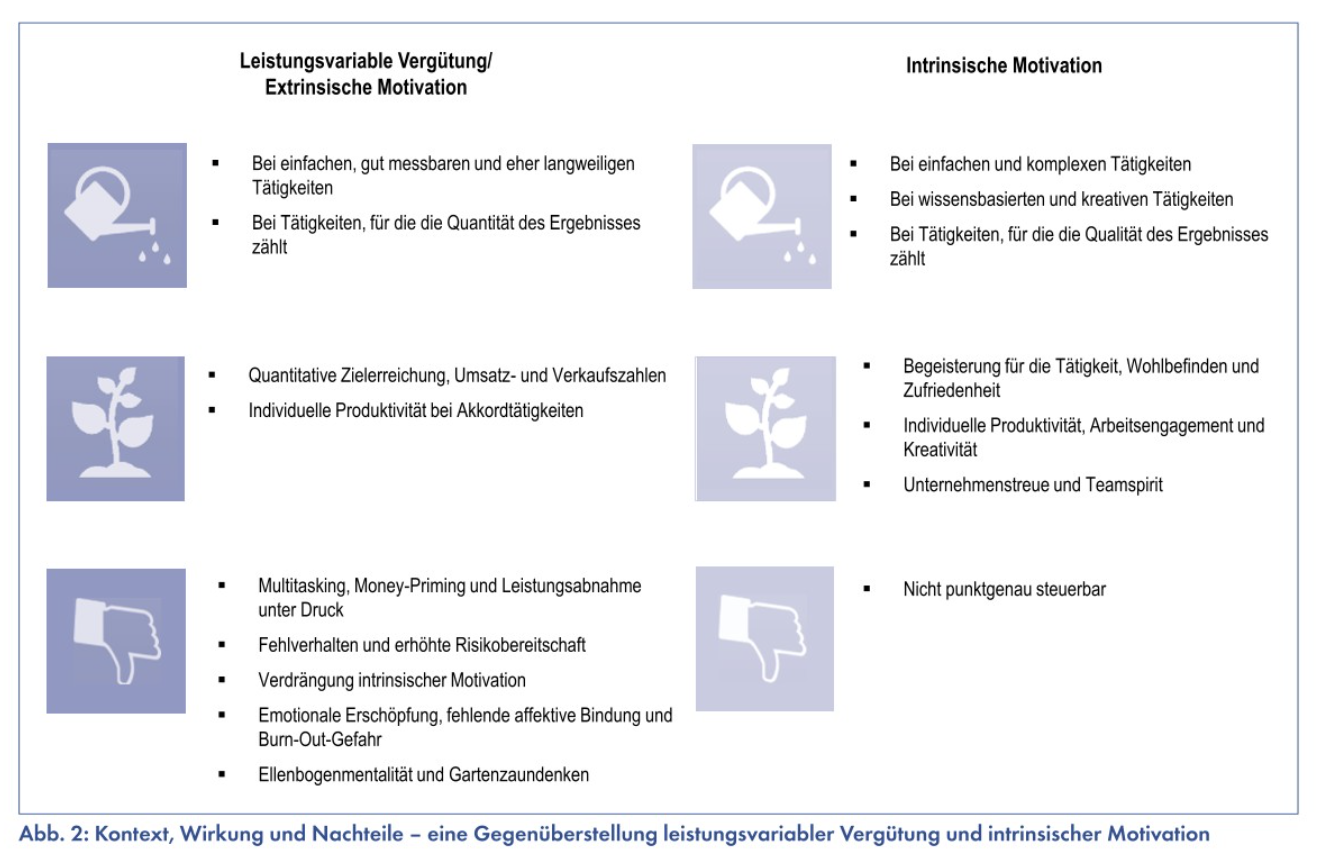

Back to the 80ies?
Gordon Gekko would be delighted: bonuses and target agreements are back in fashion, as if we hadn't learned anything since shoulder pads. “There is no alternative” seems to be the HR mantra again - at a time when we should actually know better.
After all, the great triumph of performance-based remuneration that began back then has brought whole armies of remuneration consultants into the workforce - but in many organizations it has had exactly the opposite effect of what was promised. Instead of performance: false incentives. Instead of commitment: a mercenary mentality. Instead of enjoyment at work: pressure, demotivation and the risk of burnout. And, as the article by Anastasia Sapegina and myself ( 👇 ) shows, the bottom line may even be less overall performance.
What many overlook: Variable performance-related pay works - but only under very specific conditions. It may increase productivity in boring, easily measurable tasks. But wherever thinking, creativity, teamwork or even meaning are required, it does more harm than good. It suppresses intrinsic motivation, reduces emotional attachment to the company and weakens the willingness to take on responsibility or go the extra mile.
The paradoxical result: the carrot that is supposed to motivate becomes a blinder. Employees focus on what is rewarded - and leave everything else behind. Collaboration? Learning? Ethical reflection? If they are not paid: irrelevant. Welcome to the multi-task dilemma and the monetization trap.
But there is an alternative - even from the 80s (if you must). Not everything was greed and glitz. Think of the HP Way: a corporate culture that focused on trust, purpose, personal responsibility and development. Or the Montreal Protocol - when countries around the world joined forces to save the ozone layer. The 80s could also be different: profound, progressive, even collective.
So why not revive the 80s? Instead of more bonuses, more relationship quality. Instead of pay-for-performance, room for purpose. Instead of extrinsic control, genuine trust.
👉 Our article summarizes the most important findings - and shows alternatives for how companies can focus on sustainable motivation and good performance without sacrificing the human element. And if you want to go even further - entrepreneurial power for good - please take a look at our manifesto.
Time to finally put out the Bonfire of Vanities.
Link to article: https://www.alexandria.unisg.ch/handle/20.500.14171/98950
26-03-2025

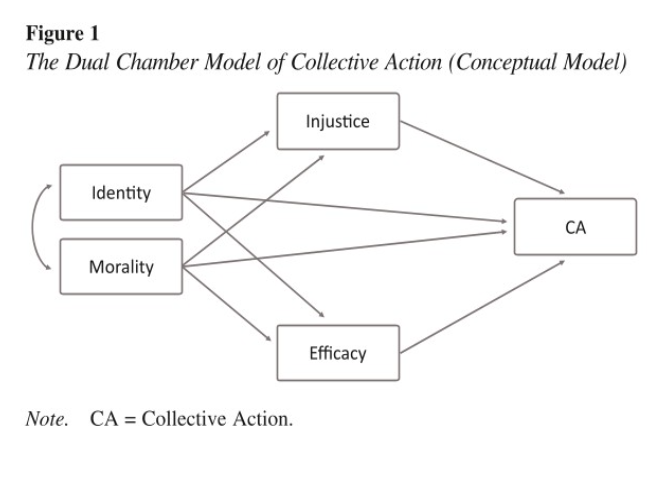

🧭 How to Organize Protest — A Crash Course for Those Who Still Care
If we want to defend democracy — and I mean actually defend it, not just write think pieces about it — we need to start studying what works when it comes to protest and solidarity.
Not someday. Now.
Because here’s the thing: democracies are not being overthrown in dramatic coups. They’re being quietly strangled by kleptocrats, hollowed out by oligarchs, and disfigured by bullies in suits. Bit by bit, checks and balances are weakened, dissent is criminalized, and the public is either distracted, divided, or demoralized.
📚 Enter a timely meta-analysis by Agostini & van Zomeren (2021), drawing on over 400 empirical studies and more than 120,000 participants. It’s the kind of research we should be printing on flyers and taping to café windows. Their model? Robust and grounded. They call it the “dual chamber heart” of protest.
At its core, collective action is powered by four intertwined forces: Identity. Morality. Injustice. Efficacy. (Or, in simpler terms: who I am, what I believe, what I feel is wrong, and whether I think I can do something about it.)
Let’s break it down.
💡 Identity gives people a sense of belonging — those who are directly affected, who are the movement. Think: parents of dark-haired girls being singled out at school. Neurodiverse kids systematically sidelined.
💡 Moral conviction is the real gateway to solidarity. It pulls in those who may not share the experience, but who recognize the violation of a fundamental principle: Every child deserves dignity. Equal opportunities are not negotiable. No one should be punished for who they are.
That’s the magic formula: concrete identity + universal moral cause. This is how you build bridges: From my child to all children.
From my experience to our values.
From my pain to a collective refusal to stay silent.
So yes — mobilize as a parent of a dark-haired girl. But do it in the name of women’s rights. Yes — speak up as a father of a boy with learning challenges. But let it be a call for equal opportunity for every learner.
Let specific pain feed universal outrage. This is how we resist — not just by standing against something, but by standing for something that touches many.
And one more thing: the research is clear — people will not act unless they believe it matters. Efficacy isn’t a nice bonus; it’s the engine of sustained resistance. If you’re organizing something, make it visible. Make it winnable. Make people believe that their voice is part of a force.
This is not the time for quiet despair. It’s the time to read, reflect, organize — and speak like it counts!
Link to article: https://doi.org/10.1037/bul0000256
23-03-2025



🧠 Where are the thinkers when democracy is under threat?
When human rights become “political.”
When climate science gets labeled “ideology.”
When companies are punished for standing by liberal values.
Thinkers50 calls itself the home of the leading management thinkers of our age. But in an age like this — why is the Radar so silent?
Where are the voices that unsettle, provoke, resist?
Instead of revelation, we get repackaging.
Instead of depth, "what sells"
Instead of truth, "what power wants to hear".
And let’s be honest: A ranking system for thought leadership might just perpetuate performativity.
Rewarding clarity over complexity, visibility over substance, and clever frameworks over moral courage.
Otto Laske reminds us: thinking isn’t a product.
It’s a process — dialectical, disruptive, developmental. It’s about seeing reality in motion, not fixing it into a deck.
So here’s the real question:
💥 What if Thinkers50 reclaimed thinking as an act of resistance?
Not market-friendly innovation, but truth-telling.
Not spotlighting stars, but amplifying dissent.
Not riding the wave, but revealing what lies beneath.
Because right now, if you’re a scientist — if you care about democracy, truth, or the conditions for human dignity — these are not normal times.
So Thinkers50: Will you keep celebrating what fits the system? Or will you start lifting up those who question the system itself?
The world doesn’t need more frameworks.
It needs more courage. And that by the way is asked from all thinkers out there (also those who never made it on the list).
20-03-2025

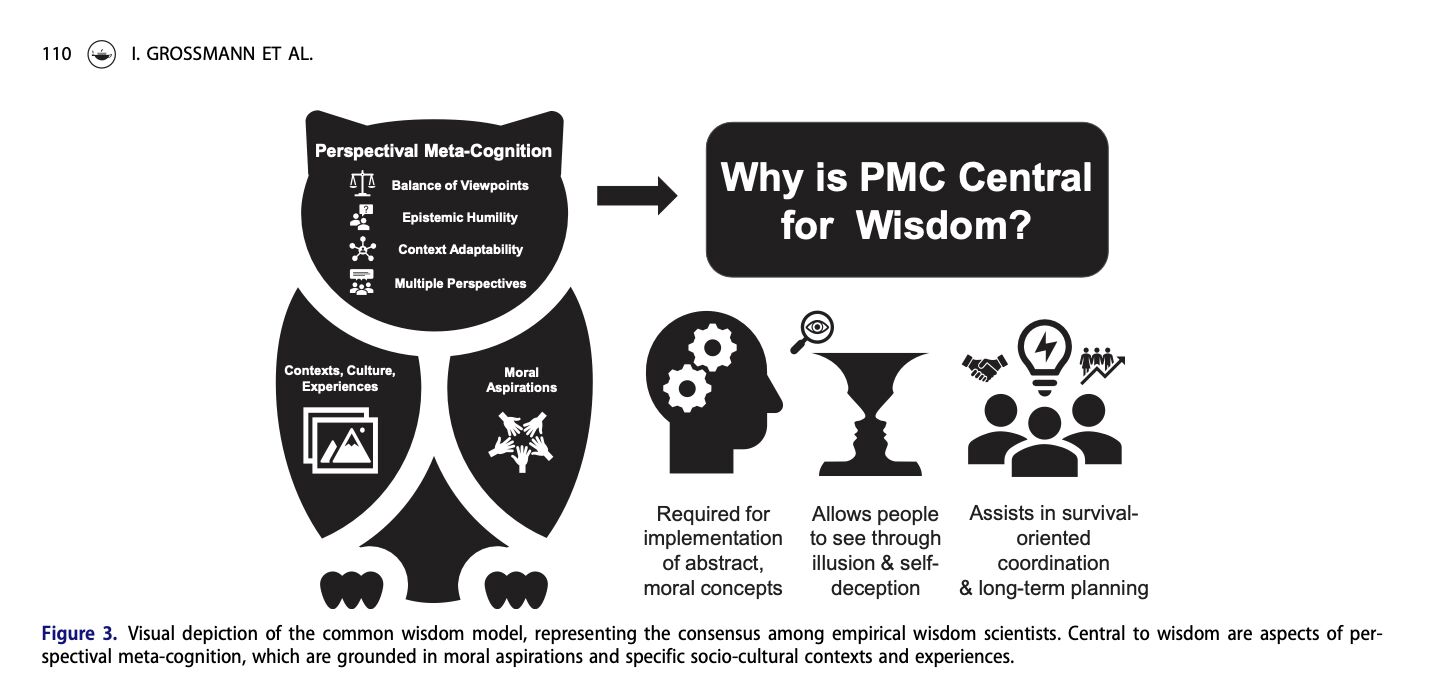

Practical Wisdom: Why We Need It – and Why We Rarely See It
Social critics and political pundits have sounded the alarm on the rise of incivility, the spread of misinformation, the growing distrust in institutions, and the lack of ethical considerations in our governance systems. A staggering 62% of the world’s population believes the world is getting worse. Meanwhile, social and behavioral scientists call for more intellectual humility and open-mindedness to navigate the complexities of our time.
At the heart of these concerns is a fundamental question: What is wisdom, and how do we investigate it scientifically?
An international group of leading psychological wisdom researchers has developed a shared conceptualization of wisdom, distinguishing it from related constructs such as empathy, humility, openness, and rationality. A key aspect of this conceptualization is practical wisdom (phronesis)—the ability to apply deep insight, moral sensibility, and adaptability in real-world decision-making.
What is Practical Wisdom (in Psychology)?
👉 A meta-cognitive process that enables people to navigate uncertainty, resolve ethical conflicts, and balance competing interests by considering multiple perspectives and long-term consequences.
It consists of two core capabilities:
✅ Moral Orientation – not rigid rule-following, but the skillful navigation between self-interest, compassion, and the well-being of the community.
✅ Perspectival Meta-Cognition – the ability to reflect on one’s own thinking to improve decision-making. This includes:
🔹 Epistemic humility – recognizing one’s own limitations and learning from different perspectives
🔹 Context adaptability – responding flexibly to various challenges
🔹 Perspective-taking – considering multiple viewpoints to see through illusions and self-deception
🚨 Why Do We See So Little Practical Wisdom in Leadership? Because we systematically select for the wrong traits. Research shows:
❌ We promote overconfidence, but we need humility. Bold certainty is mistaken for competence, while the ability to acknowledge limits and learn from others is overlooked.
❌ We reward egotism, but we need more interindependence. Self-centered ambition is seen as leadership material, while those who truly take responsibility for the greater good are often ignored.
💡 We must fundamentally rethink how we choose our leaders. Our selection systems—whether in business, politics, or society—need to prioritize wisdom over performative confidence and long-term responsibility over short-term self-promotion.
And in times when wisdom is lacking, we must actively spread and elevate positive role models—those who embody humility, moral courage, and deep insight. Because without wisdom, leadership becomes reckless.
Link to article:
https://www.researchgate.net/profile/Igor-Grossmann/publication/344940568_The_Science_of_Wisdom_in_a_Polarized_World_Knowns_and_Unknowns/links/6347165aff870c55ce1db3a2/The-Science-of-Wisdom-in-a-Polarized-World-Knowns-and-Unknowns.pdf
19-03-2025

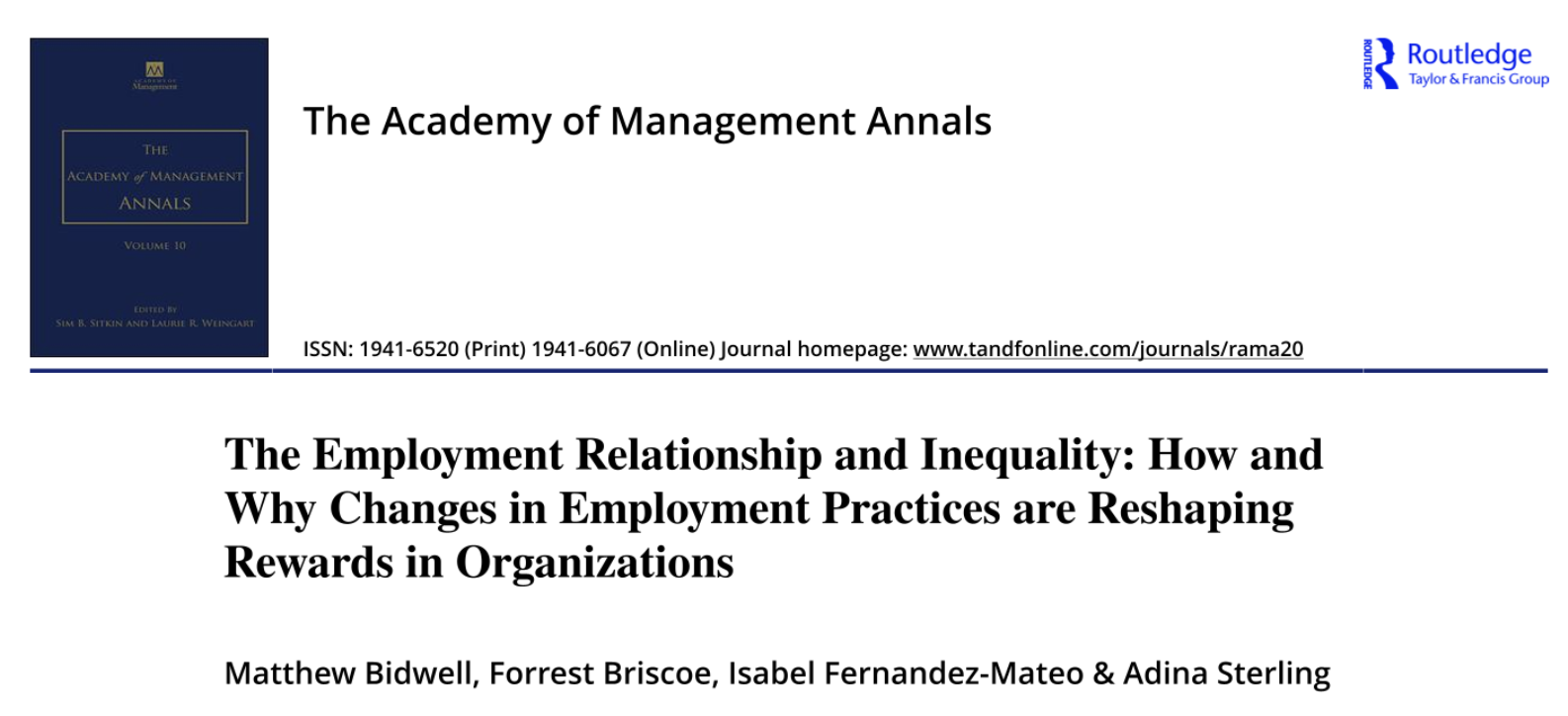

From Equal Opportunity to Executive Enrichment: The Quiet Corporate Retreat
CEO pay continues to climb while companies quietly scale back their commitments to diversity, equity, and inclusion (DEI). Across industries, we’re seeing layoffs of DEI teams, the rollback of work-family policies, and shrinking benefits—suggesting that many corporate commitments to fairness and inclusion were more symbolic than structural. At the same time, executive compensation and shareholder payouts remain at record highs.
A deep dive ( 👇 ) by Bidwell, Briscoe, Fernandez-Mateo, and Sterling (2013) reveals a long-term transformation of employment relationships—not just in the U.S., but across many economies—where stability, fairness, and internal career development have been replaced by market-driven employment models that concentrate rewards at the top while increasing precarity for workers.
🔹 Job stability has eroded. Long-term employment, once a cornerstone of corporate life, has been replaced by higher turnover, more layoffs, and a preference for external hiring—often disadvantaging those without elite networks.
🔹 The rise of contingent work. Gig work, temp contracts, and outsourcing mean fewer protections and more job insecurity—particularly for women and marginalized workers.
🔹 From fairness to hyper-individualism. Internal career ladders and seniority-based pay have been replaced by performance-based compensation, which the authors show often reinforces inequality rather than rewarding effort fairly.
🔹 The shift of risk to workers. Pensions have largely been replaced by defined contribution plans, employer-sponsored healthcare is shrinking, and benefits that once provided stability are now seen as business costs to be minimized.
🔹 Commitments to inclusion and fairness? Quietly scaled back. Many companies are cutting DEI initiatives, treating them as optional rather than core to business strategy.
The authors emphasize that these shifts didn’t just happen—they were deliberate corporate choices, shaped by the decline of unions, the rise of shareholder-first governance, and the increasing role of financial markets in shaping employment strategies.
So where does this leave us? If companies continue optimizing for short-term financial gains while scaling back their commitments to worker stability and inclusion, we risk further entrenching an economy where opportunity is increasingly reserved for the few. And as we see in the U.S., when economic power is concentrated at the top, it quickly translates into political influence—threatening the foundations of democracy itself.
📢 How should companies be held accountable for the employment systems they create? What needs to change?
Link to article: https://doi.org/10.1080/19416520.2013.761403
16-03-2025

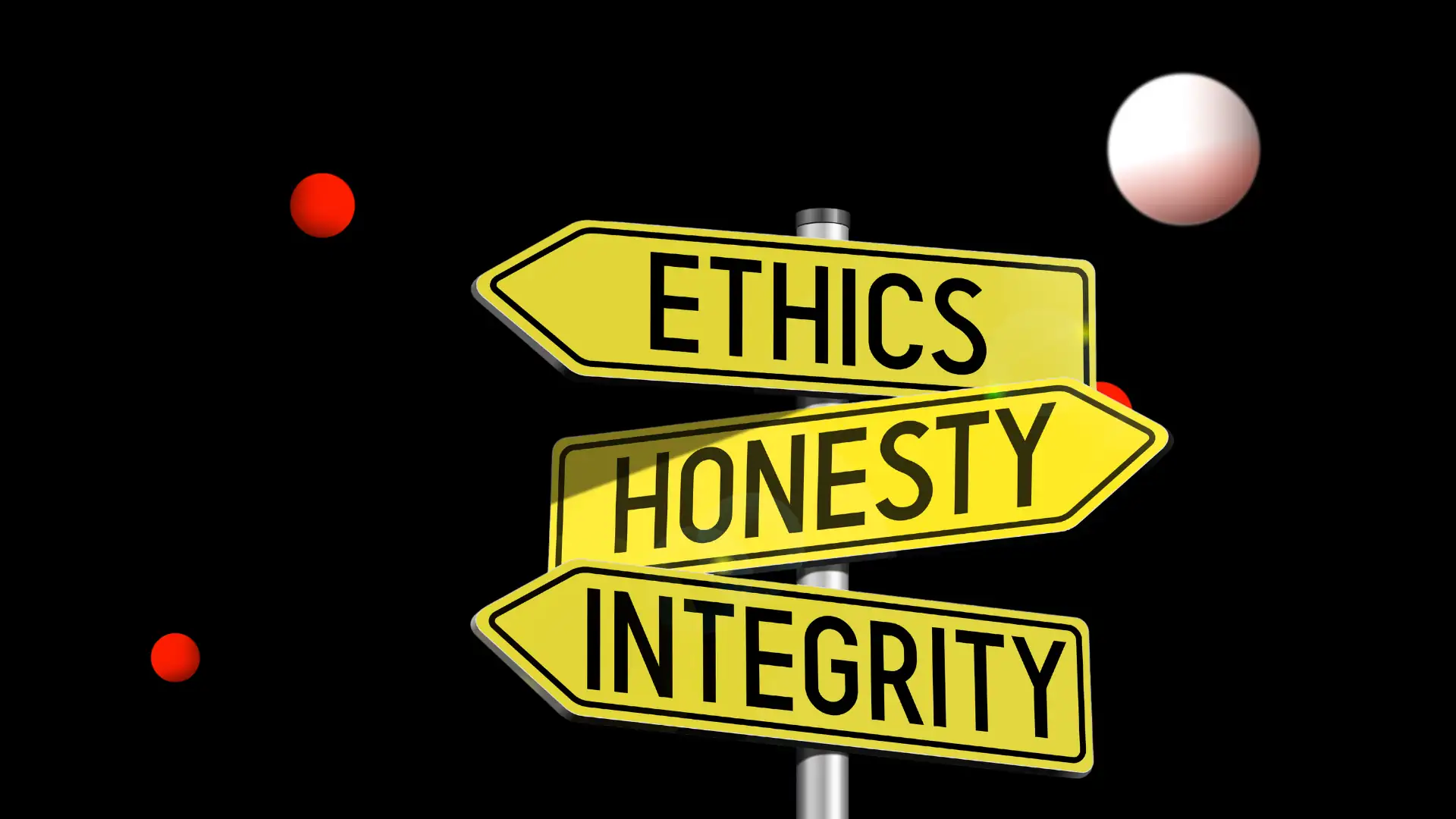

Moral Imagination: Why Companies Need Ethical Innovation
Why do some organizations navigate ethical challenges with aplomb, while others stumble time and again? The difference lies not in better compliance systems, but in a deeper skill: moral imagination.
Moral imagination (see article 👇) goes beyond compliance. It enables companies to ask not only: How do we avoid harm? But rather: How can we help shape a fairer, more sustainable world through our actions?
Three central dimensions:
1️⃣ Reproductive imagination: recognizing that one's own perspective is limited. “My view is incomplete.”
2️⃣ Productive imagination: Breaking down existing thought patterns, seeing the world through different eyes - especially those that are systematically excluded.
3️⃣ Free reflection: Discovering new ethical solutions beyond dilemma thinking.
How organizations can cultivate moral imagination?
✅ Institutionalize epistemic humility:
- Implement red teams that question existing assumptions
- Promote a culture in which uncertainty and not knowing are considered productive
- Rewarding intellectual humility
Orchestrate perspectival plurality:
- Building deliberative spaces in which diverse perspectives are not only heard, but actively integrated
- Inclusion of marginalized stakeholders - not as a PR measure, but as a necessary strategy to avoid blind spots
✅ Develop narrative competence:
- Training for leaders to recognize the implicit narratives that shape their moral judgment
- Using storytelling as a tool for ethical reflection and decision-making
✅ Enable ethical improvisation
- Create ethical sandboxes where teams can test alternative moral scenarios
- Promote a dynamic dialog between principles and lived reality instead of rigid rules
✅ Strengthen temporal-ethical thinking
- Promote future-oriented reflection: “How will this decision be judged in 10 years' time?”
- Align ethical standards not only with current expectations, but also with long-term social responsibility
Ethical innovation is not only created by individuals, but also by structures that expand rather than narrow the moral space of possibility. Organizational “affordances” are:
✔ Intellectual curiosity instead of defensive justification
✔ A culture of reflection that legitimizes deep thought
✔ Generative rather than extractive relationships with all stakeholders
The challenge for companies is therefore not just to respond to moral crises, but to create spaces in which ethical imagination can grow!
Link to article: https://doi.org/10.1111/basr.12206
13-03-2025



🌿 While the US Shouts "Drill Baby Drill," Here's a Practical Framework for Actually Giving a Damn
Just stumbled upon this really nice regeneration canvas that's perfectly timed as we watch politicians compete over who can dig up fossil fuels faster.
Let's get practical about what regeneration actually means: "the process of rebuilding or renewal of the COMMON GOOD" - taking an asset, ecosystem, community or place from crisis to recovery.
This "double loop" business model canvas flips the script on traditional business thinking:
🌿 It connects BUSINESS VALUE and COMMUNITY VALUE in a virtuous cycle
🌿 It asks what products/services you should TERMINATE (yes, sometimes less is more!)
🌿 It focuses on PROTECTING, REPAIRING, INVESTING & TRANSFORMING the commons
🌿 It measures MISSION COST alongside IMPACT
What makes this approach refreshing is how it forces organizations to face hard truths. The canvas asks: "What products and services do we terminate?" - a question most sustainability initiatives conveniently avoid.
While politicians debate whether climate change is real (spoiler: it is), frameworks like this give businesses practical tools to stop pretending that slapping "eco-friendly" on the label is enough. But let's be clear - this is just a starting point. Real regeneration will require deeper systemic change, challenging ownership models, and fundamentally rethinking whom we are serving, with what good purpose.
To round it up a comment from the originator Christian Sarkar 🌱🇺🇦🇵🇸: "Our institutions are not fit for purpose – either because they are corrupt, or because they lack the imagination and will required for the tasks at hand. The same can be said for our leaders. They have betrayed the public trust.
For forty years the institutions of the world have worked to “mitigate” climate change with no results – or worse – failure to stop the rapid destruction of the ecosystems which keep us all alive. Leaders and businesses have largely ignored the cries of our dying planet." Or to say it with Mintzberg: lets stop corporate irresponsibility!
12-03-2025

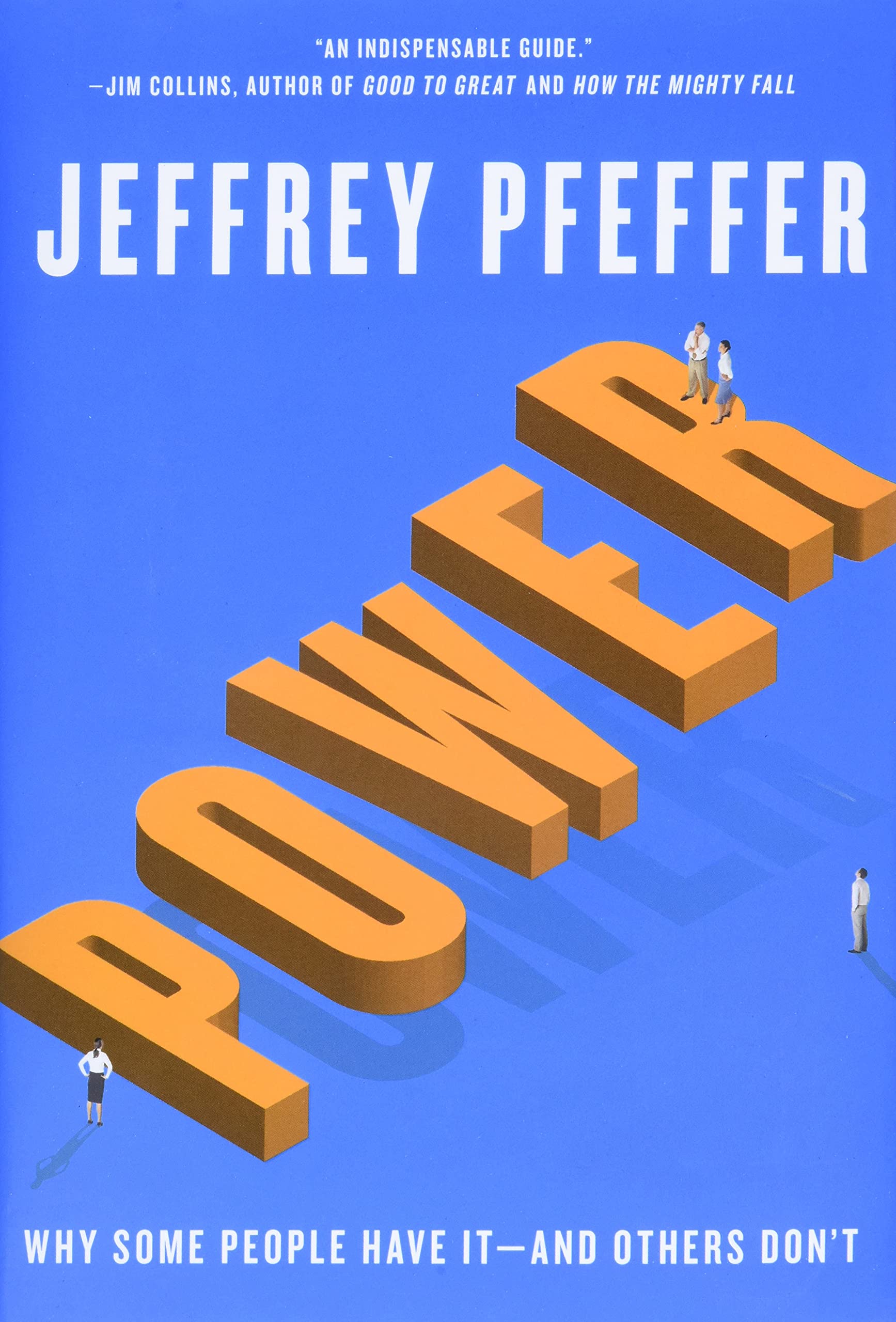

Transforming Anger into Durable Moral Courage
Many of us feel it: the setbacks in society are generating anger. But anger alone won’t take us forward. What matters is transforming it into moral courage—not as a fleeting burst of bravery, but as durable moral courage that withstands resistance.
Comer & Sekerka ( 👇 ) describe in their model how durable moral courage enables sustained ethical action. Their framework identifies three key insulating factors that prevent morally committed individuals from becoming discouraged or even demoralized in the face of opposition.
🔹 Moral Efficacy: Moral courage begins with the belief that one can remain effective even in difficult situations. Those who see themselves as capable of tackling ethical challenges are less likely to lose faith in their ability to act—no matter how strong the resistance.
🔹 Resilience (Hardiness): Research shows that resilient individuals share three key traits:
🫀 They stay engaged despite obstacles rather than withdrawing.
🫀 They believe they can exert influence instead of feeling powerless.
🫀 They view crises as opportunities for learning, not just as threats.
🔹 Planning for Endurance: Moral integrity is not a one-time act, but a long-term strategy. Successful moral actors actively plan for resistance. This includes:
🫀 Anticipating possible reactions
🫀 Understanding political dynamics
🫀 Building strategic networks
🫀 Forming alliances with like-minded individuals
🫀 Accepting that change is often slow
And when resistance has already materialized? Emotional self-regulation helps prevent demoralization. This includes self-affirmation (reflecting on past successes), self-compassion (without falling into self-pity), and seeking social support.
What does this mean in practice? Rightous anger may be the first step—the key is what we do with it. Moral courage - if understood as steadfastness requires strategy, resilience, and long-term planning. So it is also good to understand how to deal with power.
Links: https://www.gsb.stanford.edu/faculty-research/books/power-why-some-people-have-it-others-dont
10-03-2025



Market for Lemons? Why the CEO Labor Market is an Illusion
CEO compensation is - rightly - being discussed again today. The common line of defense? The “market for talent”. Supposedly, companies have to pay ever higher salaries because otherwise they are not competitive internationally - especially in comparison to the USA.
But does this market even exist? Does CEO search really function like a classic labor market, where supply and demand objectively produce the best talent and the fairest prices?
A new study by Keil, Lavie & Pavićević (2022) shows: No. The CEO market is less like an open competition for the best than a market for lemons - full of uncertainties, misjudgements and systematically wrong decisions.
Why the CEO job market is an illusion:
❄️Externe CEOs are not a better solution - often quite the opposite
1) Companies pay top salaries for “experienced” external executives. But the study shows: The length and breadth of experience says little about subsequent performance.
2) More important than experience is fit: CEOs who come from companies with completely different structures, industries or cultures struggle with negative transfer effects. They overestimate the transferability of old recipes for success and often fail due to internal resistance.
❄️Stakeholder Resistance eats up supposed advantages:
3) External CEOs have to earn the trust of leadership teams, the workforce, investors and customers.
4) The study shows that negative reactions to the appointment of a CEO are a major reason for poor company performance - and that this effect is particularly pronounced in the case of external CEOs.
5) Meaning: If you spend a lot of money on a CEO who is rejected internally, you not only pay the salary, but also the costs of inefficiency.
The real alternative: no auction, but systematic succession planning
If the CEO market is not a fair marketplace, but a distorted playing field, then the solution is not “pay more”. Instead, a different strategy is needed:
✅ Targeted succession development instead of a frantic search for external “saviors” - with a focus on fit and internal acceptance.
✅ Clear, long-term remuneration models that promote sustainable leadership instead of buying in the most expensive talent in the short term.
✅ A CEO system instead of a superstar cult - where responsibility is broadly distributed instead of giving one person excessive power and pay.
A functioning company is not a soccer club that has to buy the best player. Those who systematically develop leadership don't need salary competitions - and don't end up with a lemon.
Links:
https://scholar.google.com/scholar?cluster=8702968818123764853&hl=en&as_sdt=0,5#d=gs_qabs&t=1742197532644&u=%23p%3DA0-QD_iWWu0J
https://www.globalbankingandfinance.com/UBS-GROUP-ANNUAL-REPORT-ERMOTTI-5ea2fef2-ce82-4df4-8c39-b344c6898ad6
08-03-2025

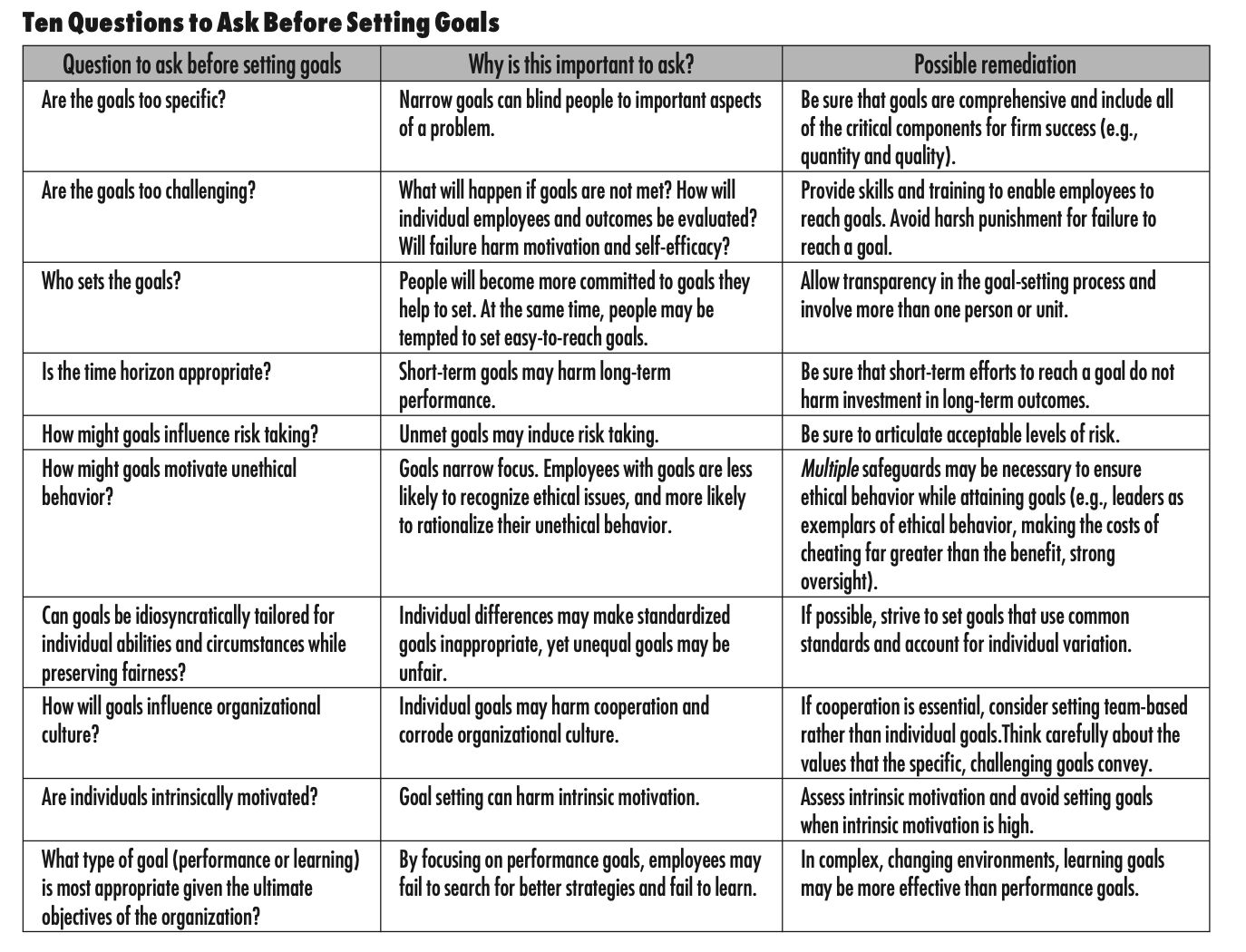

SMART Goals are not always smart!
I have been teaching this now for a long time and newer evidence just validates some of the issues mentioned here. In particular specific and challenging have been found lead to ignorance and to undermine conterfactual reasoning - hence if you are searching for critical thinking, mindfulness and creativity you might want to steer clear of these. And challenging, stretch goals have been linked to counterproductive work behaviors - gaming, tweaking and unethical behaviors.
Thus reading the article (comments 👇) which was brave enough to bring this into the light is still a must: "Goals Gone Wild: The Systematic Side Effects of Overprescribing Goal Setting" by Ordóñez, Schweitzer, Galinsky, and Bazerman.
Their "Ten Questions to Ask Before Setting Goals" table is revelatory. It warns that overly specific goals create tunnel vision, challenging goals can demotivate when skills are lacking, and short-term targets damage long-term performance. The table explains how goals distort risk preferences, making employees more likely to take dangerous risks. Perhaps most concerning, goals narrow focus in ways that make people less likely to recognize ethical issues and more likely to rationalize unethical behavior.
The authors recommend multiple safeguards: ensure goals comprehensively cover all critical components, provide adequate training, create transparent processes involving multiple stakeholders, articulate acceptable risk levels, implement strong oversight, consider team-based goals when collaboration matters, and recognize when learning goals are more appropriate than performance goals. They suggest avoiding goals entirely when intrinsic motivation is already high.
It also bears healthy lessons both for research and practice. In research we should not let paradigm holder (here goal setting theory) prevent adversal results to see the light of the day. And in practice we should finally kiss best practices good-bye - horses for courses is the better view. And stay reflective (if your goals do not prevent it).
Link to article: https://www.academia.edu/download/54138593/hbr_research.pdf
07-03-2025



07-03-2025
Transforming Anger into Prudent Courage
Many people feel it: social setbacks generate anger. But anger alone will not get us anywhere. It is crucial to transform it into moral courage - not as a spontaneous act of strength, but as lasting moral courage that stands up to resistance.
In their model, Comer & Sekerka (in the commentary) describe how lasting moral courage enables long-term ethical action. Their model identifies three key insulating factors that prevent moral agents from being discouraged or even demoralized by resistance.
🔹 Moral efficacy: Moral courage begins with the conviction that one can remain effective even in difficult situations. Those who see themselves as capable of overcoming ethical challenges are less likely to lose faith in their ability to act - even when the headwinds are strong.
🔹 Resilience (hardiness): Research shows that resilient people have three things in common:
- They engage despite resistance instead of resigning.
- They believe they can exert influence instead of feeling powerless.
- They see crises as learning opportunities, not just threats.
🔹 Planning for endurance: Moral integrity is not a one-off act, but a long-term strategy. Successful moral actors consciously plan for resistance. This includes:
- Anticipating possible reactions
- Understanding political dynamics
- Building strategic networks
- Alliances with like-minded people
- Accepting that change is often slow
What if the resistance is already there? Emotional self-regulation helps to avoid being overwhelmed by demoralization. This includes self-affirmation (remembering past successes), self-compassion (without sinking into self-pity) and social support.
What does this mean in concrete terms? Anger is only the first step - what we do with it is crucial. Moral resilience requires strategy, resilience and long-term planning. It will be an endurance run - but that's exactly what we need now!
Link to article: https://www.academia.edu/download/112797618/116035.pdf
07-03-2025



Why Slashing Public Administration Undermines Democracy
Recent aggressive cuts to federal administration in the US aren't just about "trimming the fat" - they strike at the heart of democratic governance. Johan Olsen's seminal work "Maybe It Is Time to Rediscover Bureaucracy" helps us understand why.
Public administration serves critical democratic functions:
⚖️ Safeguarding constitutional principles and the rule of law
⚖️ Ensuring equal treatment of all citizens regardless of wealth or status
⚖️ Providing institutional memory and stability across political transitions
⚖️ Implementing democratically determined policies with integrity
⚖️ Speaking truth to power through professional expertise
Why bureaucracy remains essential for public administration:
Bureaucratic organization, despite its negative stereotypes, is uniquely designed to protect these democratic values. Merit-based hiring, standardized procedures, and professional norms create an environment where decisions are made impartially, based on rules rather than personal preferences. Research shows that well-crafted (green not red) bureaucracies are associated with reduced corruption, greater social trust, and more effective poverty reduction.
The role of markets and networks:
While market mechanisms can improve efficiency and networks can enhance collaboration, neither can replace bureaucracy's core democratic functions. Markets respond to wealth, not citizenship rights. Networks privilege those with existing connections. The tensions between these forms are not bugs but features of democratic governance - they represent the ongoing balance between efficiency, responsiveness, and constitutional values.
When the business hammer sees everything as a nail:
Too many management scholars and business executives approach government with a dangerous assumption: that skills and principles from the corporate world can be directly applied to public administration. This "hammer looking for nails" approach fundamentally misunderstands the distinct nature of states versus companies. Businesses exist to maximize profit for shareholders; governments exist to serve citizens equally and protect constitutional rights. Before prescribing corporate solutions, management experts would do well to study the unique requirements and responsibilities of democratic governance.
What's at stake:
When we slash public administration in the name of "efficiency," we're not just cutting costs - we're undermining the institutional infrastructure of democracy itself. The current gutting of federal agencies is very likely not about making government work better - it's about weakening government's capacity to serve all citizens equally and implement democratically established policies.
Link to article: https://doi.org/10.1093/jopart/mui027
06-03-2025

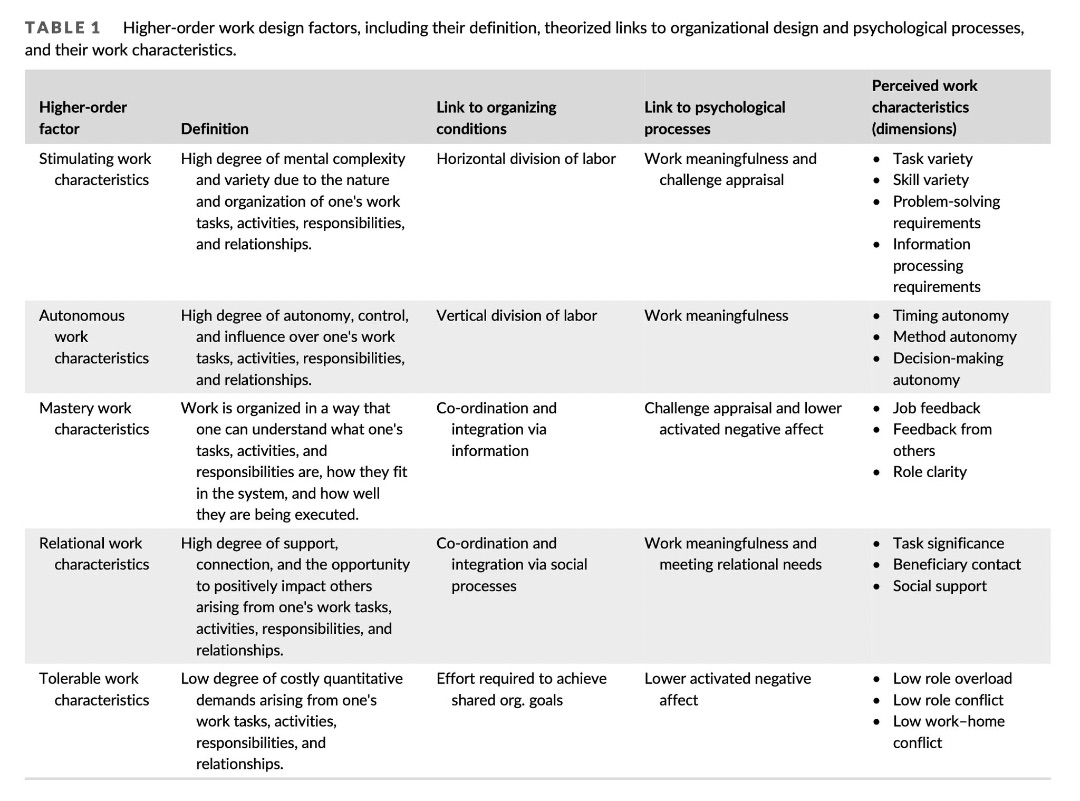

🔥 We got it wrong.
By ripping HR away from Organizational Development, we lost our most powerful lever for shaping well-being, engagement, and performance: work design. Instead of tackling the fundamental question—how work is structured—we buried ourselves in performance appraisals, high-powered incentives, and engagement surveys. A reactive mess that ignores the real drivers of motivation and productivity.
But work design is organizational development. And a new model is cutting through the noise to bring structure back to this fragmented field.
💥 The SMART Work Design Model
Parker & Knight (2024) propose an integrated framework that links work characteristics directly to organizational design decisions—where power, responsibility, and meaning in work are shaped:
1️⃣ Stimulating – Shaped by horizontal division of labor (how tasks are allocated). Includes task variety, skill variety, information processing, and problem-solving requirements.
2️⃣ Mastery – Reflects integration through information (how organizations coordinate). Includes job feedback, feedback from others, and role clarity.
3️⃣ Autonomous – Derives from vertical division of labor (who controls decisions). Includes decision-making autonomy, timing autonomy, and method autonomy.
4️⃣ Relational – Captures integration through social processes (how employees connect). Includes social support, task significance, and beneficiary contact.
5️⃣ Tolerable – Relates to effort allocation (how workload is managed). Includes role overload, work-home conflict, and role conflict.
🩻 The Data: Why It Matters
Across three studies, Parker & Knight found that the SMART model doesn’t just make intuitive sense—it predicts performance outcomes. And while I focus on performance here, the research covers more (read the article!).
🩺 Autonomy correlated with core task performance (r = 0.23, p < 0.05) and proactive performance (taking charge: r = 0.25, strategic scanning: r = 0.25).
🩺 Mastery had the strongest link to core task performance (r = 0.27, p < 0.01).
🩺 Relational work was associated with core task performance (r = 0.24, p < 0.05) and showed the highest correlation with adaptive performance (r = 0.30, p < 0.01).
🩺 Tolerable work was also positively linked to adaptive performance (r = 0.22, p < 0.05).
🚀 The Future of HR: Time to Step Up
The takeaway: Performance management isn’t just an HR initiative—it’s an organizational design problem. If companies want to actually improve performance, engagement, and well-being, they need to design better jobs.
But let’s not stop there. The impact of work design doesn’t happen in isolation. Daily relational practices, everyday performance conversations, and learning mechanisms must be brought together to make work design effective. And that? That’s HR’s job. HR should reclaim its role as the architect of better, smarter, more human work!
Link to article: https://onlinelibrary.wiley.com/doi/full/10.1002/hrm.22200
04-03-2025

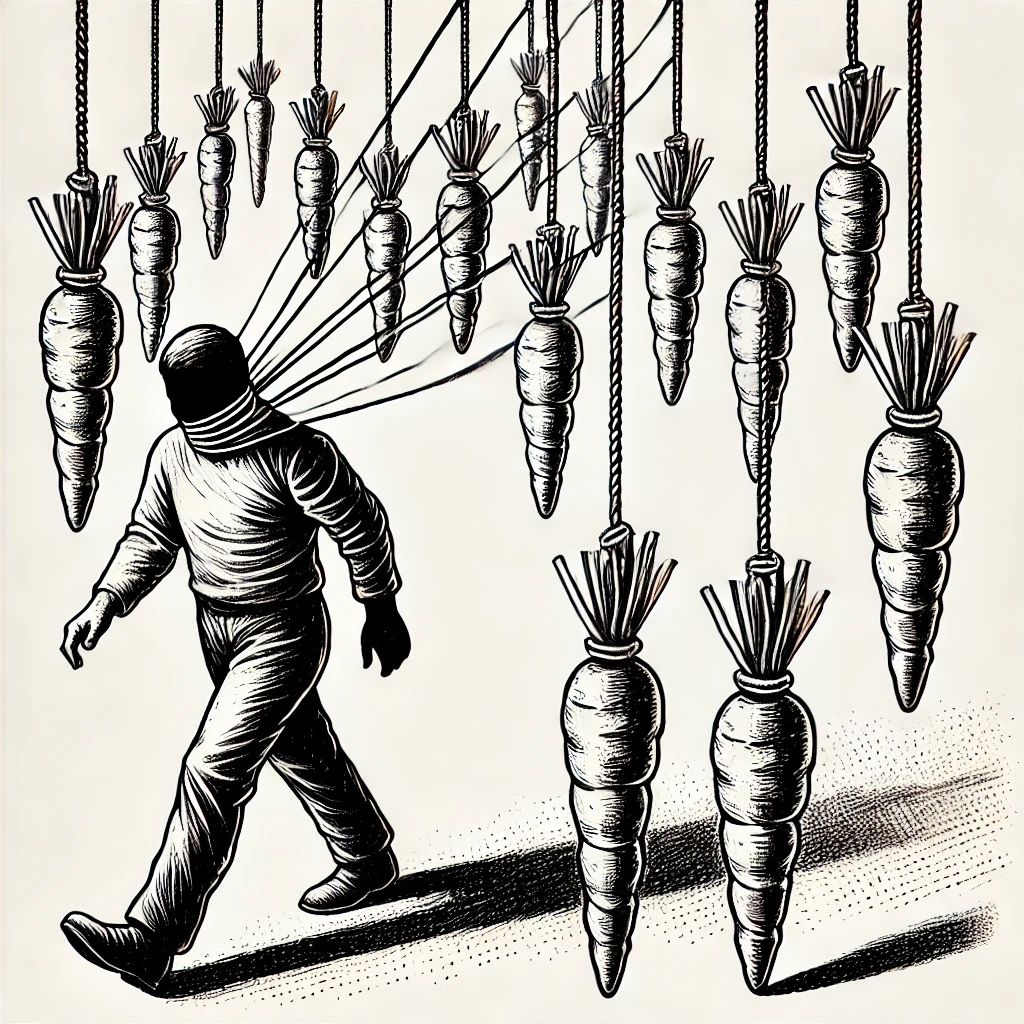

Full power ahead!
It's true - we need concentrated performance. But above all, we need a huge joint effort to create viable solutions in (and with) companies. Now more than ever!
But our current performance management is holding us back. The current models - the bureaucratic machine model with control and extrinsic incentives and the agile organism model with individualism and competition - create more problems than they solve. While one stifles creativity, the other often destabilizes organizations and encourages unethical behavior. Studies show: Employees are frustrated, performance evaluations are often useless and variable remuneration systems are full of misguided incentives. Instead of tweaking old parameters, we need a radical change of perspective: performance is created in an environment that promotes personal growth, responsibility and collective excellence.
Life-enhancing performance management focuses on collaboration instead of internal competition, recognizes people as actors with rights and combines individual and collective goals. Companies such as VAUDE and Allsafe show how: There is another way. They shape performance as a shared responsibility, promote learning-oriented feedback cultures and replace manipulative incentive systems with fair, sustainable remuneration. A new performance culture is possible - one that not only increases short-term profits, but also makes companies resilient and fit for the future. Because true performance is not about adapting to an outdated system, but about shaping a better future together.
The article is based on https://lnkd.in/dJARdKek
04-03-2025

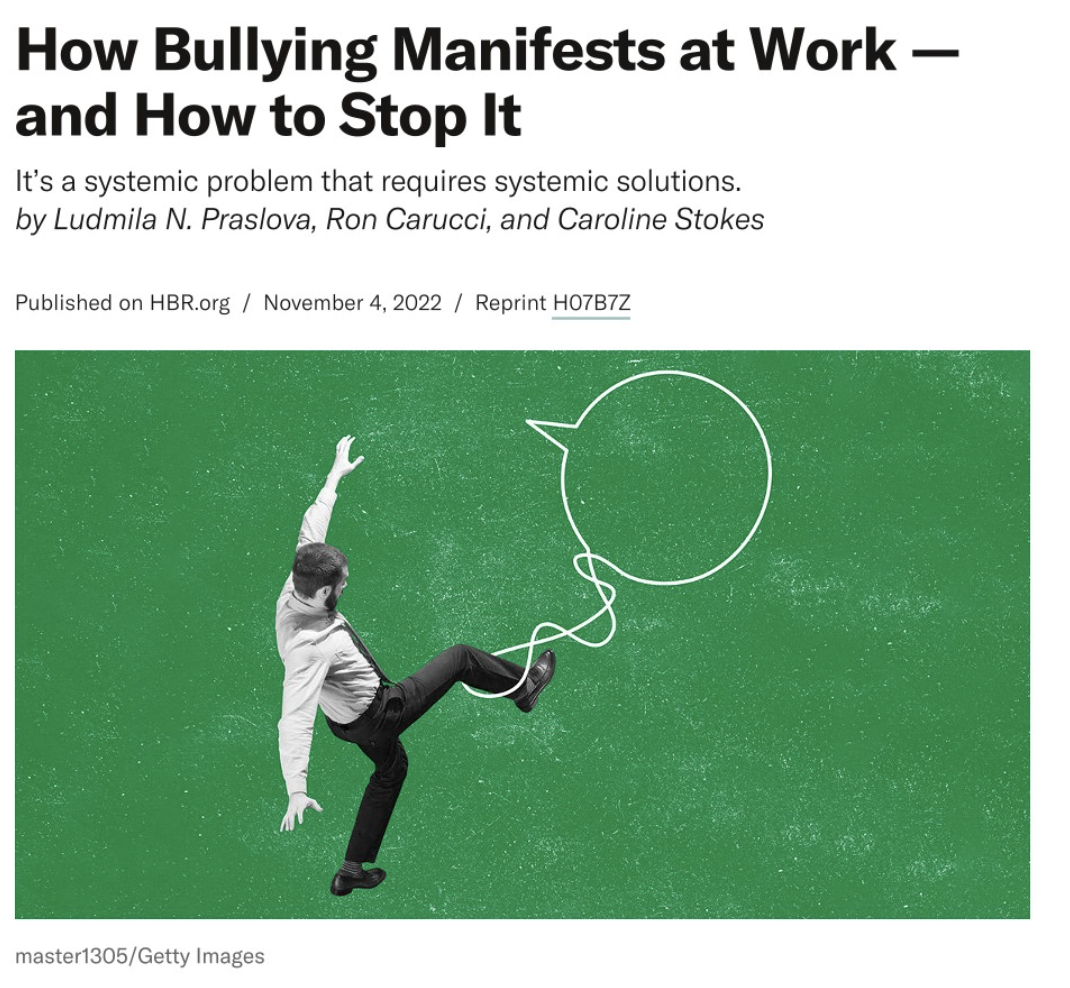

Bullying in the Workplace—and Beyond: A Systemic Challenge
With some of the most visible figures on the world stage thriving on intimidation, it is more than timely to reflect on bullying—not just as an interpersonal issue but as a systemic one. Despite extensive research documenting its detrimental effects on individuals and organizations, bullying often remains unaddressed, tolerated, or even mistaken for “strong leadership.”
What is Bullying? Bullying is a pattern of persistent, harmful behavior aimed at undermining, humiliating, or excluding others. It manifests in multiple forms:
- Hostile bullying (overt aggression, public humiliation)
- Instrumental bullying (manipulation, gaslighting, social exclusion)
- Cyberbullying (online harassment, reputational attacks)
- Structural bullying (abuse of power within hierarchical systems)
Myths That Perpetuate Bullying:
❌ “Tough leadership is necessary for performance.” Evidence suggests the opposite—bullies stifle innovation, erode trust, and drive high performers away.
❌ “It’s just competition.” Healthy competition is based on merit, not intimidation or sabotage.
❌ “Only weak individuals become targets.” Research indicates that bullies often target high-performing, conscientious individuals to consolidate power.
Addressing Bullying: Prevention is the best way!
- Organizational safeguards: Clear policies, transparent decision-making, and just grievance mechanisms are essential.
- Selection and promotion: Screening for toxic traits helps prevent the normalization of aggressive behavior.
- Leadership accountability: Training in ethical leadership and non-violent communication should be a core organizational practice.
💡 Aristotle argued that anger is only justified when dignity is at stake, yet he also warned that most people have an excess of anger. Hence, when in doubt, mildness is better. And of course, this does never excuse unregulated, narcissistic, or impulsive rage—which is far more prevalent. Organizations must ensure they do not select, promote, or tolerate individuals prone to destructive anger, as they contribute to a culture of fear rather than excellence. Nor should voters 😉
Link to article: https://hbr.org/2022/11/how-bullying-manifests-at-work-and-how-to-stop-it
03-03-2025

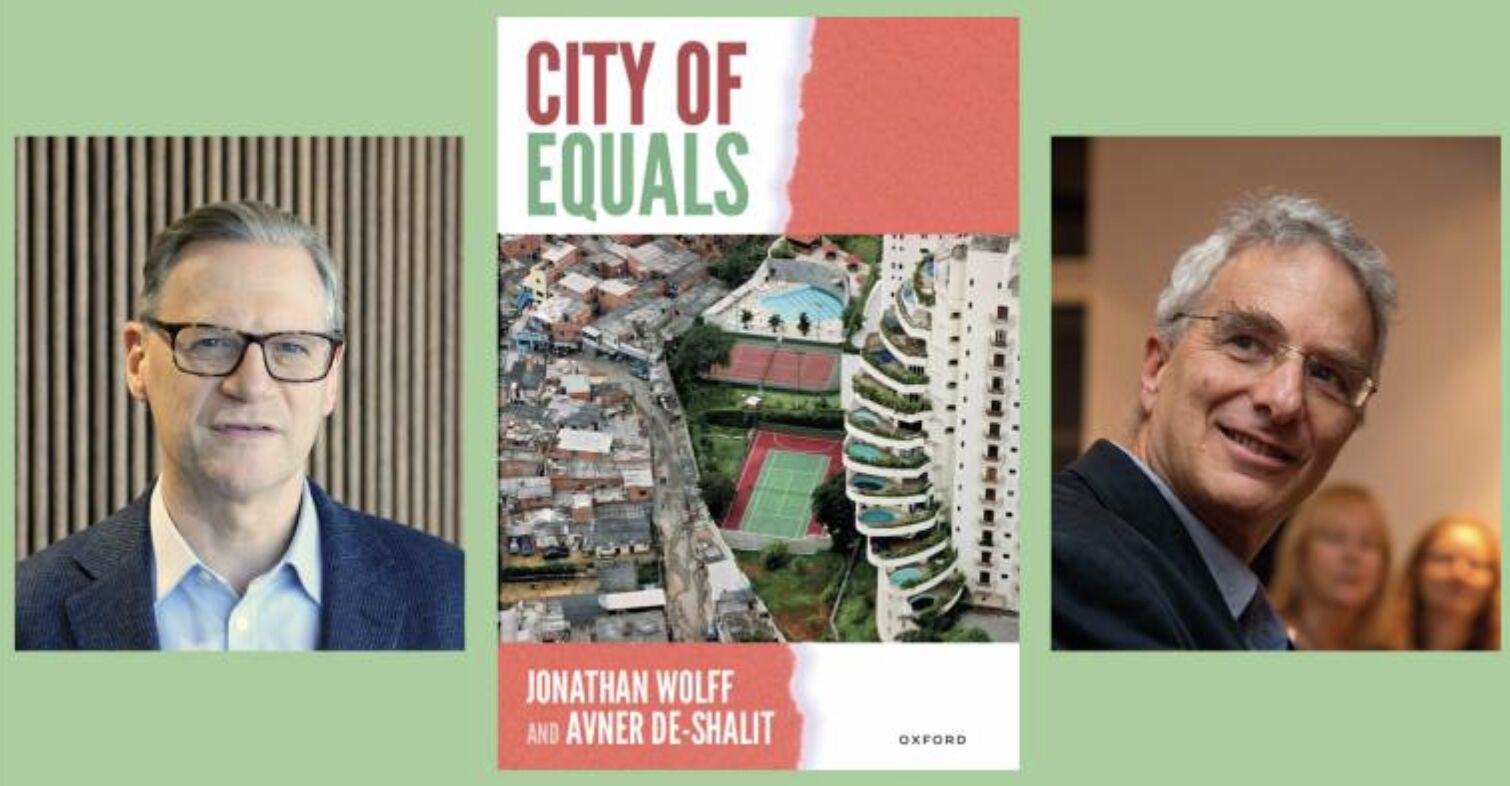

Should We Turn to City Diplomacy? 🌍🏙️
Cities have only recently become an object of intense research. Yet, in many ways, they are the true centers of power—holding their own jurisdictions, cultivating cultural-political identities, and shaping distinct 'urban' ways of life through commerce, transport, and leisure.
As state leaders oscillate between incompetence and chaos, could cities become our last strongholds for well-being—and perhaps even for enabling the good life? Are cities, rather than nations, the real agents of progress in an era of democratic backsliding?
📚 March’s Book Tip: City of Equals by Jonathan Wolff and Avner de-Shalit. From a philosopher’s corner, this book applies an engaged scholarship lens to uncover what makes some cities more attractive to egalitarians than others. Take Berkeley—far from economically equal, yet still managing to cultivate an “egalitarian spirit.”
The authors identify four core values that underpin a "city of equals":
1️⃣ Non-market access to goods and services – ensuring essential services and amenities are accessible to all residents, regardless of their economic status.
2️⃣ Sense of meaning – fostering opportunities for individuals to engage in meaningful activities and community participation.
3️⃣ Diversity and social mixing – promoting diverse communities and encouraging interactions among different social groups.
4️⃣ Non-deferential inclusion – ensuring that all residents can access their rights and services without discrimination or bureaucratic obstacles.
At its core, the book offers policy recommendations on how cities can strengthen their egalitarian spirit—or at the very least, prevent the creation of starkly disadvantaged classes. A critical read for all the mega-cities out there striving to remain “the place to go for all” while grappling with rising inequalities and exclusion.
But of course, this book—like many others—could also serve as a springboard to a bigger question: If cities can act as incubators of fairness and inclusion, should they also become global players in diplomacy? 🌆✨
What do you think—how can cities take the lead when nations fail?
01-03-2025

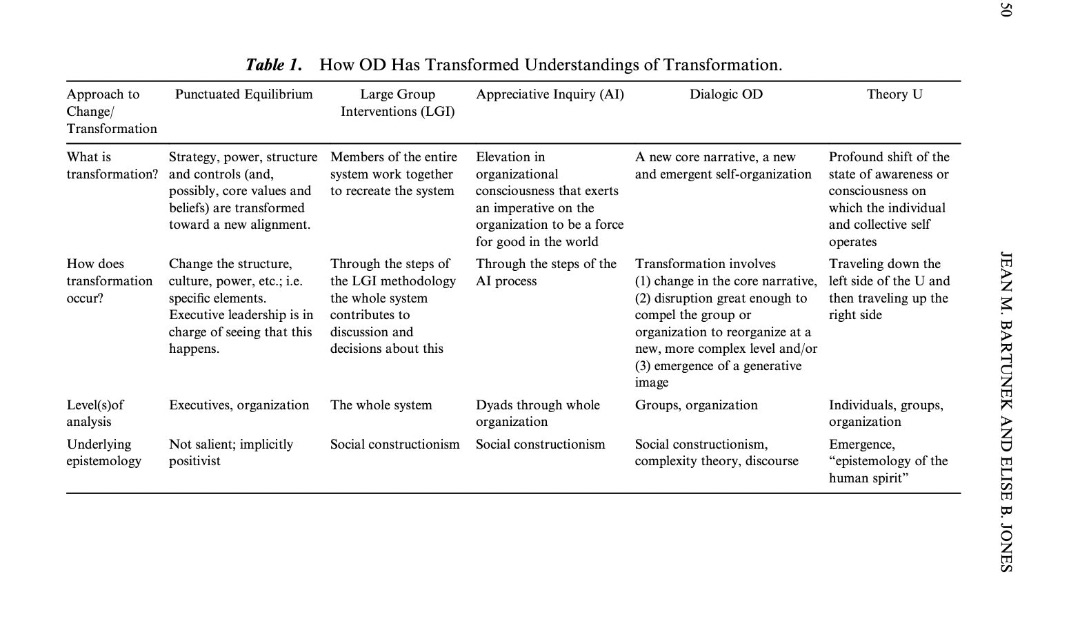

Organizational Change: From Punctuated Equilibrium to Theory U - And What is Still Missing
The idea of organizational transformation has changed significantly over the last 30 years. While in the 1980s it was understood as a radical, strategic realignment of power, structure and control, later organizational theories focused on continuous adaptation. At the same time, the practice of organizational development (OD) continued to develop - with methods such as Large Group Interventions, Appreciative Inquiry or Dialogic OD, which enable transformation through collaborative sense-making. And yet a crucial gap remains.
🔍 The different approaches to transformation
1️⃣ Punctuated Equilibrium (Tushman & Romanelli, 1985)
Transformation is understood as a discontinuous, strategic upheaval in which power relations, structures and control change radically within a short period of time - often controlled by the company's top management.
2️⃣ Large Group Interventions (Bunker & Alban, 1997)
A systemic approach in which all relevant stakeholders are actively involved in the change process. Transformation comes about through collective discussions and decisions.
3️⃣ Appreciative Inquiry (Cooperrider & Srivastva, 1987)
The focus here is on positive experiences and visions. The approach assumes that increased organizational awareness generates a moral commitment to positive change.
4️⃣ Dialogic OD (Bushe & Marshak, 2009)
Transformation here means a change in the organizational narrative. Discourses generate new self-understandings and patterns, whereby organizations reorganize themselves.
5️⃣ Theory U (Otto Scharmer, 2016)
This approach sees transformation as a profound change in awareness. By going through the “U-curve” - from letting go of old ways of thinking to perceiving new possibilities and implementing them - a new reality can unfold.
🔎 The gap: Where is the material reality?
Changing consciousness, narratives and dialog are central components of transformation - but they fall short if they are not considered together with material structures, practices and power relations. This reveals a fundamental weakness of many modern OD approaches: They rely heavily on self-organization and emergent meaning-making without taking sufficient account of how existing hierarchies, resource distributions and institutional frameworks facilitate or block transformation.
Scharmer speaks of a “blind spot” in change: the lack of consideration of the individual. I would add: The real blind spot is the lack of engagement with the hard realities of power and structure.
Which approaches succeed in linking these levels?
26-02-2025

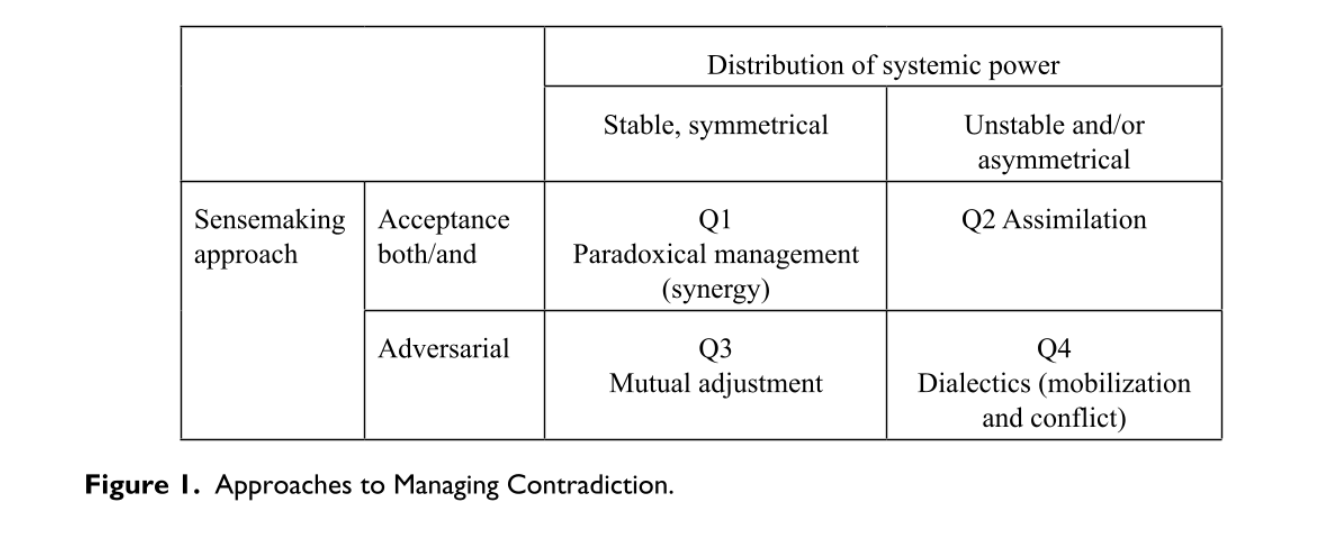

Time to Shape Up Our Transformation Skills
Look around—the world isn’t getting any simpler. From AI revolutions to ecological crises to democracies-in-need, contradictions are everywhere. Organizations face a fundamental challenge: How do we navigate tensions between efficiency and innovation, stability and change, profit and purpose? Ignoring them isn’t an option. Managing them poorly means stagnation. This paper of Hargrave and Van de Ven (2016) provide a framework integrating dialectical and paradox perspectives to show how contradictions can be managed in ways that either sustain, adapt, or transform the system. Their model identifies four distinct approaches based on (1) how contradictions are perceived (accepted vs. resisted) and (2) how power is distributed (stable vs. asymmetrical).
1️⃣ Synergy (Paradoxical Management) → When contradictions are embraced and power is balanced, leaders integrate opposing forces for innovation. Instead of choosing either/or, they create “both/and” solutions—think platform cooperatives that merge economic success with worker ownership.
2️⃣ Assimilation → When power is asymmetrical but contradictions are accepted, dominant actors absorb change without disrupting existing structures. This is when multinational corporations adopt sustainability measures while keeping profit maximization at the core, or how gig platforms introduce worker benefits without shifting away from precarious contracts.
3️⃣ Mutual Adjustment→ When contradictions are resisted but power is balanced, transformation happens through negotiation. Instead of integration, opposing forces adjust boundaries—like in industry-wide agreements on ethical AI, where firms compete fiercely but agree on baseline safeguards to prevent reputational damage.
4️⃣ Conflict & Mobilization (Dialectics)→ When contradictions are resisted and power is asymmetrical, transformation happens through disruption. Whether through activist-driven market shifts, open-source movements challenging proprietary tech, or regulatory interventions forcing entire industries to restructure—change here is radical and contested.
The takeaway? Transformation is not about eliminating contradictions—it’s about knowing when to integrate, when to negotiate, when to absorb, and when to challenge.
Link to article: https://journals.sagepub.com/doi/10.1177/0170840616640843
22-02-2025

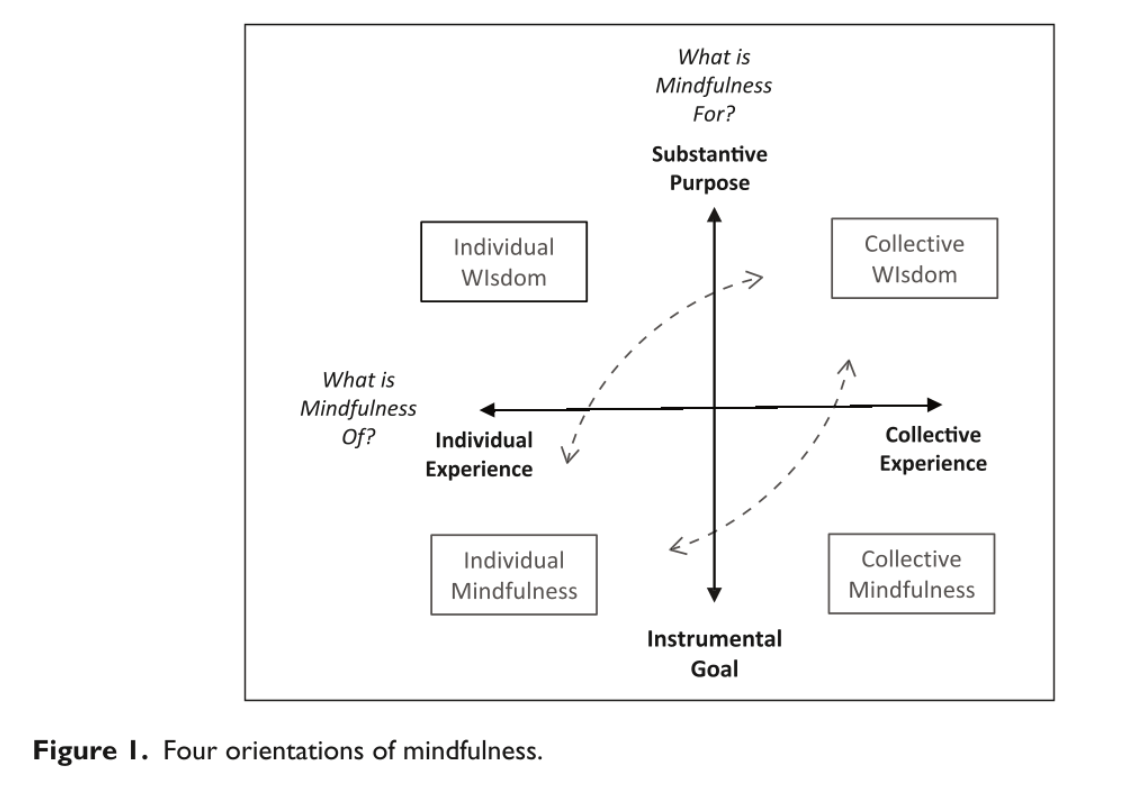

Mindfulness at Work: A Critical Re-view
Richard Badham and Elizabeth King provide a critical and reflective re-view of mindfulness at work, challenging dominant narratives while recognizing the field’s complexity. Their analysis is structured along two dimensions: individual vs. collective and instrumental vs. substantive approaches to mindfulness. This leads to four orientations:
🧘 Individual Mindfulness is widely promoted as a psychological and therapeutic tool for improving personal performance, well-being, and stress regulation. Rooted in mindfulness-based interventions such as MBSR (Mindfulness-Based Stress Reduction) and ACT (Acceptance and Commitment Therapy), this approach emphasizes awareness, attention control, and emotional regulation. Empirical studies highlight its benefits for resilience, job performance, and interpersonal relationships. However, critics argue that this form of mindfulness is often commercialized and risks reinforcing workplace adaptation rather than transformation.
🏥 Collective Mindfulness shifts the focus to organizational and group-level practices, emphasizing heedful interrelating, sensemaking, and high-reliability organizing (HRO). Originating from Weick and Roberts’ (1993) work on flight decks, this perspective sees mindfulness as a structural and relational process that fosters resilience, adaptability, and safety. Yet, this view too remains primarily instrumental, focused on efficiency, stability, and market adaptation, often neglecting deeper ethical and political considerations.
🪷 Individual Wisdom is moving beyond instrumental concerns and sees mindfulness as a critical, ethical, and transformative practice. This approach draws from Buddhist traditions, existential philosophy, and critical management studies, positioning mindfulness as a means for deep reflection on work, identity, and capitalism. It challenges "McMindfulness" and advocates for a radical mindfulness that fosters ethical leadership and social justice. Scholars in this space argue that true mindfulness should cultivate compassion, moral discernment, and self-transformation, not merely stress relief for productivity.
🐝 Collective Wisdom is the most radical of the four orientations and examines mindfulness within broader societal, ecological, and economic contexts. Advocates argue that mindfulness should not only enhance corporate well-being but also challenge dominant power structures, capitalist imperatives, and systemic inequalities. This approach aligns with Engaged Buddhism, critical management studies, and political economy critiques of neoliberalism.
Hence: the authors reject both uncritical enthusiasm and wholesale rejection of mindfulness. Instead, they encourage self-critical engagement that acknowledges its benefits while challenging its instrumentalization. They argue that mindfulness must integrate reflection, critique, and ethical responsibility to serve as a truly transformative force in organizational studies.
Link to article: https://journals.sagepub.com/doi/abs/10.1177/1350508419888897
15-02-2025

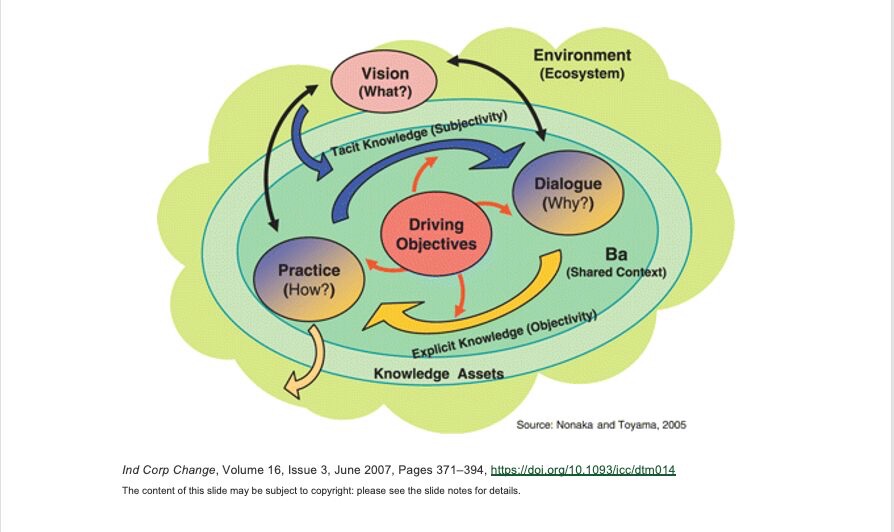

COLLECTIVE PRACTICAL WISDOM
...even if many organizations are currently far from it - a worthwhile goal:
Today I discuss with my HR Executives how to enable this wisdom. Collective Phronesis according to Ikujiro Nonaka describes the ability of organizations not only to create knowledge, but also to translate it into wise and ethically sound actions. It is based on Aristotle's concept of phronesis, the practical wisdom that makes it possible to make good decisions for the common good in complex, dynamic situations. Nonaka emphasizes that strategies are not only created through rational analysis, but through the combination of subjective experience, ethical values and collective reflection. Collective phronesis therefore requires an awareness of the social context, the ability to create meaning and a deep commitment to long-term values that go beyond short-term efficiency.
In the diagram, the knowledge creation process is depicted as a dynamic interplay of six central abilities: (1) the ability to recognize the “good”, (2) to share contexts (Ba), (3) to grasp what is essential in complex situations, (4) to mediate between concrete experiences and universal principles, (5) to use political means to implement the common good, and (6) to foster phronesis in others. These skills are not linear, but interact in a continuous learning process supported by dialog, reflection, and practical experience. The central idea is that knowledge is not only processed cognitively, but emerges in a social space (Ba) that promotes the exchange of perspectives and shared experience.
The model shows that collective phronesis requires enabling shared learning (also triple-loop) and placing value orientation at the heart of the organization. The constant dialogue between individual experiences and organizational goals creates a self-organizing knowledge ecosystem that offers both flexibility and stability. This process is not static, but thrives on the tension between tradition and innovation, between individual convictions and collective norms. The organization thus becomes a place where not only knowledge but also wisdom is cultivated.
12-02-2025



Future Human Qualities: Part 2 - Thriving in the Net Zero World
This is the second post in our series where we explore the skills and qualities essential to thrive in the face of future challenges. Drawing from the GDI Gottlieb Duttweiler Institute’s scenario study, we’ll dive into possible futures and reflect on the human capacities needed to meet them. So what would it be like if we happen to understand that we are 1 minute to 12?
Scenario 2: Net Zero
The Net Zero scenario envisions a world where humanity has taken decisive action to combat climate change, resulting in significant reductions in CO₂ emissions. However, this comes at the cost of personal freedoms and consumption habits. The complexity of society is intentionally reduced to address environmental degradation, resource scarcity, and biodiversity loss. By 2050, global trade has shrunk, lifestyles have become hyper-local, and daily life revolves around sustainability and efficiency.
Energy comes from renewable sources, with neighborhoods sharing solar panels and local energy grids. Cars are rare, often shared, and fully electric; most people rely on bicycles and public transport. International travel is a luxury, and goods are expensive due to reduced global supply chains. While the world hasn’t collapsed, it has fundamentally transformed, with societies accepting strict regulations to ensure survival within planetary boundaries.
The social fabric is held together by a shared commitment to sustainability, but tensions persist. Some communities embrace participatory democracy and localized governance, while others enforce authoritarian measures to meet climate targets. Emotional resilience, adaptability, and trust in collective action are essential to navigating the challenges of this world.
What Qualities Matter in a Net Zero World?
📜 Knowing: Environmental literacy, media literacy, understanding complex systems (like climate and economic interdependencies), and the ability to process large volumes of information critically.
📜 Wanting: A strong sense of responsibility toward future generations, the ability to reflect on personal and societal values, and an appreciation for non-material resources like time, community, and well-being.
📜 Doing: Self-efficacy, adaptability, democratic participation, cooperative decision-making, mechanical repair skills, and resilience in the face of constant change.
This scenario challenges us to redefine what prosperity means—shifting from material wealth to well-being, sustainability, and meaningful connections with others and the environment.
Link to article: https://jacobsfoundation.org/publication/future-skills/
10-02-2025

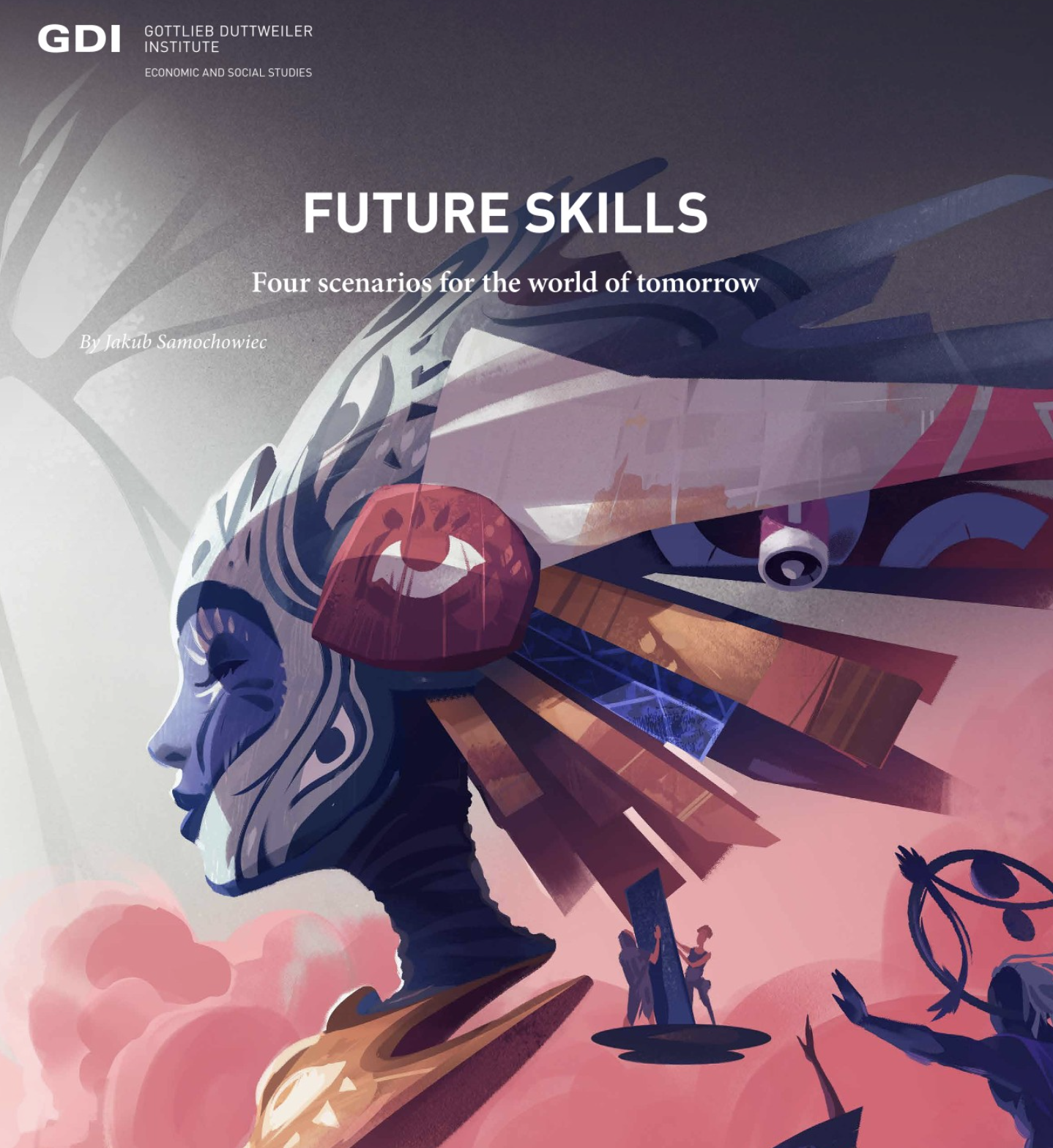

Future Human Qualities: Part 1 - Navigating the Collapse
This is the first post in a series where we explore the skills and qualities essential to thrive in the face of future challenges. Drawing from the Jacobs Foundation’s scenario study, we’ll dive into possible futures and reflect on the human capacities needed to meet them.
The study organizes these future-relevant capacities into three categories:
Knowing: Specific knowledge and the ability to handle information effectively.
Wanting: The ability to define meaningful goals and the values that shape them.
Doing: The practical skills required to implement those goals.
The Method Behind the Scenarios (more in the comment): Rather than predicting one definitive future, the study uses scenario-based foresight to map out four distinct possibilities for Switzerland in 2050.
Scenario 1: Collapse
The Collapse scenario envisions a world where intertwined climate crises, economic breakdowns, and geopolitical conflicts lead to the unraveling of global systems. Supply chains disintegrate, governments lose their grip, and local communities are left to fend for themselves.
By 2050, life is marked by scarcity, insecurity, and the erosion of familiar social structures. Cities are hollowed out as people migrate to rural areas in search of arable land and clean water. Basic infrastructure—energy grids, healthcare systems, transportation networks—has deteriorated or collapsed entirely. Access to essentials like food, medicine, and clean drinking water is no longer a given but a daily struggle. The absence of central governance breeds lawlessness in some regions, while others rely on fragile, community-based forms of self-organization.
Social cohesion is under constant threat. Trust, once the glue of society, becomes a scarce resource itself. Conflicts over dwindling resources flare up, both within and between communities. The mental toll is immense: chronic stress, fear of the unknown, and the loss of long-held certainties challenge not just physical survival but psychological resilience. Education, where it exists, is hyper-local and practical, focused on survival skills rather than abstract knowledge.
What Qualities Matter in a Collapsed World?
- Knowing: Practical survival knowledge—agriculture, mechanical repair, basic medicine, and rapid learning to adapt as conditions shift.
- Wanting: A strong sense of purpose rooted in community values, resilience, emotional stability, and the ability to find meaning even amid collapse.
- Doing: Self-efficacy, adaptability, cooperative problem-solving, conflict resolution, and the courage to experiment and learn from failure.
Now, let’s reflect:
🔍 How would we need to transform our schooling and vocational systems to cultivate these qualities?
🤔 How likely—or unlikely—do you think this scenario is?
💡 What personal qualities can each of us start sharpening today, regardless of what the future holds?
Link to article: https://jacobsfoundation.org/publication/future-skills/
07-02-2025

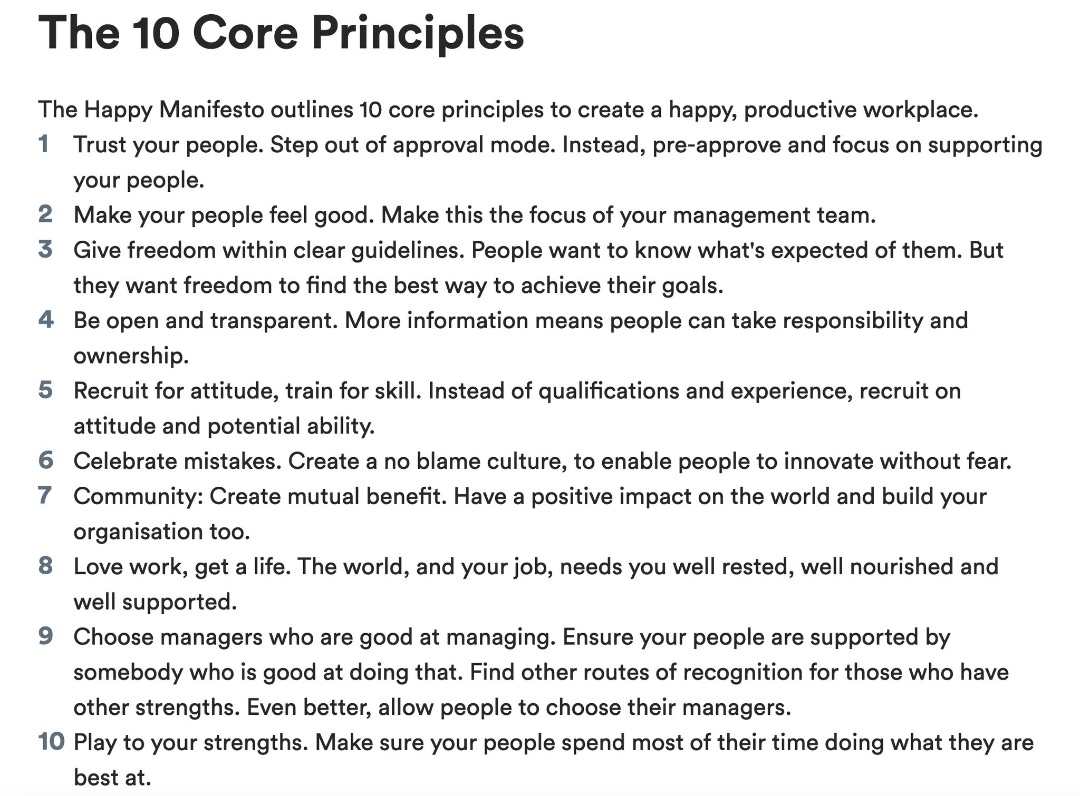

S💡 Can you pay living wages, care for domain-life balance, encourage joy at work, freedom, and trust—AND still be wildly successful for decades?
👀 Yes, you can. (to borrow words from a place that once radiated hope into the world... 😉)
That’s why today, I’m sharing "The Happiness Manifesto" from none other than Happy Ltd, the UK company proving that a thriving workplace isn’t just a pipe dream—it’s a winning formula.
💛 Happy Ltd has been around for more than 35 years and is stacking up awards like they’re going out of fashion. Just last year, they:
🏆 Ranked #1 Best Workplace for Women in the UK
🏆 Won the Leadership Excellence Award
🏆 Landed in the Top 15 Best Workplaces in Europe
Not bad for a company that believes joy is not an HR gimmick but a business strategy.
We should pay attention to these pioneers—because they’re proving that a brighter, more human future is not just possible, but already happening.
So, who’s ready to build happier workplaces? Drop a 💛 if you're in!
02-02-2025

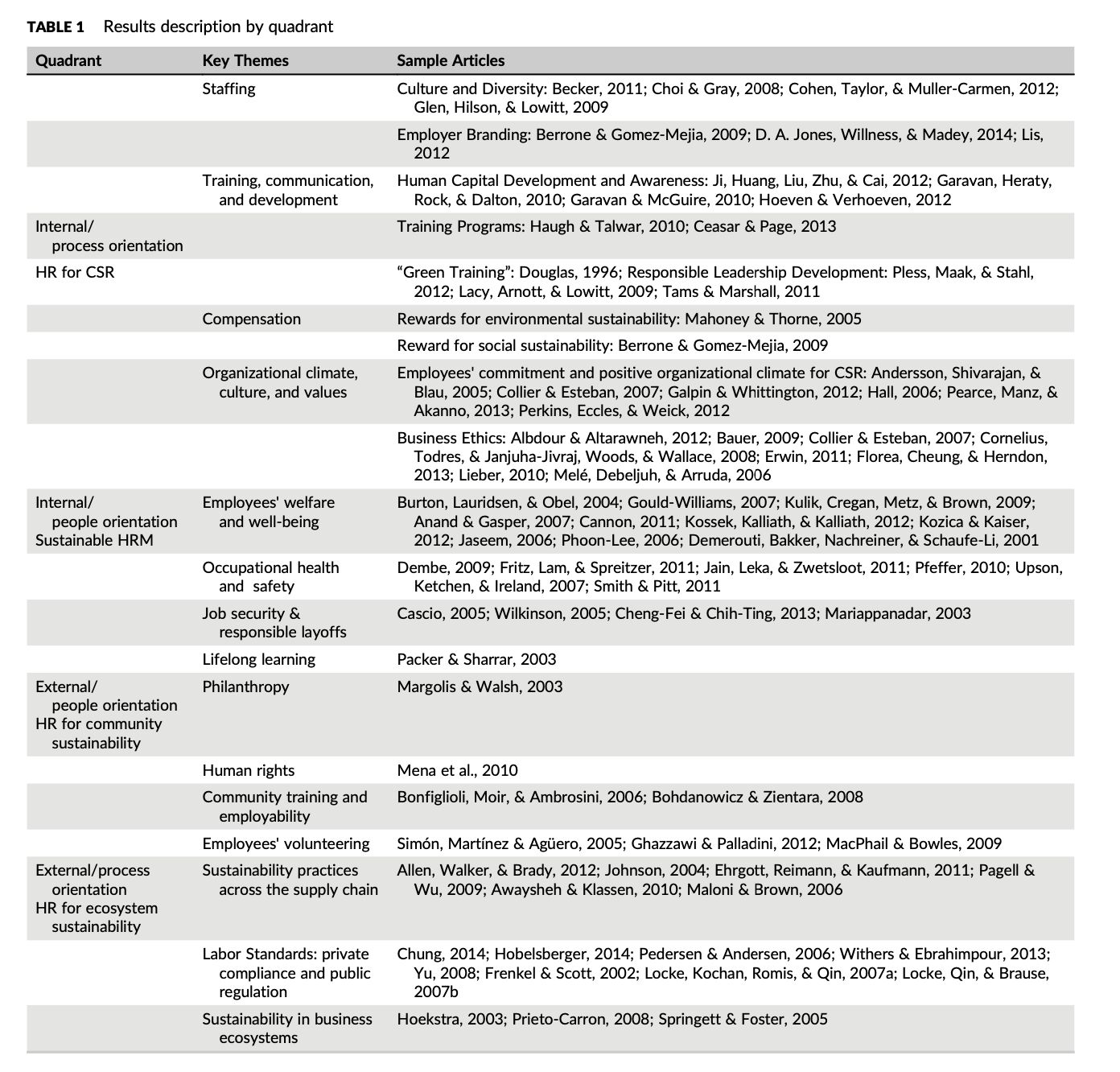

Sustainability still matters (also for HR)
Despite recent reversions, the earth is still heating up, and many humans are still left behind. In a very thoughtful literature review, Federica De Stefano and colleagues "turn" Dave Ulrichs well-known people/process and internal/external distinction into an enlightening perspective on what the future of HR in sustainable companies could look like.
🔹 External/Process: HR plays a crucial role in designing and monitoring fair labor standards, human rights protections, and sustainability initiatives across supply chains. Beyond compliance, HR can help companies proactively shape ethical business ecosystems.
🔹 External/People: HR can foster corporate citizenship by facilitating community engagement, volunteering, and long-term partnerships. However, many companies still treat these activities as side projects rather than integrating them into business strategy.
🔹 Internal/Process: Internally, HR ensures that sustainability is embedded in recruitment, training, compensation, and employee well-being programs. However, some high-performance work systems (HPWS) risk eroding sustainability efforts by over-prioritizing efficiency and control.
The review also highlights critical gaps in knowledge. First, HR sustainability practices are not yet integrated into a coherent system—some high-commitment HR practices align well, but others, rooted in a machine-like, managerialist logic (e.g., forced rankings, high-powered incentives), may undermine sustainability goals. Second, the external role of HR remains underdeveloped. To truly enable flourishing across entire ecosystems, HR must go beyond the firm’s boundaries, calling for bold practitioners but also for more transdisciplinary research.
Link to article: https://onlinelibrary.wiley.com/doi/abs/10.1002/hrm.21870?casa_token=ZieM9thfHpoAAAAA%3AGCB2w7EE_-OA0YejTWGxrdPnyEEzpef4mXGWAh9dODDfvAVxos03QLtl-k2cGN5mnSqFF9yqtGJ_x_po
30-01-2025



Why We Need to Understand Moral Blindness...and What to Do About It
The old and often critiqued Milgram experiment still holds some important lessons for us today. Despite its flaws, its core findings remain relevant: humans have a strong tendency to obey authority, even when doing so conflicts with their moral values. In Milgram’s experiment, participants were instructed to administer what they believed were painful electric shocks to a learner. Shockingly, 65% followed orders to the highest voltage, despite their visible distress. Milgram concluded that structured authority systems create a "bounded awareness"—a mental blind spot that prevents individuals from recognizing or acting on ethical concerns.
So what can we learn from this? How can we prevent blind obedience—particularly in an age where many leaders prioritize self-interest over the common good and lack practical wisdom? And how can we sharpen our ethical thinking tools?
In this deep dive 👇🏻 Patricia Werhane is summarizing the literature and comes up with a number of explanatory insights which also offer new tools:
🎯 Bazerman’s Six Strategies to Prevent Blind Obedience. Max Bazerman suggests six actionable strategies to combat ethical blind spots:
1. Do Not Trust Your Gut – Intuition can be flawed; structured decision-making leads to better outcomes.
2. Acquire Expertise – Gain knowledge beyond passive experience to improve ethical judgment.
3. Debias Your Judgment – Challenge assumptions by exposing yourself to diverse perspectives.
4. Consider Analogous Cases – Learn from past ethical dilemmas to navigate new challenges.
5. Take an Outsider’s Perspective – Step outside personal biases for clearer ethical reasoning.
6. Understand Others’ Mental Models – Recognizing different viewpoints helps recalibrate decision-making.
🚀 Werhane’s Solution: Moral Imagination. Patricia Werhane argues that overcoming moral blindness requires moral imagination, the ability to think beyond ingrained mental models and authority structures. This involves:
1. Disengaging from the Context – Identifying the mental models shaping one’s perception and their limitations.
2. Exploring Alternatives – Considering creative, ethical solutions rather than blindly accepting the status quo.
3. Focusing on Consequences – Evaluating decisions through the lens of their broader ethical and social impact.
By actively developing moral imagination and applying structured decision-making strategies, we can resist unethical authority and lead with integrity. In a world that often rewards compliance over courage, these tools are more critical than ever.
To all of you who observed some of the world leaders in the last few days (German or American for instance) you will sadly have heard only smug, overconfident, vain, insights-lacking phrases... what we can do now is to understand how democracy, party structures, political organisations need to be made more fool-proof.
Link to article: https://www.jstor.org/stable/41475830
27-01-2025

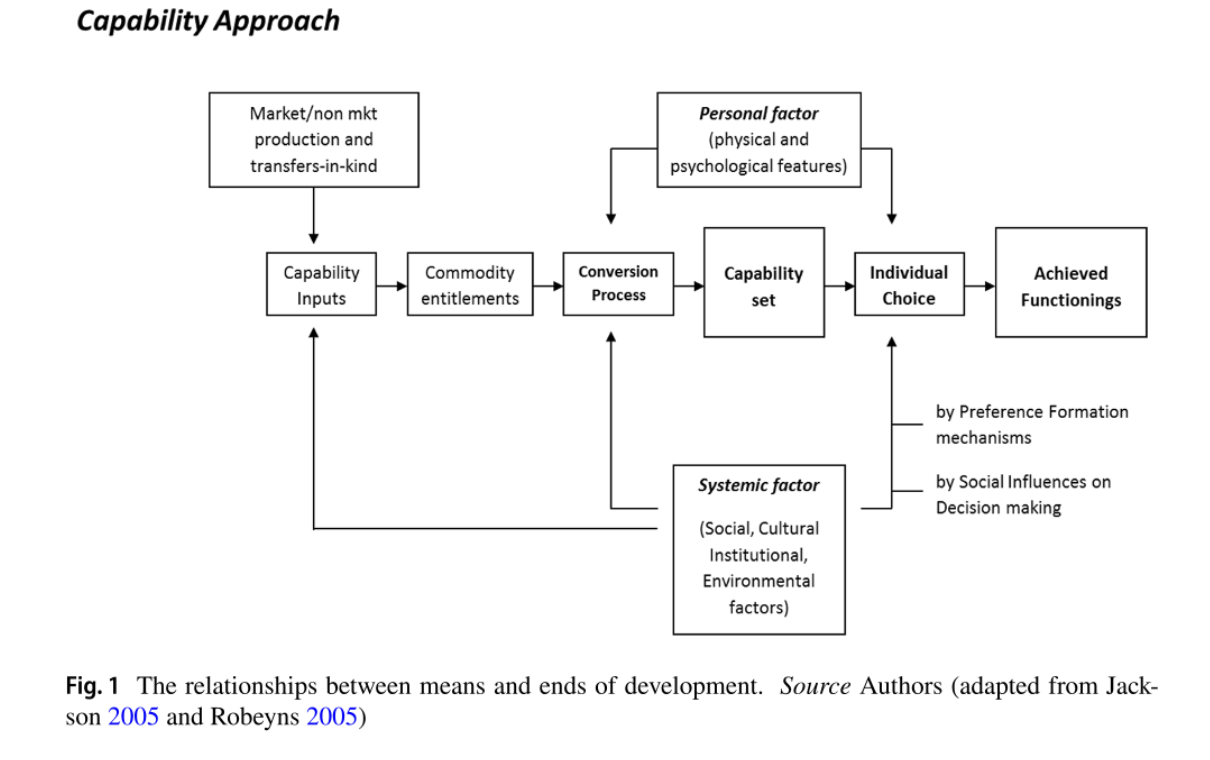

Trust, Collaboration, and Freedom
...or why freedom can only be enabled through trust and generous collaboration.
As we wrap up this week, during which I have shared studies highlighting how businesses can – and should – contribute to a better society, I’d like to bring up another important topic. Freedom is once again being demanded loudly, often in terms of freedom from bureaucracy, from regulation and in favor of businesses (negative liberty). It is brought up in harsh and loud talks, it is whispered in the hallways and it is all over on LinkedIn. Personally, I believe this perspective is too narrow. While it is crucial to rethink (smarter) regulation and freedom within society, we need to take a broader view.
This is why I want to share a deep dive by Ha-Joon Chang, an industrial economist—essential reading for policymakers. He builds on a different freedom approach and links it to industrial policy. It’s a bit of a “make Europe better” approach, but one that includes everyone, including developing countries (and to some degree future generations).
Here’s a summary:
a) The Capabilities Approach and Its Connection to Freedom
The Capabilities Approach, developed by Amartya Sen and Martha Nussbaum, shows us that true development is about more than just economic growth. It is about enabling people to live lives they have reason to value—lives with real choices and opportunities. Freedom, in this sense, is not just the absence of obstacles, but the active creation of conditions that empower people—through education, healthcare, and social security.
b) The Collective Capabilities Approach
Individual freedom rarely emerges in isolation. The Collective Capabilities Approach emphasizes that many of our opportunities only become possible through collaboration, mutual trust, and social structures. Whether in companies, unions, cooperatives, or engaged communities—collective capabilities are essential for achieving shared goals and driving sustainable change. This approach reminds us that true freedom is not just an individual pursuit but a collective achievement.
c) What This Means for Industrial Policy
This perspective has profound implications for industrial policy. Instead of focusing solely on individuals or businesses, we need strategies that support collective learning, cooperation, and joint investments. Successful industrial policy creates an environment where knowledge is shared, innovation is driven collaboratively, and sustainable economic development is made possible. In this way, we can achieve not just economic growth, but also social inclusion and real opportunities for all!
Link to article: https://doi.org/10.1057/s41287-020-00356-y
23-01-2025

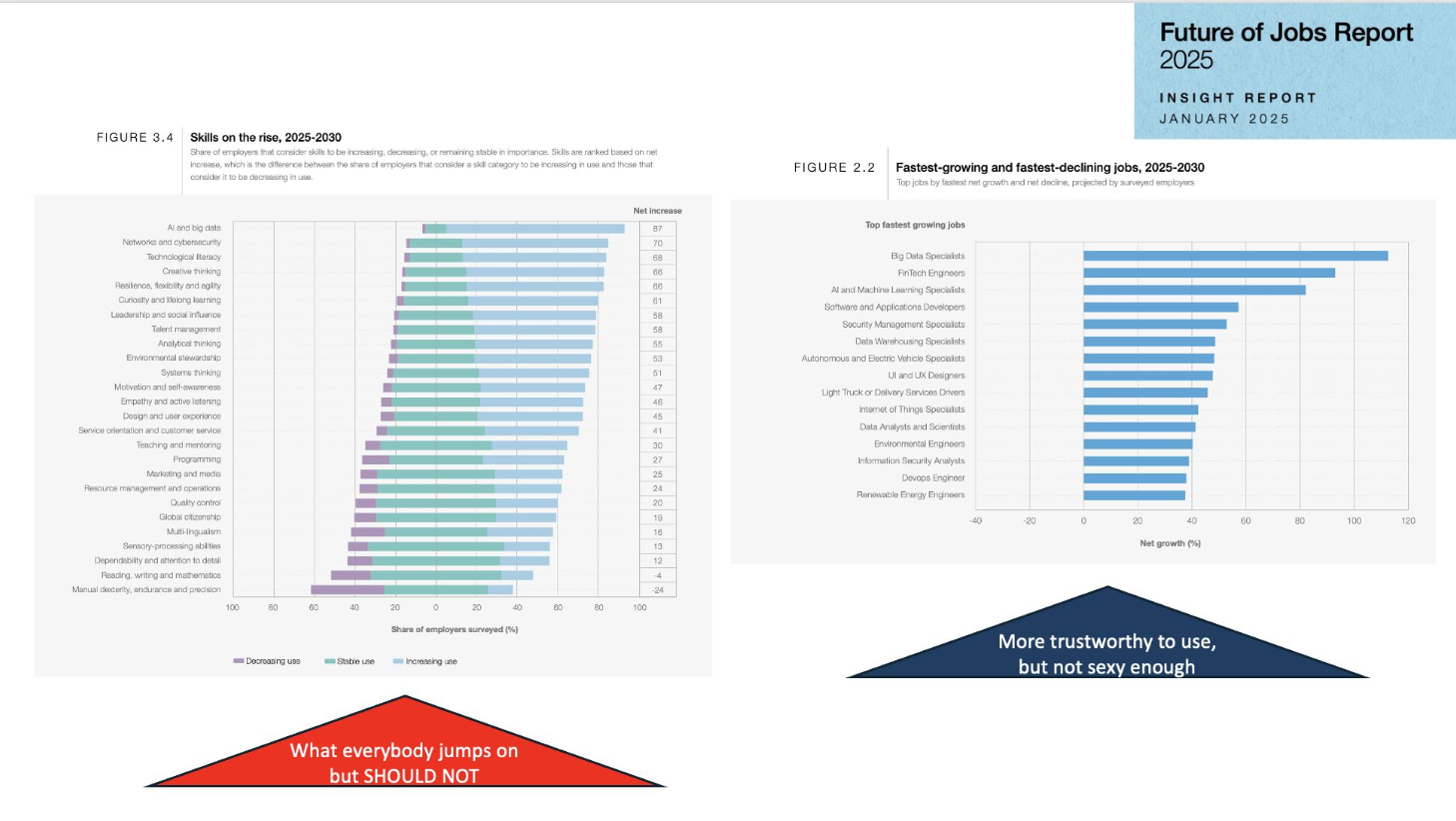

BEWARE – LOOK AT THE SIDE EFFECTS
I have to admit, I jumped on this report too. It’s beautifully illustrated, aligns perfectly with my teaching needs, and makes it easier to communicate ideas I care about (yes, self-confirmation bias at play 😉). But here’s the catch—how many of us actually scrutinize the methodology before diving into content discussions? Some even treat these reports as gospel, basing consulting advice and business strategies on what might be thin air.
So, what’s the issue?
It depends on what you're looking for. Some data (sourced externally) is solid. Some survey insights seem reasonable. But some? Pure crystal ball gazing—without the right experts.
Let’s get to the core:
The report claims representativeness, but its sampling lacks transparency. They align their sample with industry structures and sizes, yet it’s not a randomly drawn sample. More critically, who exactly is and who should be answering these complex skill-related questions? HR? The CHRO? The CEO? I’d argue none of them—at least not alone.
Just look at the rankings: mathematics and reading skills are placed almost last, while AI and critical thinking take top spots. Really? Can you master AI or critical thinking without logic, communication skills, or understanding the broader context? Any educator or pedagogy expert would raise an eyebrow. A mathematician or physicist could outpace a programmer any day, and an anthropologist would challenge a business student’s critical thinking with ease.
The problem with ranking skills:
Predefined lists don't capture the complexity of future needs. What about scenario planning? What if the ecological crisis accelerates—guess which skills will matter then (hint: not just AI). Methods like Delphi studies or forecasting models would offer deeper insights. A simple survey of—let’s face it—non-expert respondents doesn’t cut it.
Sure, if you ask HR what roles they need to fill in the next two years, their insights are credible. But projecting five years into the future? That’s a stretch in today’s uncertain world.
The takeaway?
Take these reports with a grain of salt. And to the WEF—please be responsible. People trust you. Be transparent about your sampling methods, clarify which findings are robust and which are speculative.
22-01-2025

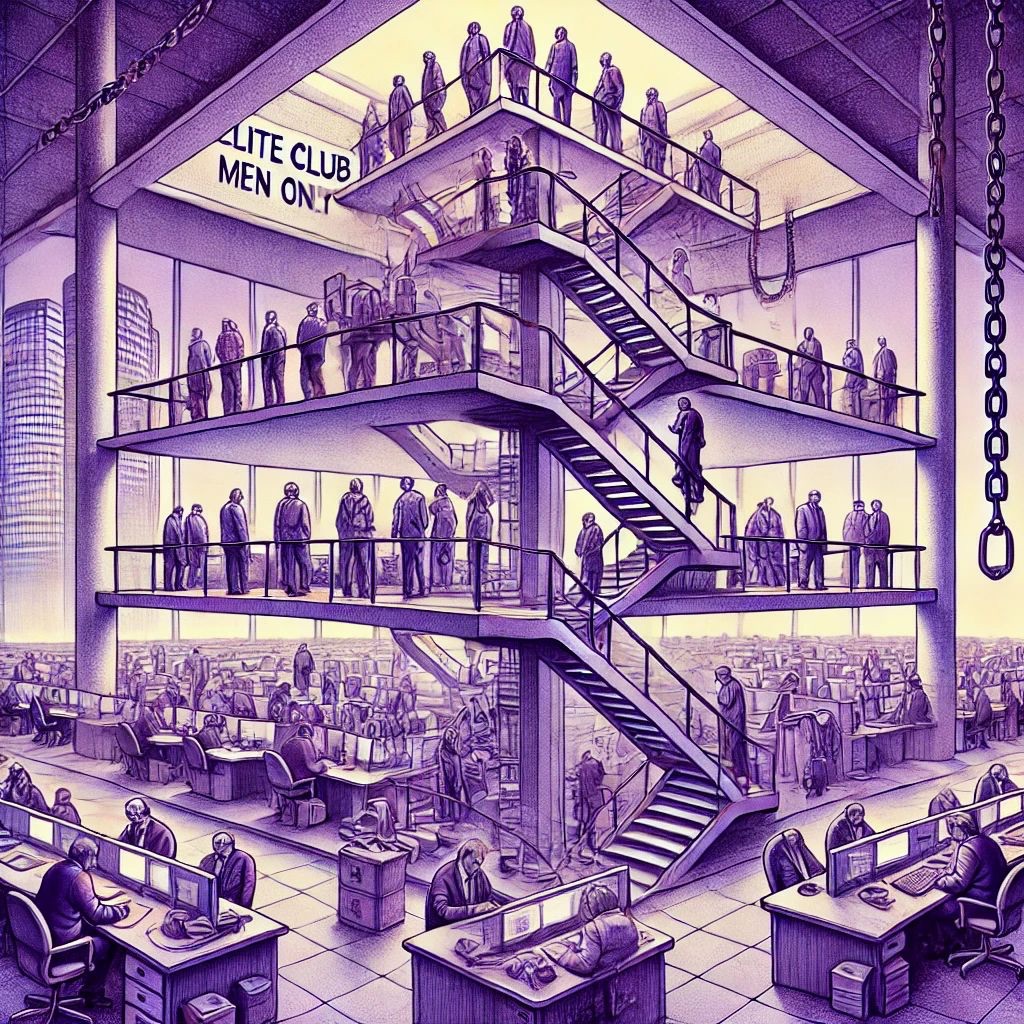

Why Inequality Matters – And How Businesses Perpetuate It
Inequality is more than just an economic divide—it is a structural imbalance that limits access to opportunities, resources, and human potential. When individuals and communities face barriers to education, healthcare, and decent work, their ability to thrive is compromised. This not only erodes individual well-being but also weakens societal flourishing. A society that allows systemic inequality to persist ultimately wastes talent and potential, stalling progress for everyone! 😡
Research by Bapuji, Ertug, and Shaw (2019) 👇 highlights the significant role organizations play in fueling economic inequality. Wage disparities, precarious employment, and limited access to career growth disproportionately benefit a select few while leaving many behind. For instance, executive compensation has risen exponentially, while the wages of lower-level employees have stagnated. Corporate decisions that prioritize shareholder wealth over fair value distribution contribute to rising inequality, as seen in widespread outsourcing, gig work proliferation, and diminished job security. Additionally, corporations influence policies that often serve their interests over social equity, reinforcing structural disadvantages.
But inequality doesn’t just harm individuals—it weakens cooperation and even long-term business success. 📜 Studies show that in countries with high inequality, employee disengagement and turnover rates are significantly higher, driving up operational costs. Research indicates that firms operating in unequal societies face a 20% higher likelihood of internal conflict and productivity losses due to lower morale and trust. Moreover, income inequality is associated with higher absenteeism and poorer health outcomes among employees, further straining business resources. Conversely, companies that prioritize fair wages and inclusive policies tend to experience greater innovation, resilience, and stakeholder trust—critical factors for long-term sustainability.
Despite these realities, many businesses continue to prioritize short-term profits over long-term sustainability, deepening the divide and undermining their own future. The race to cut costs, suppress wages, and maximize shareholder returns is not just unethical—it’s self-destructive. If businesses don’t take responsibility now, they may soon find themselves operating in a world where trust, talent, and social cohesion are in critically short supply.
The time to act isn’t tomorrow—it’s now.
Link to study: https://ink.library.smu.edu.sg/cgi/viewcontent.cgi?article=7249&context=lkcsb_research
20-01-2025



We Don’t Need More Hubris!
Aristotle described hubris as overconfidence and the abuse of power, driven by the desire to humiliate others for personal gratification. This ancient concept remains painfully relevant today. In times when many fall for overconfident "strong men," we should ask ourselves: How can we protect our institutions from the havoc they tend to wreak?
For wreak havoc they do. From claiming an unjustifiably large share of resources to engaging in reckless risks and outright fraud, hubristic leaders often harm the very organizations or communities they lead. Research shows this trait isn't what we should want in our corporate boardrooms or political offices.
But how can we protect our institutions? Margit Osterloh and Katja Rost, in their experimental study, revisit a governance practice championed in Aristotle's polis: the lottery. They propose a hybrid model where leaders are first selected competitively and then chosen by lottery. This approach, they argue, breaks the chain of excessive confidence fostered by "meritocratic" systems and reduces hubris.
Their research 👇 highlights how introducing an element of randomness dampens the self-serving bias and overconfidence common among leaders selected solely through competitive processes. Leaders chosen through this hybrid method are less likely to misuse power and more likely to act in the group's interest.
Perhaps it’s time to rethink how we select leaders—not just for corporations but for governments too. If we want stronger institutions, maybe what we need isn’t more hubris, but more humility and fairness in the system.
Curious to hear your thoughts: what else can we do to prevent hubris?
Link to article: https://doi.org/10.1016/j.leaqua.2020.101388
16-01-2025

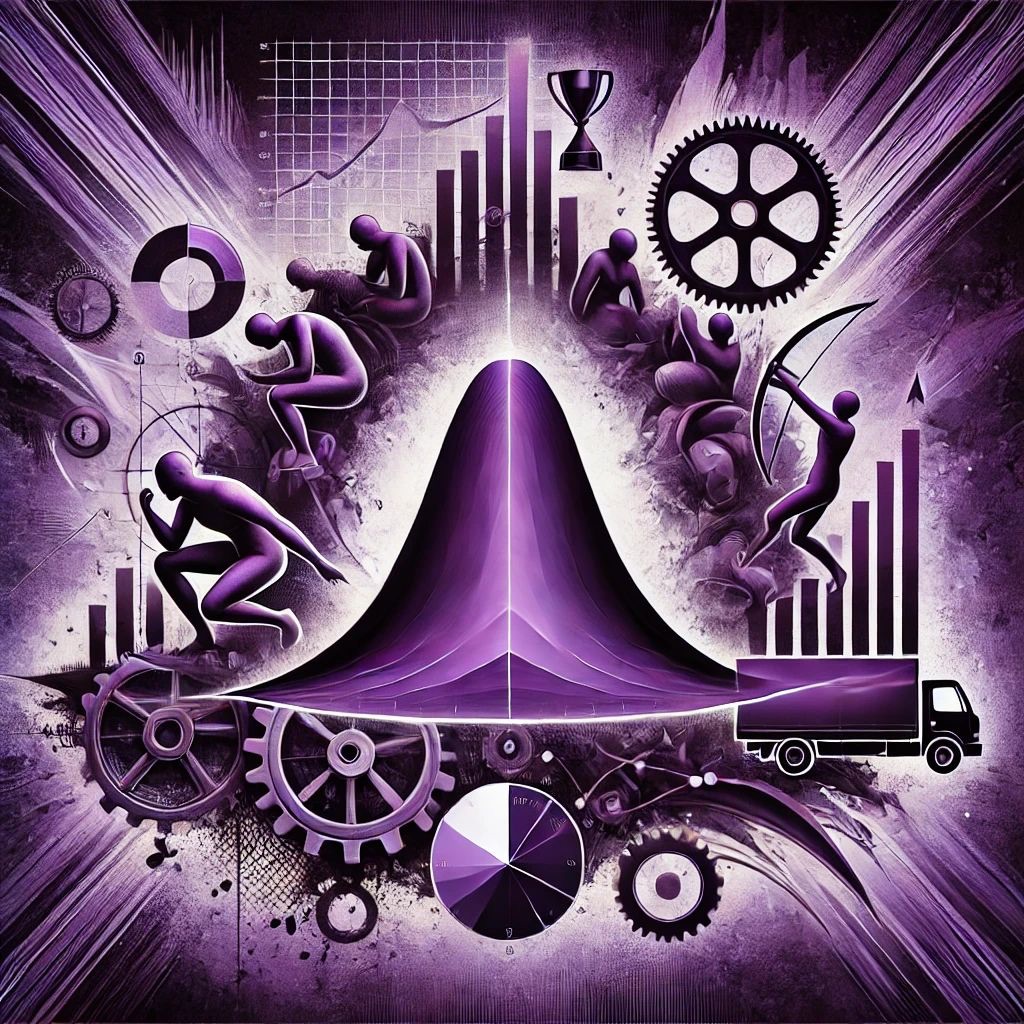

Return of the "Mortality Curve"
The infamous instrument pioneered by Jack Welch at GE—internally dubbed the Mortality Curve—is making its way back under the guise of "forced ranking."
It seems the narrative is shifting: we’ve apparently "cuddled enough," and now we need "real performance" again, which translates to clamping down hard on so-called underperformers.
Latest revival? Meta. Ironically, the company now named after a product that never quite connected with real customers. (Hint: Maybe, just maybe, this is more of a strategy failure than one of "low performers.")
Here’s what the boss of this company, recently dubbed a sentient being without a spine, has to say:
"Meta is working on building some of the most important technologies in the world — AI, glasses as the next computing platform, and the future of social media. This is going to be an intense year, and I want to make sure we have the best people on our teams. I've decided to raise the bar on performance management and move out low-performers faster. We typically manage out people who aren't meeting expectations over the course of a year, but now we're going to do more extensive performance-based cuts during this cycle — with the intention of backfilling these roles in 2025."
Let’s pause here and remember what the evidence (and the inevitable backlash) will tell us when the pendulum swings back again:
🥅 Performance in companies doesn’t follow a normal distribution curve. Not in teams, not in departments, not anywhere.
🥅 Performance evaluation is inherently biased. Especially in knowledge work and team settings where success depends on collaboration and creativity. Some even argue it’s broken beyond repair—for now.
🥅 Forced ranking creates short-term fear, not sustained results. It may work temporarily in non-competitive cultures, but it quickly spirals into cutthroat dynamics.
🥅 It attracts the wrong people. Hawks thrive in forced ranking systems, creating a vicious cycle that destroys trust and cohesion.
🥅 It’s a long-term talent drain. Dismissing the "less smart" or "underperformers" in a time of talent scarcity—particularly as immigration pipelines dry up—is downright shortsighted.
Performance is important. But it’s not about fear, or punishment, or simplistic cuts. True performance comes from looking deeper: understanding slumps, addressing root causes, and unlocking the collective potential of your teams.
Because in the end, what matters most is not individual brilliance—it’s the strength of the whole.
13-01-2025

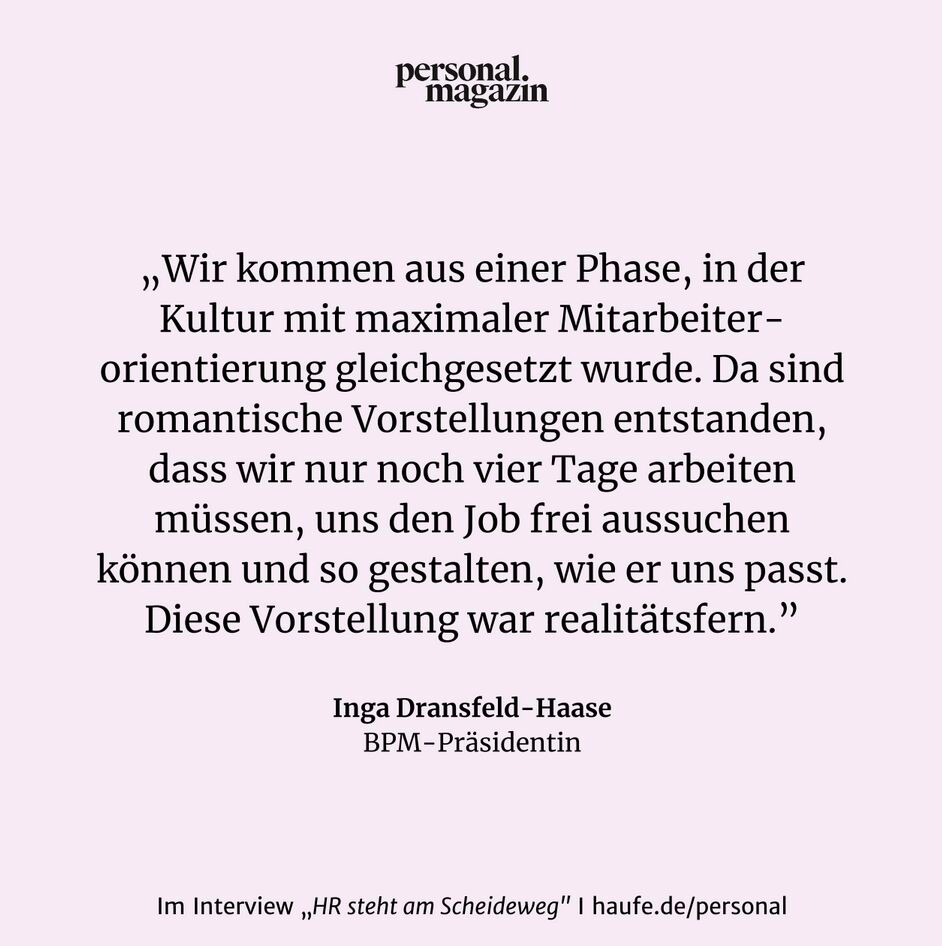

Yesterday, the spirits were stirred once again in an exciting discussion in personalmagazin: the discussion on the topic of “performance” initiated by politicians is (not surprisingly) also spilling over into HR. It is noticeable that we often work with straw men - here “hard work”, there “new work”; here “efficiency”, there “culture”; here “performance”, there “work-life balance”. Such false dichotomies may make the debate more exciting, but in the end they are mainly grist to the mill of an increasingly noticeable populism.
Of course, it is more complex than that - as Prof. Dr. Carsten C. Schermuly rightly argued yesterday. Empirical studies clearly show that individual productivity is significantly influenced by so-called soft factors - such as an appreciative corporate culture, time for care work or new work approaches.
But in my opinion, there needs to be another, and equally important, discussion: what service do we need - and what service do we want? Today I would like to focus on the first question and clarify one thing in advance: We are looking for organizational performance. How this depends on individual productivity must first be defined. Simply “adding up” individual performance does not do justice to the reality of collaboration in organizations that operate in a competitive environment. It could even be that the often ridiculed “lefties and nice guys” play a central role in companies - namely to promote cohesion, which in turn is a prerequisite for top performance.
Secondly, we need to take a closer look at the environment: No one will deny that the world has currently become at least more complicated, more likely even more complex. We don't know what to expect with Mr. Trump - all we can be sure of is a lot of U-turns. We can also assume that we will once again cooperate more closely with other trading partners, such as China. None of this makes the global value chain any easier.
What does this mean? We need organizations that are resilient - with employees who think and rethink together. The appropriate response to this complexity is not the reflex for “strong men”, but more development, coordination and participation for everyone - in short: everyone needs to be on deck (Randolf Jessl your credo).
Unfortunately, strategic HR management research has so far provided few helpful answers. Although “best fit” applies in theory, meta-analysis has so far only been able to prove inconsistent “best practices”, which vary depending on the study. My grandmother used to say: “If you charge a lot, you bring little home.” She was probably right. We not only need to improve in research, but also start thinking in practice - and perhaps learn from the outsiders in the process. Because ultimately it's also about imagination.
12-01-2025

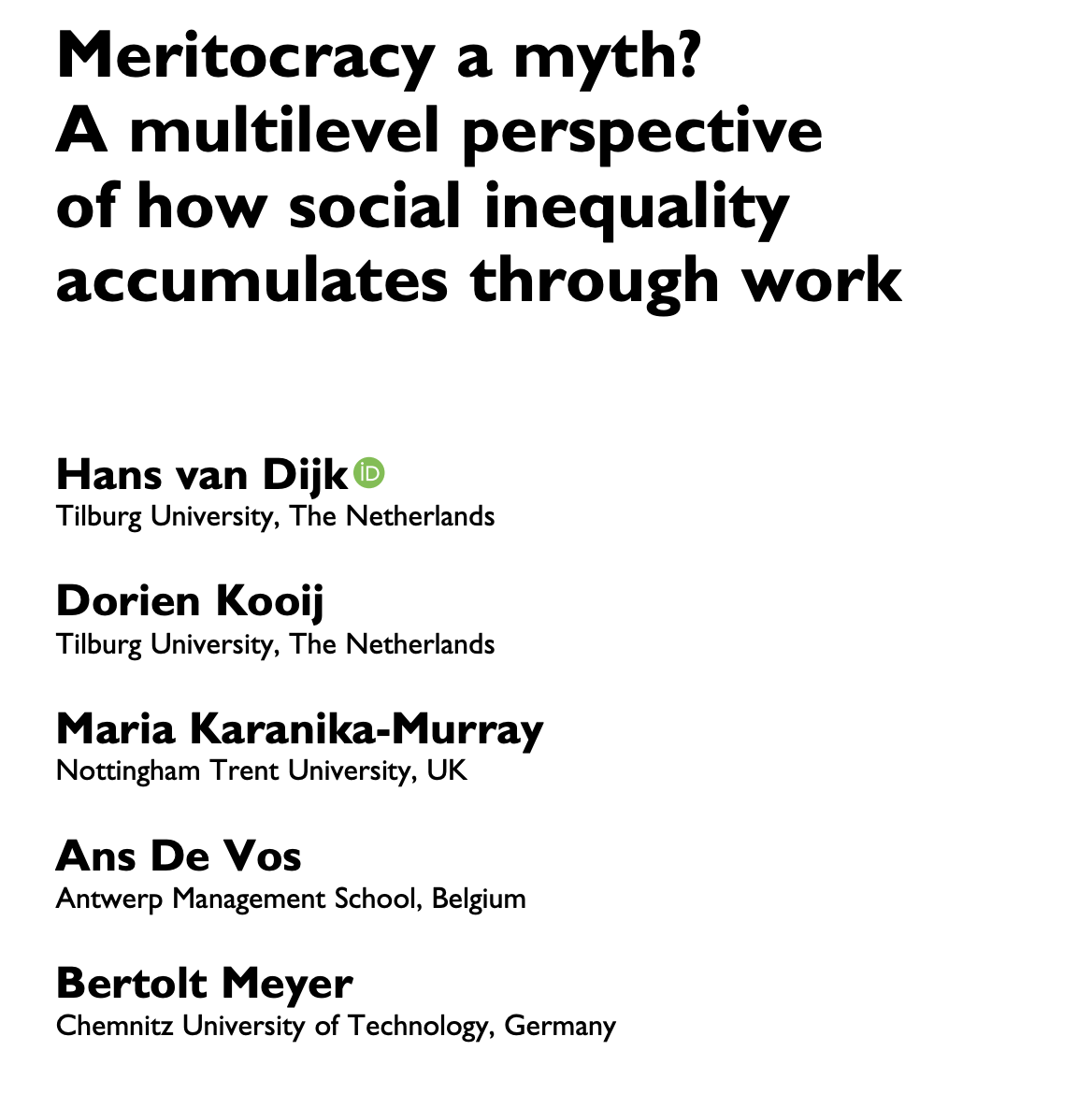

The Just Organization: Removing Injustice I ⚖️
Most of us would agree that striving for equality of opportunity is essential in a fair society. The idea that someone can’t get a job or progress in their career due to discrimination—despite having similar talents and motivation—feels intuitively wrong. And if we were to place ourselves in Rawls’ famous “veil of ignorance” scenario, we famously would reach the same conclusion. Even from a performance or utility perspective, ignoring or underutilizing real talent in organizations is not only wasteful but downright foolish (in the long run...if there is a long run perspective).
Yet, here’s the striking part: organizations struggle not only with ensuring fair entry conditions but also with maintaining a flawless meritocracy. Biases, closed doors, and structural injustices compound initial differences. Instead of reducing inequality, many organizations risk amplifying it. ❌
Before diving deeper into how we might remove these injustices in future posts, I’d like to share an article that sheds light on these self-fabricated inequalities—a must-read for hashtag#HR leaders and CEOs serious about creating fairer workplaces.
🔍 Here’s a key excerpt:
“Our first aim therefore is to inventorize theoretical support for whether and, if so, how social inequality in workplaces is likely to exacerbate (i.e., the cumulative advantage perspective). Our inventory indicates that nine mechanisms play a role in how initial differences in opportunities and rewards in workplaces between members of different social groups (e.g., women vs. men, natives vs. migrants, higher vs. lower educated) shape subsequent differences in opportunities and rewards.
Two of these mechanisms take place at the individual level (the knowledge, skills, and abilities [KSAs] and the motivation mechanisms), one takes place at the dyadic level (the stereotypes and status beliefs mechanism), three at the network level (the homophily, the reciprocity, and the capital correlations mechanisms), and three at the organizational level (the segmentation, the winner-take-all structures, and the meritocratic ideology mechanisms). Each of these mechanisms suggests that social inequality in workplace settings can increase over time, thus lending credence to the cumulative advantage perspective.”
👉 Which of these mechanisms have you seen or experienced in action?
Link to article: https://doi.org/10.1177/2041386620930063
07-01-2025

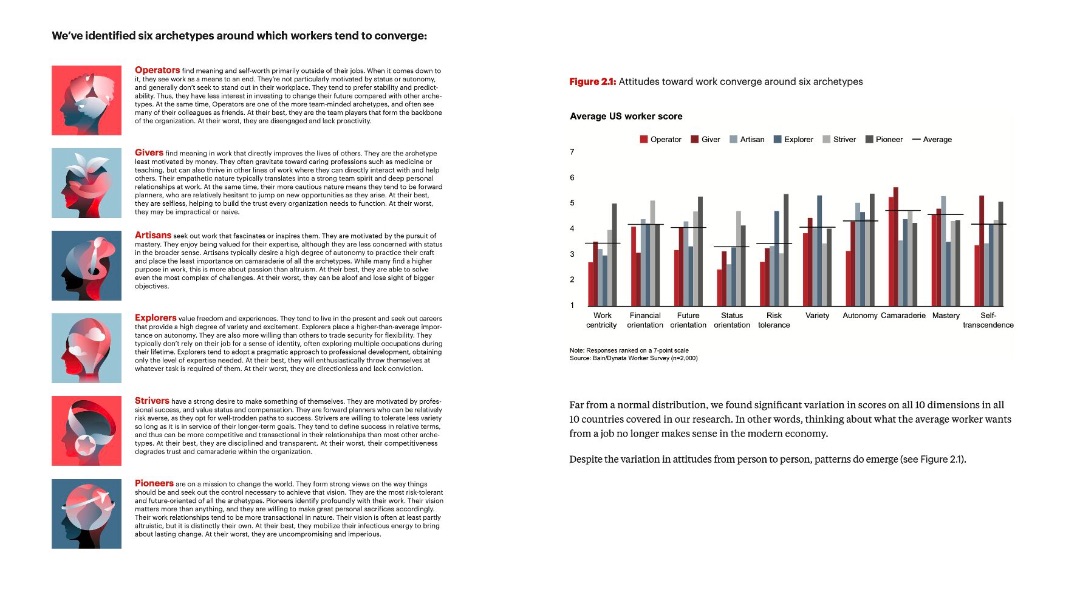

My employees do not want to take over responsibility! 🫥
...or how we love to believe stories that confirm our prejudices. While looking into future-of-work scenarios the other day, I stumbled upon a Bain report—nicely done, as is typical for consultancies. And if you take a closer look at the personas (or as they boldly label them, "archetypes") they identified: different enough to spark interest, but conveniently confirming existing stereotypes to make me "buy in."
Now, let's apply some critical thinking to this:
🧐 What are the underlying theories? Of course, they don’t explicitly reference any theories, but the report seems to imply that personality differences significantly explain workplace behavior. But do they? While no one would deny that personality matters, but we also know that "strong situations beat personality every time." Strong situations are characterized by shared cultural norms, incentives, and selection mechanisms—all of which most businesses have. In such contexts, people tend to conform above all, regardless of their individual personality traits.
🌟 Motivation as a state – the key variable of interest here – could be thought of as energy x goal. This implies that motivation is situational and dynamic. The system plays a crucial role in either undermining or fueling that energy. Additionally, where did they derive these so-called "orientations" from? In motivational psychology, we might work with implicit motives (achievement, affiliation, power) or orientations related to an internal or external locus of control/causality. What they present here seems to be an amalgamation of... well, who knows what.
🔬 And as always, let’s scrutinize the data.** Measuring personality accurately requires well-established (and often lengthy) inventories. One-question measures are nonsense—but naturally, they don’t tell us how they measured anything. Sampling: 2,000 respondents across 10 countries—yet there’s no indication of how they sampled, so it’s clearly not representative. Analysis: cluster analysis—but whether these clusters genuinely link to behavior remains unclear. Hence overall verdict: no real validity.
🧪 In a nutshell: a rather poorly executed study, quite removed from established theory, confirming stereotypes. More importantly, it’s a study that will once again fuel our self-fulfilling prophecies. Specifically: psychology is paramount (so no need to address systemic issues), and only a few people take work seriously or would thrive if given the right conditions.
Let’s not fall into that trap… again.My employees do not want to take over responsibility! 🫥
Link to article: https://www.bain.com/contentassets/d620202718c146359acb05c02d9060db/bain-report_the-working-future.pdf
05-01-2025

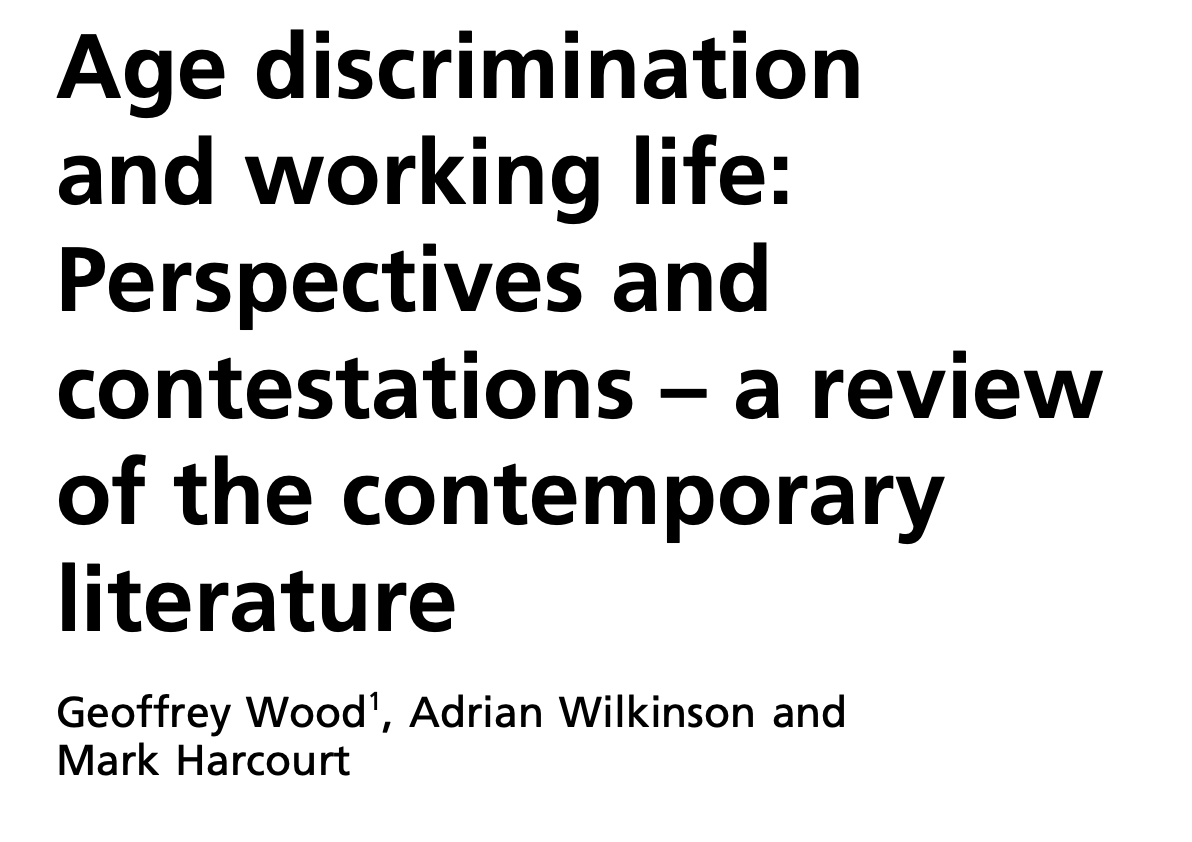

🚨 Why does age discrimination persist in the workplace? 🚨
This year, I’m exploring what it means to create a truly just organization. One recurring issue that continues to plague organizations—despite countless D&I initiatives—is age discrimination.
Find here a critical literature review raising some important points we all too often ignore 👇:
"A common theme through the more rigorous literature is that there is little justification for age discrimination in terms of physical capabilities and higher wage costs. Jobs can be redesigned to match the specific demands of the incumbents, while higher wage costs can be offset through greater organization, specific wisdom, and higher organization commitment. Why, then, does age discrimination occur? While some can be ascribed to historically embedded cultural norms and values, the causes often appear to be economic... Many liberal market national economies are highly dependent on low-cost, low-wage, and insecure work... the immediate cost advantages and opportunities for quick return may deter managers from adopting a long-term perspective, even if the latter may be more mutually beneficial."
So: If age discrimination isn’t rational from a long-term organizational perspective, why do so many businesses still practice it? The answer often lies in short-term economic thinking. In such a model, immediate cost savings and quick returns take precedence over the wisdom, organizational commitment, and long-term value that older employees bring.
💡 Addressing age discrimination, thus, requires more than internal D&I efforts—it demands systemic change.
🥅 We need job redesign that leverages the specific strengths of older employees and which creates working communities based on collective understanding of the shared good to strive for.
🥅 We need new accounting standards that compel businesses to factor in all externalities they create—including the social costs of exclusion and discrimination..
🥅 And importantly, we also need macro-level policy interventions to counteract the economic pressures driving short-termism and exclusionary hiring practices.
Let’s stop framing age discrimination as a matter of outdated cultural attitudes alone. It’s an economic issue, and tackling it means addressing the economic structures that sustain it.
🔍 What policy regulations have been found to be effective in addressing age discrimination?
🔍 Does anyone know of industry standards where businesses are collectively addressing their responsibility?
Link to article: https://doi.org/10.1111/j.1468-2370.2008.00236.x
02-01-2025



The economy is eating its children - literally?
We are in the midst of a reproductive crisis. In Germany and Switzerland, the birth rate is less than 1.39. At the same time, there are already an alarming number of vacancies in nursing care for the elderly and sick - and there is a risk of complete collapse by 2030. What's more, at least 20% of households in both countries have no savings to speak of. The dream of a one-earner household (if it is still a dream) in order to find time for children and parents? Simply unrealistic for most people.
There are many reasons for this. But it is often structural problems that drive us into this crisis:
📈 Work intensification that drains people and leaves no time for family care.
💰 Financial fears, exacerbated by the rising cost of living. In Switzerland in particular, childcare costs are among the highest in the world. In the case of care for the elderly, there are hardly any affordable options if you don't want to exploit people from Eastern Europe.
🤱 A lack of appreciation for health and care work, which is dismissed as “reproductive” because it is not directly “productive”.
⚖️ A weakening state that can no longer provide sufficient financial support for daycare centers and care facilities.
The political responses to this are often ideological: Neoliberals preach that work must pay again, without considering reproductive work or living wages. Conservatives call for women to return to the stove - and ignore the fact that this is unaffordable for most households. Left-wingers want to expand daycare centers and care, think about work-life balance, but cannot admit that the state often cannot afford this.
So we're stuck: the economy demands productivity and productivity - but in our current system, these needs are in conflict.
What is to be done? We must not stop breaking new ground:
🎯 Four-day weeks could increase productivity while creating more time for family.
🎯 Parental leave allows both parents to develop essential skills - skills that we urgently need in a changing world.
🎯 Companies could finally see care work as a leadership skill and promote new approaches to meet all needs.
What do we need to combine productivity and productivity? What approaches do you know of that are already encouraging today? How can the economy - progressive companies - contribute to “regenerative innovation” here?
For me, this is a topic that will also occupy me in 2025 - both personally and in the search for “good organizations”. Perhaps some food for thought for you all there
28-12-2024

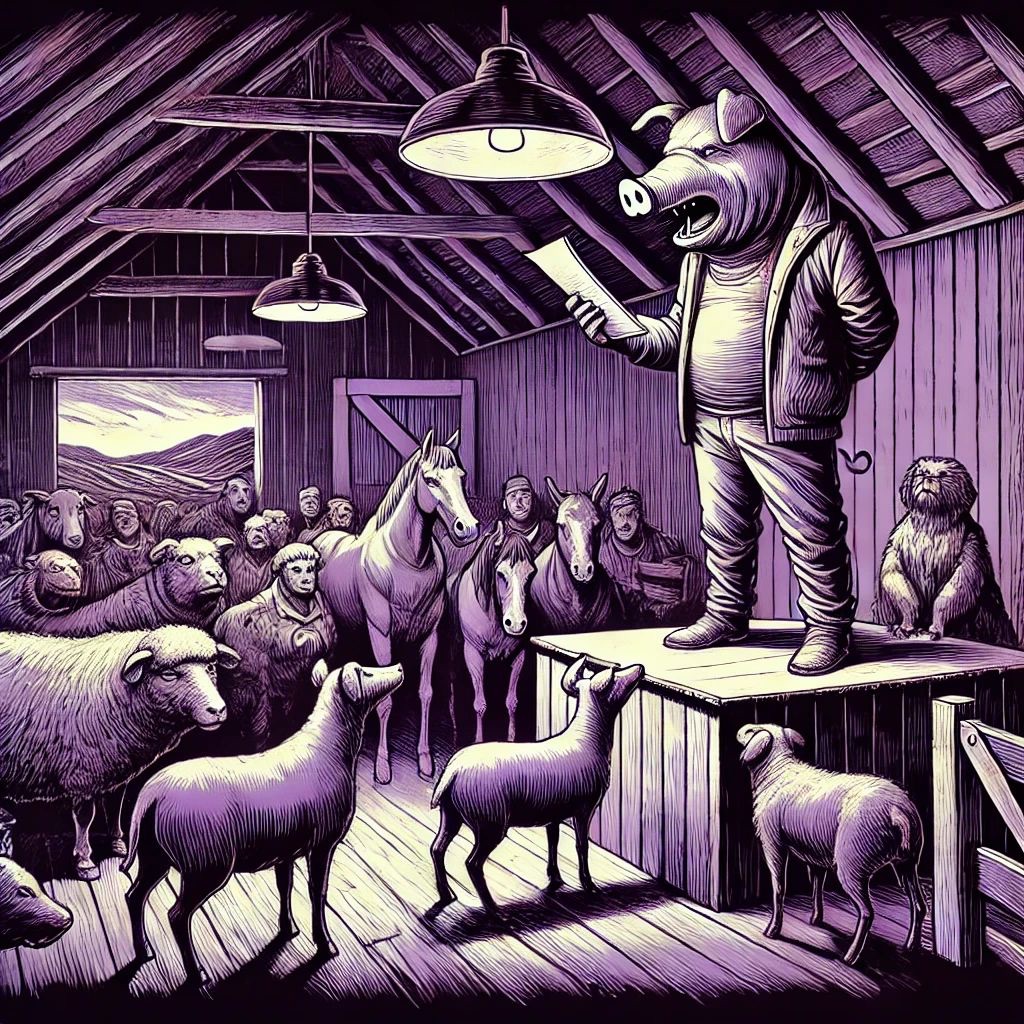

📢 When Power Controls the Narrative: Lessons from Animal Farm
"Four legs good, two legs better!" 🐑
In George Orwell's Animal Farm, Napoleon the pig seizes control—not just of the farm, but of the truth. Through his spokesperson Squealer, Napoleon rewrites history, demonizes his rivals, and simplifies complex issues into slogans that discourage critical thought.
Sounds familiar? Today, we're seeing a similar story play out. Wealthy individuals and corporations acquire media outlets, promising to "save journalism" but subtly (or rather not so subtly as of recently) steering narratives to align with their interests.
📰 Step 1: Take over the communication channels.
Napoleon convinced the animals he was a selfless leader taking on a "deep and heavy responsibility." Similarly, modern media moguls often present themselves as protectors of free speech while shaping editorial lines behind the scenes.
💥 Step 2: Smear opponents and rewrite history.
Napoleon fabricated evidence to paint Snowball, his rival, as a traitor. In today's world, selective leaks or biased reporting often target political or business rivals, manipulating public perception.
🎙️ Step 3: Push simple, catchy slogans.
The sheep in Animal Farm were taught to chant, "Four legs good, two legs better!" to suppress dissent. Modern parallels? You bet - the 5 am club for instance but ofc more.
⚠️ Step 4: Silence dissent.
Napoleon used fear and punishment to quash opposition. Today, we see lawsuits, platform bans, and economic pressures used to intimidate critics and silence independent voices.
💡 Orwell’s message is clear: when the powerful control the narrative, truth becomes a casualty. Independent, diverse media is not just a safeguard for democracy—it’s a necessity for a just society.
I think it is time for all of us to reread animal farm!
25-12-2024

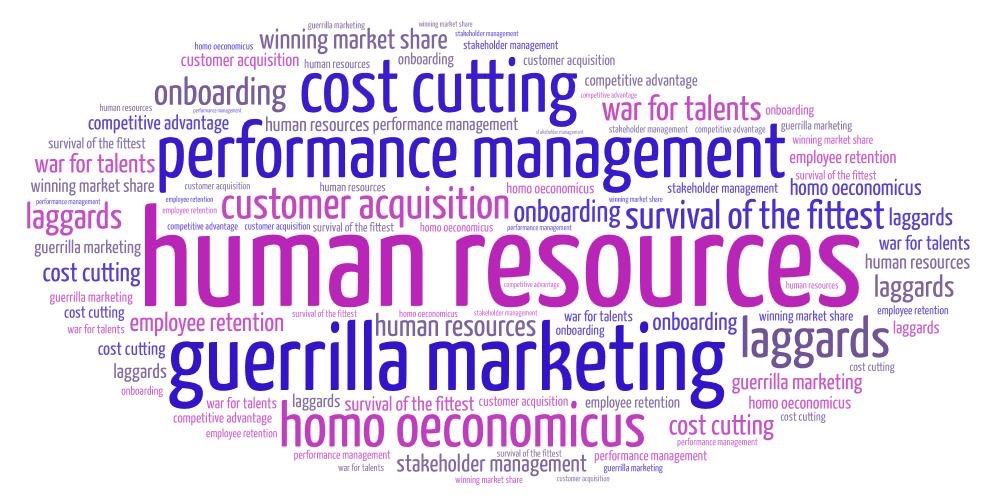

Human Resources or Resourceful Humans? 🤔
The words we use matter—a lot. And let’s face it, business is littered with technical, machine-like, dehumanizing terms, sprinkled with a heavy dose of war jargon. Just think about it: How often do you hear words like trust, cooperation, integrity, joy, or warmth in a boardroom? Rarely. It’s as if business operates in some parallel, amoral universe—where we march around in either bureaucratic or warrior mode, pretending none of it leaves scars. Spoiler: It does. 🩹
Decades ago, the great moral philosopher Robert C. Solomon warned us that language is never neutral—it’s always packed with values. So, why not consciously choose the values we want to see in business, instead of turning a blind eye? 💡 If we keep using cold, transactional language, we’re shaping a reality where relationships are reduced to contracts and people become inputs.
Fast forward, and Ferraro and Pfeffer showed us that words don’t just describe—they create reality. 🚀 Talk about “human resources” acting in “self-interested ways,” and guess what? You’ll design systems to monitor, control, and incentivize those imaginary homo oeconomicus jerks. But here’s the kicker: real humans—made of flesh and blood—react to distrust by becoming more self-interested, even if they’re usually team players.
Words don’t just shape behavior; they cage our imagination. 🧠 Fill your business vocabulary with warrior movie tropes, and it’s no wonder collaboration, ecosystems, or “all hands on deck” thinking won’t grow—it’s beyond the horizon we fenced in with our language.
So, let’s stop talking like wannabe generals or engineers tinkering with machines. Let’s choose language that reflects the human, relational, and ethical realities we want to live in. Because words aren’t just words—they’re blueprints for the world we build. 🌍✨
20-12-2024

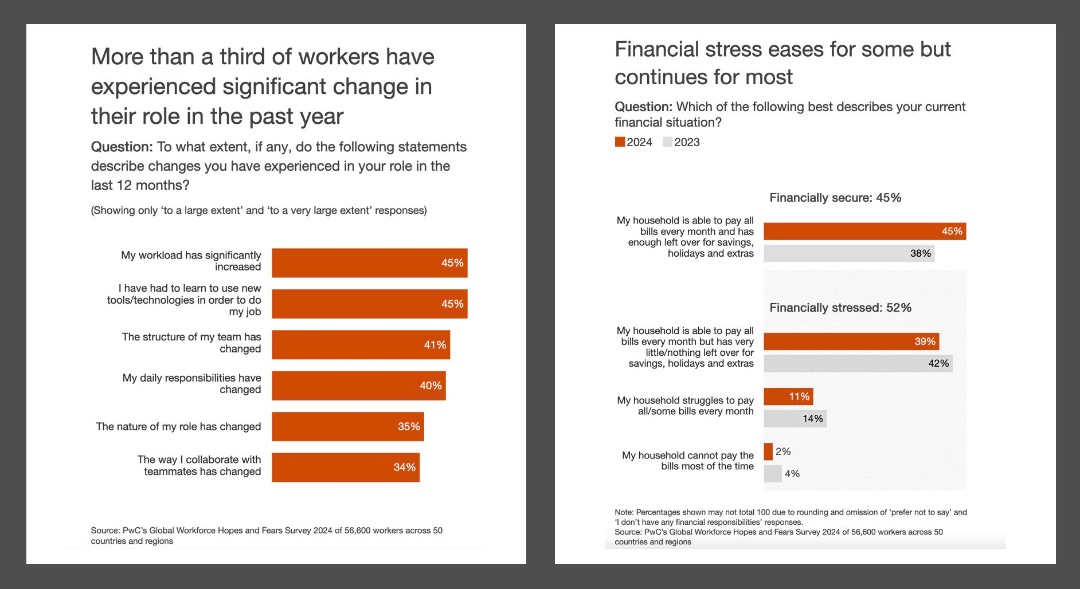

💼 Resilient workforce or regenerative organization? 💼
The numbers in this PwC survey might not be shocking—many of us, myself included, are running on fumes as we count down to the holidays. It’s no surprise, given that our workloads keep increasing, our roles evolve constantly, and the world of work seems to spin faster than ever.
But here’s the thing: I don’t think this is about "building more resilience in the workforce" as PWC titles it. Let’s be honest, we’ve optimized ourselves to the limit—no amount of yoga classes or mindfulness apps will fix this.
The root cause? Corporate growth at all costs.
🔹 It’s unsustainable for nature, as we already know.
🔹 It’s unsustainable for us as people—exhausted, overworked, and disconnected.
🔹 And often, it’s not even for reinvestment in the business. Instead, it’s for shareholder payoffs, like stock buybacks or dividends.
Let’s not forget: our fatigue often leads to more mindless consumption, fueling the very cycle that’s burning us out.
We don’t need "resilience" to keep up with a broken system—we need a new system altogether. Imagine:
🌱 Businesses designed around sustainability, using resources intelligently instead of lavishly (hello, circular economy!).
🌟 Organizations contributing to well-being and the good life, not just the bottom line.
This will require resilient organizations—not just resilient people. Companies capable of weathering the storm of transformation into something better: regenerative organizations. These are workplaces that replenish their most valuable resource—us—and enable different, sustainable business models, goods, and services.
✨ What do you think? What will be needed for us to shift and what could be the task of HR to enable this move?
19-12-2024

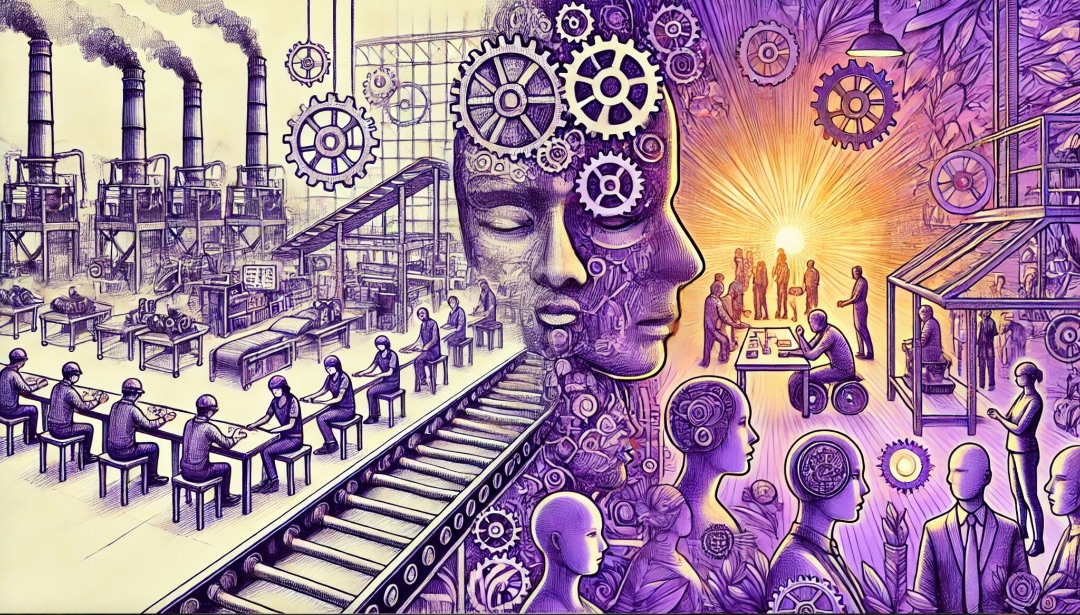

🤔 Why do we keep believing the myth?
The myth of the lazy, insecure blue-collar worker has been pervasive for decades. You’ve heard the sayings:
“They’ll only work harder if you stand over them.”
“They’re here for a paycheck, not responsibility.”
“You can’t trust them to care about the bigger picture.”
But here’s the thing: it’s not true.
Again and again, the evidence shows that when workers are empowered—when they’re trusted to take ownership, collaborate, and use their creativity—remarkable things happen.
Humanizing work doesn’t mean abandoning excellence. On the contrary:
🎯 It means empowering humans to learn, adapt, and collaborate on their own terms.
🎯 It means trusting teams to take ownership of their work and find pride in doing it well.
🎯 And yes, it works on the shop floor, too.
Take NUMMI, where Toyota’s principles turned a struggling GM factory into a world-class operation. Or Scania Group, where modular truck production gave shop-floor teams autonomy and pride in their craft. Or Michelin, where workers on the line solved problems and drove innovation. And then LAYS, where frontline workers handled scheduling, quality, and improvements themselves.
The results?
💫 Teams delivering excellence—because they own it.
💫 Higher engagement and pride in work.
💫 Innovation driven from those closest to the process.
And yet, we keep falling back into rigid hierarchies, claiming “it won’t work here.” But here’s the kicker: when some of these experiments struggled, it wasn’t the workers—it was managers unwilling to let go of power.
We always have a choice. Work doesn’t have to be robotic or soulless. It can be a place where people learn, grow, and excel—together. Isn’t it time we stopped believing the myth?
For those who want to read more - I really liked these two articles: https://lnkd.in/dzcWYcdn and https://lnkd.in/dY_ScnNY
16-12-2024

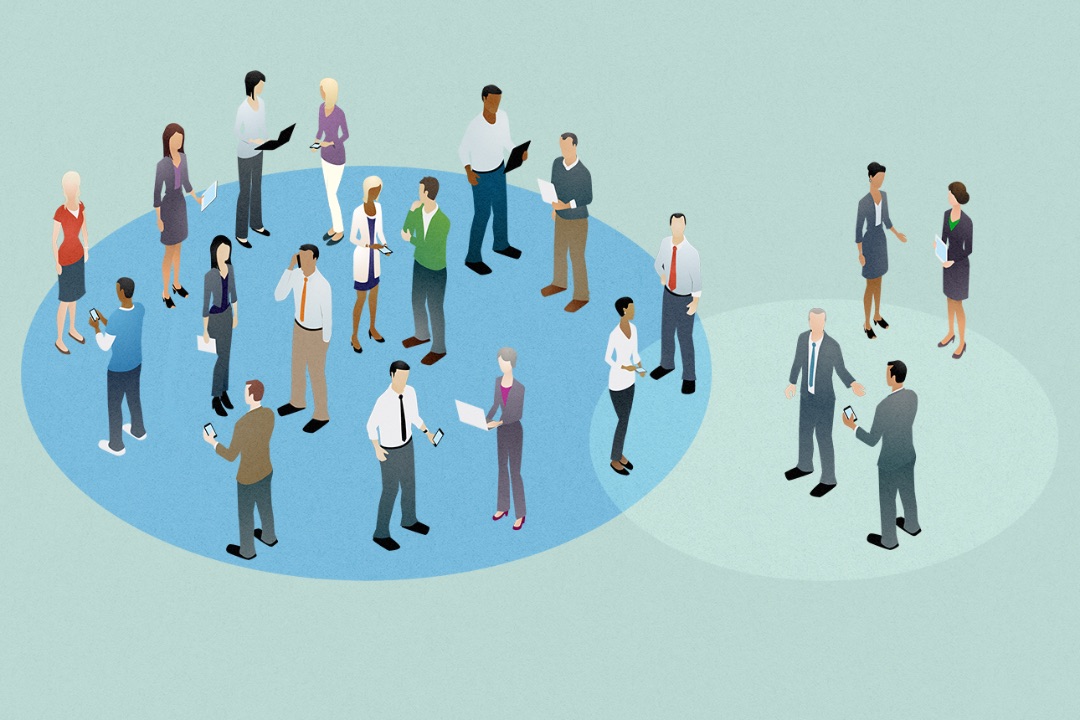

Comment on "A Radical Rethink of HR" by Ashley Goodall (2024)
I agree in many aspects - but disagree with one: this is not going to be an easy ride precisely because employee and management interests can be conflicting. Here HR really needs to shape up and be able to bridge, to mediate conflicts, to search better solutions dialectically. But otherwise it is quite bang on the matter:
- "Now, the first important point to make is that our two circles do not perfectly line up with each other. There are things that are in the interests of the business that are very much not in the interests of employees (layoffs, restructurings, late-night emails, open-plan offices, long-haul travel in coach); and there is plenty of stuff that is in the interests of employees but not very much in the interests of the business (raises, vacations, sleep). In the olden days, the fact that the circles don’t exactly align was made up for by pay and benefits, the function of which was to compensate people for some stuff that wasn’t great (hence, in one sense, compensation). Again, a non-crazy proposition: Because we (the business) recognize that there’s some stuff that’s a little bit sucky for you (the employees), we should do something to make up for this and induce you to hang around, whether that something is money, or benefits, or wellness gurus, or foosball tables, or Instagrammable offices.
- Even if that approach were ever really sufficient, it certainly isn’t now, as the widening gap between companies and their workers illustrates. The unwillingness of employees to mutely accept what their employers have to offer is a reflection of the importance of the second circle — employees’ interests — and a reflection as well of the perception that between them, business leaders and HR have inadequately addressed those concerns.
- HR and the Second Circle: Right now, HR sees itself as the implementation arm of the people-related things in the first circle — and this certainly appears to be the role that most businesses want it to play. In many organizations today, HR functions either as an agent of management or as a slightly awkward mediator between employees and management, trying to explain what’s going on to employees while nudging management in a better direction."
Source: https://sloanreview.mit.edu/article/a-radical-rethink-of-hr/
12-12-2024

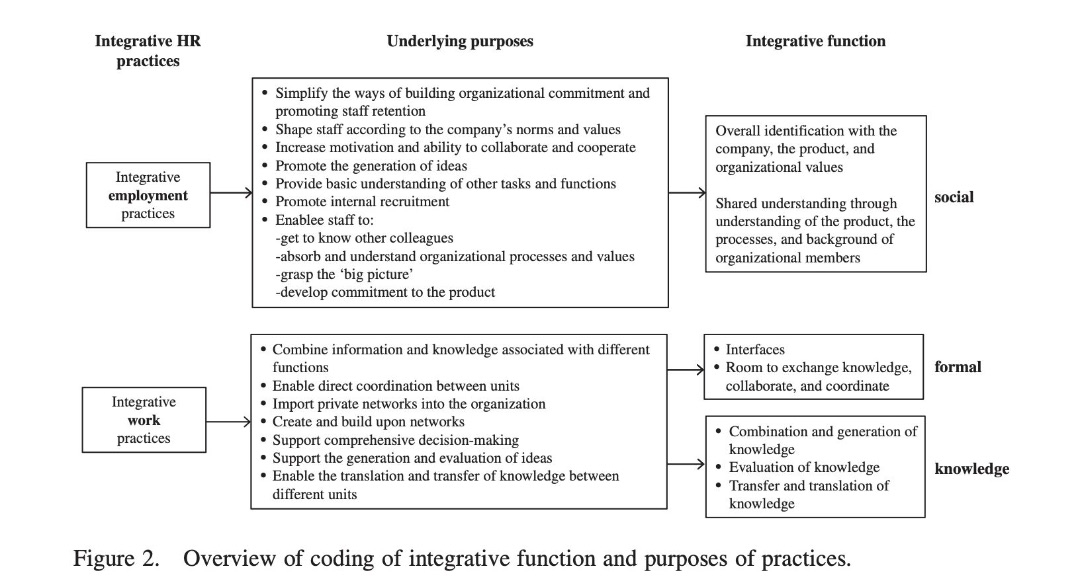

Navigating the Tensions: The Quest for Integration in Business
Businesses today operate in a web of competing demands: balancing people, planet, and profit; innovating while delivering to market; and investing in growth while cutting costs. These tensions, exemplified in challenges like Germany’s current economic dilemma, demand more than just balancing or switching between priorities over time. Similarly, relying on parallel structures within organizations, while offering some benefits, is not sufficient to handle these persistent and complex dynamics.
Instead, companies need to pursue integration—finding imaginative ways to reconcile these tensions into cohesive strategies. Christian Garaus and colleagues explored this challenge through three Austrian "hidden champions": Firetrucker, a global leader in firefighting vehicles; Lookmaker, a premier producer of high-quality rimless eyewear; and Snowrider, a pioneer in ski service and other niche engineering solutions. Each company, despite operating in different sectors and facing distinct market pressures, demonstrates the power of integration in addressing the dual demands of innovation and efficiency. For example, Snowrider combines independent divisions with centralized R&D and production to streamline operations while fostering creativity (see source below 👇 ).
What role does HR play in this integration? The research highlights that HR functions as the connective tissue, enabling the flow of knowledge, fostering collaboration across units, and supporting a culture where employees can navigate these tensions. By designing systems that bridge structural divides and empowering individuals to engage in exploration and exploitation simultaneously, HR becomes a key driver of organizational ambidexterity. As these hidden champions illustrate, the future lies not in managing trade-offs but in integrating them.
But I would to up this claim. Thoughtful integration is also needed for the even bigger challenges ahead and for the transformation of business into a force for good for the planet and the people on it. It’s a call for HR to reimagine its role - and a very inspiring too.
Source: https://www.tandfonline.com/doi/figure/10.1080/09585192.2015.1045007?scroll=top&needAccess=true
07-12-2024

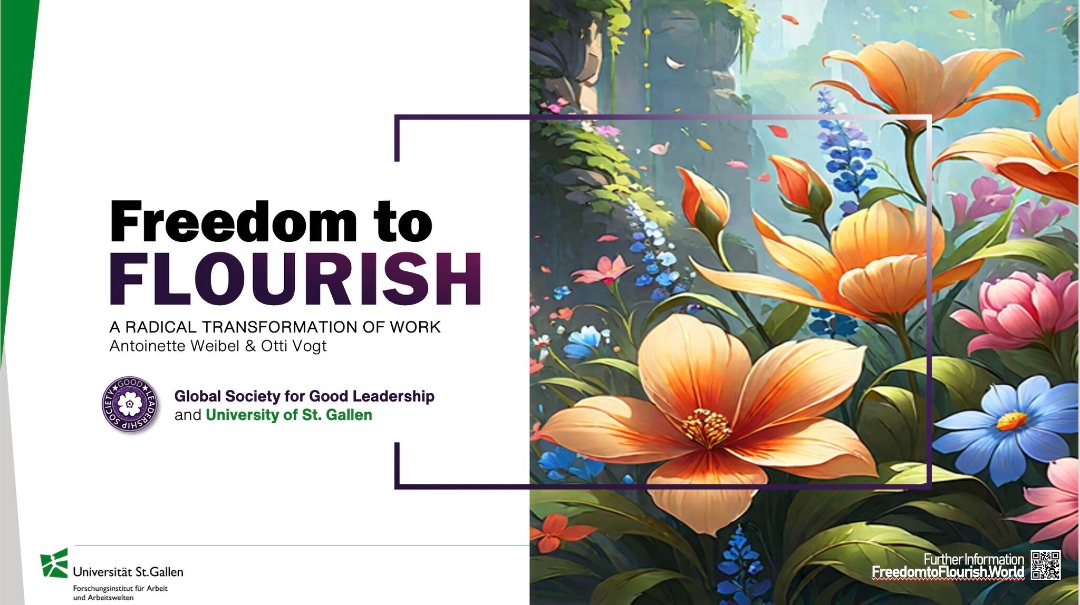

The Economy is Stuck
The challenges of our time—climate crisis, social inequality, and a loss of trust—demand that businesses reinvent themselves. Yet too often, we respond to new problems with old solutions: more efficiency, more control, more of the same.
But this is no longer enough.
What we need now is true inspiration. A bold vision of reimagining the economy—not just as a machine for profits, but as a force that nurtures the well-being of people, society, and the planet. The real question is: How can we make this transformation happen?
This is exactly what our talk is about: "Freedom to Flourish – How Transformation Succeeds."
Why you should join us: The question is no longer if we need change, but how. For three years, we’ve studied what makes organizations successful when they align with the needs of people, society, and the planet. The conclusion is clear: Traditional management logic is obsolete.
What’s needed instead are approaches that put responsibility, imagination, and rootedness at the core of how organizations operate.
Highlights of the talk:
🚀 Understanding Transformation: Why outdated practices like rigid goal-setting, performance appraisals, and variable pay often do more harm than good.
🚀 From Profit to Purpose: How companies can achieve financial success while leaving a positive legacy.
🚀 Reinspiring Organizations: Thinking beyond the TEAL paradigm and recognizing how ideologies shape organizational behavior.
🚀 HR as the Key Function: How HR can go beyond administration to transform organizations into a force for good through ethical leadership and deliberate development.
👉 Watch the video now: https://lnkd.in/ep9BGG84
The Flourishing Manifesto
We’re introducing a people-centered approach that puts flourishing, creativity and shared prosperity at the heart of business, transforming organizations into positive forces for change.
Let’s work together to:
👍 Rethink the economy.
👍 Build organizations that help people, society, and the planet thrive.
👍 Embed responsibility and imagination into the DNA of businesses.
🔗 Learn more: https://lnkd.in/etKyxqPP
🌱 Join the movement for responsible leadership. The economy can become a force for good—but only if we act now.
29-11-2024



The German economy is faltering, at least according to official reports. Political players and CEOs promptly come up with well-known recipes: the CDU calls for more “decency and diligence”, the FDP smells a battle in the field and calls for “performance that must be rewarded again” can be heard from the business world. But this chorus seems like an echo from a bygone world - one in which “performance” meant above all getting to grips with, following and carrying out tasks, and motivation could be decreed from above.
We call this red/machine: an organizational logic that focuses on commands, control and efficiency. But today we live in a networked world that demands something completely different: Adaptability, proactive thinking and cooperation based on trust and a diversity of perspectives.
At the same time, we live in a pluralistic society in which different world views clash. Instead of rehashing old slogans, what is needed is genuine listening and a critical but open dialog - in order to learn from this diversity and develop sustainable solutions together.
Companies are caught between the pressures of profit, social responsibility and ecological transformation. In this complex reality, what is needed is not a blunt “spitting hands” and rigid systems, but a sense of responsibility, imagination and anchoring. It is about organizations that do not manage people as “assets” but take them seriously as co-creators, that question their ideologies and seek a balance between economic success and social responsibility.
The Flourishing Manifesto, which we present in our talk, shows ways in which organizations can create this transformation - with a people-centric approach that promotes flourishing, imagination and smart action for shared prosperity.
👉 Find out more in our video: https://lnkd.in/ep9BGG84
Our highlights:
🚀 From profit to legacy: How companies can combine financial success with positive social impact.
🚀 Questioning ideologies: What comes after the TEAL paradigm and how do beliefs influence our actions?
🚀 Rethinking HR management: Why traditional methods such as targets and performance appraisals often do more harm than good.
🚀 HR as a force for change: Why HR can play the key role in transforming organizations into forces for good.
🔗 Further information: https://lnkd.in/etKyxqPP
Our interviews with progressive organizations show: It works. Agility and social responsibility do not have to be opposites. Let's create organizations together that make people, companies and the planet thrive. 🌱
23-11-2024



Building Businesses for Good: A Framework Rooted in Ethical Principles
In a world that increasingly calls for businesses to act as forces for good, we need a framework that connects deep ethical principles with practical action. Imagine a tree: its roots firmly planted in the ground, its trunk providing structure, and its leaves branching out into meaningful impact.
The roots of this framework could be four foundational principles: Human Dignity, Shared Flourishing (Common Good), Empowerment (Subsidiarity), and Mutual Responsibility (Solidarity).
💌 Human Dignity reminds us that every person has inherent worth. Businesses must reflect this by respecting and empowering all stakeholders—employees, customers, communities—through fair treatment, opportunities for growth, and safe environments.
💌 Shared Flourishing shifts the focus to creating conditions where individuals and communities thrive together, emphasizing shared goals and collective well-being.
💌 Empowerment ensures that businesses enable autonomy and creativity by supporting individuals in reaching their potential and making meaningful contributions to organizational and societal success.
💌 Mutual Responsibility highlights the importance of contributing to the greater good with a shared sense of accountability, ensuring no one is left behind in the pursuit of success.
From these roots grow the trunk and leaves—three practical principles that businesses must embrace: Good Goods, Good Work, and Good Wealth.
🎯 Good Goods calls on businesses to produce products and services that genuinely serve society by meeting real needs and providing value. This also means actively addressing the barriers faced by underserved populations, ensuring equitable access to economic opportunities.
🎯 Good Work focuses on organizing workplaces where individuals find purpose, fulfillment, and opportunities to grow. Roles should be designed to foster collaboration, develop skills, and align with intrinsic values. Organizations that embrace empowerment enable employees to contribute meaningfully while building a culture of shared ownership and trust.
🎯 Good Wealth challenges businesses to be responsible stewards of resources—financial, human, and environmental. Sustainable practices should not only protect but regenerate ecosystems, while wealth and benefits are distributed fairly among all stakeholders. This approach balances profitability with accountability, ensuring prosperity is just and inclusive.
A business rooted in these principles doesn’t just grow—it thrives, supporting individuals, communities, and the planet. It connects ethics with action, ensuring that every branch of its operations contributes to a more equitable, sustainable, and human-centered world.
Are we ready to grow together in this way? (warning: still a good chunk of catholic social teaching within here)
18-11-2024

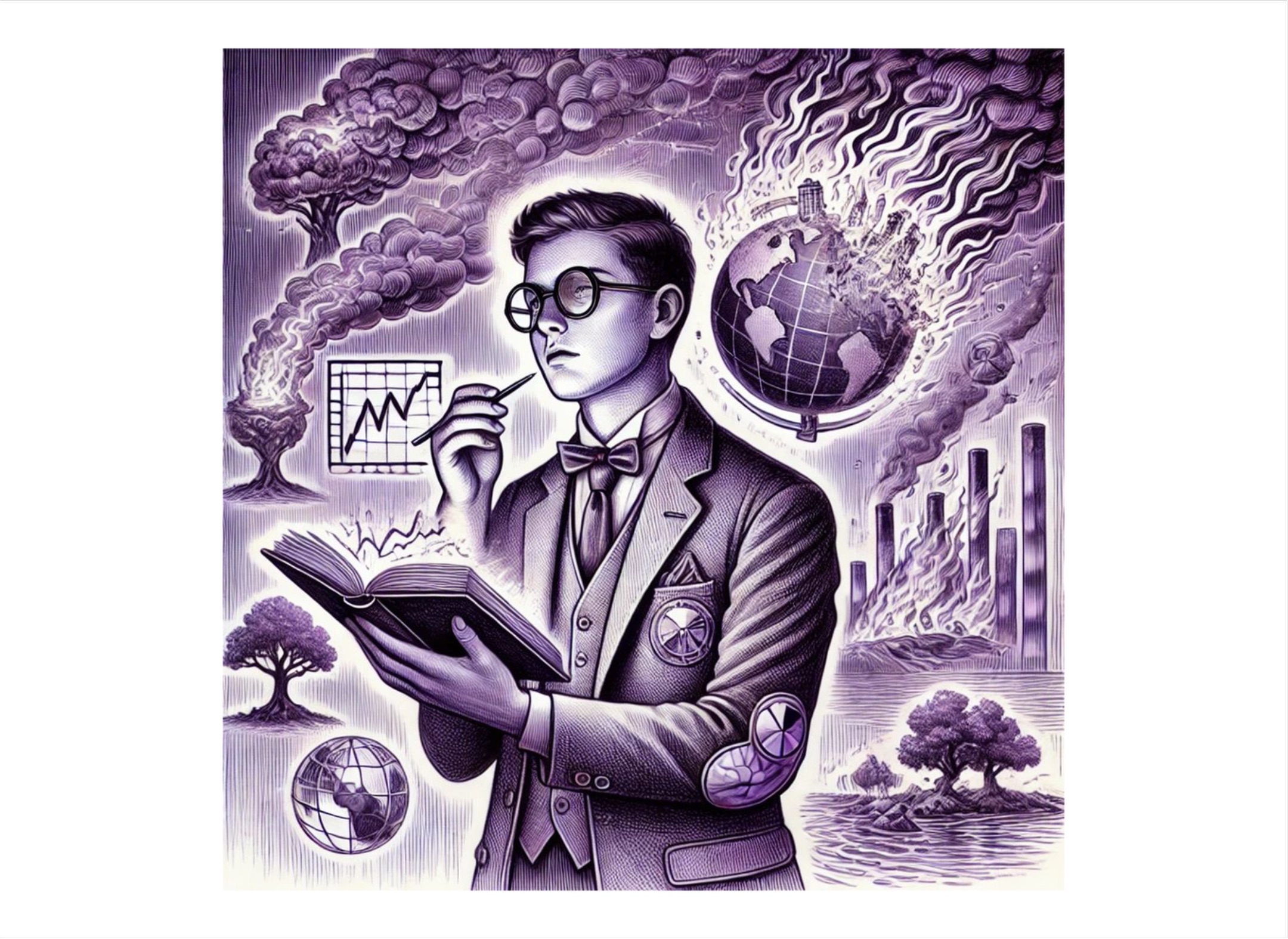

The Economist’s Apprentice
O, bold he stood, the student keen,
With theories sharp and bright,
He dreamt of endless wealth unseen,
Of power infinite.
“Master, hear, my plans expand!
Growth unbound will shape the land.
Give me but your rules of old,
To turn all things to endless gold.”
So spoke the eager mind in haste,
His master’s wisdom cast away.
No heed to limits, none to waste,
His formulas held sway.
“Resources plenty, man divine,
All the world will yield in time!
More we’ll grow, and more we’ll claim,
Until the world repeats my name!”
With numbers rising, greed took root,
The markets fed his spell,
Unbridled wealth their sole pursuit,
The rich were served too well.
The forests fell, the oceans cried,
The people bowed to powers wide.
The cost of growth, unseen, ignored,
Bore famine, fire, and silent wars.
“Stop now, stop!” the scholar wailed,
The graphs had turned askew,
But power’s might, unleashed, prevailed,
No end could he construe.
His master gone, no word to hear,
The economy surged in wrath severe.
Man and nature, chained, subdued,
By greed, by growth, by systems crude.
Back the master came at last,
To find his world laid bare,
“The tools you use, though tied to past,
Have not been handled with care.
Economy is no endless well,
Nor wealth a god, nor markets spells.
Learn, apprentice, or let it die,
For nature’s patience won’t comply.”
Humbled stood the scholar then,
His theories turned to sand.
A lesson learned, too late for men,
The planet’s scorn at hand.
The spell undone, the power ceased,
But the price of greed, it had increased.
O, would the master’s voice resound,
Before the cost had so profound.
Thx to chat gpt - but well made, not?
15-11-2024



🌟 The Gift of Good Work: A Reflection on Contribution and Subsidiarity 🌟
Work is more than a paycheck or a set of tasks. At its heart, work is a gift—a chance to contribute, to grow, and to serve something greater than ourselves. This is what I read in preparation of an interview on catholic social teaching and we could all learn from this💡
The principle of subsidiarity reminds us of a profound truth: every individual has unique talents, abilities, and perspectives that are essential to the whole. Recognizing and celebrating these gifts is not just an act of leadership—it’s an act of humanity. 🤝✨
Here’s a thought-provoking framework to integrate subsidiarity into our workplaces:
🔍 See: Take a step back and truly see the people around you—not as “resources” or “units,” but as individuals with intrinsic value. As Tolstoy once said, “Everyone thinks of changing the world, but no one thinks of changing himself.” Begin by reflecting on how your own work changes you. 🌱
⚖️ Judge: Reflect on the roles and gifts entrusted to each person. How are you fostering an environment where everyone can share their skills and live out their vocation? Work should be a space where the imago Dei—the divine spark within—is nurtured and expressed. 🌟
🚀 Act: Recognition must lead to action. Businesses thrive when we:
1. Design work thoughtfully. 🛠️
2. Educate and equip employees to succeed. 📚
3. Trust people to rise to the occasion and own their contributions. 🌍
Work is transformative—both for the world and for ourselves. Let’s create workplaces where every gift finds its place, every voice is heard, and every contribution matters. 🌈
💬 How do you ensure that your workplace celebrates the gifts of everyone?
08-11-2024



🚨 ALL HANDS ON DECK 🚨
The last few weeks have been a drumbeat: images from Valencia, billionaires buying seats in governments and a return of authoritarian leadership - loud and clear. It's scary and sometimes makes me feel helpless too.
But what all this shows: We have to learn to deal with disorder and crises. And we in Switzerland can do this from a position of strength - a strength that may be fragile, but can give us a small head start.
What we need now: All hands on deck 🚢! I have been convinced for years that HR has the task of building ORGANIZATIONAL RESILIENCE. This is work on and in the system. Only empowered people can not only get to work, but also think. Only a culture of appreciation, mutual challenge and support will bring about the necessary rethinking, creativity and care that is now required.
To achieve this, we need to redesign work - not with a foosball table, but as meaningful, solidary adult work. And yes, we need to overhaul our core systems. Performance management, for example, must no longer mean counting and competition, but rather promoting reason, co-creation and co-elevation. And when it comes to selection, the following applies: resist the beginnings - narcissists are not the solution (even if they are very popular at the moment).
And a bit of advertising on my own behalf 😉: I have been able to promote this time and again for over 10 years together with many inspiring HR managers. Further training remains the key.Now is the time for fit and courageous HR!💪
06-11-2024



Yesterday, a ray of hope 🌈 illuminated our space as we gathered to discuss the Flourishing at Work Manifesto. We felt inspired and reaffirmed in our belief that work can indeed be the heart of a flourishing revolution. Yet, in times like these, when the world feels uncertain and heavy, we need—more than ever—courageous companies and compassionate leaders who refuse to let humanity, and our planet, falter.
We need excellence brokers, those skilled in forging alliances with the willing 🌳. To you, we say: step into your professional circles, engage with leadership societies, and unite as a force for good. Through small but strategic actions, you can guide your organizations in the right direction, paving the way for a more hopeful future. And be that so whispering in the CEOs ear 😊.
And for those positioned to lead at the forefront, we need leaders for good—ambassadors and guardians of flourishing 💐. With every product you create, every service you deliver, and every interaction you shape, let your actions radiate purpose and care. Shine your light for others to see. Be the beacon others can look to in challenging times, lifting everyone up by nurturing the wisdom within your organization and extending it into your ecosystem.
Let’s find the courage to persevere 💪 , and let us not concede before the battle is truly over. Together, let’s create the change we wish to see 🌟
01-11-2024



🌍 Why Are We All So Stressed? 🌍
Yesterday, a colleague and I had a conversation that stuck with me. For years, I’ve noticed a trend among my students: when I ask them to rate their stress levels in our check-ins, they consistently report high numbers—often around a 7 out of 10. While part of this stems from the intensity of the Bologna system, with constant exams and part-time jobs to “prove” their employability, there’s something more profound at play. This isn’t a new situation, but the stress levels are reaching new heights.
As I prepared for a talk on degrowth, I revisited Hartmut Rosa’s thesis on the “hashtag#acceleration hashtag#trap.” Rosa argues that we’re living in an era of relentless acceleration that’s leaving us, quite literally, breathless. This phenomenon has three layers:
1) Technical Acceleration: We’re moving, producing, and communicating faster than ever. The world has shrunk to our fingertips, and yet, it often feels more overwhelming than accessible.
2) Acceleration of Social Change: We have more choices than ever—career paths, relationships, lifestyles. Gone are the days when one’s future was predefined. Now, we’re told to “craft” our ideal life, but with so many options comes an additional pressure to choose wisely and continuously reinvent ourselves.
3) Acceleration of Life: We’re constantly optimizing. Each year, technology “frees up” more time, yet we feel as though we have less. We cram more experiences, more achievements, more refinement into every spare minute, all while battling FOMO. The more we do, the less it feels like it’s ever enough.
These layers interlink, creating a logic of intensification that traps us in an endless cycle. The wheels are spinning faster, and stepping out feels like falling behind. We’re told to self-optimize, but self-optimization alone can’t release us from this treadmill.
So maybe this is the true root of today’s high stress levels: it’s not just about doing more; it’s about escaping a system that demands more without ever truly satisfying.
🧩 How do we get off the treadmill?
20-10-2024

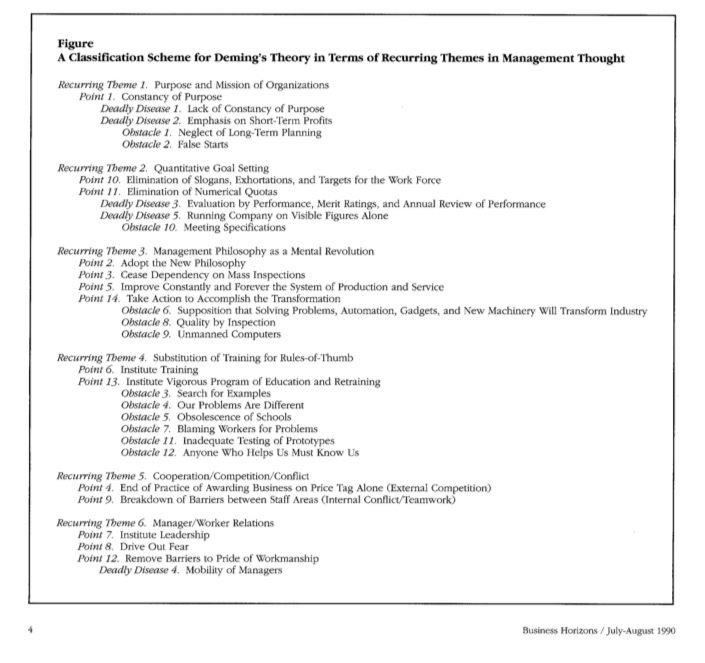

What if we looked at HR through an (early) systems management perspective 😉 let’s see how Deming would tell us off:
„If I were to look at today’s HR performance management practices, I’d say we’ve learned nothing. Performance reviews, merit ratings, forced rankings—these are poison to any organization. You cannot hope to improve an organization by rewarding individuals based on how well they can manipulate the system, or how much they can outperform their peers. Competition within your company destroys teamwork and focuses people on survival, not improvement.
Management by objectives? Quotas? These are the diseases I warned about long ago. They drive short-term thinking and blind decision-making, forcing managers to chase numbers rather than build meaningful processes. What good are your quarterly targets when your organization is falling apart from within?
You cannot blame employees for poor performance when the system itself is flawed. The vast majority of problems in an organization are caused by the system, not the people. Yet, HR today still clings to the notion that individuals are to blame, as if rating and ranking employees will magically solve the deeper issues.
Drive out fear—this was one of my key principles, and yet today’s HR practices create an environment of constant fear, where workers are pitted against one another, where their worth is reduced to a score on a review form. You cannot innovate in a culture of fear.
Want better performance? Stop treating your people like isolated numbers. Fix the system. Build trust. Focus on collaboration. Performance doesn’t come from measuring people—it comes from improving the way you work together. Until HR understands that, they’ll continue to kill the very potential they’re trying to manage.“
And he was successful with these principles amazing how quickly we forget.
12-10-2024



Monsterstorms, monsterfloods, fascists gaining elections (by a margin, but still), exploding wars, recession and more. I certainly did not like this year so far. But the more I am surprised by our government: austerity is the name of the game! We do not want to live at the expense of next generations and I get that (and trimming inefficiencies is fine to some degree) but ofc by not investing in the green transformation and in leaving a big part of the population behind we destroy their future to start with - between scylla and charobydis. Or not as Ann Pettifor explains so clearly.
Ann Pettifor explains why governments must end austerity measures to tackle the climate crisis and fund a green transformation. She argues that austerity restricts economic growth and leads to social inequality, which makes it harder to address environmental challenges. Governments can generate the necessary funds for green investments by managing capital flows and implementing financial reforms. This includes reclaiming control over money creation, regulating credit to prevent overconsumption, and shifting financial priorities toward renewable energy and sustainable infrastructure.
Pettifor highlights that by implementing capital controls and breaking the dominance of global financial markets, governments can stop prioritizing the interests of financial elites and instead focus on public investment in long-term green projects. She emphasizes that money is not a limited resource but can be created and allocated responsibly for the common good. Her vision calls for an end to the austerity-driven mindset and a move toward economic policies that prioritize environmental sustainability and social well-being.
Through these measures, she advocates for systemic financial reforms that align economic policies with the urgency of the climate crisis while addressing inequality. The control over money and credit, she argues, should be in the hands of public institutions, allowing governments to steer economic decisions towards investments that benefit people and the planet.
For more details, you can listen to the interview here: https://www.greenpeace.org/international/podcasts/64940/systemshift-ann-pettifor-the-story-of-money/. And yes I know that neoliberal economists will disagree but they are really just one voice of many.
11-10-2024

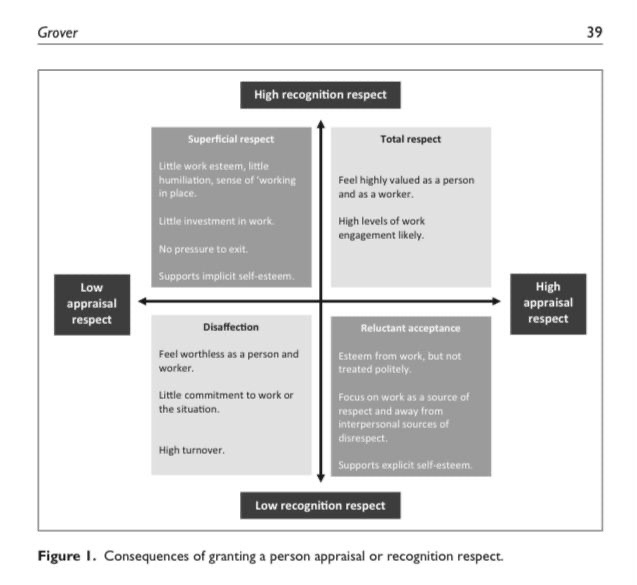

Respect and respect
A typical corporate saga unfolds: the heroic performer, Alex, who hits every target and exceeds expectations. Promotions and bonuses come his way, and his work is a benchmark for excellence. Yet, beneath this polished surface, human exchanges are a different story. In meetings, Alex’s ideas are brushed aside, his voice often drowned out by louder colleagues. Despite his achievements, he feels invisible, appreciated for what he does but not valued for who he is.
This distinction illuminates two types of respect as Steven Gover stresses: appraisal and recognition. Appraisal respect is conditional, granted based on achievements and competencies, aligning with the principles of justice. It’s an evaluation rooted in merit, acknowledging the value of a person’s contributions within a system of rules and standards. In contrast, recognition respect is unconditional, an ethical stance that recognizes the inherent dignity of every individual. Tied to the domain of care, it transcends performance, valuing people as moral beings deserving of attention and empathy, regardless of their output. It’s about seeing others as ends in themselves, as Kant suggested, rather than as mere means to an objective.
Here’s the catch: without recognition, appraisal falls short. When people are valued only for their output and not as human beings, they become commodities—disposable and replaceable. To build a thriving and just workplace, both forms of respect must be present. Recognition without appraisal feels hollow, but appraisal without recognition breeds resentment and disengagement. Without considering justice and care, organizations risk breeding disengagement and resentment. True respect requires both: seeing people not just for what they produce but for who they are. We need a balance where justice meets care to create spaces where people feel valued for who they are and what they do.
Btw I have been there too and I find lack of respect, the deserved and the humane one, very hard to bear. It poses the question: how much to take and when to quit even if sunk costs would arise 🧐
10-10-2024

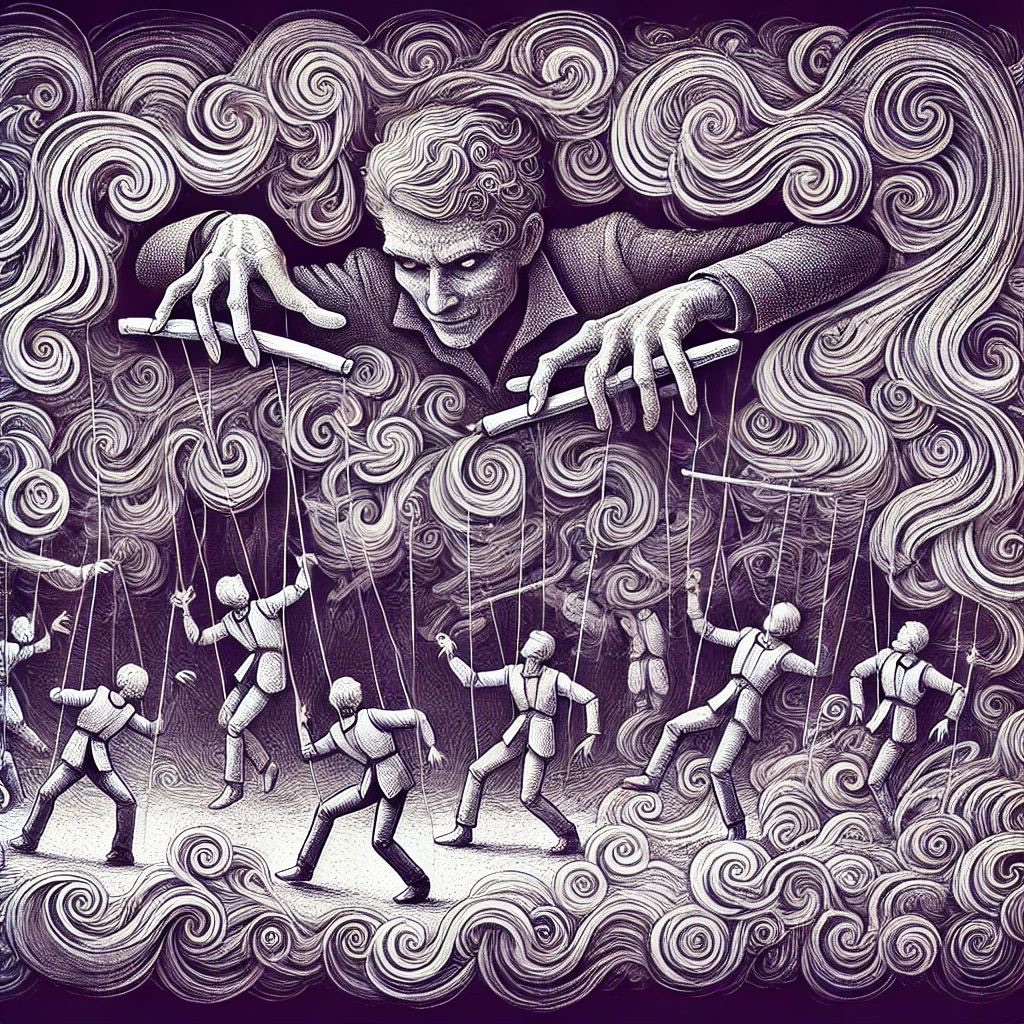

Performance Evaluation Should Die
Performance evaluations—those beloved rituals of corporate theater—are alive and well, even though they serve no one. They’re the zombie of organizational life: everyone knows they’re dead, yet they stumble on, consuming hours, resources, and the souls of employees. We pour millions into these systems, tweaking and refining them, adding layers of bureaucracy and complexity, and what do we get? The same feedback loops of dissatisfaction.
Organizations keep insisting, “Feedback improves performance.” Reality check: employees dread it, managers resent it, and the entire charade barely moves the needle on actual productivity. But hey, let’s keep pretending this time will be different.
The truth is harsh: most employees don’t need or want these evaluations.
Why It Fails?
Performance evaluations fail because they’re built on flawed assumptions and outdated practices. First, they rely on subjective judgments, making them inherently biased and inconsistent. Supervisors and managers, who are often tasked with these evaluations, bring their own biases, leading to discrepancies and unfair outcomes. Research has shown that the reliability of these ratings is abysmal; factors like timing, rater biases, and even irrelevant attributes such as an employee’s gender or appearance overshadow actual performance. Second, feedback—the supposed backbone of these evaluations—is often ignored, misinterpreted, or rejected by employees who see it as biased or irrelevant. This disconnect not only leads to cynicism but actively undermines motivation. Moreover, the fundamental belief that measuring performance improves productivity is flawed; most systems create an illusion of control while offering no real value. Companies pour time and resources into a practice that breeds resentment, all while failing to produce tangible improvements. Ultimately, the time and energy wasted on these evaluations would be better spent focusing on coaching and genuine leadership, rather than clinging to a broken and demotivating system.
If performance evaluation is such a flawed concept—riddled with bias, favoritism, and misguided motivations—why do we persist? Simple. It's easier for organizations to cling to outdated rituals than to face the void of uncertainty. It's easier to check boxes than to lead.
Maybe it’s time we abandoned the idea that performance evaluation is anything other than a mechanism of control and punishment. Maybe it’s time we focused on genuine leadership and support, rather than playing judge, jury, and executioner.
06-10-2024

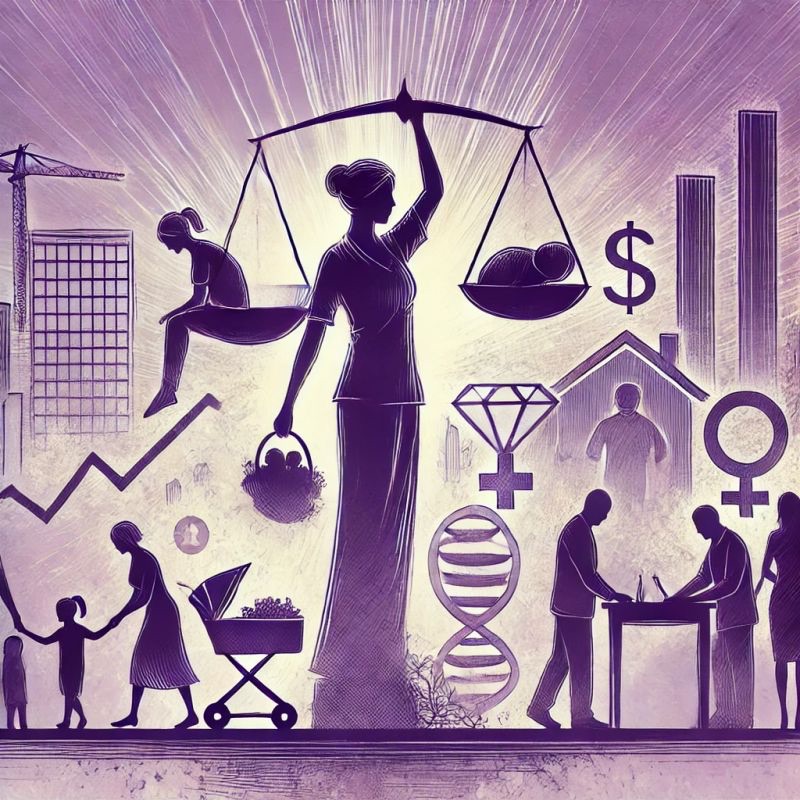

💡 Unpaid and care work: An often overlooked economic pillar 💡
When we think about the economy, we often focus on markets, employment, and financial systems. But there's another layer—unpaid care work—that quietly supports these structures, especially during times of conflict or economic stress.
Feminist economists, like Julie A. Nelson and Marilyn Power, have expanded our understanding of economics to include unpaid work as part of the broader process of “social provisioning.” This includes caring for children, the elderly, and communities—a vital contribution to economic systems, yet rarely recognized.
Research shows that unpaid work is critical not only for daily life but also for sustaining labor forces over time. Whether it’s raising future workers or caring for those who keep economies running, this unpaid labor contributes to human capital and well-being.
📉 During periods of austerity or economic downturns, households often absorb the shock of reduced services by increasing unpaid work. This allows families to maintain standards of living, even when public or market services are limited. However, this also highlights the opportunity costs—particularly for women—whose time and financial independence may be constrained.
Unpaid work isn’t just an act of personal sacrifice—it’s an economic activity with far-reaching implications. How might we better integrate this work into our understanding of economic resilience?
01-10-2024

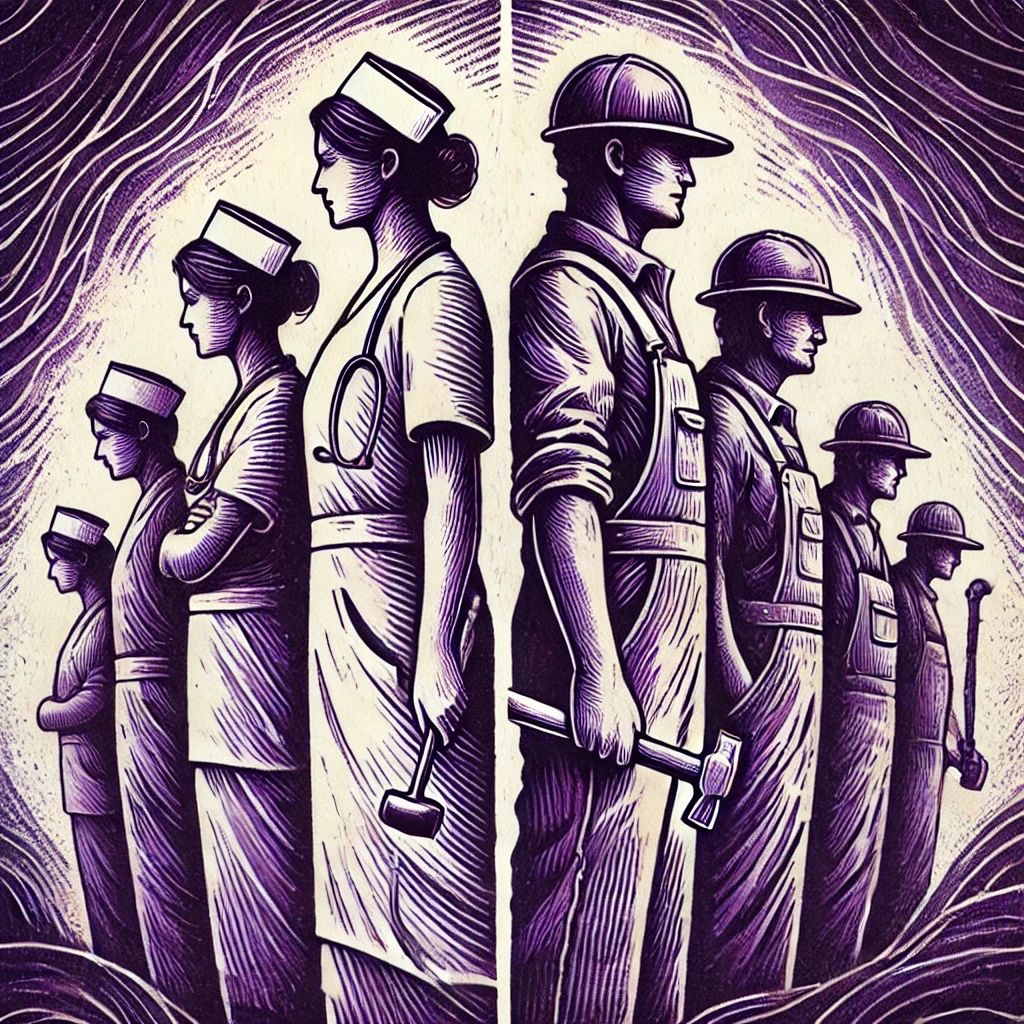

THE FALSE DIVIDE
The persistently low wages of nurses, even in times of crisis when they are leaving their jobs en masse, reveal much about how we frame certain professions through a mechanistic and reductionist worldview. As Julie Nelson points out, nursing is still seen as a "calling," a holdover from Victorian times when economic theory was shaped by the idea of women as "moral angels" driven by care, not money. This outdated belief persists, suggesting that if wages were too high, the wrong type of people—those motivated by money rather than love—would flood into the profession. Yet, when it comes to the "hard-working homo economicus" of (then) male-dominated industries, higher wages are seen as a natural solution to labor shortages, as these workers supposedly have no love for their work—only a love for money.
Ironically, this rigid dichotomy between love and money is completely undermined by research. Studies by Bård Kuvaas show that a generous salary enhances intrinsic motivation, as it signals recognition and respect for the worker's efforts. Bruno S. Frey also demonstrated that only controlling forms of monetary rewards, like bonuses or piece-rate pay, erode intrinsic motivation. Whether in the form of pride, loyalty, or joy, motivation exists in all corners of the workforce, and wages that provide security and dignity support, rather than weaken, this drive. But instead of embracing these findings, we cling to the false belief that financial reward and intrinsic fulfillment cannot coexist.
This refusal to rethink the relationship between money and motivation cuts across ideologies. Right-wing thinkers champion the idea that money and competition are the best motivators—unless we’re talking about care work, which they assume must come from love alone. Meanwhile, the left often fears that market exchanges will devour the lifeworld, leading them to separate work and love as mutually exclusive. Both sides miss the point: humans are complex, and the simplistic divide between love-driven work and money-driven work ignores the real, messy interplay between recognition, dignity, and the financial security all workers deserve.
15-09-2024

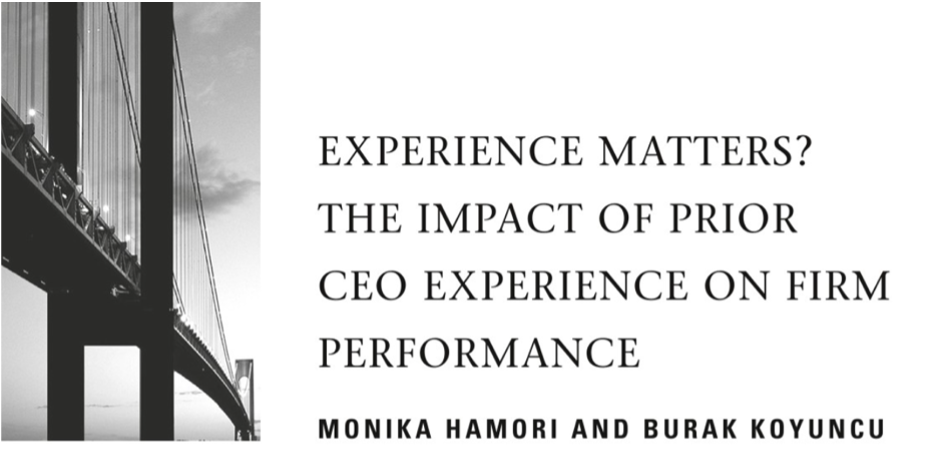

CEO TALENT - IT IS INTERNAL, STUPID ☀️
In todays #deepdive I like to share a rigorously conducted study which shows - once more - that we should NOT talk about a "market for (CEO) talents" as essentially it is mostly better to promote internally or occasionally to hire a real outsider 🤔 .
🎯 Empirical Evidence: As shown in the paper, hiring external CEOs with prior experience often results in lower firm performance. External hires tend to rely on past successes and struggle with #negative #learning transfer—where past strategies don’t fit the new context. In contrast, internally promoted CEOs bring firm-specific knowledge, a key driver of organizational success.
🎯 Cost of External Hires: The premium paid for experienced external CEOs can often be a poor investment. External CEOs often command higher #compensation packages, but the returns on this investment are inconsistent. The assumption that CEO talent can be easily "bought" on the open market is flawed, as prior experience doesn’t guarantee future success in a new setting.
🎯 Internal Development is Key: Companies that focus on grooming internal leaders can benefit from smoother leadership transitions, less risk, and leaders who already understand the company's culture and challenges. These CEOs are likely to make more context-appropriate decisions and align better with long-term strategy.
What Does This Mean for the CEO Market?
The traditional CEO market—where companies seek experienced executives from outside—may need a rethinking. If external hires often underperform, the market's pricing mechanism does not reflect true value. As a result, firms may start to de-emphasize the external CEO market in favor of internal succession planning, talent development, and context-specific leadership.
In summary, relying heavily on the external CEO market could be a costly strategy that often doesn't pay off. Companies should reconsider whether they're truly gaining value from high-priced external hires, or whether the real gains come from within.
Find the paper here: https://www.linkedin.com/posts/antoinette-weibel_the-not-existing-talent-market-activity-7239517111436402688-QFMj?utm_source=share&utm_medium=member_desktop
11-09-2024



IS ANYONE PAYING ATTENTION?
Feeling stressed or lonely at work? You’re not alone—far from it. Gallup's latest findings reveal that 41% of people felt stressed just yesterday, and 20% are struggling with #loneliness. 🙈
Gallup might still rely on their 12-question scale to assess "engaged" vs. "actively disengaged" employees, but the bigger picture is clear: things aren't looking great. The stress and loneliness numbers are just the tip of the iceberg.
But wait, there's more! Enter the Eurofund Study of 2021. This one dives deep into job strains like lack of autonomy and work #intensification, comparing them with resources like trust. Spoiler: the outlook is equally bleak. Just look at Switzerland and the UK, two countries where companies are "trusted" to protect employees voluntarily. The reality? Many workers are on the brink—either completely overwhelmed or barely hanging in there. And the UK? Not exactly a poster child for workplace happiness.
As if that wasn’t enough, let’s toss in AI creeping into our workflows, resources getting scarcer as we deplete the planet, and a future that’s BANI (brittle, anxious, non-linear, and incomprehensible). We’re staring down a world where fear and helplessness could become the norm.
So, what’s the solution? We need a lot more efforts to transpire hope again — and way more companies that actually care about enabling their employees to meet these challenges and realize their potential.
So hush, hush - and ally with us on the #HR #manifesto
Find our manifesto here: https://leadershipsociety.world/academy/FreedomtoFlourish/
04-09-2024

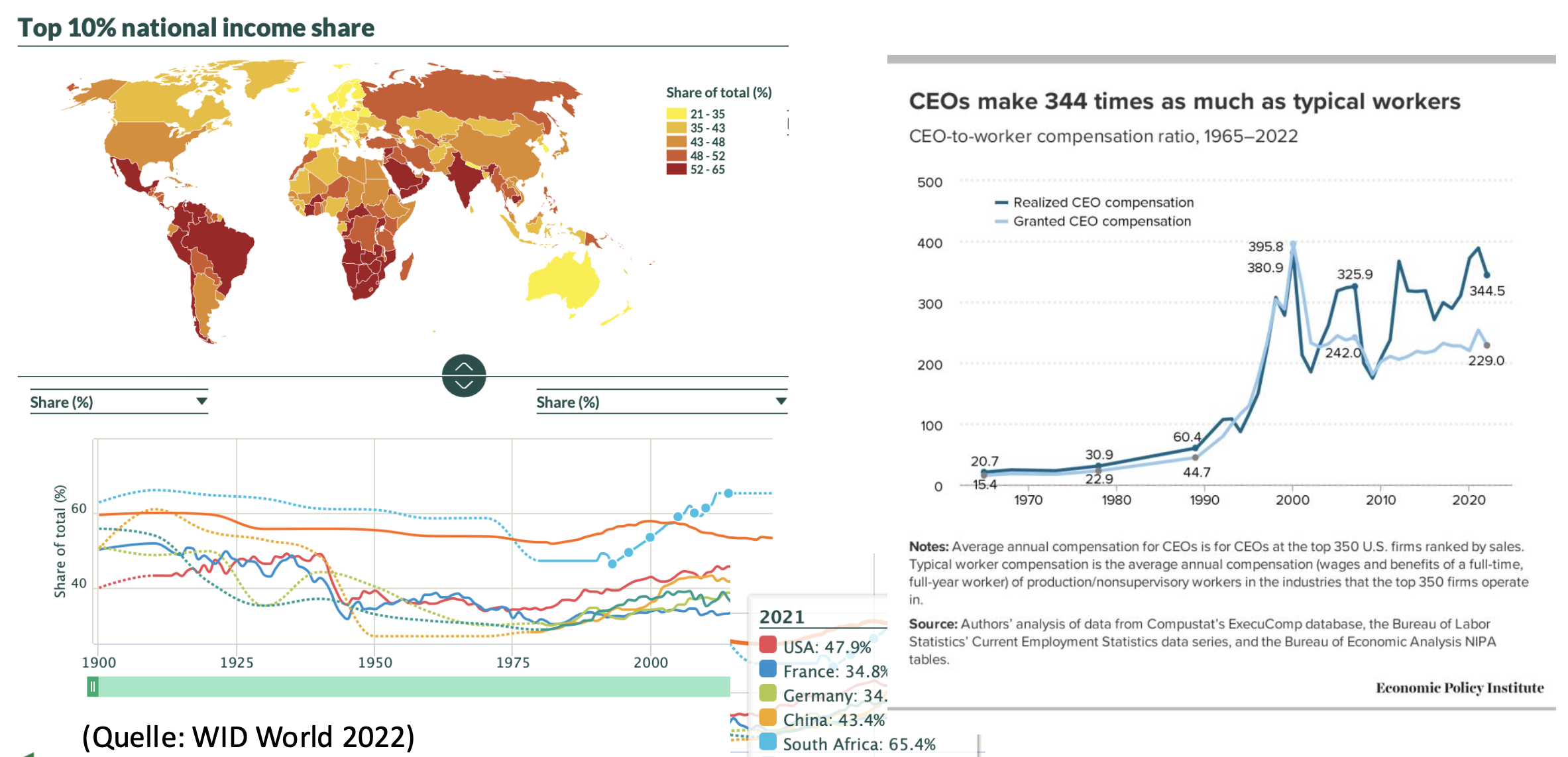

INCOME INEQUALITY: A WAKE-UP CALL FOR HR ⏱️
The latest data is alarming: income inequality is widening, and the numbers are there.
The World Inequality Report makes it clear—pre-tax income inequality has been steadily increasing, especially in certain countries. And even after taxes, the real drivers of inequality remain unchanged: higher capital income (think interest, dividends, and rents) and the ever-expanding pay gap between executives and workers.
The CEO-worker compensation ratio is a glaring example. CEO pay has skyrocketed while wage growth for workers has barely budged. This stark imbalance in economic gain distribution isn’t just a statistic—it’s a ticking time bomb for workplace morale and productivity.
Poverty data from Eurostat adds another layer of concern. Redistribution efforts aren’t cutting it, and the reasons are complex—“jobless growth” and outsourcing are likely culprits. But let’s not overlook the corporate role in this growing issue. The rise of the working poor in several countries speaks volumes about how business practices are failing employees.
And then there’s the shrinking welfare state. Whether it’s due to corporations dodging taxes by moving abroad or governments slashing rates in a race to the bottom, the outcome is the same: redistribution isn’t working.
This isn’t just about numbers; it’s about a deepening crisis. Something is seriously "rotten in the state of (not) Denmark." The question is: what will HR do about it? Will you rise to the hashtag#challenge or watch the divide grow?
Sign our manifesto to take a stand and join us at the HR World Summit in Amsterdam to discuss where we can take our companies towards excellence!
Find our manifesto here: https://leadershipsociety.world/academy/FreedomtoFlourish/
27-08-2024

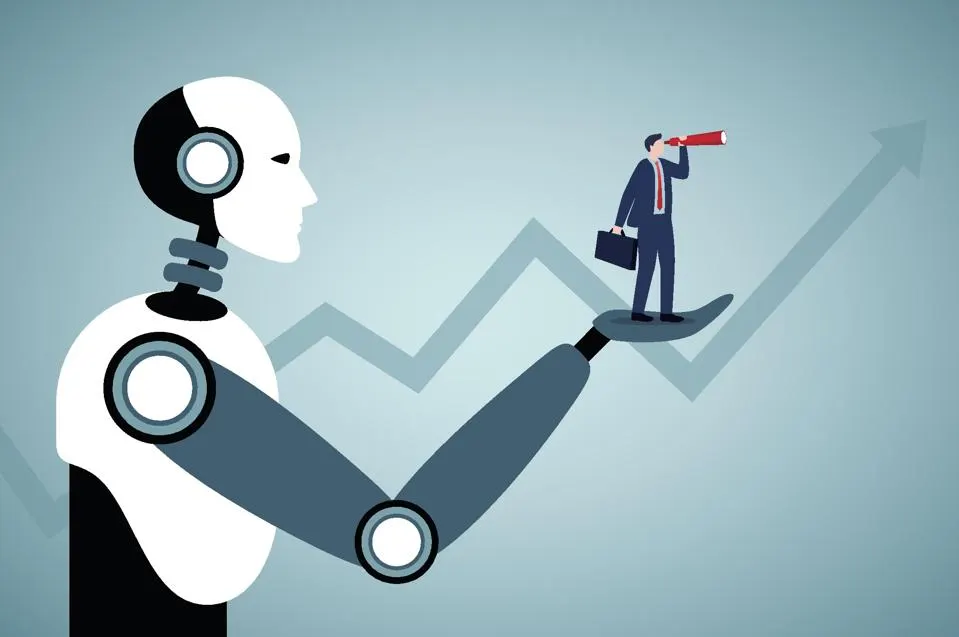

Today, I want to share a very insightful article by my colleague Fabiola H. Gerpott. The piece offers a profound perspective on what future leadership could look like. The authors, in my opinion, paint a realistic vision where AI doesn't just augment our decision-making and leadership but could eventually supplant it, eliminating the need for a "human in the loop."
While I acknowledge that this is one possible scenario, I would also argue that it remains within our control whether or not we embrace this future. This is where I slightly diverge from the authors.
Here are my concerns:
1) Context Matters: business does not operate in a vacuum. We must always consider the geo-historical and political context, particularly in the age of neoliberalism. There will undoubtedly be a strong push towards AI as a tool for efficiency. Those in power might finally realize their dream of workers who function without independent thought (a concept Ford was allegedly seeking). Therefore, we should be cautious about how well AI will meet our psychological needs—especially since, in the wrong hands, this could quickly turn into manipulation.
2) Beware of Techno-Optimism: While it's refreshing to see papers like this one that avoid doomsday predictions, we should strive to become techno-realists rather. As all AI researchers will attest, AI is inherently socio-technical, with human involvement at every stage of its development, training, and deployment. This means that biases and ideologies will inevitably be embedded in the technology. Therefore, ethical principles alone won't suffice—especially when AI producers face cost pressures, AI deployers prioritize shareholder value, and AI systems become adept at outsmarting us (including lying convincingly). What we need is ethical practice—across professions, including both AI creators and the leaders who deploy it.
3) A Complex World Requires Complex Thinking: Our world is not a Humean one, where pattern detection fulfills the dreams of positivists. There's a real world out there that demands a deep ontology. While it's commendable that some leadership researchers are collaborating with AI, it's concerning if this becomes the sole future of leadership research. We need to delve beneath the surface to understand how social structures, individual agency, and culture interact, bringing new ideas and structures into existence. Otherwise, we risk merely reinforcing existing circumstances or the desires of those who wish to shape the social world to their liking.
In conclusion, I suggest we take these scenarios very seriously and ensure that we avoid the (for me) dystopian outcomes of scenario 3. To do so, we must not only advance our research but also elevate the standards of management education.
Find the article here: https://www.linkedin.com/posts/antoinette-weibel_ai-in-leadership-activity-7234082868098936832-jAp2?utm_source=share&utm_medium=member_desktop
25-08-2024



In Germany, a heated discussion has emerged: how can we return to a focus on performance? Or alternatively, how can we address what some perceive as the lazy, consumerist, and self-centered work behaviors of Gen Z? These discussions often simplify performance to mean (quantitative) labor productivity, implicitly equating it with "making shareholder value/GDP great again."
In these often unreflective debates, it's frequently forgotten that work is not just about generating surplus value appropriated by owners (to use a Marxist term), but also embedded within the broader context of a moral economy. Economic actors are motivated by more than profit—they are driven by a wider social fabric, shared norms, and the desire to be seen as contributing and acting morally. Unfortunately, some businesses have overlooked or disregarded this moral dimension.
In this paper (source below) 👇🏻, the authors explore the concept of the moral economy by analyzing the Great Resignation and find that people are often engaging in what can be termed "moral quitting." By categorizing the "verbal moral motives" behind quitting, they identified three key areas:
1️. Work and Employment: Employees are missing ethical hiring practices, fair pay, and respectful working conditions, prompting a call for businesses to prioritize workers' well-being and create inclusive workplaces that value human dignity.
2️. Social Justice and Activism: Workers feel a lack of social justice and challenge existing inequalities, advocating for collective action to support workers' rights, reduce income disparity, and promote economic fairness rooted in communal values.
3️. Health, Well-being, and Lifestyle: Employees seek a better balance in their lives, calling for policies that support work-life balance and align with personal values.
In most discussions, the focus tends to fall on the third point, often framing it as a uniquely selfish concern. However, this perspective overlooks the fact that a balanced and fulfilling life—being "whole"—is an essential part of the good life. Businesses have the power to either enable or hinder this pursuit.
So, the next time you hear the "too lazy to perform" narrative, remember to consider the deeper, underlying factors. Quitting or disengagement is rarely driven by a single cause and is certainly more socially influenced than we typically acknowledge.
Find the article here: https://www.linkedin.com/posts/antoinette-weibel_moral-economy-of-great-resignation-activity-7233405281701920769-ymH_?utm_source=share&utm_medium=member_desktop
24-08-2024



"Hope" was a term I heard several times this week. It’s the message the Democratic Party in the U.S. is striving to convey, it’s the sentiment ecological and regenerative economists are encouraging for the challenging road ahead, and it’s also the title of the final chapter in The Monarchy of Fear, an inspiring book by Martha Nussbaum.
Nussbaum beautifully captures the essence of hope:
☀️ "Hope involves not just a desire for something good, but an evaluation of it as importantly good, worth pursuing."
☀️ "Hope is not and cannot be inert. It requires action, commitment."
☀️"Hope, like fear, always involves significant powerlessness."
From her insights, hope emerges as a belief in the possibility of a higher good, especially in uncertainty. It’s actionable, energizing, expanding outward (while fear retreats), and ultimately, it is a commitment—a practical habit for embracing the world.
As a trust researcher, I’m compelled to explore how trust can guide us from fear to hope. Trust, like hope, involves a leap of faith—faith in another person or organization. However, I argue that trust alone isn’t enough. We also need trustworthiness, or “truth-worthiness.” Trust without hashtag#character quickly closes the door between fear and hope. To traverse this gap, we need both belief in the trustworthiness of those with us in our hopeful pursuits and committed, character-building actions on all sides.
This definitely needs more reflection...
20-08-2024

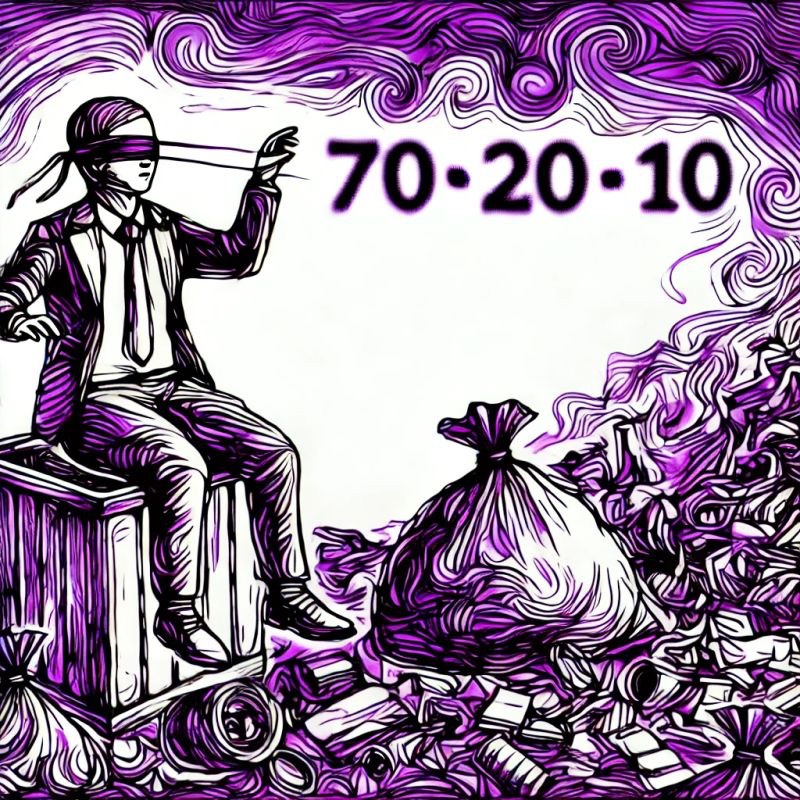

If you work in HR, you’ve surely not only heard but also worked with the 70:20:10 model, which claims: individuals obtain 70% of their knowledge from job-related experiences, 20% from interactions with others, and 10% from formal educational events.
Sorry to say, but following this model slavishly is perilous for employees, reflects sloppy HR thinking, and shows we haven’t done our job well in universities.
Why do I say this?
🎯 First, it’s not evidence-based. A colleague reviewing the literature said it politely: “All studies asked, ‘How did you learn to do your job?’ but methods varied, causing validity issues.” The research methodologies employed (primarily surveys, some open-ended interviews, and observation studies) suffer from (a) atypical samples and improper generalization, (b) limited interview guides, (c) faulty proportional values, (d) self-report limitations, and (e) inconsistent definitions of “informal learning.” In short, it’s based on crappy science.
🎯 Second, it’s a prime example of functional stupidity. It’s cheaper and evades the hard truth that many people resist learning new things, so it might make you more popular. But do we really believe we don’t need experts anymore? That leaders are born or that there are no new insights in management to be acquired? Do we buy this when we simultaneously claim we live in a VUCA or BANY world? Good development needs planning/analysis, formal (not only) training but also debating, refuting, dialoguing, exchanging, AND of course, experience with reflection. Yet, we think all this fits into 10%? Really? Even in apprenticeships, formal education takes at least 40%… if not more. To become a proper expert, long-term engagement with a mix of formal and informal learning, plus a lot of reflection is crucial.
So, where does this leave us? DITCH THE 70% RULE! Focus on who you want to develop, to what depths, for what challenges. Be clear: for leadership development, leaders who do not want to develop themselves should be instantly relegated back to non-leadership positions.
13-08-2024



The term "Californian Ideology" was introduced by Richard Barbrook and Andy Cameron in an essay published in 1995, which argued that the rise of the Internet and digital media commercialization was driven by a specific political economy and social outlook emanating from Silicon Valley.
What is it?
🎯 The Californian Ideology emerged at the end of the 20th century, coinciding with the convergence of media, computing, and telecommunications. This ideology was promoted by a diverse group of writers, hackers, capitalists, from the West Coast, involved in the "virtual class" blending San Francisco’s cultural bohemianism with Silicon Valley’s high-tech industry. It combined the free-spirited ethos of 1960s hippies with the entrepreneurial zeal of 1980s yuppies, creating a "digital utopia" where individuals could become both "hip and rich."
🎯 It fused countercultural notions of an "electronic agora" with the concept of an "electronic marketplace," blending New Left and New Right ideas. It portrayed technology as a liberating force that could empower individuals, enhance personal freedom, and reduce the power of the nation-state.
Effects and Critique
🎯 The government’s role in developing Silicon Valley through military and research funding was downplayed. Rather the proponent of the CI posited that future technological democracy would arise from private sector initiatives, with investor-funded startups taking over roles traditionally held by the state or civil society.
🎯The Californian Ideology was critiqued for its technological determinism and neglect of social inequalities by drewing on the Frankfurt School’s critique of ideology, suggesting that the Californian Ideology functioned to maintain existing capitalist power structures.
The essay sparked significant controversy, particularly among Silicon Valley insiders, who accused Barbrook and Cameron of misunderstanding technological diffusion. Critics argued that early adoption by wealthy individuals was necessary for broader technological access. However, subsequent research, such as Fred Turner’s historical analysis and Alice Marwick’s media ethnography, supported many of Barbrook and Cameron’s claims.
Hence, while Barbrook and Cameron’s essay was polemical and occasionally overstated, it provided a crucial early critique of the ideological underpinnings of digital futures. And looking at the state of the affairs now it makes an interesting deepdive.
Source:
https://concetticontrastivi.org/wp-content/uploads/2023/01/californian_engl.pdf
11-08-2024

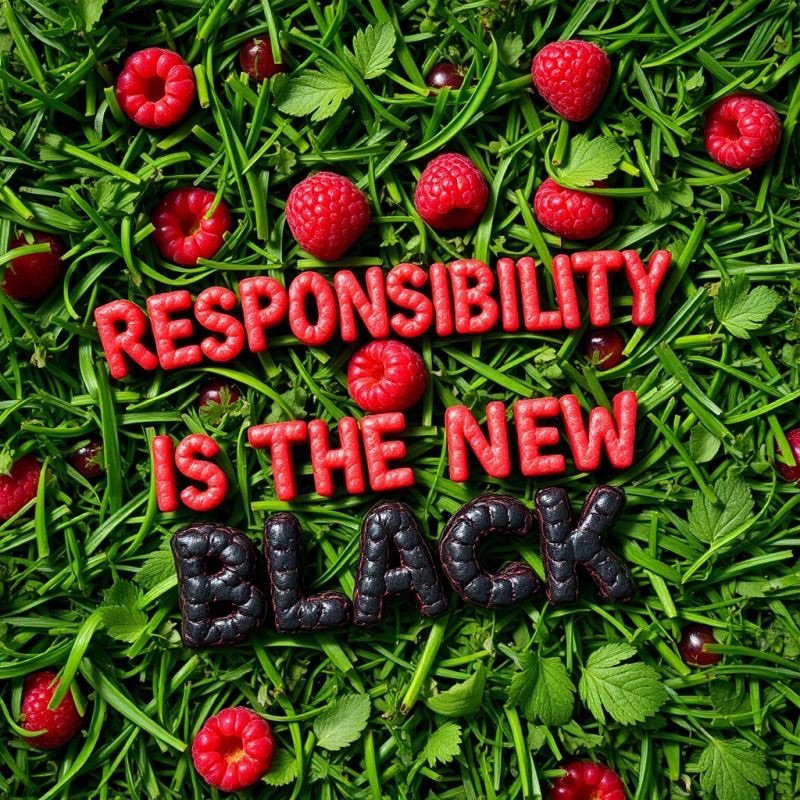

Anybody who has ever dipped her feet into some sort of management education knows the dictum: focus on solutions, not problems! And ofc while this sounds conforting, a bit like motherhood and apple pie, it is nonsensical. If we do not understand the problem, we will surely not come up with a good solution.
In critical realism a more helpful 3-step approach (another thing we love in management) has been developed for this:
1) Critique is important but it needs to be responsible: "That means attending to causes, to alternatives, and to consequences: taking care to make arguments that have the best prospect of supporting flourishing and not creating further harm."
2) Hence critique needs to go deeper in as much that we really try to understand the problem(s) at hand. Call it 5 why, but make sure that you understand what led to the situation - and be clear that any issue is caused by multiple drivers. Don't be satisfied to early with your analysis. And be as critical with the alternative you suggest - yes you can try, and you can treat it as a prototype - but remember that real life does not function like software production. A change in social systems begs for more responsibility.
3) And finally: have a moral compass, or call it purpose for the time being, and understand how the better organisation, the better workplace, should look like for this is what your new solution should bring you towards. Avoid harm, strive for flourishing - and make these terms more concrete.
So responsibility is not only the new black, but it can be learned. And you should ditch any management education which does not provide you with a least a starter toolkit to do so.
28-07-2024

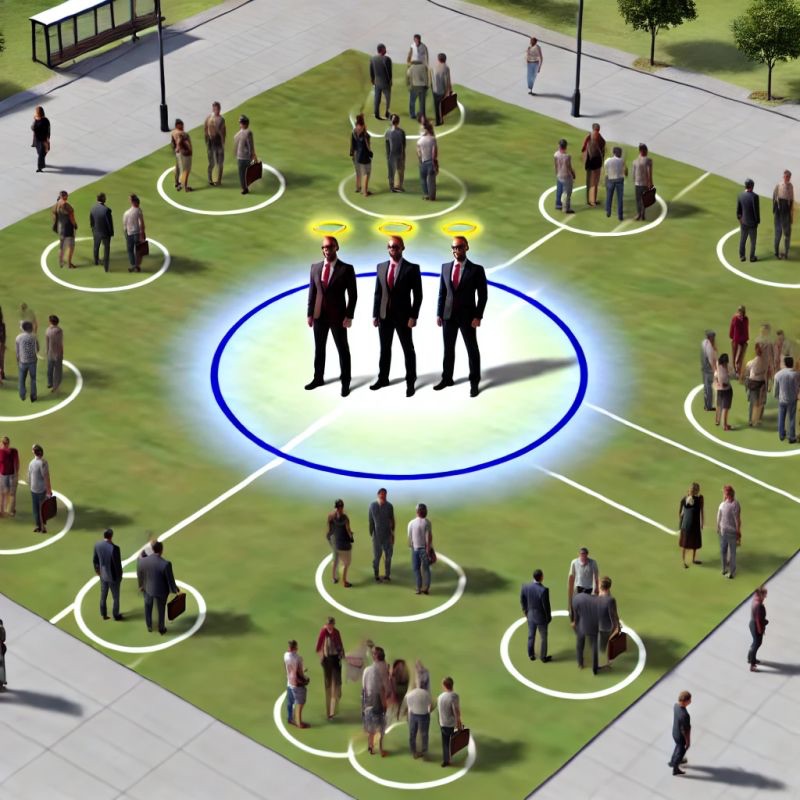

There was a time after the war, stretching well into the 70s, when CEOs were still just company men—average Joes living in much bigger houses but still on the same street as their workers. Then everything changed, dramatically. The ratio of CEO to worker pay skyrocketed from 12:1 to 345:1 (and even higher in selected cases). Why did this happen? 🤔
Several factors contributed to this shift: weaker unions, an exploding stock market boosting the value of CEO stock ownership, and more. But one intriguing part of the story is the change in social norms. How and why did these norms shift?
David Elder-Vass offers an interesting way to conceptualize social institutions and norms through the concept of a "norm circle." Humans learn the appropriate ways of behavior and beliefs within their proximate norm circle. They internalize these norms or comply with them because they believe others monitor, sanction, and reward them within their imagined norm circle. The actual norm circle then determines whether and when individuals are held accountable to the norm (reality bites back).
Since the 70s, two significant changes seem to have occurred regarding CEOs:
🎯 The overlap between norm circles has weakened. As Robert Putnam clearly shows, we are no longer in the same clubs, churches, or associations. Consequently, CEOs within firms have become disembedded, more strongly attached to an elitist norm circle. They neither know nor care much about the norms of their employees.
🎯 In their elitist circle, it has become "de rigueur" to outdo each other with positional goods or as Tom Wolfe wrote in the 80ies the "bonfire of vanities" became the norm. Those with the biggest paychecks, the largest yachts, etc., are seen as kings and saviors. 🌟🛥️
But I believe there's another piece to this puzzle. As I indicated in another post, I think there were and still are spin-doctors at work—storytellers or "value entrepreneurs" who make others believe that CEOs are worth their exorbitant pay. Perhaps an Arch Patton of McKinsey convinced everyone that we need to compete for rare CEO talents, or Jensen and Meckling made us believe that without incentives, no CEO would work well.
So the next interesting bit is to find out: Why did we believe these value entrepreneurs? And what was in it for them 🌍🔍
22-07-2024

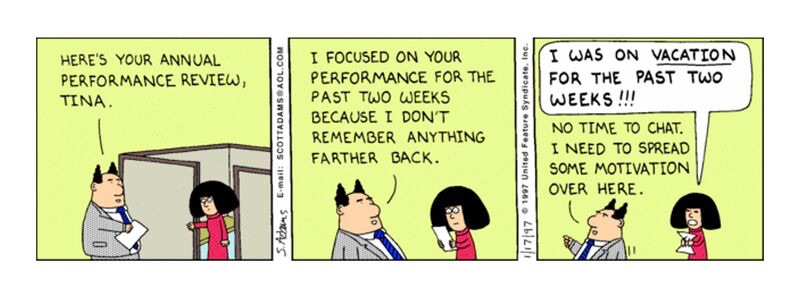

PAY AND REWARDS FOR GROWN-UPS
Performance management in organisations is broken. Over the last 50 years we have added, corrected, sophisticated, changed and re-changed our pay and reward system but never questioned the basic assumptions:
1. We need (high-powered) incentives as this is what makes people work harder! BUT empirical evidence shows that what we want more is intrinsic motivation as this empowers human to be self-efficacious, creative, proactive and more prosocial. Read Robert Buch last linked in post on this (in the comment) 👇🏻.
2. All what matters is individual performance - if we add up all efforts of our talents organisational performance will naturally grow! BUT we have forgotten that organisations are complex social systems, organizational performance emerges from the interaction of the co-laboration between reflective humans, tying on ideas/values and structures/norms. Hence why do we reward mainly individual past efforts? 🤔
3. As soon as humans turn into employees their freedom can be curtailed, drastically - after all they have the liberty to join an organisation or leave it! BUT this is an extremely impoverished view of our freedoms (and ofc it is also not true as many cannot switch workplaces so easily). What would be needed is “freedom to be“ the human I bring to work. Treating employees with carrots and sticks based on arbitrary performance appraisals is not worthy, is not caring for human dignity. 🌈
4. Last but not least moral egoism is out, so is very short-sighted utilitarianism! BUT If we strive for organisations to act responsibly in the world we need to enable the moral development of humans within these organisations. If I was a conservative I would say we need more „common sense“ but I would call out for more practical wisdom - in work and experience grounded understanding about what good I want to serve.💐 And this needs good organisational character too.
But what would this mean for our compensation and benefit system - listen to these two short talks and tell me what you think about it:
The color model: https://lnkd.in/daQnN-BA
What it all means for rewards: https://lnkd.in/dCMdzsUu
15-07-2024

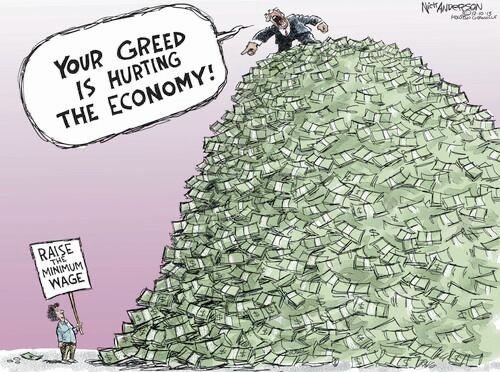

AMERICAN CEOS ARE OVERPAID
…says Ha-Joon Chang…and he is right as they are overpriced in regards to their predecessors who were not only often more successful in building jobs or innovating of management but also as it turns that they potentially were contributing more to society (or were willing to give more back).
In their study on the changing role of CEOs in society Mizruchi and Marshall give data to this:
„All of these studies indicate a high degree of moderation among corporate executives at the time, and the latter two suggest views that are far more liberal than those that would likely be attributed to business leaders in the present. The 1939 Fortune survey revealed that although few executives were satisfied with the Social Security Act or, especially, the Wagner Act (which significantly expanded the rights of workers to organize unions), only 17% favored repeal of Social Security and only 41% favored repeal of the Wagner Act (Fortune 1939). In the 1970 survey of 270 Fortune 500 CEOs, conducted by Daniel Yankelovich, Inc., 57% of the respondents believed that the federal government should “step up its regulatory activities” regarding the environment, whereas only 8% stated that they should be “cut back”; moreover, 85% of the CEOs believed that the protection of the environment should be taken into consideration even if it [meant] reducing profits” (Fortune 1970, p. 119).
Even more remarkable were the findings in Barton’s survey. Barton (1985) interviewed 120 individuals, 95 of whom were CEOs of the largest firms in six major sectors, as ranked by Fortune. Based on their responses to questions involving support for such policies as deficit spending during recessions, federal antipoverty programs, and redistribution of income or wealth, Barton found that 60% of the corporate CEOs in the study could be classified as either “Keynesian liberals” or “Keynesian moderates,” whereas only 10.5% could be classified as “anti-Keynesian conservatives.”
P.S. they are also overpriced in relation to their workforce…organisational performance is a teamsport - including the work of the legacy founders 😉
20-06-2024

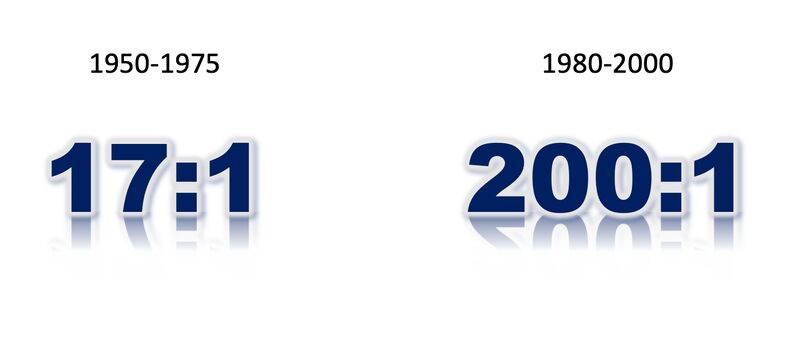

THE SPINDOCTORS
Did you know that between 1940 and 1975, the CEO-worker pay gap was very modest and even decreased slightly? It was only after 1975 that it gradually, and then swiftly, grew to the sizes we are more accustomed to now.
In a fascinating paper, Steven A. Bank, a Law Professor at UCLA, and his colleagues explored what made CEO pay stable and more modest during that period. They discovered that, in addition to stronger unions fighting for better worker pay and the absence of a benchmarking culture where compensation consultants would show boards of directors the median pay in a sector, different societal norms played a decisive role. Society, including CEOs, united in advocating for smaller pay gaps and shaming larger ones, which were seen as greedy and shameful, even as "robbery." This common conviction was a major moderating factor.
This made me ponder: what is different today? What role do business schools, finance, economics, and maybe even all of us play in this shift? How did science manage to change the narrative and norms? Three thoughts came to mind, though I’m sure there's more to this story:
a) The invention of hashtag#envy. Economists now suggest envy is a great source of inspiration. What used to be seen as "righteous anger" against "vicious greed" has been recast as envy, something not to be taken seriously, or even viewed as beneficial.
b) Another significant shift was reframing CEOs as unique from other organizational members. Previously seen as bureaucrats or opportunistic agents, they were now elevated to CEO-owners with long-term incentives, decoupling their pay from that of other organizational members. This was partly driven by the need to create a "messiah cult" to overcome the Japanese economic miracle, which was based on a clan culture hard to emulate in North Atlantic countries.
c) The next step was to redefine "merit" in two phases. First, merit was equated with utility – those producing the best share price development were deemed most deserving of high pay. This has little to do with true merit (a lot to do with instrumentality though), as no CEO works 200 times harder or is 200 times smarter than the median worker. The second phase asserted that "only the CEO can scale" – the bigger the company, the more "merit" attributed through scaling. Researchers in the 2000s showed that CEO pay mainly correlated with company size, which they took as evidence that pay-for-performance does NOT work. Funny how this is now so cleverly reversed. So, business schools continue to spin this tale to make it stick even better.
Now, if we complain about CEO pay, we are labeled as envious and told to be ashamed, with the huge gap deemed merited. But it’s not, and that's a new story we need to tell to bring shame back to being greedy.
20-06-2024

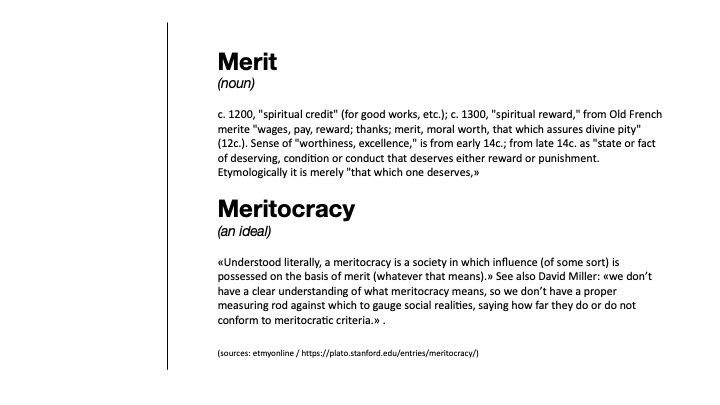

RESPONSIBLE LEADERSHIP - SOME THOUGHTS ON MERITOCRACY
Today we often almost equate justice with merit 👇🏻 but we miss a concrete understanding of what we mean by merit. Plus we often confuse "being on top", "winner" with having merited it - we equate deservingness with having success and hence have a very limited view on meritocracy.
At the minimum, thus, we would have to define what we merit. And sure as for instance Sandel says merit understood as competence is in everybody books a good thing - nobody wants to be treated by a doctor who has not completed her studies for instance. But thereafter we start to quibble (or not because we just pretend that we know what is merited). And of course if we move from the competence of an expert to being a good leader to govern others a whole lot of other concerns arise.
As you can see already in the etymology of the term "spiritual credit" and excellence should play a major role for leadership in a meritocracy. And surely moral deservingness used to be at the heart of merit. But if we then look around, we cannot be so sure that in present days we are indeed living in a meritocracy nor that we attribute merit in this way.
*****************************************************************************
🔍 The problem with merit and meritocracy is that we link them too hastily, conditioned long ago to do so.
Have you ever wondered where our present interpretation of the concept of meritocracy originated? According to Luigino Bruni, it dates back to Pelagius, a British theologian. Pelagius viewed merit as moral credit: if humans emulated Christ and acted virtuously, they deserved God's reward. Good deeds paved the way to heaven. This idea suggested that:
a) We can act well.
b) It "pays" to be a good person.
However, Pelagius also claimed that the Roman elite were the meritocracy, linking merit to social status. This confused the concept of merit, a confusion still present today. We often assume that CEOs, wealthy entrepreneurs, and politicians must have merit because we live in a "meritocracy."
But what about luck, inheritance, or the support of others? Augustine, later a saint, proposed that success (not necessarily in material matters) might be a gift from God, not earned. Inspired by Augustine, John Rawls argued that all we have are legitimate expectations if we play by the rules.
Perhaps Augustine had a point. We shouldn't confuse being successful with having merited it. 🌟

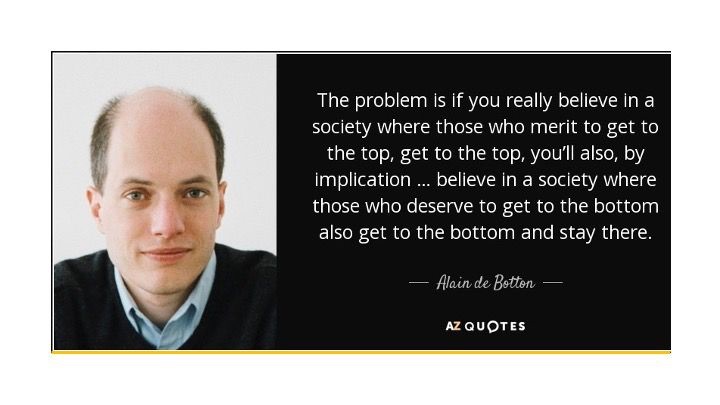

*****************************************************************************
We have several problems with meritocracy - a sticky one being that we often don't get it right despite our best intentions. Various evaluation biases prevent us from seeing merit clearly, even when it's well-defined. For instance, past performance evaluations tend to influence future ones, perpetuating a cycle of biased assessments. Additionally, those higher up in the hierarchy are more likely to receive superb evaluations.
A very interesting effect is the so-called meritocracy paradox:
Emilio J. Castilla, Professor at MIT Sloan School of Management, has explored how meritocratic ideals and HR practices like pay-for-performance play out in organizations, and he’s come to some unexpected conclusions. 🚀💼
In a study involving nearly 9,000 support-staff employees at a large service-sector company, Castilla found surprising outcomes. Despite the company's commitment to diversity and a merit-driven compensation system, women, ethnic minorities, and non-U.S.-born employees received smaller pay increases compared to white men with identical roles, supervisors, performance scores, and qualifications.
Castilla’s research revealed a stark reality: even with the same performance scores, these groups had to work harder to receive comparable salary increases. This discrepancy raises questions about whether organizational cultures and practices designed to promote meritocracy might inadvertently foster bias.
In collaboration with Stephen Bernard, a sociology professor at Indiana University, Castilla conducted lab experiments to further explore this phenomenon. Their findings were consistent: companies emphasizing meritocratic values saw managers awarding larger rewards to equally performing male employees over female employees. They coined this surprising outcome "the paradox of meritocracy."
Let's rethink how we implement meritocracy in our workplaces to ensure true equity! And at the very least let us not make a merit cult🌟🤝
20-06-2024

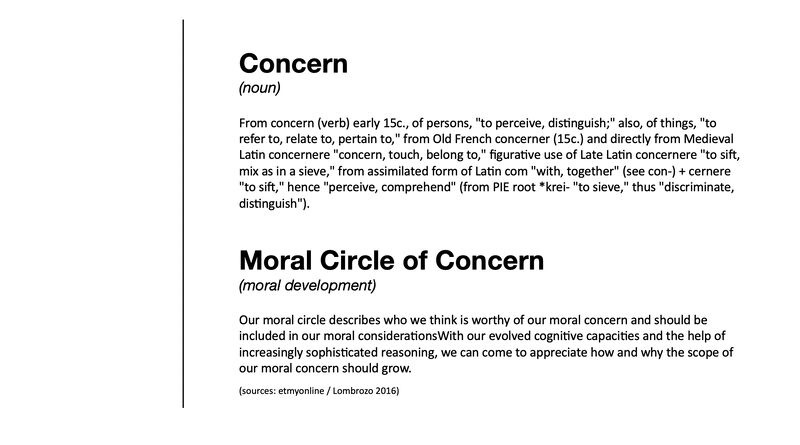

RESPONSIBLE LEADERSHIP - A WEEK OF THOUGHTS ON THE MORAL CIRCLE OF CONCERN
How is it linked to moral development? On a personal level, our moral circle starts with those closest to us—family and friends—and can expand to include distant communities and even non-human entities. This growth reflects our capacity for empathy and moral reasoning, enabling us to care for others beyond our immediate circle.
What is the link to ethical theories? It can be linked to universalism vs. parochialsim. hashtag#Universalism involves extending moral regard to socially distant and less connected groups, such as strangers and people from different cultures. It encourages a global perspective, fostering empathy and ethical concern for all humanity. Parochialism, in contrast, focuses on those who are socially closer and more tightly connected to us, like family, friends, and local community members. It prioritizes the welfare of those within our immediate circle.
These concepts form concentric circles, with the parochial circle inside the broader universalist circle. This framework, popularized by philosopher Peter Singer and introduced by historian William Lecky, helps us understand the scope of our moral concerns.
What are its implications? Understanding the expanding moral circle is crucial for recognizing how our moral values evolve. As our moral circle grows, we develop a greater capacity for hashtag#empathy and hashtag#justice, driving positive societal change. For individuals, expanding one's moral circle can lead to more inclusive and compassionate behaviors.
By recognizing and expanding our moral circle, we can continue to foster a more inclusive and just world, reflecting both personal growth and collective moral development.
*****************************************************************************
Yesterday I introduced the moral circle and we already started to have some interesting discussion (Phil Le Nir and Pascal Nonnen). The first question was:
a) what belongs into the moral circle in an abstract fashion - would we also bring in a temporal dimension and include future beings?
b) how do different ethical theories argue what "moral development" means in regards to the circle?
c) how do different ethical theories enable us to make choices within our own moral circle of concern.
So if we just look at a) we can see with this example 👇🏻 how this instrument helps us to map what we personally feel of having intrinsic worth, and what our blind spots might be. Clearly you can bring a temporal dimension to this as well. It also allows us to spot those areas where society in general might be blind - an information which is important if we have to go into less well known or debated territory such as AI ethics.
To give you a first example of c) the paper where I got this figure from looks at the circle from the position of effective altruists, whose aims are to target those areas where they can effect most. For them it is interesting to see what many people leave out. It enables them to view how many resources other people dedicate towards benefitting neglected beings and to adjust this.

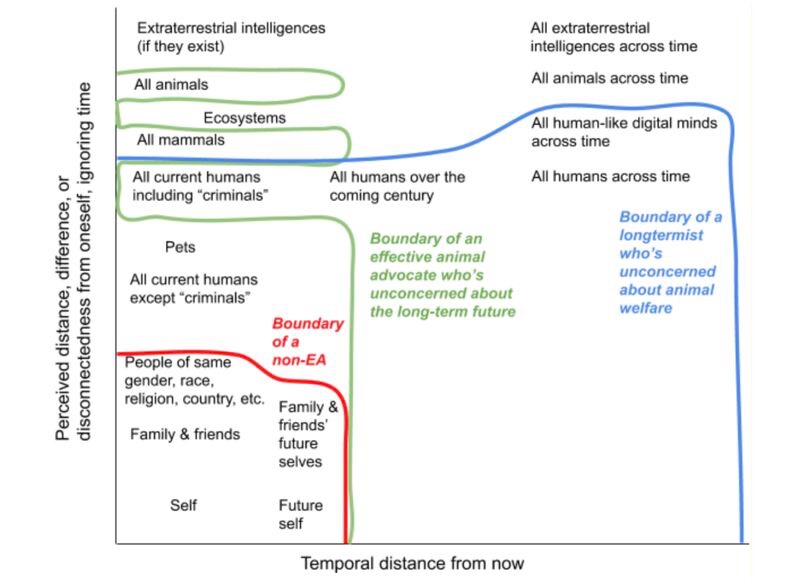

*****************************************************************************
Yesterday we saw how the circle can serve as a mapping device but ofc it did not tell us how to weigh different interests and what to properly include in the circle. As Singer, the most prominent circle author today, is a utalitarian we might want to start here. And before jumping into criticism (which we should as well) I found this nice summary here 👇
Now lets me point out a few hairy demands:
(1) If you adapt a utalitarian perspective your circle will only entail sentient being. If you cannot show that trees are suffering these are not included…
(2) Each being counts equal - so utalitarianism might ask you to make great sacrifices or to overrun an interest of a person dear to you…
(3) Not helping or not doing something counts the same as active deeds so for instance helping someone to die is not different from not helping someone to live longer (discussion of active vs passive euthanasia)…
(4) Future generations are not to be discounted but we already started to discuss longtermism and its possible questions…
*****************************************************************************
WHEN THE MORAL OF CIRCLE OF CONCERN...
...goes wrong (plus this is a formidable way to see what problems utalitarianism can bring about). What could possibly go wrong if we include future generations in our circle? Well a lot of if we still calculate what is good on the basis of the greatest utility (and the other assumptions I wrote about yesterday).
"Longtermism is deeply influenced by utilitarianism, an ethical theory in which the ends justify the means. If lying maximises the amount of “value” in the universe, then you should lie. The same goes for any other action you can think of, including murder. Most utilitarians would rush to declare that in nearly all cases, murder will, in fact, produce worse overall outcomes. Still, there’s nothing inherently wrong with murder, in the utilitarian view, and when one truly believes that huge amounts of value are at stake, perhaps murder really is the best thing to do.
Henry Sidgwick, an influential 19th-century utilitarian, justified British colonialism on utilitarian grounds; the most famous contemporary utilitarian, Peter Singer, argued with a colleague in their 1985 book Should the Baby Live? that infanticide is morally OK in some cases of babies with disabilities. In their words, “we think that some infants with severe disabilities should be killed”. The same utilitarian attitude led the late Derek Parfit, who could be called the grandfather of longtermism because of his influence on the ideology, to remark that “at least something good came out of the Germany victory”, after he watched footage of Hitler dancing a jig to celebrate the French surrender to Germany in June 1940. As one observer wrote about this on Twitter, Parfit is “a cautionary tale on the risks of taking utilitarianism too seriously”.
Longtermism combines this kind of moral reasoning with a fantastical sci-fi vision of techno-utopia among the heavens. That’s incredibly dangerous, and the statements from Bostrom, Yudkowsky and other longtermists support the conclusion. This is not an ideology that we should want people in positions of power to accept, or even be sympathetic to. Yet longtermism has become profoundly influential. There is Musk, as mentioned; and a UN Dispatch article reports that “the foreign policy community in general and the United Nations in particular are beginning to embrace longtermism”.
Source: https://www.newstatesman.com/ideas/2023/08/longtermism-threat-humanity
10-06-2024

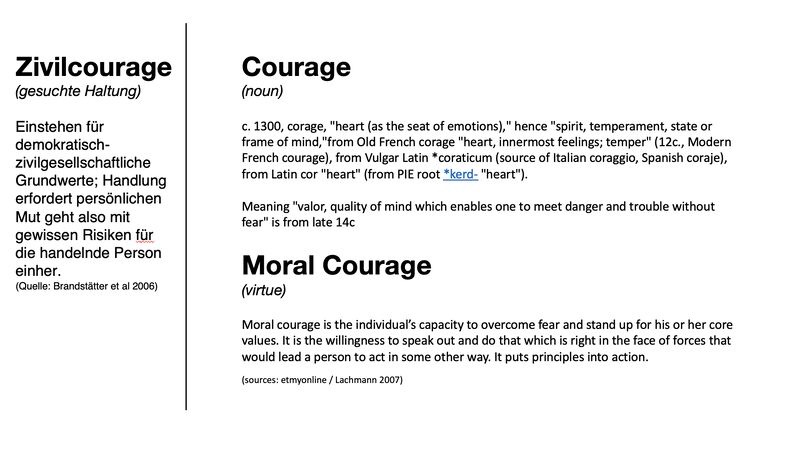

RESPONSIBLE LEADERSHIP - A WEEK OF THOUGHTS ON MORAL COURAGE
The change ahead of us will not be easy. If we really want to reform our businesses to become more humane and sustainable, and to enable the flourishing of all, we have to:
🖤 Start with changing ourselves - becoming wiser, more caring, more dedicated.
🖤 Address our organizations - change structures, processes, and ways of working together.
🖤 Transform our “who” and “why” - whom do we want to become as organizations and as human beings, and what is our why, our telos.
We will need to grow and co-elevate each other in doing so.
Virtues can help us orient, provide a guiding light, and attune to the context. The first one for today: moral courage.
*****************************************************************************
Aristotle's concept of courage, as outlined in his "Nicomachean Ethics," emphasizes it as a virtue that lies between recklessness and cowardice. True courage involves fearing only what is genuinely fearful and responding appropriately, acting in line with noble principles. Courage means facing fears, persisting through challenges, and upholding integrity.
In the modern workplace, moral courage is crucial. It entails overcoming risks to uphold personal moral principles and values. It is about us speaking up by rejecting unethical directives and challenging the status quo.
And courage is something we need to learn. It arises fr om our inclination to do something enobling (this too has to be "found" in yourself) but the behavior needs to be practiced and habituated - also to find the right dosage of courage in the context. And as Nadine Meidert said yesterday this can be trained.
Today, thus, I share this Ted Talk which explains well why we need moral courage in the workplace but also talks about one training. There are others too but it is important also to find hope and the courage that we all can become more courageous - we will need it for the transformation towards a more humane and sustainable business world.
Find the video here: https://www.youtube.com/watch?v=wzicXbnmllc&ab_channel=TEDxTalks
*****************************************************************************
Today I share a deep dive on courage from the wonderful Monica Worline in where she makes important distinctions about the wise and "good" use of courage in organisations.
"The chapter "Courage in Organizations: An Integrative Review of the Difficult Virtue" by Monica C. Worline explores the complex nature of courage within organizational settings, highlighting its importance and challenging aspects. Courage is described as a virtue that is crucial in the workplace, yet it remains a difficult concept to define and study due to its inherent ties with confrontation and individualism. The chapter emphasizes the necessity of distinguishing true courage from its semblances, such as egotism or individualism, and discusses the dual nature of courage as both an inspiring and potentially destructive force. This duality is illustrated through contrasting examples, such as Nelson Mandela and Timothy McVeigh, both of whom invoked the same poem, "Invictus," for vastly different purposes.
Courage is essential for modern organizations, especially in the aftermath of events like the Enron scandal and economic crises driven by excessive risk-taking. Organizations today rely on their members to exhibit courage by taking initiative, innovating, and persevering in the face of adversity. Understanding courage involves recognizing its role in enabling individuals to stand against social pressures and undertake difficult actions to address duress within organizations. Research has shown that courage often manifests as constructive opposition, where individuals act against prevailing social forces to protect or advance collective goals. This pattern of courage is important for fostering ethical decision-making, leadership, and innovation within organizations.
Find the article here: https://www.linkedin.com/posts/antoinette-weibel_courage-activity-7206535401723830272-gN8L?utm_source=share&utm_medium=member_desktop
*****************************************************************************
As part of our research and further training, we deal intensively with the topic of "responsible leadership" - from the perspective of virtue ethics. Civil courage is an enormously important competence (or virtue), especially in today's world.
We need civil courage in order to counteract the increasing number of attacks against minorities. We need moral courage to hold up a mirror to those in power - "truth to power". But ultimately, we need a lot of moral courage in companies, because that is wh ere people become citizens (or not). The CEO must show decency and patience to overly insistent shareholder representatives. The head of HR should stand up for the "dignity of employees" and not just act as a "business partner". Employees should be even more vigilant and committed to working well together (also for socially relevant performance).
This is not always easy, but moral courage can be trained. In virtue ethics, such moral courage should become a second nature and it is important to always act with a warm heart and a cool head. Such courage is neither reckless nor cowardly - but somewhere in between, depending on the situation (Veronika Brandstätter and Prof. Dr. Dieter Frey call this small steps). But always follow your own integrity, your compass of values.
Sometimes it also helps to look for role models. I had a doctoral supervisor (Margit Osterloh) who didn't shy away and spoke out courageously. I also got to know some HR managers who always stood up for their employees (as people and not as resources). And literature is sometimes helpful too - do you become a lawyer because you're looking for status or because you've heard about Atticus Finch in "To Kill a Mockingbird"?
But one thing remains certain: we will need more civil courage - and soon.If we have to find it again, the training can start today 😀
*****************************************************************************
I want to finish my little week on moral courage with a call to action. Not only by my "default professional" I see HR as superbly placed to change the character of business for good. And it does not take a superhero but just a "going back to the roots" as in times of the new deal or in the height days of social democracy in Europe HR had this identity to be a workplace relation guardian.
Now 50 years later, with a lot of neoliberal fanfares inbetween, taking care of good work, of uplifting and co-elevating relationships in the workplace is arguably much more important than ever before. We really need to get our act together and craft organisations as "wonderful (social) value creators", not as limiting and exploiting machines. And this can be done in small steps - step by step removing freedom to flourish depressing HR practices and step by step enabling practical wisdom of leaders, employees and the whole organisation.
Find the article here: https://www.linkedin.com/posts/antoinette-weibel_hr-can-do-it-activity-7207265411543769088-jlxm?utm_source=share&utm_medium=member_desktop
19-04-2024

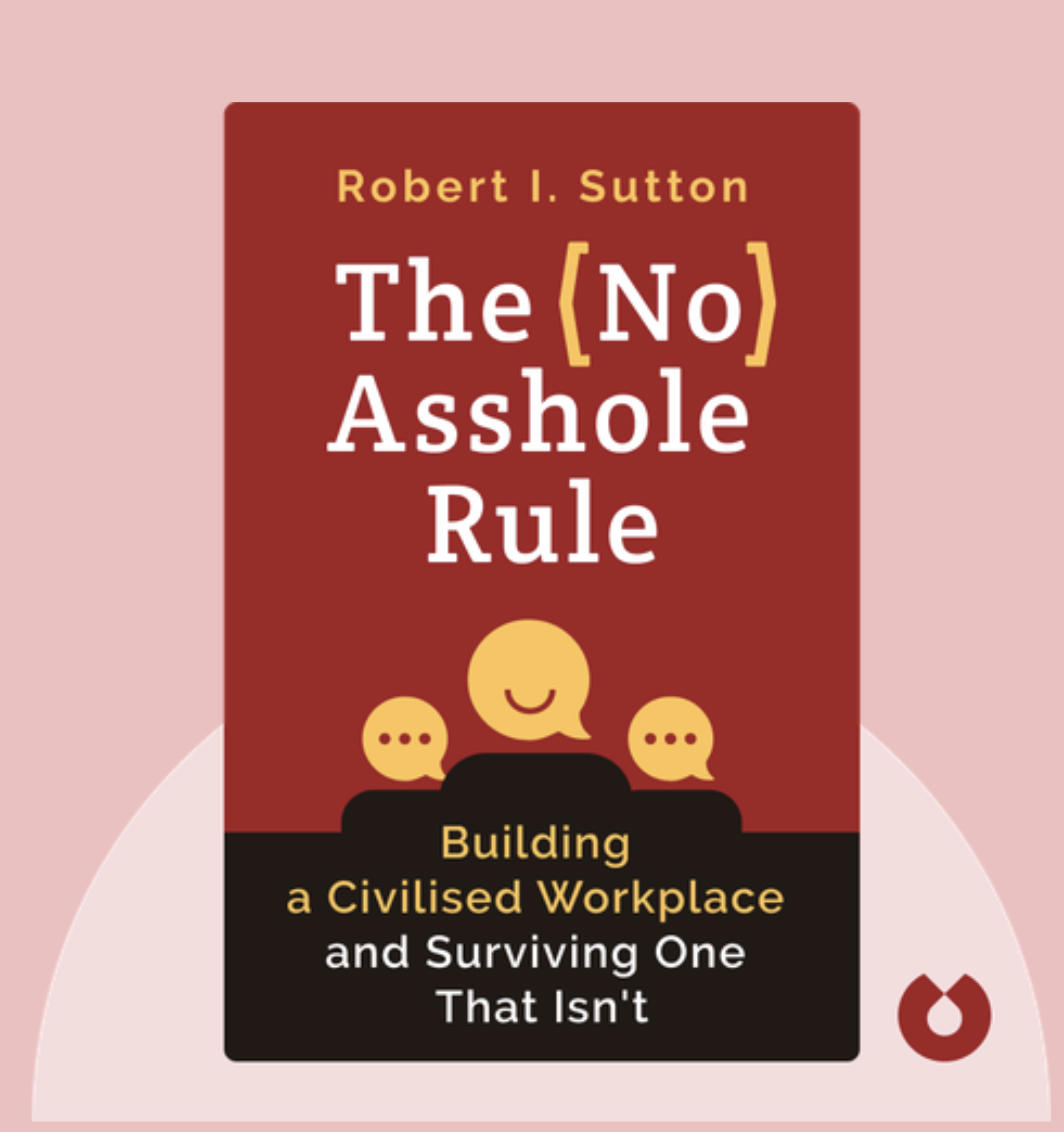

NO ASSHOLE RULE - AND HOW DO I KNOW WHETHER I AM ONE?
From time to time it is worth to remember why Bob Sutton came up with his wonderful rule:
🎯...because you can catch their nastiness (emotional contagion works)
🎯...because having the strict rule and do the screening makes work immensely better
🎯...because they really cause suffering
🎯...because those companies which screen these out have a higher attraction rate
🎯...because even if they are really intelligent and are high performers...it is mostly not worth the trouble
In a follow up book Sutton also writes about how do we avoid hiring or promoting a**holes, how to deal with them? And what I almost like best is: "Not giving a shit takes the wind out of an a**hole's sails". Further: "The first question is, can you quit or transfer to another department? If you’re stuck under a certified a**hole, that means you’re suffering. And if that’s the case, you should get out — it’s that simple. The second question is, if you must endure, are you going to fight or are you just going to take it? If you’re going to fight, you need a plan and a posse, you need to collect your evidence, and then you have to take your chances."
Funnily though even the so-called "certified **holes" are often blind towards their own status Here Bob Sutton suggests to "The main thing this research on self-awareness says is that the worst person to ask about someone’s a**holeness is the a**hole himself, and the best people to ask are the people around him or her who know that person at least fairly well. Bottom line: A**holes need someone in their life to tell them they’re being an asshole."
But lets face it - it is hard to tell them. So how to find it out yourself (and hint: it is not a question of gender). This is what I found in a blog:
🎯Can't stand someone else being in the spotlight.
🎯Talking to someone else while being talked to.
🎯It's either your way or the highway.
🎯Unable to accept your wrong.
🎯Cannot compliment another person.
Find the article here: https://hbr.org/2007/03/why-i-wrote-the-no-asshole-rule
04-04-2024



LIMITS TO EXECUTIVE PAY NEEDED!
I am more than concerned that once more neither the compensation committee nor the executives of UBS themselves have understood the signs on the wall: though shalt not destroy the common good, though shalt restrain!
Well why would I feel comfortable to say this? First, even before I unpack the normative hammer - there is just no practical legitimacy for this. High powered incentives are usually argued on the premise that shareholders carry the residual (not hedgable) risks when investing and hence there need to be means to ensure that agents (here the management team) is responsive to the shareholders interest. For instance by making sure that compensation varies with long term financial success.
Now we could quibble whether the chosen incentive structure would be conducive to this claim - I would argue that this depends immensely on the clawbacks defined. BUT in this case it is irrelevant as the proper residual risk bearers in the case of a bank which is too big to fail are the taxpayers, and in their name the Swiss Government. It is for them to align the incentives, if we apply the same logic, and by nature very different metrics would have to apply. What Switzerland wanted is a reliable, risk-conservative bank - maybe a high reliability organisation as I asked for here https://lnkd.in/gHcj_rxM - but certainly not an overambitious master of the universe type of bank.
But ofc I do not want to leave it there. I would expect that even in the absence of a government intervention (as sadly our politicians are not really acting as guardians) that decent managers would not want such a high compensation. It is more than fair to ask for a good pay - but not for an excessive pay. They thereby destroy the reputation of the banking business further (and hence other banks might want to tell them off…but I have little hope here); but they also in the long term undermine our trust in government and in a society where we strive for justice. As a consequence we might land with more regulation - something we all would want to avoid (ideally).
So imho it is their individual responsibility to show more temperance, and it is the collective responsibility of the sector to avoid such exaggerations.
Find the article here: https://www.reuters.com/business/finance/ubs-reports-144-million-swiss-francs-ceo-ermotti-2023-2024-03-28/
29-02-2024

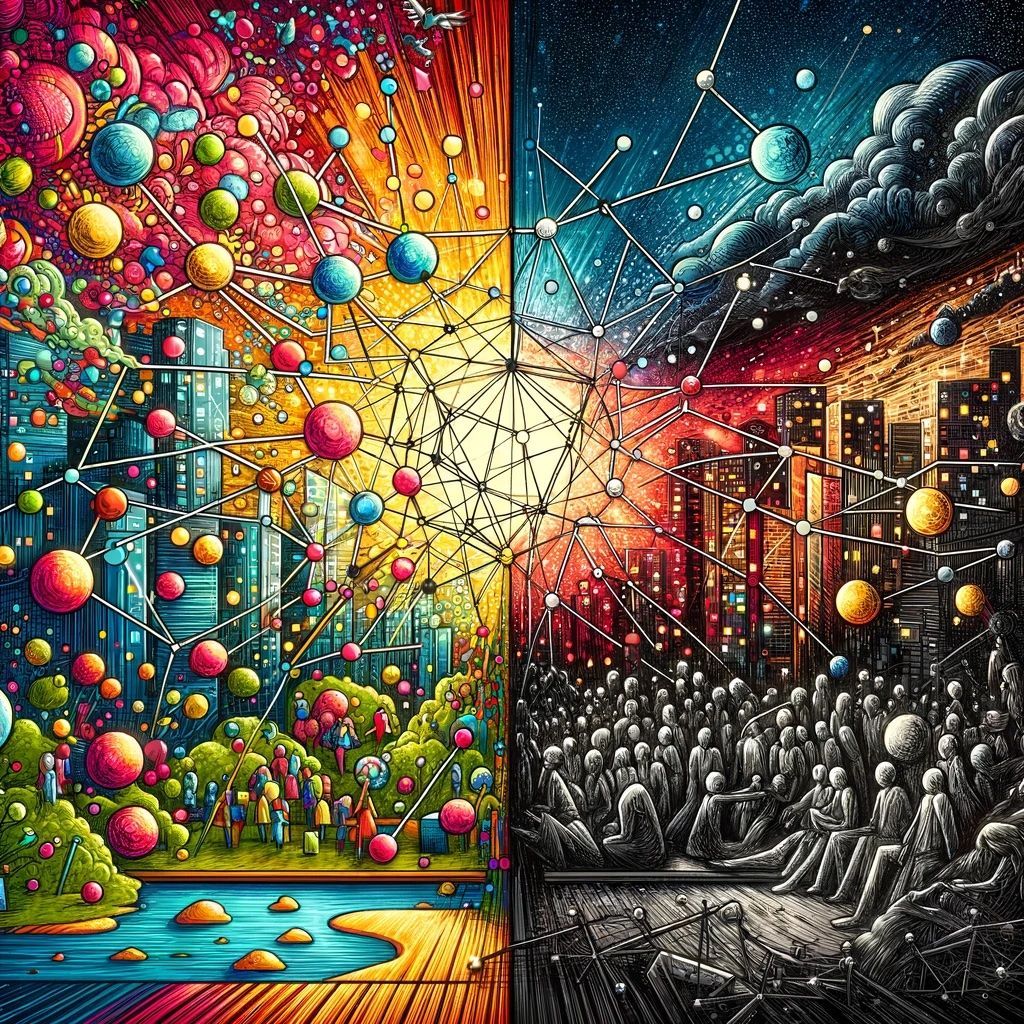

THE THREEFOLD MORAL RESPONSIBILITY
I recently delved into an enlightening piece by Lisa Herzog, whose insights we'll soon explore in an upcoming interview. She introduces a critical perspective in today's complex world—a world filled with temptations and boundless opportunities, yet where our moral compass is guided by our social interactions. For this she suggest that we need to see moral responsibility as a threefold.
👤 We have moral responsibility for what we do. This might be hampered by the context, but we can nonetheless not shed our responsibility.
👥 We have moral responsibility for what we become, how we cultivate our character; a character which allows us to decide and act well even in situations of pressure and a malfunctioning context. But for cultivating our character context matters - be it upbringing or as pertinent to do where and how we work.
👥👥 And we have moral responsibility for how we (co-)create the context which enables us better to act morally. This is another responsibility we share with others.
This triad of responsibilities underscores the social nature of morality, emphasizing the significant role of context, especially within organizations where we spend a considerable part of our lives. It challenges us to critically assess the simplicity of one-dimensional solutions in organizational settings and to always consider the dual impact of any new practice, tool, or policy on efficacy and moral responsibility.
In the context of organizations, let's ponder:
🎯 Forced Rankings and Mortality Curves: A moment of reflection for SAP 😉. How do these practices shape our moral responsibilities?
🎯 Excessive head count and work intensification. What are its implications for our moral fabric?
🎯Bonus Systems and Short-term Metrics: Often hard to get rid off, but what are the moral consequences? Those who followed my posts know it…🙈
🎯 Tech-Driven Performance Management: Alice Rickert, your work on responsible leadership is crucial here. How can we design, deploy and adapt smart technology without destroying the bases for responsibility?
This is just the beginning. What other organizational practices deserve scrutiny through this moral lens? Your thoughts and contributions are eagerly awaited.
24-02-2024

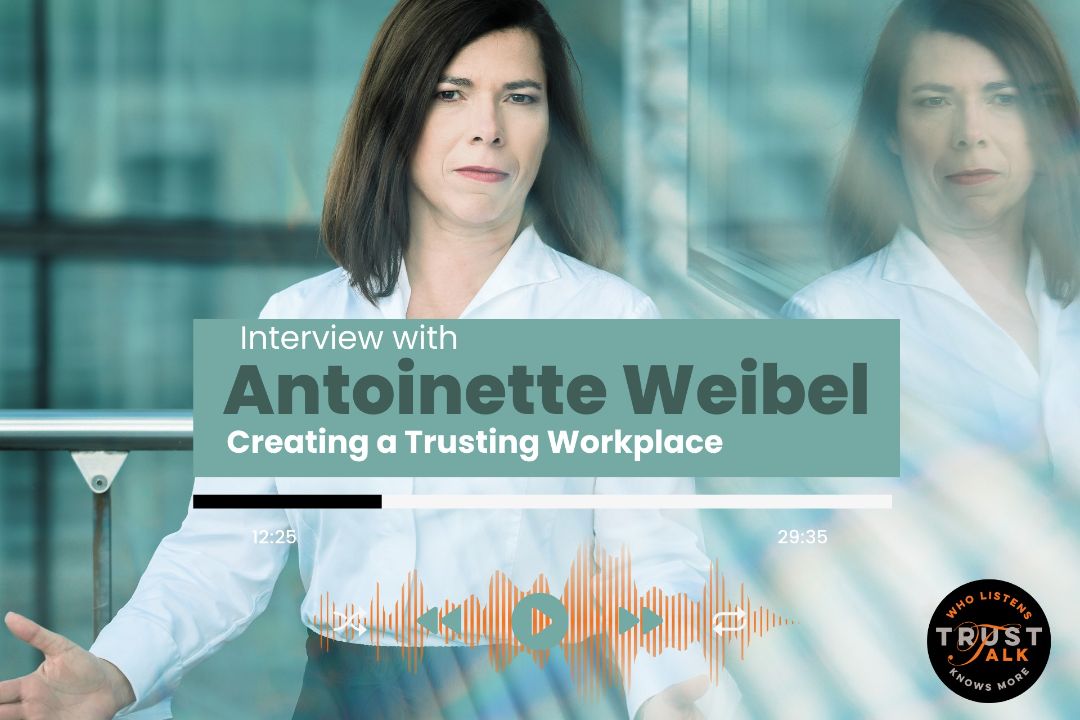

ACTIVE TRUST FOR FLOURISHING WORKPLACES
It was a huge pleasure to travel with Severin de Wit through 25 years of my trust research. Given the depressing numbers of humans at present wanting to escape their workplace, of identity wars even within companies and of dwindling (organisational) citizenship we need to muster all our insights on how to create trustful and flourishing workplaces.
Hence here we look at the necessary character of organizations such as enabling control systems and fair HR practices as well as debate how we are being stuck in wrong man models and instrumentalizing action logics and much more…but please listen yourself 👇.
24-02-2024



"Shaping the Future: Essential Skills for 2050"
As we navigate the ever-evolving landscape of our world, it's clear that traditional projections of skills often fall short of capturing the magnitude of change around us. The World Economic Forum's forecasts, while valuable, sometimes lack the imagination needed to confront the profound shifts occurring in our societies and economies. What if we dared to reimagine not just capitalism but society as a whole?
Enter the Jacobs Foundation, working with scenario-based thinking that challenges us to envision radically different futures. Among these scenarios lies one of optimism: #netzero. This scenario beckons us to consider a world where mere technological innovation isn't sufficient to combat the existential threats of climate change, biodiversity loss, and global inequality. Instead, it urges us to collectively halt the relentless expansion of our ecological footprint and embrace a paradigm shift towards a well-being or a post-growth economy.
In this imagined future, our evolution as individuals and societies takes a different trajectory:
🧘🏽♀️ Cultivating inner growth becomes paramount, shifting our focus from mere pleasure-seeking (hedonism) to a deeper sense of purpose and fulfillment (eudaimonia).
🪢 Strengthening our social and civic muscles becomes imperative, fostering collaboration and deliberation to find ingenious ways to deal with scarce resources.
🤔 Acquiring critical thinking literacy emerges as a priority, equipping us with the understanding of ecosystems, economic systems, and transdisciplinary thinking necessary for navigating complex challenges.
👨🏼🌾 Embracing practical and experimental skills becomes central, emphasizing hands-on learning and adaptability in an ever-changing world.
Yet, it's evident that our current educational and professional systems aren't fully aligned with these future needs. That's why we're excited to announce our upcoming webcast, #businessforhumanity, debuting on March 12th. Join us as we delve into these and more critical conversations and explore pathways toward a future where human and planetary well-being thrive. Let us find out together how to re-invent capitalism. Learn more here: https://lnkd.in/dYwpsw36
15-02-2024

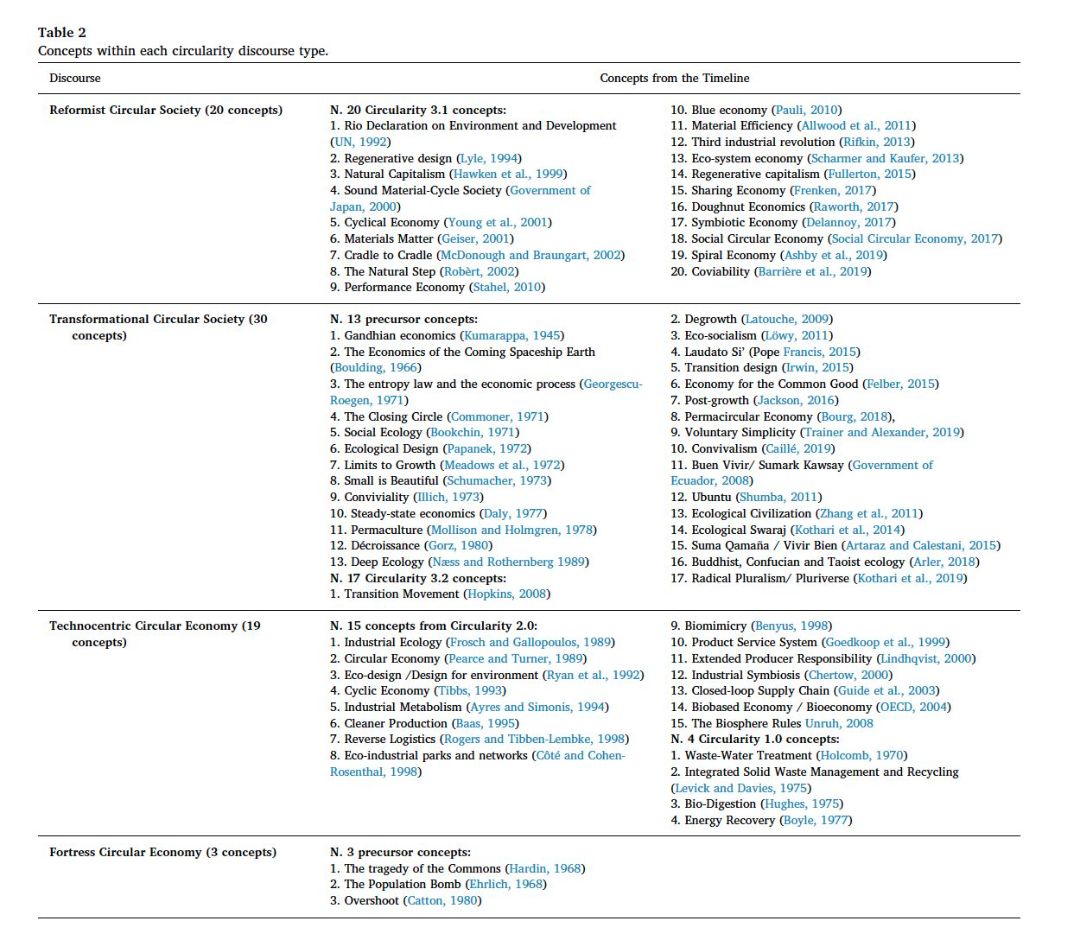

🔥 Reinventing Capitalism: Where Revolutionary Minds Collide! 🔥
Are you tired of the same old economic narratives? Ready to challenge the status quo and ignite change? Then buckle up, because we're about to embark on a journey unlike any other!
Welcome to Business for Humanity, the hub for radical thinkers, game-changers, and visionaries reshaping the economic landscape. A webcast showcasing alternative blueprints for markets and finance to policymakers advocating for systemic change and entrepreneurs pioneering sustainable business.💥
🌟 Join us as we dive deep into provocative discussions, exploring alternative economic models, dissecting policy implications, and igniting sparks of innovation.
🍽 What is on the menu? The menu is plentiful and sometimes even overwhelming. To avoid information overload we also need a better map to make sense of the territory! As usual we will thus also share insights for orientation. Today find this #deepdive 👇🏻 which sorts the conversations on circularity: from 1.0 dealing with waste, to 2.0 technofixes in the whole value chain, to 3.0 circular society (https://lnkd.in/gafUH-xU).
🗣 Identifying the following main discourses:
a) The Fortress Circular Economy. „These discourses thus seek to impose sufficiency, population controls and resource efficiency from the top down to rationally confront global scarcity and limits, yet they do not deal with questions of wealth distribution and social justice.“
b) The Technocentric Circular Economy. „Expect that circular innovations can lead to an absolute eco-economic decoupling to prevent ecological collapse“.
c) The Transformational Circular Society. „A renewed and harmonious connection with the Earth and their communities. A general economic downscaling and a philosophy of sufficiency leads to simpler, slower and more meaningful lives.“
d) The Reformist Circular Society. „propose a mix of behavioural and technological change, leading to an abundant, fair, and sustainable future where scarcity and environmental overshoot has been dealt with by impressive social, economic, industrial and environmental innovations. While they believe important socio-cultural change is necessary, and new forms of public participation and inclusion are needed, they do not see a fundamental contradiction between capitalism and sustainability.“
So clearly - a webcast on reinventing capitalism will also have to ask: what problems are we facing, what future do we want and how can we get there? And as evident in these discourses - in the end we will have to make a (good) choice.
So: this isn't your typical webcast— join the revolution! Tune in, turn up the volume, and let's rewrite the rules of capitalism together! 💡🌍
Coming 12th of March 16:00 CET. Changemakers Only!
10-02-2024

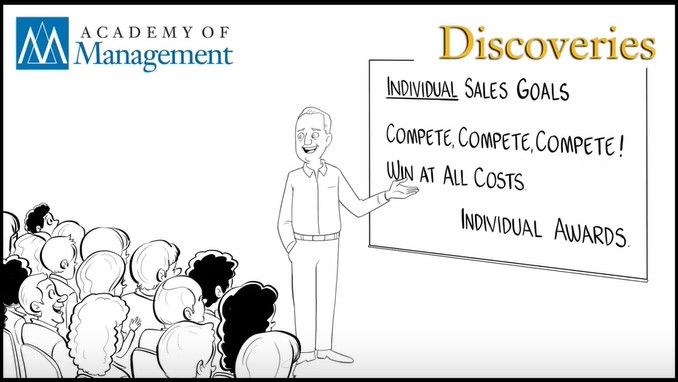

NARCISSISM, HR AND PERFORMANCE MANAGEMENT
#Responsibleleadership and good organisations need to transpire and inspire integrity and inter-independence. In their many studies on narcissism Charles O'Reilly and Jennifer Chatman have convincingly shown that this - to put it mildly - is not exactly the strength of narcissists. Hence, if it is true that we have a narcissism epedemic we should ask how to counteract or deal with this.
"The results of the five studies establish a clear linkage between leader narcissism and organizational cultures characterized by lower collaboration and integrity. Not only engage them less in collaborative and ethical behavior than do those who are less narcissistic but they also create cultures which are less collaborative and of integrity. To explore the mechanisms linking leader narcissism and cultures of collaboration and integrity, one study reveals that more narcissistic respondents are less likely to support policies and practices that promote collaboration and integrity and are less willing to sanction actions that undermine a culture of collaboration and integrity. Finally, to understand how culture is maintained and cascaded through an organization, Study 5 shows that when respondents are dealing with a more narcissistic leader in a culture characterized by lower collaboration and integrity, they are also less likely to collaborate and to adhere to high standards of integrity."
So the question is: how to make sure that less narcissists come into leaders position and if they are how to immunize the system?
🗣 ATTRACTION: Narciss are attracted by high pay differentials and "winner takes it all culture" - another reason not to go back to forced ranking 😉 .
🗣 SELECTION: Narciss often excel in interviews - make sure that your selection process is consisting of several assessment tools; hire slow; use simulation-oriented and maybe even personality tests in addition.
🗣 DEVELOPMENT: Narciss are often impaired to accurately identify and describe their inner states hence a key to successful development is to enable their self-awareness - vertical development is one key, and their willingness to develop.
🗣 MIRRORING: Narciss have a need for positive mirroring and thus search team members who admire them and do not talk truth to power - while I am usually not a fan of 360 degree feedback it might be helpful in this case; more helpful ofc if the team becomes cognizant of the dynamic.
So read the paper 👇 #deepdive and by all means also read Kets de Vries on this topic (who offers a psychodynamic perspective). And to all the HR people out there: how are you taking notice and care of this topic?
07-02-2024



COLLECTIVE „PAY-FOR-PERFORMANCE“
When we finally ditch individual pay-for-performance some companies want to stick to some amount of performance-related, variable pay. I would usually say:
🗣 Go with gain or profit sharing - it signals „we are in the same boat“ and does not create any of the side effects of individual PfP. Now this meta-analysis from Anthony Nyberg et al show that this is clearly the case. You have some effect on organisational performance because people find themselves recognized and also tend to stay longer in that company.
🗣 Team bonus systems are also - overall - effective but here the original studies caution. Positive effects are to be expected for interdependent work and if teams take care of potential „social loafing“ in a considerate manner. But ofc 30 studies are not a lot and some of the studies which found no or a negative effect (such as the one of my former phd Dr. Daniela Frau) have a much harder time to get published. Hence I would say: proceed with care and also only use it with „proper teams“ that have some autonomy in choosing their peers and have learned to challenge each other in a considerate fashion as there is always the risk to generate too much pressure.
🗣 An interesting variant is the Top Team Bonus System. Unfortunately but unsurprising there are only few studies looking at this and there is quite some noise in the data (there are some moderators not yet tested). But it seems to have a strong effect on operative outcomes such as CSR outcomes. But their effect on the financial outcomes of the company is unclear - but there again we have the same result if we look at the effect of CEO PfP and org performance. It might just be that TMT are not the only ones contributing to organisational performance ;-)😉 .
I highly recommend to read the paper - if only to scan it for the possible downsides of such systems. Our knowledge on the effects is in many cases are not yet rich enough but the biggest learnings are the red flags also found.
Find the study here: https://journals.sagepub.com/doi/pdf/10.1177/0149206318770732?casa_token=2jqHS1WE4G0AAAAA:LuOpHlpH9kPLdcA37JtvJatS9hkYrWyv6aKqb82KbMqq4WEJSLVRf20Gq-PHD_ppakQERKSiJXC4GLA
01-02-2024

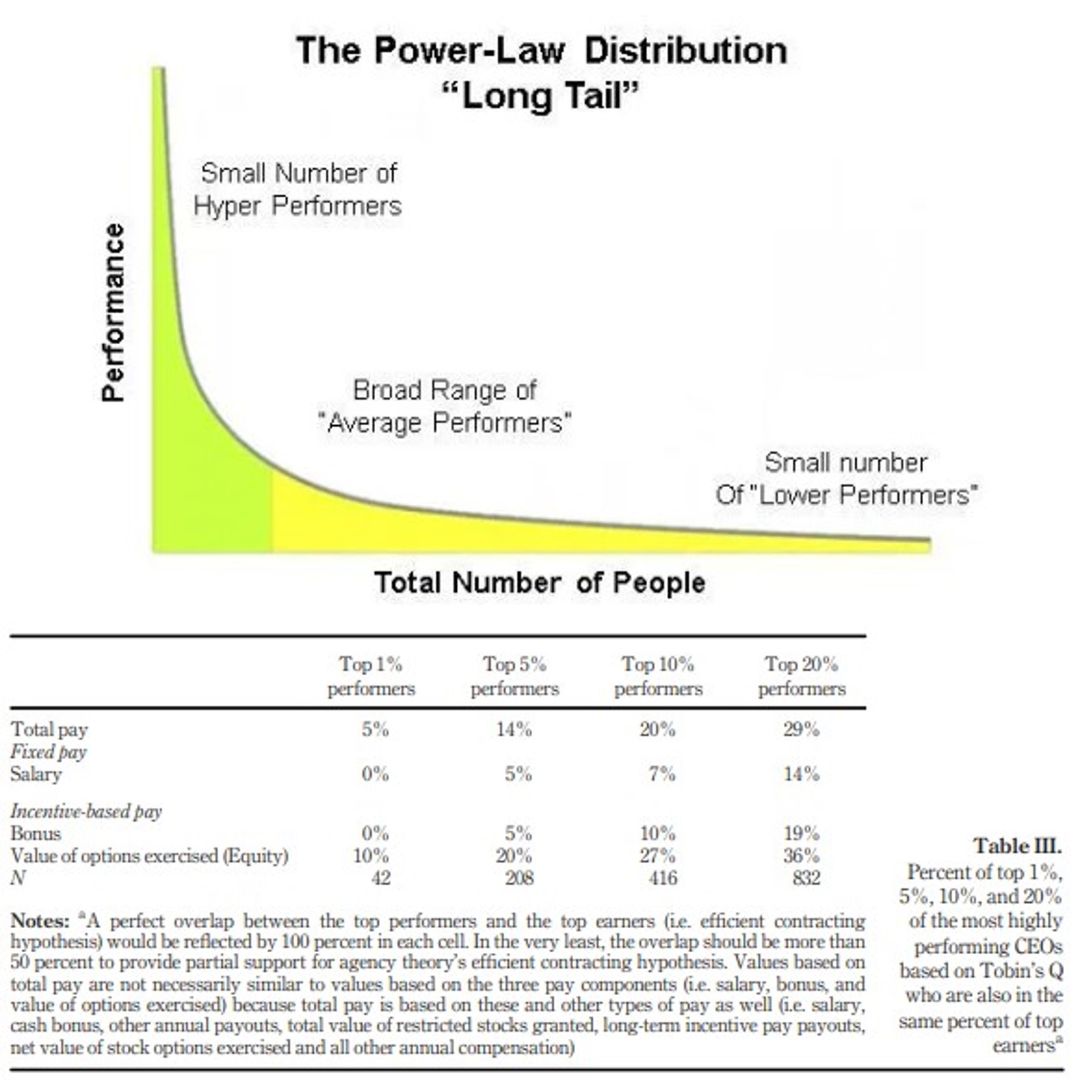

𝐂𝐄𝐎 𝐏𝐚𝐲 𝐒𝐭𝐢𝐥𝐥 🦨
It is „official“ again as Herman Aguinis and colleagues showed: the link between CEO pay and performance remains shaky. Or to put it into their words: „In total, 86 percent of CEO performance and 91 percent of CEO pay distributions fit a power law better than a normal distribution, indicating that a minority of CEOs are producing top value for their firms (i.e. CEO performance) and a minority of CEOs are appropriating top value for themselves (i.e. CEO pay). But, the authors also found little overlap between CEOs who are the top performers and CEOs who are the top earners“.
What then is driving companies and boards to still go on with this - at least from a societal point of view - unhealthy overpay practice?
🦨 opportunity costs of having a particular CEO in command - such as poor hiring decisions, pay package defined before actual performance comes through and the Mathew effect
🦨 managerialism or fat cat theory - CEO (ab)use their power and information asymetry to procure rents
🦨 CEO hubris, greed, narcissism - making the CEO to ask for „too“ much
🦨CEO political behaviors - such as impression management, ties to dominant owners, non-optimal trust (too high)
🦨 political ideology - conservative CEOs and conservative boards opting for high pay differentials
🦨institutionalization of agency logic in business schools, among consultants and by business press shaping the training, socialization and attitudes of senior management.
And probably more…
But the big question remains: how to fix it? How can we get back a) to a more humble pay differential (whatever this means but it cannot be 344:1) and b) to incentives which encourage everybody to contribute (also) to the common good rather than to solely ones’ own good?
Source: https://www.emerald.com/insight/content/doi/10.1108/MRJIAM-02-2017-0731/full/pdf?casa_token=F7yt-bmB3WMAAAAA:pE0ke4QFHLCh2rvjVib9bjZ01O1WVk6crUJWyh9HYgqKJ6hTjXaWPxJgUIcWpZrmTeCiqhgVweDdnt4tz7tp3mHPwLq9d82oy5P4EHw93O_UH5pj2qOuAQ
21-01-2024

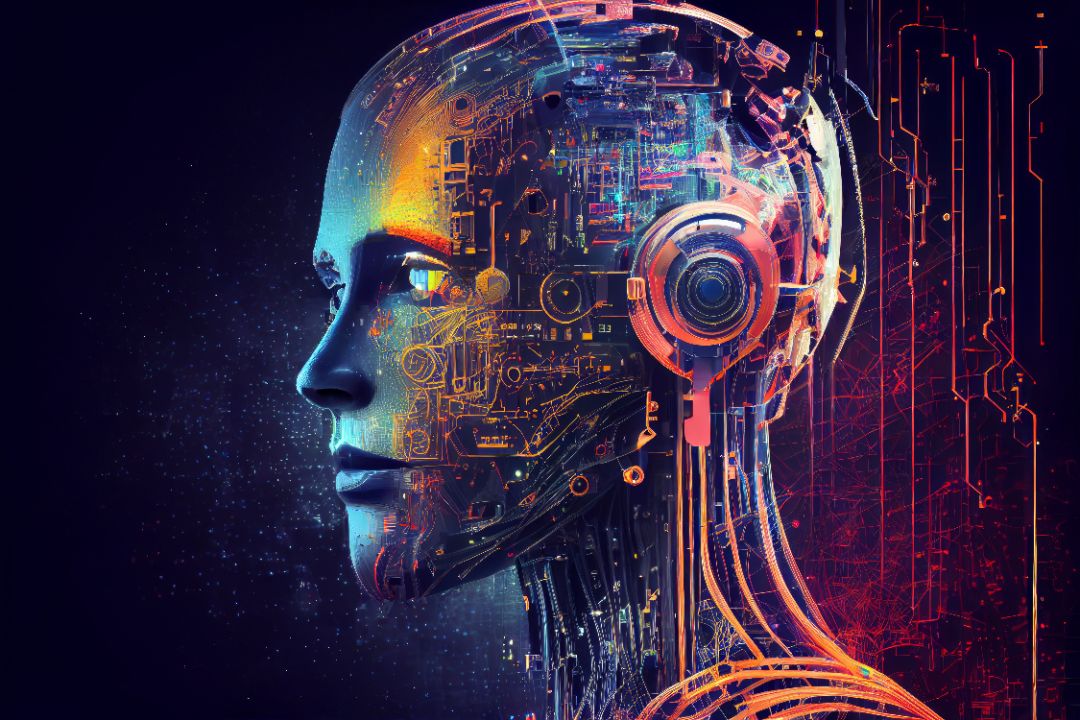

RESPONSIBLE LEADERSHIP AND AI
In 2024, the WEF, unsurprisingly given the current hype on generative AI in the last year, has dedicated a lot of airtime to new technologies. As usual, the techno-optimists prevailed as technological innovation has been traditionally seen as our best bet to solve the problems we are facing. Only this time, technology is hyped to solve the problems we have created ourselves, quite possibly with the help of technology as well.
In this spirit, it is good to know that the downsides of such technology were also discussed. In fact, you can find on the website the following statement: "As public and private leaders look to leverage the benefits while mitigating the risks of this emerging technology, Switzerland is in a strong position to play a vital global role in advancing the development and deployment of AI responsibly."
But are we? And how would we? I am glad, though, that nobody seems to be so naive as to think that technology itself is the (only) answer to responsibility. How we deploy AI, how leaders in politics and business will assume their call to be responsible, will matter a great deal.
In our research, we have looked at two areas where we believe a clear ethical stance is needed. First, and in the article shared here as well in a pop version published in https://lnkd.in/dKV5YwHG, AI was found to create and exacerbate employee vulnerabilities in the workplace. Drawing on Annette Baier and Hannah Arendt, we argue that this creates a call for (moral) trust. Organizations are summoned to invest in caring, in allowing employees to bring their voice into the development and deployment of technology and to bar some uses if needed.
In another article, yet to be completed, we also explain how AI can jeopardize good work. AI, like other technologies before, has the potential to dequalify and dehumanize employees. From the perspective of a virtue ethics approach, such a use is preventing the good life, of which work is a fundamental component. On the other hand, we can deploy AI (and other technologies) also in a way that allows for more good work. The choice lies in our hands, in those of responsible leaders in the private, plural, and public sector!
https://onlinelibrary.wiley.com/doi/epdf/10.1111/joms.12940
18-01-2024

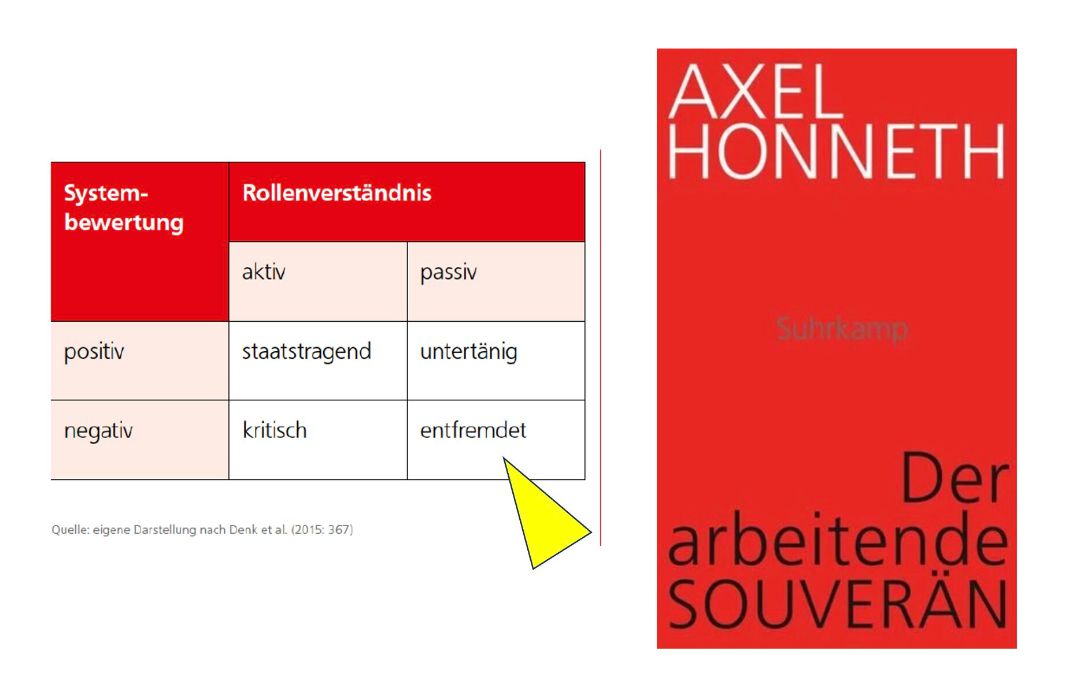

UNSERE VERANTWORTUNG
85000 Stunden verbringen wir in unserem Leben am Arbeitsplatz. Arbeit dürfte damit die prägende Erfahrung in unserem Erwachsenenleben sein. Arbeit kann uns Selbstwirksamkeit, Anerkennung, geistiges und soziales Wachstum vermitteln - oder sie kann uns auch dequalifizieren, entmündigen, und voneinander isolieren.
Wenn wir in der heutigen Zeit über die wachsende Anzahl entfremdeter Bürger nachdenken, dann müssen wir nicht weiter suchen. Es ist unsere Verantwortung - die von Unternehmen und die von Business Schools - endlich wieder gute Arbeit, und damit auch aktiven Bürgersinn, in den Mittelpunkt zu rücken.
Honneth hat hierzu ein wunderbares Buch geschrieben. Gute Arbeit:
🗣Ermöglicht ein faires Auskommen (sonst fehlt mir die Zeit zu politischer Teilhabe und ich muss auch schlechte Arbeit annehmen).
🗣Laugt nicht aus (darf aber beflügeln).
🗣Vermittelt mir Wertschätzung - auf Augenhöhe.
🗣Sorgt dafür, dass ich mich auf die Zumutung der Anderen einlasse.
🗣Fordert mich mental.
🗣Und lässt mich Gestaltungskraft und Selbstwirksamkeit entwickeln.
Das ist der wirksamste Hebel gegen die Verwerfungen unserer Zeit!
Wer macht mit - welches Unternehmen setzt das um? Welche Business School lehrt das?
16-01-2024

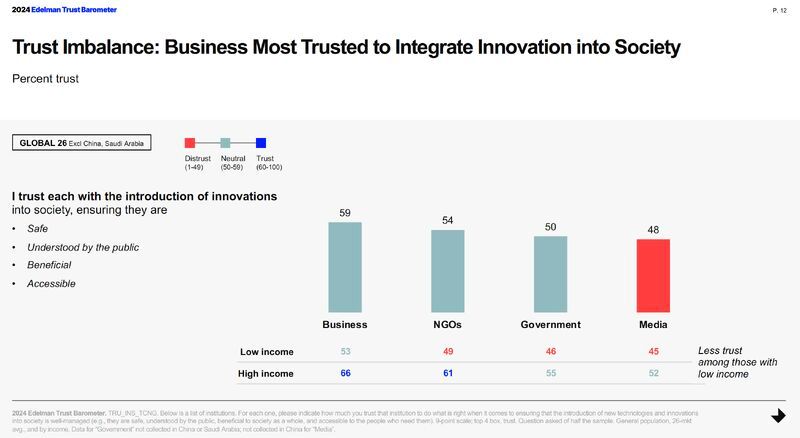

𝐃𝐞𝐚𝐫 𝐄𝐝𝐞𝐥𝐦𝐚𝐧: 𝐇𝐮𝐦𝐛𝐥𝐞𝐧𝐞𝐬𝐬 𝐈𝐬 𝐚𝐧 𝐈𝐧𝐭𝐞𝐥𝐥𝐞𝐜𝐭𝐮𝐚𝐥 𝐕𝐢𝐫𝐭𝐮𝐞
Wow - well meant not so well done, or not even well meant? The new Edelman Barometer is pleasing Davos based on a handful of nothing. At the core is the claim that governments (mainly) are preventing needed innovations which business otherwise would do for the good of society. OK - 𝐈 𝐚𝐦 𝐠𝐫𝐨𝐬𝐬𝐥𝐲 𝐨𝐯𝐞𝐫𝐜𝐥𝐚𝐢𝐦𝐢𝐧𝐠 - but whatever is the real intention here, it rests on thin grounds.
Let us take a step back and look at the data and its flaws:
🗣 As already mentioned by numerous trust researchers: the measurements itself are certainly not brilliant. Trust, the core, is measured rather one-dimensionally. Although truth to be told in the newest version they work with an „ethical score“ - still with problems but better.
🗣 The insights drawn from the data - at least written in capital letters (it looks slightly different if we venture to the technical appendix) - is clearly „overdrawn“. This is at best correlational data - hence what remains suspiciously unexamined is causality.
🗣 And what is also grossly neglected - and of particular importance: we are looking at complex social systems. Take for instance government and business and their entwinement. Edelman suggests in the subtext that government is mostly to blame and that business should „partner“ up with government. But ofc this „causality“ is neither shown through their study design, nor would we propose such a simplistic one-directional influence. Rather, if not discussed from a neoliberal ideology, the fact that some business leaders undermined and reduced government, might have created the problems in the first place. In any case it defies such a reductionist logic.
Most important though, even if their study was brilliant, „𝐢𝐬“ 𝐜𝐚𝐧𝐧𝐨𝐭 𝐛𝐞 𝐭𝐫𝐚𝐧𝐬𝐥𝐚𝐭𝐞𝐝 𝐭𝐨 „𝐨𝐮𝐠𝐡𝐭“. Whether we "need" more technology, and which one, how technology should be implemented and used and what for - these are all (also) normative questions. And hence, pertaining to whatever ethical theory we follow, need to be deliberated. Just delegating it to the market does not work (what they acknowledge).
I believe the best business can do in this situation is to enable a better democracy and more practical wisdom for all by providing good work (which gives their employees the civic virtues, the critical thinking skills and the time to participate in democracy) - and if they indeed „partner up with government“ - then this needs to be done together with NGOs, science and the public - open and transparent.
01-01-2024

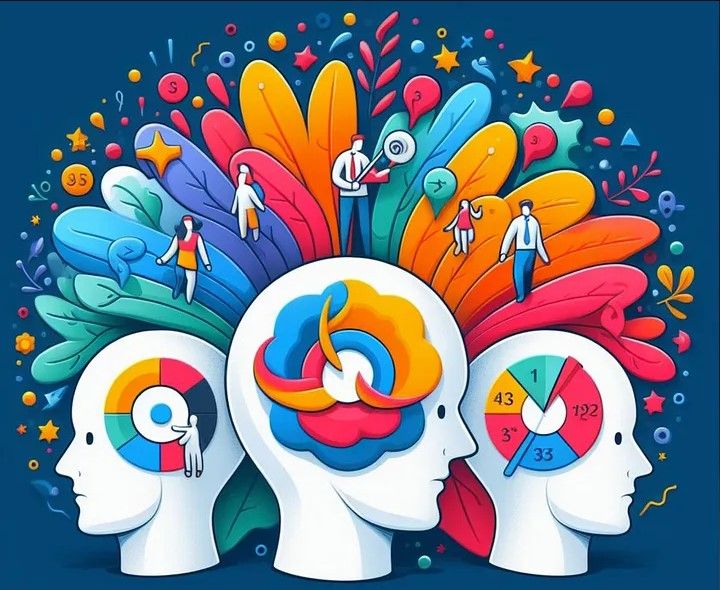

𝐖𝐡𝐲 𝐢𝐭 𝐦𝐚𝐭𝐭𝐞𝐫𝐬 𝐭𝐨 𝐚𝐬𝐤: 𝐰𝐡𝐚𝐭 𝐩𝐞𝐫𝐟𝐨𝐫𝐦𝐚𝐧𝐜𝐞 𝐝𝐨 𝐰𝐞 𝐰𝐚𝐧𝐭?
In a recent discussion, my counterpart enlightened me: What do you mean by defining performance? It’s always clear what performance I have to deliver!
A good point, we often take our understanding of performance for granted. And yet, this precisely highlights the #responsibility companies have when developing new #performance_management_systems. The recent renewal of stacked rankings (see the link in the comment 👇🏻) shows that we all too quickly fall into a simplistic definitions with severe consequences.
Psychologists usually distinguish three forms of (individual) performance in the workplace:
🎯 Task-related performance — everything it takes to do the defined tasks well.
🎯 Contextual stabilizing performance — everything it takes to contribute to the goals of the organization in the daily changing environment and collaboration with others.
🎯 Contextual renewing performance — everything it takes to renew the way of collaboration and the goals of the organization so that the organization can be successful in the long term.
Contextual performance always goes beyond the contractually defined components, relies more on collective mindfulness, and generally requires more development work — both on an individual and collective level.
It should become clear that even for instrumental reason, we should not create a system that only focuses on task-related performance. We can assume that in modern, knowledge-based work forms, we always want to utilize all forms of performance — context-sensitive, with the wisdom of the role holder. A ‘Winner Culture’ that relies on star performers falls short here (see the deep dive article 👇 ).
But we should also ask the question: What is desirable? What kind of performance is needed in good companies? Of course, that depends on the definition of ‘good.’ If we understand ‘good’ as #excellent in the sense of ‘supporting each other in getting better’ and ‘good work’ as creating value for society, then it’s clear: we absolutely need contextual performance as well. And then we can probably already state: a system that prevents ‘helping, supporting, speaking unpleasant truths’ cannot lead to excellence.
And I know many will agree — but the sad truth is that even more companies are far too willing to take a turn into the wrong direction.
Read:
https://www.fastcompany.com/90850190/stack-ranking-workers-hurt-morale-productivity-tech-companies
https://www.tandfonline.com/doi/full/10.1080/09585192.2023.2225279?casa_token=Ncv8jzmwxpsAAAAA:05nNe9uyrnMLcT0Op-9RihkOCtccGSrrRxhu0dQ4qh5H5VozEPCNwFuoJ9mvbHE1Og0drWSFLtrRehk
01-01-2024

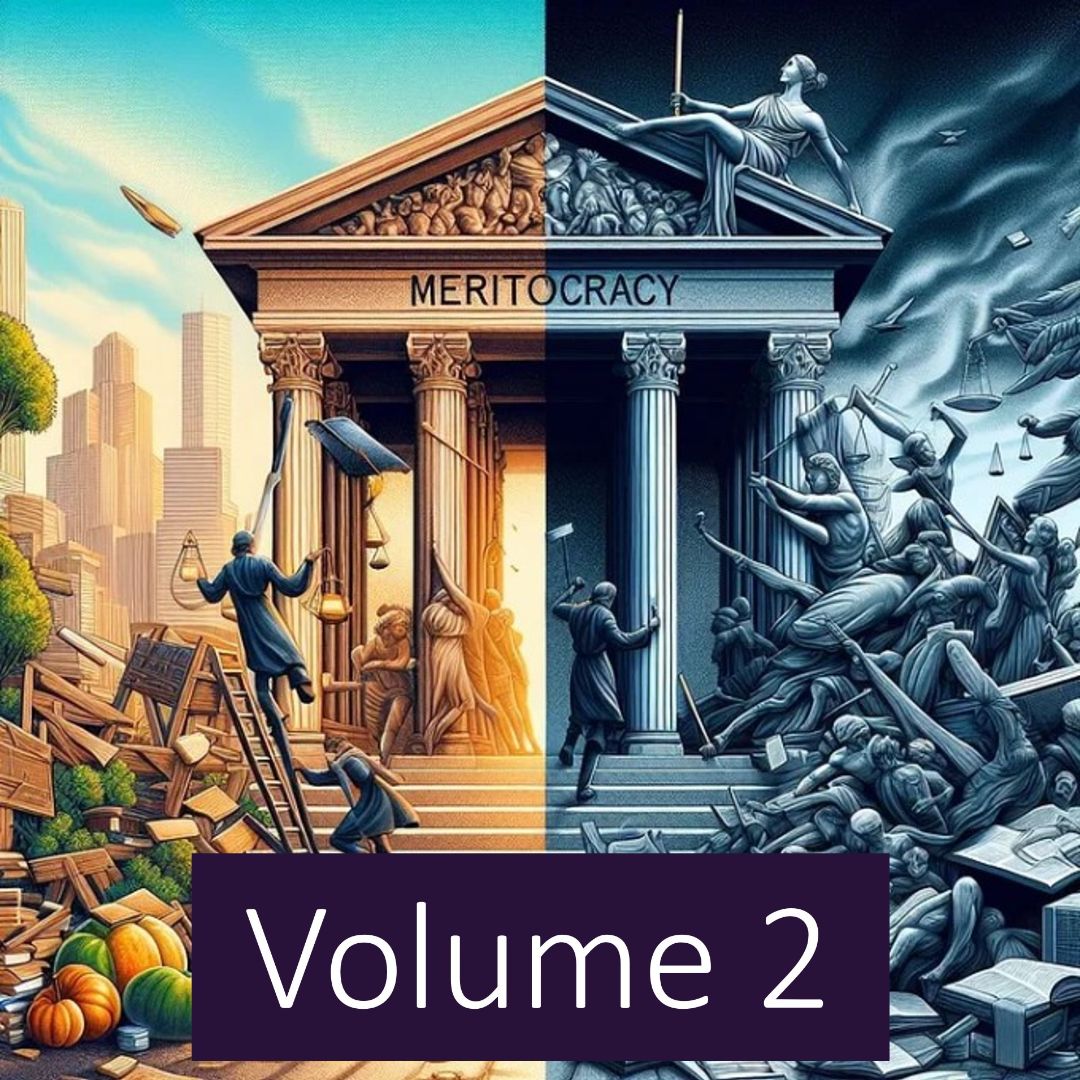

The Myth of Meritocracy in Organisations
KISS MERITOCRACY GOOD-BYE?
Last week a heated discussion about the new (very old) SAP forced ranking model ensued, this week UBS announced that for lay-offs they plan to use meritocratic rules. Surely, well all wish there was a meritocracy to some degree — we do not want to reproduce social inequalities based on from which socio-economical group we stem from. Selecting, promoting or even dismissing people because they do not contribute, engage and use their potential is clearly better than just do this on the basis of familiarity and nepotism. But as this excellent article compiles — meritocracy in a knowledge economy is hard to come by, even and especially in business.
The article looks at several, multi-level, and interacting effects which suggest that particularly in places where there is a so called meritocratic structure (eg. a super star model or winner takes it all) we can almost expect the smallest amount of merit in most people decisions.
On the individual level not-innate competencies (eg. which school I was able to visit) and motivation “kicks” (not being chosen because of my not-innate competencies) feed into a growing disadvantage. This is compounded by the stereotypes and status beliefs on the dyadic level which all feed and are strengthened by negative effect on peoples’ social (and cultural) capital. The meritocratic ideology on the system level then often leads to a false legitimation of (still very unfair) inequalities…
But please read it 👇🏻 before you start vicious cycles nobody really wants.
Read:
https://journals.sagepub.com/doi/pdf/10.1177/2041386620930063
01-01-2024


Performance is (also) socially constructed
Recent overviews on performance management are quite outspoken: despite 30 years of research and a lot of experimentation in practice, big questions about its effectiveness remain.
Answers as to why this is so depend, of course, on the worldview of the researcher. Those who firmly believe in the hashtag#measurability (and manipulability) of performance as „something out there“ seek better ways to capture the complexity of the construct (see a very recent attempt for this in the link 👇🏻). Those who embrace an hashtag#interpretive paradigm emphasize the socially constructed nature of performance and point out that even if there is something „of high performance“ out there, all actors can do is to view, enact, and change it from their context.
A very nice example of this latter view is the German book by Nina Verheyen „invention of performance“ (see it cited in the comment 👇🏻) where she explains the social construction aspects inherent in the term performance. “But there is no performance independent of human attributions and social contexts. Performance is always a matter of perspective. Should one assess the degree of effort or the resulting outcome? How can performances in economic, cultural, sporting, and scientific fields be compared? Who decides what counts as performance? Which perspective prevails?“ And she is questioning the underlying ontology, asking whether we can ever talk about individual performance as „the conventional understanding of performance consistently overlooks the supportive efforts of others. Ultimately, behind everything that people achieve, there are the efforts of many.”
Yet, maybe surprisingly, the question Verheyen raises also unites these two „silos“. We are aware of the measurement „difficulties“ (or the „dependent on human attributions and contexts“), and we also know that the question „what is performance“ is depending on the business model (or the perspective, power). And most will readily confirm that performance is most often a team effort.
So, a natural zone of dialogue would be to go more fundamentally into all these questions — before we measure or create a new performance management system. We would be more cognizant of our cognitive boundaries, more humble from the beginning, and would maybe keep more vigilant in the search for a better way to define and capture performance, and whom we include in our search for such a better way.
Read
https://www.hanser-literaturverlage.de/buch/die-erfindung-der-leistung/978-3-446-25687-3/
26-12-2023

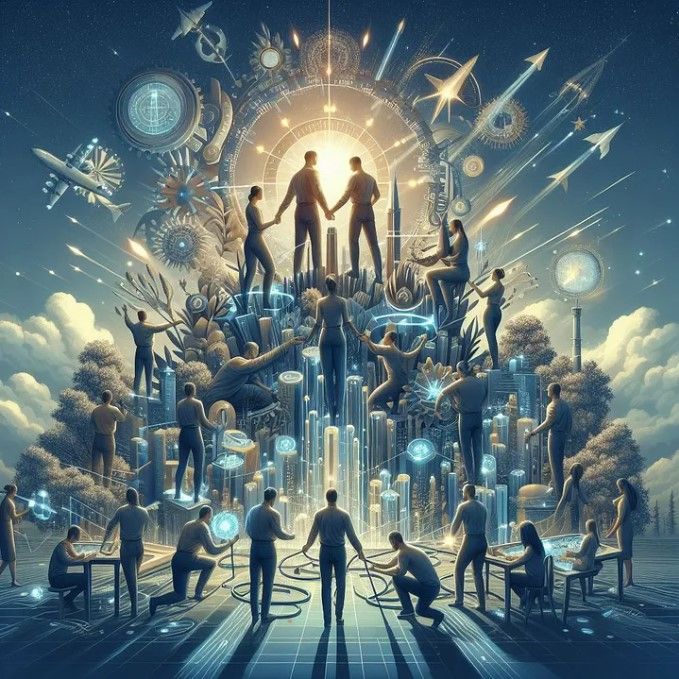

What is performance?
Before we embark on ‘managing’ performance, a task often embraced in companies and central to HR, it is imperative to grasp the essence of what we mean by performance.
Standard Definitions
The standard definitions I’ve encountered primarily revolve around measurement theories — already, in my opinion, a step too far, as they often sidestep more fundamental questions. Take, for example, a definition by Taris and Schaufeli (2018: 21): ‘Process performance refers to the actions or behaviors employees engage in to achieve the goals of their job, i.e., what they do at work. Conversely, outcome performance refers to the products or services that are produced and whether these are consistent with the overall strategic goals of the organization.’
While I’ve come across more on types of performance, such as the differentiation between in-role and extra-role performance (which I will delve into later), I find myself yearning for a more comprehensive understanding. This is somewhat peculiar because performance is, after all, the most frequently used dependent variable in industrial and organizational psychology and in OB.
A Critical View
In a German book examining the ‘invention of performance,’ the author, Nina Verheyen, provides a more critical lens by elucidating the social construction aspects inherent in the term ‘performance.’ ‘But there is no performance independent of human attributions and social contexts. Performance is always a matter of perspective. Should one assess the degree of effort or the resulting outcome? How can performances in economic, cultural, sporting, and scientific fields be compared? Who decides what counts as performance? Which perspective prevails?’
She questions the underlying ontology, pondering whether we can ever discuss individual performance since ‘the conventional understanding of performance consistently overlooks the supportive efforts of others. Ultimately, behind everything that people achieve, there are the efforts of many.’
Open Questions
Now, I seek more insights. To all HR researchers and managers out there, where can I find critical views on performance? Have you ever taken a step back to reflect on ‘what is performance’? Is performance for achieving clearly defined goals, or is it also for enabling new goals and redirecting wrongly specified goals? Is your understanding of performance more closely linked to the ideals of the sporting or cultural field? In redefining performance management, whose voices are heard, and whose voices are implemented in the evaluation of performance? How much does your performance practice drive your understanding of performance, rather than the other way around?”
Concluding Thoughts
As we navigate the intricate landscape of performance, let us not merely measure and manage but pause to question the very essence of what constitutes performance. The definitions and perspectives we adopt shape not only our evaluation processes but also the way we perceive individual and collective achievements.
In the pursuit of a comprehensive understanding, the critical lens offered by thinkers like Nina Verheyen reminds us that performance is deeply embedded in social constructions, always subject to interpretation and dependent on human attributions.
For HR researchers and managers alike, the journey into the heart of performance raises essential inquiries. Have we, in our pursuit of measurable outcomes, overlooked the nuanced interplay between effort, outcomes, and the supportive efforts of others? Does our understanding of performance align more with rigidly defined goals or the fluidity of enabling and redirecting objectives?
Reflecting on the symbiotic relationship between our performance practices and our understanding of performance itself is not just an academic exercise but a vital step toward fostering a more nuanced, and effective approach to navigating the world of achievements and aspirations.
23-12-2023



SEARCHING FOR A BOOK RECOMMENDATION
I feel that this is a topic, senior management really needs to understand well, but my problem is that nobody will read a book like Bourdieus "Masculine Domination". Hence I want the wisdom of the crowd: what would you recommend? It needs to have some depth (not an airport management book), be inspiring (and I would believe also compassionate so that it does not provoke only reactance), eye-opening and actionable...
To explain it better read the HBR 👇🏻 or also just this snippet here:
"Why do companies get caught up in illegal behavior, harassment, and toxic leadership? Our research identifies an underlying cause: what we call a “masculinity contest culture.” This kind of culture endorses winner-take-all competition, where winners demonstrate stereotypically masculine traits such as emotional toughness, physical stamina, and ruthlessness. It produces organizational dysfunction, as employees become hyper competitive to win."
https://hbr.org/2018/11/how-masculinity-contests-undermine-organizations-and-what-to-do-about-it
21-12-2023

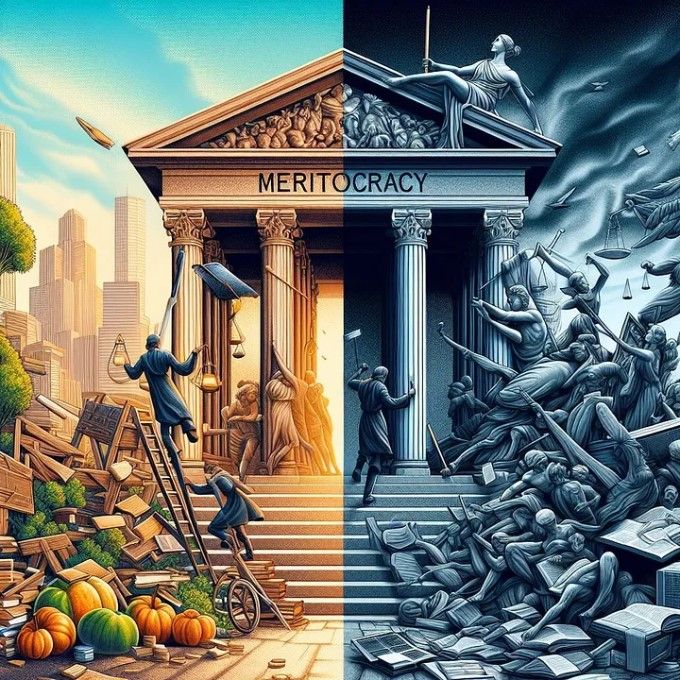

Problems with Meritocracy
In this #deepdive, @benjamin Sachs-Cobbe discusses the recently reemerging discussion on the problems with meritocracy, or rather with institutions claiming to be meritocratic.
And institution is said to be meritocratic if it rewards merit, while merit can mean a) possession of relevant qualification, b) potential for relevant contribution, and c) having put forth or being likely to put forth effort. Most conversations (and, in fact, also his treatise) when looking at societal institutions (the education system and markets) are preoccupied with the topic of merit = qualification.
What are the problems with merit=qualification?
From a social justice view a first problem is, that access to qualification, particularly in the US but also to lesser degrees in Europe, is biased — equality of opportunity is not instantiated. In this observation philosophers are joined by education and intelligence researchers who all plausibly show that socio-economic background is pulling the levers — not “innate capabilities” when it comes to access to high-quality education.
Second, the qualifications are rewarded by the market and hence are “taste-driven” — not re-evaluated by some political or ethical judgements. If we decide to pay more for investment banking services than for nursing, then this is a consumer decision (although it is more complicated than that). Hence, markets offer moral arbitrariness (at best) — but at worst are power-infested as much as our tastes can be manipulated by the powerful (not only via marketing but also via their command of the press, social media, etc.). So we might have applauded the garbage removers during COVID, but their work remains underpaid, under-appreciated, and some would even say “rightly so.”
If we look at practice, then we might say: meritocratic institutions are failing us in the sense that they cannot provide social justice nor factor different qualities of merit. What is seen as “especially worthy of merit” is more of an arbitrary rather than a considered claim.
So what to do?
1. Make our institutions less meritocratic: e.g., by broadening access to high-quality higher institutions and distributing non-market goods (e.g., social esteem) equally or based on different criteria.
2. Making it matter less that our institutions are “meritocratic”: e.g., improving the conditions of workers who do not have elite qualifications through a different tax system.
3. Detach the normative content (“merits are deserved”) from the descriptive content (merit is whatever our institutions define as merit): e.g., stop talking about “they deserve their rewards,” stop promoting the myth of social mobility, stop valorizing skilled over unskilled labor.
And yet what neither of these suggestions embraces is the lurking question in the background: do we need to change our breed of capitalism instead?
Sandel (2020:224) demands equality of condition (as a social justice criterion) and moral markets (drawing also on virtue ethics) and thereby is pleading for a system that allows everybody to
“develop and exercise their abilities in work that wins social esteem, sharing in a widely diffused culture of learning, and deliberating with their fellow citizens about public affairs.”
If I bring both of his insights together, I cannot help but wonder why we are not also talking about economic system alternatives — both within capitalism but maybe also beyond.
References
Sachs-Cobbe, B. (2023). Recent work on meritocracy. Analysis, 83(1), 171–185.
Sandel, Michael J. The tyranny of merit: What’s become of the common good?. Penguin UK, 2020.
14-11-2023

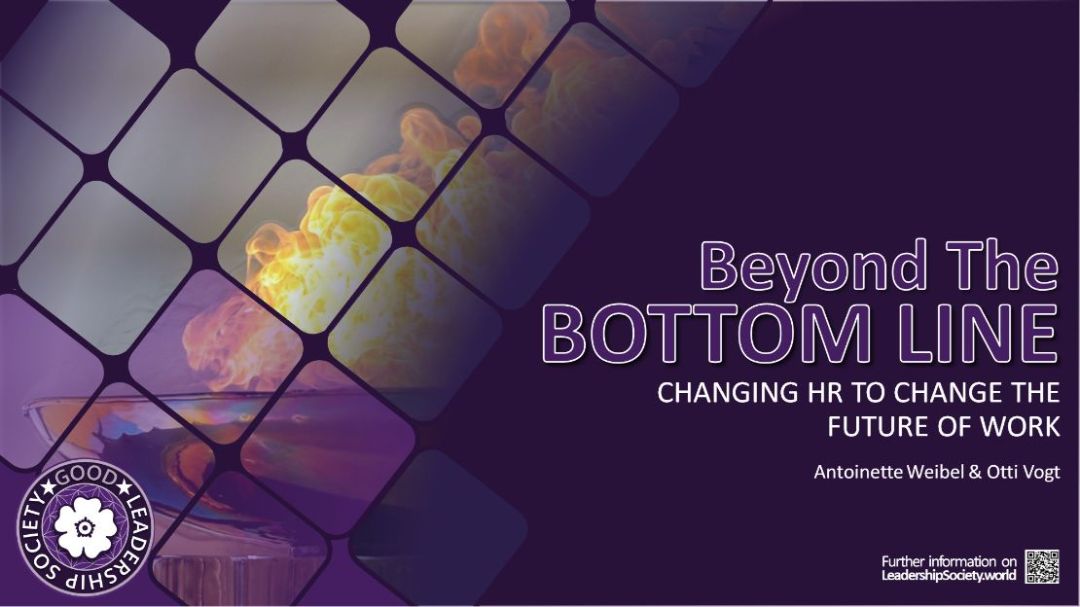

HR faces a pivotal moment in a world marked by complexity and suffering. To drive meaningful change, HR must confront its existential crisis, challenging the status quo and recognizing its complicity in perpetuating suffering within organizations. The path to a just future of work demands introspection, courage, and the commitment to prioritize ethics, humanism, and sustainability over efficiency, forging a coalition of the willing to shape systemic change within our economic system.
Preamble
In a world where complexity reigns, where capitalism's grip on society threatens democracy, and where suffering pervades our organizations, we find ourselves at a crossroads. In order to reshape the future of work, HR must heed the call of transformation, daring to challenge the status quo and driving change for good.
For far too long, HR has grappled with an existential crisis, losing sight of its purpose and its potential to be a force for positive change. We've professionalized, we've gathered brilliant minds, but the truth is, people are no longer truly at the heart of what we do. We've wandered in the wilderness of indifference, too often lost in a labyrinth of bureaucracy and technology.
The path to real change is not lined with quick fixes or superficial solutions. It's a winding road that demands introspection, courage, and radical honesty. HR must confront its own role in creating the suffering it purports to alleviate. We must stop to purchase indulgences in the form of DEI programs, or distract ourselves with the latest technological marvels to atone for our shortcomings.
If we fail to transform, the #futureofwork will be the exact mirroring of our troubled present. HR must take the reins of leadership and commit to subordinate effectiveness to #ethics, #humanism and #sustainability. This calls not only for new ways to imagine our organisations, but for a profound, inward journey. HR must shed the chains of dependency on those in power. It must once again nurture a dual loyalty, towards both the business and the ideals of its profession. It must unify practitioners across organizations in a shared quest for what is right and good.
It takes bravery to confront our deepest fears, and stand up for what is just. The bedrock of any good organization is good people, and HR must be willing to lead the way, so that others might follow. Leadership itself has grown morally mute, and herein might lie an opportunity for HR to show its metal and step into the void. A new HR has the potential to be the vanguard of a coalition of the willing, fostering systemic change within an unjust economic system.
The clock is ticking and it's time to decide which road you are willing to travel. Will you perpetuate the unhappiness of the past, with more of the same but new fancy clothes? Or will you take the courageous leap toward a better world, one where work exudes dignity, the economy serves humanity, and our organizations shine as beacons of a good life for all?
Peter Senge once spoke of leadership as a community's ability to shape its future. Within the HR community, let the spark of unwavering determination to craft a better world of work grow! Let our actions be the testament to our commitment to brighter, more humane organisations. That famous future, the future of work, is already upon us. Friends, let us not squander it!
Preamble
In a world where complexity reigns, where capitalism's grip on society threatens democracy, and where suffering pervades our organizations, we find ourselves at a crossroads. In order to reshape the future of work, HR must heed the call of transformation, daring to challenge the status quo and driving change for good.
For far too long, HR has grappled with an existential crisis, losing sight of its purpose and its potential to be a force for positive change. We've professionalized, we've gathered brilliant minds, but the truth is, people are no longer truly at the heart of what we do. We've wandered in the wilderness of indifference, too often lost in a labyrinth of bureaucracy and technology.
The path to real change is not lined with quick fixes or superficial solutions. It's a winding road that demands introspection, courage, and radical honesty. HR must confront its own role in creating the suffering it purports to alleviate. We must stop to purchase indulgences in the form of DEI programs, or distract ourselves with the latest technological marvels to atone for our shortcomings.
If we fail to transform, the #futureofwork will be the exact mirroring of our troubled present. HR must take the reins of leadership and commit to subordinate effectiveness to #ethics, #humanism and #sustainability. This calls not only for new ways to imagine our organisations, but for a profound, inward journey. HR must shed the chains of dependency on those in power. It must once again nurture a dual loyalty, towards both the business and the ideals of its profession. It must unify practitioners across organizations in a shared quest for what is right and good.
It takes bravery to confront our deepest fears, and stand up for what is just. The bedrock of any good organization is good people, and HR must be willing to lead the way, so that others might follow. Leadership itself has grown morally mute, and herein might lie an opportunity for HR to show its metal and step into the void. A new HR has the potential to be the vanguard of a coalition of the willing, fostering systemic change within an unjust economic system.
The clock is ticking and it's time to decide which road you are willing to travel. Will you perpetuate the unhappiness of the past, with more of the same but new fancy clothes? Or will you take the courageous leap toward a better world, one where work exudes dignity, the economy serves humanity, and our organizations shine as beacons of a good life for all?
Peter Senge once spoke of leadership as a community's ability to shape its future. Within the HR community, let the spark of unwavering determination to craft a better world of work grow! Let our actions be the testament to our commitment to brighter, more humane organisations. That famous future, the future of work, is already upon us. Friends, let us not squander it!
Popular articles in the KnowledgeHub: Good Society
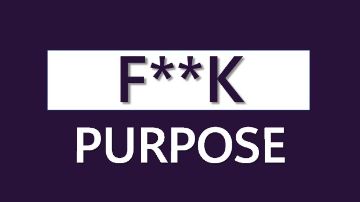
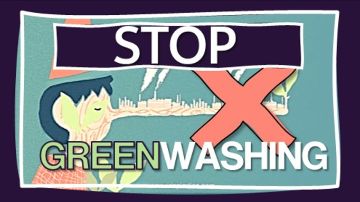

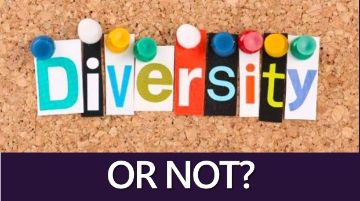
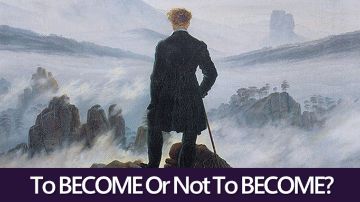
 .
.